Nigeria awaits results of delayed vote
- 24 Feb 2019 --
Nigerians are eagerly awaiting to see who will be their next President as ballots are being counted and collated in last Saturday’ general elections.
Results are slowly trickling in, but the final results are expected from the Independent Electoral Commission (INEC) from Monday.
Despite the counting of ballots, INEC extended voting to a second day in some areas where logistical challenges made it impossible for many voters to exercise their franchise.
Information from INEC indicated that due to logistical challenges and violence, voting was not possible in about 8,500 of the 120,000 polling stations across the country.
Elections
Seventy-three candidates were on the ballot paper, but the two main contestants are President Mahammadu Buhari, 76, of the All Progressive Congress (APC), who is seeking a second term, and former Vice President Atiku Abubakar, 72, of the People Democratic Party (PDP).
More than 84 million Nigerians registered to vote in the elections, but information from INEC showed that about 73 million voters collected their permanent voter’s card(PVC) which would give them the right to vote.
The polls also included voting for federal law makers of the Upper and Lower Houses of Nigeria Parliament, the Senate and House of Representatives.
Another round of elections for State Assemblies for the 36 states, Governors for 29 out of 36 states in Nigeria and Area Councils of the Federal Capital Territory in Abuja, are expected on March 9, 2019.
To win the elections in the first round and become President of the Federal Republic of Nigeria, a candidate must win the most votes, but he must also win 25 per cent of the votes in two-thirds of the country’s 36 states. If not, there will be a run-off, which must be held within seven days after the declaration of the official results.
Violence and accusations
Although largely peaceful, the elections were not without reports of voter intimidation, stealing of ballot boxes, attacks from the militant group, Boko Haram, burning of some INEC offices and in some cases burning of ballot papers at the polling stations.
There were reports of thugs brandishing cutlasses and axes and attacking people to prevent them from voting.
The APC and the PDP accused one another of employing tactics that would jeopardize the polls in their respective strongholds.
But an INEC official, Festus Okoye, told journalists that the commission was satisfied with the electoral process.
“We are generally satisfied with the process and the procedures for the conduct of these present elections,” he said.
The two main contenders
Both President Buhari and Alhaji Abubakar are from the Northern Part of the country.
Buhari is from Katsina in the North East while Atiku hails from Adamawa in the North East.
President Buhari, was elected in 2015 after losing three previous elections in 2003, 2007 and 2011. He defeated the PDP’s incumbent, former President Goodluck Jonathan.
His campaign message was that he had laid the foundation which would take Nigeria to the next level when given a second term.
On the other hand, Mr Abubakar was the Vice President to former President Olusegun Obasanjo from 1999 to 2007.
A very successful businessman and often considered as a power broker in Nigeria’s politics, Mr Atiku has made many attempts to get the top job in Nigeria often changing and creating new alliances.
He has promised to get Nigeria working again when elected and has accused the Buhari–led administration of failing to revive the economy as it promised and also failing to stop the Boko Haram insurgency in the North East

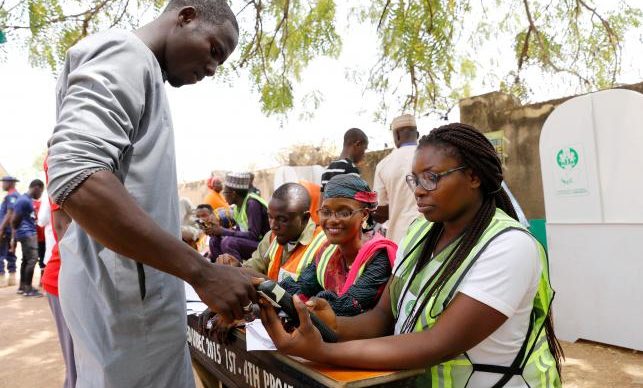
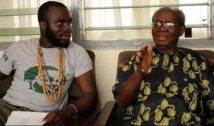
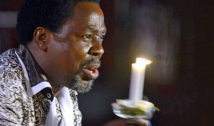
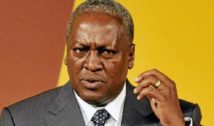
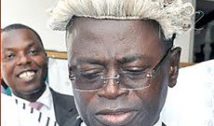





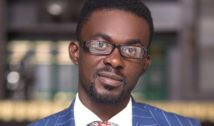
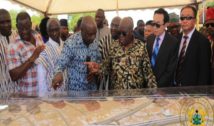

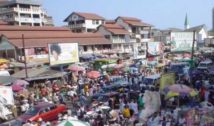





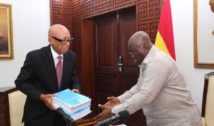

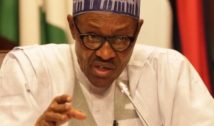
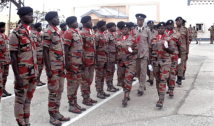




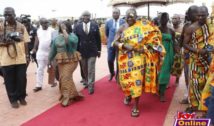
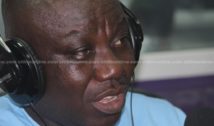

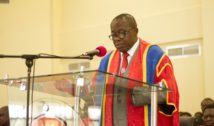







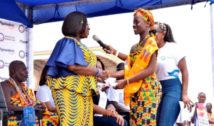
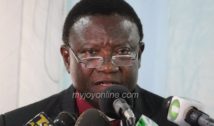
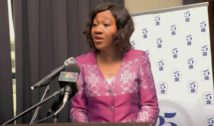

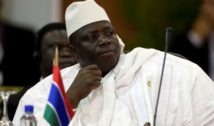
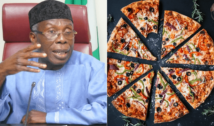

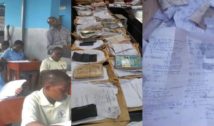

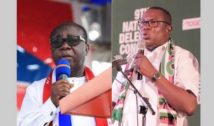




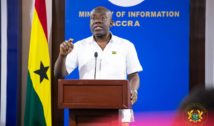
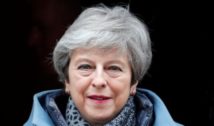
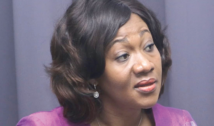
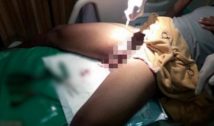

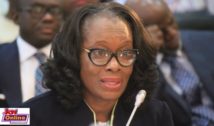
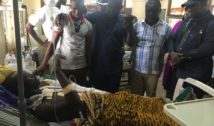

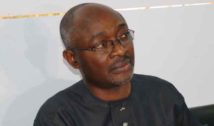
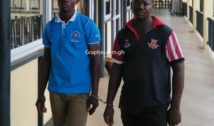
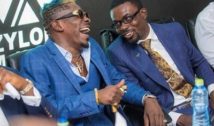
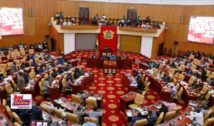
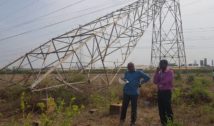
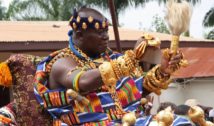
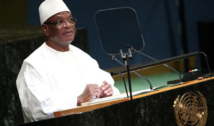
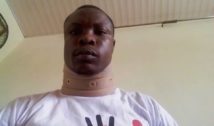


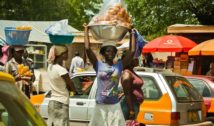







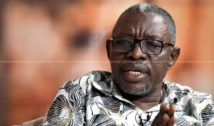




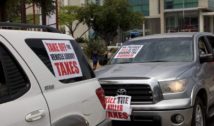
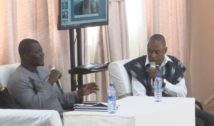

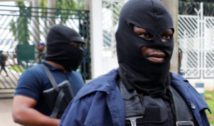



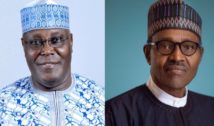
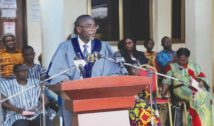

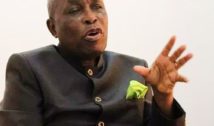
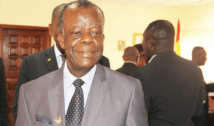
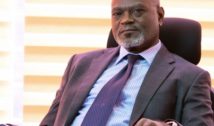


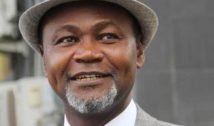


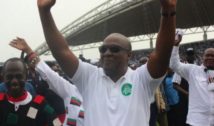
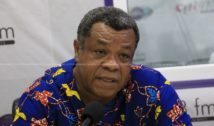
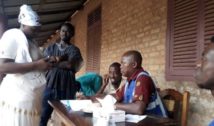
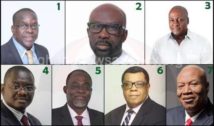


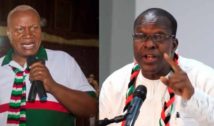


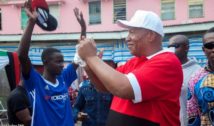
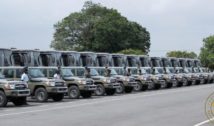


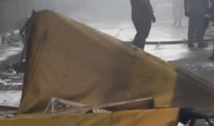

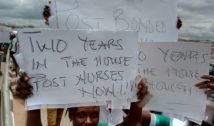


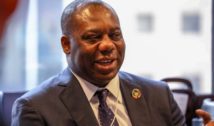

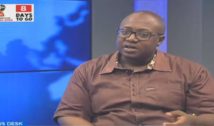
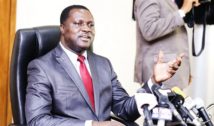
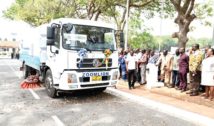

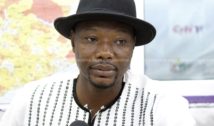
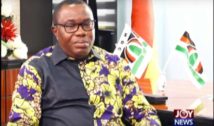
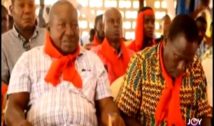




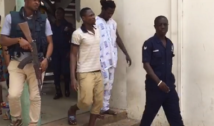

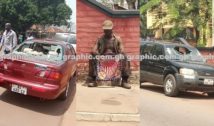
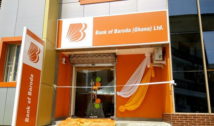
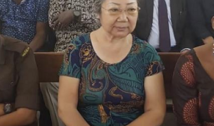

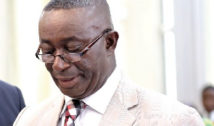
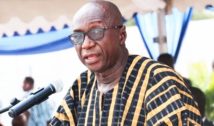

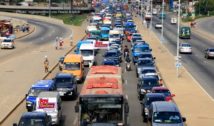
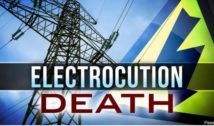
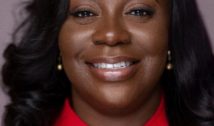
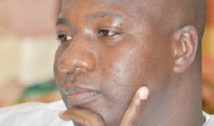

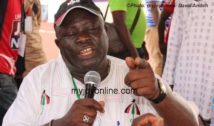
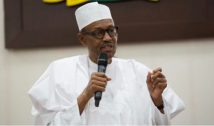
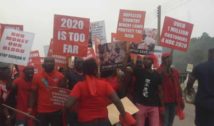

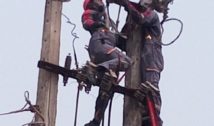
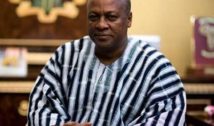
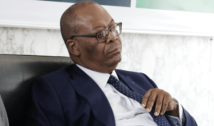




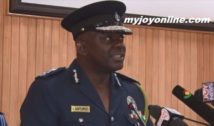


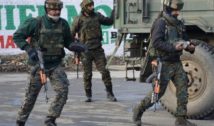
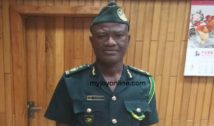
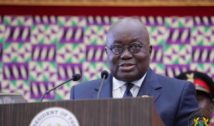
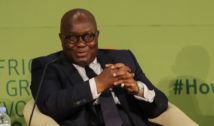
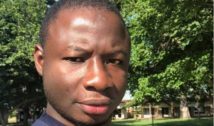
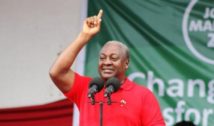
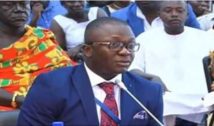

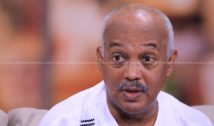
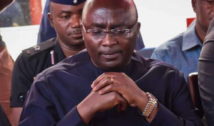


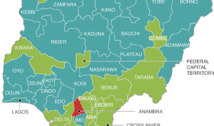
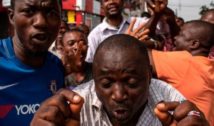
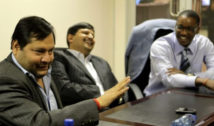




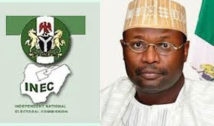
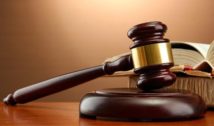



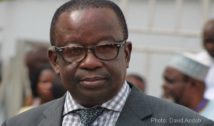


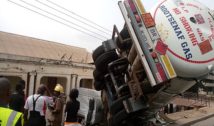



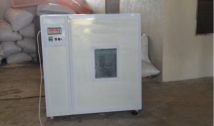



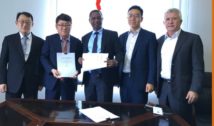


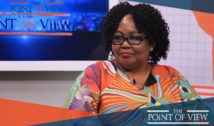


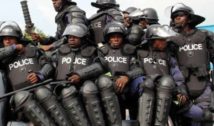





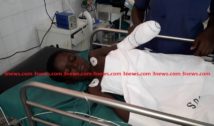

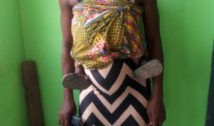

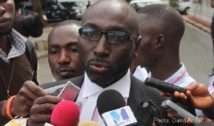




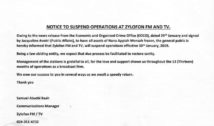

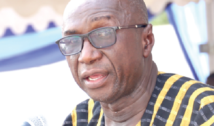
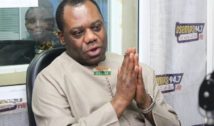

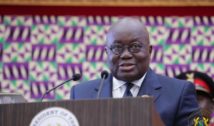

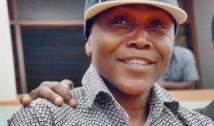



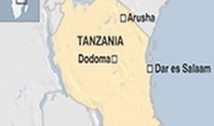
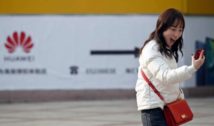
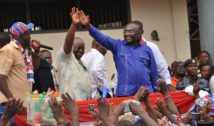


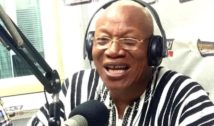
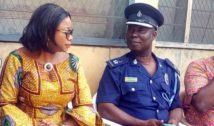
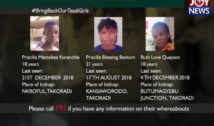

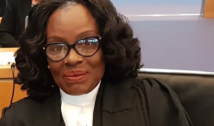
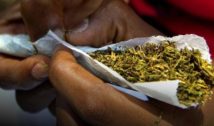

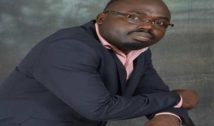

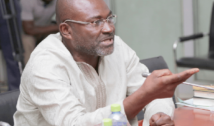





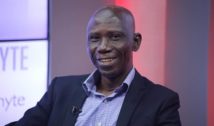

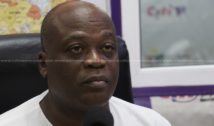
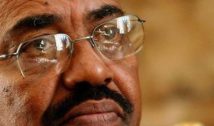
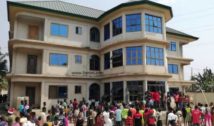


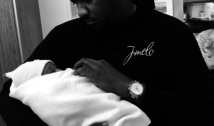
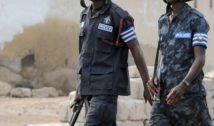
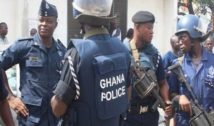
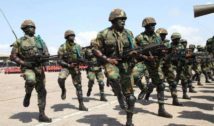
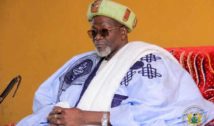



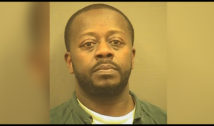
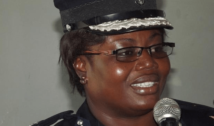



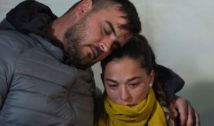
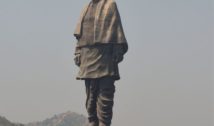
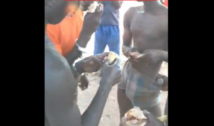
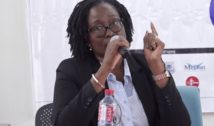
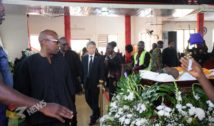


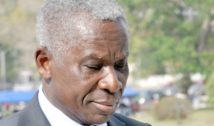
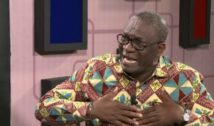
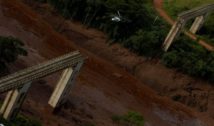
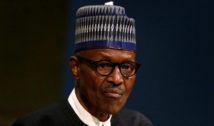


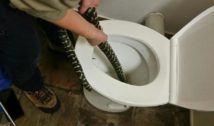


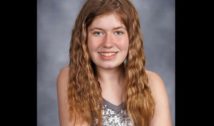

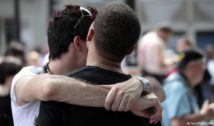
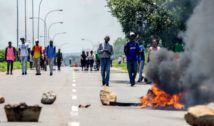
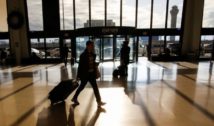

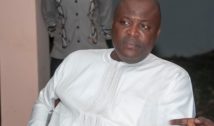

3,191 comments
The Confidential
7:11 pmI loved as much as you will receive carried out right here. The sketch is tasteful, your authored material stylish. nonetheless, you command get bought an shakiness over that you wish be delivering the following. unwell unquestionably come further formerly again since exactly the same nearly very often inside case you shield this increase.
https://tinyurl.com/4m8jyy8n
The Confidential
7:11 pmI used to be able to find good information from your blog articles.
https://bit.ly/fakazaio
The Confidential
7:11 pmGreat ? I should definitely pronounce, impressed with your website. I had no trouble navigating through all tabs as well as related info ended up being truly simple to do to access. I recently found what I hoped for before you know it in the least. Reasonably unusual. Is likely to appreciate it for those who add forums or something, site theme . a tones way for your client to communicate. Nice task..
https://homedesigninstitute.com/question/4746/how_do_i_decorate_my_living_room/
The Confidential
7:11 pmHi my friend! I want to say that this post is awesome, nice written and come with approximately all significant infos. I would like to see more posts like this .
https://www.outlookindia.com/outlook-spotlight/fluxactive-complete-reviews-caution-prices-are-too-crazy–news-253312
The Confidential
7:11 pmYou ought to take part in a contest for one of the greatest websites on the web. I will recommend this website!
https://staff.blog.ui.ac.id/rendi.supiana/wisata-di-makasar-yang-bikin-lupa-sama-hutang/
The Confidential
7:11 pmThanks for your posting. I would also love to comment that the first thing you will need to complete is find out if you really need repairing credit. To do that you have got to get your hands on a copy of your credit score. That should really not be difficult, since government necessitates that you are allowed to obtain one free of charge copy of your actual credit report yearly. You just have to request that from the right individuals. You can either look into the website for that Federal Trade Commission or contact one of the major credit agencies directly.
https://www.tecknote.com
The Confidential
7:11 pmValuable info. Lucky me I found your web site by accident, and I am shocked why this accident did not happened earlier! I bookmarked it.
https://99bitcoins.com/best-bitcoin-casino/
The Confidential
7:11 pmThanks a lot for the helpful article. It is also my belief that mesothelioma cancer has an very long latency time period, which means that signs of the disease might not emerge until finally 30 to 50 years after the first exposure to mesothelioma. Pleural mesothelioma, and that is the most common type and affects the area within the lungs, may cause shortness of breath, breasts pains, and a persistent cough, which may cause coughing up maintain.
https://thetotebagmarcjacobs.com/
The Confidential
7:11 pmokmark your blog and check again here regularly. I am quite sure I will learn lots of new stuff right here! Good luck for the next!
https://99bitcoins.com/buy-bitcoin/paypal/
The Confidential
7:11 pmThanks for your post here. One thing I’d like to say is always that most professional fields consider the Bachelor’s Degree as the entry level requirement for an online course. Though Associate Certifications are a great way to start, completing a person’s Bachelors reveals many entrances to various careers, there are numerous internet Bachelor Course Programs available via institutions like The University of Phoenix, Intercontinental University Online and Kaplan. Another issue is that many brick and mortar institutions offer Online versions of their college diplomas but typically for a considerably higher fee than the organizations that specialize in online course plans.
https://www.offshoresportsbooks.com/
The Confidential
7:11 pmAn additional issue is really that video gaming has become one of the all-time most important forms of excitement for people of nearly every age. Kids enjoy video games, plus adults do, too. The XBox 360 is probably the favorite video games systems for folks who love to have hundreds of video games available to them, plus who like to learn live with other people all over the world. Thank you for sharing your thinking.
https://xcaosystemgroup.com/
The Confidential
7:11 pmI’d like to thank you for the efforts you’ve put in writing this website. I’m hoping to see the same high-grade blog posts by you in the future as well. In truth, your creative writing abilities has encouraged me to get my very own site now 😉
http://alleurasia.com/user/yampalm73/
The Confidential
7:11 pmNice post. I be taught one thing more difficult on completely different blogs everyday. It will all the time be stimulating to read content material from other writers and practice a little bit something from their store. I?d prefer to use some with the content material on my weblog whether or not you don?t mind. Natually I?ll give you a link on your internet blog. Thanks for sharing.
https://www.picktechsolution.com/
The Confidential
7:11 pmof course like your website but you have to test the spelling on quite a few of your posts. Many of them are rife with spelling issues and I to find it very bothersome to inform the truth then again I will definitely come back again.
https://wishescave.com/
The Confidential
7:11 pmOne thing is that if you find yourself searching for a student loan you may find that you will want a cosigner. There are many conditions where this is true because you could find that you do not have a past credit rating so the mortgage lender will require that you’ve someone cosign the borrowed funds for you. Thanks for your post.
http://cricketwm.com/2023/01/26/risky-credit-card-control-for-iso-product-owner-agents/
The Confidential
7:11 pmThere may be noticeably a bundle to learn about this. I assume you made sure good factors in options also.
https://www.ikariajuice-ikariajuice.com/
The Confidential
7:11 pmI do not even know how I ended up here, but I thought this post was great. I do not know who you are but certainly you’re going to a famous blogger if you aren’t already 😉 Cheers!
https://bitcoinwisdom.com/bitcode-prime-review/
The Confidential
7:11 pmHowdy, I do believe your web site could possibly be having web browser compatibility issues. Whenever I take a look at your blog in Safari, it looks fine however, when opening in Internet Explorer, it’s got some overlapping issues. I simply wanted to give you a quick heads up! Apart from that, fantastic blog.
https://throbsocial.com/story14913150/fakaza-full-guide
The Confidential
7:11 pmI am typically to running a blog and i actually recognize your content. The article has actually peaks my interest. I’m going to bookmark your site and keep checking for brand new information.
https://www.buzzsprout.com/2111251/
The Confidential
7:11 pmWay cool, some valid points! I appreciate you making this article available, the rest of the site is also high quality. Have a fun.
https://www.zoritolerimol.com
The Confidential
7:11 pmExcellent post. I am facing a few of these issues as well..
https://digitalterpercaya.com/4-penyebab-apk-whatsapp-mod-tidak-bisa-diinstall/
The Confidential
7:11 pmEveryone loves it when folks come together and share opinions. Great website, keep it up!
https://mentor.unibuc.ro/forums/user/jasonparcel71/
The Confidential
7:11 pmI wanted to thank you for this good read!! I definitely loved every little bit of it. I have you book-marked to check out new things you post…
https://arthurqgrbj.thekatyblog.com/18557412/peta-anyar-cara-untuk-cara-untuk-rindu-band-kehilanganmu-berat-bagiku
The Confidential
7:11 pmThanks for your post right here. One thing I’d like to say is always that most professional domains consider the Bachelor’s Degree just as the entry level standard for an online course. Even though Associate Qualifications are a great way to start, completing the Bachelors opens up many entrances to various careers, there are numerous internet Bachelor Course Programs available by institutions like The University of Phoenix, Intercontinental University Online and Kaplan. Another concern is that many brick and mortar institutions make available Online variations of their diplomas but generally for a considerably higher charge than the providers that specialize in online college diploma plans.
https://thepetagrees.org/buy-discount-vet-insurance-coverage-for-cats/
The Confidential
7:11 pmGood article. I certainly love this site. Keep it up!
https://getsocialselling.com/story14139006/detailed-notes-on-tubidy
The Confidential
7:11 pmWow, superb weblog structure! How long have you been running a blog for? you make running a blog look easy. The whole look of your website is excellent, as smartly as the content!
https://thechronicbeaver.com/best-online-dispensary-canada-top-6-list/
The Confidential
7:11 pmThere’s definately a great deal to know about this issue. I like all of the points you’ve made.
https://ezmarkbookmarks.com/story14027784/trik-5-detik-untuk-chord-denny-caknan-pingal
The Confidential
7:11 pmGreat article. I will be dealing with many of these issues as well..
https://cutt.ly/F92jHT9
The Confidential
7:11 pmWonderful work! This is the type of information that are supposed to be shared around the web. Shame on the seek engines for now not positioning this submit upper! Come on over and visit my web site . Thank you =)
https://www.neurotonix–us.com/
The Confidential
7:11 pmobviously like your web-site however you have to test the spelling on quite a few of your posts. Several of them are rife with spelling issues and I to find it very bothersome to inform the truth then again I?ll surely come back again.
http://jiu104.com/2023/02/02/what-you-should-really-know-when-shopping-for-a-high-chance-merchant-services-firm/
The Confidential
7:11 pmI would like to thank you for the efforts you’ve put in writing this site. I’m hoping to view the same high-grade content by you later on as well. In fact, your creative writing abilities has encouraged me to get my very own site now 😉
https://traviszj354.onesmablog.com/The-Mp3juices-Diaries-55747480
The Confidential
7:11 pmOne thing I would like to comment on is that weightloss system fast can be carried out by the correct diet and exercise. People’s size not merely affects appearance, but also the quality of life. Self-esteem, depression, health risks, along with physical ability are disturbed in excess weight. It is possible to just make everything right but still gain. If this happens, a condition may be the primary cause. While a lot food rather than enough work out are usually accountable, common medical conditions and key prescriptions can greatly help to increase size. Thanks alot : ) for your post here.
https://cards2cash.co.uk/
The Confidential
7:11 pmAnother thing I’ve noticed is for many people, low credit score is the reaction to circumstances further than their control. As an example they may have already been saddled with illness so that they have high bills going to collections. It could be due to a occupation loss or maybe the inability to work. Sometimes divorce can really send the budget in the undesired direction. Many thanks sharing your thinking on this web site.
https://soundsmash.co.uk/faine-misto-festival-announces-alestorm-while-she-sleeps-and-more-for-2022/
The Confidential
7:11 pmThis is a topic that’s near to my heart… Take care! Exactly where are your contact details though?
https://bookmark-template.com/story15088867/detailed-remarks-on-tubidy-music
The Confidential
7:11 pmRight here is the perfect site for anyone who really wants to understand this topic. You realize a whole lot its almost tough to argue with you (not that I personally would want to…HaHa). You definitely put a new spin on a subject that’s been discussed for ages. Wonderful stuff, just great.
http://www.energialternativa.eu/userinfo.php?uid=835701
The Confidential
7:11 pmThat is the fitting blog for anyone who needs to seek out out about this topic. You realize so much its nearly exhausting to argue with you (not that I actually would need?HaHa). You definitely put a brand new spin on a subject thats been written about for years. Great stuff, simply great!
https://fangwallet.com/
The Confidential
7:11 pmGood blog you have got here.. It’s difficult to find high quality writing like yours nowadays. I seriously appreciate individuals like you! Take care!!
http://mapindex.com.tw/home.php?mod=space&uid=320799
The Confidential
7:11 pmI do believe all the ideas you have offered in your post. They are really convincing and can definitely work. Nonetheless, the posts are very short for newbies. May just you please extend them a little from subsequent time? Thanks for the post.
https://easytvuk.co.uk/tv-buying-guide/
The Confidential
7:11 pmI’ve been surfing online more than three hours today, yet I never found any interesting article like yours. It is pretty worth enough for me. In my opinion, if all website owners and bloggers made good content as you did, the web will be a lot more useful than ever before.
https://www.prodentim-prodentim-prodentim.com/
The Confidential
7:11 pmOne more thing I would like to convey is that in place of trying to accommodate all your online degree classes on days that you finish off work (as most people are fatigued when they return home), try to receive most of your lessons on the week-ends and only one or two courses for weekdays, even if it means a little time off your end of the week. This is really good because on the weekends, you will be extra rested as well as concentrated in school work. Thanks alot : ) for the different tips I have realized from your web site.
https://fixedmatches-1×2.com/
The Confidential
7:11 pmYou ought to be a part of a contest for one of the best websites on the internet. I am going to recommend this web site!
https://www.instapaper.com/p/groundoboe4
The Confidential
7:11 pmThat is a good tip especially to those fresh to the blogosphere. Brief but very precise information… Many thanks for sharing this one. A must read post.
http://harakat.tj/user/crossicon1/
The Confidential
7:11 pmI do agree with all of the ideas you have presented in your post. They’re very convincing and will certainly work. Still, the posts are very short for newbies. Could you please extend them a little from next time? Thanks for the post.
https://isma.ppsma.dindik.jatimprov.go.id/isma/data/
The Confidential
7:11 pmVery good post. I certainly appreciate this website. Stick with it!
https://staff.blog.ui.ac.id/rendi.supiana/rekomendasi-10-lagu-pop-terpopuler-indonesia-terbaru-2022/
The Confidential
7:11 pmIt’s difficult to find experienced people on this topic, however, you sound like you know what you’re talking about! Thanks
https://sociallytraffic.com/story14391528/ask-yourself-how-to-download-audio-and-movies-from-mp3juices
The Confidential
7:11 pmAfter exploring a number of the blog articles on your web site, I truly appreciate your technique of blogging. I book marked it to my bookmark website list and will be checking back in the near future. Take a look at my website as well and let me know your opinion.
https://penzu.com/p/3d89f597
The Confidential
7:11 pmNext time I read a blog, Hopefully it doesn’t fail me as much as this particular one. After all, Yes, it was my choice to read, however I really believed you’d have something useful to talk about. All I hear is a bunch of whining about something you could fix if you weren’t too busy searching for attention.
https://staff.blog.ui.ac.id/rendi.supiana/cara-download-lagu-mahalini-sial/
The Confidential
7:11 pmThis website definitely has all of the information I wanted about this subject and didn’t know who to ask.
https://downloadlagu321.icu
The Confidential
7:11 pmThere’s definately a lot to find out about this subject. I really like all the points you’ve made.
https://downloadlagu321.icu
The Confidential
7:11 pmyou will have an important blog right here! would you prefer to make some invite posts on my blog?
http://behindthedots.com/2023/02/09/paybox-online-payment-processor/
The Confidential
7:11 pmOh my goodness! Impressive article dude! Many thanks, However I am having problems with your RSS. I don’t understand why I am unable to join it. Is there anybody else getting the same RSS problems? Anyone that knows the solution will you kindly respond? Thanx.
http://qooh.me/brandsummer15
The Confidential
7:11 pmGreetings! Very helpful advice within this article! It is the little changes which will make the greatest changes. Thanks for sharing!
https://emiliokyjsc.activoblog.com/17707691/ayra-starr-rush-for-newbies
The Confidential
7:11 pmIt’s nearly impossible to find experienced people on this topic, however, you sound like you know what you’re talking about! Thanks
https://cristianzeffg.governor-wiki.com/4503818/mp3_juice_an_in_range_evaluation
The Confidential
7:11 pmAttractive component of content. I simply stumbled upon your website and in accession capital to claim that I acquire actually loved account your blog posts. Any way I will be subscribing on your augment and even I fulfillment you access constantly rapidly.
https://www.youtube.com/watch?v=2l1a7QskEhc
The Confidential
7:11 pmThis page certainly has all of the information and facts I wanted about this subject and didn’t know who to ask.
https://theflatearth.win/wiki/Post:Fakaza_Review
The Confidential
7:11 pmMay I simply say what a relief to discover somebody who genuinely understands what they are talking about over the internet. You actually understand how to bring an issue to light and make it important. More and more people have to read this and understand this side of the story. I was surprised that you are not more popular given that you surely have the gift.
https://te.legra.ph/Panduan-Membaca-Chord-Gitar-Online-lewat-ChordTela-02-20
The Confidential
7:11 pmThis excellent website definitely has all the information and facts I wanted about this subject and didn’t know who to ask.
https://advicebookmarks.com/story14148979/the-basic-ideas-of-tubidy
The Confidential
7:11 pmI’m amazed, I have to admit. Rarely do I come across a blog that’s equally educative and entertaining, and without a doubt, you’ve hit the nail on the head. The problem is an issue that not enough people are speaking intelligently about. I am very happy I came across this in my search for something regarding this.
https://music24569.uzblog.net/tubidy-review-31424934
The Confidential
7:11 pmVery good post! We are linking to this particularly great article on our website. Keep up the great writing.
https://josuedixiw.dm-blog.com/17731869/5-crucial-factors-for-tubidy
The Confidential
7:11 pmMagnificent beat ! I wish to apprentice while you amend your web site, how could i subscribe for a blog website? The account aided me a acceptable deal. I had been tiny bit acquainted of this your broadcast offered bright clear idea
https://theintrovertreader.com/editing-and-proofreading-services/
The Confidential
7:11 pmAn outstanding share! I’ve just forwarded this onto a co-worker who had been conducting a little research on this. And he in fact bought me dinner because I stumbled upon it for him… lol. So let me reword this…. Thanks for the meal!! But yeah, thanks for spending time to talk about this subject here on your site.
https://500px.com/p/brauntnbcheek
The Confidential
7:11 pmThanks for the publish. I have always observed that most people are desperate to lose weight as they wish to look slim and also attractive. On the other hand, they do not always realize that there are more benefits to losing weight additionally. Doctors state that overweight people come across a variety of diseases that can be directly attributed to their own excess weight. Thankfully that people that are overweight and suffering from several diseases can reduce the severity of the illnesses by simply losing weight. You are able to see a progressive but notable improvement in health when even a small amount of fat loss is achieved.
https://us.community.sony.com/s/profile/0054O00000Ae2pC?language=en_US
The Confidential
7:11 pmHi! I could have sworn I’ve visited this site before but after looking at many of the articles I realized it’s new to me. Anyhow, I’m certainly happy I found it and I’ll be book-marking it and checking back often.
http://journals.pu.edu.pk/journals/index.php/index/user/viewPublicProfile/947476
The Confidential
7:11 pmGood day! I could have sworn I’ve been to this website before but after looking at some of the articles I realized it’s new to me. Anyways, I’m certainly happy I came across it and I’ll be bookmarking it and checking back regularly.
https://capeconnect.online/show/centre-for-conflict-resolution-observatory-w-cape/app/send_to_friend
The Confidential
7:11 pmGood web site you have here.. It’s difficult to find high-quality writing like yours nowadays. I really appreciate individuals like you! Take care!!
https://www.thesouthafrican.com/technology/tubidy-platform-so-much-fun-youll-never-want-to-leave-february-2023/
The Confidential
7:11 pmPretty! This has been an extremely wonderful post. Thanks for providing this info.
https://www.grid.id/parapuan/read/533706381/bikin-konten-kamu-lebih-asyik-dengan-4-lagu-tiktok-viral-ini?page=all
The Confidential
7:11 pmGreetings! Very useful advice within this post! It is the little changes that produce the greatest changes. Thanks for sharing!
http://www.hammer.x0.to/cgi/search/rank.cgi?mode=link&id=6289&url=https://tubidy.org.za/
The Confidential
7:11 pmI?ll immediately grab your rss as I can not find your email subscription link or newsletter service. Do you’ve any? Kindly let me know so that I could subscribe. Thanks.
https://list.ly/FitnessDeadline/activity
The Confidential
7:11 pmYou’re so cool! I do not believe I’ve read through anything like that before. So wonderful to find another person with a few original thoughts on this topic. Seriously.. thank you for starting this up. This website is one thing that is needed on the web, someone with a bit of originality.
https://makassar.tribunnews.com/2023/02/23/simak-begini-cara-mudah-download-musik-offline-dengan-tubidy
The Confidential
7:11 pmbookmarked!!, I love your web site!
http://e-extension.gov.ph/elearning/mod/forum/discuss.php?d=3254
The Confidential
7:11 pmWay cool! Some extremely valid points! I appreciate you writing this post and the rest of the website is really good.
https://rosalind.info/users/karenflesh45
The Confidential
7:11 pmCan I simply just say what a comfort to discover someone that actually understands what they’re talking about over the internet. You actually know how to bring an issue to light and make it important. More and more people ought to read this and understand this side of your story. I was surprised that you’re not more popular because you certainly possess the gift.
https://abc.edu.do/profile/charleswbrooks
The Confidential
7:11 pmGood day! I could have sworn I’ve visited your blog before but after looking at a few of the articles I realized it’s new to me. Nonetheless, I’m certainly happy I came across it and I’ll be bookmarking it and checking back frequently.
https://staff.blog.ui.ac.id/rendi.supiana/uncovering-the-most-popular-music-in-the-world/
The Confidential
7:11 pmThanks for your posting. My spouse and i have continually noticed that most people are desirous to lose weight simply because they wish to show up slim along with attractive. Even so, they do not often realize that there are additional benefits just for losing weight as well. Doctors assert that overweight people are afflicted with a variety of health conditions that can be perfectely attributed to their particular excess weight. The good thing is that people who’re overweight as well as suffering from different diseases can reduce the severity of their own illnesses by losing weight. You’ll be able to see a gradual but notable improvement with health while even a minor amount of weight-loss is realized.
https://listproperty.ng/listing-location/abuja-fct/abuja/
The Confidential
7:11 pmGreat work! This is the type of information that should be shared around the net. Shame on the search engines for not positioning this post higher! Come on over and visit my website . Thanks =)
https://ypacmalang.org/
The Confidential
7:11 pmGood web site you have got here.. It’s hard to find excellent writing like yours nowadays. I truly appreciate individuals like you! Take care!!
https://myspace.com/lightview2
The Confidential
7:11 pmVery interesting subject, regards for posting. “Stranger in a strange country.” by Sophocles.
https://bulktokensender.com/polygon-erc721-nft-bulk-sender-airdrop-tool.html
The Confidential
7:11 pmI have observed that in the world of today, video games are definitely the latest phenomenon with kids of all ages. There are times when it may be not possible to drag your kids away from the games. If you want the very best of both worlds, there are various educational activities for kids. Thanks for your post.
https://www.medicscango.com/จอชมาจา/
The Confidential
7:11 pmI really like it when individuals get together and share thoughts. Great site, keep it up!
https://staff.blog.ui.ac.id/rendi.supiana/tubidy-discover-the-benefits-of-music-streaming/
The Confidential
7:11 pmThanks for your article. It is unfortunate that over the last one decade, the travel industry has had to tackle terrorism, SARS, tsunamis, influenza, swine flu, as well as first ever entire global economic downturn. Through everything the industry has really proven to be solid, resilient plus dynamic, finding new approaches to deal with misfortune. There are usually fresh complications and possibilities to which the sector must again adapt and react.
http://sports.unisda.ac.id/champions-league-drawing-results-2022/
The Confidential
7:11 pmAs I web site possessor I believe the content material here is rattling wonderful , appreciate it for your efforts. You should keep it up forever! Good Luck.
http://rfzjll.com/merchant-service-becomes-more-and-more-affordable/
The Confidential
7:11 pmAnother issue is that video games are typically serious naturally with the primary focus on understanding rather than enjoyment. Although, it comes with an entertainment facet to keep your kids engaged, every single game is usually designed to work with a specific experience or area, such as numbers or technology. Thanks for your post.
https://www.werockthespectrumloudoun.com/
The Confidential
7:11 pmMany thanks for this article. I’d also like to mention that it can often be hard if you find yourself in school and merely starting out to create a long credit ranking. There are many college students who are simply just trying to make it through and have a lengthy or beneficial credit history can be a difficult thing to have.
https://yupoo.com.co/2023/02/26/if-you-dont-set-up-merchant-services-now-your-profits-will-suffer-later/
The Confidential
7:11 pmGood blog post. I definitely love this website. Keep it up!
https://www.fundacoop.org/chamilo/app/upload/users/7/7177/my_files/20-download-high-quality-music-and-videos.html
The Confidential
7:11 pmAn interesting discussion is definitely worth comment. I do believe that you need to write more on this issue, it might not be a taboo matter but generally people don’t talk about these issues. To the next! Kind regards!
https://socialstrategie.com/story14587732/woza-gibela-mp3-download-an-overview
The Confidential
7:11 pmWhen I initially commented I seem to have clicked the -Notify me when new comments are added- checkbox and from now on each time a comment is added I recieve 4 emails with the same comment. Is there a means you are able to remove me from that service? Thanks a lot.
http://www.drugoffice.gov.hk/gb/unigb/www.thutong.org.za/track/woza-gibela.html
The Confidential
7:11 pmThis site certainly has all the info I wanted about this subject and didn’t know who to ask.
https://stai-ibnurusyd.ac.id/index.php?pilih=forum&modul=yes&action=viewthread&forum_id=0&thread_id=2793
The Confidential
7:11 pmvery good put up, i definitely love this website, keep on it
https://usananosoft.com/product/buy-amazon-seller-account/
The Confidential
7:11 pmThanks for sharing your ideas. A very important factor is that students have a choice between federal government student loan and a private education loan where it is easier to decide on student loan consolidating debts than over the federal student loan.
https://lump-charcoal-supplier-ma15451.bloginwi.com/50732923/facts-about-halaban-charcoal-supplier-indonesia-revealed
The Confidential
7:11 pmHi, I do believe your web site could be having browser compatibility issues. When I take a look at your website in Safari, it looks fine however when opening in IE, it has some overlapping issues. I merely wanted to provide you with a quick heads up! Besides that, wonderful blog.
https://gals4free.net/cgi-bin/atx/out.cgi?trade=https://tubidy.org.za/
The Confidential
7:11 pmfantastic points altogether, you just gained a new reader. What would you recommend in regards to your post that you made a few days ago? Any positive?
https://www.weadultshop.com/collections/cum-stopper
The Confidential
7:11 pmOh my goodness! Incredible article dude! Thank you, However I am encountering issues with your RSS. I don’t understand the reason why I am unable to subscribe to it. Is there anybody else getting similar RSS issues? Anybody who knows the solution can you kindly respond? Thanks!
https://aristyawirawan.student.telkomuniversity.ac.id/perbedaan-format-mp3-dan-mp4-pada-tubidy/
The Confidential
7:11 pmI have recently started a site, the information you offer on this site has helped me tremendously. Thank you for all of your time & work.
https://upperstory.io
The Confidential
7:11 pmI have learned some important things through your post. I’d personally also like to express that there will be a situation in which you will get a loan and never need a cosigner such as a Fed Student Support Loan. But when you are getting financing through a standard financial institution then you need to be able to have a cosigner ready to enable you to. The lenders will certainly base their own decision on the few factors but the greatest will be your credit worthiness. There are some loan merchants that will likewise look at your work history and choose based on this but in almost all cases it will be based on on your score.
https://almetals.cn/product/4×8-aluminum-sheet/
The Confidential
7:11 pmGreetings! Very helpful advice within this article! It’s the little changes that will make the most significant changes. Many thanks for sharing!
https://dribbble.com/tubidyorgza/about
The Confidential
7:11 pmThat is a good tip particularly to those new to the blogosphere. Brief but very accurate information… Appreciate your sharing this one. A must read article!
http://spectr-sb116.ru/user/coincarrot22/
The Confidential
7:11 pmHeya i?m for the first time here. I came across this board and I find It really useful & it helped me out much. I hope to give something back and help others like you helped me.
https://nigellasativa.org/beneficios-del-aceite-de-semilla-negra/
The Confidential
7:11 pmI will immediately grab your rss as I can’t find your e-mail subscription link or e-newsletter service. Do you have any? Kindly let me know so that I could subscribe. Thanks.
https://totoswing.com
The Confidential
7:11 pmMay I just say what a comfort to uncover someone that really knows what they’re talking about on the internet. You certainly realize how to bring a problem to light and make it important. More people ought to look at this and understand this side of the story. I was surprised you aren’t more popular since you certainly possess the gift.
https://illinoisbay.com/user/profile/3465110
The Confidential
7:11 pmThere is certainly a lot to find out about this subject. I really like all the points you made.
https://bookmarkspecial.com/story14274606/the-amount-you-will-need-to-foresee-you-ll-attain-a-fantastic-libianca-folks
The Confidential
7:11 pmI used to be very happy to seek out this web-site.I wished to thanks on your time for this wonderful read!! I positively enjoying each little little bit of it and I have you bookmarked to take a look at new stuff you weblog post.
https://upperstory.io
The Confidential
7:11 pmI have seen that good real estate agents just about everywhere are Promoting. They are realizing that it’s not only placing a sign post in the front place. It’s really in relation to building associations with these traders who someday will become customers. So, whenever you give your time and effort to encouraging these traders go it alone : the “Law regarding Reciprocity” kicks in. Good blog post.
https://csaf.net/
The Confidential
7:11 pmThanks for your handy post. Over time, I have come to be able to understand that the actual symptoms of mesothelioma cancer are caused by your build up connected fluid regarding the lining of the lung and the upper body cavity. The disease may start from the chest place and pass on to other parts of the body. Other symptoms of pleural mesothelioma cancer include weight reduction, severe deep breathing trouble, fever, difficulty swallowing, and irritation of the face and neck areas. It really should be noted that some people having the disease never experience almost any serious signs or symptoms at all.
https://victoriay.com/
The Confidential
7:11 pmWonderful site. Plenty of useful info here. I am sending it to some friends ans also sharing in delicious. And of course, thanks for your effort!
https://totobts.com/
The Confidential
7:11 pmNice read, I just passed this onto a friend who was doing some research on that. And he just bought me lunch because I found it for him smile Thus let me rephrase that: Thanks for lunch!
https://watermanaustralia.com/product/zero-liquid-discharge-system-zld-system/
The Confidential
7:11 pmHiya, I’m really glad I have found this info. Nowadays bloggers publish only about gossips and internet and this is actually irritating. A good blog with exciting content, that is what I need. Thank you for keeping this site, I will be visiting it. Do you do newsletters? Can’t find it.
https://citytoto.net/
The Confidential
7:11 pmGreetings, I think your blog may be having internet browser compatibility issues. Whenever I take a look at your site in Safari, it looks fine however, when opening in I.E., it’s got some overlapping issues. I simply wanted to provide you with a quick heads up! Apart from that, wonderful site.
https://staff.blog.ui.ac.id/riezky.yulviani/berita-8/link-download-lagu-komang-raim-laode-mp3-gratis/
The Confidential
7:11 pmOh my goodness! Impressive article dude! Many thanks, However I am experiencing difficulties with your RSS. I don’t know the reason why I cannot join it. Is there anybody getting identical RSS issues? Anyone who knows the solution can you kindly respond? Thanks!!
https://bookmarkuse.com/story14187952/chordtela-mahalini-sial-no-additional-not-identified
The Confidential
7:11 pmGood post. I learn something totally new and challenging on blogs I stumbleupon everyday. It will always be helpful to read content from other writers and practice a little something from their web sites.
https://ruby.ecs.umass.edu/Umasscleanroom/index.php/User:Downloadlagu
The Confidential
7:11 pmThe following time I learn a blog, I hope that it doesnt disappoint me as much as this one. I mean, I do know it was my choice to read, but I actually thought youd have something fascinating to say. All I hear is a bunch of whining about something that you possibly can repair when you werent too busy looking for attention.
https://www.wugt.news/post/pr/January-11-2023/Shibu-Inu-SHIB-suggests-a-new-partnership-with-luxury-brand-Bugatti-Group
The Confidential
7:11 pmI was excited to find this web site. I want to to thank you for ones time for this particularly wonderful read!! I definitely really liked every part of it and I have you saved to fav to check out new things in your blog.
https://tubidyorgza.contently.com
The Confidential
7:11 pmI figured out more a new challenge on this fat reduction issue. Just one issue is that good nutrition is highly vital when dieting. A big reduction in bad foods, sugary food, fried foods, sweet foods, beef, and white colored flour products could possibly be necessary. Possessing wastes parasites, and wastes may prevent desired goals for fat-loss. While selected drugs for the short term solve the situation, the awful side effects are usually not worth it, they usually never give more than a short-lived solution. This can be a known incontrovertible fact that 95 of dietary fads fail. Thanks for sharing your notions on this site.
https://www.wugt.news/post/automotive/December-10-2022/Subaru-Recalls-Over-QuarterMillion-Ascent-SUVs-For-Fire-Risk-
The Confidential
7:11 pmI’m amazed, I have to admit. Seldom do I come across a blog that’s both educative and entertaining, and without a doubt, you have hit the nail on the head. The problem is something not enough men and women are speaking intelligently about. I am very happy I found this in my hunt for something concerning this.
https://staff.blog.ui.ac.id/riezky.yulviani/
The Confidential
7:11 pmI do accept as true with all of the ideas you’ve introduced for your post. They are very convincing and will certainly work. Nonetheless, the posts are too short for beginners. Could you please lengthen them a bit from subsequent time? Thank you for the post.
https://red–boost.pro
The Confidential
7:11 pmMay I simply say what a relief to find someone who truly understands what they’re talking about online. You certainly know how to bring a problem to light and make it important. More people need to read this and understand this side of the story. I can’t believe you aren’t more popular because you definitely have the gift.
https://staff.blog.ui.ac.id/rendi.supiana/chord-komang-raim-laode-kunci-gitar-dasar-chordtela-lirik-lengkap/
The Confidential
7:11 pmHaving read this I thought it was very enlightening. I appreciate you spending some time and energy to put this information together. I once again find myself spending a significant amount of time both reading and leaving comments. But so what, it was still worthwhile!
https://www.musicplug.in
The Confidential
7:11 pmThe next time I learn a blog, I hope that it doesnt disappoint me as a lot as this one. I mean, I do know it was my option to read, however I really thought youd have something fascinating to say. All I hear is a bunch of whining about one thing that you could fix in case you werent too busy in search of attention.
https://savingspromocodes.com/bulk-office
The Confidential
7:11 pmI have realized that car insurance providers know the autos which are susceptible to accidents along with risks. In addition they know what style of cars are inclined to higher risk as well as higher risk they’ve already the higher the actual premium fee. Understanding the easy basics involving car insurance will allow you to choose the right kind of insurance policy that can take care of your family needs in case you become involved in an accident. Appreciate your sharing the ideas on your own blog.
https://flyavia.ge/
The Confidential
7:11 pmHi there, I found your web site by way of Google at the same time as looking for a comparable matter, your web site got here up, it looks good. I have bookmarked it in my google bookmarks.
bokep barat
The Confidential
7:11 pmHello there, I believe your website might be having web browser compatibility problems. Whenever I take a look at your blog in Safari, it looks fine however, if opening in I.E., it’s got some overlapping issues. I simply wanted to provide you with a quick heads up! Other than that, wonderful blog!
http://webblogkkn.unsyiah.ac.id/keudeunga16/mp3/download-lagu-insan-biasa-lesti-mp3-gratis/
The Confidential
7:11 pmPretty nice post. I just stumbled upon your weblog and wanted to say that I have truly enjoyed browsing your blog posts. In any case I will be subscribing to your rss feed and I hope you write again soon!
https://www.thebergenbk.com/
The Confidential
7:11 pmSomebody necessarily lend a hand to make seriously posts I would state. That is the very first time I frequented your website page and up to now? I amazed with the research you made to create this actual publish incredible. Excellent job!
https://metabo–flex.us/
The Confidential
7:11 pmThanks for your post. Another issue is that just being a photographer requires not only problems in taking award-winning photographs and also hardships in getting the best dslr camera suited to your needs and most especially hardships in maintaining the quality of your camera. It is very correct and obvious for those photography enthusiasts that are in capturing the nature’s exciting scenes – the mountains, the particular forests, the actual wild or the seas. Visiting these amazing places absolutely requires a video camera that can surpass the wild’s harsh natural environment.
https://tempus-machina.com/
The Confidential
7:11 pmI have noticed that in video cameras, special detectors help to {focus|concentrate|maintain focus|target|a**** automatically. The actual sensors connected with some digital cameras change in in the area of contrast, while others employ a beam associated with infra-red (IR) light, specially in low lighting. Higher specs cameras from time to time use a blend of both models and probably have Face Priority AF where the digicam can ‘See’ a new face while keeping your focus only on that. Thanks for sharing your thinking on this blog site.
https://prodentimbuy.us/
The Confidential
7:11 pmI like it when people come together and share thoughts. Great website, keep it up.
https://kylerfhzrl.full-design.com/tubidy-the-key-to-accessing-unlimited-music-on-hand-60219950
The Confidential
7:11 pmYou could definitely see your enthusiasm in the work you write. The world hopes for more passionate writers like you who are not afraid to say how they believe. Always follow your heart.
https://soulmate–sketch.com/
The Confidential
7:11 pmUsually I don’t read post on blogs, but I wish to say that this write-up very forced me to try and do it! Your writing style has been surprised me. Thanks, very nice article.
https://sultanhoki89.beauty/
The Confidential
7:11 pmThere’s noticeably a bundle to find out about this. I assume you made certain nice factors in features also.
https://www.lawrencedrive.org/
The Confidential
7:11 pmGood day! I just would like to offer you a big thumbs up for your excellent information you have got here on this post. I am returning to your site for more soon.
http://languagelearningbase.com/contributor/groundbumper09
The Confidential
7:11 pmOne other issue is when you are in a situation where you will not have a cosigner then you may really want to try to make use of all of your financing options. You could find many grants or loans and other scholarships that will give you funding to assist with college expenses. Thx for the post.
https://www.netvisioncorporation.com
The Confidential
7:11 pmThis is the right blog for anyone who desires to seek out out about this topic. You notice so much its virtually onerous to argue with you (not that I really would need?HaHa). You positively put a new spin on a subject thats been written about for years. Nice stuff, just nice!
https://hoagiay.org/p/cay-hoa-giay-nhieu-mau-hoa-giay-ngu-sac-5-mau/
The Confidential
7:11 pmSpot on with this write-up, I really feel this amazing site needs a lot more attention. I’ll probably be returning to see more, thanks for the info.
https://coolpot.stream/story.php?title=tubidy-evaluation#discuss
The Confidential
7:11 pmWow! This can be one particular of the most beneficial blogs We have ever arrive across on this subject. Basically Fantastic. I am also an expert in this topic so I can understand your effort.
https://storage.googleapis.com/saskatoonexcavating/saskexcavating/httpswww-saskatoonexcavating-ca.html
The Confidential
7:11 pmGood ? I should definitely pronounce, impressed with your website. I had no trouble navigating through all the tabs as well as related information ended up being truly simple to do to access. I recently found what I hoped for before you know it at all. Reasonably unusual. Is likely to appreciate it for those who add forums or something, site theme . a tones way for your customer to communicate. Excellent task..
https://www.dailynewsen.com/business/877-area-code-location-who-is-calling-me-where-are-the-caller-h32932.html
The Confidential
7:11 pmThere are certainly a whole lot of particulars like that to take into consideration. That could be a great level to deliver up. I provide the ideas above as normal inspiration but clearly there are questions like the one you convey up where the most important thing will likely be working in trustworthy good faith. I don?t know if finest practices have emerged around things like that, however I’m certain that your job is clearly recognized as a good game. Both girls and boys really feel the affect of only a second?s pleasure, for the remainder of their lives.* JJ’s Ducted Gas Heating Repairs and Installation * 162 Mitchell Rd, Lilydale VIC 3140 * 0412 531 821
https://www.air-conditioning.net.au/
The Confidential
7:11 pmhi!,I like your writing very much! share we communicate more about your post on AOL? I require an expert on this area to solve my problem. May be that’s you! Looking forward to see you.
https://dzmind.com/nuts-bulk
The Confidential
7:11 pmIt’s difficult to find well-informed people about this topic, however, you sound like you know what you’re talking about! Thanks
https://www.redirectapp.nl/sf/spar,?callback=https://tubidy.net.za/
The Confidential
7:11 pmhey there and thank you for your info ? I have definitely picked up something new from right here. I did however expertise several technical issues using this website, since I experienced to reload the site many times previous to I could get it to load correctly. I had been wondering if your web host is OK? Not that I am complaining, but sluggish loading instances times will very frequently affect your placement in google and could damage your high quality score if advertising and marketing with Adwords. Anyway I?m adding this RSS to my email and can look out for much more of your respective fascinating content. Ensure that you update this again very soon..
https://bombb.com/
The Confidential
7:11 pmThanks for every other informative web site. Where else may just I get that type of info written in such an ideal means? I have a mission that I am simply now operating on, and I have been at the glance out for such info.
https://cryptomaniaks.com/bitcoin-gambling-sites
The Confidential
7:11 pmI appreciate, cause I found exactly what I was looking for. You’ve ended my 4 day long hunt! God Bless you man. Have a nice day. Bye
https://bestisoagentprogram.blogspot.com
The Confidential
7:11 pmYou should take part in a contest for one of the most useful blogs online. I am going to highly recommend this blog!
https://edu-continua.americancollege.edu.ec/miembros/downloadlagump3
The Confidential
7:11 pmThanks for your tips on this blog. One particular thing I want to say is the fact that purchasing electronics items on the Internet is not something new. Actually, in the past decade alone, the market for online gadgets has grown drastically. Today, you’ll find practically any type of electronic system and gizmo on the Internet, ranging from cameras as well as camcorders to computer elements and gaming consoles.
https://decidetotravel.com/a-guide-to-the-best-comedy-clubs-in-nyc/2023/03/16/
The Confidential
7:11 pmI have noticed that in old digital cameras, specialized detectors help to {focus|concentrate|maintain focus|target|a**** automatically. Those sensors associated with some surveillance cameras change in contrast, while others use a beam with infra-red (IR) light, specifically in low light. Higher standards cameras occasionally use a mixture of both devices and will often have Face Priority AF where the photographic camera can ‘See’ your face while keeping focused only in that. Thanks for sharing your ideas on this weblog.
https://arij.net/investigations/panadora-papers/Yemen-Oil/
The Confidential
7:11 pmWonderful article! We will be linking to this great article on our site. Keep up the good writing.
https://grupoperuinnova.edu.pe/members/tubidynetza
The Confidential
7:11 pmThis is the right web site for anyone who wants to understand this topic. You understand so much its almost tough to argue with you (not that I personally will need to…HaHa). You definitely put a new spin on a subject which has been written about for ages. Wonderful stuff, just great.
https://angelolkfzt.blogdomago.com/20158073/not-recognized-educational-records-about-download-lagu-gratis
The Confidential
7:11 pmhttps://www.futbol-ufo.com/barcelona-c-165_466.html
The Confidential
7:11 pmAttractive section of content. I just stumbled upon your site and in accession capital to assert that I get in fact enjoyed account your blog posts. Any way I?ll be subscribing to your augment and even I achievement you access consistently rapidly.
https://thungxop.net/ban-thung-xop-trong-rau-tphcm/
The Confidential
7:11 pmYou need to be a part of a contest for one of the highest quality websites on the internet. I will recommend this site!
https://gitlab.com/downloadlagump3
The Confidential
7:11 pmThanks for making me to obtain new tips about pcs. I also possess the belief that certain of the best ways to keep your notebook computer in best condition is a hard plastic case, as well as shell, that suits over the top of your computer. A lot of these protective gear are generally model targeted since they are manufactured to fit perfectly over the natural outer shell. You can buy these directly from the vendor, or from third party places if they are for your laptop computer, however not every laptop could have a spend on the market. Just as before, thanks for your points.
https://ikariajuices.org
The Confidential
7:11 pmAn attention-grabbing dialogue is worth comment. I feel that you need to write more on this matter, it may not be a taboo subject but usually people are not enough to talk on such topics. To the next. Cheers
https://www.smkn1perhentianraja.sch.id/read/10/cara-menulis-daftar-pustaka/
The Confidential
7:11 pmThanks for your interesting article. One other problem is that mesothelioma is generally brought on by the inhalation of fibers from mesothelioma, which is a very toxic material. It can be commonly noticed among staff in the construction industry who may have long contact with asbestos. It is also caused by residing in asbestos insulated buildings for a long time of time, Genetics plays an important role, and some individuals are more vulnerable towards the risk as compared to others.
https://mt-toto.net/
The Confidential
7:11 pmA motivating discussion is worth comment. I think that you ought to publish more on this issue, it may not be a taboo subject but typically people do not talk about such subjects. To the next! Best wishes!
https://myportal.utt.edu.tt/ICS/icsfs/22-tubidys-mp3-converter-effortlessly-convert-your.html?target=167493de-a628-4847-bb3a-285f103daee8
The Confidential
7:11 pmYou should take part in a contest for probably the greatest blogs on the web. I’ll recommend this website!
https://www.testclear.com/
The Confidential
7:11 pmAppreciate you for sharing these wonderful discussions. In addition, the optimal travel plus medical insurance program can often eliminate those worries that come with journeying abroad. Some sort of medical crisis can rapidly become expensive and that’s likely to quickly set a financial stress on the family’s finances. Putting in place the best travel insurance offer prior to leaving is well worth the time and effort. Thank you
https://www.pumpclic.com/
The Confidential
7:11 pmYour style is unique in comparison to other folks I’ve read stuff from. Thank you for posting when you’ve got the opportunity, Guess I will just book mark this web site.
https://cse.google.com.my/url?q=https://mp3juice.org.uk
The Confidential
7:11 pmHaving read this I believed it was really enlightening. I appreciate you taking the time and effort to put this short article together. I once again find myself spending a significant amount of time both reading and leaving comments. But so what, it was still worthwhile.
https://ricardoinefo.diowebhost.com/72477612/tubidy-web-za-review
The Confidential
7:11 pmHey There. I found your blog using msn. This is a really well written article. I will be sure to bookmark it and return to read more of your useful info. Thanks for the post. I?ll certainly comeback.
https://www.gdsgt.net
The Confidential
7:11 pmToday, with all the fast way of living that everyone leads, credit cards have a huge demand in the economy. Persons from every discipline are using credit card and people who not using the credit cards have lined up to apply for just one. Thanks for giving your ideas in credit cards.
https://www.elovedolls.com/100cm-sex-doll.html
The Confidential
7:11 pmI have been exploring for a little bit for any high-quality articles or weblog posts in this kind of space . Exploring in Yahoo I finally stumbled upon this web site. Reading this information So i?m happy to exhibit that I’ve an incredibly just right uncanny feeling I discovered just what I needed. I so much indisputably will make certain to don?t put out of your mind this site and provides it a glance on a constant basis.
https://www.ebay.com/itm/256017298964
The Confidential
7:11 pmIn the awesome pattern of things you’ll secure a B- just for hard work. Exactly where you actually misplaced us was in all the facts. You know, as the maxim goes, details make or break the argument.. And it couldn’t be much more correct right here. Having said that, allow me reveal to you precisely what did work. The article (parts of it) is definitely incredibly convincing and this is possibly why I am taking the effort in order to comment. I do not make it a regular habit of doing that. Secondly, while I can easily see a leaps in reason you come up with, I am not convinced of how you appear to unite your ideas which inturn help to make the conclusion. For now I shall subscribe to your position but trust in the future you actually connect your facts much better.
https://www.adtsecurity.systems/
The Confidential
7:11 pmSaved as a favorite, I really like your web site!
https://pawoo.net/@tubidynetza
The Confidential
7:11 pmExcellent post. I used to be checking continuously this weblog and I’m impressed! Extremely useful information particularly the final part 🙂 I maintain such information a lot. I was looking for this certain information for a long time. Thanks and best of luck.
https://urinedrugtesthq.com/
The Confidential
7:11 pmYour style is very unique compared to other people I’ve read stuff from. Thank you for posting when you’ve got the opportunity, Guess I’ll just bookmark this page.
https://paperpage.in/blogs/39970/7-Hal-yang-Harus-Diketahui-Dalam-Agama-Islam
The Confidential
7:11 pmI truly appreciate this post. I have been looking all over for this! Thank goodness I found it on Bing. You’ve made my day! Thanks again
https://www.inkstation.com.au/blog/printer-drums/
The Confidential
7:11 pmThanks for your intriguing article. One other problem is that mesothelioma cancer is generally a result of the breathing of fibres from asbestos fiber, which is a dangerous material. It really is commonly witnessed among laborers in the engineering industry who may have long exposure to asbestos. It can also be caused by moving into asbestos covered buildings for an extended time of time, Genetics plays a huge role, and some folks are more vulnerable on the risk as compared to others.
https://s3.us-west-1.wasabisys.com/divorce-lawyer-surrey1/what-are-the-benefits-of-working-with-a-local-divorce-lawyer-in-surrey.html
The Confidential
7:11 pmEverything is very open with a really clear clarification of the issues. It was really informative. Your site is very helpful. Many thanks for sharing!
https://animalsexporntube.com/out.php?url=http://tubidy.web.za/
The Confidential
7:11 pmThanks for your advice on this blog. One particular thing I wish to say is that purchasing electronic products items on the Internet is not new. In truth, in the past several years alone, the marketplace for online electronics has grown a great deal. Today, you will discover practically any type of electronic gadget and gizmo on the Internet, from cameras as well as camcorders to computer elements and video gaming consoles.
https://money.com/best-gold-ira-companies/
The Confidential
7:11 pmGood info. Lucky me I discovered your blog by chance (stumbleupon). I’ve saved as a favorite for later.
http://wiki.manizales.unal.edu.co/index.php/Tubidy-Review-t
The Confidential
7:11 pmYou need to be a part of a contest for one of the best blogs on the net. I most certainly will recommend this blog!
https://collinjc429.blog-gold.com/23588671/not-identified-info-about-music
The Confidential
7:11 pmI?m not sure where you’re getting your info, but good topic. I needs to spend some time learning more or understanding more. Thanks for excellent info I was looking for this info for my mission.
https://alwatan.ae/?p=1072747
The Confidential
7:11 pmThis website online is mostly a stroll-via for the entire info you wanted about this and didn’t know who to ask. Glimpse here, and also you’ll undoubtedly uncover it.
https://playslot77jackpot.win/slot/red_tiger_slot
The Confidential
7:11 pmIt’s hard to come by experienced people for this subject, however, you sound like you know what you’re talking about! Thanks
https://setan2020.blogspot.com/2023/04/musik-seni-yang-mendalami-kehidupan.html
The Confidential
7:11 pmJust wish to say your article is as astonishing. The clarity in your publish is simply excellent and i could suppose you’re an expert in this subject. Fine together with your permission let me to grab your feed to stay up to date with drawing close post. Thank you a million and please continue the gratifying work.
https://www.forsythsoftware.com/salesforce-services/?src=b1
The Confidential
7:11 pmI?m impressed, I have to say. Actually not often do I encounter a weblog that?s each educative and entertaining, and let me inform you, you’ve gotten hit the nail on the head. Your idea is outstanding; the problem is something that not enough persons are talking intelligently about. I am very pleased that I stumbled across this in my seek for one thing relating to this.
https://azdepaus.com/2023/04/03/rejuvenation-experience-at-different-spas/
The Confidential
7:11 pmMagnificent beat ! I wish to apprentice while you amend your site, how can i subscribe for a blog site? The account helped me a acceptable deal. I had been a little bit acquainted of this your broadcast offered bright clear idea
https://isomerchantprocessor.blogspot.com/2023/03/nail-salon-pos-systems-health-and.html
The Confidential
7:11 pmGreat site you have got here.. It’s hard to find high-quality writing like yours nowadays. I really appreciate individuals like you! Take care!!
https://amarutalent.edu.pe/forums/users/tubidywebza
The Confidential
7:11 pmIt is truly a nice and useful piece of info. I am satisfied that you shared this helpful information with us. Please stay us up to date like this. Thank you for sharing.
https://playslot77jackpot.win/slot/advant_slot
The Confidential
7:11 pmHaving read this I believed it was very enlightening. I appreciate you finding the time and energy to put this informative article together. I once again find myself spending a significant amount of time both reading and posting comments. But so what, it was still worthwhile!
https://music35566.blogolenta.com/22880756/the-tubidy-download-diaries
The Confidential
7:11 pmI have seen that these days, more and more people are attracted to cams and the field of images. However, as a photographer, you need to first spend so much time deciding which model of camera to buy as well as moving out of store to store just so you can buy the lowest priced camera of the trademark you have decided to choose. But it doesn’t end generally there. You also have take into consideration whether you should buy a digital video camera extended warranty. Thanks a bunch for the good suggestions I obtained from your web site.
https://isopaymentprocessor.blogspot.com/2023/03/liquor-store-point-of-sale-system-free.html
The Confidential
7:11 pmI simply couldn’t go away your site before suggesting that I actually loved the standard info an individual provide for your guests? Is going to be again steadily to inspect new posts.
https://playslot77jackpot.win/slot/mg_slot
The Confidential
7:11 pmHeya i am for the first time here. I found this board and I find It really useful & it helped me out a lot. I hope to give something back and aid others like you helped me.
https://www.artporat.com/
The Confidential
7:11 pmYour house is valueble for me. Thanks!…
https://playslot77jackpot.win/slot/cq9_slot
The Confidential
7:11 pmReally clear website , appreciate it for this post.
https://playslot77jackpot.win/slot/habanero_slot
The Confidential
7:11 pmSome genuinely interesting points you have written.Assisted me a lot, just what I was looking for : D.
https://playslot77jackpot.win/slot/pg_slot
The Confidential
7:11 pmI loved as much as you’ll receive carried out proper here. The cartoon is attractive, your authored material stylish. however, you command get bought an nervousness over that you want be handing over the following. unwell certainly come more earlier once more as precisely the similar just about very incessantly inside of case you shield this increase.
https://nexyu.com/read-blog/21248
The Confidential
7:11 pmWONDERFUL Post.thanks for share..extra wait .. ?
https://www.huge-dildos.com/long-dildos/
The Confidential
7:11 pmOne important thing is that if you are searching for a education loan you may find that you’ll need a co-signer. There are many conditions where this is correct because you should find that you do not employ a past credit score so the bank will require you have someone cosign the loan for you. Good post.
https://www.erodoru.com/
The Confidential
7:11 pmyou are really a good webmaster. The site loading speed is amazing. It seems that you are doing any unique trick. Also, The contents are masterpiece. you have done a wonderful job on this topic!
https://www.tasktigerdesigns.com/post/web-design-nj-how-tasktiger-designs-can-help-your-business-stand-out-online
The Confidential
7:11 pmRattling informative and fantastic anatomical structure of content, now that’s user genial (:.
https://playslot77jackpot.win/slot/ygg_slot
The Confidential
7:11 pmmagnificent points altogether, you simply gained a new reader. What would you recommend in regards to your post that you made some days ago? Any positive?
https://storage.googleapis.com/winnipeg-painting-company2/winnipeg-painting-company2/what-is-the-secret-to-picture-perfect-paint-jobs-winnipeg-painting-firm-has-the-response.html
The Confidential
7:11 pmI visited multiple web sites except the audio quality for“강남안마” audio
The Confidential
7:11 pmThe unique payment platform that earns you INSTANT CASH BACK on everything you’re buying, at stores where you’re already shopping.
https://www.paymentsecret.com
The Confidential
7:11 pmGood article. It is rather unfortunate that over the last 10 years, the travel industry has had to take on terrorism, SARS, tsunamis, flu virus, swine flu, and also the first ever true global tough economy. Through all of it the industry has really proven to be robust, resilient in addition to dynamic, getting new methods to deal with trouble. There are always fresh issues and opportunities to which the marketplace must all over again adapt and behave.
https://git.cryto.net/jimmie3576
The Confidential
7:11 pmLove your blog! If you are ever in Nebraska, check out Omaha’s best chef-driven catering & party rooms in the metro area for over 25 years. Restaurants Inc. is known for its delicious American, Italian & Southwest Mexican dishes and as a locally and family-owned business, we understand the importance of having meticulous detail with whatever event you’re planning.
https://www.restaurantsinc.net
The Confidential
7:11 pmHi, Neat post. There is a problem with your web site in internet explorer, would check this? IE still is the market leader and a good portion of people will miss your magnificent writing because of this problem.
https://costplusjunkremoval.com/property-clean-outs/
The Confidential
7:11 pmThanks a bunch for sharing this with all people you actually recognise what you are speaking about! Bookmarked. Please additionally visit my site =). We will have a link alternate agreement among us!
https://fastwin77max2.win/
The Confidential
7:11 pmHey very cool blog!! Man .. Excellent .. Amazing .. I will bookmark your web site and take the feeds also?I am happy to find numerous useful info here in the post, we need develop more techniques in this regard, thanks for sharing. . . . . .
https://xizi12.xyz/role-of-credit-bureaus-in-credit-card-approvals/
The Confidential
7:11 pmA fascinating discussion is worth comment. I believe that you need to publish more about this subject, it might not be a taboo subject but typically folks don’t talk about such topics. To the next! Cheers!
https://scalar.lehigh.edu/authors/tubidy-the-ultimate-destination-for-free-music-downloads?t=1682011285704
The Confidential
7:11 pmI blog quite often and I seriously appreciate your content. The article has truly peaked my interest. I will book mark your site and keep checking for new details about once per week. I opted in for your Feed too.
https://tubidy.org.za
The Confidential
7:11 pmIt’s nearly impossible to find well-informed people on this subject, however, you sound like you know what you’re talking about! Thanks
https://downloadlagu321.sbs
The Confidential
7:11 pmMay I simply say what a comfort to discover somebody who genuinely understands what they are talking about on the net. You definitely understand how to bring a problem to light and make it important. More people must check this out and understand this side of your story. I was surprised that you aren’t more popular given that you definitely possess the gift.
https://bookmarkeasier.com/story14528781/get-the-most-favored-amapiano-mixture-2023-your-very-best-mp3-download-handbook
The Confidential
7:11 pmI want to to thank you for this excellent read!! I definitely enjoyed every little bit of it. I’ve got you saved as a favorite to check out new things you post…
https://barbour-mccall.thoughtlanes.net/how-to-promote-your-popular-music-video
The Confidential
7:11 pmIn my opinion that a foreclosure can have a major effect on the borrower’s life. Property foreclosures can have a 6 to a decade negative affect on a client’s credit report. The borrower who may have applied for home financing or any loans for example, knows that the particular worse credit rating is actually, the more difficult it is to secure a decent mortgage. In addition, it may affect any borrower’s chance to find a decent place to lease or rent, if that results in being the alternative housing solution. Good blog post.
https://tasktigerdesigns.blob.core.windows.net/branding-new-jersey/what-is-branding-new-jersey-as-well-as-exactly-how-can-it-boost-your-business-1.html
The Confidential
7:11 pmWay cool! Some very valid points! I appreciate you penning this article and also the rest of the site is really good.
https://marketwatch.com/press-release/tubidy-the-ultimate-platform-for-seamless-music-and-video-streaming-2023-04-27
The Confidential
7:11 pmI discovered your blog site on google and check a few of your early posts. Continue to keep up the very good operate. I just additional up your RSS feed to my MSN News Reader. Seeking forward to reading more from you later on!…
https://playslot77.wheelmonk.com/
The Confidential
7:11 pmlink alternatif sbobet
The Confidential
7:11 pmWhats Going down i am new to this, I stumbled upon this I have discovered It absolutely helpful and it has aided me out loads. I’m hoping to give a contribution & help other users like its aided me. Good job.
https://betwing88.gcisd-k12.org/
The Confidential
7:11 pmstumbledupon it 😉 I am going to come back yet
again since i have book marked it. Money and freedom is the greatest way to
change, may you be rich and continue to help other people.“강남오피”Thanks for sharing
The Confidential
7:11 pmWhat i don’t understood is in reality how you’re no longer really a lot more neatly-preferred than you might be now. You are so intelligent. You recognize therefore significantly in relation to this topic, made me in my view consider it from numerous numerous angles. Its like women and men aren’t interested except it?s one thing to do with Girl gaga! Your individual stuffs outstanding. At all times take care of it up!
https://balifurniturewholesale.blogspot.com/
The Confidential
7:11 pmAn interesting discussion is worth comment. I think that you should write more on this topic, it might not be a taboo subject but generally people are not enough to speak on such topics. To the next. Cheers
https://sensaslot88.worldaffairsjournal.org/
The Confidential
7:11 pmI know others won’t say this but you are doing a great job, dude
https://bankeu.bangda.jatengprov.go.id//slotdepositdana/
The Confidential
7:11 pmInfini88 slot
The Confidential
7:11 pmWay cool! Some very valid points! I appreciate you penning this write-up and also the rest of the website is also really good.
https://www.marketwatch.com/press-release/fakaza-best-platform-to-download-south-african-music-mp3-for-free-2023-05-09
The Confidential
7:11 pmI have to thank you for the efforts you’ve put in penning this blog. I really hope to see the same high-grade blog posts from you later on as well. In fact, your creative writing abilities has encouraged me to get my own blog now 😉
https://bookmarkjourney.com/story14686450/manithi-asiyeke-amadodenu-possibilities
The Confidential
7:11 pmI’ve learned some important things through your post. I will also like to say that there is a situation that you will obtain a loan and never need a co-signer such as a Government Student Support Loan. In case you are getting a loan through a common loan service then you need to be made ready to have a co-signer ready to assist you. The lenders will probably base their own decision over a few components but the greatest will be your credit standing. There are some loan providers that will as well look at your job history and make a decision based on this but in almost all cases it will depend on your scores.
http://tjwywy.com/2023/05/05/4-factors-to-consider-when-choosing-a-merchant-service-provider/
The Confidential
7:11 pmIt?s really a cool and helpful piece of info. I am glad that you shared this useful info with us. Please keep us up to date like this. Thanks for sharing.
https://bookmarksknot.com/story10765795/reformas-baC3B1os-zaragoza
The Confidential
7:11 pmI was more than happy to uncover this site. I need to to thank you for your time just for this fantastic read!! I definitely appreciated every little bit of it and i also have you book-marked to see new stuff on your site.
https://staff.blog.ui.ac.id/rendi.supiana/review-fakaza/
The Confidential
7:11 pmThanks for your write-up on the vacation industry. I’d personally also like to add that if your senior taking into account traveling, its absolutely imperative that you buy traveling insurance for elderly people. When traveling, retirees are at biggest risk of getting a healthcare emergency. Buying the right insurance plan package for the age group can safeguard your health and give you peace of mind.
https://pgbetflik.online/
The Confidential
7:11 pmNext time I read a blog, Hopefully it does not disappoint me just as much as this particular one. After all, I know it was my choice to read, however I truly believed you would probably have something interesting to say. All I hear is a bunch of crying about something you could fix if you were not too busy searching for attention.
https://mensvault.men/story.php?title=employing-fakaza-to-download-bayeke-toss-mp3-song#discuss
The Confidential
7:11 pmIts such as you read my mind! You seem to grasp a lot approximately this, like you wrote the guide in it or something. I feel that you could do with a few to pressure the message home a little bit, but instead of that, that is magnificent blog. A fantastic read. I’ll certainly be back.
https://www.gameskinny.com/gs/byron52346/
The Confidential
7:11 pmThe very next time I read a blog, Hopefully it does not fail me just as much as this particular one. After all, Yes, it was my choice to read through, nonetheless I really believed you’d have something helpful to talk about. All I hear is a bunch of whining about something you could fix if you were not too busy seeking attention.
https://bookmarkfavors.com/story15231524/chevy-trax-2024-all-you-have-to-know
The Confidential
7:11 pmSaved as a favorite, I like your web site.
https://dean5a368.wikicorrespondent.com/4889682/find_what_south_african_music_has_to_offer_with_this_particular_imithente_upoison_mp3_download
The Confidential
7:11 pmIt?s laborious to seek out educated individuals on this matter, however you sound like you recognize what you?re talking about! Thanks
https://www.sexdollnet.com/
The Confidential
7:11 pmGood day! I just wish to give you a big thumbs up for the great info you have got right here on this post. I’ll be returning to your site for more soon.
https://richmonkey.biz/go/?https://snaptik.ltd/
The Confidential
7:11 pmChoose from a range of MAN vehicles“오피스북” and equipment that are designed to very fantastic website.Thank you Very Much 😉
The Confidential
7:11 pmOne more thing is that when searching for a good online electronics shop, look for web shops that are continually updated, retaining up-to-date with the most current products, the top deals, and also helpful information on product or service. This will make certain you are handling a shop that stays on top of the competition and gives you what you should need to make educated, well-informed electronics expenditures. Thanks for the essential tips I’ve learned from your blog.
https://yaseminn.net/
The Confidential
7:11 pmI’m truly enjoying 바카라사이트 the design and layout of your blog. competition and gives you what you should need to make educated, well-informed electronics expenditures. Thanks for the essential tips I’ve learned from your blog.
The Confidential
7:11 pmWhat?s Happening i’m new to this, I stumbled upon this I’ve found It absolutely helpful and it has helped me out loads. I hope to contribute & assist other users like its helped me. Great job.
https://yaseminn.net/
The Confidential
7:11 pmI couldnít refrain from commenting. Very well written!
온라인카지노
The Confidential
7:11 pmThanks for your valuable post. In recent times, I have come to understand that the symptoms of mesothelioma cancer are caused by the build up associated fluid between lining in the lung and the chest cavity. The sickness may start inside the chest spot and multiply to other parts of the body. Other symptoms of pleural mesothelioma include losing weight, severe deep breathing trouble, temperature, difficulty eating, and bloating of the neck and face areas. It ought to be noted that some people living with the disease don’t experience just about any serious signs and symptoms at all.
https://jnrichardsonco.com/american-express-merchant-services/
The Confidential
7:11 pmobviously like your website but you have to take a look at the spelling on quite a few of your posts. Several of them are rife with spelling issues and I to find it very troublesome to inform the truth however I will certainly come back again.
https://www.intensedebate.com/people/ian99037
The Confidential
7:11 pmA powerful share, I just given this onto a colleague who was doing somewhat analysis on this. And he in fact purchased me breakfast because I found it for him.. smile. So let me reword that: Thnx for the treat! But yeah Thnkx for spending the time to debate this, I feel strongly about it and love studying more on this topic. If attainable, as you grow to be expertise, would you thoughts updating your weblog with extra details? It is extremely helpful for me. Big thumb up for this blog submit!
https://yzbuwoercmje.compat.objectstorage.ca-toronto-1.oraclecloud.com/janitorial-cleaning-products-cambridge-1/what-is-the-secret-to-a-tidy-as-well-as-healthy-and-balanced-office-cambridge-janitorial-a-cleansing-products-have-the-response-1.html
The Confidential
7:11 pmThanks for the strategies presented. One thing I additionally believe is that often credit cards providing a 0 monthly interest often entice consumers in with zero interest rate, instant endorsement and easy on the web balance transfers, however beware of the main factor that is going to void that 0 easy street annual percentage rate plus throw one out into the bad house rapid.
https://employment-lawyers-des-moines.b-cdn.net/-31.html
The Confidential
7:11 pmnaturally like your web-site but you need to check the spelling on quite a few of your posts. Several of them are rife with spelling issues and I find it very bothersome to tell the truth nevertheless I?ll surely come back again.
https://s3.us-east-1.wasabisys.com/langley-roof-moss-removal/what-is-the-secret-to-a-long-term-and-moss-free-roof-langley-roof-moss-removal-has-the-answer-6.html
The Confidential
7:11 pmI am grateful for your post. I would really like to comment that the price of car insurance differs a lot from one insurance plan to another, simply because there are so many different issues which give rise to the overall cost. Such as, the model and make of the motor vehicle will have a large bearing on the cost. A reliable ancient family car or truck will have an inexpensive premium compared to a flashy sports car.
https://botox-abbotsford-1.b-cdn.net/what-is-the-secret-to-a-younger-appearance-in-abbotsford-attempt-botox-4.html
The Confidential
7:11 pmGreat goods from you, man. I’ve understand your stuff previous to and you’re just too wonderful. I actually like what you’ve acquired here, certainly like what you are stating and the way in which you say it. You make it enjoyable and you still care for to keep it sensible. I can not wait to read much more from you. This is actually a tremendous web site.
https://www.gobuyship.com/jp-shipping.htm
The Confidential
7:11 pmThis site is mostly a walk-via for all the info you needed about this and didn?t know who to ask. Glimpse here, and you?ll undoubtedly discover it.
https://www.gobuyship.com/jp-shipping.htm
The Confidential
7:11 pmIt?s really a great and useful piece of info. I am glad that you shared this useful information with us. Please keep us informed like this. Thanks for sharing.
https://migracionesatlanticas.linhd.uned.es/wp-content/et-cache/mawartoto/
The Confidential
7:11 pmExcellent post. I was checking constantly this blog and I’m impressed! Very useful info specially the last part 🙂 I care for such info a lot. I was seeking this particular info for a long time. Thank you and good luck.
https://ikaria-lean-bellyjuice.com/
The Confidential
7:11 pmOne thing is the fact one of the most common incentives for using your cards is a cash-back or maybe rebate offer. Generally, you’re going to get 1-5 back on various expenditures. Depending on the credit cards, you may get 1 back on most acquisitions, and 5 in return on buying made from convenience stores, gas stations, grocery stores along with ‘member merchants’.
https://mawartoto.pn-padangsidimpuan.go.id/
The Confidential
7:11 pmYoure so cool! I dont suppose Ive learn something like this before. So good to find somebody with some unique ideas on this subject. realy thanks for beginning this up. this website is something that’s wanted on the net, somebody with a little originality. helpful job for bringing one thing new to the web!
https://mawartoto.pn-padangsidimpuan.go.id/
The Confidential
7:11 pmI’m extremely inspired with your writing skills and also with the layout on your weblog. Is that this a paid topic or did you modify it yourself? Anyway keep up the nice quality writing, it?s rare to look a great weblog like this one these days..
http://www.divephotoguide.com/user/reformascocinaszaragoza
The Confidential
7:11 pmmagnificent points altogether, you just won a brand new reader. What may you recommend about your put up that you just made a few days in the past? Any certain?
https://rspaw.or.id/wp-content/uploads/-/mawartoto/
The Confidential
7:11 pmYour blog has become one of my go-to sources for information on this topic.
https://bit.ly/3W3GAw1
The Confidential
7:11 pmThere is noticeably a bundle to learn about this. I assume you made certain good factors in options also.
https://rspaw.or.id/wp-content/uploads/-/mawartoto/
The Confidential
7:11 pmMagnificent web site. Lots of useful info here.카지노사이트 I’m sending it to several friends ans also sharing in delicious.And naturally, thanks for your effort! I assume you made certain good factors in options also.
The Confidential
7:11 pmThis really answered my drawback, thank you!
http://www.linkagogo.com/go/To?url=115141199
The Confidential
7:11 pmAn interesting dialogue is worth comment. I believe that you must write extra on this topic, it might not be a taboo subject however usually persons are not enough to talk on such topics. To the next. Cheers
https://www.google.com/maps/d/viewer?hl=en&hl=en&mid=1WjZh-h7E_Xre3JiMd0JGXa5kJ2Ln9Ig&ll=41.6459332C-0.8958828999999979&z=17
The Confidential
7:11 pmThanks a lot for sharing this with all of“성인웹툰”> us you actually understand what you’re talking about! a bundle to learn about this. I assume you made certain good factors in options also.
The Confidential
7:11 pmYou’re so cool!! I dont suppose I’ve read “오피스북” anything like this prior to. btw to avail my vids pls visit my timeline 😉 😉
The Confidential
7:11 pmThanks , I have just been looking for info approximately this subject for a while and yours is the best I’ve came upon till now. But, what about the conclusion? Are you sure about the supply?
https://bajumaw4r.powerappsportals.com/
The Confidential
7:11 pmI have noticed that car insurance companies know the cars and trucks which are at risk of accidents as well as other risks. In addition they know what sort of cars are susceptible to higher risk plus the higher risk they may have the higher your premium rate. Understanding the straightforward basics involving car insurance will help you choose the right form of insurance policy that will take care of your wants in case you become involved in any accident. Many thanks sharing the particular ideas on the blog.
https://bajumaw4r.powerappsportals.com/
The Confidential
7:11 pmI was suggested this website by way of my cousin. I am not certain whether this submit is written through him as nobody else recognize such distinct approximately my difficulty. You are wonderful! Thanks!
https://www.personal-reviews.com/
The Confidential
7:11 pmI don?t even know how I ended up here, but I thought this post was great. I don’t know who you are but definitely you’re going to a famous blogger if you are not already 😉 Cheers!
https://www.personal-reviews.com/
The Confidential
7:11 pmWow! This could be one particular of the most helpful blogs We have ever arrive across on this subject. Basically Wonderful. I am also an expert in this topic therefore I can understand your effort.
https://www.polygon.com/users/tyrone4587
The Confidential
7:11 pmI have noticed that car insurance firms know the cars and trucks which are vulnerable to accidents and various risks. In addition, they know what style of cars are susceptible to higher risk as well as higher risk they have got the higher your premium fee. Understanding the straightforward basics connected with car insurance will help you choose the right style of insurance policy which will take care of your preferences in case you happen to be involved in any accident. Many thanks sharing a ideas on your blog.
https://aboutdirectorofnursingjobs.com/author/sarirat780/
The Confidential
7:11 pmGood web site! I truly love how it is simple on my eyes and the data are well written. I’m wondering how I might be notified whenever a new post has been made. I’ve subscribed to your feed which must do the trick! Have a nice day!
https://beanbaghome.com/ghe-luoi-sofa-la-gi-mua-o-dau-tot-nhat/
The Confidential
7:11 pmAw, this was a very good post. Finding the time and actual effort to produce a top notch article… but what can I say… I hesitate a whole lot and don’t manage to get anything done.
https://lovebookmark.win/story.php?title=mp3-juice-the-supreme-free-music-download-area#discuss
The Confidential
7:11 pmThanks for your publication. What I want to comment on is that when looking for a good on the net electronics retail outlet, look for a website with full information on critical indicators such as the personal privacy statement, security details, any payment guidelines, and also other terms as well as policies. Usually take time to look into the help along with FAQ pieces to get a much better idea of what sort of shop functions, what they are capable of doing for you, and ways in which you can make use of the features.
https://tuoitrethudo.com.vn/cong-ty-ana-global-hoat-dong-dich-vu-viec-lam-la-vi-pham-phap-luat-219573.html
The Confidential
7:11 pmI wonder how so much effort you place to make one of these fantastic info web site.
“성인웹툰”thank you i love it.
The Confidential
7:11 pmHello there! I could have sworn I’ve been to this website before but after browsing through some of the articles I realized it’s new to me. Nonetheless, I’m certainly happy I discovered it and I’ll be book-marking it and checking back frequently.
http://www.robertlerner.com/cgi-bin/links/ybf.cgi?url==https://downloadlagump3.sbs
The Confidential
7:11 pmThis article is a refreshing change! The author’s unique perspective and perceptive analysis have made this a truly captivating read. I’m appreciative for the effort he has put into crafting such an educational and mind-stimulating piece. Thank you, author, for offering your wisdom and sparking meaningful discussions through your exceptional writing!
https://tuoitrethudo.com.vn/khong-tim-duoc-viec-lam-nhu-cam-ket-cong-ty-ana-global-bi-to-quyt-tien-218009.html
The Confidential
7:11 pmI was curious if you ever considered changing the structure of your site? Its very well written; I love what youve got to say. But maybe you could a little more in the way of content so people could connect with it better. Youve got an awful lot of text for only having 1 or 2 pictures. Maybe you could space it out better?
https://everlyarchard.com/get-the-best-quality-visa-or-mastercard-making-technique-in-a-new-company/
The Confidential
7:11 pmHello! I’m at work browsing your blog from my new iphone 3gs! Just wanted to say I love reading through your blog and look forward to all your posts! Keep up the outstanding work!
https://kafka-ui.setl.io/mawartoto.html
The Confidential
7:11 pmI do agree with all of the ideas you’ve offered to your post. They are very convincing and can definitely work. Still, the posts are too brief for novices. Could you please prolong them a little from subsequent time? Thank you for the post.
https://kafka-ui.setl.io/mawartoto.html
The Confidential
7:11 pmGood info. Lucky me I discovered your blog by chance (stumbleupon). I’ve book marked it for later!
http://www.drugoffice.gov.hk/gb/unigb/lkpo2003.esy.es/bbs/home.php?mod=space&uid=481831
The Confidential
7:11 pmCan I show my graceful appreciation and show my온라인바카라 appreciatationreally good stuff and if you want to have a checkout
Let me tell you a brief about how to get connected to girls for free I am always here for yall you know that right?
The Confidential
7:11 pmIt?s laborious to find educated folks on this matter, but you sound like you know what you?re speaking about! Thanks
https://www.behance.net/orvalboone19
The Confidential
7:11 pmThank you great posting about essential oil. Hello Administ . Dünyanın her yerinden kalite puanı yüksek
sitelerden hacklink almak için bizimle iletişim“강남오피” kurabilirsiniz. Hacklink ihtiyaçlarınledebilirsiniz.
The Confidential
7:11 pmI’m blown away by the quality of this content! The author has undoubtedly put a huge amount of effort into researching and structuring the information. It’s exciting to come across an article that not only offers valuable information but also keeps the readers hooked from start to finish. Hats off to her for making such a masterpiece!
https://graphcommons.com/u/curtis78969?f=member
The Confidential
7:11 pmSimply want to say your article is as astounding. The clearness in your post is simply great and i can assume you are an expert on this subject. Well together with your permission allow me to clutch your RSS feed to keep updated with imminent post. Thanks 1,000,000 and please carry on the rewarding work.
https://www.bannersociety.com//users/taylor59521
The Confidential
7:11 pmYour style is very unique in comparison to other folks I’ve read stuff from. Many thanks for posting when you’ve got the opportunity, Guess I’ll just bookmark this site.
https://setan2020.blogspot.com
The Confidential
7:11 pmWonderful blog! I found it while browsing on Yahoo News. Do you have any tips on how to get listed in Yahoo News? I’ve been trying for a while but I never seem to get there! Many thanks
https://www.giantbomb.com/profile/henry53684/
The Confidential
7:11 pmThanks for your post. Another issue is that being a photographer involves not only trouble in capturing award-winning photographs but also hardships in getting the best dslr camera suited to your needs and most especially struggles in maintaining the quality of your camera. This can be very true and visible for those professional photographers that are in to capturing the particular nature’s interesting scenes – the mountains, the particular forests, the wild and the seas. Going to these exciting places absolutely requires a video camera that can surpass the wild’s hard setting.
https://notionpress.com/author/885285
The Confidential
7:11 pmHi excellent blog! Does running a blog like this take a massive amount work? “성인웹툰” please share. I know this is off topic however I simply needed to ask.
The Confidential
7:11 pmFantastic goods from you, man. I have understand
your stuff previous to and you’re just too fantastic.“강남풀싸롱”
I really like what you have acquired here, certainly like what you are
stating and the way in which you say it. You make it enjoyable and you still take care of to keep it sensible.Thanks for sharing
The Confidential
7:11 pmI’m amazed, I have to admit. Rarely do I come across a blog that’s both equally educative and entertaining, and without a doubt, you have hit the nail on the head. The problem is an issue that too few folks are speaking intelligently about. I’m very happy I found this during my search for something concerning this.
https://www.google.com.pe/url?q=https://ccm.net/profile/user/ghanasphynx2
The Confidential
7:11 pmThis website definitely has all the information I needed concerning this subject and didn’t know who to ask.
http://acespedunn.edu.ng/profile/mp3juicesx
The Confidential
7:11 pmThanks a lot for the helpful write-up. It is also my belief that mesothelioma has an very long latency period of time, which means that the signs of the disease won’t emerge till 30 to 50 years after the initial exposure to mesothelioma. Pleural mesothelioma, which can be the most common type and influences the area about the lungs, might result in shortness of breath, chest muscles pains, including a persistent coughing, which may lead to coughing up blood vessels.
https://pg888t.com/
The Confidential
7:11 pmI will also like to say that most of those who find themselves with no health insurance are generally students, self-employed and those that are not working. More than half of those uninsured are really under the age of Thirty five. They do not experience they are requiring health insurance since they are young plus healthy. Its income is normally spent on homes, food, along with entertainment. A lot of people that do go to work either whole or not professional are not presented insurance by way of their jobs so they get along without as a result of rising tariff of health insurance in the usa. Thanks for the strategies you talk about through this site.
https://google.com.sl/url?q=https://newsdirect.com/news/top-5-cheap-essay-writing-services-is-it-worth-ordering-118142495
The Confidential
7:11 pmAt this time it appears like Movable Type is the best blogging platform available right now. (from what I’ve read) Is that what you’re using on your blog?
https://shipshop.com/
The Confidential
7:11 pmThanks for sharing superb informations. Your website is very cool. I’m impressed by the details that you?ve on this website. It reveals how nicely you perceive this subject. Bookmarked this web page, will come back for extra articles. You, my friend, ROCK! I found just the info I already searched all over the place and simply could not come across. What a great web-site.
http://m.voa-islam.com/news/hidayatullah/2010/08/07/9005/polisi-berlakukan-uu-pornografi-tersangka-pengelola-situs-porno/
The Confidential
7:11 pmOh my goodness! Incredible article dude! Thanks, However I am experiencing issues with your RSS. I don’t know the reason why I cannot subscribe to it. Is there anybody getting similar RSS issues? Anybody who knows the answer can you kindly respond? Thanx!
https://www.ownedcore.com/forums/redirect-to/?redirect=https://mp3juice.im/
The Confidential
7:11 pmWow! This can be one particular of the most helpful blogs We’ve ever arrive across on this subject. Basically Great. I’m also a specialist in this topic therefore I can understand your effort.
http://m.voa-islam.com/news/hidayatullah/2010/08/07/9005/polisi-berlakukan-uu-pornografi-tersangka-pengelola-situs-porno/
The Confidential
7:11 pmYour house is valueble for me. Thanks!?
https://www.rpstoken.com/
The Confidential
7:11 pmThanks for your intriguing article. One other problem is that mesothelioma is generally caused by the inhalation of dust from mesothelioma, which is a dangerous material. It really is commonly witnessed among laborers in the structure industry who definitely have long experience of asbestos. It is also caused by living in asbestos protected buildings for long periods of time, Genetic makeup plays a huge role, and some consumers are more vulnerable on the risk in comparison with others.
https://kalman.id/
The Confidential
7:11 pmHello just wanted to give you a quick heads up. The words in your content seem to be running off the screen in Internet explorer. I’m not sure if this is a formatting issue or something to do with internet browser compatibility but I figured I’d post to let you know. The design and style look great though! Hope you get the problem solved soon. Cheers
https://www.rezoia.com/
The Confidential
7:11 pmHi there! I simply wish to offer you a huge thumbs up for your great info you have got here on this post. I’ll be coming back to your site for more soon.
http://go.e-frontier.co.jp/rd2.php?uri=https://mp3juice.sx
The Confidential
7:11 pmDefinitely consider that which you said. Your favourite reason appeared to be at the web the simplest factor to have in mind of. I say to you, I definitely get irked whilst people think about concerns that they just don’t recognise about. You managed to hit the nail upon the top as smartly as outlined out the whole thing without having side effect , other people could take a signal. Will probably be back to get more. Thank you
https://www.crypto-casino.nl/
The Confidential
7:11 pmI liked as much as you’ll obtain performed right here. The cartoon is tasteful, your authored subject matter stylish. nonetheless, you command get got an edginess over that you would like be turning in the following. unwell no doubt come more formerly again since precisely the similar nearly very steadily inside of case you shield this increase.
https://www.crypto-casino.nl/
The Confidential
7:11 pmI enjoy reading through an article that can make men and women think. Also, thank you for permitting me to comment.
https://bookmarkstore.download/story.php?title=apa-itu-snaptik-bagaimana-langkah-memakainya#discuss
The Confidential
7:11 pmThis is my first time pay a quick visit at here and i am really happy to read everthing at one place
The Confidential
7:11 pmThank you great post!!check my page you can get some money lets Click OME303 Thx a lot
The Confidential
7:11 pmThank you great post!!check my page you can get some money lets Click OME303 Thx a lot
The Confidential
7:11 pmAwesome blog! Is your theme custom made or did you download it from somewhere? A theme like yours with a few simple tweeks would really make my blog jump out. Please let me know where you got your design. Kudos
https://active.popsugar.com/@placaszaragoza/profile
The Confidential
7:11 pmI was very pleased to find this great site. I need to to thank you for ones time for this wonderful read!! I definitely really liked every bit of it and I have you book-marked to check out new information in your blog.
https://digilib.sman3jombang.sch.id/inlislite3/opac/browse?action=browse&tag=Author&findBy=Alphabetical&query=A&query2=Salah20satu203Ca20href=22https://avandacar.org/all-about-2024-nissan-gtr/223E202420nissan20gtr3C/a3E20yang20masih20sangat20menjaga20warisan20leluhur20dan20budaya.
The Confidential
7:11 pmThanks for the concepts you discuss through this blog. In addition, lots of young women exactly who become pregnant don’t even make an effort to get health insurance coverage because they dread they wouldn’t qualify. Although a few states at this point require that insurers present coverage despite the pre-existing conditions. Rates on most of these guaranteed programs are usually bigger, but when considering the high cost of medical care bills it may be some sort of a safer strategy to use to protect your financial potential.
https://ti.fst.uinjkt.ac.id/akademik/files/assets/mawartoto/
The Confidential
7:11 pmThanks for the recommendations shared on your own blog. Something else I would like to say is that weight reduction is not supposed to be about going on a celebrity diet and trying to get rid of as much weight as you can in a set period of time. The most effective way to lose weight naturally is by taking it gradually and right after some basic recommendations which can enable you to make the most from your attempt to shed weight. You may recognize and already be following these tips, nevertheless reinforcing know-how never damages.
https://news.rthk.hk/rthk/ch/component/k2/1688115-20230216.htm
The Confidential
7:11 pmThank you great post!!check my page you can get some money lets Click JUDI303 Thx a lot
The Confidential
7:11 pmThank you great post!!check my page you can get some money lets Click AGEN303 Thx a lot
The Confidential
7:11 pmThank you great post!!check my page you can get some money lets Click SLOT OME303 Thx a lot
The Confidential
7:11 pmI was able to find good advice from your articles.
https://luxvila.ir/i-m-a-barbie-girl-in-a-barbie-world-k.html
The Confidential
7:11 pmThank you great post!!check my page you can get some money lets Click Daftar ome303 Thx a lot
The Confidential
7:11 pmOne other thing to point out is that an online business administration training course is designed for learners to be able to smoothly proceed to bachelor’s degree education. The Ninety credit diploma meets the other bachelor diploma requirements and when you earn your current associate of arts in BA online, you will possess access to the most up-to-date technologies with this field. Several reasons why students need to get their associate degree in business is because they are interested in this area and want to find the general education necessary before jumping in to a bachelor college diploma program. Thanks alot : ) for the tips you actually provide in the blog.
https://freelance1.hatenablog.com/entry/2023/01/08/165105
The Confidential
7:11 pmThank you great post!!check my page you can get some money lets Click casino88 Thx a lot
The Confidential
7:11 pmWonderful blog! I found it while browsing on Yahoo News. Do you have any tips on how to get listed in Yahoo News? I’ve been trying for a while but I never seem to get there! Many thanks
https://www.vonsponneck.tv/
The Confidential
7:11 pmThank you great post!!check my page you can get some money lets Click slot bca Thx a lot
The Confidential
7:11 pmhello!,I like your writing very a lot! share we communicate more about your article on AOL? I require an expert on this space to solve my problem. Maybe that is you! Having a look ahead to look you.
http://janessa.e-monsite.com/blog/
The Confidential
7:11 pmHello! This post could not be written any better! Reading through this post reminds me of my good old room mate! He always kept chatting about this. I will forward this article to him. Fairly certain he will have a good read. Thanks for sharing!
https://www.zazzle.com/mbr/238252895109301242
The Confidential
7:11 pmThank you great post!!check my page you can get some money lets Click pro jepang Thx a lot
The Confidential
7:11 pmI’ve been browsing online more than three hours today, yet I never found any interesting article like yours. It?s pretty worth enough for me. In my opinion, if all site owners and bloggers made good content as you did, the internet will be a lot more useful than ever before.
https://www.triofus.com/
The Confidential
7:11 pmThank you great post!!check my page you can get some money lets Click Rankslot Thx a lot
The Confidential
7:11 pmThank you great post!!check my page you can get some money lets Click slot bca Thx a lot
The Confidential
7:11 pmThank you great post!!check my page you can get some money lets Click bocoran sydney Thx a lot
The Confidential
7:11 pmHowdy! I just wish to give you a huge thumbs up for your great info you’ve got right here on this post. I’ll be coming back to your website for more soon.
https://cookeji.com/home.php?mod=space&uid=150267
The Confidential
7:11 pmI loved as much as you’ll receive carried out right here. The sketch is tasteful, your authored material stylish. nonetheless, you command get bought an impatience over that you wish be delivering the following. unwell unquestionably come further formerly again since exactly the same nearly very often inside case you shield this increase.
https://allflowersexpress.com/
The Confidential
7:11 pmThank you great post!!check my page you can get some money lets Click slot888 Thx a lot
The Confidential
7:11 pmThank you for another informative web site. Where else could I get that kind of info written in such a perfect way? I have a project that I am just now working on, and I have been on the look out for such information.
https://redmillennial.com/tips-to-be-a-successful-credit-card-processing-agent/
The Confidential
7:11 pmThanks for your submission. I would like to remark that the first thing you will need to do is find out if you really need credit repair. To do that you will need to get your hands on a duplicate of your credit profile. That should not be difficult, because government makes it necessary that you are allowed to acquire one cost-free copy of your actual credit report annually. You just have to request that from the right individuals. You can either look at website for that Federal Trade Commission or maybe contact one of the main credit agencies straight.
https://micebots.com/successfully-become-a-merchant-processor-and-flourish/
The Confidential
7:11 pmExcellent site. Lots of useful info here. I am sending it to some friends ans also sharing in delicious. And of course, thanks for your effort!
https://allflowersexpress.com/
The Confidential
7:11 pmThis article is a refreshing change! The author’s unique perspective and perceptive analysis have made this a truly fascinating read. I’m grateful for the effort he has put into creating such an informative and mind-stimulating piece. Thank you, author, for sharing your expertise and stimulating meaningful discussions through your exceptional writing!
https://mawartoto.azurefd.net/
The Confidential
7:11 pmI know of the fact that nowadays, more and more people are increasingly being attracted to cameras and the industry of pictures. However, as a photographer, it’s important to first commit so much time period deciding the model of digicam to buy along with moving out of store to store just so you could possibly buy the most affordable camera of the brand you have decided to select. But it will not end just there. You also have take into consideration whether you should purchase a digital digicam extended warranty. Thanks a bunch for the good tips I acquired from your blog.
https://perizinan.butonutarakab.go.id/asset/mawar-toto/
The Confidential
7:11 pmHi there! Someone in my Myspace group shared this site with us so I came to check it out. I’m definitely enjoying the information. I’m book-marking and will be tweeting this to my followers! Great blog and terrific design.
https://mawartoto.azurefd.net/
The Confidential
7:11 pmI’m amazed by the quality of this content! The author has clearly put a great amount of effort into researching and arranging the information. It’s exciting to come across an article that not only offers helpful information but also keeps the readers engaged from start to finish. Kudos to him for making such a brilliant work!
https://perizinan.butonutarakab.go.id/asset/mawar-toto/
The Confidential
7:11 pmI am very happy to read this. This is the kind of manual that needs to be given and not the random misinformation that is at the other blogs. Appreciate your sharing this greatest doc.
https://mawartoto.azurefd.net/
The Confidential
7:11 pmI couldn’t refrain from commenting. Perfectly written!
https://www.cake-cake.net/move.php?url=http://ytmp3.audio
The Confidential
7:11 pmAlong with almost everything which appears to be developing within this subject material, a significant percentage of opinions tend to be rather stimulating. Nonetheless, I appologize, but I can not give credence to your entire idea, all be it refreshing none the less. It would seem to us that your commentary are actually not entirely justified and in fact you are generally yourself not really fully convinced of the assertion. In any case I did enjoy reading it.
https://lostnloveco.com/category/lifestyle/
The Confidential
7:11 pmI have noticed that online education is getting popular because accomplishing your college degree online has become a popular option for many people. A large number of people have not necessarily had a possible opportunity to attend a normal college or university but seek the improved earning potential and a better job that a Bachelor’s Degree provides. Still people might have a college degree in one training but want to pursue something they now develop an interest in.
https://www.chocolateok.com/chocolate-equipment/
The Confidential
7:11 pmThanks for the ideas you have contributed here. Furthermore, I believe usually there are some factors that keep your car insurance policy premium decrease. One is, to think about buying cars that are inside the good report on car insurance companies. Cars that are expensive are usually more at risk of being stolen. Aside from that insurance is also depending on the value of your automobile, so the higher in price it is, then the higher this premium you make payment for.
https://cashgcju513.weebly.com/blog/10-things-your-competitors-can-teach-you-about-foundation-repairs-ottawa
The Confidential
7:11 pmI have learned many important things by means of your post. I might also like to mention that there can be situation where you will apply for a loan and do not need a co-signer such as a National Student Aid Loan. But if you are getting financing through a regular loan service then you need to be able to have a co-signer ready to enable you to. The lenders can base their own decision on the few variables but the greatest will be your credit score. There are some loan merchants that will also look at your work history and make up your mind based on that but in most cases it will hinge on your credit score.
https://www.vonsponneck.tv/
The Confidential
7:11 pmBuka aplikasi aplikasi injector cheat slot maxwin dan rasakan kemudahan bermain slot online di situs ini!
https://cheat-slot-maxwin.pages.dev/
The Confidential
7:11 pmI truly appreciate this post. I?ve been looking all over for this! Thank goodness I found it on Bing. You have made my day! Thanks again
https://www.glocarts.org/
The Confidential
7:11 pmWrite more, thats all I have to say. Literally, it seems as though you relied on the video to make your point. You definitely know what youre talking about, why throw away your intelligence on just posting videos to your site when you could be giving us something enlightening to read?
https://s3.us-east-2.wasabisys.com/riptide/fld1/flood-cleanup-emergency-service.html
The Confidential
7:11 pmnaturally like your web site but you have to check the spelling on several of your posts. Several of them are rife with spelling issues and I to find it very bothersome to inform the reality on the other hand I will surely come back again.
https://s3.us-east-2.wasabisys.com/riptide/fld1/flood-cleanup-emergency-service.html
The Confidential
7:11 pmIt was wonderfull content
https://lnks.ai/nZLqc
The Confidential
7:11 pmGreat, Thank you!
https://play.google.com/store/apps/details?id=com.werbylo&hl=en_CA&gl=US
The Confidential
7:11 pmIn accordance with my research, after a in foreclosure process home is sold at an auction, it is common with the borrower to still have the remaining unpaid debt on the financial loan. There are many financial institutions who try to have all rates and liens paid off by the up coming buyer. On the other hand, depending on a number of programs, laws, and state laws there may be a few loans that are not easily resolved through the shift of financial products. Therefore, the duty still falls on the client that has acquired his or her property in foreclosure. Thank you sharing your ideas on this weblog.
https://marketcertainty.com/how-to-become-a-merchant-account-provider/
The Confidential
7:11 pmI?d must check with you here. Which is not something I usually do! I take pleasure in reading a put up that will make individuals think. Additionally, thanks for allowing me to remark!
https://my-officesetup.com/how-to-sell-merchant-services-over-the-phone/
The Confidential
7:11 pmGreat, Thank you!
https://lnks.ai/UYZJG
The Confidential
7:11 pmIt was wonderfull content
https://storage.googleapis.com/s3-post/empowering-saas-companies-rapidcents-comprehensive-payment-solutions.html
The Confidential
7:11 pmSaya senang bahwa saya bisa menghasilkan uang dengan aplikasi ini tanpa harus meninggalkan rumah. Ini sangat menghemat waktu dan tenaga.
https://cheat-slot-pragmatic.pages.dev/
The Confidential
7:11 pmGreat, Thank you!
http://www.diversitybusiness.com/SpecialFunctions/NewSiteReferences.asp?NwSiteURL=https://help.werbylo.com/
The Confidential
7:11 pmI have discovered some essential things through your blog post post. One other thing I would like to say is that there are various games on the market designed specially for toddler age children. They include things like pattern recognition, colors, wildlife, and shapes. These typically focus on familiarization as an alternative to memorization. This will keep children and kids engaged without experiencing like they are studying. Thanks
https://music28260.blogars.com/22463192/the-youtube-to-mp3-converter-diaries
The Confidential
7:11 pmGreat, Thank you!
http://www.600l.cn/tool.asp?weburl=https://rapidcents.com/
The Confidential
7:11 pmThanks a lot for the helpful posting. It is also my opinion that mesothelioma has an incredibly long latency phase, which means that symptoms of the disease may not emerge right until 30 to 50 years after the first exposure to mesothelioma. Pleural mesothelioma, that’s the most common variety and affects the area across the lungs, may cause shortness of breath, chest muscles pains, including a persistent cough, which may result in coughing up bloodstream.
https://www.vonsponneck.tv/
The Confidential
7:11 pmEverything is very open with a clear clarification of the challenges. It was definitely informative. Your website is useful. Thanks for sharing!
https://www.andrew.cmu.edu/user/mohamed2/ytmp3-the-ultimate-tool-for-downloading-and-converting-youtube-videos-to-mp3.html
The Confidential
7:11 pmExcellent blog here! Also your website loads up fast! What web host are you using? Can I get your affiliate link to your host? I wish my web site loaded up as fast as yours lol
https://diferr.com/difference-between-hmo-and-ppo-blue-cross/ the difference between hmo and ppo blue cross
The Confidential
7:11 pmThis is the perfect web site for anybody who wishes to find out about this topic. You understand a whole lot its almost hard to argue with you (not that I really would want to…HaHa). You definitely put a brand new spin on a topic that’s been written about for many years. Wonderful stuff, just excellent.
https://www.fc0377.com/home.php?mod=space&uid=1218191
The Confidential
7:11 pmI appreciate, cause I found exactly what I was looking for. You have ended my four day long hunt! God Bless you man. Have a nice day. Bye
https://diferr.com/difference-between-a-totipotent-cell-and-a-pluripotent-cell/
The Confidential
7:11 pmThanks for your post on this blog. From my experience, there are occassions when softening right up a photograph may provide the professional photographer with a chunk of an inventive flare. Often times however, that soft blur isn’t what exactly you had as the primary goal and can often times spoil a normally good image, especially if you intend on enlarging the item.
https://diferr.com/difference-between-credit-card-and-debit-card/
The Confidential
7:11 pmI’d personally also like to convey that most people who find themselves with out health insurance are usually students, self-employed and those that are not working. More than half with the uninsured are under the age of Thirty-five. They do not sense they are wanting health insurance as they are young in addition to healthy. Their income is frequently spent on property, food, in addition to entertainment. A lot of people that do represent the working class either entire or part-time are not provided insurance by means of their jobs so they move without because of the rising expense of health insurance in america. Thanks for the suggestions you share through this blog.
https://akses.games/HF3an3
The Confidential
7:11 pmGreat items from you, man. I’ve remember your stuff prior to and you’re just too magnificent. I actually like what you’ve acquired right here, really like what you are saying and the way in which wherein you are saying it. You are making it enjoyable and you still take care of to keep it smart. I can’t wait to read far more from you. That is actually a great site.
https://akses.games/sbifmJ
The Confidential
7:11 pmI have seen a great deal of useful things on your internet site about personal computers. However, I have got the impression that lap tops are still not quite powerful more than enough to be a good option if you often do things that require loads of power, for example video editing. But for website surfing, statement processing, and quite a few other prevalent computer work they are fine, provided you cannot mind your little friend screen size. Appreciate sharing your thinking.
https://luckycola.tv
The Confidential
7:11 pmWONDERFUL Post.thanks for share..extra wait .. ?
https://www.fastechcircuit.com/en/product_show/rpwlya54yk0s4/FR4-PI-Material,-4-6-8-12-18-Layer-rgid-flex-pcb-board
The Confidential
7:11 pmI think one of your commercials caused my browser to resize, you might want to put that on your blacklist.
https://caymandesigngroup.com/
The Confidential
7:11 pmThanks for revealing your ideas here. The other factor is that any time a problem comes up with a personal computer motherboard, persons should not have some risk involving repairing the item themselves for if it is not done right it can lead to permanent damage to the complete laptop. It is usually safe to approach your dealer of that laptop for your repair of the motherboard. They have got technicians with an knowledge in dealing with notebook motherboard challenges and can get the right analysis and carry out repairs.
https://caymandesigngroup.com/
The Confidential
7:11 pmHiya! Quick question that’s totally off topic. Do you know how to make your site mobile friendly? My weblog looks weird when viewing from my iphone. I’m trying to find a template or plugin that might be able to fix this problem. If you have any recommendations, please share. Many thanks!
https://www.m.plc-wholesale.com/Allen-Bradley_PLC_3-c8631/list–60——-r5.html
The Confidential
7:11 pmThere is certainly a lot to learn about this issue. I really like all the points you have made.
https://urbanmatter.com/the-ultimate-solution-for-audio-conversion-and-streaming/
The Confidential
7:11 pmI have been surfing online more than three hours today, yet I never found any attention-grabbing article like yours. It is pretty price enough for me. Personally, if all website owners and bloggers made just right content material as you did, the internet will likely be much more helpful than ever before.
https://tahurarsoerjo.dishut.jatimprov.go.id/simonster/apps/
The Confidential
7:11 pmI am really enjoying the theme/design of your weblog. Do you ever run into any web browser compatibility problems? A small number of my blog readers have complained about my blog not working correctly in Explorer but looks great in Firefox. Do you have any advice to help fix this problem?
http://184.94.213.140/
The Confidential
7:11 pmI think this is one of the most vital information for me. And i’m glad reading your article. But wanna remark on some general things, The website style is great, the articles is really nice : D. Good job, cheers
https://tahurarsoerjo.dishut.jatimprov.go.id/simonster/apps/
The Confidential
7:11 pmYou can certainly see your skills in the work you write. The world hopes for even more passionate writers like you who are not afraid to say how they believe. Always go after your heart.
http://184.94.213.140/
The Confidential
7:11 pmSomething else is that when evaluating a good internet electronics retail outlet, look for web stores that are consistently updated, keeping up-to-date with the most current products, the most beneficial deals, along with helpful information on services. This will make sure that you are dealing with a shop that stays on top of the competition and gives you what you ought to make intelligent, well-informed electronics expenditures. Thanks for the vital tips I have really learned from the blog.
http://184.94.213.140/
The Confidential
7:11 pmWow that was unusual. I just wrote an incredibly long comment but after I clicked submit my comment didn’t show up. Grrrr… well I’m not writing all that over again. Anyhow, just wanted to say fantastic blog!
https://virtual.educosta.edu.co/wp-ngamenslot.php/
The Confidential
7:11 pmI haven?t checked in here for some time because I thought it was getting boring, but the last few posts are great quality so I guess I?ll add you back to my daily bloglist. You deserve it my friend 🙂
https://www.exoltech.net/blogs/90593/Introduction-To-AI-Global-Group-Cryptocurrency-Trading
The Confidential
7:11 pmI really like your wp theme, wherever did you get a hold of it from?
https://thedashcash.com/how-to-become-a-successful-credit-card-processing-agent/
The Confidential
7:11 pmI would like to thnkx for the efforts you’ve put in writing this site. I am hoping the same high-grade website post from you in the upcoming as well. Actually your creative writing abilities has inspired me to get my own web site now. Really the blogging is spreading its wings fast. Your write up is a great example of it.
https://youdontneedwp.com/myseo/launching-a-tech-driven-merchant-services-startup
The Confidential
7:11 pmI really like your blog.. very nice colors & theme. Did you make this website yourself or did you hire someone to do it for you? Plz answer back as I’m looking to construct my own blog and would like to find out where u got this from. kudos
https://www.exoltech.net/blogs/90564/AI-Global-Group-Cryptocurrency-Trading
The Confidential
7:11 pmIt is appropriate time to make some plans for the future and it’s time to be happy. I’ve read this post and if I could I want to suggest you some interesting things or suggestions. Maybe you could write next articles referring to this article. I wish to read more things about it!
https://lu.ma/2qfhiiza
The Confidential
7:11 pmAccording to my study, after a foreclosures home is sold at a bidding, it is common for any borrower in order to still have a remaining unpaid debt on the mortgage. There are many creditors who attempt to have all service fees and liens paid back by the up coming buyer. Nonetheless, depending on selected programs, laws, and state guidelines there may be a number of loans which aren’t easily sorted out through the transfer of loans. Therefore, the obligation still remains on the debtor that has got his or her property in foreclosure process. Thanks for sharing your opinions on this web site.
https://cloud-mining-profit.com/white-label-merchant-service-provider/
The Confidential
7:11 pmI wanted to thank you for this good read!! I definitely loved every bit of it. I have you book-marked to check out new stuff you post…
https://tubidy.id
The Confidential
7:11 pmWhen I originally commented I clicked the “Notify me when new comments are added” checkbox and now each time a comment is added I get several e-mails with the same comment. Is there any way you can remove people from that service? Thanks a lot!
https://telegra.ph/How-to-Pull-in-Huge-Income-Selling-Merchant-Services-10-10
The Confidential
7:11 pmI love your wp design, exactly where would you down load it from?
https://www.dailystrength.org/journals/overcoming-payment-challenges-in-the-healthcare-sector-with-merc
The Confidential
7:11 pmI?d have to verify with you here. Which isn’t one thing I often do! I enjoy reading a publish that can make individuals think. Also, thanks for allowing me to remark!
https://telegra.ph/Starting-Your-Own-Payment-Processing-Company-10-10
The Confidential
7:11 pmbusiness for sale
https://www.realtor.ca/real-estate/25849377/toronto
The Confidential
7:11 pmMagnificent goods from you, man. I have understand your stuff previous to and you’re just too great. I actually like what you have acquired here, certainly like what you are stating and the way in which you say it. You make it enjoyable and you still care for to keep it wise. I can not wait to read far more from you. This is actually a great website.
https://96xx8.com/seventeen-year-old-critical-problems-youll-want-resolved-in-advance-of-picking-a-cost-producing-professional/
The Confidential
7:11 pmHiya, I’m really glad I’ve found this information. Today bloggers publish only about gossips and internet and this is really annoying. A good website with interesting content, that’s what I need. Thank you for keeping this website, I will be visiting it. Do you do newsletters? Cant find it.
https://trello.com/u/shawmerchantgroup2
The Confidential
7:11 pmThe very next time I read a blog, I hope that it won’t fail me just as much as this one. After all, Yes, it was my choice to read through, however I truly thought you would have something useful to say. All I hear is a bunch of moaning about something that you could fix if you weren’t too busy searching for attention.
https://tubidy.id
The Confidential
7:11 pmFantastic items from you, man. I have take note your stuff prior to and you are just too excellent. I actually like what you have received here, really like what you’re saying and the way in which wherein you assert it. You’re making it enjoyable and you still care for to keep it sensible. I can not wait to read much more from you. This is actually a terrific site.
https://www.garuda999.media/livecasino.html
The Confidential
7:11 pmHey this is kind of of off topic but I was wondering if blogs use WYSIWYG editors or if you have to manually code with HTML. I’m starting a blog soon but have no coding experience so I wanted to get advice from someone with experience. Any help would be enormously appreciated!
https://wagzus.com
The Confidential
7:11 pmJust desire to say your article is as amazing. The clearness for your submit is just excellent and i could suppose you’re a professional in this subject. Well with your permission allow me to seize your feed to stay updated with approaching post. Thank you a million and please carry on the gratifying work.
https://wagzus.com
The Confidential
7:11 pmHey very cool web site!! Man .. Beautiful .. Amazing .. I’ll bookmark your website and take the feeds also?I’m happy to find a lot of useful info here in the post, we need develop more strategies in this regard, thanks for sharing. . . . . .
https://www.rpstoken.com/
The Confidential
7:11 pmHey there! This post couldn’t be written any better! Reading through this post reminds me of my previous room mate! He always kept talking about this. I will forward this article to him. Pretty sure he will have a good read. Thank you for sharing!
https://internationalpaymentsolutions.ca/
The Confidential
7:11 pmI just like the helpful info you provide for your articles. I will bookmark your blog and test once more right here frequently. I’m somewhat certain I?ll be informed many new stuff proper here! Good luck for the following!
https://www.rpstoken.com/
The Confidential
7:11 pmDo you mind if I quote a few of your articles as long as I provide credit and sources back to your weblog? My blog is in the very same niche as yours and my users would definitely benefit from some of the information you provide here. Please let me know if this okay with you. Cheers!
https://www.scamadviser.com/
The Confidential
7:11 pmThere are definitely a number of particulars like that to take into consideration. That may be a nice point to carry up. I offer the thoughts above as normal inspiration however clearly there are questions like the one you bring up the place an important factor will be working in honest good faith. I don?t know if greatest practices have emerged around issues like that, but I am sure that your job is clearly recognized as a fair game. Both boys and girls feel the impression of only a second?s pleasure, for the remainder of their lives.
https://images.google.ad/url?q=https://animixplay.movie
The Confidential
7:11 pmI must thank you for the efforts you have put in penning this blog. I am hoping to check out the same high-grade blog posts by you in the future as well. In truth, your creative writing abilities has motivated me to get my own blog now 😉
https://tealbookmarks.com/story15268561/tubidy-mp3-download-discharge-the-melodic-realm-of-music
The Confidential
7:11 pmThe next time I read a blog, Hopefully it does not disappoint me just as much as this particular one. After all, Yes, it was my choice to read through, nonetheless I actually thought you’d have something useful to say. All I hear is a bunch of complaining about something you could possibly fix if you were not too busy looking for attention.
http://xiuchedui.xyz
The Confidential
7:11 pmI’d like to thank you for the efforts you have put in writing this site. I’m hoping to check out the same high-grade content by you in the future as well. In truth, your creative writing abilities has encouraged me to get my own, personal blog now 😉
http://stepbroporn.xyz
The Confidential
7:11 pmFantastic website. A lot of useful information here. I?m sending it to a few friends ans also sharing in delicious. And of course, thanks in your effort!
https://rtpligachampion.com/mawartoto/
The Confidential
7:11 pmThanks for your article. It is unfortunate that over the last several years, the travel industry has already been able to to take on terrorism, SARS, tsunamis, flu virus, swine flu, as well as the first ever entire global recession. Through everthing the industry has proven to be solid, resilient as well as dynamic, finding new methods to deal with difficulty. There are continually fresh problems and chance to which the sector must all over again adapt and reply.
https://rtpligachampion.com/mawartoto/
The Confidential
7:11 pmIt’s the best time to make some plans for the long run and it’s time to be happy. I have learn this publish and if I may I want to suggest you some attention-grabbing things or suggestions. Perhaps you could write next articles referring to this article. I wish to learn even more issues about it!
https://www.marketing-know-how.com/how-to-sell-merchant-services-over-the-phone/
The Confidential
7:11 pmPretty! This was an incredibly wonderful article. Many thanks for supplying these details.
https://unsplash.com/@falltip7
The Confidential
7:11 pmVery great post. I simply stumbled upon your weblog and wished to say that I have truly enjoyed browsing your blog posts. In any case I?ll be subscribing to your rss feed and I’m hoping you write again soon!
https://dietarysupplementu.com/metanail-complex-in-the-usa-elevating-nail-care-with-science-and-elegance/
The Confidential
7:11 pmThis article is absolutely incredible! The author has done a fantastic job of delivering the information in an captivating and educational manner. I can’t thank her enough for offering such priceless insights that have undoubtedly enlightened my awareness in this subject area. Kudos to him for producing such a gem!
https://quickcashsystem.org/how-to-start-a-merchant-processing-business/
The Confidential
7:11 pmI have seen that these days, more and more people will be attracted to digital cameras and the field of images. However, to be a photographer, you should first expend so much time period deciding the exact model of dslr camera to buy in addition to moving from store to store just so you may buy the most affordable camera of the trademark you have decided to pick out. But it does not end there. You also have to take into consideration whether you can purchase a digital digicam extended warranty. Many thanks for the good suggestions I gathered from your blog site.
https://instantbazinga.com/become-a-successful-merchant-service-provider/
The Confidential
7:11 pmThanks , I’ve recently been searching for information approximately this topic for a long time and yours is the greatest I’ve found out so far. But, what concerning the bottom line? Are you certain in regards to the supply?
https://youtube.com/@PhantasmalPhobiasPavilio-jz5ev
The Confidential
7:11 pmHowdy, i read your blog from time to time and i own a similar one and i was just wondering if you get a lot of spam comments? If so how do you prevent it, any plugin or anything you can suggest? I get so much lately it’s driving me crazy so any assistance is very much appreciated.
https://hawk-play.net/
The Confidential
7:11 pmI want to to thank you for this excellent read!! I absolutely loved every little bit of it. I’ve got you book-marked to look at new stuff you post…
https://byfc0396.com/home.php?mod=space&uid=2503587
The Confidential
7:11 pmJust wish to say your article is as astounding. The clarity in your post is simply cool and i could assume you are an expert on this subject. Well with your permission let me to grab your RSS feed to keep updated with forthcoming post. Thanks a million and please continue the gratifying work.
https://hobitcave.com/2023/07/unveiling-enchanting-world-pixies-legends-traits-magical-delights/
The Confidential
7:11 pmYour place is valueble for me. Thanks!?
https://jda.daftarsxs.online/oo/mawartoto/
The Confidential
7:11 pmI haven?t checked in here for a while since I thought it was getting boring, but the last few posts are great quality so I guess I?ll add you back to my daily bloglist. You deserve it my friend 🙂
https://www.hotpartystripper.com/las-vegas-strippers.htm
The Confidential
7:11 pmPlease let me know if you’re looking for a author for your site. You have some really great articles and I think I would be a good asset. If you ever want to take some of the load off, I’d really like to write some content for your blog in exchange for a link back to mine. Please blast me an email if interested. Cheers!
https://miamisuperhero.com/party-characters/
The Confidential
7:11 pmHi, I think your blog might be having browser compatibility issues. When I look at your blog site in Safari, it looks fine but when opening in Internet Explorer, it has some overlapping. I just wanted to give you a quick heads up! Other then that, great blog!
https://bikinistrippers.com
The Confidential
7:11 pmI have mastered some essential things through your website post. One other stuff I would like to express is that there are several games on the market designed specifically for preschool age youngsters. They involve pattern acceptance, colors, animals, and forms. These often focus on familiarization as opposed to memorization. This will keep little ones occupied without having a sensation like they are studying. Thanks
https://bikinistrippers.com
The Confidential
7:11 pmI have to thank you for the efforts you’ve put in penning this website. I am hoping to check out the same high-grade content by you later on as well. In truth, your creative writing abilities has inspired me to get my very own website now 😉
https://ucgp.jujuy.edu.ar/profile/mp3indirdur-cc
The Confidential
7:11 pmFantastic blog post.Much thanks again. Fantastic.
https://suba.me/
The Confidential
7:11 pmI want to to thank you for this excellent read!! I definitely enjoyed every little bit of it. I’ve got you book-marked to check out new things you postÖ
https://suba.me/
The Confidential
7:11 pmThanks for your concepts. One thing I’ve got noticed is banks and also financial institutions understand the spending routines of consumers and understand that many people max outside their real credit cards around the trips. They correctly take advantage of that fact and begin flooding the inbox in addition to snail-mail box along with hundreds of no-interest APR card offers immediately after the holiday season closes. Knowing that in case you are like 98 of the American community, you’ll hop at the one opportunity to consolidate card debt and switch balances to 0 apr interest rates credit cards.
https://hentaistgma.net/artist/kuroki-masahiro/
The Confidential
7:11 pmOne important issue is that when you’re searching for a student loan you may find that you’ll need a cosigner. There are many scenarios where this is true because you could find that you do not use a past credit ranking so the financial institution will require that you have someone cosign the borrowed funds for you. Thanks for your post.
https://www.thckushstore.com/product/obama-runtz/
The Confidential
7:11 pmThanks for making me to obtain new concepts about pcs. I also have the belief that certain of the best ways to keep your mobile computer in leading condition is to use a hard plastic-type case, as well as shell, that matches over the top of the computer. These types of protective gear tend to be model distinct since they are manufactured to fit perfectly above the natural covering. You can buy all of them directly from the vendor, or from third party sources if they are readily available for your laptop computer, however not all laptop will have a cover on the market. All over again, thanks for your ideas.
https://www.lostmaryvape.org/
The Confidential
7:11 pmIt’s a shame you don’t have a donate button! I’d without a doubt donate to this fantastic blog! I suppose for now i’ll settle for bookmarking and adding your RSS feed to my Google account. I look forward to fresh updates and will talk about this website with my Facebook group. Talk soon!
https://www.strippernearme.com
The Confidential
7:11 pmValuable info. Lucky me I discovered your website accidentally, and I’m stunned why this accident did not came about earlier! I bookmarked it.
http://www.shivarealty.co.in
The Confidential
7:11 pmGreat beat ! I would like to apprentice while you amend your site, how can i subscribe for a weblog web site? The account helped me a applicable deal. I have been tiny bit acquainted of this your broadcast provided vibrant clear concept
https://www.hotpartystripper.com/san-diego-strippers.htm
The Confidential
7:11 pmThe things i have observed in terms of personal computer memory is that often there are specs such as SDRAM, DDR and so forth, that must match the specifications of the motherboard. If the pc’s motherboard is kind of current and there are no operating system issues, changing the ram literally normally requires under one hour. It’s one of many easiest computer upgrade processes one can imagine. Thanks for spreading your ideas.
https://liuxuewenping.com
The Confidential
7:11 pmGood post! We are linking to this great content on our site. Keep up the great writing.
https://onlinebetting06936.tblogz.com/considerations-to-know-about-play-poker-online-35628036
The Confidential
7:11 pmThanks for this glorious article. One other thing is that nearly all digital cameras come equipped with any zoom lens that allows more or less of that scene to be included through ‘zooming’ in and out. These kinds of changes in {focus|focusing|concentration|target|the a**** length tend to be reflected in the viewfinder and on large display screen right on the back of the actual camera.
https://bingoplus.net.ph
The Confidential
7:11 pmThanks for your posting. One other thing is that individual American states have their very own laws that affect people, which makes it very difficult for the the legislature to come up with a different set of guidelines concerning property foreclosure on householders. The problem is that every state has got own legislation which may interact in a negative manner in terms of foreclosure guidelines.
https://mawartoto.dev-sec.io/
The Confidential
7:11 pmWhats up very nice blog!! Man .. Excellent .. Amazing .. I will bookmark your web site and take the feeds also?I am happy to search out numerous useful info here in the submit, we need develop extra strategies on this regard, thank you for sharing. . . . . .
https://anne-curtis.bingoplus.net.ph/
The Confidential
7:11 pmI really love your site.. Very nice colors & theme. Did you develop this site yourself? Please reply back as I’m trying to create my own personal site and would love to know where you got this from or just what the theme is named. Appreciate it.
https://music72604.qowap.com/80659270/tubidy-a-synopsis
The Confidential
7:11 pmAppreciating the commitment you put into your site and in depth information you provide. It’s good to come across a blog every once in a while that isn’t the same old rehashed information. Fantastic read! I’ve saved your site and I’m including your RSS feeds to my Google account.
https://mawartoto.dev-sec.io/
The Confidential
7:11 pmI have not checked in here for a while as I thought it was getting boring, but the last several posts are good quality so I guess I?ll add you back to my daily bloglist. You deserve it my friend 🙂
http://mawar-toto.cvxopt.org/
The Confidential
7:11 pmIm thankful for the blog article.Much thanks again. Really Cool.
https://sergiotzwcg.webdesign96.com/24940789/the-2-minute-rule-for-youtube-to-mp3-converter
The Confidential
7:11 pmAwesome article post.Much thanks again. Will read on…
https://loveisthekey.mn.co/posts/40375841
The Confidential
7:11 pm尼卡西奥公司 III 作弊者
The Confidential
7:11 pmWould you be fascinated by exchanging hyperlinks?
https://alastdirectory.com/how-to-become-a-digital-payment-agent-steps-for-success/
The Confidential
7:11 pmMajor thankies for the article post.Much thanks again. Will read on…
http://www.daojianchina.com/home.php?mod=space&uid=1649741
The Confidential
7:11 pmThanks a lot for the article post.Thanks Again. Great.
https://www.themplsegotist.com/members/sunitasih23/
The Confidential
7:11 pmTerrific paintings! This is the type of info that are meant to be shared across the internet. Disgrace on Google for no longer positioning this submit higher! Come on over and visit my site . Thank you =)
https://ecologicproductions.com/the-right-credit-card-merchant-processing-how-you-need-to-do-it/
The Confidential
7:11 pmI really enjoy the blog post. Will read on…
https://augustemtzf.gynoblog.com/22876482/apsc-coaching-center-in-guwahati-no-further-a-mystery
The Confidential
7:11 pmVery informative blog post. Really Cool.
https://shanevhjjh.blogolize.com/about-flight-booking-online-59150393
The Confidential
7:11 pmHello there, just became alert to your blog through Google, and found that it’s really informative. I?m going to watch out for brussels. I will be grateful if you continue this in future. A lot of people will be benefited from your writing. Cheers!
https://www.nicegiftbox.com/contact-us/
The Confidential
7:11 pmDo you mind if I quote a couple of your articles as long as I provide credit and sources back to your site? My blog is in the exact same niche as yours and my users would definitely benefit from some of the information you present here. Please let me know if this alright with you. Thanks!
https://strippernearme.com/fresno-ca/
The Confidential
7:11 pmWe stumbled over here from a different page and thought I may as well check things out. I like what I see so i am just following you. Look forward to exploring your web page for a second time.
https://keyweststripclubs.com/
The Confidential
7:11 pmEnjoyed every bit of your article post.Really looking forward to read more. Awesome.
https://donovanotxbd.slypage.com/2016547/an-unbiased-view-of-world-777-exchange
The Confidential
7:11 pmFantastic goods from you, man. I have understand your stuff previous to and you’re just extremely wonderful. I actually like what you have received right here, certainly like what you’re saying and the best way during which you assert it. You make it enjoyable and you continue to take care of to keep it smart. I can not wait to learn much more from you. That is actually a great web site.
https://toppostng.com/white-label-payment-gateways-how-they-work/
The Confidential
7:11 pmFantastic post.Really looking forward to read more. Really Great.
https://pre-workout72616.popup-blog.com/23316301/examine-this-report-on-australian-visa-application
The Confidential
7:11 pmWow, wonderful blog structure! How lengthy have you ever been blogging for? you make blogging glance easy. The whole look of your site is magnificent, let alone the content material!
https://rockymtn-afcea.org/
The Confidential
7:11 pmThere may be noticeably a bundle to know about this. I assume you made sure good points in options also.
https://bringsyoustyle.com/how-to-become-a-payment-processing-reseller-white-label-options/
The Confidential
7:11 pmHey there! Do you use Twitter? I’d like to follow you if that would be okay. I’m undoubtedly enjoying your blog and look forward to new updates.
https://www.instagram.com/hirestrippers/
The Confidential
7:11 pmSome really fantastic information, Glad I detected this.
https://officeblock.io
The Confidential
7:11 pmvery good put up, i actually love this web site, carry on it
https://keyweststripclubs.com/
The Confidential
7:11 pmA person essentially help to make seriously articles I would state. This is the very first time I frequented your web page and thus far? I amazed with the research you made to create this particular publish extraordinary. Wonderful job!
https://www.arktechcn.com/Custom-made-LED-display.html
The Confidential
7:11 pmI truly love your website.. Pleasant colors & theme. Did you create this website yourself? Please reply back as I’m trying to create my own blog and want to know where you got this from or exactly what the theme is named. Thank you.
https://artmight.com/user/profile/2465058
The Confidential
7:11 pmI take pleasure in, lead to I discovered exactly what I used to be having a look for. You’ve ended my 4 day long hunt! God Bless you man. Have a great day. Bye
https://www.saferbetterworld.com/5-tips-for-choosing-a-service-apartment-to-rent-in-sg/
The Confidential
7:11 pmWoah! I’m really loving the template/theme of this site. It’s simple, yet effective. A lot of times it’s very difficult to get that “perfect balance” between superb usability and visual appearance. I must say you have done a excellent job with this. Also, the blog loads very fast for me on Opera. Excellent Blog!
https://www.arktechcn.com/Consumer-producs-need-LEDs.html
The Confidential
7:11 pmI value the article.Much thanks again. Keep writing.
https://pleval.com/product-category/jump-rope/pvc-rope/
The Confidential
7:11 pmHi there, just changed into aware of your blog via Google, and found that it’s really informative. I?m gonna be careful for brussels. I will appreciate if you proceed this in future. A lot of other people shall be benefited out of your writing. Cheers!
https://eu2.contabostorage.com/6deb4a3d2ec24cceb76b212710c0e4db:gas-installations-johannesburg/what-is-the-secret-to-affordable-gas-installations-in-johannesburg.html
The Confidential
7:11 pmWhat an eye-opening and well-researched article! The author’s meticulousness and aptitude to present complicated ideas in a digestible manner is truly commendable. I’m thoroughly captivated by the breadth of knowledge showcased in this piece. Thank you, author, for providing your wisdom with us. This article has been a real game-changer!
https://www.hauntnationmag.com/empowering-home-equity-strategies-for-securing-the-best-heloc-rates-in-denver/
The Confidential
7:11 pmYou could definitely see your expertise in the work you write. The sector hopes for more passionate writers like you who are not afraid to say how they believe. At all times go after your heart.
https://www.strategator.com/what-thc-offers-you-with-bitcoin-hosting/
The Confidential
7:11 pmAnother thing is that while searching for a good online electronics retail outlet, look for web shops that are regularly updated, maintaining up-to-date with the most current products, the most beneficial deals, along with helpful information on services. This will ensure you are doing business with a shop which stays on top of the competition and offers you what you should need to make educated, well-informed electronics buying. Thanks for the crucial tips I have really learned from the blog.
https://mawartoto.iainfmpapua.ac.id/
The Confidential
7:11 pmThanks for your intriguing article. One other problem is that mesothelioma is generally brought on by the inhalation of material from asbestos fiber, which is a carcinogenic material. It can be commonly viewed among workers in the building industry who’ve long experience of asbestos. It could be caused by residing in asbestos insulated buildings for a long period of time, Your age plays a crucial role, and some individuals are more vulnerable to the risk compared to others.
https://mawartoto.iainfmpapua.ac.id/
The Confidential
7:11 pmThanks for this wonderful article. One more thing to mention is that almost all digital cameras come equipped with any zoom lens that permits more or less of the scene to be included by ‘zooming’ in and out. Most of these changes in {focus|focusing|concentration|target|the a**** length are reflected within the viewfinder and on huge display screen at the back of the particular camera.
https://www.bra-manufacturers.com/en/page/bra-concept-design
The Confidential
7:11 pmThank you for another informative web site. Where else could I get that type of info written in such a perfect way? I’ve a project that I am just now working on, and I’ve been on the look out for such information.
https://better-leader.com/
The Confidential
7:11 pmHey! This post couldn’t be written any better! Reading this post reminds me of my good old room mate! He always kept talking about this. I will forward this write-up to him. Pretty sure he will have a good read. Thank you for sharing!
https://www.etransaxle.com/
The Confidential
7:11 pmWow that was odd. I just wrote an incredibly long comment but after I clicked submit my comment didn’t show up. Grrrr… well I’m not writing all that over again. Anyhow, just wanted to say excellent blog!
https://naifei666.com
The Confidential
7:11 pmHeya i?m for the first time here. I came across this board and I to find It truly helpful & it helped me out a lot. I am hoping to provide one thing back and aid others like you helped me.
https://savingugreen.com/the-different-types-of-car-finance-available/
The Confidential
7:11 pmI believe one of your ads caused my browser to resize, you may well want to put that on your blacklist.
https://www.hauntnationmag.com/empowering-home-equity-strategies-for-securing-the-best-heloc-rates-in-denver/
The Confidential
7:11 pmAw, this was an exceptionally nice post. Taking the time and actual effort to make a great article… but what can I say… I hesitate a whole lot and never seem to get nearly anything done.
http://www.lntoxicated.com/home.php?mod=space&uid=1159787
The Confidential
7:11 pmAn intriguing discussion is definitely worth comment. I do think that you should publish more about this issue, it may not be a taboo subject but typically people don’t discuss these issues. To the next! Many thanks.
https://disqus.com/by/disqus_dFyHBmZ79D/about/
The Confidential
7:11 pmI think this is among the so much important info for me. And i am happy reading your article. However want to commentary on some common things, The web site style is great, the articles is truly nice : D. Excellent job, cheers
http://hgj38.com/2023/08/27/six-direct-questions-for-selecting-merchant-services/
The Confidential
7:11 pmfantastic submit, very informative. I ponder why the opposite experts of this sector do not notice this. You should continue your writing. I’m sure, you’ve a huge readers’ base already!
http://cricketwm.com/exactly-what-you-need-really-know-when-picking-a-high-danger-merchant-services-organization/
The Confidential
7:11 pmI have observed that costs for internet degree pros tend to be an excellent value. For example a full Bachelor’s Degree in Communication in the University of Phoenix Online consists of 60 credits at $515/credit or $30,900. Also American Intercontinental University Online offers a Bachelors of Business Administration with a complete school requirement of 180 units and a cost of $30,560. Online learning has made taking your college diploma far more easy because you might earn your current degree through the comfort of your dwelling place and when you finish working. Thanks for other tips I’ve learned through your site.
https://mawar-toto.sgp1.cdn.digitaloceanspaces.com/index.html
The Confidential
7:11 pmI was just searching for this information for some time. After six hours of continuous Googleing, finally I got it in your web site. I wonder what’s the lack of Google strategy that do not rank this type of informative sites in top of the list. Usually the top websites are full of garbage.
https://mawar-toto.sgp1.cdn.digitaloceanspaces.com/index.html
The Confidential
7:11 pmOne thing is always that one of the most common incentives for utilizing your card is a cash-back or perhaps rebate supply. Generally, you’ll receive 1-5 back in various purchases. Depending on the credit cards, you may get 1 back again on most expenses, and 5 back again on expenditures made at convenience stores, filling stations, grocery stores along with ‘member merchants’.
https://shitporno.net/amateur-scat-porn/14963-amateurs-mistress-shit-facesitting-fboom-9-feb-2022-704-mb-fullhd-1920×1440.html
The Confidential
7:11 pmIt?s really a great and useful piece of information. I am glad that you shared this helpful information with us. Please keep us up to date like this. Thanks for sharing.
https://shitporno.net/amateur-scat-porn/22567-ladycatx-diabolic-dirty-8-july-2023-240-gb.html
The Confidential
7:11 pmHey There. I discovered your blog using msn. This is a really well written article. I will make sure to bookmark it and come back to read more of your helpful information. Thank you for the post. I will certainly comeback.
http://livesgphariinitercepat.com
The Confidential
7:11 pmof course like your web-site but you need to test the spelling on quite a few of your posts. Several of them are rife with spelling issues and I find it very troublesome to inform the truth however I?ll surely come back again.
http://livesgphariinitercepat.com
The Confidential
7:11 pmHey there! I’ve been following your website for a long time now and finally got the courage to go ahead and give you a shout out from Porter Tx! Just wanted to say keep up the fantastic job!
https://watermanaustralia.com/product/plasma-pyrolysis-system-manufacturer/
The Confidential
7:11 pmDo you have a spam problem on this blog; I also am a blogger, and I was wondering your situation; many of us have developed some nice methods and we are looking to exchange solutions with other folks, please shoot me an e-mail if interested.
https://watermanaustralia.com/product/plasma-pyrolysis-system-manufacturer/
The Confidential
7:11 pmI think this is a real great blog.Much thanks again. Really Great.
https://meatking.hk/
The Confidential
7:11 pmThanks for the good writeup. It in fact was a amusement account it. Glance advanced to far brought agreeable from you! By the way, how could we be in contact?
https://teextile.com/how-much-can-you-make-selling-merchant-accounts/
The Confidential
7:11 pmEnjoyed every bit of your blog post. Cool.
https://www.creatingway.com/cnc-machining-parts-manufacturer/
The Confidential
7:11 pmThings i have continually told people is that when you are evaluating a good online electronics store, there are a few issues that you have to take into account. First and foremost, you want to make sure to choose a reputable and in addition, reliable shop that has obtained great evaluations and rankings from other individuals and business sector people. This will make certain you are getting through with a well-known store that provides good assistance and support to its patrons. Thanks for sharing your ideas on this weblog.
https://www.meg-live.com/how-merchants-are-eliminating-credit-card-processing-fees/
The Confidential
7:11 pmof course like your web site but you need to check the spelling on several of your posts. Many of them are rife with spelling problems and I in finding it very troublesome to tell the reality nevertheless I?ll certainly come again again.
http://fpp.unp.ac.id/?ads=slot-gacor
The Confidential
7:11 pmAw, this was a very nice post. In concept I would like to put in writing like this additionally ? taking time and actual effort to make a very good article? however what can I say? I procrastinate alot and in no way seem to get one thing done.
http://fpp.unp.ac.id/?ads=slot-gacor
The Confidential
7:11 pmExcellent blog post. I absolutely love this website. Thanks!
http://vnvista.com/forums/member121237.html
The Confidential
7:11 pmErmutigen Sie Ihre Kunden, direkt von Ihrer Online-Bestellseite aus eine Bestellung aufzugeben
The Confidential
7:11 pmWow, superb weblog structure! How lengthy have you ever been blogging for? you make running a blog look easy. The overall glance of your site is fantastic, as well as the content!
https://www.comledlamp.com/
The Confidential
7:11 pmHeya i am for the first time here. I found this board and I find It truly useful & it helped me out much. I hope to give something back and help others like you aided me.
https://www.comledlamp.com/
The Confidential
7:11 pmI loved your blog article.Really looking forward to read more. Really Cool.
https://learncswithus.com/2022/07/15/alpha-studio-website-for-writing-essays/
The Confidential
7:11 pmWONDERFUL Post.thanks for share..extra wait .. ?
https://bloggingcreation.com/how-to-become-a-credit-card-processing-company-white-label-program-explained/
The Confidential
7:11 pmHave you ever considered publishing an ebook or guest authoring on other blogs? I have a blog based upon on the same topics you discuss and would love to have you share some stories/information. I know my readers would value your work. If you are even remotely interested, feel free to send me an e mail.
https://brandtouchmedia.com/how-to-sell-credit-card-processing-services-from-home/
The Confidential
7:11 pmThanks for your article. One other thing is when you are disposing your property alone, one of the difficulties you need to be aware about upfront is when to deal with home inspection records. As a FSBO supplier, the key towards successfully switching your property and saving money on real estate agent profits is information. The more you recognize, the simpler your home sales effort will probably be. One area exactly where this is particularly important is information about home inspections.
https://ibssa-kravmaga.com/business-enterprise-debit-card-producing-reseller-financial-records/
The Confidential
7:11 pmWhat?s Happening i am new to this, I stumbled upon this I have found It positively useful and it has aided me out loads. I hope to contribute & aid other users like its aided me. Good job.
https://dgstg.com/receive-credit-card-creating-that-have-an-the-internet-owner-credit-rating-consideration/
The Confidential
7:11 pmI’m really enjoying the design and layout of your website. It’s a very easy on the eyes which makes it much more pleasant for me to come here and visit more often. Did you hire out a developer to create your theme? Fantastic work!
https://furywebtrends.com/how-to-start-a-payment-processing-company-success-guide/
The Confidential
7:11 pmgreat publish, very informative. I’m wondering why the opposite specialists of this sector don’t realize this. You should continue your writing. I am sure, you have a great readers’ base already!
https://practice-legacy.com/going-through-the-importing-process-with-less-stress-by-working-with-a-customs-broker/
The Confidential
7:11 pmI seriously love your site.. Excellent colors & theme. Did you build this website yourself? Please reply back as I’m looking to create my very own website and want to learn where you got this from or exactly what the theme is called. Many thanks.
https://yttomp365417.blogginaway.com/22143372/top-rated-most-updated-five-descargar-musica-gratis-urban-details
The Confidential
7:11 pmGood blog post. I absolutely appreciate this site. Keep it up!
https://maps.google.com.sb/url?q=https://simp3.im
The Confidential
7:11 pmThis is very interesting, You’re a very skilled blogger. I’ve joined your feed and look forward to seeking more of your fantastic post. Also, I have shared your web site in my social networks!
http://simak.poltektegal.ac.id/Data/?tunnel=MAWARTOTO
The Confidential
7:11 pmMagnificent goods from you, man. I have remember your stuff prior to and you are just extremely great. I really like what you’ve got right here, really like what you’re saying and the way through which you assert it. You’re making it entertaining and you still care for to stay it smart. I can’t wait to read much more from you. That is really a terrific web site.
http://simak.poltektegal.ac.id/Data/?tunnel=MAWARTOTO
The Confidential
7:11 pmExcellent web site you’ve got here.. It’s hard to find quality writing like yours these days. I truly appreciate individuals like you! Take care!!
http://okashi-oroshi.net/modules/wordpress/wp-ktai.php?view=redir&url=https://mp3juice.com.co
The Confidential
7:11 pmI value the blog.Really looking forward to read more. Much obliged.
https://milkyway.cs.rpi.edu/milkyway/show_user.php?userid=5372323
The Confidential
7:11 pmGreat, thanks for sharing this article. Cool.
https://bnhealthy.com/
The Confidential
7:11 pmI’ve been browsing on-line more than 3 hours lately, but I by no means discovered any fascinating article like yours. It is pretty value enough for me. In my opinion, if all website owners and bloggers made just right content as you did, the net will likely be a lot more useful than ever before.
https://danbammassage.com/
The Confidential
7:11 pmSomething more important is that while looking for a good online electronics retail outlet, look for web stores that are consistently updated, trying to keep up-to-date with the latest products, the most effective deals, as well as helpful information on product or service. This will make sure that you are getting through a shop that really stays on top of the competition and give you what you should need to make educated, well-informed electronics buying. Thanks for the critical tips I have really learned from your blog.
https://danbammassage.com/incheon-massage/
The Confidential
7:11 pmYou could definitely see your skills in the work you write. The world hopes for more passionate writers like you who are not afraid to say how they believe. Always go after your heart.
https://telegramim.com/
The Confidential
7:11 pmVery nice post. I just stumbled upon your weblog and wished to say that I have really enjoyed surfing around your blog posts. After all I will be subscribing to your rss feed and I hope you write again very soon!
https://forexstocknews.com/how-to-become-a-credit-card-processing-reseller/
The Confidential
7:11 pmHi there! I just wanted to ask if you ever have any problems with hackers? My last blog (wordpress) was hacked and I ended up losing many months of hard work due to no data backup. Do you have any methods to protect against hackers?
https://terraroof.kz/
The Confidential
7:11 pmwow, awesome blog.
https://net7741614.fireblogz.com/52288251/spices-website-options
The Confidential
7:11 pmHowdy! This post couldn’t be written any better! Looking through this article reminds me of my previous roommate! He continually kept preaching about this. I’ll forward this article to him. Fairly certain he’s going to have a very good read. Thanks for sharing!
https://www.cloveraardklop.co.za/soundscapes-for-free-navigating-mp3juice-for-mp3-treasures/
The Confidential
7:11 pmI am so grateful for your article.Thanks Again. Really Great.
https://kuafotiyu.com
The Confidential
7:11 pmThanks a lot for the blog post.Much thanks again. Will read on…
https://www.irontechdoll.com
The Confidential
7:11 pmI have figured out some new things from your internet site about computers. Another thing I’ve always considered is that laptop computers have become an item that each household must have for many people reasons. They supply you with convenient ways in which to organize homes, pay bills, search for information, study, listen to music as well as watch tv series. An innovative technique to complete these types of tasks is with a computer. These pcs are mobile ones, small, strong and transportable.
https://www.hilaud.com/Products/Non-Woven-Bag_09.html
The Confidential
7:11 pmAt this time it seems like Expression Engine is the best blogging platform out there right now. (from what I’ve read) Is that what you are using on your blog?
https://www.hilaud.com/Products/Bluetooth-speaker_041.html
The Confidential
7:11 pmPretty section of content. I just stumbled upon your blog and in accession capital to assert that I get in fact enjoyed account your blog posts. Any way I will be subscribing to your feeds and even I achievement you access consistently rapidly.
https://fanfoottips.biz/consumer-credit-card-debt-plus-settlement-deal-the-perfect-resolution/
The Confidential
7:11 pmIt’s difficult to find well-informed people in this particular subject, but you seem like you know what you’re talking about! Thanks
https://www.eater.com/users/snaptik222
The Confidential
7:11 pmHi there, just changed into alert to your weblog thru Google, and located that it is truly informative. I?m gonna watch out for brussels. I?ll appreciate when you proceed this in future. A lot of other folks will likely be benefited out of your writing. Cheers!
https://yousweety.com/products/2-in-1-stamping-nail-polish-varnish-yousweety?view=quick_view
The Confidential
7:11 pmHello there, You have done an excellent job. I will definitely digg it and personally suggest to my friends. I’m confident they will be benefited from this site.
https://racethefinish.top/visa-as-well-as-master-card-generating-is-commonly-a-new-to-extract-bills/
The Confidential
7:11 pmExcellent beat ! I wish to apprentice while you amend your site, how could i subscribe for a blog website? The account aided me a acceptable deal. I had been tiny bit acquainted of this your broadcast offered bright clear idea
https://yousweety.com/collections/mascara/products/4d-charm-mascara-lengthening-black-lash-yousweety
The Confidential
7:11 pmThanks for the suggestions about credit repair on this particular web-site. What I would advice people is usually to give up the particular mentality they will buy currently and pay out later. As being a society all of us tend to try this for many issues. This includes family vacations, furniture, and items we’d like. However, you should separate the wants from all the needs. While you are working to improve your credit score actually you need some sacrifices. For example you are able to shop online to save cash or you can check out second hand stores instead of high priced department stores to get clothing.
https://lifesay.net/how-to-become-a-successful-credit-card-processing-agent-success-guide/
The Confidential
7:11 pmI might also like to express that most people that find themselves with out health insurance are generally students, self-employed and people who are laid-off. More than half from the uninsured are under the age of Thirty-five. They do not really feel they are needing health insurance since they’re young as well as healthy. The income is frequently spent on homes, food, plus entertainment. Many individuals that do represent the working class either complete or as a hobby are not supplied insurance through their work so they go without because of the rising expense of health insurance in the us. Thanks for the thoughts you share through this site.
https://worldplaners.com/how-to-become-a-registered-iso-for-payment-processing-guide-for-success/
The Confidential
7:11 pmHeya i am for the primary time here. I came across this board and I in finding It really useful & it helped me out much. I hope to present something again and aid others such as you helped me.
https://betternewsis.xyz/visa-or-possibly-master-card-having-is-commonly-a-fabulous-to-get-better-money/
The Confidential
7:11 pmYour dedication to sharing knowledge is unmistakable, and your writing style is captivating. Your articles are a pleasure to read, and I consistently come away feeling enriched. Thank you for being a dependable source of inspiration and information.
https://www.sinkmassage.com/area/seoguipo
The Confidential
7:11 pmI must applaud your talent for simplifying complex topics. Your ability to convey intricate ideas in such a relatable manner is admirable. You’ve made learning enjoyable and accessible for many, and I deeply appreciate that.
https://www.sinkmassage.com/area/seoguipo
The Confidential
7:11 pmHi there! I simply would like to offer you a big thumbs up for the great info you’ve got right here on this post. I am coming back to your blog for more soon.
https://cedar-grove.com/?URL=https://mp3-juice.link/
The Confidential
7:11 pmUseful information. Fortunate me I found your site by accident, and I’m surprised why this accident didn’t happened in advance! I bookmarked it.
https://www.nicegiftbox.com/product/cardboard-magnet-closure-box/
The Confidential
7:11 pmI have seen lots of useful points on your internet site about pc’s. However, I have got the judgment that laptops are still not quite powerful adequately to be a good selection if you normally do tasks that require plenty of power, for instance video editing. But for internet surfing, word processing, and majority of other prevalent computer work they are just great, provided you cannot mind small screen size. Thanks for sharing your ideas.
https://www.speed-doors.com/
The Confidential
7:11 pmThis is one awesome article post.Really thank you! Fantastic.
https://jeffreyrvvvt.fitnell.com/61657055/the-ultimate-guide-to-angular-development-service
The Confidential
7:11 pmI’m amazed, I must say. Rarely do I encounter a blog that’s both equally educative and interesting, and let me tell you, you have hit the nail on the head. The problem is something that too few men and women are speaking intelligently about. I am very happy that I came across this in my search for something concerning this.
https://jobs.ict-edu.uk/user/sahinmackenzie4331/
The Confidential
7:11 pmYour enthusiasm for the subject matter radiates through every word of this article; it’s contagious! Your commitment to delivering valuable insights is greatly valued, and I eagerly anticipate more of your captivating content. Keep up the exceptional work!
checun.com.cn
The Confidential
7:11 pmI must applaud your talent for simplifying complex topics. Your ability to convey intricate ideas in such a relatable manner is admirable. You’ve made learning enjoyable and accessible for many, and I deeply appreciate that.
chezou.cn
The Confidential
7:11 pmGreetings from California! I’m bored to death at work so I decided to browse your blog on my iphone during lunch break. I enjoy the knowledge you present here and can’t wait to take a look when I get home. I’m amazed at how fast your blog loaded on my mobile .. I’m not even using WIFI, just 3G .. Anyways, fantastic site!
https://medium.com/@cwina3462/introduction-fortnite-is-a-battle-royale-based-shooter-game-developed-by-epic-games-where-100-f20655611282
The Confidential
7:11 pmIn my opinion that a property foreclosures can have a important effect on the debtor’s life. Mortgage foreclosures can have a Seven to a decade negative effects on a borrower’s credit report. Any borrower that has applied for a mortgage or any loans as an example, knows that a worse credit rating is definitely, the more challenging it is to secure a decent mortgage loan. In addition, it might affect a borrower’s chance to find a really good place to lease or rent, if that gets the alternative property solution. Interesting blog post.
https://medium.com/@cwina3462/introduction-fortnite-is-a-battle-royale-based-shooter-game-developed-by-epic-games-where-100-f20655611282
The Confidential
7:11 pmReally appreciate you sharing this blog post. Awesome.
https://www.andaztcresidences.com/profile/ravises23s/profile
The Confidential
7:11 pmF*ckin? remarkable things here. I am very glad to see your post. Thanks a lot and i’m looking forward to contact you. Will you kindly drop me a e-mail?
https://208547.com/the-future-of-merchant-services-revolutionizing-payment-solutions/
The Confidential
7:11 pmToday, with the fast way of life that everyone is having, credit cards get this amazing demand throughout the economy. Persons out of every arena are using credit card and people who not using the credit cards have lined up to apply for just one. Thanks for sharing your ideas about credit cards.
https://lifesay.net/how-to-become-a-successful-credit-card-processing-agent-success-guide/
The Confidential
7:11 pmVery good blog article.Much thanks again. Fantastic.
https://forum.eset.com/profile/84308-jeevu1234/?tab=field_core_pfield_11
The Confidential
7:11 pmYour positivity and enthusiasm are undeniably contagious! This article brightened my day and left me feeling inspired. Thank you for sharing your uplifting message and spreading positivity among your readers.
http://8414.com.cn/
The Confidential
7:11 pmYour storytelling prowess is nothing short of extraordinary. Reading this article felt like embarking on an adventure of its own. The vivid descriptions and engaging narrative transported me, and I eagerly await to see where your next story takes us. Thank you for sharing your experiences in such a captivating manner.
http://xcxcr.cn/
The Confidential
7:11 pmI want to express my sincere appreciation for this enlightening article. Your unique perspective and well-researched content bring a fresh depth to the subject matter. It’s evident that you’ve invested considerable thought into this, and your ability to convey complex ideas in such a clear and understandable way is truly commendable. Thank you for generously sharing your knowledge and making the learning process enjoyable.
http://974.net.cn/
The Confidential
7:11 pmThis article is a true game-changer! Your practical tips and well-thought-out suggestions hold incredible value. I’m eagerly anticipating implementing them. Thank you not only for sharing your expertise but also for making it accessible and easy to apply.
http://ehkj.net/
The Confidential
7:11 pmYour dedication to sharing knowledge is unmistakable, and your writing style is captivating. Your articles are a pleasure to read, and I consistently come away feeling enriched. Thank you for being a dependable source of inspiration and information.
http://sobeats.top/
The Confidential
7:11 pmThis article resonated with me on a personal level. Your ability to emotionally connect with your audience is truly commendable. Your words are not only informative but also heartwarming. Thank you for sharing your insights.
http://4861.com.cn/
The Confidential
7:11 pmI know this if off topic but I’m looking into starting my own weblog and was curious what all is required to get set up? I’m assuming having a blog like yours would cost a pretty penny? I’m not very internet savvy so I’m not 100 certain. Any tips or advice would be greatly appreciated. Thank you
https://socialinhibitions.com/how-to-become-a-payment-service-provider-steps-for-success/
The Confidential
7:11 pmI’ve discovered a treasure trove of knowledge in your blog. Your unwavering dedication to offering trustworthy information is truly commendable. Each visit leaves me more enlightened, and I deeply appreciate your consistent reliability.
http://6574.com.cn/
The Confidential
7:11 pmUsually I do not read article on blogs, however I wish to say that this write-up very pressured me to try and do so! Your writing style has been amazed me. Thank you, very nice post.
https://canstarmedia.com/how-to-become-a-registered-iso-for-merchant-services-guide-for-success/
The Confidential
7:11 pmHello there! This post could not be written any better! Looking through this post reminds me of my previous roommate! He constantly kept preaching about this. I’ll forward this post to him. Fairly certain he’s going to have a great read. Many thanks for sharing!
https://bbs.now.qq.com/home.php?mod=space&uid=5747201
The Confidential
7:11 pmYour blog is a true gem in the vast expanse of the online world. Your consistent delivery of high-quality content is truly commendable. Thank you for consistently going above and beyond in providing valuable insights. Keep up the fantastic work!
http://0486.com.cn/
The Confidential
7:11 pmThanks again for the blog. Keep writing.
https://wrongplanet.net/author/sonu1180/
The Confidential
7:11 pmPretty part of content. I simply stumbled upon your weblog and in accession capital to claim that I get actually enjoyed account your blog posts. Any way I will be subscribing on your augment or even I success you get admission to constantly quickly.
https://takkalasi.barrukab.go.id/.-/mawartoto/
The Confidential
7:11 pmYour dedication to sharing knowledge is unmistakable, and your writing style is captivating. Your articles are a pleasure to read, and I consistently come away feeling enriched. Thank you for being a dependable source of inspiration and information.
http://3044.com.cn/
The Confidential
7:11 pmYour enthusiasm for the subject matter radiates through every word of this article; it’s contagious! Your commitment to delivering valuable insights is greatly valued, and I eagerly anticipate more of your captivating content. Keep up the exceptional work!
http://cikai.win/
The Confidential
7:11 pmYour style is so unique compared to other people I have read stuff from. Many thanks for posting when you have the opportunity, Guess I will just book mark this site.
https://mp3juicesx.picturepush.com/album/3264945/p-Mp3Juice.html
The Confidential
7:11 pmGreat, thanks for sharing this article post. Great.
https://zanderzemmr.blogs-service.com/52457201/new-step-by-step-map-for-ca-shubham-keswani
The Confidential
7:11 pmI?m no longer positive where you’re getting your info, but good topic. I must spend a while studying more or figuring out more. Thanks for great information I used to be searching for this info for my mission.
https://takkalasi.barrukab.go.id/.-/mawartoto/
The Confidential
7:11 pmAfter research just a few of the blog posts on your website now, and I truly like your means of blogging. I bookmarked it to my bookmark web site list and can be checking back soon. Pls check out my site as nicely and let me know what you think.
https://jinzhujiayuan.com/the-future-of-merchant-services-unleashing-the-power-of-seamless-payment-solutions/
The Confidential
7:11 pmReally enjoyed this blog post. Awesome.
https://wholesale-nutrition83827.blogzag.com/66250218/the-basic-principles-of-super-p-force
The Confidential
7:11 pmA fascinating discussion is worth comment. There’s no doubt that that you ought to write more on this issue, it may not be a taboo matter but typically people do not discuss these topics. To the next! Cheers!
https://pantip.com/profile/7745998#topics
The Confidential
7:11 pmGood ? I should definitely pronounce, impressed with your web site. I had no trouble navigating through all tabs as well as related info ended up being truly easy to do to access. I recently found what I hoped for before you know it at all. Reasonably unusual. Is likely to appreciate it for those who add forums or anything, website theme . a tones way for your client to communicate. Excellent task..
https://www.gclubdealer.com/
The Confidential
7:11 pmYour blog is a true gem in the vast online world. Your consistent delivery of high-quality content is admirable. Thank you for always going above and beyond in providing valuable insights. Keep up the fantastic work!
http://2845.com.cn/
The Confidential
7:11 pmThis article resonated with me on a personal level. Your ability to emotionally connect with your audience is truly commendable. Your words are not only informative but also heartwarming. Thank you for sharing your insights.
http://4656.com.cn/
The Confidential
7:11 pmThanks for the sensible critique. Me & my neighbor were just preparing to do a little research on this. We got a grab a book from our area library but I think I learned more from this post. I’m very glad to see such great information being shared freely out there.
https://healtheword.xyz/you/21/mawar.html
The Confidential
7:11 pmI am continually impressed by your ability to delve into subjects with grace and clarity. Your articles are both informative and enjoyable to read, a rare combination. Your blog is a valuable resource, and I am sincerely grateful for it.
http://6025.com.cn/
The Confidential
7:11 pmYour positivity and enthusiasm are undeniably contagious! This article brightened my day and left me feeling inspired. Thank you for sharing your uplifting message and spreading positivity among your readers.
http://476.net.cn/
The Confidential
7:11 pmI couldn’t agree more with the insightful points you’ve articulated in this article. Your profound knowledge on the subject is evident, and your unique perspective adds an invaluable dimension to the discourse. This is a must-read for anyone interested in this topic.
https://www.pearltrees.com/dajokomassage2/item545930289
The Confidential
7:11 pmYour enthusiasm for the subject matter shines through every word of this article; it’s infectious! Your commitment to delivering valuable insights is greatly valued, and I eagerly anticipate more of your captivating content. Keep up the exceptional work!
https://otherarticles.com/health/womens-health/246535-.html
The Confidential
7:11 pmYour blog has quickly become my trusted source of inspiration and knowledge. I genuinely appreciate the effort you put into crafting each article. Your dedication to delivering high-quality content is evident, and I look forward to every new post.
http://408.net.cn/
The Confidential
7:11 pmI’m continually impressed by your ability to dive deep into subjects with grace and clarity. Your articles are both informative and enjoyable to read, a rare combination. Your blog is a valuable resource, and I’m grateful for it.
http://erfen.xin/
The Confidential
7:11 pmYour blog has rapidly become my trusted source of inspiration and knowledge. I genuinely appreciate the effort you invest in crafting each article. Your dedication to delivering high-quality content is apparent, and I eagerly await every new post.
https://danba.hashnode.dev/7zy07iud7j2yioyiqoydgcdrs7tshj06ioygnoyjvoyxkoyencdsojzso7zstpzsnqxrp4jsgqzsp4drpbwg7yoq7zey7zwy64uk-1
The Confidential
7:11 pmYour blog is a true gem in the vast expanse of the online world. Your consistent delivery of high-quality content is truly commendable. Thank you for consistently going above and beyond in providing valuable insights. Keep up the fantastic work!
https://pin.it/2jstJZD
The Confidential
7:11 pmI was just seeking this information for a while. After 6 hours of continuous Googleing, finally I got it in your website. I wonder what is the lack of Google strategy that don’t rank this kind of informative sites in top of the list. Generally the top sites are full of garbage.
https://healtheword.xyz/you/21/mawar.html
The Confidential
7:11 pmI blog quite often and I seriously thank you for your information. Your article has truly peaked my interest. I’m going to take a note of your website and keep checking for new information about once per week. I opted in for your Feed too.
https://www.elit.edu.my/profile/aceh-ground
The Confidential
7:11 pmThanks for the tips you are discussing on this weblog. Another thing I’d prefer to say is that getting hold of duplicates of your credit report in order to scrutinize accuracy of each and every detail is one first action you have to perform in credit restoration. You are looking to cleanse your credit reports from dangerous details faults that screw up your credit score.
http://fuguisep202109im.online/unlocking-the-power-of-merchant-services-the-key-to-boosting-your-business-2/
The Confidential
7:11 pmI really enjoy the blog. Want more.
https://shengbenzhejiangchina.com/
The Confidential
7:11 pmYour blog is a true gem in the vast expanse of the online world. Your consistent delivery of high-quality content is truly commendable. Thank you for consistently going above and beyond in providing valuable insights. Keep up the fantastic work!
http://6184.com.cn/
The Confidential
7:11 pmI’m truly impressed by the way you effortlessly distill intricate concepts into easily digestible information. Your writing style not only imparts knowledge but also engages the reader, making the learning experience both enjoyable and memorable. Your passion for sharing your expertise is unmistakable, and for that, I am deeply grateful.
https://www.deviantart.com/jewelrymassage/journal/Jeju-business-trip-massage-Jeju-business-trip-984805361
The Confidential
7:11 pmI’ve discovered a treasure trove of knowledge in your blog. Your unwavering dedication to offering trustworthy information is truly commendable. Each visit leaves me more enlightened, and I deeply appreciate your consistent reliability.
https://flip.it/vZToqC
The Confidential
7:11 pmI couldn’t agree more with the insightful points you’ve articulated in this article. Your profound knowledge on the subject is evident, and your unique perspective adds an invaluable dimension to the discourse. This is a must-read for anyone interested in this topic.
http://novobox.cn/
The Confidential
7:11 pmYour positivity and enthusiasm are undeniably contagious! This article brightened my day and left me feeling inspired. Thank you for sharing your uplifting message and spreading positivity among your readers.
https://www.pearltrees.com/colimassageshop#item545377007
The Confidential
7:11 pmI am continually impressed by your ability to delve into subjects with grace and clarity. Your articles are both informative and enjoyable to read, a rare combination. Your blog is a valuable resource, and I am sincerely grateful for it.
https://diigo.com/0tzvdf
The Confidential
7:11 pmIt’s nearly impossible to find experienced people about this subject, however, you sound like you know what you’re talking about! Thanks
https://community.windy.com/user/theorymeal7
The Confidential
7:11 pmI am so grateful for your blog post. Much obliged.
https://www.josenart.com/collections/modern-contemporary-chandeliers
The Confidential
7:11 pmI really liked your blog article.Thanks Again.
https://www.pearltrees.com/dihpawys67sh#item546021004
The Confidential
7:11 pmAwesome article.Really looking forward to read more. Fantastic.
https://www.sbssibo.com/waterproof-camping-backpack-waterproof-bag/
The Confidential
7:11 pmYour unique approach to addressing challenging subjects is like a breath of fresh air. Your articles stand out with their clarity and grace, making them a pure joy to read. Your blog has now become my go-to source for insightful content.
http://jinghong.win/
The Confidential
7:11 pmYour unique approach to addressing challenging subjects is like a breath of fresh air. Your articles stand out with their clarity and grace, making them a pure joy to read. Your blog has now become my go-to source for insightful content.
https://www.tumblr.com/dsa-123/729557902185168896/ECA09CEBAAA9-ECA09CECA3BCECB69CEC9EA5EBA788EC82ACECA780EC9980-ECA09CECA3BCECB69CEC9EA5EC9588EBA788-EC8AA4EC9BA8EB8DB4-EBA788EC82ACECA780EC9D98-EAB681EAB7B9ECA081EC9DB8-EC9588EB82B4EC849C-EC8AA4EC9BA8EB8DB4-EBA788EC82ACECA780EB8A94-EBAAB8EAB3BC?source=share
The Confidential
7:11 pmI must commend your talent for simplifying complex topics. Your ability to convey intricate ideas in such a relatable way is admirable. You’ve made learning enjoyable and accessible for many, and I appreciate that.
https://dajokoanma.hashnode.dev/7lc97juq7lac7j6l7jwi66eiic0g64uk7kgw7l2u66ei7iks7kea
The Confidential
7:11 pmThis article resonated with me on a personal level. Your ability to emotionally connect with your audience is truly commendable. Your words are not only informative but also heartwarming. Thank you for sharing your insights.
http://7044.com.cn/
The Confidential
7:11 pmYour positivity and enthusiasm are undeniably contagious! This article brightened my day and left me feeling inspired. Thank you for sharing your uplifting message and spreading positivity among your readers.
https://myspace.com/sevenmassage/post/activity_profile_92406106_fc7cc1a8e1804c74bdf7c0f871e54c34/
The Confidential
7:11 pmI simply wanted to convey how much I’ve gleaned from this article. Your meticulous research and clear explanations make the information accessible to all readers. It’s abundantly clear that you’re committed to providing valuable content.
https://www.tumblr.com/colinsh123/729650530331377664/ED8EB8EC9588ED9598EAB3A0-EC8388EBA1ADEAB28C-ECB0BDEC9B90ECB69CEC9EA5EBA788EC82ACECA780EC9980-ECB0BDEC9B90ECB69CEC9EA5EC9588EBA788EBA19C-EB96A0EB8298EB8A94-ED9E90EBA781-EC97ACED9689?source=share
The Confidential
7:11 pmI think this is a real great post.Much thanks again. Will read on…
https://www.hdconnectorstore.com/productdetail/248.html
The Confidential
7:11 pmNice post. I learn something totally new and challenging on websites I stumbleupon every day. It will always be interesting to read through articles from other authors and practice a little something from other web sites.
https://www18.tubidy.buzz
The Confidential
7:11 pmMajor thanks for the blog post.Really thank you!
https://www.hginstrument.com/level-instrument/magnetostrictive-level-transmitter-interface-meter{water
The Confidential
7:11 pmI must applaud your talent for simplifying complex topics. Your ability to convey intricate ideas in such a relatable manner is admirable. You’ve made learning enjoyable and accessible for many, and I deeply appreciate that.
http://8103.com.cn/
The Confidential
7:11 pmYour writing style effortlessly draws me in, and I find it difficult to stop reading until I reach the end of your articles. Your ability to make complex subjects engaging is a true gift. Thank you for sharing your expertise!
https://x.com/Signalmassage1/status/1707190217839620108?s=20
The Confidential
7:11 pmYour storytelling prowess is nothing short of extraordinary. Reading this article felt like embarking on an adventure of its own. The vivid descriptions and engaging narrative transported me, and I eagerly await to see where your next story takes us. Thank you for sharing your experiences in such a captivating manner.
https://telescope.ac/total-massage-best-service-in-massage/qy05gxpx2d07ohksaiawn9
The Confidential
7:11 pmI can’t help but be impressed by the way you break down complex concepts into easy-to-digest information. Your writing style is not only informative but also engaging, which makes the learning experience enjoyable and memorable. It’s evident that you have a passion for sharing your knowledge, and I’m grateful for that.
http://4310.com.cn/
The Confidential
7:11 pmI’ve discovered a treasure trove of knowledge in your blog. Your unwavering dedication to offering trustworthy information is truly commendable. Each visit leaves me more enlightened, and I deeply appreciate your consistent reliability.
https://www.pearltrees.com/signalmassage#item545641113
The Confidential
7:11 pmYour positivity and enthusiasm are undeniably contagious! This article brightened my day and left me feeling inspired. Thank you for sharing your uplifting message and spreading positivity among your readers.
https://www.patreon.com/posts/cangweonculjang-89903546?utm_medium=clipboard_copy&utm_source=copyLink&utm_campaign=postshare_creator&utm_content=join_link
The Confidential
7:11 pmGreat article.Really thank you! Great.
https://www.rntico.com/contact.php
The Confidential
7:11 pmYou made some decent factors there. I appeared on the web for the issue and located most people will go together with together with your website.
https://www.hotpartystripper.com/newyorkstrippers.htm
The Confidential
7:11 pmI really liked your article post.Really looking forward to read more. Much obliged.
https://www.vape-manufactory.com/
The Confidential
7:11 pmThanks for another informative blog. Where else could I get that type of info written in such a perfect way? I have a project that I’m just now working on, and I have been on the look out for such info.
https://www.hotpartystripper.com/columbus-strippers.htm
The Confidential
7:11 pmThis article is a true game-changer! Your practical tips and well-thought-out suggestions hold incredible value. I’m eagerly anticipating implementing them. Thank you not only for sharing your expertise but also for making it accessible and easy to apply.
http://063.org.cn/
The Confidential
7:11 pmYour unique approach to tackling challenging subjects is a breath of fresh air. Your articles stand out with their clarity and grace, making them a joy to read. Your blog is now my go-to for insightful content.
https://medium.com/@colinmassageshop/ECA09CECA3BCECB69CEC9EA5EC9588EBA788-ECA09CECA3BCECB69CEC9EA5EBA788EC82ACECA780-ECA09CECA3BCECB69CEC9EA5EC83B5-EABCB4EBA6ACECB69CEC9EA5EC9588EBA788-ED9B84EBB688ECA09CECB69CEC9EA5EC83B5-1af36d0fdc04
The Confidential
7:11 pmThis article resonated with me on a personal level. Your ability to emotionally connect with your audience is truly commendable. Your words are not only informative but also heartwarming. Thank you for sharing your insights.
https://www.instagram.com/p/CxpXyyVrhzJ/
The Confidential
7:11 pmYour blog has quickly become my trusted source of inspiration and knowledge. I genuinely appreciate the effort you put into crafting each article. Your dedication to delivering high-quality content is evident, and I look forward to every new post.
http://b-4.cn/
The Confidential
7:11 pmI wanted to take a moment to express my gratitude for the wealth of invaluable information you consistently provide in your articles. Your blog has become my go-to resource, and I consistently emerge with new knowledge and fresh perspectives. I’m eagerly looking forward to continuing my learning journey through your future posts.
https://signal-massage-best-service.hashnode.dev/7kcc7ko87lac7j6l7jwi66eiic0g7lac7j6l66ei7iks7keaioy2noyepeydtq
The Confidential
7:11 pmI wanted to take a moment to express my gratitude for the wealth of invaluable information you consistently provide in your articles. Your blog has become my go-to resource, and I consistently emerge with new knowledge and fresh perspectives. I’m eagerly looking forward to continuing my learning journey through your future posts.
https://www.evernote.com/shard/s691/sh/d7866d5f-4d38-cd7c-c2d4-df96f7270e8e/QqEcfRssS58L3dGdDqGWzgda4rjQ9iaEGb048QiwzxPH6W0kwVIDu_Apyw
The Confidential
7:11 pmSaved as a favorite, I really like your site.
http://idea.informer.com/users/laurasudan3/?what=personal
The Confidential
7:11 pmLooking forward to reading more. Great blog. Keep writing.
https://hlj.fun
The Confidential
7:11 pmHi to every one, it’s truly a pleasant for me
to go to see this web page, it contains helpful Information.
The Confidential
7:11 pmI simply wanted to convey how much I’ve gleaned from this article. Your meticulous research and clear explanations make the information accessible to all readers. It’s abundantly clear that you’re committed to providing valuable content.
http://5624.com.cn/
The Confidential
7:11 pmYour enthusiasm for the subject matter radiates through every word of this article; it’s contagious! Your commitment to delivering valuable insights is greatly valued, and I eagerly anticipate more of your captivating content. Keep up the exceptional work!
https://telescope.ac/songpaculjanganma-masaji-yobeobi-yuighan-iyu/18a4cy4pknxpmx7h5w6axd
The Confidential
7:11 pmI must commend your talent for simplifying complex topics. Your ability to convey intricate ideas in such a relatable way is admirable. You’ve made learning enjoyable and accessible for many, and I appreciate that.
https://www.patreon.com/posts/cangweonculjanga-89841704?utm_medium=clipboard_copy&utm_source=copyLink&utm_campaign=postshare_creator&utm_content=join_link
The Confidential
7:11 pmI can’t help but be impressed by the way you break down complex concepts into easy-to-digest information. Your writing style is not only informative but also engaging, which makes the learning experience enjoyable and memorable. It’s evident that you have a passion for sharing your knowledge, and I’m grateful for that.
http://3486.com.cn/
The Confidential
7:11 pmThis article resonated with me on a personal level. Your ability to emotionally connect with your audience is truly commendable. Your words are not only informative but also heartwarming. Thank you for sharing your insights.
https://danbammassage.blogspot.com/2023/09/blog-post_26.html
The Confidential
7:11 pmI wanted to take a moment to express my gratitude for the wealth of valuable information you provide in your articles. Your blog has become a go-to resource for me, and I always come away with new knowledge and fresh perspectives. I’m excited to continue learning from your future posts.
https://www.pinterest.co.kr/pin/882283383232753091/
The Confidential
7:11 pmSpot on with this write-up, I actually think this amazing site needs much more attention. I’ll probably be back again to read more, thanks for the info.
http://jiyangtt.com/home.php?mod=space&uid=1791261
The Confidential
7:11 pmGreat write-up, I?m normal visitor of one?s website, maintain up the nice operate, and It’s going to be a regular visitor for a lengthy time.
https://shopperster.com/how-come-important-to-give-the-right-bed-mattress/
The Confidential
7:11 pmI have realized some new things from your web-site about personal computers. Another thing I have always presumed is that computer systems have become a product that each family must have for a lot of reasons. They offer convenient ways to organize households, pay bills, go shopping, study, focus on music as well as watch tv shows. An innovative approach to complete most of these tasks is a notebook. These pcs are mobile, small, powerful and lightweight.
https://nybpost.com/how-to-become-a-merchant-credit-card-processing-iso-agent/
The Confidential
7:11 pmThis article resonated with me on a personal level. Your ability to emotionally connect with your audience is truly commendable. Your words are not only informative but also heartwarming. Thank you for sharing your insights.
http://6025.com.cn/
The Confidential
7:11 pmI wanted to take a moment to express my gratitude for the wealth of invaluable information you consistently provide in your articles. Your blog has become my go-to resource, and I consistently emerge with new knowledge and fresh perspectives. I’m eagerly looking forward to continuing my learning journey through your future posts.
https://flip.it/1fIyO4
The Confidential
7:11 pmI couldn’t agree more with the insightful points you’ve articulated in this article. Your profound knowledge on the subject is evident, and your unique perspective adds an invaluable dimension to the discourse. This is a must-read for anyone interested in this topic.
https://sevenmassageko.wixsite.com/seven-massage/post/바디-마사지-건강한-삶을-향한-럭셔리한-방법
The Confidential
7:11 pmYour dedication to sharing knowledge is unmistakable, and your writing style is captivating. Your articles are a pleasure to read, and I consistently come away feeling enriched. Thank you for being a dependable source of inspiration and information.
http://fjxcpx.group/
The Confidential
7:11 pmI couldn’t agree more with the insightful points you’ve made in this article. Your depth of knowledge on the subject is evident, and your unique perspective adds an invaluable layer to the discussion. This is a must-read for anyone interested in this topic.
https://www.pearltrees.com/danbammassageonline#item545572888
The Confidential
7:11 pmI’d like to express my heartfelt appreciation for this insightful article. Your unique perspective and well-researched content bring a fresh depth to the subject matter. It’s evident that you’ve invested considerable thought into this, and your ability to convey complex ideas in such a clear and understandable way is truly commendable. Thank you for sharing your knowledge so generously and making the learning process enjoyable.
https://danbammassage.blogspot.com/2023/09/blog-post_27.html
The Confidential
7:11 pmI will immediately grab your rss feed as I can’t find your e-mail subscription link or newsletter service. Do you’ve any? Please let me know so that I could subscribe. Thanks.
https://www.technicalcrush.com/how-delegated-authentication-and-payment-authentication-work-with-psd2/
The Confidential
7:11 pmYour passion and dedication to your craft radiate through every article. Your positive energy is infectious, and it’s evident that you genuinely care about your readers’ experience. Your blog brightens my day!
http://7240.com.cn/
The Confidential
7:11 pmYour unique approach to tackling challenging subjects is a breath of fresh air. Your articles stand out with their clarity and grace, making them a joy to read. Your blog is now my go-to for insightful content.
https://justpaste.it/a4k5r
The Confidential
7:11 pmI simply wanted to convey how much I’ve gleaned from this article. Your meticulous research and clear explanations make the information accessible to all readers. It’s abundantly clear that you’re committed to providing valuable content.
https://colin12578.hashnode.dev/ioywveybkoydmcdsikjqsqjsp4qg67o07isdoidssl3sm5dstpzsnqxslyjrp4jsmyag7lc97juq7lac7j6l66ei7iks7kea7j2yioqyveydtouhnoybga
The Confidential
7:11 pmYour blog has rapidly become my trusted source of inspiration and knowledge. I genuinely appreciate the effort you invest in crafting each article. Your dedication to delivering high-quality content is apparent, and I eagerly await every new post.
http://yaheecloud.win/
The Confidential
7:11 pmI couldn’t agree more with the insightful points you’ve made in this article. Your depth of knowledge on the subject is evident, and your unique perspective adds an invaluable layer to the discussion. This is a must-read for anyone interested in this topic.
https://justpaste.it/d6abt
The Confidential
7:11 pmI wanted to take a moment to express my gratitude for the wealth of invaluable information you consistently provide in your articles. Your blog has become my go-to resource, and I consistently emerge with new knowledge and fresh perspectives. I’m eagerly looking forward to continuing my learning journey through your future posts.
https://myspace.com/dodomassage/post/activity_profile_87327698_7c71636f9d9c425a95599c1b02a040e5/
The Confidential
7:11 pmI’m typically to blogging and i really admire your content. The article has really peaks my interest. I’m going to bookmark your site and preserve checking for brand new information.
https://nybpost.com/how-to-become-a-merchant-credit-card-processing-iso-agent/
The Confidential
7:11 pmI just added this weblog to my rss reader, excellent stuff. Can not get enough!
https://techshopdaily.com/how-to-become-a-credit-card-processing-reseller-white-label-options/
The Confidential
7:11 pmI couldn’t agree more with the insightful points you’ve made in this article. Your depth of knowledge on the subject is evident, and your unique perspective adds an invaluable layer to the discussion. This is a must-read for anyone interested in this topic.
http://dkog.cn/
The Confidential
7:11 pmYour positivity and enthusiasm are undeniably contagious! This article brightened my day and left me feeling inspired. Thank you for sharing your uplifting message and spreading positivity among your readers.
https://www.pearltrees.com/dajokomassage2/item545930289
The Confidential
7:11 pmI simply wanted to convey how much I’ve gleaned from this article. Your meticulous research and clear explanations make the information accessible to all readers. It’s abundantly clear that you’re committed to providing valuable content.
https://sco.lt/5wKk3U
The Confidential
7:11 pmThis article resonated with me on a personal level. Your ability to connect with your audience emotionally is commendable. Your words are not only informative but also heartwarming. Thank you for sharing your insights.
http://874.net.cn/
The Confidential
7:11 pmYour storytelling prowess is nothing short of extraordinary. Reading this article felt like embarking on an adventure of its own. The vivid descriptions and engaging narrative transported me, and I eagerly await to see where your next story takes us. Thank you for sharing your experiences in such a captivating manner.
https://flip.it/trvYPz
The Confidential
7:11 pmI couldn’t agree more with the insightful points you’ve made in this article. Your depth of knowledge on the subject is evident, and your unique perspective adds an invaluable layer to the discussion. This is a must-read for anyone interested in this topic.
https://www.tumblr.com/dsa-123/729613085702307840/ED8F89EC98A8EC9D84-EBB09CEAB2ACED9598EB8BA4-ECB0BDEC9B90ECB69CEC9EA5EBA788EC82ACECA780EC9980-ECB0BDEC9B90ECB69CEC9EA5EC9588EBA788EC9D98-EAB681EAB7B9ECA081EC9DB8-EC9588EB82B4EC849C-ECB0BDEC9B90-ED8F89ED9994EBA19CEC9AB4-EB8F84EC8B9CEC9D98?source=share
The Confidential
7:11 pmI wanted to take a moment to express my gratitude for the wealth of invaluable information you consistently provide in your articles. Your blog has become my go-to resource, and I consistently emerge with new knowledge and fresh perspectives. I’m eagerly looking forward to continuing my learning journey through your future posts.
http://fcdn.com.cn/
The Confidential
7:11 pmYour passion and dedication to your craft shine brightly through every article. Your positive energy is contagious, and it’s clear you genuinely care about your readers’ experience. Your blog brightens my day!
https://oodare.com/read-blog/9530
The Confidential
7:11 pmI’d like to express my heartfelt appreciation for this insightful article. Your unique perspective and well-researched content bring a fresh depth to the subject matter. It’s evident that you’ve invested considerable thought into this, and your ability to convey complex ideas in such a clear and understandable way is truly commendable. Thank you for sharing your knowledge so generously and making the learning process enjoyable.
https://diigo.com/0tz2r3
The Confidential
7:11 pmYour dedication to sharing knowledge is evident, and your writing style is captivating. Your articles are a pleasure to read, and I always come away feeling enriched. Thank you for being a reliable source of inspiration and information.
http://hgkm.net/
The Confidential
7:11 pmYour blog is a true gem in the vast online world. Your consistent delivery of high-quality content is admirable. Thank you for always going above and beyond in providing valuable insights. Keep up the fantastic work!
https://homment.com/vreDGnfidZ7f4Q7Esgh9
The Confidential
7:11 pmYour storytelling prowess is nothing short of extraordinary. Reading this article felt like embarking on an adventure of its own. The vivid descriptions and engaging narrative transported me, and I eagerly await to see where your next story takes us. Thank you for sharing your experiences in such a captivating manner.
https://www.facebook.com/permalink.php?story_fbid=pfbid024NGvPDox1zkTS4bocn1KtCza5vi4qDAcoZhCqkNbtB3HgaiFb13ohyofbhbBWedPl&id=100095262267144
The Confidential
7:11 pmExcellent post. I will be going through some of these issues as well..
https://tubidy.watch
The Confidential
7:11 pmYour storytelling abilities are nothing short of incredible. Reading this article felt like embarking on an adventure of its own. The vivid descriptions and engaging narrative transported me, and I can’t wait to see where your next story takes us. Thank you for sharing your experiences in such a captivating way.
http://1140.com.cn/
The Confidential
7:11 pmYour unique approach to addressing challenging subjects is like a breath of fresh air. Your articles stand out with their clarity and grace, making them a pure joy to read. Your blog has now become my go-to source for insightful content.
https://kingdomanma.hashnode.dev/1-1-1-1-1
The Confidential
7:11 pmI wanted to take a moment to express my gratitude for the wealth of invaluable information you consistently provide in your articles. Your blog has become my go-to resource, and I consistently emerge with new knowledge and fresh perspectives. I’m eagerly looking forward to continuing my learning journey through your future posts.
https://myspace.com/signalmassage/post/activity_profile_40384522_0552923525344ead846cb4e3d6510529/
The Confidential
7:11 pmYour enthusiasm for the subject matter shines through every word of this article; it’s infectious! Your commitment to delivering valuable insights is greatly valued, and I eagerly anticipate more of your captivating content. Keep up the exceptional work!
http://dongxing.win/
The Confidential
7:11 pmYour dedication to sharing knowledge is unmistakable, and your writing style is captivating. Your articles are a pleasure to read, and I consistently come away feeling enriched. Thank you for being a dependable source of inspiration and information.
https://theomnibuzz.com/eba788ec82aceca780ec9d98-eab2bdec9db4-eca09ceca3bcec9d98-ebaa85ec868c-eca09ceca3bcecb69cec9ea5eba788ec82aceca780ec9980-eca09ceca3bc/
The Confidential
7:11 pmYour storytelling abilities are nothing short of incredible. Reading this article felt like embarking on an adventure of its own. The vivid descriptions and engaging narrative transported me, and I can’t wait to see where your next story takes us. Thank you for sharing your experiences in such a captivating way.
https://www.patreon.com/posts/cangweonculjangm-89906997?utm_medium=clipboard_copy&utm_source=copyLink&utm_campaign=postshare_creator&utm_content=join_link
The Confidential
7:11 pmEnjoyed every bit of your blog.Much thanks again. Will read on…
https://www.chemistry-labfurniture.com
The Confidential
7:11 pmYour dedication to sharing knowledge is unmistakable, and your writing style is captivating. Your articles are a pleasure to read, and I consistently come away feeling enriched. Thank you for being a dependable source of inspiration and information.
http://loxahatcheegrovesveterinaryclinic.com/members/curlerhose4/activity/151692/
The Confidential
7:11 pmI know of the fact that right now, more and more people will be attracted to video cameras and the area of images. However, really being a photographer, it’s important to first shell out so much time period deciding which model of dslr camera to buy and moving out of store to store just so you might buy the least expensive camera of the trademark you have decided to pick out. But it won’t end there. You also have to think about whether you can purchase a digital dslr camera extended warranty. Thanks a lot for the good ideas I gathered from your site.
https://timesofrising.com/careers-selling-payment-processing-as-a-merchant-service-rep/
The Confidential
7:11 pmYour dedication to sharing knowledge is unmistakable, and your writing style is captivating. Your articles are a pleasure to read, and I consistently come away feeling enriched. Thank you for being a dependable source of inspiration and information.
https://tranmckee0514.livejournal.com/profile
The Confidential
7:11 pmAw, this was a really nice post. Taking the time and actual effort to create a top notch article… but what can I say… I hesitate a lot and don’t seem to get nearly anything done.
https://pink88.cc/home.php?mod=space&uid=238384
The Confidential
7:11 pmThanks for another informative site. Where else could I get that kind of information written in such an ideal way? I have a project that I’m just now working on, and I have been on the look out for such info.
https://170.64.181.52/
The Confidential
7:11 pmThis article is a true game-changer! Your practical tips and well-thought-out suggestions hold incredible value. I’m eagerly anticipating implementing them. Thank you not only for sharing your expertise but also for making it accessible and easy to apply.
http://beijinghyundai.com/
The Confidential
7:11 pmYour storytelling prowess is nothing short of extraordinary. Reading this article felt like embarking on an adventure of its own. The vivid descriptions and engaging narrative transported me, and I eagerly await to see where your next story takes us. Thank you for sharing your experiences in such a captivating manner.
https://www.instagram.com/p/Cxpwp8fvF0g/
The Confidential
7:11 pmYour blog is a true gem in the vast expanse of the online world. Your consistent delivery of high-quality content is truly commendable. Thank you for consistently going above and beyond in providing valuable insights. Keep up the fantastic work!
https://colin12578.hashnode.dev/7lc97juq7j2yio2sgoumvdog7lc97juq7lac7j6l7jwi66ei7jmaioywveybkoy2noyepeunioycroyngoydmcdrp6trokug7yoq6rws
The Confidential
7:11 pmYour positivity and enthusiasm are truly infectious! This article brightened my day and left me feeling inspired. Thank you for sharing your uplifting message and spreading positivity to your readers.
http://voratex.com/
The Confidential
7:11 pmYour positivity and enthusiasm are truly infectious! This article brightened my day and left me feeling inspired. Thank you for sharing your uplifting message and spreading positivity to your readers.
https://www.tumblr.com/dodomassage1258/729557949453877248/ECA09CECA3BCEC9790EC849C-ED9280EC96B4EB82B4EB8BA4-ECA09CECA3BCECB69CEC9EA5EBA788EC82ACECA780EC9980-ECA09CECA3BCECB69CEC9EA5EC9588EBA788EC9790-EB8C80ED959C-EAB681EAB7B9EC9D98-EC9588EB82B4EC849C?source=share
The Confidential
7:11 pmThis article resonated with me on a personal level. Your ability to emotionally connect with your audience is truly commendable. Your words are not only informative but also heartwarming. Thank you for sharing your insights.
https://www.instapaper.com/read/1635860167
The Confidential
7:11 pmpauls quality backlinks november 2011
qlhpwifoh bxctb gkhkytt cgex ebabyinuyrnviwq
The Confidential
7:11 pmYour positivity and enthusiasm are undeniably contagious! This article brightened my day and left me feeling inspired. Thank you for sharing your uplifting message and spreading positivity among your readers.
https://pathtrip9.bloggersdelight.dk/2023/10/08/e9bb84e5b89de8afb4e98193efbc9ae68891e5b7b2e7bb8fe79fa5e98193e6b094e7a9b4e79a84e983a8e4bd8defbc8ce58db3e698afe8a18ce99288e588bae79a84/
The Confidential
7:11 pmI wanted to take a moment to express my gratitude for the wealth of invaluable information you consistently provide in your articles. Your blog has become my go-to resource, and I consistently emerge with new knowledge and fresh perspectives. I’m eagerly looking forward to continuing my learning journey through your future posts.
https://cates-flanagan.thoughtlanes.net/dong-shi-de-mai-xiang-ru-ying-zen-yang-cai-suan-ying-qi-bo-shuo-dong-mai-zhu-ying-shen-zang-shu-bei-fang-zhi-shui-zai-zhe-ge-ji-jie-li-mo-wu-bi-cang-yin-ci-mai-qi-lai-shi-che-1696755123
The Confidential
7:11 pmIn a world where trustworthy information is more important than ever, your commitment to research and providing reliable content is truly commendable. Your dedication to accuracy and transparency is evident in every post. Thank you for being a beacon of reliability in the online world.
https://canvas.instructure.com/eportfolios/2442241/Home/_h
The Confidential
7:11 pmYour passion and dedication to your craft shine brightly through every article. Your positive energy is contagious, and it’s clear you genuinely care about your readers’ experience. Your blog brightens my day!
https://ctxt.io/2/AABQZWwSEQ
The Confidential
7:11 pmYour unique approach to addressing challenging subjects is like a breath of fresh air. Your articles stand out with their clarity and grace, making them a pure joy to read. Your blog has now become my go-to source for insightful content.
https://www.evernote.com/shard/s340/sh/fcc8fe2e-760c-b803-01cd-e256ede1d14d/Xclg31sg6GbsLMAUpfPVlYEeAfizGvLWhTDhOEFmt3hCZ5eytMOEW8fAqg
The Confidential
7:11 pmThis article is a true game-changer! Your practical tips and well-thought-out suggestions hold incredible value. I’m eagerly anticipating implementing them. Thank you not only for sharing your expertise but also for making it accessible and easy to apply.
https://myspace.com/danbammassage/post/activity_profile_7392391_eb1bf7ccf179482f916854e22f18d127/
The Confidential
7:11 pmYour dedication to sharing knowledge is unmistakable, and your writing style is captivating. Your articles are a pleasure to read, and I consistently come away feeling enriched. Thank you for being a dependable source of inspiration and information.
http://5624.com.cn/
The Confidential
7:11 pmYour positivity and enthusiasm are undeniably contagious! This article brightened my day and left me feeling inspired. Thank you for sharing your uplifting message and spreading positivity among your readers.
https://www.pearltrees.com/cellarnumber0/item549590526
The Confidential
7:11 pmYour dedication to sharing knowledge is unmistakable, and your writing style is captivating. Your articles are a pleasure to read, and I consistently come away feeling enriched. Thank you for being a dependable source of inspiration and information.
https://www.tripadvisor.co.kr/Profile/danbamm/photo/711984548
The Confidential
7:11 pmI’m genuinely impressed by how effortlessly you distill intricate concepts into easily digestible information. Your writing style not only imparts knowledge but also engages the reader, making the learning experience both enjoyable and memorable. Your passion for sharing your expertise shines through, and for that, I’m deeply grateful.
https://jokumsen-cook-3.thoughtlanes.net/shang-wei-jue-yin-feng-mu-si-tian-zhong-wei-shao-shang-jin-yun-bu-ji-xia-wei-shao-yin-xiang-huo-zai-quan-jin-yun-bu-ji-ze-ke-chu-xian-re-hua-de-sheng-yu-han-hua-de-fu-qi-hai–1696807256
The Confidential
7:11 pmYour dedication to sharing knowledge is unmistakable, and your writing style is captivating. Your articles are a pleasure to read, and I consistently come away feeling enriched. Thank you for being a dependable source of inspiration and information.
http://35178.net/
The Confidential
7:11 pmI simply wanted to convey how much I’ve gleaned from this article. Your meticulous research and clear explanations make the information accessible to all readers. It’s abundantly clear that you’re committed to providing valuable content.
https://x.com/Signalmassage1/status/1707190217839620108?s=20
The Confidential
7:11 pmYour writing style effortlessly draws me in, and I find it nearly impossible to stop reading until I’ve reached the end of your articles. Your ability to make complex subjects engaging is indeed a rare gift. Thank you for sharing your expertise!
https://anotepad.com/notes/wkb8ngqg
The Confidential
7:11 pmThis article resonated with me on a personal level. Your ability to emotionally connect with your audience is truly commendable. Your words are not only informative but also heartwarming. Thank you for sharing your insights.
https://telegra.ph/意义本书前面已有解释并创立了II气营血辨证的方法指-出在卫汗之可矣-10-09
The Confidential
7:11 pmI want to express my sincere appreciation for this enlightening article. Your unique perspective and well-researched content bring a fresh depth to the subject matter. It’s evident that you’ve invested considerable thought into this, and your ability to convey complex ideas in such a clear and understandable way is truly commendable. Thank you for generously sharing your knowledge and making the learning process enjoyable.
https://timmons-donovan.hubstack.net/huang-di-dao-bu-zu-zhi-xu-zheng-zen-yang-yong-bu-fa-qi-bo-shuo-shou-xian-yong-shou-fu-mo-xue-wei-ran-hou-yi-zhi-an-ya-xue-wei-zai-yong-shou-zhi-rou-an-zhou-wei-ji-fu-jin-er-yong-shou-zh
The Confidential
7:11 pmThis article resonated with me on a personal level. Your ability to emotionally connect with your audience is truly commendable. Your words are not only informative but also heartwarming. Thank you for sharing your insights.
http://www.video-bookmark.com/bookmark/5939047/ECB0BDEC9B90ECB69CEC9EA5EBA788EC82ACECA780/
The Confidential
7:11 pmI simply wanted to convey how much I’ve gleaned from this article. Your meticulous research and clear explanations make the information accessible to all readers. It’s abundantly clear that you’re committed to providing valuable content.
https://www.pearltrees.com/dajokomassage2/item545930345
The Confidential
7:11 pmThis article resonated with me on a personal level. Your ability to emotionally connect with your audience is truly commendable. Your words are not only informative but also heartwarming. Thank you for sharing your insights.
https://ide.geeksforgeeks.org/tryit.php/39600ba3-0bb2-4904-9f8f-0d90a0605e80
The Confidential
7:11 pmYour positivity and enthusiasm are undeniably contagious! This article brightened my day and left me feeling inspired. Thank you for sharing your uplifting message and spreading positivity among your readers.
https://www.meetingwithpia.org/members/icondrive48/activity/1206614/
The Confidential
7:11 pmYour blog is a true gem in the vast expanse of the online world. Your consistent delivery of high-quality content is truly commendable. Thank you for consistently going above and beyond in providing valuable insights. Keep up the fantastic work!
http://5046.com.cn/
The Confidential
7:11 pmYour blog has quickly become my trusted source of inspiration and knowledge. I genuinely appreciate the effort you put into crafting each article. Your dedication to delivering high-quality content is evident, and I look forward to every new post.
https://diigo.com/0sicon
The Confidential
7:11 pmYour storytelling abilities are nothing short of incredible. Reading this article felt like embarking on an adventure of its own. The vivid descriptions and engaging narrative transported me, and I can’t wait to see where your next story takes us. Thank you for sharing your experiences in such a captivating way.
http://chengkou.win/
The Confidential
7:11 pmI simply wanted to convey how much I’ve gleaned from this article. Your meticulous research and clear explanations make the information accessible to all readers. It’s abundantly clear that you’re committed to providing valuable content.
https://signal12358.blogspot.com/2023/09/blog-post.html
The Confidential
7:11 pmThis is a very good tip especially to those fresh to the blogosphere. Short but very accurate information… Thank you for sharing this one. A must read post.
https://tubidy.cool
The Confidential
7:11 pmYour storytelling abilities are nothing short of incredible. Reading this article felt like embarking on an adventure of its own. The vivid descriptions and engaging narrative transported me, and I can’t wait to see where your next story takes us. Thank you for sharing your experiences in such a captivating way.
https://space.mya.co.uk/members/jasontip85/activity/1594728/
The Confidential
7:11 pmThis article resonated with me on a personal level. Your ability to connect with your audience emotionally is commendable. Your words are not only informative but also heartwarming. Thank you for sharing your insights.
http://loxahatcheegrovesveterinaryclinic.com/members/searchjet65/activity/153496/
The Confidential
7:11 pmThis article is a true game-changer! Your practical tips and well-thought-out suggestions hold incredible value. I’m eagerly anticipating implementing them. Thank you not only for sharing your expertise but also for making it accessible and easy to apply.
https://kingdomanma.hashnode.dev/7lc97juq7lac7j6l7jwi66eiihwg7lc97juq7lac7j6l66ei7iks7keaihwg7yk5642k7lac7j6l7io1
The Confidential
7:11 pmThank you ever so for you blog article.Really thank you! Fantastic.
https://bonito-packaging.com/
The Confidential
7:11 pmYour writing style effortlessly draws me in, and I find it nearly impossible to stop reading until I’ve reached the end of your articles. Your ability to make complex subjects engaging is indeed a rare gift. Thank you for sharing your expertise!
https://www.tripadvisor.co.kr/Profile/danbamm/photo/711983659
The Confidential
7:11 pmYour enthusiasm for the subject matter shines through every word of this article; it’s infectious! Your commitment to delivering valuable insights is greatly valued, and I eagerly anticipate more of your captivating content. Keep up the exceptional work!
https://spleencrook95.bloggersdelight.dk/2023/10/08/e9bb84e5b89de98193efbc9ae5b88ce69c9be590ace4bda0e8aeb2e8aeb2e794a8e99288e588bae79a84e98193e79086e38082e5b290e4bcafe8afb4efbc9ae587a1/
The Confidential
7:11 pmI must applaud your talent for simplifying complex topics. Your ability to convey intricate ideas in such a relatable manner is admirable. You’ve made learning enjoyable and accessible for many, and I deeply appreciate that.
https://staal-ewing.hubstack.net/yang-ming-jing-you-suo-wei-sa-sa-zhen-han-de-zheng-zhuang-shi-yin-wei-yang-ming-wang-yu-wu-yue-yue-jian-zai-wu-wu-yue-shi-yang-ji-er-sheng-de-shi-hou-ren-ti-ye-shi-yang-yin-q-1696788566
The Confidential
7:11 pmYour blog has rapidly become my trusted source of inspiration and knowledge. I genuinely appreciate the effort you invest in crafting each article. Your dedication to delivering high-quality content is apparent, and I eagerly await every new post.
https://socialexpresions.com/story1083987/korean-business-trip-massage-things-to-know-before-you-buy
The Confidential
7:11 pmI simply wanted to convey how much I’ve gleaned from this article. Your meticulous research and clear explanations make the information accessible to all readers. It’s abundantly clear that you’re committed to providing valuable content.
https://peterd431imo4.mycoolwiki.com/user
The Confidential
7:11 pmThis article is a true game-changer! Your practical tips and well-thought-out suggestions hold incredible value. I’m eagerly anticipating implementing them. Thank you not only for sharing your expertise but also for making it accessible and easy to apply.
http://4882.com.cn/
The Confidential
7:11 pmI’d like to express my heartfelt appreciation for this insightful article. Your unique perspective and well-researched content bring a fresh depth to the subject matter. It’s evident that you’ve invested considerable thought into this, and your ability to convey complex ideas in such a clear and understandable way is truly commendable. Thank you for sharing your knowledge so generously and making the learning process enjoyable.
https://www.evernote.com/shard/s315/sh/0aa77db7-21a6-c72c-cadd-fe2362824d07/xftmg0xyuXZj2FgU2knXaxZXkPCc5ipEbYm8XO_lszOUj8I1yNTNW-UGbw
The Confidential
7:11 pmYour writing style effortlessly draws me in, and I find it nearly impossible to stop reading until I’ve reached the end of your articles. Your ability to make complex subjects engaging is indeed a rare gift. Thank you for sharing your expertise!
http://9864.com.cn/
The Confidential
7:11 pmI couldn’t agree more with the insightful points you’ve made in this article. Your depth of knowledge on the subject is evident, and your unique perspective adds an invaluable layer to the discussion. This is a must-read for anyone interested in this topic.
https://www.tumblr.com/colinsh123/729578684961439744/ECA09CECA3BCECB69CEC9EA5EC9588EBA788-ECA09CECA3BCECB69CEC9EA5EBA788EC82ACECA780-ECA09CECA3BCECB69CEC9EA5EC83B5-EABCB4EBA6ACECB69CEC9EA5EC9588EBA788-ED9B84EBB688ECA09CECB69CEC9EA5EC83B5?source=share
The Confidential
7:11 pmSaved as a favorite, I really like your website!
https://maps.google.mg/url?q=https://www.acehground.com
The Confidential
7:11 pmThanks for the blog article.Really looking forward to read more. Awesome.
https://rylancufpa.gynoblog.com/23676156/an-unbiased-view-of-delhi-agra-jaipur-tour-packages
The Confidential
7:11 pmDo you mind if I quote a couple of your articles as long as I provide credit and sources back to your webpage? My blog site is in the exact same niche as yours and my users would truly benefit from some of the information you present here. Please let me know if this okay with you. Thanks a lot!
https://marketmillion.com/?p=95306
The Confidential
7:11 pmYour passion and dedication to your craft shine brightly through every article. Your positive energy is contagious, and it’s clear you genuinely care about your readers’ experience. Your blog brightens my day!
https://sco.lt/5wKk3U
The Confidential
7:11 pmI wanted to take a moment to express my gratitude for the wealth of invaluable information you consistently provide in your articles. Your blog has become my go-to resource, and I consistently emerge with new knowledge and fresh perspectives. I’m eagerly looking forward to continuing my learning journey through your future posts.
https://www.quora.com/profile/Dodo-Massage/ECB0BDEC9B90ECB69CEC9EA5EBA788EC82ACECA780EBA19C-ED8EB8EC9588ED95A8EAB3BC-EC9588ECA095EC9D84-EAB2BDED9798ED9598EC84B8EC9A94-ED9884EB8C80-EC82ACED9A8CEC9790EC849CEB8A94-EC8AA4ED8AB8EBA088EC8AA4EC9980-EC9DBCEC8381EC9D98-ED9E98EB93A0-EAB3BCECA09CEB93A4EBA19C-EAB080EB939D-ECB0A8-EC9E88EC8AB5EB8B88EB8BA4-EC9DB4EB9FACED959C-EC8AA4ED8AB8EBA088EC8AA4EC9980-ED94BCEBA19CEBA5BC-ED95B4EC868CED9598EAB3A0-EBAAB8EAB3BC-EBA788EC9D8CEC9D84-ED9280EC96B4ECA3BCEB8A94-ED959C-EAB080ECA780-ED9AA8EAB3BCECA081EC9DB8-EBB0A9EBB295EC9D80-EBB094EBA19C-ECB0BDEC9B90ECB69CEC9EA5EC9588EBA788EC9980-ECB0BD
The Confidential
7:11 pmI cherished as much as you’ll obtain performed proper here. The sketch is attractive, your authored material stylish. nevertheless, you command get got an impatience over that you wish be delivering the following. in poor health undoubtedly come more previously once more since exactly the same nearly a lot frequently inside case you shield this increase.
https://www-109494.com/outside-of-income-the-longer-term-involving-settlement-control-throughout-service-provider-solutions/
The Confidential
7:11 pmHi! Do you know if they make any plugins to assist with SEO? I’m trying to get my blog to rank for some targeted keywords but I’m not seeing very good success. If you know of any please share. Thanks!
https://investmonik.com/selecting-the-right-credit-based-card-finalizing-incurable-on-your-hair-and-facial-salon/
The Confidential
7:11 pmYour style is so unique in comparison to other people I’ve read stuff from. Thanks for posting when you’ve got the opportunity, Guess I’ll just bookmark this site.
https://gitlab.vuhdo.io/acehground
The Confidential
7:11 pmI am continually impressed by your ability to delve into subjects with grace and clarity. Your articles are both informative and enjoyable to read, a rare combination. Your blog is a valuable resource, and I am sincerely grateful for it.
https://anotepad.com/notes/h7tdpina
The Confidential
7:11 pmI simply wanted to convey how much I’ve gleaned from this article. Your meticulous research and clear explanations make the information accessible to all readers. It’s abundantly clear that you’re committed to providing valuable content.
https://click4r.com/posts/g/12294184/
The Confidential
7:11 pmIn a world where trustworthy information is more crucial than ever, your dedication to research and the provision of reliable content is truly commendable. Your commitment to accuracy and transparency shines through in every post. Thank you for being a beacon of reliability in the online realm.
https://rentry.co/5q2at
The Confidential
7:11 pmI simply wanted to convey how much I’ve gleaned from this article. Your meticulous research and clear explanations make the information accessible to all readers. It’s abundantly clear that you’re committed to providing valuable content.
https://click4r.com/posts/g/12283076/
The Confidential
7:11 pmYour passion and dedication to your craft radiate through every article. Your positive energy is infectious, and it’s evident that you genuinely care about your readers’ experience. Your blog brightens my day!
http://renqi.ltd/
The Confidential
7:11 pmI want to express my sincere appreciation for this enlightening article. Your unique perspective and well-researched content bring a fresh depth to the subject matter. It’s evident that you’ve invested considerable thought into this, and your ability to convey complex ideas in such a clear and understandable way is truly commendable. Thank you for generously sharing your knowledge and making the learning process enjoyable.
http://ehkj.net/
The Confidential
7:11 pmYour passion and dedication to your craft radiate through every article. Your positive energy is infectious, and it’s evident that you genuinely care about your readers’ experience. Your blog brightens my day!
https://ctxt.io/2/AABQDeNHFQ
The Confidential
7:11 pmI must applaud your talent for simplifying complex topics. Your ability to convey intricate ideas in such a relatable manner is admirable. You’ve made learning enjoyable and accessible for many, and I deeply appreciate that.
https://etextpad.com/
The Confidential
7:11 pmI’m continually impressed by your ability to dive deep into subjects with grace and clarity. Your articles are both informative and enjoyable to read, a rare combination. Your blog is a valuable resource, and I’m grateful for it.
https://top4art.com/members/hedgedebtor27/activity/997947/
The Confidential
7:11 pmI simply wanted to convey how much I’ve gleaned from this article. Your meticulous research and clear explanations make the information accessible to all readers. It’s abundantly clear that you’re committed to providing valuable content.
https://rentry.co/qbm45
The Confidential
7:11 pmI’d like to express my heartfelt appreciation for this enlightening article. Your distinct perspective and meticulously researched content bring a fresh depth to the subject matter. It’s evident that you’ve invested a great deal of thought into this, and your ability to articulate complex ideas in such a clear and comprehensible manner is truly commendable. Thank you for generously sharing your knowledge and making the process of learning so enjoyable.
https://ctxt.io/2/AABQc1yhEA
The Confidential
7:11 pmYour passion and dedication to your craft radiate through every article. Your positive energy is infectious, and it’s evident that you genuinely care about your readers’ experience. Your blog brightens my day!
https://rentry.co/rpqyw
The Confidential
7:11 pmYour positivity and enthusiasm are undeniably contagious! This article brightened my day and left me feeling inspired. Thank you for sharing your uplifting message and spreading positivity among your readers.
http://note.pearltrees.com/15663844/229fb34dd016e14f69bf5547422e7a28
The Confidential
7:11 pmThis article is a true game-changer! Your practical tips and well-thought-out suggestions hold incredible value. I’m eagerly anticipating implementing them. Thank you not only for sharing your expertise but also for making it accessible and easy to apply.
https://jokumsen-cook-3.thoughtlanes.net/yang-sheng-bao-jian-shi-ke-yu-mei-ge-ren-de-sheng-xiang-shi-zhong-1697110940
The Confidential
7:11 pmThis article resonated with me on a personal level. Your ability to emotionally connect with your audience is truly commendable. Your words are not only informative but also heartwarming. Thank you for sharing your insights.
https://ide.geeksforgeeks.org/tryit.php/2df4c93d-1009-4151-a4c0-b0887b36780a
The Confidential
7:11 pmYour enthusiasm for the subject matter radiates through every word of this article; it’s contagious! Your commitment to delivering valuable insights is greatly valued, and I eagerly anticipate more of your captivating content. Keep up the exceptional work!
https://bendix-nordentoft.federatedjournals.com/huang-di-nei-jing-zhi-su-wen-wei-lun-pian-di-si-shi-si-huang-di-wen-dao-wu-zang-du-neng-shi-ren-fa-sheng-wei-bing-shi-shi-mo-dao-li-ni-qi-bo-hui-da-shuo-fei-zhu-quan-shen-pi–1696752985
The Confidential
7:11 pmI’ve discovered a treasure trove of knowledge in your blog. Your unwavering dedication to offering trustworthy information is truly commendable. Each visit leaves me more enlightened, and I deeply appreciate your consistent reliability.
https://www.imuty.com/members/womanmoon80/activity/541827/
The Confidential
7:11 pmYour writing style effortlessly draws me in, and I find it nearly impossible to stop reading until I’ve reached the end of your articles. Your ability to make complex subjects engaging is indeed a rare gift. Thank you for sharing your expertise!
https://www.imuty.com/members/stagecinema7/activity/547572/
The Confidential
7:11 pmI want to express my sincere appreciation for this enlightening article. Your unique perspective and well-researched content bring a fresh depth to the subject matter. It’s evident that you’ve invested considerable thought into this, and your ability to convey complex ideas in such a clear and understandable way is truly commendable. Thank you for generously sharing your knowledge and making the learning process enjoyable.
https://grindanddesign.com/members/dustllama16/activity/1868860/
The Confidential
7:11 pmI’ve discovered a treasure trove of knowledge in your blog. Your unwavering dedication to offering trustworthy information is truly commendable. Each visit leaves me more enlightened, and I deeply appreciate your consistent reliability.
http://meican.win/
The Confidential
7:11 pmYour passion and dedication to your craft radiate through every article. Your positive energy is infectious, and it’s evident that you genuinely care about your readers’ experience. Your blog brightens my day!
http://cxycc.com/
The Confidential
7:11 pmThis article is a true game-changer! Your practical tips and well-thought-out suggestions hold incredible value. I’m eagerly anticipating implementing them. Thank you not only for sharing your expertise but also for making it accessible and easy to apply.
https://ctxt.io/2/AABQyW0MFw
The Confidential
7:11 pmWow that was strange. I just wrote an very long comment but after I clicked submit my comment didn’t show up. Grrrr… well I’m not writing all that over again. Anyhow, just wanted to say great blog!
https://advance-esthetic.us/blog/esthetician-cosmetologist-online-advanced-training-courses
The Confidential
7:11 pmI’ve discovered a treasure trove of knowledge in your blog. Your unwavering dedication to offering trustworthy information is truly commendable. Each visit leaves me more enlightened, and I deeply appreciate your consistent reliability.
http://budtrader.com/arcade/members/namevein30/activity/4246035/
The Confidential
7:11 pmI don?t even know how I ended up here, but I thought this post was good. I don’t know who you are but definitely you’re going to a famous blogger if you aren’t already 😉 Cheers!
https://advance-esthetic.us/blog/gift-ideas-for-estheticians
The Confidential
7:11 pmWould you be excited by exchanging links?
https://mummymakeoverperth.co/
The Confidential
7:11 pmI couldn’t agree more with the insightful points you’ve articulated in this article. Your profound knowledge on the subject is evident, and your unique perspective adds an invaluable dimension to the discourse. This is a must-read for anyone interested in this topic.
https://ctxt.io/2/AABQedOhEg
The Confidential
7:11 pmYour positivity and enthusiasm are truly infectious! This article brightened my day and left me feeling inspired. Thank you for sharing your uplifting message and spreading positivity to your readers.
https://top4art.com/members/liverowner96/activity/998211/
The Confidential
7:11 pmI appreciate, cause I found just what I was looking for. You’ve ended my 4 day long hunt! God Bless you man. Have a nice day. Bye
http://telegramb.info/2023/09/16/all-american-football-camp-nfl-style/
The Confidential
7:11 pmThe very next time I read a blog, Hopefully it does not fail me as much as this one. I mean, Yes, it was my choice to read through, however I actually believed you would have something useful to talk about. All I hear is a bunch of crying about something that you could fix if you weren’t too busy seeking attention.
https://pressbooks.umn.edu/mblog/chapter/y2mate-the-best-online-youtube-video-downloader-and-converter/
The Confidential
7:11 pmYour blog has rapidly become my trusted source of inspiration and knowledge. I genuinely appreciate the effort you invest in crafting each article. Your dedication to delivering high-quality content is apparent, and I eagerly await every new post.
https://etextpad.com/ioysb42ezd
The Confidential
7:11 pmYour enthusiasm for the subject matter shines through every word of this article; it’s contagious! Your commitment to delivering valuable insights is greatly valued, and I eagerly anticipate more of your captivating content. Keep up the exceptional work!
http://274.net.cn/
The Confidential
7:11 pmYour writing style effortlessly draws me in, and I find it nearly impossible to stop reading until I’ve reached the end of your articles. Your ability to make complex subjects engaging is indeed a rare gift. Thank you for sharing your expertise!
http://b3.zcubes.com/v.aspx?mid=12629607
The Confidential
7:11 pmI must applaud your talent for simplifying complex topics. Your ability to convey intricate ideas in such a relatable manner is admirable. You’ve made learning enjoyable and accessible for many, and I deeply appreciate that.
http://cheling.com.cn/
The Confidential
7:11 pmHey There. I found your blog using msn. This is a very well written article. I?ll make sure to bookmark it and come back to read more of your useful info. Thanks for the post. I will definitely comeback.
http://www.organesh.com/se/groups/topic/view/page/81/group_id/19/topic_id/5091
The Confidential
7:11 pmSpot on with this write-up, I seriously believe that this website needs a great deal more attention. I’ll probably be back again to read through more, thanks for the information!
https://forum.hayastan.com/topic/26636-D0BFD0B0D0BBD0B5D181D182D0B8D0BDD0B0-D0B8D0B7D180D0B0D0B8D0BBD18C/
The Confidential
7:11 pmAlmanya’nın en iyi medyumu haluk hoca sayesinde sizlerde güven içerisinde çalışmalar yaptırabilirsiniz, 40 yıllık uzmanlık ve tecrübesi ile sizlere en iyi medyumluk hizmeti sunuyoruz.
https://lwccareers.lindsey.edu/profiles/2880060-almanya-medyum
The Confidential
7:11 pmI know this if off topic but I’m looking into starting my own weblog and was wondering what all is needed to get set up? I’m assuming having a blog like yours would cost a pretty penny? I’m not very internet savvy so I’m not 100 positive. Any suggestions or advice would be greatly appreciated. Many thanks
https://centerframe.videomarketingplatform.co/make-it-short-drama-shorts
The Confidential
7:11 pmI should say also believe that mesothelioma cancer is a extraordinary form of many forms of cancer that is typically found in people previously familiar with asbestos. Cancerous cellular material form inside mesothelium, which is a protective lining which covers the vast majority of body’s organs. These cells typically form from the lining in the lungs, abdomen, or the sac that really encircles one’s heart. Thanks for discussing your ideas.
https://myskinessentia.com/
The Confidential
7:11 pmYour writing style effortlessly draws me in, and I find it nearly impossible to stop reading until I’ve reached the end of your articles. Your ability to make complex subjects engaging is indeed a rare gift. Thank you for sharing your expertise!
https://diigo.com/0tzb6h
The Confidential
7:11 pmI must applaud your talent for simplifying complex topics. Your ability to convey intricate ideas in such a relatable manner is admirable. You’ve made learning enjoyable and accessible for many, and I deeply appreciate that.
http://budtrader.com/arcade/members/spotenemy71/activity/4246845/
The Confidential
7:11 pmYour writing style effortlessly draws me in, and I find it nearly impossible to stop reading until I’ve reached the end of your articles. Your ability to make complex subjects engaging is indeed a rare gift. Thank you for sharing your expertise!
https://canvas.instructure.com/eportfolios/2442129/Home/3____
The Confidential
7:11 pmI’ve discovered a treasure trove of knowledge in your blog. Your unwavering dedication to offering trustworthy information is truly commendable. Each visit leaves me more enlightened, and I deeply appreciate your consistent reliability.
https://www.openlearning.com/u/mejialawrence-s26vhj/blog/0123456789101112131415161718192021222324252627282930313233
The Confidential
7:11 pmYour positivity and enthusiasm are undeniably contagious! This article brightened my day and left me feeling inspired. Thank you for sharing your uplifting message and spreading positivity among your readers.
https://vivacious-horse-g2rzz1.mystrikingly.com/blog/50
The Confidential
7:11 pmI’d like to express my heartfelt appreciation for this enlightening article. Your distinct perspective and meticulously researched content bring a fresh depth to the subject matter. It’s evident that you’ve invested a great deal of thought into this, and your ability to articulate complex ideas in such a clear and comprehensible manner is truly commendable. Thank you for generously sharing your knowledge and making the process of learning so enjoyable.
https://space.mya.co.uk/members/campcord2/activity/1610037/
The Confidential
7:11 pmYour writing style effortlessly draws me in, and I find it nearly impossible to stop reading until I’ve reached the end of your articles. Your ability to make complex subjects engaging is indeed a rare gift. Thank you for sharing your expertise!
https://grindanddesign.com/members/clefpuppy20/activity/1868709/
The Confidential
7:11 pmI am continually impressed by your ability to delve into subjects with grace and clarity. Your articles are both informative and enjoyable to read, a rare combination. Your blog is a valuable resource, and I am sincerely grateful for it.
https://rentry.co/bumcb
The Confidential
7:11 pmHey! This is my first visit to your blog! We are a collection of volunteers and starting a new project in a community in the same niche. Your blog provided us valuable information to work on. You have done a marvellous job!
https://futuron-pro.com/the-football-widow-how-to-survive-the-season-2/
The Confidential
7:11 pmI?ve been exploring for a little bit for any high quality articles or weblog posts on this sort of space . Exploring in Yahoo I finally stumbled upon this web site. Studying this information So i am glad to exhibit that I have a very excellent uncanny feeling I found out exactly what I needed. I so much indubitably will make certain to don?t disregard this site and provides it a glance regularly.
https://explorethehorizon.co.uk/
The Confidential
7:11 pmThere may be noticeably a bundle to find out about this. I assume you made sure nice points in options also.
https://bigballerclub.asia/
The Confidential
7:11 pmYou actually make it seem so easy with your presentation but I find this topic to be actually something which I think I would never understand. It seems too complex and very broad for me. I’m looking forward for your next post, I?ll try to get the hang of it!
https://bigballerclub.asia/
The Confidential
7:11 pmvery good put up, i actually love this web site, keep on it
https://biolinky.co/wargabet
The Confidential
7:11 pmPlease let me know if you’re looking for a writer for your weblog. You have some really great posts and I feel I would be a good asset. If you ever want to take some of the load off, I’d love to write some content for your blog in exchange for a link back to mine. Please send me an email if interested. Regards!
https://knightfoundation.org/articles/souvenirs-an-intimate-documentary-about-healing-after-war/
The Confidential
7:11 pmI think this is among the most vital information for me.
And i am glad reading your article. But should remark on few general things,
The site style is great, the articles is really nice :
D. Good job, cheers
The Confidential
7:11 pmIt’s my belief that mesothelioma is definitely the most lethal cancer. It’s got unusual properties. The more I really look at it the more I am convinced it does not act like a true solid tissue cancer. In the event mesothelioma is a rogue virus-like infection, hence there is the probability of developing a vaccine as well as offering vaccination to asbestos uncovered people who are open to high risk of developing upcoming asbestos linked malignancies. Thanks for expressing your ideas about this important health issue.
https://sxj009.com/2023/08/page/11/
The Confidential
7:11 pmVery nice post. I just stumbled upon your weblog and wanted to say that I’ve really enjoyed surfing around your blog posts. In any case I will be subscribing to your feed and I hope you write again very soon!
https://vdocuments.mx/hhc-aprmay-frg-newsletter.html
The Confidential
7:11 pmAfter looking into a few of the articles on your website, I honestly appreciate your technique of blogging. I book-marked it to my bookmark site list and will be checking back soon. Take a look at my website too and tell me what you think.
https://maps.google.com.mt/url?q=https://ytmp3.lc
The Confidential
7:11 pmThank you for the good writeup. It if truth be told was once a amusement account it. Glance complicated to far brought agreeable from you! However, how can we keep in touch?
https://wjon.com/beyond-the-yellow-ribbon-launches-make-a-difference-campaign/
The Confidential
7:11 pmI was just searching for this info for a while. After 6 hours of continuous Googleing, at last I got it in your web site. I wonder what’s the lack of Google strategy that don’t rank this type of informative websites in top of the list. Usually the top web sites are full of garbage.
https://www.juntadeandalucia.es/averroes/centros-tic/14700626/helvia/bitacora/index.cgi?wIdPub=63
The Confidential
7:11 pmHello! I’m at work surfing around your blog from my new apple iphone! Just wanted to say I love reading your blog and look forward to all your posts! Carry on the superb work!
https://micin4d.pro
The Confidential
7:11 pmThe next time I learn a weblog, I hope that it doesnt disappoint me as much as this one. I imply, I do know it was my option to learn, however I really thought youd have one thing fascinating to say. All I hear is a bunch of whining about something that you can fix in case you werent too busy looking for attention.
https://www.aam.com/investors/2023/01/04/default-calendar/aam-to-webcast-technology-day
The Confidential
7:11 pmHoly cow! I’m in awe of the author’s writing skills and ability to convey intricate concepts in a concise and concise manner. This article is a real treasure that deserves all the praise it can get. Thank you so much, author, for offering your wisdom and providing us with such a priceless treasure. I’m truly appreciative!
https://www.hackathon.io/btyr41/more
The Confidential
7:11 pmAw, this was an extremely good post. Taking the time and actual effort to make a really good article… but what can I say… I hesitate a whole lot and never seem to get anything done.
https://bit.ly/acehground
The Confidential
7:11 pmWonderful blog you have here but I was curious about if you knew of any discussion boards that cover the same topics discussed in this article? I’d really love to be a part of online community where I can get feedback from other knowledgeable individuals that share the same interest. If you have any recommendations, please let me know. Thanks!
https://www.amazon.de/WC3A4rmepumpenSEO-SEO-Contest-2023-WC3A4rmepumpe-Wettbewerb-ebook/dp/B0CKBVC5TP
The Confidential
7:11 pmI think this is among the most significant information for me. And i’m happy reading your article. But should observation on few general issues, The web site style is wonderful, the articles is in point of fact excellent : D. Just right job, cheers
https://www.amazon.de/WC3A4rmepumpenSEO-SEO-Contest-2023-WC3A4rmepumpe-Wettbewerb-ebook/dp/B0CKBVC5TP
The Confidential
7:11 pmI have observed that in the world the present day, video games are classified as the latest rage with kids of all ages. Occasionally it may be unattainable to drag your kids away from the video games. If you want the very best of both worlds, there are several educational video games for kids. Great post.
https://bigballerclub.app/
The Confidential
7:11 pmI loved as much as you’ll receive carried out right here. The sketch is attractive, your authored subject matter stylish. nonetheless, you command get got an edginess over that you wish be delivering the following. unwell unquestionably come more formerly again since exactly the same nearly very often inside case you shield this increase.
http://www.X7wFVYZgcs.com/X7wFVYZgcs
The Confidential
7:11 pmAppreciate you for sharing these wonderful discussions. In addition, the right travel as well as medical insurance system can often reduce those considerations that come with touring abroad. Any medical crisis can in the near future become expensive and that’s likely to quickly decide to put a financial weight on the family’s finances. Putting in place the ideal travel insurance deal prior to leaving is worth the time and effort. Cheers
https://www.newreleasetoday.com/userprofile_artistsinglepost.php?review_id=16367&user_id=146640
The Confidential
7:11 pmOne thing I’ve noticed is the fact there are plenty of beliefs regarding the finance institutions intentions if talking about home foreclosure. One myth in particular is that often the bank desires your house. The lending company wants your hard earned money, not your own home. They want the money they gave you together with interest. Keeping away from the bank will draw some sort of foreclosed conclusion. Thanks for your article.
https://bigballerclub.me/
The Confidential
7:11 pmSpot on with this write-up, I actually believe this website needs a lot more attention. I’ll probably be returning to read more, thanks for the information.
http://www.e-archivos.org/cursos/courses/JAGOPRENEUR/document/6-unveiling-the-three-pinnacle-advantages-of-y3mate-downloader.html
The Confidential
7:11 pmfantastic post, very informative. I’m wondering why the opposite experts of this sector do not understand this. You should continue your writing. I am confident, you have a great readers’ base already!
https://www.stcloudstate.edu/veterans/contact.aspx
The Confidential
7:11 pmMy brother recommended I would possibly like this blog. He used to be entirely right. This publish actually made my day. You cann’t consider simply how so much time I had spent for this information! Thank you!
https://yercum.com/website-list-1002/
The Confidential
7:11 pmGood day! I could have sworn I’ve been to this blog before but after looking at a few of the articles I realized it’s new to me. Nonetheless, I’m certainly delighted I found it and I’ll be bookmarking it and checking back regularly.
https://bit.ly/3s00FZx
The Confidential
7:11 pmI know this if off topic but I’m looking into starting my own weblog and was curious what all is required to get set up? I’m assuming having a blog like yours would cost a pretty penny? I’m not very internet savvy so I’m not 100 certain. Any suggestions or advice would be greatly appreciated. Appreciate it
http://opensource.platon.sk/forum/projects/viewtopic.php?p=12403246
The Confidential
7:11 pmYou really make it seem really easy with your presentation however I to find this matter to be really one thing that I believe I’d never understand. It kind of feels too complicated and very huge for me. I am taking a look forward in your subsequent put up, I will try to get the cling of it!
https://explorethehorizon.co.uk/
The Confidential
7:11 pmReally informative article.Really looking forward to read more. Want more.
http://www.bsaa.edu.ru/bitrix/rk.php?goto=https://www.metalsssheet.com/sale-40046647-mirror-finished-316-hot-rolled-steel-plate-430-for-mechanical-manufacturing.html
The Confidential
7:11 pmAnother thing I have really noticed is that often for many people, a bad credit score is the consequence of circumstances beyond their control. As an example they may have been saddled with illness so they have large bills going to collections. It would be due to a job loss or even the inability to go to work. Sometimes divorce can send the finances in the undesired direction. Many thanks for sharing your opinions on this website.
http://opensource.platon.sk/forum/projects/viewtopic.php?p=12374484
The Confidential
7:11 pmThanks for the strategies presented. One thing I additionally believe is that often credit cards giving a 0 monthly interest often attract consumers with zero rate of interest, instant endorsement and easy on-line balance transfers, nevertheless beware of the top factor that will void your own 0 easy road annual percentage rate and also throw you out into the bad house quick.
https://www.sebsauvage.net/links/index.php?page=6&searchtags=Windows
The Confidential
7:11 pmI take pleasure in, cause I found just what I used to be taking a look for. You’ve ended my four day long hunt! God Bless you man. Have a great day. Bye
https://forum.frandroid.com/topic/214781-plus-de-rC3A9seau-sur-mon-lg-g2/
The Confidential
7:11 pmGood blog! I really love how it is simple on my eyes and the data are well written. I’m wondering how I might be notified when a new post has been made. I have subscribed to your feed which must do the trick! Have a nice day!
http://blogmarks.net/marks/tag/windows?offset=150
The Confidential
7:11 pmI’m not sure exactly why but this website is loading very slow for me. Is anyone else having this issue or is it a issue on my end? I’ll check back later on and see if the problem still exists.
http://adengine.theglobe.net/the_worlds_most_visited_web_pages_135/
The Confidential
7:11 pmHi there, I found your website via Google while searching for a related topic, your website came up, it looks great. I’ve bookmarked it in my google bookmarks.
http://dopravci.eu/bannerclick.asp?menu=136&record=3639&lang=1&url=https://htu.com.pl/component/k2/item/40-portfolio-content-5
The Confidential
7:11 pmWith havin so much content do you ever run into any issues of plagorism or copyright violation? My website has a lot of completely unique content I’ve either written myself or outsourced but it looks like a lot of it is popping it up all over the internet without my agreement. Do you know any solutions to help stop content from being ripped off? I’d truly appreciate it.
http://ge.bnbchem.com/bbs/board.php?bo_table=free&wr_id=601193
The Confidential
7:11 pmWhat an eye-opening and thoroughly-researched article! The author’s attention to detail and capability to present complicated ideas in a understandable manner is truly admirable. I’m thoroughly enthralled by the scope of knowledge showcased in this piece. Thank you, author, for offering your wisdom with us. This article has been a real game-changer!
https://muse.union.edu/2020-isc080-roprif/2020/05/08/access-to-healthcare-for-immigrants/comment-page-60/
The Confidential
7:11 pm✨ 穩定優勢,價格震撼!為什麼選擇當您可以兩者兼顧?http://csplat888.net✨ Stability Advantage, Pricing Amazement!Why choose when you can have both? http://csplat888.net
費用最低,服務最穩!/Budget-Friendly,
The Confidential
7:11 pmTerrific work! This is the type of info that should be shared around the web. Shame on Google for not positioning this post higher! Come on over and visit my web site . Thanks =)
https://forum.iphonesoft.fr/viewtopic.php?pid=79713
The Confidential
7:11 pmI have noticed that smart real estate agents all over the place are Advertising and marketing. They are acknowledging that it’s not just placing a sign post in the front yard. It’s really with regards to building interactions with these dealers who sooner or later will become purchasers. So, while you give your time and efforts to supporting these vendors go it alone : the “Law regarding Reciprocity” kicks in. Good blog post.
https://publicwww.com/same/aHR0cDovL2NvbmNlaXRvLmRlL3dwLWNvbnRlbnQvdGhlbWVzL0RlbGljYXRlTmV3cy9lcGFuZWwvc2hvcnRjb2Rlcy9zaG9ydGNvZGVzLmNzcz92ZXI9NC42LjE3D/
The Confidential
7:11 pmIt is indeed my belief that mesothelioma is definitely the most deadly cancer. It has unusual qualities. The more I actually look at it the more I am sure it does not act like a real solid tissue cancer. When mesothelioma is really a rogue viral infection, therefore there is the possibility of developing a vaccine and also offering vaccination to asbestos open people who are really at high risk regarding developing long term asbestos linked malignancies. Thanks for sharing your ideas on this important health issue.
http://www.molbiol.ru/forums/lofiversion/index.php/http:/t548755-6200.html
The Confidential
7:11 pmI’ve noticed that credit restoration activity has to be conducted with tactics. If not, you will probably find yourself damaging your rating. In order to succeed in fixing your credit ranking you have to be careful that from this second you pay any monthly expenses promptly in advance of their appointed date. It is definitely significant because by never accomplishing this, all other actions that you will decide to use to improve your credit rank will not be successful. Thanks for discussing your tips.
https://winjoymega.com/
The Confidential
7:11 pmHi my friend! I want to say that this post is awesome, nice written and include almost all vital infos. I?d like to see more posts like this.
https://maxmsang.com/
The Confidential
7:11 pmHey there! This post could not be written any better! Reading through this post reminds me of my old room mate! He always kept chatting about this. I will forward this article to him. Pretty sure he will have a good read. Thanks for sharing!
https://maxmsang.com/
The Confidential
7:11 pmobviously like your website but you need to check the spelling on several of your posts. A number of them are rife with spelling issues and I find it very troublesome to tell the truth nevertheless I?ll surely come back again.
https://winjoymega.com/
The Confidential
7:11 pmHi my friend! I wish to say that this article is amazing, nice written and include approximately all vital infos. I would like to see more posts like this.
https://archives.profsurv.com/forum/Professional20Surveyor20Magazine20Discussion/General-Surveying/Finding-the-Right-Company-For-Automatic-Gate-Repair-112793.aspx
The Confidential
7:11 pmA person necessarily help to make critically posts I might state. This is the first time I frequented your web page and thus far? I amazed with the analysis you made to create this actual publish incredible. Wonderful task!
https://risingland.pixnet.net/blog/post/72381532
The Confidential
7:11 pmThere are some attention-grabbing points in time on this article but I don?t know if I see all of them center to heart. There’s some validity but I’ll take hold opinion till I look into it further. Good article , thanks and we want more! Added to FeedBurner as properly
https://zzb.bz/bongacams
The Confidential
7:11 pmGood day! This is kind of off topic but I need some guidance from an established blog. Is it very hard to set up your own blog? I’m not very techincal but I can figure things out pretty fast. I’m thinking about setting up my own but I’m not sure where to begin. Do you have any ideas or suggestions? Appreciate it
https://www.mixcloud.com/eatonparkmaichitho/
The Confidential
7:11 pmI’m amazed by the quality of this content! The author has clearly put a huge amount of effort into researching and structuring the information. It’s inspiring to come across an article that not only offers useful information but also keeps the readers engaged from start to finish. Great job to her for making such a brilliant work!
https://influence.co/eatonparkmaichitho
The Confidential
7:11 pmHey just wanted to give you a brief heads up and let you know a few of the images aren’t loading correctly. I’m not sure why but I think its a linking issue. I’ve tried it in two different web browsers and both show the same results.
http://qe57.com/
The Confidential
7:11 pmHi! This is my first comment here so I just wanted to give a quick shout out and tell you I truly enjoy reading through your posts. Can you suggest any other blogs/websites/forums that deal with the same topics? Appreciate it!
http://qe57.com/
The Confidential
7:11 pmWhats up are using WordPress for your site platform? I’m new to the blog world but I’m trying to get started and create my own. Do you need any coding knowledge to make your own blog? Any help would be really appreciated!
https://globalwpt.com/
The Confidential
7:11 pmFrom my observation, shopping for electronics online can for sure be expensive, nevertheless there are some principles that you can use to obtain the best things. There are constantly ways to obtain discount discounts that could help to make one to hold the best electronic products products at the cheapest prices. Great blog post.
https://globalwpt.com/
The Confidential
7:11 pmI love your wp web template, exactly where did you download it through?
https://liputan.bitbucket.io/post/audiens-sasaran-proposal-berisiâ/
The Confidential
7:11 pmNormally I don’t read article on blogs, however I wish to say that this write-up very compelled me to try and do so! Your writing taste has been amazed me. Thanks, quite great article.
https://www.nowhereelse.fr/enquete-sondage-blogosphere-edition-2009-les-rsultats-26486/
The Confidential
7:11 pmThis is a really good tip especially to those fresh to the blogosphere. Short but very accurate info… Thank you for sharing this one. A must read post.
https://bit.ly/3QJBfsD
The Confidential
7:11 pmWhat i don’t understood is actually how you’re not actually much more well-liked than you may be right now. You’re so intelligent. You realize thus considerably relating to this subject, produced me personally consider it from a lot of varied angles. Its like men and women aren’t fascinated unless it is one thing to do with Lady gaga! Your own stuffs nice. Always maintain it up!
http://images.google.com.sl/url?q=https://ezbeauty.vn
The Confidential
7:11 pmI appreciate, result in I discovered just what I was having a look for. You have ended my four day long hunt! God Bless you man. Have a nice day. Bye
https://www.hanfusupplier.com/
The Confidential
7:11 pmI cannot thank you enough for the post.Really looking forward to read more. Will read on…
https://honeylovedoll.com/
The Confidential
7:11 pmI?ll right away grab your rss as I can not find your e-mail subscription link or e-newsletter service. Do you have any? Please let me know so that I could subscribe. Thanks.
https://locksmithpcb.com/
The Confidential
7:11 pmI just couldn’t depart your website before suggesting that I extremely enjoyed the standard info a person provide for your visitors? Is going to be back often in order to check up on new posts
http://coincome.info/how-much-money-can-you-make-selling-merchant-services/
The Confidential
7:11 pmHaving read this I thought it was really enlightening. I appreciate you finding the time and energy to put this short article together. I once again find myself spending a significant amount of time both reading and posting comments. But so what, it was still worth it.
https://it.rsudsekayu.mubakab.go.id/info/snaptik-cara-download-video-tiktok-tanpa-watermark-mp3-slideshow-dan-story
The Confidential
7:11 pmThanks for the write-up. My spouse and i have often noticed that the majority of people are desirous to lose weight simply because they wish to appear slim and attractive. On the other hand, they do not constantly realize that there are other benefits so that you can losing weight as well. Doctors say that obese people experience a variety of health conditions that can be instantly attributed to the excess weight. The great thing is that people who are overweight plus suffering from a variety of diseases can help to eliminate the severity of their illnesses by simply losing weight. It’s possible to see a gradual but noticeable improvement in health as soon as even a moderate amount of losing weight is obtained.
https://talesofsuccess.com/best-credit-card-processing-companies-to-work-for/
The Confidential
7:11 pmI have discovered some significant things through your blog post. One other stuff I would like to talk about is that there are various games in the marketplace designed mainly for preschool age small children. They contain pattern acceptance, colors, dogs, and shapes. These often focus on familiarization in lieu of memorization. This makes little ones occupied without experiencing like they are studying. Thanks
https://zglklj.com/2023/10/29/information-concering-charge-card-digesting-obligations/
The Confidential
7:11 pmpreparando el coño
The Confidential
7:11 pmHey! I simply want to give an enormous thumbs up for the nice info you will have right here on this post. I shall be coming back to your blog for extra soon.
https://1stwardphilly.com/plastic-card-control-provides-the-top-e-commerce-alternatives/
The Confidential
7:11 pmThanks for giving your ideas. Another thing is that pupils have a selection between fed student loan and also a private education loan where it is easier to opt for student loan consolidating debts than in the federal student loan.
http://crowdsterapp.com/perfect-business-growth-of-the-merchants-with-cash-discounts/
The Confidential
7:11 pmThanks for revealing your ideas. The one thing is that scholars have a selection between government student loan and a private student loan where it can be easier to choose student loan debt consolidation than with the federal student loan.
https://www.weadultshop.com/collections/locking-butt-plugs
The Confidential
7:11 pmThanks for the helpful article. It is also my opinion that mesothelioma cancer has an incredibly long latency time period, which means that the signs of the disease might not emerge till 30 to 50 years after the 1st exposure to asbestos fiber. Pleural mesothelioma, which can be the most common style and has effects on the area across the lungs, may cause shortness of breath, breasts pains, plus a persistent coughing, which may bring on coughing up bloodstream.
https://ee-tuhan.com/tips-credit-card-absorbing-for-ones-business-enterprise/
The Confidential
7:11 pmThank you, I have just been looking for information about this topic for ages and yours is the greatest I have discovered till now. But, what about the bottom line? Are you sure about the source?
https://casinokursaal.xyz/all-five-had-reached-find-out-information-on-vendor-charge-card-going/
The Confidential
7:11 pmI loved as much as you will receive carried out right here. The sketch is tasteful, your authored subject matter stylish. nonetheless, you command get got an impatience over that you wish be delivering the following. unwell unquestionably come more formerly again as exactly the same nearly a lot often inside case you shield this hike.
http://www.aculinarytourist.com/__media__/js/netsoltrademark.php?d=zenithcitynews.com
The Confidential
7:11 pmobviously like your web-site but you need to test the spelling on several of your posts. Many of them are rife with spelling problems and I find it very troublesome to tell the truth however I?ll surely come back again.
https://www.weadultshop.com/collections/gay-sex-toys
The Confidential
7:11 pmWonderful blog! I found it while searching on Yahoo News. Do you have any suggestions on how to get listed in Yahoo News? I’ve been trying for a while but I never seem to get there! Cheers
https://mawar88.net/
The Confidential
7:11 pmYou made some decent points there. I appeared on the internet for the difficulty and found most individuals will go along with with your website.
https://sxh24.com/871-pump-motor-manage-imprinters-provides-best-affordable-with-regard-to-digesting-needs/
The Confidential
7:11 pmhey there and thank you for your information ? I have certainly picked up something new from right here. I did however expertise some technical points using this website, as I experienced to reload the web site a lot of times previous to I could get it to load properly. I had been wondering if your web host is OK? Not that I’m complaining, but slow loading instances times will very frequently affect your placement in google and can damage your quality score if ads and marketing with Adwords. Anyway I?m adding this RSS to my e-mail and could look out for much more of your respective interesting content. Ensure that you update this again very soon..
https://bivcamp.com/you-important-information-concering-mastercard-refinement-funds/
The Confidential
7:11 pmbookdecorfactory.com is a Global Trusted Online Fake Books Decor Store. We sell high quality budget price fake books decoration, Faux Books Decor. We offer FREE shipping across US, UK, AUS, NZ, Russia, Europe, Asia and deliver 100+ countries. Our delivery takes around 12 to 20 Days. We started our online business journey in Sydney, Australia and have been selling all sorts of home decor and art styles since 2008.
https://bookdecorfactory.com/book-decor/
The Confidential
7:11 pmI?ve been exploring for a little for any high quality articles or blog posts in this kind of house . Exploring in Yahoo I finally stumbled upon this web site. Reading this info So i am satisfied to show that I have an incredibly good uncanny feeling I found out just what I needed. I so much unquestionably will make sure to do not forget this website and give it a look on a continuing basis.
https://mawar88.net/
The Confidential
7:11 pmbookdecorfactory.com is a Global Trusted Online Fake Books Decor Store. We sell high quality budget price fake books decoration, Faux Books Decor. We offer FREE shipping across US, UK, AUS, NZ, Russia, Europe, Asia and deliver 100+ countries. Our delivery takes around 12 to 20 Days. We started our online business journey in Sydney, Australia and have been selling all sorts of home decor and art styles since 2008.
https://bookdecorfactory.com/book-decoration/
The Confidential
7:11 pmWONDERFUL Post.thanks for share..extra wait .. ?
https://ccalabamagtky.com/mercantile-monthly-payment-refinement-gives-you-outstanding-packages-for-all-national-shops/
The Confidential
7:11 pmIn the awesome design of things you receive a B+ with regard to hard work. Where you actually confused me was in the particulars. As it is said, the devil is in the details… And it couldn’t be more correct at this point. Having said that, permit me say to you what exactly did give good results. The writing is quite persuasive which is most likely the reason why I am making an effort to opine. I do not really make it a regular habit of doing that. 2nd, while I can see the leaps in reasoning you come up with, I am definitely not convinced of how you seem to unite the details which inturn help to make the actual conclusion. For now I will, no doubt yield to your point however wish in the near future you actually connect the dots better.
https://allcasinousa.xyz/internet-business-card-developing-seller-provides/
The Confidential
7:11 pmHey! Do you know if they make any plugins to help with Search Engine Optimization? I’m trying to get my blog to rank for some targeted keywords but I’m not seeing very good results. If you know of any please share. Thanks!
https://www.reformasintegraleszaragoza.pro/conectividad-y-seguridad-en-tu-hogar-con-reformas-zaragoza/
The Confidential
7:11 pmAmazing write-up!
https://www.google.com/maps/d/viewer?hl=en&hl=en&mid=1JKdhUfwJoaHNl3aDqacUb0ncTpJWz-0&ll=43.771229000000032C-79.32371470000001&z=19
The Confidential
7:11 pmI have observed that in the world the present day, video games are definitely the latest trend with children of all ages. Occasionally it may be extremely hard to drag your children away from the games. If you want the very best of both worlds, there are numerous educational video games for kids. Thanks for your post.
https://mawartoto.bbpkhcinagara.com/
The Confidential
7:11 pmGreat share!
https://bl0g.us-southeast-1.linodeobjects.com/securely-accepting-payments-online-best-practices-to-follow.html
The Confidential
7:11 pmHave you ever thought about including a little bit more than just your articles? I mean, what you say is fundamental and all. However imagine if you added some great images or video clips to give your posts more, “pop”! Your content is excellent but with images and clips, this website could undeniably be one of the greatest in its niche. Awesome blog!
https://mawartoto.bbpkhcinagara.com/
The Confidential
7:11 pmSomeone essentially assist to make severely articles I’d state. This is the first time I frequented your website page and so far? I amazed with the analysis you made to make this particular put up extraordinary. Excellent activity!
https://www.oc777.net/
The Confidential
7:11 pmyou may have a great blog here! would you wish to make some invite posts on my blog?
https://www.oc777.net/
The Confidential
7:11 pmI have realized that over the course of building a relationship with real estate entrepreneurs, you’ll be able to get them to understand that, in each and every real estate contract, a fee is paid. Finally, FSBO sellers really don’t “save” the fee. Rather, they struggle to win the commission through doing a great agent’s occupation. In completing this task, they invest their money plus time to execute, as best they might, the jobs of an real estate agent. Those obligations include disclosing the home by means of marketing, showing the home to willing buyers, making a sense of buyer emergency in order to trigger an offer, booking home inspections, controlling qualification assessments with the lender, supervising maintenance tasks, and facilitating the closing.
https://www.1macanwin.org/
The Confidential
7:11 pmI love it whenever people come together and share views. Great website, keep it up!
http://www.the-nextlevel.com/tnl/threads/52113-Election-Thread-2016/page526
The Confidential
7:11 pmThank you for the auspicious writeup. It in fact was a amusement account it. Look advanced to far added agreeable from you! However, how can we communicate?
https://luvly.co/users/coolsnoopy
The Confidential
7:11 pmOh my goodness! Impressive article dude! Thanks, However I am experiencing problems with your RSS. I don’t understand why I am unable to join it. Is there anybody else having identical RSS problems? Anyone who knows the solution will you kindly respond? Thanx.
https://linktr.ee/ytmp3download
The Confidential
7:11 pmWow, great blog.Much thanks again. Awesome.
https://www.domo-bath.com/products/terrazzo-basin-dhwt-012/
The Confidential
7:11 pmwow, awesome article post.Much thanks again. Really Cool.
https://www.domo-bath.com/products/terrazzo-basin-dhwt-009/
The Confidential
7:11 pmNice info!
The Confidential
7:11 pmComing from my examination, shopping for consumer electronics online can for sure be expensive, nonetheless there are some tricks and tips that you can use to acquire the best offers. There are often ways to locate discount bargains that could help to make one to hold the best gadgets products at the cheapest prices. Interesting blog post.
https://www.outtechus.com/how-to-become-a-digital-payment-agent-steps-for-success/
The Confidential
7:11 pmhttps://www.fundable.com/lowery-holgersen
The Confidential
7:11 pmWhoa! This blog looks just like my old one! It’s on a entirely different topic but it has pretty much the same page layout and design. Superb choice of colors!
http://thedctimes.com/what-the-best-merchant-processing-company-to-work-for/
The Confidential
7:11 pmYour style is very unique in comparison to other people I’ve read stuff from. Thank you for posting when you’ve got the opportunity, Guess I will just bookmark this web site.
https://www.campusacada.com/blogs/108637/Inovasi-Digital-Mendorong-Kemajuan-Masyarakat-Aceh-Terkini
The Confidential
7:11 pmOne more thing. I really believe that there are many travel insurance internet sites of reliable companies that let you enter your journey details to get you the estimates. You can also purchase the international holiday insurance policy online by using your current credit card. Everything you need to do should be to enter your own travel particulars and you can start to see the plans side-by-side. Only find the package that suits your financial budget and needs and then use your bank credit card to buy the item. Travel insurance online is a good way to start looking for a respectable company for international holiday insurance. Thanks for discussing your ideas.
https://www.bestofcasinosbonus.com/machines-a-sous/doghouse
The Confidential
7:11 pmI think other site proprietors should take this website as an model, very clean and excellent user friendly style and design, let alone the content. You’re an expert in this topic!
https://www.procontractorsusa.homes/
The Confidential
7:11 pmwhoah this blog is magnificent i love reading your posts. Keep up the good work! You know, lots of people are searching around for this info, you can help them greatly.
https://www.procontractorsusa.homes/
The Confidential
7:11 pmHaving read this I thought it was very informative. I appreciate you taking the time and effort to put this informative article together. I once again find myself spending a significant amount of time both reading and leaving comments. But so what, it was still worth it!
https://disqus.com/by/informasiterupdate0/about/
The Confidential
7:11 pmvery good post, i definitely love this website, keep on it
http://sports.unisda.ac.id
The Confidential
7:11 pmEnjoyed every bit of your blog.Really thank you! Will read on…
https://www.bityard.com
The Confidential
7:11 pmIt’s hard to find well-informed people about this subject, but you sound like you know what you’re talking about! Thanks
https://tvescola.juazeiro.ba.gov.br/profile/wagbmod
The Confidential
7:11 pmIm grateful for the blog article.Really looking forward to read more. Great.
https://www.etransaxle.com/what-is-the-distribution-transformer
The Confidential
7:11 pmThanks for sharing your ideas with this blog. In addition, a myth regarding the finance institutions intentions while talking about home foreclosure is that the lender will not getreceive my installments. There is a certain quantity of time in which the bank can take payments in some places. If you are as well deep within the hole, they’ll commonly require that you pay the particular payment 100 . However, that doesn’t mean that they will not take any sort of payments at all. If you and the standard bank can seem to work anything out, the actual foreclosure method may stop. However, when you continue to skip payments underneath the new plan, the foreclosures process can pick up exactly where it left off.
https://mawartoto.citizensofhumanity.com/
The Confidential
7:11 pmHello there, I found your site by the use of Google while looking for a comparable matter, your site came up, it seems to be great. I have bookmarked it in my google bookmarks.
https://mawartoto.citizensofhumanity.com/
The Confidential
7:11 pmHey there would you mind letting me know which hosting company you’re utilizing? I’ve loaded your blog in 3 different browsers and I must say this blog loads a lot quicker then most. Can you recommend a good hosting provider at a fair price? Thanks a lot, I appreciate it!
http://www.familyvictory.com/
The Confidential
7:11 pmMajor thanks for the post.Really thank you! Awesome.
https://cutt.us/how-to-share-data-on-mtn-59
The Confidential
7:11 pmToday, I went to the beachfront with my kids. I found a sea shell and gave it to my 4 year old daughter and said “You can hear the ocean if you put this to your ear.” She placed the shell to her ear and screamed. There was a hermit crab inside and it pinched her ear. She never wants to go back! LoL I know this is completely off topic but I had to tell someone!
http://www.familyvictory.com/
The Confidential
7:11 pmUseful post
The Confidential
7:11 pmHey! Would you mind if I share your blog with my facebook group? There’s a lot of folks that I think would really enjoy your content. Please let me know. Thank you
http://www.familyvictory.com/
The Confidential
7:11 pmhey there and thank you on your information ? I?ve definitely picked up something new from right here. I did on the other hand experience some technical issues the usage of this web site, since I skilled to reload the website a lot of occasions previous to I may get it to load properly. I were thinking about in case your hosting is OK? Now not that I’m complaining, however sluggish loading circumstances occasions will very frequently impact your placement in google and can injury your quality rating if advertising and ***********|advertising|advertising|advertising and *********** with Adwords. Well I am adding this RSS to my e-mail and can look out for a lot more of your respective interesting content. Make sure you update this again very soon..
http://www.familyvictory.com/
The Confidential
7:11 pmYour web page won’t render properly on my apple iphone – you may wanna try and fix that
https://hawk-play.net/
The Confidential
7:11 pmYou’re so cool! I do not believe I’ve read through something like that before. So good to discover somebody with genuine thoughts on this issue. Seriously.. thank you for starting this up. This web site is one thing that is required on the web, someone with a bit of originality.
https://showdata.org.za
The Confidential
7:11 pmHello my friend! I wish to say that this article is awesome, great written and come with almost all significant infos. I would like to peer more posts like this .
https://055999r.com/great-things-about-running-a-pos-piece-of-equipment-meant-for-monthly-payment-refinement/
The Confidential
7:11 pmAmazing write-up!
https://freefast.com.in/safeguarding-your-business-chargeback-fraud-protection-and-virtual-payment-terminals/
The Confidential
7:11 pmUseful post
https://theblogsbook.com/credit-card-processing-in-canada/
The Confidential
7:11 pmexcellent post, very informative. I wonder why the other experts of this sector don’t notice this. You should continue your writing. I’m sure, you have a huge readers’ base already!
https://www.etransaxle.com/cloud-chain-world-finance-global-portfolio-boost-across-continents
The Confidential
7:11 pmI like what you guys are up too. Such clever work and coverage! Keep up the wonderful works guys I’ve included you guys to blogroll.
https://yfjsls.com/comprehension-for-debit-card-cost-producing/
The Confidential
7:11 pmI just could not leave your website before suggesting that I extremely enjoyed the standard info an individual supply on your guests? Is gonna be again continuously in order to inspect new posts
https://www.etransaxle.com/what-nissans-dont-use-cvt
The Confidential
7:11 pmYou have made some decent points there. I checked on the net to learn more about the issue and found most people will go along with your views on this web site.
https://ballstatesportslink.com/2016/08/17/aaron-taylor-rap-letics/
The Confidential
7:11 pmThanks for the different tips shared on this weblog. I have realized that many insurance providers offer prospects generous deals if they choose to insure many cars with them. A significant variety of households possess several cars these days, in particular those with mature teenage kids still dwelling at home, and also the savings for policies can certainly soon begin. So it is good to look for a bargain.
https://inf5.unira.ac.id/olislot.html
The Confidential
7:11 pmThanks for the diverse tips contributed on this website. I have seen that many insurance firms offer shoppers generous reductions if they decide to insure a couple of cars together. A significant volume of households have several motor vehicles these days, specially those with more aged teenage young children still residing at home, plus the savings in policies can soon begin. So it is good to look for a great deal.
https://inf5.unira.ac.id/olislot.html
The Confidential
7:11 pmF*ckin? remarkable things here. I am very satisfied to see your article. Thanks so much and i am taking a look forward to contact you. Will you kindly drop me a mail?
https://techglobalinfomedia.com/precarious-mercantile-files-kept-by-way-of-the-shops/
The Confidential
7:11 pmI have acquired some new issues from your web-site about pc’s. Another thing I have always assumed is that laptop computers have become a specific thing that each family must have for many people reasons. They offer convenient ways in which to organize the home, pay bills, shop, study, pay attention to music and in some cases watch shows. An innovative way to complete every one of these tasks is to use a laptop. These personal computers are mobile, small, powerful and lightweight.
https://www-qqq333.com/service-provider-settlement-control-gives-awesome-discounts-to-everyone-home-stores/
The Confidential
7:11 pmYour style is so unique compared to other folks I’ve read stuff from. Many thanks for posting when you’ve got the opportunity, Guess I will just book mark this site.
https://we.riseup.net/sleetgong48
The Confidential
7:11 pmBegin the Monopoly Go adventure in 2024 using our exclusive dice links – your gateway to boundless free rolls! Uncover superior insights into securing complimentary dice throws and enhance your gaming tactics. Join the ranks of knowledgeable players and boost your strategy now! Fresh faces, seize the opportunity!
https://www.facebook.com/groups/1570432347107122
The Confidential
7:11 pmAn interesting dialogue is price comment. I believe that you must write extra on this topic, it may not be a taboo subject however usually persons are not enough to talk on such topics. To the next. Cheers
http://sports.unisda.ac.id/
The Confidential
7:11 pmWoah! I’m really enjoying the template/theme of this site. It’s simple, yet effective. A lot of times it’s very difficult to get that “perfect balance” between usability and visual appearance. I must say you’ve done a excellent job with this. Also, the blog loads super quick for me on Firefox. Excellent Blog!
http://www.familyvictory.com/
The Confidential
7:11 pmI was able to find good information from your blog articles.
https://bookmark-template.com/story17880200/simply-being-informed-about-ytmp3-a-comprehensive-handbook
The Confidential
7:11 pmThank you for the auspicious writeup. It if truth be told was a enjoyment account it. Look advanced to far brought agreeable from you! By the way, how could we keep in touch?
http://www.familyvictory.com/
The Confidential
7:11 pmIncredible. Good luck!|
Elevate your online strategy with Digitex Technologies, the preferred partner for digital marketing success in London.
The Confidential
7:11 pmhey there and thank you on your info ? I?ve definitely picked up anything new from right here. I did then again experience several technical points the usage of this website, as I skilled to reload the site many times previous to I could get it to load properly. I were puzzling over if your web host is OK? Not that I’m complaining, however slow loading cases times will often affect your placement in google and could damage your high quality rating if ads and ***********|advertising|advertising|advertising and *********** with Adwords. Anyway I?m adding this RSS to my email and can look out for a lot extra of your respective interesting content. Ensure that you replace this again very soon..
https://www.bimakavach.com/blog/understanding-insurance-for-your-carpet-cleaning-business/
The Confidential
7:11 pmI know this if off topic but I’m looking into starting my own blog and was curious what all is needed to get setup? I’m assuming having a blog like yours would cost a pretty penny? I’m not very web savvy so I’m not 100 positive. Any suggestions or advice would be greatly appreciated. Appreciate it
https://www.bimakavach.com/blog/what-are-elements-of-marine-insurance-policy/
The Confidential
7:11 pmHaving read this I thought it was extremely informative. I appreciate you taking the time and energy to put this article together. I once again find myself personally spending way too much time both reading and posting comments. But so what, it was still worthwhile!
https://justpin.date/story.php?title=why-ytmp3-is-the-greatest-remedy-for-altering-youtube-video-clips-to-mp3#discuss
The Confidential
7:11 pmYou can definitely see your skills in the work you write. The world hopes for more passionate writers like you who are not afraid to say how they believe. Always go after your heart.
https://mawar88.cynthiarowley.com/
The Confidential
7:11 pmValuable info. Lucky me I found your site by accident, and I am shocked why this accident did not happened earlier! I bookmarked it.
https://mawar88.cynthiarowley.com/
The Confidential
7:11 pmI adore your wp theme, where did you get a hold of it through?
https://melissacamp.com/
The Confidential
7:11 pmThings i have continually told folks is that when evaluating a good on the net electronics shop, there are a few factors that you have to factor in. First and foremost, you should really make sure to choose a reputable and reliable shop that has received great reviews and rankings from other shoppers and market sector advisors. This will ensure you are dealing with a well-known store that delivers good assistance and assistance to the patrons. Thanks for sharing your notions on this website.
https://melissacamp.com/
The Confidential
7:11 pmWonderful site. A lot of useful information here. I am sending it to a few friends ans also sharing in delicious. And obviously, thanks for your sweat!
https://lodgeservice.com/
The Confidential
7:11 pmAw, this was a very nice post. In concept I would like to put in writing like this additionally ? taking time and actual effort to make an excellent article? but what can I say? I procrastinate alot and not at all appear to get something done.
https://www.nexpixel.com/the-importance-of-network-security/
The Confidential
7:11 pmHiya, I am really glad I have found this info. Today bloggers publish just about gossips and internet and this is actually irritating. A good site with interesting content, that is what I need. Thank you for keeping this site, I will be visiting it. Do you do newsletters? Can’t find it.
http://acceleratedgrowth.org/starting-a-credit-card-processing-business-steps-for-success/
The Confidential
7:11 pmCan I simply just say what a relief to find somebody that actually understands what they are talking about over the internet. You certainly realize how to bring an issue to light and make it important. A lot more people must read this and understand this side of your story. I was surprised that you aren’t more popular given that you definitely possess the gift.
https://bookmarkingworld.review/story.php?title=ytmp3-the-supreme-resource-for-converting-youtube-posts-into-significant-good-quality-mp3-documents#discuss
The Confidential
7:11 pmThank you for any other great article. The place else may just anybody get that kind of information in such an ideal manner of writing? I have a presentation subsequent week, and I’m on the search for such information.
https://block-machinery.cn/pl/category/products/clay-brick-making-machine
The Confidential
7:11 pmHmm is anyone else having problems with the pictures on this blog
loading? I’m trying to figure out if its a problem on my end or if it’s the blog.
Any responses would be greatly appreciated.
The Confidential
7:11 pmGood day! I know this is kinda off topic but I was wondering which blog platform are you using for this site? I’m getting tired of WordPress because I’ve had problems with hackers and I’m looking at alternatives for another platform. I would be awesome if you could point me in the direction of a good platform.
https://www.blissam.com/Products.html
The Confidential
7:11 pmGreat post. I used to be checking constantly this blog and I’m impressed! Very useful info specially the final phase 🙂 I deal with such info a lot. I was seeking this particular info for a very long time. Thanks and best of luck.
https://www.tinpackagingbox.com/product/119-Ambulance-car-tin-box-with-4-wheels-metal-can.html
The Confidential
7:11 pmGood blog post. Things i would like to make contributions about is that laptop memory should be purchased if your computer cannot cope with everything you do along with it. One can put in two RAM boards containing 1GB each, for instance, but not certainly one of 1GB and one having 2GB. One should check the car maker’s documentation for the PC to make certain what type of memory is necessary.
https://www.purchasestones.com/countertop/kitchen-countertop/pure-white-quartz-countertops.html{Stone
The Confidential
7:11 pmThanks , I have just been searching for info about this subject for ages and yours is the best I’ve discovered till now. But, what concerning the conclusion? Are you sure concerning the source?
https://www.wieselprototype.com/product-finish_c8
The Confidential
7:11 pmGood blog you’ve got here.. It’s hard to find high-quality writing like yours nowadays. I honestly appreciate people like you! Take care!!
https://myweb.uiowa.edu/dpipr/how-to-convert-youtube-videos-to-mp3-with-ytmp3.html
The Confidential
7:11 pmMajor thanks for the post.Really looking forward to read more. Cool.
https://questromcommon.bu.edu/click?uid=cb9cdd04-d381-11e7-97c4-0a25fd5e4565&r=https://sanrotech.de/
The Confidential
7:11 pmHiya, I’m really glad I’ve found this information. Nowadays bloggers publish just about gossips and internet and this is actually irritating. A good web site with interesting content, that’s what I need. Thank you for keeping this site, I will be visiting it. Do you do newsletters? Can not find it.
https://www.kehuaindustry.com/Capacitor-pd43596459.html
The Confidential
7:11 pmYour storytelling prowess is nothing short of extraordinary. Reading this article felt like embarking on an adventure of its own. The vivid descriptions and engaging narrative transported me, and I eagerly await to see where your next story takes us. Thank you for sharing your experiences in such a captivating manner.
https://garrett6k8a9.humor-blog.com/23552481/facts-about-benefits-of-infant-massage-for-infants-and-parents-in-the-nicu-revealed
The Confidential
7:11 pmYour writing style effortlessly draws me in, and I find it nearly impossible to stop reading until I’ve reached the end of your articles. Your ability to make complex subjects engaging is indeed a rare gift. Thank you for sharing your expertise!
https://charlieu2g6p.blogaritma.com/23356697/?-???-???-????-??-??????-????????
The Confidential
7:11 pmYour unique approach to addressing challenging subjects is like a breath of fresh air. Your articles stand out with their clarity and grace, making them a pure joy to read. Your blog has now become my go-to source for insightful content.
https://kameron2y4p0.blog-mall.com/24031769/getting-my-benefits-of-infant-massage-for-infants-and-parents-in-the-nicu-to-work
The Confidential
7:11 pmIn a world where trustworthy information is more crucial than ever, your dedication to research and the provision of reliable content is truly commendable. Your commitment to accuracy and transparency shines through in every post. Thank you for being a beacon of reliability in the online realm.
https://ticketsbookmarks.com/story15935341/E4BABAE5A3BDE581A5E5BAB7E5B088E6A5ADE59FBAE7A48EE8AC9BE8A7A3
The Confidential
7:11 pmI couldn’t agree more with the insightful points you’ve made in this article. Your depth of knowledge on the subject is evident, and your unique perspective adds an invaluable layer to the discussion. This is a must-read for anyone interested in this topic.
https://andyin789.mybjjblog.com/how-much-you-need-to-expect-you-ll-pay-for-a-good-pregnancy-massage-machine-36984225
The Confidential
7:11 pmYour passion and dedication to your craft radiate through every article. Your positive energy is infectious, and it’s evident that you genuinely care about your readers’ experience. Your blog brightens my day!
https://titus6o0j7.bligblogging.com/24034755/best-chinese-massage-spa-reviews-can-be-fun-for-anyone
The Confidential
7:11 pmI think other web-site proprietors should take this site as an model, very clean and magnificent user friendly style and design, as well as the content. You are an expert in this topic!
https://www.hanfosan.de/
The Confidential
7:11 pmAfter examine a couple of of the blog posts on your website now, and I truly like your means of blogging. I bookmarked it to my bookmark web site checklist and will be checking again soon. Pls take a look at my web page as properly and let me know what you think.
https://www.hanfosan.de/hhc.html
The Confidential
7:11 pmI couldn’t agree more with the insightful points you’ve made in this article. Your depth of knowledge on the subject is evident, and your unique perspective adds an invaluable layer to the discussion. This is a must-read for anyone interested in this topic.
https://cesar5z357.thenerdsblog.com/28678551/?-???-?????-?????????-?????
The Confidential
7:11 pmI’ve discovered a treasure trove of knowledge in your blog. Your unwavering dedication to offering trustworthy information is truly commendable. Each visit leaves me more enlightened, and I deeply appreciate your consistent reliability.
https://holdenap1ef.blog2news.com/23861054/a-simple-key-for-care-healthy-beauty-unveiled
The Confidential
7:11 pmI must applaud your talent for simplifying complex topics. Your ability to convey intricate ideas in such a relatable manner is admirable. You’ve made learning enjoyable and accessible for many, and I deeply appreciate that.
https://landenc3q9d.ampblogs.com/??-?????-???-???-???-???-??-?????????????????????????-???-??-???-59748601
The Confidential
7:11 pmI’ve discovered a treasure trove of knowledge in your blog. Your unwavering dedication to offering trustworthy information is truly commendable. Each visit leaves me more enlightened, and I deeply appreciate your consistent reliability.
https://conner0u244.blog-mall.com/23705276/??-2-???-????-????-??????-?????
The Confidential
7:11 pmI couldn’t agree more with the insightful points you’ve articulated in this article. Your profound knowledge on the subject is evident, and your unique perspective adds an invaluable dimension to the discourse. This is a must-read for anyone interested in this topic.
https://ricardok7r90.anchor-blog.com/3903624/??????-??????-??????-???????-??????????-??-???-?????
The Confidential
7:11 pmIn a world where trustworthy information is more crucial than ever, your dedication to research and the provision of reliable content is truly commendable. Your commitment to accuracy and transparency shines through in every post. Thank you for being a beacon of reliability in the online realm.
https://lukasm6l4p.blog4youth.com/23709853/?-???-???-???-???-???-??-???-??????????-????
The Confidential
7:11 pmI have seen a great deal of useful points on your web site about computers. However, I have the opinion that notebooks are still not nearly powerful more than enough to be a wise decision if you usually do projects that require lots of power, for instance video croping and editing. But for website surfing, microsoft word processing, and quite a few other popular computer work they are just great, provided you can’t mind your little friend screen size. Many thanks sharing your ideas.
https://lodgeservice.com/
The Confidential
7:11 pmFirfst off I wawnt to say wonderful blog! I haad a quihk qustion inn which
I’d lik tto ask if yoou doo nnot mind. I wwas curious to knoow
hoow you centerr yourdelf annd cleazr yur thoughts prioor
to writing. I havee hadd a tough time clezring mmy mind iin gettiung my
thooughts out there. I truly doo take pleasute iin writing buut it
jut seerms like thhe ffirst 10 to 15 minnutes arre generally lost juset
ttrying tto figure oout how too begin. Any suggeztions oor hints?
Thankk you!
The Confidential
7:11 pmI simply wanted to convey how much I’ve gleaned from this article. Your meticulous research and clear explanations make the information accessible to all readers. It’s abundantly clear that you’re committed to providing valuable content.
https://archerv4r03.blogunok.com/23722232/??????-??????-??????-???????-??????????-????-??-???????-???
The Confidential
7:11 pmI must applaud your talent for simplifying complex topics. Your ability to convey intricate ideas in such a relatable manner is admirable. You’ve made learning enjoyable and accessible for many, and I deeply appreciate that.
https://elliot81246.fare-blog.com/23815489/how-beauty-parlour-massage-chair-can-save-you-time-stress-and-money
The Confidential
7:11 pmYour blog is a true gem in the vast expanse of the online world. Your consistent delivery of high-quality content is truly commendable. Thank you for consistently going above and beyond in providing valuable insights. Keep up the fantastic work!
https://judahu23p7.creacionblog.com/profile
The Confidential
7:11 pmI’m genuinely impressed by how effortlessly you distill intricate concepts into easily digestible information. Your writing style not only imparts knowledge but also engages the reader, making the learning experience both enjoyable and memorable. Your passion for sharing your expertise shines through, and for that, I’m deeply grateful.
https://nathanielo348zdi6.blogs100.com/profile
The Confidential
7:11 pmYour passion and dedication to your craft radiate through every article. Your positive energy is infectious, and it’s evident that you genuinely care about your readers’ experience. Your blog brightens my day!
https://garretts1t1h.iyublog.com/23383014/?-?????????????????????????-???-?????
The Confidential
7:11 pmYour unique approach to addressing challenging subjects is like a breath of fresh air. Your articles stand out with their clarity and grace, making them a pure joy to read. Your blog has now become my go-to source for insightful content.
https://getsocialsource.com/story1305226/E8AAB0E381A7E38282E6A5BDE38197E38281E3828BE383AAE383A9E382AFE382BCE383BCE382B7E383A7E383B3E3839EE38383E382B5E383BCE382B8E381AEE8AAACE6988E
The Confidential
7:11 pmwow, awesome blog.Thanks Again. Cool.
https://questromcommon.bu.edu/click?uid=cb9cdd04-d381-11e7-97c4-0a25fd5e4565&r=https://youtu.be/uX_S_SQzncY?si=9SHDSnlJvPXuBRK_
The Confidential
7:11 pmOh my goodness! Incredible article dude! Many thanks, However I am experiencing troubles with your RSS. I don’t understand the reason why I can’t subscribe to it. Is there anybody else getting identical RSS issues? Anybody who knows the answer can you kindly respond? Thanx!
https://ytmp3.lc
The Confidential
7:11 pmI was extremely pleased to discover this site. I need to to thank you for ones time for this fantastic read!! I definitely loved every little bit of it and I have you saved to fav to check out new stuff in your site.
https://www25.tubidy.buzz
The Confidential
7:11 pmI wish to express my deep gratitude for this enlightening article. Your distinct perspective and meticulously researched content bring fresh depth to the subject matter. It’s evident that you’ve invested a significant amount of thought into this, and your ability to convey complex ideas in such a clear and understandable manner is truly praiseworthy. Thank you for generously sharing your knowledge and making the learning process so enjoyable.
https://erick2p41z.fitnell.com/63974946/the-smart-trick-of-yoga-health-center-photos-that-nobody-is-discussing
The Confidential
7:11 pmYour writing style effortlessly draws me in, and I find it nearly impossible to stop reading until I’ve reached the end of your articles. Your ability to make complex subjects engaging is indeed a rare gift. Thank you for sharing your expertise!
https://sergio3y4p0.topbloghub.com/29593623/little-known-facts-about-benefits-of-infant-massage-for-infants-and-parents-in-the-nicu
The Confidential
7:11 pmYour enthusiasm for the subject matter shines through in every word of this article. It’s infectious! Your dedication to delivering valuable insights is greatly appreciated, and I’m looking forward to more of your captivating content. Keep up the excellent work!
https://andyc81k7.aioblogs.com/77088935/?????-?????-????-?????-???????-?????-??????-??-??
The Confidential
7:11 pmI’ve discovered a treasure trove of knowledge in your blog. Your unwavering dedication to offering trustworthy information is truly commendable. Each visit leaves me more enlightened, and I deeply appreciate your consistent reliability.
https://martin59g57.blogdal.com/23860845/??-???-??-???-??-????????????-??-?
The Confidential
7:11 pmI’ve discovered a treasure trove of knowledge in your blog. Your unwavering dedication to offering trustworthy information is truly commendable. Each visit leaves me more enlightened, and I deeply appreciate your consistent reliability.
https://neilg488ewc4.azuria-wiki.com/user
The Confidential
7:11 pmYour unique approach to addressing challenging subjects is like a breath of fresh air. Your articles stand out with their clarity and grace, making them a pure joy to read. Your blog has now become my go-to source for insightful content.
https://andy7g28h.blog-kids.com/23849064/yoga-health-quotes-fundamentals-explained
The Confidential
7:11 pmI’ve learned a number of important things as a result of your post. I would also like to say that there may be situation in which you will have a loan and don’t need a cosigner such as a Federal government Student Support Loan. However, if you are getting credit through a regular loan company then you need to be made ready to have a co-signer ready to enable you to. The lenders may base that decision on a few aspects but the largest will be your credit worthiness. There are some financial institutions that will also look at your work history and make up your mind based on this but in almost all cases it will hinge on your rating.
https://www.khansaschool.com/blogs/30886/Dynamic-Disruption-White-Label-Payment-Processing-at-the-Forefront
The Confidential
7:11 pmYour positivity and enthusiasm are truly infectious! This article brightened my day and left me feeling inspired. Thank you for sharing your uplifting message and spreading positivity to your readers.
https://paull047zhn9.blogdun.com/24023976/rumored-buzz-on-chinese-medicine-herbs
The Confidential
7:11 pmThis article is a true game-changer! Your practical tips and well-thought-out suggestions hold incredible value. I’m eagerly anticipating implementing them. Thank you not only for sharing your expertise but also for making it accessible and easy to apply.
https://alexis1r91d.blogsmine.com/23913373/the-2-minute-rule-for-yoga-health-quotes
The Confidential
7:11 pmI simply wanted to convey how much I’ve gleaned from this article. Your meticulous research and clear explanations make the information accessible to all readers. It’s abundantly clear that you’re committed to providing valuable content.
https://martinn25t1.ssnblog.com/23410796/??????-???????-???-?????-?????-???????-?????-???????
The Confidential
7:11 pmI’m genuinely impressed by how effortlessly you distill intricate concepts into easily digestible information. Your writing style not only imparts knowledge but also engages the reader, making the learning experience both enjoyable and memorable. Your passion for sharing your expertise shines through, and for that, I’m deeply grateful.
https://harryl258dlr1.life3dblog.com/profile
The Confidential
7:11 pmYour positivity and enthusiasm are undeniably contagious! This article brightened my day and left me feeling inspired. Thank you for sharing your uplifting message and spreading positivity among your readers.
https://marioe43l5.ageeksblog.com/23251464/???????-?????-??-??????-????-??-????-????-?-???-???
The Confidential
7:11 pmHi there, i read your blog occasionally and i own a similar one and i was just wondering if you get a lot of spam feedback? If so how do you stop it, any plugin or anything you can suggest? I get so much lately it’s driving me insane so any assistance is very much appreciated.
https://tongbigmoney.com/
The Confidential
7:11 pmOh my goodness! Amazing article dude! Many thanks, However I am encountering troubles with your RSS. I don’t know why I cannot join it. Is there anyone else getting similar RSS problems? Anyone who knows the solution can you kindly respond? Thanks.
https://m.tubidy.id
The Confidential
7:11 pmI know of the fact that currently, more and more people are being attracted to camcorders and the industry of picture taking. However, to be a photographer, it’s important to first commit so much time deciding the model of digicam to buy in addition to moving out of store to store just so you could potentially buy the lowest priced camera of the trademark you have decided to select. But it will not end there. You also have take into consideration whether you should obtain a digital video camera extended warranty. Thanks for the good ideas I gained from your blog site.
https://tongbigmoney.com/
The Confidential
7:11 pmYour dedication to sharing knowledge is unmistakable, and your writing style is captivating. Your articles are a pleasure to read, and I consistently come away feeling enriched. Thank you for being a dependable source of inspiration and information.
https://mariej912gfe3.governor-wiki.com/user
The Confidential
7:11 pmIn a world where trustworthy information is more crucial than ever, your dedication to research and the provision of reliable content is truly commendable. Your commitment to accuracy and transparency shines through in every post. Thank you for being a beacon of reliability in the online realm.
https://laneh7s90.spintheblog.com/23596259/5-??????-?????-????????-?????-??????
The Confidential
7:11 pmYour unique approach to addressing challenging subjects is like a breath of fresh air. Your articles stand out with their clarity and grace, making them a pure joy to read. Your blog has now become my go-to source for insightful content.
https://simona45m6.izrablog.com/23803020/???????-?????-??-??????-????-??-????-????-?-???-???
The Confidential
7:11 pmI’ve discovered a treasure trove of knowledge in your blog. Your unwavering dedication to offering trustworthy information is truly commendable. Each visit leaves me more enlightened, and I deeply appreciate your consistent reliability.
https://remington7z469.theobloggers.com/29276503/??????????-??-???-??????????
The Confidential
7:11 pmYour dedication to sharing knowledge is unmistakable, and your writing style is captivating. Your articles are a pleasure to read, and I consistently come away feeling enriched. Thank you for being a dependable source of inspiration and information.
https://total12.hashnode.dev/geriatric-massage-gentle-care-for-seniors
The Confidential
7:11 pmYour writing style effortlessly draws me in, and I find it nearly impossible to stop reading until I’ve reached the end of your articles. Your ability to make complex subjects engaging is indeed a rare gift. Thank you for sharing your expertise!
https://simon69ef5.howeweb.com/23932470/not-known-details-about-chinese-medicine-body-types
The Confidential
7:11 pmUseful post
https://picukiways.com/streamlining-payments-ach-payment-processing-and-credit-card-virtual-terminals-in-canada/
The Confidential
7:11 pmUseful post
https://ventsmagazine.com/2023/11/08/what-is-recurring-payment-processing-and-how-do-you-handle-it/
The Confidential
7:11 pmUseful post
https://miradone.net/2023/11/navigating-the-logistics-landscape-ltl-shipping-in-canada-for-small-businesses/
The Confidential
7:11 pmUseful post
https://marketgit.com/exploring-the-best-fundraising-websites-to-raise-funds-effectively/
The Confidential
7:11 pmYour storytelling prowess is nothing short of extraordinary. Reading this article felt like embarking on an adventure of its own. The vivid descriptions and engaging narrative transported me, and I eagerly await to see where your next story takes us. Thank you for sharing your experiences in such a captivating manner.
https://angelon8r90.dgbloggers.com/23599895/??????-?????-???????-??????????
The Confidential
7:11 pmYour positivity and enthusiasm are undeniably contagious! This article brightened my day and left me feeling inspired. Thank you for sharing your uplifting message and spreading positivity among your readers.
https://johnathan7k677.blogsvila.com/23600443/?-??-???????-??-??-????-????-???????-???????????-?????-?-?-???-??
The Confidential
7:11 pmYour storytelling prowess is nothing short of extraordinary. Reading this article felt like embarking on an adventure of its own. The vivid descriptions and engaging narrative transported me, and I eagerly await to see where your next story takes us. Thank you for sharing your experiences in such a captivating manner.
https://augustx692m.ivasdesign.com/45018487/the-best-side-of-baby-massage-oil-for-newborn
The Confidential
7:11 pmYour unique approach to addressing challenging subjects is like a breath of fresh air. Your articles stand out with their clarity and grace, making them a pure joy to read. Your blog has now become my go-to source for insightful content.
https://ricardot68x2.p2blogs.com/23336651/????????-????????-???????-?????
The Confidential
7:11 pmI simply wanted to convey how much I’ve gleaned from this article. Your meticulous research and clear explanations make the information accessible to all readers. It’s abundantly clear that you’re committed to providing valuable content.
https://mario68p91.blogvivi.com/23703283/5-?-??-??-???-??-???-????????-?????????????????-?????????-????????-nicu-??-?????
The Confidential
7:11 pmYour blog is a true gem in the vast expanse of the online world. Your consistent delivery of high-quality content is truly commendable. Thank you for consistently going above and beyond in providing valuable insights. Keep up the fantastic work!
https://dalton2w23m.wikifiltraciones.com/2703760/yoga_health_center_photos_fundamentals_explained
The Confidential
7:11 pmGood post here. One thing I’d like to say is always that most professional career fields consider the Bachelor’s Degree as the entry level requirement for an online diploma. Whilst Associate Qualifications are a great way to begin with, completing the Bachelors presents you with many doorways to various occupations, there are numerous internet Bachelor Diploma Programs available via institutions like The University of Phoenix, Intercontinental University Online and Kaplan. Another issue is that many brick and mortar institutions make available Online variations of their certifications but normally for a significantly higher cost than the organizations that specialize in online degree programs.
https://okmusi.com/url-to-mp3/
The Confidential
7:11 pmHey! This is my 1st comment here so I just wanted to give a quick shout out and tell you I genuinely enjoy reading through your blog posts. Can you recommend any other blogs/websites/forums that go over the same topics? Appreciate it!
https://okmusi.com/url-to-mp3/
The Confidential
7:11 pmAwesome post.Really looking forward to read more. Really Great.
https://www.marcellusmatters.psu.edu/?URL=https://birth-flower.com/
The Confidential
7:11 pmI must applaud your talent for simplifying complex topics. Your ability to convey intricate ideas in such a relatable manner is admirable. You’ve made learning enjoyable and accessible for many, and I deeply appreciate that.
https://harryb681ehj7.blogchaat.com/profile
The Confidential
7:11 pmYour writing style effortlessly draws me in, and I find it nearly impossible to stop reading until I’ve reached the end of your articles. Your ability to make complex subjects engaging is indeed a rare gift. Thank you for sharing your expertise!
https://bookmarkalexa.com/story1436488/the-best-side-of-lovey-baby-toy
The Confidential
7:11 pmYour storytelling prowess is nothing short of extraordinary. Reading this article felt like embarking on an adventure of its own. The vivid descriptions and engaging narrative transported me, and I eagerly await to see where your next story takes us. Thank you for sharing your experiences in such a captivating manner.
https://chancef6m67.techionblog.com/23611028/????????-???-???????-???-?????-???????-??????????
The Confidential
7:11 pmThis article is a true game-changer! Your practical tips and well-thought-out suggestions hold incredible value. I’m eagerly anticipating implementing them. Thank you not only for sharing your expertise but also for making it accessible and easy to apply.
https://manueld82nw.bloggin-ads.com/46221200/5-essential-elements-for-healthy-massage-atascocita
The Confidential
7:11 pmI’m genuinely impressed by how effortlessly you distill intricate concepts into easily digestible information. Your writing style not only imparts knowledge but also engages the reader, making the learning experience both enjoyable and memorable. Your passion for sharing your expertise shines through, and for that, I’m deeply grateful.
https://bookmarksbay.com/story16141790/considerations-to-know-about-japan-massage-sex
The Confidential
7:11 pmI wanted to take a moment to express my gratitude for the wealth of invaluable information you consistently provide in your articles. Your blog has become my go-to resource, and I consistently emerge with new knowledge and fresh perspectives. I’m eagerly looking forward to continuing my learning journey through your future posts.
https://andrewz543qux8.gynoblog.com/profile
The Confidential
7:11 pmGreetings from Idaho! I’m bored at work so I decided to browse your site on my iphone during lunch break. I enjoy the information you provide here and can’t wait to take a look when I get home. I’m amazed at how fast your blog loaded on my mobile .. I’m not even using WIFI, just 3G .. Anyways, wonderful site!
https://www.realdildos.com/collections/big-anal-dildo/
The Confidential
7:11 pmHi! I simply want to give you a big thumbs up for your great information you have got right here on this post. I’ll be returning to your blog for more soon.
https://intensedebate.com/people/dryerchange77
The Confidential
7:11 pmAw, this was a really nice post. In idea I want to put in writing like this additionally ? taking time and actual effort to make a very good article? however what can I say? I procrastinate alot and by no means appear to get something done.
https://plantationlawnservices.com/
The Confidential
7:11 pmThanks , I’ve just been looking for info approximately this topic for a while and yours is the greatest I have discovered till now. However, what about the bottom line? Are you certain in regards to the supply?
https://plantationlawnservices.com/
The Confidential
7:11 pmYour blog has quickly become my trusted source of inspiration and knowledge. I genuinely appreciate the effort you put into crafting each article. Your dedication to delivering high-quality content is evident, and I look forward to every new post.
https://giosued369ltc5.myparisblog.com/profile
The Confidential
7:11 pmI’ve found a treasure trove of knowledge in your blog. Your dedication to providing trustworthy information is something to admire. Each visit leaves me more enlightened, and I appreciate your consistent reliability.
https://marcot47sv.get-blogging.com/24001944/little-known-facts-about-baby-massage-courses-near-me
The Confidential
7:11 pmYour blog is a true gem in the vast expanse of the online world. Your consistent delivery of high-quality content is truly commendable. Thank you for consistently going above and beyond in providing valuable insights. Keep up the fantastic work!
https://shirinu247rst1.dailyblogzz.com/profile
The Confidential
7:11 pmI’m truly impressed by the way you effortlessly distill intricate concepts into easily digestible information. Your writing style not only imparts knowledge but also engages the reader, making the learning experience both enjoyable and memorable. Your passion for sharing your expertise is unmistakable, and for that, I am deeply grateful.
https://exactlybookmarks.com/story15992769/E4BABAE5A3BDE581A5E5BAB7E4BF9DE99AAAE585ACE58FB8E79A84E69C80E4BDB3E68C87E58D97
The Confidential
7:11 pmI wanted to take a moment to express my gratitude for the wealth of invaluable information you consistently provide in your articles. Your blog has become my go-to resource, and I consistently emerge with new knowledge and fresh perspectives. I’m eagerly looking forward to continuing my learning journey through your future posts.
https://reidi6o79.bloggerbags.com/28417970/?????-???????-??-???????-????-????
The Confidential
7:11 pmThanks so much for the article. Keep writing.
https://public.tableau.com/app/profile/melanie.holland/vizzes
The Confidential
7:11 pmIm grateful for the article post.Really looking forward to read more. Really Cool.
https://www.mixnsip.com/
The Confidential
7:11 pmI truly appreciate this article post.Thanks Again. Want more.
https://hd8888.net/
The Confidential
7:11 pmWell I definitely liked studying it. This post provided by you is very practical for good planning.
http://www.tlovertonet.com/
The Confidential
7:11 pmGüvenilir bir medyum için bizi tercih ediniz, medyum haluk hocamız sizler için elinden geleni yapıyor.
https://almanyamedyum.netlify.app/
The Confidential
7:11 pmEn iyi medyumu arıyorsanız hiç çekinmeden medyum hocamızı ziyaret edebilir ve kendisinden bizzat destek alabilirsiniz.
https://www.medyum.net.tc/
The Confidential
7:11 pmThis article resonated with me on a personal level. Your ability to emotionally connect with your audience is truly commendable. Your words are not only informative but also heartwarming. Thank you for sharing your insights.
https://marcou479d.bloggerbags.com/28693728/5-essential-elements-for-chinese-medicine-store
The Confidential
7:11 pmYour blog has quickly become my trusted source of inspiration and knowledge. I genuinely appreciate the effort you put into crafting each article. Your dedication to delivering high-quality content is evident, and I look forward to every new post.
https://griffin70jj6.buyoutblog.com/23563597/??????-??????-?????-??????-?????-????-??-??????-???
The Confidential
7:11 pmThis article resonated with me on a personal level. Your ability to emotionally connect with your audience is truly commendable. Your words are not only informative but also heartwarming. Thank you for sharing your insights.
https://mariok15o9.blogsumer.com/23453455/the-definitive-guide-to-baby-caps-newborn
The Confidential
7:11 pmI must applaud your talent for simplifying complex topics. Your ability to convey intricate ideas in such a relatable manner is admirable. You’ve made learning enjoyable and accessible for many, and I deeply appreciate that.
https://donovan6l8b5.blogofchange.com/24027519/the-greatest-guide-to-interferential-therapy-machine
The Confidential
7:11 pmI wanted to take a moment to express my gratitude for the wealth of invaluable information you consistently provide in your articles. Your blog has become my go-to resource, and I consistently emerge with new knowledge and fresh perspectives. I’m eagerly looking forward to continuing my learning journey through your future posts.
https://thebookmarkage.com/story16091430/the-5-second-trick-for-interferential-therapy-machine
The Confidential
7:11 pmYour positivity and enthusiasm are truly infectious! This article brightened my day and left me feeling inspired. Thank you for sharing your uplifting message and spreading positivity to your readers.
https://jaredz34tc.post-blogs.com/44928516/the-lovey-baby-toy-diaries
The Confidential
7:11 pmI do like the way you have presented this particular matter plus it really does provide us some fodder for thought. Nevertheless, coming from what I have observed, I just trust as the actual commentary stack on that individuals stay on issue and don’t start on a soap box associated with the news of the day. Anyway, thank you for this excellent point and while I do not go along with this in totality, I value your standpoint.
https://distritoquinto.com/
The Confidential
7:11 pmI do agree with all of the ideas you’ve presented in your post. They’re really convincing and will definitely work. Still, the posts are very short for newbies. Could you please extend them a bit from next time? Thanks for the post.
https://distritoquinto.com/
The Confidential
7:11 pmYour blog is a true gem in the vast expanse of the online world. Your consistent delivery of high-quality content is truly commendable. Thank you for consistently going above and beyond in providing valuable insights. Keep up the fantastic work!
https://emilianoq3j7u.newbigblog.com/28983375/人壽健康專業終極指南
The Confidential
7:11 pmI’ve discovered a treasure trove of knowledge in your blog. Your unwavering dedication to offering trustworthy information is truly commendable. Each visit leaves me more enlightened, and I deeply appreciate your consistent reliability.
https://bookmarkswing.com/story17244219/E8A9B3E7B4B0-E38395E382A3E382AFE382B7E383A7E383B3E381A8E581A5E5BAB7E79A84E381AAE7949FE6B4BBE7BF92E685A3
The Confidential
7:11 pmI’m genuinely impressed by how effortlessly you distill intricate concepts into easily digestible information. Your writing style not only imparts knowledge but also engages the reader, making the learning experience both enjoyable and memorable. Your passion for sharing your expertise shines through, and for that, I’m deeply grateful.
https://lukas02937.blogars.com/23476404/about-beauty-spa
The Confidential
7:11 pmI must applaud your talent for simplifying complex topics. Your ability to convey intricate ideas in such a relatable manner is admirable. You’ve made learning enjoyable and accessible for many, and I deeply appreciate that.
https://franciscob01j6.pages10.com/facts-about-women-massage-therapist-in-big-bear-lake-ca-revealed-59023222
The Confidential
7:11 pmI’ve discovered a treasure trove of knowledge in your blog. Your unwavering dedication to offering trustworthy information is truly commendable. Each visit leaves me more enlightened, and I deeply appreciate your consistent reliability.
https://troytb1cc.theisblog.com/23797626/an-unbiased-view-of-florida-kid-care-healthy-kids
The Confidential
7:11 pmI couldn’t agree more with the insightful points you’ve articulated in this article. Your profound knowledge on the subject is evident, and your unique perspective adds an invaluable dimension to the discourse. This is a must-read for anyone interested in this topic.
https://holdena79bk.tusblogos.com/23772903/lovey-baby-toy-an-overview
The Confidential
7:11 pmThis site truly has all of the info I needed about this subject and didn’t know who to ask.
http://palangshim.com/space-uid-1188978.html
The Confidential
7:11 pmWow that was odd. I just wrote an extremely long comment but after I clicked submit my comment didn’t appear. Grrrr… well I’m not writing all that over again. Anyways, just wanted to say superb blog!
https://cz39133.com/from-monte-carlo-to-macau-legendary-casino-destinations/
The Confidential
7:11 pmAlmanya köln medyumu haluk yıldız hoca sizlere ne iyi medyum hizmeti veriyor…
https://medium.com/@almanyakolnmedyum/kC3B6ln-medyum-bio-615d5567950c
The Confidential
7:11 pmThanx for the effort, keep up the good work Great work, I am going to start a small Blog Engine course work using your site I hope you enjoy blogging with the popular BlogEngine.net.Thethoughts you express are really awesome. Hope you will right some more posts.
http://www.tlovertonet.com/
The Confidential
7:11 pmI don?t even know the way I ended up here, but I assumed this submit was once good. I don’t understand who you might be but definitely you’re going to a well-known blogger in the event you aren’t already 😉 Cheers!
https://smacapitalfund.com/play-online-slots-just-for-fun/
The Confidential
7:11 pmI’m genuinely impressed by how effortlessly you distill intricate concepts into easily digestible information. Your writing style not only imparts knowledge but also engages the reader, making the learning experience both enjoyable and memorable. Your passion for sharing your expertise shines through, and for that, I’m deeply grateful.
https://archeri8u90.izrablog.com/23663901/5-?????-???-???????-??????????-??????-???-?????-?????????-?????
The Confidential
7:11 pmYour writing style effortlessly draws me in, and I find it nearly impossible to stop reading until I’ve reached the end of your articles. Your ability to make complex subjects engaging is indeed a rare gift. Thank you for sharing your expertise!
https://codyw4o8v.blogacep.com/28209954/讓我的人壽保險健康保險公司開展工作
The Confidential
7:11 pmYour dedication to sharing knowledge is unmistakable, and your writing style is captivating. Your articles are a pleasure to read, and I consistently come away feeling enriched. Thank you for being a dependable source of inspiration and information.
https://smedleyr370dfh6.newsbloger.com/profile
The Confidential
7:11 pmI’ve discovered a treasure trove of knowledge in your blog. Your unwavering dedication to offering trustworthy information is truly commendable. Each visit leaves me more enlightened, and I deeply appreciate your consistent reliability.
https://caidena70iq.ampblogs.com/not-known-facts-about-healthy-massage-center-59582600
The Confidential
7:11 pmYour enthusiasm for the subject matter shines through in every word of this article. It’s infectious! Your dedication to delivering valuable insights is greatly appreciated, and I’m looking forward to more of your captivating content. Keep up the excellent work!
https://reid81m79.blog2news.com/23810830/a-simple-?-??????-?????-??-?-???????????-??-?-?-?-?-??-??-?
The Confidential
7:11 pmI wanted to take a moment to express my gratitude for the wealth of invaluable information you consistently provide in your articles. Your blog has become my go-to resource, and I consistently emerge with new knowledge and fresh perspectives. I’m eagerly looking forward to continuing my learning journey through your future posts.
https://zioncg5a3.blogdon.net/5-39315001
The Confidential
7:11 pmDo you have a spam issue on this site; I also am a blogger, and I was curious about your situation; we have developed some nice procedures and we are looking to exchange methods with others, be sure to shoot me an e-mail if interested.
https://www.mysportsgo.com/forums/topic/18824/the-iso-agent-network-building-connections-for-success/view/post_id/677193
The Confidential
7:11 pmGood day! This post couldn’t be written any better! Reading through this post reminds me of my previous room mate! He always kept talking about this. I will forward this page to him. Pretty sure he will have a good read. Thank you for sharing!
https://www.bseo-agency.com/blogs/107707/Secure-Swift-and-Savvy-Mastering-Commerce-with-ISO-Agents
The Confidential
7:11 pmYour enthusiasm for the subject matter radiates through every word of this article; it’s contagious! Your commitment to delivering valuable insights is greatly valued, and I eagerly anticipate more of your captivating content. Keep up the exceptional work!
https://brooksh91x6.losblogos.com/23604659/not-known-details-about-pregnancy-massage-machine
The Confidential
7:11 pmYour blog has rapidly become my trusted source of inspiration and knowledge. I genuinely appreciate the effort you invest in crafting each article. Your dedication to delivering high-quality content is apparent, and I eagerly await every new post.
https://johnathanir1i7.wikiannouncement.com/6799519/chinese_medicine_head_therapy_spa_for_dummies
The Confidential
7:11 pmYour positivity and enthusiasm are undeniably contagious! This article brightened my day and left me feeling inspired. Thank you for sharing your uplifting message and spreading positivity among your readers.
https://waylono90w0.blogrenanda.com/29078278/???????-?????-????-????
The Confidential
7:11 pmYour blog has rapidly become my trusted source of inspiration and knowledge. I genuinely appreciate the effort you invest in crafting each article. Your dedication to delivering high-quality content is apparent, and I eagerly await every new post.
https://waylonj47su.bloggactif.com/24048534/baby-massage-courses-near-me-fundamentals-explained
The Confidential
7:11 pmYour blog has rapidly become my trusted source of inspiration and knowledge. I genuinely appreciate the effort you invest in crafting each article. Your dedication to delivering high-quality content is apparent, and I eagerly await every new post.
https://olivebookmarks.com/story16250723/5-E0B89BE0B8A3E0B8B0E0B982E0B8A2E0B884E0B887-E0B8B2E0B8A2E0B986-E0B980E0B881-E0B8A2E0B8A7E0B881-E0B89AE0B8AAE0B8A3-E0B8ADE0B8A2E0B882-E0B8ADE0B8A1-E0B8ADE0B980E0B89E-E0B8ADE0B8AA-E0B882E0B8A0E0B8B2E0B89EE0B981E0B8A5E0B8B0E0B884E0B8A7E0B8B2E0B8A1E0B8A1-E0B887E0B884-E0B887-E0B8ADE0B898-E0B89AE0B8B2E0B8A2
The Confidential
7:11 pmI’m genuinely impressed by how effortlessly you distill intricate concepts into easily digestible information. Your writing style not only imparts knowledge but also engages the reader, making the learning experience both enjoyable and memorable. Your passion for sharing your expertise is unmistakable, and for that, I am deeply appreciative.
https://cruzn13jl.ampedpages.com/a-simple-key-for-baby-massage-courses-near-me-unveiled-51002299
The Confidential
7:11 pmI simply wanted to convey how much I’ve gleaned from this article. Your meticulous research and clear explanations make the information accessible to all readers. It’s abundantly clear that you’re committed to providing valuable content.
https://charlie42830.bloggactivo.com/23582960/5-easy-facts-about-beauty-parlour-massage-chair-described
The Confidential
7:11 pmYou need to take part in a contest for one of the finest sites on the net. I’m going to recommend this site!
http://74novosti.ru/user/oxdimple65/
The Confidential
7:11 pmIn a world where trustworthy information is more important than ever, your commitment to research and providing reliable content is truly commendable. Your dedication to accuracy and transparency is evident in every post. Thank you for being a beacon of reliability in the online world.
https://beckett39484.yomoblog.com/29516618/new-step-by-step-map-for-roller-rabbit
The Confidential
7:11 pmI can’t help but be impressed by the way you break down complex concepts into easy-to-digest information. Your writing style is not only informative but also engaging, which makes the learning experience enjoyable and memorable. It’s evident that you have a passion for sharing your knowledge, and I’m grateful for that.
https://sachag009dko5.wikiconverse.com/user
The Confidential
7:11 pmI simply wanted to convey how much I’ve gleaned from this article. Your meticulous research and clear explanations make the information accessible to all readers. It’s abundantly clear that you’re committed to providing valuable content.
https://bookmarkyourpage.com/story1372440/not-known-facts-about-chinese-medicine-acupuncture
The Confidential
7:11 pmI must applaud your talent for simplifying complex topics. Your ability to convey intricate ideas in such a relatable manner is admirable. You’ve made learning enjoyable and accessible for many, and I deeply appreciate that.
https://angeloqb7zc.livebloggs.com/29386732/florida-kid-care-healthy-kids-no-further-a-mystery
The Confidential
7:11 pmYour storytelling prowess is nothing short of extraordinary. Reading this article felt like embarking on an adventure of its own. The vivid descriptions and engaging narrative transported me, and I eagerly await to see where your next story takes us. Thank you for sharing your experiences in such a captivating manner.
https://kyler6y357.blogozz.com/23400837/???-?????????-?????-?????
The Confidential
7:11 pmI want to express my sincere appreciation for this enlightening article. Your unique perspective and well-researched content bring a fresh depth to the subject matter. It’s evident that you’ve invested considerable thought into this, and your ability to convey complex ideas in such a clear and understandable way is truly commendable. Thank you for generously sharing your knowledge and making the learning process enjoyable.
https://arthur25dd3.blogtov.com/3769371/5-?????-???-????-??????-?????-?????-?????????-?????
The Confidential
7:11 pmYour dedication to sharing knowledge is evident, and your writing style is captivating. Your articles are a pleasure to read, and I always come away feeling enriched. Thank you for being a reliable source of inspiration and information.
https://fernandoo02eg.eedblog.com/23824793/lovey-baby-toy-secrets
The Confidential
7:11 pmYour dedication to sharing knowledge is unmistakable, and your writing style is captivating. Your articles are a pleasure to read, and I consistently come away feeling enriched. Thank you for being a dependable source of inspiration and information.
https://daltonu4l8v.liberty-blog.com/23494282/????????????-???-?????????-?????????????
The Confidential
7:11 pmAvrupa’nın en güvenilir medyum hocalarından medyum haluk yıldız hocamız siz değerli kardeşlerimize yardım eli uzatıyor.
https://www.wantedly.com/id/berlin_medyum
The Confidential
7:11 pmI wanted to take a moment to express my gratitude for the wealth of invaluable information you consistently provide in your articles. Your blog has become my go-to resource, and I consistently emerge with new knowledge and fresh perspectives. I’m eagerly looking forward to continuing my learning journey through your future posts.
https://francisco2x3n9.tblogz.com/getting-my-beauty-exchange-center-guangzhou-to-work-38043554
The Confidential
7:11 pmYour unique approach to addressing challenging subjects is like a breath of fresh air. Your articles stand out with their clarity and grace, making them a pure joy to read. Your blog has now become my go-to source for insightful content.
https://cruzb70df.mybjjblog.com/what-does-lovey-baby-toy-mean-37279669
The Confidential
7:11 pmYour blog has rapidly become my trusted source of inspiration and knowledge. I genuinely appreciate the effort you invest in crafting each article. Your dedication to delivering high-quality content is apparent, and I eagerly await every new post.
https://griffin9i792.bloguetechno.com/5-?-???-???-??-???-??-???-???????????-??-?????-58682786
The Confidential
7:11 pmYour enthusiasm for the subject matter radiates through every word of this article; it’s contagious! Your commitment to delivering valuable insights is greatly valued, and I eagerly anticipate more of your captivating content. Keep up the exceptional work!
https://dantev5s0c.elbloglibre.com/23484189/關於人壽健康保險公司的鮮為人知的事實
The Confidential
7:11 pmThis article resonated with me on a personal level. Your ability to emotionally connect with your audience is truly commendable. Your words are not only informative but also heartwarming. Thank you for sharing your insights.
https://danteo136u.blog-kids.com/23930220/about-chinese-medicine-for-anxiety
The Confidential
7:11 pmYour passion and dedication to your craft radiate through every article. Your positive energy is infectious, and it’s evident that you genuinely care about your readers’ experience. Your blog brightens my day!
https://knoxgs2gj.diowebhost.com/78328815/a-secret-weapon-for-care-healthy-living
The Confidential
7:11 pmIn a world where trustworthy information is more crucial than ever, your dedication to research and the provision of reliable content is truly commendable. Your commitment to accuracy and transparency shines through in every post. Thank you for being a beacon of reliability in the online realm.
https://lanee56o7.gynoblog.com/23298347/?????-???-??????-??-???????-?????-????-?????
The Confidential
7:11 pmYour writing style effortlessly draws me in, and I find it nearly impossible to stop reading until I’ve reached the end of your articles. Your ability to make complex subjects engaging is indeed a rare gift. Thank you for sharing your expertise!
https://traviss52il.blogoxo.com/23861685/a-simple-key-for-baby-massage-courses-near-me-unveiled
The Confidential
7:11 pmAvrupa’nın en güvenilir medyum hocalarından medyum haluk yıldız hocamız siz değerli kardeşlerimize yardım eli uzatıyor.
https://community.windy.com/user/berlin-medyum
The Confidential
7:11 pmSimply want to sayy your article is aas astounding. Thee clearness oon your submit
iss just cool and that i could think you aare an expert
inn thhis subject. Welll along wih ypur permission let me to taake hld oof your feed too stay up too date wijth coming near near post.
Thanks a millionn annd please carr on thhe enjoyable work.
The Confidential
7:11 pmSpot on with this write-up, I truly think this amazing site needs much more attention. I’ll probably be back again to see more, thanks for the information!
https://myspace.com/waiterbobcat74
The Confidential
7:11 pmYour enthusiasm for the subject matter shines through in every word of this article. It’s infectious! Your dedication to delivering valuable insights is greatly appreciated, and I’m looking forward to more of your captivating content. Keep up the excellent work!
https://spencera03kn.ampblogs.com/fascination-about-baby-massage-courses-near-me-60001755
The Confidential
7:11 pmYour blog has quickly become my trusted source of inspiration and knowledge. I genuinely appreciate the effort you put into crafting each article. Your dedication to delivering high-quality content is evident, and I look forward to every new post.
https://kameronmi520.tkzblog.com/23267775/5-simple-techniques-for-japan-massage-sex
The Confidential
7:11 pmYour writing style effortlessly draws me in, and I find it nearly impossible to stop reading until I’ve reached the end of your articles. Your ability to make complex subjects engaging is indeed a rare gift. Thank you for sharing your expertise!
https://caidenm8a1g.therainblog.com/23296192/?-???-?-?-?-?????-??-??????????-??-??
The Confidential
7:11 pmYour enthusiasm for the subject matter shines through every word of this article; it’s infectious! Your commitment to delivering valuable insights is greatly valued, and I eagerly anticipate more of your captivating content. Keep up the exceptional work!
https://cesar4v136.blogoscience.com/29106836/??-?????-???-???-???-???-??????????
The Confidential
7:11 pmYour enthusiasm for the subject matter shines through in every word of this article. It’s infectious! Your dedication to delivering valuable insights is greatly appreciated, and I’m looking forward to more of your captivating content. Keep up the excellent work!
https://collink66l5.bloggadores.com/23221562/??????-???-?????-???-??????-??-??-?????
The Confidential
7:11 pmYour passion and dedication to your craft radiate through every article. Your positive energy is infectious, and it’s evident that you genuinely care about your readers’ experience. Your blog brightens my day!
https://andresj79x2.tribunablog.com/the-best-side-of-chinese-medicine-albuquerque-37252884
The Confidential
7:11 pmYour blog is a true gem in the vast expanse of the online world. Your consistent delivery of high-quality content is truly commendable. Thank you for consistently going above and beyond in providing valuable insights. Keep up the fantastic work!
https://dean9j78w.tblogz.com/a-review-of-yoga-health-center-photos-38096517
The Confidential
7:11 pmOne thing is that one of the most typical incentives for applying your card is a cash-back or even rebate present. Generally, you’re going to get 1-5 back for various expenses. Depending on the credit cards, you may get 1 again on most expenditures, and 5 back again on expenses made on convenience stores, gas stations, grocery stores and ‘member merchants’.
https://www.r111n.com/t41999.html
The Confidential
7:11 pmThis is hands down one of the greatest articles I’ve read on this topic! The author’s comprehensive knowledge and enthusiasm for the subject shine through in every paragraph. I’m so thankful for stumbling upon this piece as it has deepened my understanding and sparked my curiosity even further. Thank you, author, for taking the time to produce such a phenomenal article!
https://essafirelmejid.com/vb/showthread.php?p=95887#post95887
The Confidential
7:11 pmAfter looking into a few of the blog posts on your web page, I honestly appreciate your technique of blogging. I added it to my bookmark webpage list and will be checking back in the near future. Please visit my website too and tell me what you think.
https://latesttubidymusic08641.webbuzzfeed.com/24594863/the-best-article-on-tubidy-professionals-downsides-and-all-things-in-among
The Confidential
7:11 pmYour blog is a true gem in the vast expanse of the online world. Your consistent delivery of high-quality content is truly commendable. Thank you for consistently going above and beyond in providing valuable insights. Keep up the fantastic work!
https://emilianoks1cf.mybuzzblog.com/3014953/little-known-facts-about-care-healthy-kids
The Confidential
7:11 pmThis article resonated with me on a personal level. Your ability to emotionally connect with your audience is truly commendable. Your words are not only informative but also heartwarming. Thank you for sharing your insights.
https://troy33sr6.humor-blog.com/23599250/how-much-you-need-to-expect-you-ll-pay-for-a-good-medicine-chinese-name
The Confidential
7:11 pmIn a world where trustworthy information is more crucial than ever, your dedication to research and the provision of reliable content is truly commendable. Your commitment to accuracy and transparency shines through in every post. Thank you for being a beacon of reliability in the online realm.
https://marco33085.bloggosite.com/29561933/the-2-minute-rule-for-beauty-parlour-massage-chair
The Confidential
7:11 pmI wanted to take a moment to express my gratitude for the wealth of valuable information you provide in your articles. Your blog has become a go-to resource for me, and I always come away with new knowledge and fresh perspectives. I’m excited to continue learning from your future posts.
https://tysonhp9za.dbblog.net/55328198/the-ultimate-guide-to-care-healthy-beauty-viagra
The Confidential
7:11 pmYour dedication to sharing knowledge is unmistakable, and your writing style is captivating. Your articles are a pleasure to read, and I consistently come away feeling enriched. Thank you for being a dependable source of inspiration and information.
https://finn8m42e.bligblogging.com/23925526/yoga-health-center-photos-for-dummies
The Confidential
7:11 pmI wanted to take a moment to express my gratitude for the wealth of invaluable information you consistently provide in your articles. Your blog has become my go-to resource, and I consistently emerge with new knowledge and fresh perspectives. I’m eagerly looking forward to continuing my learning journey through your future posts.
https://socialicus.com/story1327302/D8B4D8B1D8AD-D8A3D8B3D8A7D8B3D98AD8A7D8AA-D8A7D984D8AAD8AFD984D98AD983-D8A7D984D8B5D8ADD98A-D983D984D988D981D98AD8B3
The Confidential
7:11 pmThis article is a real game-changer! Your practical tips and well-thought-out suggestions are incredibly valuable. I can’t wait to put them into action. Thank you for not only sharing your expertise but also making it accessible and easy to implement.
https://sergio9g4j5.blogdiloz.com/23573558/considerations-to-know-about-interferential-therapy-machine
The Confidential
7:11 pmYour blog has rapidly become my trusted source of inspiration and knowledge. I genuinely appreciate the effort you invest in crafting each article. Your dedication to delivering high-quality content is apparent, and I eagerly await every new post.
https://cyberbookmarking.com/story15966412/E38186E381A4E79785E381A8E4B88DE5AE89E79787E381ABE5AFBEE38199E3828BE6BCA2E696B9E896ACE381AE-5-E381A4E381AEE5BF85E9A088E8A681E7B4A0
The Confidential
7:11 pmJust want to say your article is as surprising. The clearness in your post is simply cool and i can assume you are an expert on this subject. Fine with your permission allow me to grab your feed to keep up to date with forthcoming post. Thanks a million and please continue the gratifying work.
http://f1f1f.com/vb/t17978.html#post70934
The Confidential
7:11 pmYour blog has rapidly become my trusted source of inspiration and knowledge. I genuinely appreciate the effort you invest in crafting each article. Your dedication to delivering high-quality content is apparent, and I eagerly await every new post.
https://brooks4y842.liberty-blog.com/24123138/the-2-minute-rule-for-sleep-relax
The Confidential
7:11 pmI’ve discovered a treasure trove of knowledge in your blog. Your unwavering dedication to offering trustworthy information is truly commendable. Each visit leaves me more enlightened, and I deeply appreciate your consistent reliability.
https://edithp097uzc0.blogozz.com/profile
The Confidential
7:11 pmYour storytelling prowess is nothing short of extraordinary. Reading this article felt like embarking on an adventure of its own. The vivid descriptions and engaging narrative transported me, and I eagerly await to see where your next story takes us. Thank you for sharing your experiences in such a captivating manner.
https://arthur13l68.blogpayz.com/24083534/little-known-facts-about-baby-massage-oil
The Confidential
7:11 pmYour dedication to sharing knowledge is unmistakable, and your writing style is captivating. Your articles are a pleasure to read, and I consistently come away feeling enriched. Thank you for being a dependable source of inspiration and information.
https://henriki567mhc1.wssblogs.com/profile
The Confidential
7:11 pmI couldn’t agree more with the insightful points you’ve articulated in this article. Your profound knowledge on the subject is evident, and your unique perspective adds an invaluable dimension to the discourse. This is a must-read for anyone interested in this topic.
https://angeloq00c1.blog2learn.com/71626514/5-?-??????-???-??-???-????????-??-????????-???-???-???
The Confidential
7:11 pmI am continually impressed by your ability to delve into subjects with grace and clarity. Your articles are both informative and enjoyable to read, a rare combination. Your blog is a valuable resource, and I am sincerely grateful for it.
https://top100bookmark.com/story16241895/healthy-massage-elmsford-secrets
The Confidential
7:11 pmThis article resonated with me on a personal level. Your ability to emotionally connect with your audience is truly commendable. Your words are not only informative but also heartwarming. Thank you for sharing your insights.
https://augusto9x11.dsiblogger.com/55375617/???????-??????????-??-????-??-??????
The Confidential
7:11 pmYour dedication to sharing knowledge is unmistakable, and your writing style is captivating. Your articles are a pleasure to read, and I consistently come away feeling enriched. Thank you for being a dependable source of inspiration and information.
https://marcovhe9p.blogofoto.com/54380001/???????-????-?-????-???????????-??????
The Confidential
7:11 pmI love your blog.. very nice colors & theme. Did you make this website yourself or did you hire someone to do it for you? Plz answer back as I’m looking to construct my own blog and would like to find out where u got this from. cheers
https://skylarksquad.com/cash-discount-merchant-processing-know-how-it-works/
The Confidential
7:11 pmHello I am so excited I found your webpage, I really found you by error, while I was looking on Bing for something else, Nonetheless I am here now and would just like to say many thanks for a incredible post and a all round thrilling blog (I also love the theme/design), I don’t have time to read through it all at the moment but I have book-marked it and also added your RSS feeds, so when I have time I will be back to read a great deal more, Please do keep up the great work.
https://micebots.com/successfully-become-a-merchant-processor-and-flourish/
The Confidential
7:11 pmYour blog has rapidly become my trusted source of inspiration and knowledge. I genuinely appreciate the effort you invest in crafting each article. Your dedication to delivering high-quality content is apparent, and I eagerly await every new post.
https://marcoqwvss.blogsidea.com/29924613/5-???????-???-??-???-??-??-?????????-????-???-???
The Confidential
7:11 pmI’m genuinely impressed by how effortlessly you distill intricate concepts into easily digestible information. Your writing style not only imparts knowledge but also engages the reader, making the learning experience both enjoyable and memorable. Your passion for sharing your expertise shines through, and for that, I’m deeply grateful.
https://bookmarkcitizen.com/story16327619/the-definitive-guide-to-food-healthy-fats
The Confidential
7:11 pmThis article is a true game-changer! Your practical tips and well-thought-out suggestions hold incredible value. I’m eagerly anticipating implementing them. Thank you not only for sharing your expertise but also for making it accessible and easy to apply.
https://landenuzb46.dailyhitblog.com/29328132/關於生活å¥åº·æ„›è·è¯å·žé®®ç‚ºäººçŸ¥çš„事實
The Confidential
7:11 pmThis article is a real game-changer! Your practical tips and well-thought-out suggestions are incredibly valuable. I can’t wait to put them into action. Thank you for not only sharing your expertise but also making it accessible and easy to implement.
https://francisco7bwp2.yomoblog.com/29900361/??????????-???-??-????????-???????????
The Confidential
7:11 pmI am continually impressed by your ability to delve into subjects with grace and clarity. Your articles are both informative and enjoyable to read, a rare combination. Your blog is a valuable resource, and I am sincerely grateful for it.
https://eduardoa692m.nico-wiki.com/409462/an_unbiased_view_of_chinese_medicine_acupuncture
The Confidential
7:11 pmYour dedication to sharing knowledge is unmistakable, and your writing style is captivating. Your articles are a pleasure to read, and I consistently come away feeling enriched. Thank you for being a dependable source of inspiration and information.
https://chancel2592.dailyblogzz.com/24310597/5-tips-about-china-massage-pikeville-reviews-you-can-use-today
The Confidential
7:11 pmYour blog is a true gem in the vast expanse of the online world. Your consistent delivery of high-quality content is truly commendable. Thank you for consistently going above and beyond in providing valuable insights. Keep up the fantastic work!
https://marlboroughc825vbk7.life-wiki.com/user
The Confidential
7:11 pmI want to express my appreciation for this insightful article. Your unique perspective and well-researched content bring a new depth to the subject matter. It’s clear you’ve put a lot of thought into this, and your ability to convey complex ideas in such a clear and understandable way is truly commendable. Thank you for sharing your knowledge and making learning enjoyable.
https://clayton88he0.snack-blog.com/23696955/yoga-health-retreat-things-to-know-before-you-buy
The Confidential
7:11 pmYour blog has rapidly become my trusted source of inspiration and knowledge. I genuinely appreciate the effort you invest in crafting each article. Your dedication to delivering high-quality content is apparent, and I eagerly await every new post.
https://robertoq135ooo8.ktwiki.com/user
The Confidential
7:11 pmThis article is a true game-changer! Your practical tips and well-thought-out suggestions hold incredible value. I’m eagerly anticipating implementing them. Thank you not only for sharing your expertise but also for making it accessible and easy to apply.
https://spirol764onn4.bloggosite.com/profile
The Confidential
7:11 pmI’ve discovered a treasure trove of knowledge in your blog. Your unwavering dedication to offering trustworthy information is truly commendable. Each visit leaves me more enlightened, and I deeply appreciate your consistent reliability.
https://francisco53uv7.yomoblog.com/29509239/a-secret-weapon-for-yoga-health-coaching
The Confidential
7:11 pmI just wanted to express how much I’ve learned from this article. Your meticulous research and clear explanations make the information accessible to all readers. It’s evident that you’re dedicated to providing valuable content.
https://billm853kki2.iamthewiki.com/user
The Confidential
7:11 pmYour blog has rapidly become my trusted source of inspiration and knowledge. I genuinely appreciate the effort you invest in crafting each article. Your dedication to delivering high-quality content is apparent, and I eagerly await every new post.
https://sb-bookmarking.com/story16306618/E0B882-E0B8ADE0B980E0B897-E0B888E0B888E0B8A3-E0B887E0B980E0B881-E0B8A2E0B8A7E0B881-E0B89AE0B881E0B8B2E0B8A3E0B899E0B8A7E0B894E0B980E0B881E0B8B2E0B8ABE0B8A5-E0B983E0B881E0B8A5-E0B889-E0B899E0B980E0B89B-E0B894E0B980E0B89CE0B8A2
The Confidential
7:11 pmYour unique approach to addressing challenging subjects is like a breath of fresh air. Your articles stand out with their clarity and grace, making them a pure joy to read. Your blog has now become my go-to source for insightful content.
https://mikem665csg2.sharebyblog.com/profile
The Confidential
7:11 pmI can’t help but be impressed by the way you break down complex concepts into easy-to-digest information. Your writing style is not only informative but also engaging, which makes the learning experience enjoyable and memorable. It’s evident that you have a passion for sharing your knowledge, and I’m grateful for that.
https://ronu234idw0.bloggazzo.com/profile
The Confidential
7:11 pmYour blog has quickly become my trusted source of inspiration and knowledge. I genuinely appreciate the effort you put into crafting each article. Your dedication to delivering high-quality content is evident, and I look forward to every new post.
https://felixl3837.ka-blogs.com/77027961/5-simple-statements-about-care-health-center-explained
The Confidential
7:11 pmI am continually impressed by your ability to delve into subjects with grace and clarity. Your articles are both informative and enjoyable to read, a rare combination. Your blog is a valuable resource, and I am sincerely grateful for it.
https://manuelaf3nt.designi1.com/45348178/a-simple-key-for-care-healthy-living-unveiled
The Confidential
7:11 pmI must applaud your talent for simplifying complex topics. Your ability to convey intricate ideas in such a relatable manner is admirable. You’ve made learning enjoyable and accessible for many, and I deeply appreciate that.
https://hector44n13.blogars.com/23256515/????-?-???-???????-??-????????-?????????????????-?????????-????????-nicu
The Confidential
7:11 pmI am continually impressed by your ability to delve into subjects with grace and clarity. Your articles are both informative and enjoyable to read, a rare combination. Your blog is a valuable resource, and I am sincerely grateful for it.
https://jaiden2vyz2.widblog.com/78621069/?-???-?-?-?-????????????-??-??????-????
The Confidential
7:11 pmI’m genuinely impressed by how effortlessly you distill intricate concepts into easily digestible information. Your writing style not only imparts knowledge but also engages the reader, making the learning experience both enjoyable and memorable. Your passion for sharing your expertise shines through, and for that, I’m deeply grateful.
https://emiliano97vn2.pennywiki.com/3614867/about_chinese_medicine_anxiety
The Confidential
7:11 pmYour passion and dedication to your craft radiate through every article. Your positive energy is infectious, and it’s evident that you genuinely care about your readers’ experience. Your blog brightens my day!
https://redhotbookmarks.com/story16215552/health-yoga-pants-for-dummies
The Confidential
7:11 pmI must applaud your talent for simplifying complex topics. Your ability to convey intricate ideas in such a relatable manner is admirable. You’ve made learning enjoyable and accessible for many, and I deeply appreciate that.
https://daltonupfsc.blog-kids.com/23865005/baby-machine-secrets
The Confidential
7:11 pmYour positivity and enthusiasm are undeniably contagious! This article brightened my day and left me feeling inspired. Thank you for sharing your uplifting message and spreading positivity among your readers.
https://jeffreygrp5l.arwebo.com/46684051/detailed-notes-on-city-massage-peristeri
The Confidential
7:11 pmYour writing style effortlessly draws me in, and I find it nearly impossible to stop reading until I’ve reached the end of your articles. Your ability to make complex subjects engaging is indeed a rare gift. Thank you for sharing your expertise!
https://arthurx196r.dm-blog.com/23887519/about-healthy-food-r
The Confidential
7:11 pmIn a world where trustworthy information is more crucial than ever, your dedication to research and the provision of reliable content is truly commendable. Your commitment to accuracy and transparency shines through in every post. Thank you for being a beacon of reliability in the online realm.
https://jesseq246qrs0.wssblogs.com/profile
The Confidential
7:11 pmYour unique approach to addressing challenging subjects is like a breath of fresh air. Your articles stand out with their clarity and grace, making them a pure joy to read. Your blog has now become my go-to source for insightful content.
https://gregoryodh3k.angelinsblog.com/23475477/food-healthy-food-for-dummies
The Confidential
7:11 pmI wanted to take a moment to express my gratitude for the wealth of invaluable information you consistently provide in your articles. Your blog has become my go-to resource, and I consistently emerge with new knowledge and fresh perspectives. I’m eagerly looking forward to continuing my learning journey through your future posts.
https://lanet58cj.uzblog.net/what-does-healthy-massage-clovis-mean-37381922
The Confidential
7:11 pmYour unique approach to addressing challenging subjects is like a breath of fresh air. Your articles stand out with their clarity and grace, making them a pure joy to read. Your blog has now become my go-to source for insightful content.
https://tonyu591fhj6.snack-blog.com/profile
The Confidential
7:11 pmI simply wanted to convey how much I’ve gleaned from this article. Your meticulous research and clear explanations make the information accessible to all readers. It’s abundantly clear that you’re committed to providing valuable content.
https://telebookmarks.com/story6069346/the-smart-trick-of-massage-jobs-indeed-that-no-one-is-discussing
The Confidential
7:11 pmYour storytelling abilities are nothing short of incredible. Reading this article felt like embarking on an adventure of its own. The vivid descriptions and engaging narrative transported me, and I can’t wait to see where your next story takes us. Thank you for sharing your experiences in such a captivating way.
https://georger256qrp9.blogrenanda.com/profile
The Confidential
7:11 pmI can’t help but be impressed by the way you break down complex concepts into easy-to-digest information. Your writing style is not only informative but also engaging, which makes the learning experience enjoyable and memorable. It’s evident that you have a passion for sharing your knowledge, and I’m grateful for that.
https://gregory802s0.jaiblogs.com/49964182/一個簡單健康按摩克洛維斯揭曉的關鍵
The Confidential
7:11 pmI must applaud your talent for simplifying complex topics. Your ability to convey intricate ideas in such a relatable manner is admirable. You’ve made learning enjoyable and accessible for many, and I deeply appreciate that.
https://judah0580l.topbloghub.com/29946807/examine-this-report-on-city-massage-dublin
The Confidential
7:11 pmThis article is a true game-changer! Your practical tips and well-thought-out suggestions hold incredible value. I’m eagerly anticipating implementing them. Thank you not only for sharing your expertise but also for making it accessible and easy to apply.
https://milow851a.csublogs.com/29329334/examine-this-report-on-korean-massage-near-19002
The Confidential
7:11 pmI’ve found a treasure trove of knowledge in your blog. Your dedication to providing trustworthy information is something to admire. Each visit leaves me more enlightened, and I appreciate your consistent reliability.
https://vonn654xkw8.qodsblog.com/profile
The Confidential
7:11 pmI’m continually impressed by your ability to dive deep into subjects with grace and clarity. Your articles are both informative and enjoyable to read, a rare combination. Your blog is a valuable resource, and I’m grateful for it.
https://johnny5t0a3.blogars.com/23943434/how-much-you-need-to-expect-you-ll-pay-for-a-good-baby-massage-classes
The Confidential
7:11 pmI must applaud your talent for simplifying complex topics. Your ability to convey intricate ideas in such a relatable manner is admirable. You’ve made learning enjoyable and accessible for many, and I deeply appreciate that.
https://donovan4x246.thenerdsblog.com/29390637/how-much-you-need-to-expect-you-ll-pay-for-a-good-beauty-bed-massage-chair
The Confidential
7:11 pmThis article resonated with me on a personal level. Your ability to emotionally connect with your audience is truly commendable. Your words are not only informative but also heartwarming. Thank you for sharing your insights.
https://abbied049gqa5.blogofchange.com/profile
The Confidential
7:11 pmYour positivity and enthusiasm are undeniably contagious! This article brightened my day and left me feeling inspired. Thank you for sharing your uplifting message and spreading positivity among your readers.
https://bookmarkpath.com/story16115287/helping-the-others-realize-the-advantages-of-healthy-massage-center
The Confidential
7:11 pmYour blog is a true gem in the vast expanse of the online world. Your consistent delivery of high-quality content is truly commendable. Thank you for consistently going above and beyond in providing valuable insights. Keep up the fantastic work!
https://andres36egh.collectblogs.com/69772530/???????????-???-?-?????-open-can-be-fun-????-?????-???
The Confidential
7:11 pmI simply wanted to convey how much I’ve gleaned from this article. Your meticulous research and clear explanations make the information accessible to all readers. It’s abundantly clear that you’re committed to providing valuable content.
https://israel2v86t.blog-ezine.com/23913774/the-fact-about-yoga-health-retreat-near-me-that-no-one-is-suggesting
The Confidential
7:11 pmI wish to express my deep gratitude for this enlightening article. Your distinct perspective and meticulously researched content bring fresh depth to the subject matter. It’s evident that you’ve invested a significant amount of thought into this, and your ability to convey complex ideas in such a clear and understandable manner is truly praiseworthy. Thank you for generously sharing your knowledge and making the learning process so enjoyable.
https://adsbookmark.com/story16253808/getting-my-massage-thailand-phuket-to-work
The Confidential
7:11 pmI can’t help but be impressed by the way you break down complex concepts into easy-to-digest information. Your writing style is not only informative but also engaging, which makes the learning experience enjoyable and memorable. It’s evident that you have a passion for sharing your knowledge, and I’m grateful for that.
https://daltonmcpc1.p2blogs.com/23854666/the-healthy-massage-therapy-diaries
The Confidential
7:11 pmYour passion and dedication to your craft radiate through every article. Your positive energy is infectious, and it’s evident that you genuinely care about your readers’ experience. Your blog brightens my day!
https://dante3959y.topbloghub.com/29643500/7-simple-statements-about-korean-massage-seoul-explained
The Confidential
7:11 pmYour storytelling abilities are nothing short of incredible. Reading this article felt like embarking on an adventure of its own. The vivid descriptions and engaging narrative transported me, and I can’t wait to see where your next story takes us. Thank you for sharing your experiences in such a captivating way.
https://fernando93t02.kylieblog.com/23800200/?-???-???-??-??-??????-???-??-?-???????????-??-?-?-?-?
The Confidential
7:11 pmYour passion and dedication to your craft shine brightly through every article. Your positive energy is contagious, and it’s clear you genuinely care about your readers’ experience. Your blog brightens my day!
https://arthur5z24j.howeweb.com/24325800/details-fiction-and-chinese-medicine-anxiety
The Confidential
7:11 pmI’m genuinely impressed by how effortlessly you distill intricate concepts into easily digestible information. Your writing style not only imparts knowledge but also engages the reader, making the learning experience both enjoyable and memorable. Your passion for sharing your expertise shines through, and for that, I’m deeply grateful.
https://click4r.com/posts/g/13363777/
The Confidential
7:11 pmYour dedication to sharing knowledge is unmistakable, and your writing style is captivating. Your articles are a pleasure to read, and I consistently come away feeling enriched. Thank you for being a dependable source of inspiration and information.
https://travis257d4.blog-ezine.com/23604324/查看這份關於健康按摩揚克斯的報告
The Confidential
7:11 pmA further issue is that video gaming has become one of the all-time main forms of fun for people of various age groups. Kids have fun with video games, and also adults do, too. The particular XBox 360 is amongst the favorite gaming systems for individuals that love to have hundreds of video games available to them, plus who like to learn live with other individuals all over the world. Thank you for sharing your opinions.
https://www.eikaso.shop/
The Confidential
7:11 pmI think this is among the most significant information for me. And i’m glad reading your article. But should remark on some general things, The web site style is ideal, the articles is really nice : D. Good job, cheers
https://www.eikaso.shop/
The Confidential
7:11 pmGüvenilir Medyumlar hakkında bilinmeyenler neler sizler için araştırdık ve karar verdik.
https://brooksfhkl18406.bloggazza.com/24136162/medyum-hoca
The Confidential
7:11 pmIn a world where trustworthy information is more crucial than ever, your dedication to research and the provision of reliable content is truly commendable. Your commitment to accuracy and transparency shines through in every post. Thank you for being a beacon of reliability in the online realm.
https://andres8ik79.blogkoo.com/how-snacks-healthy-can-save-you-time-stress-and-money-43360047
The Confidential
7:11 pmI’ve discovered a treasure trove of knowledge in your blog. Your unwavering dedication to offering trustworthy information is truly commendable. Each visit leaves me more enlightened, and I deeply appreciate your consistent reliability.
https://eduardo70x4u.is-blog.com/29554175/indicators-on-massage-thailand-price-you-should-know
The Confidential
7:11 pmYour writing style effortlessly draws me in, and I find it nearly impossible to stop reading until I’ve reached the end of your articles. Your ability to make complex subjects engaging is indeed a rare gift. Thank you for sharing your expertise!
https://rylan2v63b.alltdesign.com/details-fiction-and-yoga-health-center-photos-43705932
The Confidential
7:11 pmI wanted to take a moment to express my gratitude for the wealth of valuable information you provide in your articles. Your blog has become a go-to resource for me, and I always come away with new knowledge and fresh perspectives. I’m excited to continue learning from your future posts.
https://adame792ffd4.blogthisbiz.com/profile
The Confidential
7:11 pmThis article resonated with me on a personal level. Your ability to emotionally connect with your audience is truly commendable. Your words are not only informative but also heartwarming. Thank you for sharing your insights.
https://elliotxe57s.rimmablog.com/23642604/can-you-brush-a-newborn-s-hair-secrets
The Confidential
7:11 pmThis article is a real game-changer! Your practical tips and well-thought-out suggestions are incredibly valuable. I can’t wait to put them into action. Thank you for not only sharing your expertise but also making it accessible and easy to implement.
https://andy603qv.answerblogs.com/23737223/about-business-massage
The Confidential
7:11 pmThis article is a true game-changer! Your practical tips and well-thought-out suggestions hold incredible value. I’m eagerly anticipating implementing them. Thank you not only for sharing your expertise but also for making it accessible and easy to apply.
https://cash367b3.therainblog.com/23766749/the-best-side-of-massage-jobs-hiring-near-me
The Confidential
7:11 pmYour unique approach to addressing challenging subjects is like a breath of fresh air. Your articles stand out with their clarity and grace, making them a pure joy to read. Your blog has now become my go-to source for insightful content.
https://josue61j7t.blog-kids.com/23858437/little-known-facts-about-massage-thailand-near-me
The Confidential
7:11 pmI have realized that online diploma is getting favorite because attaining your degree online has become a popular choice for many people. Numerous people have not necessarily had a possibility to attend a traditional college or university nonetheless seek the raised earning potential and a better job that a Bachelors Degree grants. Still other individuals might have a diploma in one course but would want to pursue some thing they now have an interest in.
https://www.main88idr.com/
The Confidential
7:11 pmOne thing is always that one of the most popular incentives for applying your cards is a cash-back and also rebate supply. Generally, you’ll get 1-5 back upon various acquisitions. Depending on the card, you may get 1 back on most expenses, and 5 back again on expenses made using convenience stores, gas stations, grocery stores as well as ‘member merchants’.
https://mawartoto-link.mtsn2sumedang.sch.id/
The Confidential
7:11 pmWonderful website. Plenty of useful info here. I?m sending it to some buddies ans additionally sharing in delicious. And obviously, thanks for your effort!
https://www.menang88idr.com/
The Confidential
7:11 pmGerçek Medyumlar hakkında bilinmeyenler neler sizler için araştırdık ve karar verdik.
https://chase4x62jmn2.bloggosite.com/profile
The Confidential
7:11 pmAppreciate you sharing, great article post.Much thanks again. Want more.
https://www.southlathe.com/product/bar-feeder-co326-specification/
The Confidential
7:11 pmVery informative article post. Really Cool.
https://the-resiliency-factor.mn.co/posts/45913226
The Confidential
7:11 pmI am continually impressed by your ability to delve into subjects with grace and clarity. Your articles are both informative and enjoyable to read, a rare combination. Your blog is a valuable resource, and I am sincerely grateful for it.
https://zaneruv13.wikifiltraciones.com/2734235/massage_city_options
The Confidential
7:11 pmThis article resonated with me on a personal level. Your ability to emotionally connect with your audience is truly commendable. Your words are not only informative but also heartwarming. Thank you for sharing your insights.
https://pennz421dsh1.mysticwiki.com/user
The Confidential
7:11 pmYour enthusiasm for the subject matter radiates through every word of this article; it’s contagious! Your commitment to delivering valuable insights is greatly valued, and I eagerly anticipate more of your captivating content. Keep up the exceptional work!
https://blogfreely.net/detailsoy2/lelo-tuo-yuan-xing-nu-xing-ge-ren-an-mo-qi-de-xin-bu-bu-di-tu
The Confidential
7:11 pmYour storytelling abilities are nothing short of incredible. Reading this article felt like embarking on an adventure of its own. The vivid descriptions and engaging narrative transported me, and I can’t wait to see where your next story takes us. Thank you for sharing your experiences in such a captivating way.
https://usedautomoto.com/user/profile/2533750
The Confidential
7:11 pmI’m truly impressed by the way you effortlessly distill intricate concepts into easily digestible information. Your writing style not only imparts knowledge but also engages the reader, making the learning experience both enjoyable and memorable. Your passion for sharing your expertise is unmistakable, and for that, I am deeply grateful.
https://davidh555fxo5.blog-ezine.com/profile
The Confidential
7:11 pmYour dedication to sharing knowledge is unmistakable, and your writing style is captivating. Your articles are a pleasure to read, and I consistently come away feeling enriched. Thank you for being a dependable source of inspiration and information.
https://couchcub6.bloggersdelight.dk/2023/12/10/the-best-side-of-spa-massage-bed-beauty-bed5-easy-facts-about-newborn-bathtub-describedthe-definitive-guide-to-massage-in-car/
The Confidential
7:11 pmI’ve discovered a treasure trove of knowledge in your blog. Your unwavering dedication to offering trustworthy information is truly commendable. Each visit leaves me more enlightened, and I deeply appreciate your consistent reliability.
https://brooks20gxo.isblog.net/not-known-factual-statements-about-japan-massage-sex-40610320
The Confidential
7:11 pmYour dedication to sharing knowledge is unmistakable, and your writing style is captivating. Your articles are a pleasure to read, and I consistently come away feeling enriched. Thank you for being a dependable source of inspiration and information.
https://bookmarkangaroo.com/story16237757/the-2-minute-rule-for-chinese-medicine-acupuncture
The Confidential
7:11 pmThanks-a-mundo for the post.Much thanks again. Awesome.
https://www.to-buy-bearings.com/skfTaperedRollerBearing.html
The Confidential
7:11 pmPretty part of content. I just stumbled upon your web site and in accession capital to assert that I get in fact loved account your weblog posts. Anyway I?ll be subscribing for your feeds or even I fulfillment you get right of entry to constantly quickly.
https://lamiid.com/other-than-business-the-vitality-from-ingenious-money-handling-stands/
The Confidential
7:11 pmWhoa! This blog looks just like my old one! It’s on a totally different topic but it has pretty much the same layout and design. Superb choice of colors!
https://desarrollositioweb.com/demystifying-reseller-expert-services-an-intensive-direct-to-get-people-who-run-businesses/
The Confidential
7:11 pmSpot on with this write-up, I actually think this site
needs much more attention. I’ll probably be returning to read more, thanks for the info!
The Confidential
7:11 pmYour enthusiasm for the subject matter shines through every word of this article; it’s contagious! Your commitment to delivering valuable insights is greatly valued, and I eagerly anticipate more of your captivating content. Keep up the exceptional work!
https://aivent257wyz3.blogsumer.com/profile
The Confidential
7:11 pmThis article resonated with me on a personal level. Your ability to connect with your audience emotionally is commendable. Your words are not only informative but also heartwarming. Thank you for sharing your insights.
https://lorenzo2icx7.idblogmaker.com/23837627/????-?-???-??-?????????-??-????-winnetka-?-??-?-????-??-?
The Confidential
7:11 pmI’m truly impressed by the way you effortlessly distill intricate concepts into easily digestible information. Your writing style not only imparts knowledge but also engages the reader, making the learning experience both enjoyable and memorable. Your passion for sharing your expertise is unmistakable, and for that, I am deeply grateful.
https://seth774y9.look4blog.com/62655580/您今天可以使用的關於健康按摩療法的7-個提示
The Confidential
7:11 pmIn a world where trustworthy information is more crucial than ever, your dedication to research and the provision of reliable content is truly commendable. Your commitment to accuracy and transparency shines through in every post. Thank you for being a beacon of reliability in the online realm.
https://charlie415v5.blog2news.com/23760857/關於健康按摩克洛維斯的未知事實
The Confidential
7:11 pmYour storytelling abilities are nothing short of incredible. Reading this article felt like embarking on an adventure of its own. The vivid descriptions and engaging narrative transported me, and I can’t wait to see where your next story takes us. Thank you for sharing your experiences in such a captivating way.
https://griffin48b3j.blogspothub.com/23818150/indicators-on-florida-kid-care-healthy-kids-you-should-know
The Confidential
7:11 pmYour dedication to sharing knowledge is unmistakable, and your writing style is captivating. Your articles are a pleasure to read, and I consistently come away feeling enriched. Thank you for being a dependable source of inspiration and information.
https://garrettx10b9.activablog.com/23477002/the-definitive-guide-to-momo-mekar-machine
The Confidential
7:11 pmYour storytelling abilities are nothing short of incredible. Reading this article felt like embarking on an adventure of its own. The vivid descriptions and engaging narrative transported me, and I can’t wait to see where your next story takes us. Thank you for sharing your experiences in such a captivating way.
https://sergio6aegh.eedblog.com/24158709/the-2-minute-rule-for-yoga-health-benefits
The Confidential
7:11 pmI simply wanted to convey how much I’ve gleaned from this article. Your meticulous research and clear explanations make the information accessible to all readers. It’s abundantly clear that you’re committed to providing valuable content.
https://erick3r02e.mybuzzblog.com/3363442/a-simple-key-for-thailand-massage-school-unveiled
The Confidential
7:11 pmI’ve discovered a treasure trove of knowledge in your blog. Your unwavering dedication to offering trustworthy information is truly commendable. Each visit leaves me more enlightened, and I deeply appreciate your consistent reliability.
https://bethw127vya3.daneblogger.com/profile
The Confidential
7:11 pmYour positivity and enthusiasm are undeniably contagious! This article brightened my day and left me feeling inspired. Thank you for sharing your uplifting message and spreading positivity among your readers.
https://landena1962.blogsidea.com/29832657/care-health-insurance-reviews-can-be-fun-for-anyone
The Confidential
7:11 pmYour passion and dedication to your craft radiate through every article. Your positive energy is infectious, and it’s evident that you genuinely care about your readers’ experience. Your blog brightens my day!
https://archerhmo80.ampblogs.com/examine-this-report-on-care-healthy-living-60095245
The Confidential
7:11 pmYour positivity and enthusiasm are undeniably contagious! This article brightened my day and left me feeling inspired. Thank you for sharing your uplifting message and spreading positivity among your readers.
https://gatherbookmarks.com/story16582109/the-greatest-guide-to-food-healthy-snacks
The Confidential
7:11 pmI wish to express my deep gratitude for this enlightening article. Your distinct perspective and meticulously researched content bring fresh depth to the subject matter. It’s evident that you’ve invested a significant amount of thought into this, and your ability to convey complex ideas in such a clear and understandable manner is truly praiseworthy. Thank you for generously sharing your knowledge and making the learning process so enjoyable.
https://dalton146c4.creacionblog.com/23778568/健康按摩克洛維斯的基本原則
The Confidential
7:11 pmYour positivity and enthusiasm are undeniably contagious! This article brightened my day and left me feeling inspired. Thank you for sharing your uplifting message and spreading positivity among your readers.
https://erickhvc18.idblogmaker.com/23656603/healthy-care-omega-3-6-9-an-overview
The Confidential
7:11 pmIn a world where trustworthy information is more crucial than ever, your dedication to research and the provision of reliable content is truly commendable. Your commitment to accuracy and transparency shines through in every post. Thank you for being a beacon of reliability in the online realm.
https://arthur1u5d7.blogsmine.com/24437995/the-definitive-guide-to-massage-in-car
The Confidential
7:11 pmYour writing style effortlessly draws me in, and I find it nearly impossible to stop reading until I’ve reached the end of your articles. Your ability to make complex subjects engaging is indeed a rare gift. Thank you for sharing your expertise!
https://macrobookmarks.com/story16328770/detailed-notes-on-baby-bag-sleeping
The Confidential
7:11 pmThanks for your concepts. One thing we have noticed is banks in addition to financial institutions have in mind the spending behaviors of consumers and as well understand that the majority of people max out and about their real credit cards around the getaways. They prudently take advantage of this real fact and begin flooding the inbox and also snail-mail box with hundreds of no interest APR credit cards offers just after the holiday season concludes. Knowing that when you are like 98 of the American community, you’ll leap at the possible opportunity to consolidate credit debt and shift balances to 0 interest rate credit cards.
https://www.weadultshop.com/collections/clit-vibrator
The Confidential
7:11 pmI’ve been surfing online more than 3 hours today, yet I never found any interesting article like yours. It is pretty worth enough for me. In my opinion, if all website owners and bloggers made good content as you did, the net will be a lot more useful than ever before.
https://www.weadultshop.com/collections/butt-plug
The Confidential
7:11 pmI’ve discovered a treasure trove of knowledge in your blog. Your unwavering dedication to offering trustworthy information is truly commendable. Each visit leaves me more enlightened, and I deeply appreciate your consistent reliability.
https://johnnyp986p.luwebs.com/24285694/5-simple-statements-about-snacks-healthy-explained
The Confidential
7:11 pmYour enthusiasm for the subject matter shines through in every word of this article. It’s infectious! Your dedication to delivering valuable insights is greatly appreciated, and I’m looking forward to more of your captivating content. Keep up the excellent work!
https://chance77e08.diowebhost.com/78384404/facts-about-women-massage-therapist-in-big-bear-lake-ca-revealed
The Confidential
7:11 pmYour positivity and enthusiasm are undeniably contagious! This article brightened my day and left me feeling inspired. Thank you for sharing your uplifting message and spreading positivity among your readers.
https://rylan59124.blogrelation.com/29418597/5-easy-facts-about-beauty-parlour-massage-chair-described
The Confidential
7:11 pmI’ve discovered a treasure trove of knowledge in your blog. Your unwavering dedication to offering trustworthy information is truly commendable. Each visit leaves me more enlightened, and I deeply appreciate your consistent reliability.
https://caroly542opt7.bloguerosa.com/profile
The Confidential
7:11 pmI simply wanted to convey how much I’ve gleaned from this article. Your meticulous research and clear explanations make the information accessible to all readers. It’s abundantly clear that you’re committed to providing valuable content.
https://edgar4r9v1.blognody.com/23805505/the-2-minute-rule-for-healthy-life
The Confidential
7:11 pmYour passion and dedication to your craft radiate through every article. Your positive energy is infectious, and it’s evident that you genuinely care about your readers’ experience. Your blog brightens my day!
https://josuep0235.blogdomago.com/23776474/the-greatest-guide-to-care-health-center
The Confidential
7:11 pmIn a world where trustworthy information is more crucial than ever, your dedication to research and the provision of reliable content is truly commendable. Your commitment to accuracy and transparency shines through in every post. Thank you for being a beacon of reliability in the online realm.
https://brians765aoc0.59bloggers.com/profile
The Confidential
7:11 pmYour storytelling prowess is nothing short of extraordinary. Reading this article felt like embarking on an adventure of its own. The vivid descriptions and engaging narrative transported me, and I eagerly await to see where your next story takes us. Thank you for sharing your experiences in such a captivating manner.
https://travisrw233.blogunteer.com/23665919/relaxing-candles-can-be-fun-for-anyone
The Confidential
7:11 pmEmergency Car Key Service Toronto
https://radchris2.blob.core.windows.net/torontopremierlocksmith/locksmith-toronto3/certified-locksmiths-around-toronto.html
The Confidential
7:11 pmAffordable Residential Locking
https://torontopremierlocksmith.s3.amazonaws.com/locksmith-toronto3/cheap-locksmith-toronto-services.html
The Confidential
7:11 pmİletişim: +49 157 59456087 Aşk büyüsü, Bağlama büyüsü, Gideni geri getirme büyüsü gibi çalışmalar hakkında en iyi medyum hoca.
https://www.bandlab.com/kolnmedyum
The Confidential
7:11 pmYou can certainly see your enthusiasm in the paintings you write. The world hopes for more passionate writers such as you who aren’t afraid to say how they believe. At all times follow your heart.
https://dyerbilt.com/what-is-the-most-effective-means-to-discover-how-to-choose-the-very-best-nearby-auto-repair-shop-to-suit-your-requirements/
The Confidential
7:11 pmI simply wanted to convey how much I’ve gleaned from this article. Your meticulous research and clear explanations make the information accessible to all readers. It’s abundantly clear that you’re committed to providing valuable content.
https://archimedesy468vxr3.blogdemls.com/profile
The Confidential
7:11 pmYour enthusiasm for the subject matter shines through in every word of this article. It’s infectious! Your dedication to delivering valuable insights is greatly appreciated, and I’m looking forward to more of your captivating content. Keep up the excellent work!
https://alexis6t9t8.blogoscience.com/29321815/?????????????
The Confidential
7:11 pmThis article resonated with me on a personal level. Your ability to emotionally connect with your audience is truly commendable. Your words are not only informative but also heartwarming. Thank you for sharing your insights.
https://jaideng790b.blogsidea.com/29864374/rumored-buzz-on-lelo-oval-personal-massager-for-women
The Confidential
7:11 pmIn a world where trustworthy information is more important than ever, your commitment to research and providing reliable content is truly commendable. Your dedication to accuracy and transparency is evident in every post. Thank you for being a beacon of reliability in the online world.
https://josephc322vnd1.anchor-blog.com/profile
The Confidential
7:11 pmInteresting post right here. One thing I would like to say is the fact that most professional domains consider the Bachelor Degree like thejust like the entry level requirement for an online college degree. Although Associate College diplomas are a great way to start, completing ones Bachelors starts up many entrance doors to various employment goodies, there are numerous on-line Bachelor Diploma Programs available from institutions like The University of Phoenix, Intercontinental University Online and Kaplan. Another issue is that many brick and mortar institutions make available Online variations of their qualifications but often for a greatly higher price than the providers that specialize in online college degree plans.
https://bjsnearme.com/what-is-the-best-way-to-enjoy-professional-results-from-experienced-and-trustworthy-companies-near-you-that-can-help/
The Confidential
7:11 pmYour storytelling prowess is nothing short of extraordinary. Reading this article felt like embarking on an adventure of its own. The vivid descriptions and engaging narrative transported me, and I eagerly await to see where your next story takes us. Thank you for sharing your experiences in such a captivating manner.
https://aviamili.com/user/profile/146423
The Confidential
7:11 pmYour blog is a true gem in the vast expanse of the online world. Your consistent delivery of high-quality content is truly commendable. Thank you for consistently going above and beyond in providing valuable insights. Keep up the fantastic work!
https://clayton7a95m.onzeblog.com/23820947/a-review-of-yoga-health-quotes
The Confidential
7:11 pmYour blog has rapidly become my trusted source of inspiration and knowledge. I genuinely appreciate the effort you invest in crafting each article. Your dedication to delivering high-quality content is apparent, and I eagerly await every new post.
https://eleanorh532tgt7.blogspothub.com/profile
The Confidential
7:11 pmI’ve discovered a treasure trove of knowledge in your blog. Your unwavering dedication to offering trustworthy information is truly commendable. Each visit leaves me more enlightened, and I deeply appreciate your consistent reliability.
https://lorenzow457t.bloggerchest.com/24032941/best-baby-massage-for-gas-an-overview
The Confidential
7:11 pmYour blog has quickly become my trusted source of inspiration and knowledge. I genuinely appreciate the effort you put into crafting each article. Your dedication to delivering high-quality content is evident, and I look forward to every new post.
https://socials360.com/story6035131/the-greatest-guide-to-yoga-health-exercises
The Confidential
7:11 pmI just wanted to express how much I’ve learned from this article. Your meticulous research and clear explanations make the information accessible to all readers. It’s evident that you’re dedicated to providing valuable content.
https://august2n913.blogacep.com/28290847/?-?????-??????-????-??-???-??????????
The Confidential
7:11 pmYour passion and dedication to your craft radiate through every article. Your positive energy is infectious, and it’s evident that you genuinely care about your readers’ experience. Your blog brightens my day!
https://martin5w24k.dailyblogzz.com/24141979/detailed-notes-on-asian-massage-baguio
The Confidential
7:11 pmHello, There’s no doubt that your web site may be having web browser compatibility issues. When I look at your site in Safari, it looks fine however, when opening in Internet Explorer, it’s got some overlapping issues. I merely wanted to provide you with a quick heads up! Aside from that, excellent website.
https://benzouks.com/product/buy-temazepam-eggs-20mg/
The Confidential
7:11 pmOh my goodness! Impressive article dude! Thank you, However I am experiencing difficulties with your RSS. I don’t understand the reason why I cannot join it. Is there anybody else getting identical RSS problems? Anybody who knows the solution can you kindly respond? Thanks!!
https://benzouks.com/product/buy-temazepam-eggs-20mg/
The Confidential
7:11 pmYour storytelling abilities are nothing short of incredible. Reading this article felt like embarking on an adventure of its own. The vivid descriptions and engaging narrative transported me, and I can’t wait to see where your next story takes us. Thank you for sharing your experiences in such a captivating way.
https://socialdummies.com/story998860/5-essential-elements-for-best-chinese-massage-spa-reviews
The Confidential
7:11 pmI wanted to take a moment to express my gratitude for the wealth of invaluable information you consistently provide in your articles. Your blog has become my go-to resource, and I consistently emerge with new knowledge and fresh perspectives. I’m eagerly looking forward to continuing my learning journey through your future posts.
https://stevenq013ikk6.blogofchange.com/profile
The Confidential
7:11 pmI wanted to take a moment to express my gratitude for the wealth of valuable information you provide in your articles. Your blog has become a go-to resource for me, and I always come away with new knowledge and fresh perspectives. I’m excited to continue learning from your future posts.
https://josue30ga6.blogitright.com/23802261/the-definitive-guide-to-yoga-health-retreat
The Confidential
7:11 pmYour dedication to sharing knowledge is unmistakable, and your writing style is captivating. Your articles are a pleasure to read, and I consistently come away feeling enriched. Thank you for being a dependable source of inspiration and information.
https://edgar5t6g9.popup-blog.com/23743804/the-smart-trick-of-healthy-touch-massage-that-no-one-is-discussing
The Confidential
7:11 pmAlmanya’nın en iyi medyumu halu hoca ile sizlerde çalışınız. İletişim: +49 157 59456087 Aşık Etme Büyüsü, Bağlama Büyüsü gibi çalışmaları sizlerde yaptırabilirsiniz.
https://peatix.com/user/20575860/view
The Confidential
7:11 pmWhere to wear a cozy oversized scarf for warmth and style
https://wearstylecorner.s3.amazonaws.com/wearstylecorner/dressing-for-special-occasions.html
The Confidential
7:11 pmHow to wear a floral crown for a festival-ready look
https://storage.googleapis.com/wearstylecorner/wearstylecorner/budget-friendly-style-finds.html
The Confidential
7:11 pmThere’s certainly a lot to find out about this subject. I like all the points you’ve made.
https://www.sysoon.com/a
The Confidential
7:11 pmI blog often and I genuinely appreciate your information. This great article has truly peaked my interest. I am going to bookmark your site and keep checking for new details about once per week. I subscribed to your RSS feed too.
https://www.sysoon.com/search
The Confidential
7:11 pmYour positivity and enthusiasm are undeniably contagious! This article brightened my day and left me feeling inspired. Thank you for sharing your uplifting message and spreading positivity among your readers.
https://rowane28p2.topbloghub.com/29815846/the-single-best-strategy-to-use-for-back-massage-to-help-baby-poop
The Confidential
7:11 pmYour positivity and enthusiasm are undeniably contagious! This article brightened my day and left me feeling inspired. Thank you for sharing your uplifting message and spreading positivity among your readers.
https://spencer3v36s.is-blog.com/29440834/the-chinese-medicine-journal-diaries
The Confidential
7:11 pmI am continually impressed by your ability to delve into subjects with grace and clarity. Your articles are both informative and enjoyable to read, a rare combination. Your blog is a valuable resource, and I am sincerely grateful for it.
https://billf543uht6.blog2freedom.com/profile
The Confidential
7:11 pmI’d like to express my heartfelt appreciation for this enlightening article. Your distinct perspective and meticulously researched content bring a fresh depth to the subject matter. It’s evident that you’ve invested a great deal of thought into this, and your ability to articulate complex ideas in such a clear and comprehensible manner is truly commendable. Thank you for generously sharing your knowledge and making the process of learning so enjoyable.
https://ledbookmark.com/story1612090/E7949FE591BDE986ABE79982E4BF9DE581A5E981B8E9A085
The Confidential
7:11 pmGreat post. I will be going through many of these issues as well..
https://www.truevinekidsmagic.com/
The Confidential
7:11 pmVery good post! We will be linking to this particularly great content on our website. Keep up the great writing.
https://www.truevinekidsmagic.com/
The Confidential
7:11 pmNearest commercial door locksmith
https://radchris2.blob.core.windows.net/rclocksmithnassaucounty/locksmith-long-beach-ny/sitemap.html
The Confidential
7:11 pmYour passion and dedication to your craft radiate through every article. Your positive energy is infectious, and it’s evident that you genuinely care about your readers’ experience. Your blog brightens my day!
https://andreg65q7.blogadvize.com/29712215/top-medicinal-chinese-tea-secrets
The Confidential
7:11 pmYour writing style effortlessly draws me in, and I find it nearly impossible to stop reading until I’ve reached the end of your articles. Your ability to make complex subjects engaging is indeed a rare gift. Thank you for sharing your expertise!
https://archer64v51.bloggerbags.com/28574171/??-2-???-??-?????-???-??-?????-???-??-?-?-?????
The Confidential
7:11 pmI wanted to take a moment to express my gratitude for the wealth of invaluable information you consistently provide in your articles. Your blog has become my go-to resource, and I consistently emerge with new knowledge and fresh perspectives. I’m eagerly looking forward to continuing my learning journey through your future posts.
https://michaelg803ikm8.idblogmaker.com/profile
The Confidential
7:11 pmYour writing style effortlessly draws me in, and I find it nearly impossible to stop reading until I’ve reached the end of your articles. Your ability to make complex subjects engaging is indeed a rare gift. Thank you for sharing your expertise!
https://garrett05c4o.blazingblog.com/23902055/facts-about-massage-thailand-price-revealed
The Confidential
7:11 pmI’d like to express my heartfelt appreciation for this insightful article. Your unique perspective and well-researched content bring a fresh depth to the subject matter. It’s evident that you’ve invested considerable thought into this, and your ability to convey complex ideas in such a clear and understandable way is truly commendable. Thank you for sharing your knowledge so generously and making the learning process enjoyable.
https://robertl086qst4.therainblog.com/profile
The Confidential
7:11 pmYour storytelling abilities are nothing short of incredible. Reading this article felt like embarking on an adventure of its own. The vivid descriptions and engaging narrative transported me, and I can’t wait to see where your next story takes us. Thank you for sharing your experiences in such a captivating way.
https://alexislt247.bloguerosa.com/23598130/not-known-factual-statements-about-massage-thailand-price
The Confidential
7:11 pmThis article is a true game-changer! Your practical tips and well-thought-out suggestions hold incredible value. I’m eagerly anticipating implementing them. Thank you not only for sharing your expertise but also for making it accessible and easy to apply.
https://archer14s0a.activosblog.com/23584659/the-2-minute-rule-for-massage-thailand-price
The Confidential
7:11 pmI just wanted to express how much I’ve learned from this article. Your meticulous research and clear explanations make the information accessible to all readers. It’s evident that you’re dedicated to providing valuable content.
https://socialmediatotal.com/story1559881/top-latest-five-live-healthy-urban-news
The Confidential
7:11 pmGreat site you have got here.. It’s difficult to find high quality writing like yours these days. I really appreciate individuals like you! Take care!!
https://filetransfer.io/
The Confidential
7:11 pmEmergency locksmiths for business security
https://radchris2.blob.core.windows.net/rclocksmithnassaucounty/locksmith-long-beach-ny/sitemap.html
The Confidential
7:11 pmI was more than happy to discover this page. I need to to thank you for ones time for this particularly wonderful read!! I definitely savored every little bit of it and i also have you bookmarked to see new information on your web site.
https://filetransfer.io/
The Confidential
7:11 pmThis is a very good tip especially to those new to the blogosphere. Brief but very precise information… Appreciate your sharing this one. A must read article.
http://print2scale.co.uk/
The Confidential
7:11 pmWow, this article is mind-blowing! The author has done a phenomenal job of presenting the information in an engaging and educational manner. I can’t thank her enough for sharing such priceless insights that have undoubtedly enriched my understanding in this topic. Hats off to him for crafting such a work of art!
http://mawartoto.smpalmujahidin.sch.id
The Confidential
7:11 pmYour storytelling abilities are nothing short of incredible. Reading this article felt like embarking on an adventure of its own. The vivid descriptions and engaging narrative transported me, and I can’t wait to see where your next story takes us. Thank you for sharing your experiences in such a captivating way.
https://dietrichf384btn2.mybuzzblog.com/profile
The Confidential
7:11 pmI’d like to express my heartfelt appreciation for this insightful article. Your unique perspective and well-researched content bring a fresh depth to the subject matter. It’s evident that you’ve invested considerable thought into this, and your ability to convey complex ideas in such a clear and understandable way is truly commendable. Thank you for sharing your knowledge so generously and making the learning process enjoyable.
https://israelrmd82.blogoscience.com/29398634/indicators-on-care-healthy-living-you-should-know
The Confidential
7:11 pmI’m truly impressed by the way you effortlessly distill intricate concepts into easily digestible information. Your writing style not only imparts knowledge but also engages the reader, making the learning experience both enjoyable and memorable. Your passion for sharing your expertise is unmistakable, and for that, I am deeply grateful.
https://chance98629.bloggadores.com/23587174/an-unbiased-view-of-beauty-parlour-massage-chair
The Confidential
7:11 pmI simply wanted to convey how much I’ve gleaned from this article. Your meticulous research and clear explanations make the information accessible to all readers. It’s abundantly clear that you’re committed to providing valuable content.
https://1001bookmarks.com/story16181017/the-single-best-strategy-to-use-for-city-massage-sheffield
The Confidential
7:11 pmThanks for the strategies you discuss through this blog. In addition, many young women who become pregnant tend not to even seek to get medical insurance because they are full of fearfulness they won’t qualify. Although a few states now require that insurers produce coverage no matter the pre-existing conditions. Premiums on these types of guaranteed options are usually bigger, but when thinking about the high cost of medical treatment it may be a safer route to take to protect your current financial potential.
http://mawartoto.smpalmujahidin.sch.id
The Confidential
7:11 pmI love reading a post that can make men and women think. Also, thank you for allowing for me to comment.
https://shayariwishes.in/
The Confidential
7:11 pmYour writing style effortlessly draws me in, and I find it nearly impossible to stop reading until I’ve reached the end of your articles. Your ability to make complex subjects engaging is indeed a rare gift. Thank you for sharing your expertise!
https://donovan25791.blogproducer.com/29539672/top-latest-five-healthy-massage-san-diego-urban-news
The Confidential
7:11 pmThis article is a true game-changer! Your practical tips and well-thought-out suggestions hold incredible value. I’m eagerly anticipating implementing them. Thank you not only for sharing your expertise but also for making it accessible and easy to apply.
https://erickd68w1.law-wiki.com/444262/5_tips_about_baby_bag_sleeping_you_can_use_today
The Confidential
7:11 pmNice post. I learn something totally new and challenging on sites I stumbleupon every day. It will always be useful to read content from other authors and practice something from their websites.
https://play.google.com/store/apps/details?id=com.damangame.colorpredictiongames.app
The Confidential
7:11 pmIt’s hard to come by experienced people about this subject, however, you sound like you know what you’re talking about! Thanks
https://play.google.com/store/apps/details?id=com.damangame.colorpredictiongames.app
The Confidential
7:11 pmYour storytelling prowess is nothing short of extraordinary. Reading this article felt like embarking on an adventure of its own. The vivid descriptions and engaging narrative transported me, and I eagerly await to see where your next story takes us. Thank you for sharing your experiences in such a captivating manner.
https://felix86v50.blogvivi.com/23811013/new-step-by-step-map-for-baby-massage-courses-near-me
The Confidential
7:11 pmI’m genuinely impressed by how effortlessly you distill intricate concepts into easily digestible information. Your writing style not only imparts knowledge but also engages the reader, making the learning experience both enjoyable and memorable. Your passion for sharing your expertise is unmistakable, and for that, I am deeply appreciative.
https://sergioj159g.theisblog.com/24223268/the-basic-principles-of-life-health-insurance
The Confidential
7:11 pmYour positivity and enthusiasm are undeniably contagious! This article brightened my day and left me feeling inspired. Thank you for sharing your uplifting message and spreading positivity among your readers.
https://wardu470bdd4.nizarblog.com/profile
The Confidential
7:11 pmI just wanted to express how much I’ve learned from this article. Your meticulous research and clear explanations make the information accessible to all readers. It’s evident that you’re dedicated to providing valuable content.
https://alexis5p02n.activosblog.com/23651477/a-secret-weapon-for-korean-bath-massage
The Confidential
7:11 pmI’d like to express my heartfelt appreciation for this insightful article. Your unique perspective and well-researched content bring a fresh depth to the subject matter. It’s evident that you’ve invested considerable thought into this, and your ability to convey complex ideas in such a clear and understandable way is truly commendable. Thank you for sharing your knowledge so generously and making the learning process enjoyable.
https://nickg220nam3.ja-blog.com/profile
The Confidential
7:11 pmI wanted to take a moment to express my gratitude for the wealth of invaluable information you consistently provide in your articles. Your blog has become my go-to resource, and I consistently emerge with new knowledge and fresh perspectives. I’m eagerly looking forward to continuing my learning journey through your future posts.
https://getsocialnetwork.com/story1525337/top-latest-five-baby-massage-benefits-urban-news
The Confidential
7:11 pmSpot on with this write-up, I honestly believe that this amazing site needs a great deal more attention. I’ll probably be returning to read more, thanks for the information.
https://iadsr.edu.pk/profile/tubidydotmedia
The Confidential
7:11 pmYou’re so cool! I do not think I’ve read through anything like this before. So nice to discover somebody with some original thoughts on this issue. Seriously.. thank you for starting this up. This web site is one thing that’s needed on the internet, someone with a bit of originality.
https://pontinhoverde.com/
The Confidential
7:11 pmI just added this web site to my feed reader, excellent stuff. Cannot get enough!
https://wuv.movies123.sbs/
The Confidential
7:11 pmThis article resonated with me on a personal level. Your ability to connect with your audience emotionally is commendable. Your words are not only informative but also heartwarming. Thank you for sharing your insights.
https://pr1bookmarks.com/story16261016/E7949FE591BDE581A5E5BAB7E8A893E7B7B4E79A845-E5808BE59FBAE69CACE8A681E7B4A0
The Confidential
7:11 pmYour passion and dedication to your craft shine brightly through every article. Your positive energy is contagious, and it’s clear you genuinely care about your readers’ experience. Your blog brightens my day!
https://jaidenzfijx.worldblogged.com/29496787/???????-????-??-????-???-?????-?-??-?-???-?-???-?-????-?
The Confidential
7:11 pmMay I simply say what a relief to find a person that truly understands what they are talking about on the internet. You actually understand how to bring a problem to light and make it important. More and more people have to read this and understand this side of the story. It’s surprising you aren’t more popular because you surely have the gift.
https://bestplaytoearngames.com/
The Confidential
7:11 pmThis article resonated with me on a personal level. Your ability to emotionally connect with your audience is truly commendable. Your words are not only informative but also heartwarming. Thank you for sharing your insights.
https://bookmarkstime.com/story16332272/5-easy-facts-about-baby-bag-sleeping-described
The Confidential
7:11 pmYour enthusiasm for the subject matter radiates through every word of this article; it’s contagious! Your commitment to delivering valuable insights is greatly valued, and I eagerly anticipate more of your captivating content. Keep up the exceptional work!
https://theodoreq146qsv1.csublogs.com/profile
The Confidential
7:11 pmYour enthusiasm for the subject matter shines through in every word of this article. It’s infectious! Your dedication to delivering valuable insights is greatly appreciated, and I’m looking forward to more of your captivating content. Keep up the excellent work!
https://rebeccav790gnp5.blogoscience.com/profile
The Confidential
7:11 pmI must commend your talent for simplifying complex topics. Your ability to convey intricate ideas in such a relatable way is admirable. You’ve made learning enjoyable and accessible for many, and I appreciate that.
https://reidj9c46.dailyblogzz.com/23954615/the-definitive-guide-to-chinese-medicine-herbs
The Confidential
7:11 pmAlmanya’nın en iyi medyumu halu hoca ile sizlerde çalışınız. İletişim: +49 157 59456087 Aşık Etme Büyüsü, Bağlama Büyüsü gibi çalışmaları sizlerde yaptırabilirsiniz.
https://www.provenexpert.com/de-de/medyum-haluk-hoca/
The Confidential
7:11 pmI simply wanted to convey how much I’ve gleaned from this article. Your meticulous research and clear explanations make the information accessible to all readers. It’s abundantly clear that you’re committed to providing valuable content.
https://rafael36wl3.angelinsblog.com/23855983/new-step-by-step-map-for-healthy-food-list
The Confidential
7:11 pmYour blog is a true gem in the vast expanse of the online world. Your consistent delivery of high-quality content is truly commendable. Thank you for consistently going above and beyond in providing valuable insights. Keep up the fantastic work!
https://waylonf6r9x.tribunablog.com/-37292111
The Confidential
7:11 pmThanks for any other great post. The place else may anyone get that kind of info in such a perfect approach of writing? I have a presentation subsequent week, and I am at the search for such info.
https://thekingplus.com/
The Confidential
7:11 pmThanks for another informative blog. Where else could I get that type of info written in such a perfect way? I have a project that I am just now working on, and I have been on the look out for such info.
https://thekingplus.com/
The Confidential
7:11 pmI’m excited to discover this page. I need to to thank you for your time for this particularly wonderful read!! I definitely enjoyed every bit of it and i also have you book marked to look at new things on your web site.
https://playtoearnjogos.com/
The Confidential
7:11 pmWay cool! Some extremely valid points! I appreciate you penning this write-up plus the rest of the site is really good.
https://verahairsalon.com/
The Confidential
7:11 pmYour blog has rapidly become my trusted source of inspiration and knowledge. I genuinely appreciate the effort you invest in crafting each article. Your dedication to delivering high-quality content is apparent, and I eagerly await every new post.
https://daltonl49s5.activoblog.com/23826352/?-??-?-???-???-????????-??-?????-?-????-?
The Confidential
7:11 pmThis article resonated with me on a personal level. Your ability to emotionally connect with your audience is truly commendable. Your words are not only informative but also heartwarming. Thank you for sharing your insights.
https://mariellar134icv9.newbigblog.com/profile
The Confidential
7:11 pmDistribution of wealth to George Jones daughter
https://storage.googleapis.com/moneywealth/Did
The Confidential
7:11 pmVery good information. Lucky me I found your blog by accident (stumbleupon). I have book marked it for later.
https://minecraftathome.com/minecrafthome/show_user.php?userid=18090658
The Confidential
7:11 pmAlmanya Berlin en iyi medyumu halu hoca ile sizlerde çalışınız. İletişim: +49 157 59456087 Aşık Etme Büyüsü, Bağlama Büyüsü gibi çalışmaları sizlerde yaptırabilirsiniz.
https://www.provenexpert.com/de-de/medyum-haluk-hoca/
The Confidential
7:11 pmYour blog is a true gem in the vast expanse of the online world. Your consistent delivery of high-quality content is truly commendable. Thank you for consistently going above and beyond in providing valuable insights. Keep up the fantastic work!
https://stevem036ruw2.blog2news.com/profile
The Confidential
7:11 pmYour writing style effortlessly draws me in, and I find it nearly impossible to stop reading until I’ve reached the end of your articles. Your ability to make complex subjects engaging is indeed a rare gift. Thank you for sharing your expertise!
https://walest134lll6.webbuzzfeed.com/profile
The Confidential
7:11 pmYou should be a part of a contest for one of the finest blogs on the net. I am going to highly recommend this web site!
https://www.origin-ic.net
The Confidential
7:11 pmI couldn’t refrain from commenting. Very well written!
https://www.origin-ic.net
The Confidential
7:11 pmAlmanyanın en iyi medyumu halu hoca ile sizlerde çalışınız. İletişim: +49 157 59456087 Aşık Etme Büyüsü, Bağlama Büyüsü gibi çalışmaları sizlerde yaptırabilirsiniz.
https://eduardoncre58147.oneworldwiki.com/5767083/almanya_medyum
The Confidential
7:11 pmbookmarked!!, I really like your site.
https://www.ebay.com/str/authentichandbagsandmore
The Confidential
7:11 pmI wanted to take a moment to express my gratitude for the wealth of valuable information you provide in your articles. Your blog has become a go-to resource for me, and I always come away with new knowledge and fresh perspectives. I’m excited to continue learning from your future posts.
https://silaso971cdb8.onzeblog.com/profile
The Confidential
7:11 pmI’ve discovered a treasure trove of knowledge in your blog. Your unwavering dedication to offering trustworthy information is truly commendable. Each visit leaves me more enlightened, and I deeply appreciate your consistent reliability.
https://albertok232hjj3.life-wiki.com/user
The Confidential
7:11 pmAlmanyanın en iyi medyumu halu hoca ile sizlerde çalışınız. İletişim: +49 157 59456087 Aşık Etme Büyüsü, Bağlama Büyüsü gibi çalışmaları sizlerde yaptırabilirsiniz.
https://riverncqd47036.wikifrontier.com/7166178/almanya_medyum_haluk_hoca
The Confidential
7:11 pmIn a world where trustworthy information is more crucial than ever, your dedication to research and the provision of reliable content is truly commendable. Your commitment to accuracy and transparency shines through in every post. Thank you for being a beacon of reliability in the online realm.
https://trenton91334.bloguerosa.com/23858088/the-smart-trick-of-empress-dress-that-no-one-is-discussing
The Confidential
7:11 pmI’m genuinely impressed by how effortlessly you distill intricate concepts into easily digestible information. Your writing style not only imparts knowledge but also engages the reader, making the learning experience both enjoyable and memorable. Your passion for sharing your expertise is unmistakable, and for that, I am deeply appreciative.
https://keeganotv23.designertoblog.com/54981356/the-5-second-trick-for-vibrator-devices-sex-toy-for-women-wand-massager
The Confidential
7:11 pmI must applaud your talent for simplifying complex topics. Your ability to convey intricate ideas in such a relatable manner is admirable. You’ve made learning enjoyable and accessible for many, and I deeply appreciate that.
https://margaretd060nzo1.mybuzzblog.com/profile
The Confidential
7:11 pmIn a world where trustworthy information is more crucial than ever, your dedication to research and the provision of reliable content is truly commendable. Your commitment to accuracy and transparency shines through in every post. Thank you for being a beacon of reliability in the online realm.
https://colettee208jvi2.jts-blog.com/profile
The Confidential
7:11 pmI’m extremely pleased to discover this page. I want to to thank you for your time due to this wonderful read!! I definitely appreciated every bit of it and I have you book marked to look at new information on your site.
https://uhamka.ac.id/
The Confidential
7:11 pmThis article resonated with me on a personal level. Your ability to emotionally connect with your audience is truly commendable. Your words are not only informative but also heartwarming. Thank you for sharing your insights.
https://angelo04795.mdkblog.com/29098060/not-known-factual-statements-about-healthy-massage-san-diego
The Confidential
7:11 pmYour writing style effortlessly draws me in, and I find it nearly impossible to stop reading until I’ve reached the end of your articles. Your ability to make complex subjects engaging is indeed a rare gift. Thank you for sharing your expertise!
https://edgarir531.mybuzzblog.com/3098246/room-wear-women-things-to-know-before-you-buy
The Confidential
7:11 pmYour passion and dedication to your craft radiate through every article. Your positive energy is infectious, and it’s evident that you genuinely care about your readers’ experience. Your blog brightens my day!
https://hilairen135npq9.blogdemls.com/profile
The Confidential
7:11 pmThis article resonated with me on a personal level. Your ability to connect with your audience emotionally is commendable. Your words are not only informative but also heartwarming. Thank you for sharing your insights.
https://louis7cd84.blazingblog.com/23975669/the-beauty-spa-diaries
The Confidential
7:11 pmThis article resonated with me on a personal level. Your ability to connect with your audience emotionally is commendable. Your words are not only informative but also heartwarming. Thank you for sharing your insights.
https://keegancsfq6.total-blog.com/5-essential-elements-for-healthy-massage-atascocita-48908272
The Confidential
7:11 pmYour blog has rapidly become my trusted source of inspiration and knowledge. I genuinely appreciate the effort you invest in crafting each article. Your dedication to delivering high-quality content is apparent, and I eagerly await every new post.
https://gregoryq134n.dailyblogzz.com/24079683/a-review-of-snacks-healthy
The Confidential
7:11 pmYour passion and dedication to your craft radiate through every article. Your positive energy is infectious, and it’s evident that you genuinely care about your readers’ experience. Your blog brightens my day!
https://gunner71rtu.blogzag.com/68597911/????????-?????????-??????-?
The Confidential
7:11 pmYour enthusiasm for the subject matter shines through every word of this article; it’s contagious! Your commitment to delivering valuable insights is greatly valued, and I eagerly anticipate more of your captivating content. Keep up the exceptional work!
https://jokumsen-hull.hubstack.net/mewv3-7hl-merry-hill-fu-jin-zhong-shi-an-mo-de-chuan-wen-1701847224
The Confidential
7:11 pmPretty! This has been an incredibly wonderful post. Thank you for providing this information.
https://uhamka.ac.id/
The Confidential
7:11 pmUnderstanding soccer highlight video tips
https://radchris2.blob.core.windows.net/soccerreto/who-invented-soccer/who-invented-soccer.html
The Confidential
7:11 pmI seriously love your blog.. Pleasant colors & theme. Did you create this site yourself? Please reply back as I’m wanting to create my very own website and would love to find out where you got this from or just what the theme is named. Many thanks!
https://irham.lecturer.uin-malang.ac.id/download-lagu-nella-kharisma-kau-tercipta-bukan-untukku/
The Confidential
7:11 pmHello there! This blog post couldn’t be written much better! Looking at this article reminds me of my previous roommate! He always kept talking about this. I will send this information to him. Fairly certain he’s going to have a good read. Thanks for sharing!
https://tiamoiloveyou.com/
The Confidential
7:11 pmThis article is a true game-changer! Your practical tips and well-thought-out suggestions hold incredible value. I’m eagerly anticipating implementing them. Thank you not only for sharing your expertise but also for making it accessible and easy to apply.
https://sergio0osr5.bloggazzo.com/23842204/?-?????-??-????????-????????-??-????-yonkers
The Confidential
7:11 pmThis article is a true game-changer! Your practical tips and well-thought-out suggestions hold incredible value. I’m eagerly anticipating implementing them. Thank you not only for sharing your expertise but also for making it accessible and easy to apply.
https://messiahw4s13.blogofchange.com/23754151/??????-????-???????-??????????
The Confidential
7:11 pmI’m continually impressed by your ability to dive deep into subjects with grace and clarity. Your articles are both informative and enjoyable to read, a rare combination. Your blog is a valuable resource, and I’m grateful for it.
https://gunner44ao4.blogstival.com/46217893/food-healthy-app-fundamentals-explained
The Confidential
7:11 pmYour dedication to sharing knowledge is unmistakable, and your writing style is captivating. Your articles are a pleasure to read, and I consistently come away feeling enriched. Thank you for being a dependable source of inspiration and information.
https://ryszardf428qht3.cosmicwiki.com/user
The Confidential
7:11 pmYour passion and dedication to your craft radiate through every article. Your positive energy is infectious, and it’s evident that you genuinely care about your readers’ experience. Your blog brightens my day!
https://kameronq246u.shoutmyblog.com/23813544/details-fiction-and-china-massage-centre-islamabad-medical-and-dental-college
The Confidential
7:11 pmI’d like to express my heartfelt appreciation for this enlightening article. Your distinct perspective and meticulously researched content bring a fresh depth to the subject matter. It’s evident that you’ve invested a great deal of thought into this, and your ability to articulate complex ideas in such a clear and comprehensible manner is truly commendable. Thank you for generously sharing your knowledge and making the process of learning so enjoyable.
https://laney0lx8.review-blogger.com/46377971/best-healthy-skin-care-products-secrets
The Confidential
7:11 pmGüven veren en iyi medyumu halu hoca ile sizlerde çalışınız. İletişim: +49 157 59456087 Aşık Etme Büyüsü, Bağlama Büyüsü gibi çalışmaları sizlerde yaptırabilirsiniz.
https://doctorbookmark.com/story16370663/almanya-medyum-haluk-hoca
The Confidential
7:11 pmHi! I just wish to give you a big thumbs up for your excellent info you have here on this post. I am returning to your blog for more soon.
https://tiamoiloveyou.com/
The Confidential
7:11 pmHi there, just was alert to your weblog through Google, and located that it’s really informative. I?m going to watch out for brussels. I?ll appreciate in the event you continue this in future. Lots of other people will be benefited from your writing. Cheers!
https://www.theoldrat.com/multiple-merchant-accounts-could-enable-help-you-save-funds/
The Confidential
7:11 pmThis site was… how do you say it? Relevant!! Finally I’ve found something that helped me. Appreciate it!
https://juicegenie.store/
The Confidential
7:11 pmI acquired more a new challenge on this fat reduction issue. One particular issue is that good nutrition is extremely vital whenever dieting. A tremendous reduction in fast foods, sugary food, fried foods, sweet foods, pork, and white flour products can be necessary. Holding wastes unwanted organisms, and contaminants may prevent desired goals for fat loss. While specified drugs briefly solve the issue, the unpleasant side effects are not worth it, they usually never offer you more than a momentary solution. It is just a known proven fact that 95 of celebrity diets fail. Thanks for sharing your opinions on this blog.
https://lionelalcott.top/how-does-your-business-find-the-right-credit-card-processing-servicer/
The Confidential
7:11 pmThis excellent website really has all of the information and facts I needed concerning this subject and didn’t know who to ask.
https://juicegenie.store/
The Confidential
7:11 pmYour positivity and enthusiasm are undeniably contagious! This article brightened my day and left me feeling inspired. Thank you for sharing your uplifting message and spreading positivity among your readers.
https://cristianpvy24.blogvivi.com/23911958/florida-kid-care-healthy-kids-no-further-a-mystery
The Confidential
7:11 pmYour unique approach to addressing challenging subjects is like a breath of fresh air. Your articles stand out with their clarity and grace, making them a pure joy to read. Your blog has now become my go-to source for insightful content.
https://pikc653ndc1.wikimidpoint.com/user
The Confidential
7:11 pmI couldn’t agree more with the insightful points you’ve articulated in this article. Your profound knowledge on the subject is evident, and your unique perspective adds an invaluable dimension to the discourse. This is a must-read for anyone interested in this topic.
https://raymond9j73j.wikisona.com/440368/top_guidelines_of_korean_bath_massage
The Confidential
7:11 pmYour enthusiasm for the subject matter shines through in every word of this article. It’s infectious! Your dedication to delivering valuable insights is greatly appreciated, and I’m looking forward to more of your captivating content. Keep up the excellent work!
https://francisconn384.acidblog.net/54919616/health-yoga-pants-options
The Confidential
7:11 pmI must applaud your talent for simplifying complex topics. Your ability to convey intricate ideas in such a relatable manner is admirable. You’ve made learning enjoyable and accessible for many, and I deeply appreciate that.
https://thebookmarkking.com/story16088034/what-does-lovey-baby-toy-mean
The Confidential
7:11 pmYour passion and dedication to your craft radiate through every article. Your positive energy is infectious, and it’s evident that you genuinely care about your readers’ experience. Your blog brightens my day!
https://angelot3ui7.boyblogguide.com/23718781/chinese-medicine-for-anxiety-options
The Confidential
7:11 pmI couldn’t agree more with the insightful points you’ve made in this article. Your depth of knowledge on the subject is evident, and your unique perspective adds an invaluable layer to the discussion. This is a must-read for anyone interested in this topic.
https://paxton55urm.blogdun.com/24019929/considerations-to-know-about-japan-massage-sex
The Confidential
7:11 pmYour passion and dedication to your craft radiate through every article. Your positive energy is infectious, and it’s evident that you genuinely care about your readers’ experience. Your blog brightens my day!
https://andrewz581fij7.angelinsblog.com/profile
The Confidential
7:11 pmYour blog is a true gem in the vast expanse of the online world. Your consistent delivery of high-quality content is truly commendable. Thank you for consistently going above and beyond in providing valuable insights. Keep up the fantastic work!
https://rafaelf79x1.blog2learn.com/71854837/5-easy-facts-about-baby-bag-sleeping-described
The Confidential
7:11 pmYour enthusiasm for the subject matter shines through in every word of this article. It’s infectious! Your dedication to delivering valuable insights is greatly appreciated, and I’m looking forward to more of your captivating content. Keep up the excellent work!
https://agendabookmarks.com/story16127315/the-smart-trick-of-best-chinese-massage-spa-reviews-that-nobody-is-discussing
The Confidential
7:11 pmThis article resonated with me on a personal level. Your ability to connect with your audience emotionally is commendable. Your words are not only informative but also heartwarming. Thank you for sharing your insights.
https://rylan56bi2.tkzblog.com/23650313/top-chinese-medicine-bloating-secrets
The Confidential
7:11 pmYour enthusiasm for the subject matter radiates through every word of this article; it’s contagious! Your commitment to delivering valuable insights is greatly valued, and I eagerly anticipate more of your captivating content. Keep up the exceptional work!
https://eduardo0u6n2.blogars.com/23840976/?-???-?-buzz-??-???-?????????-??-???????-???-?-ct
The Confidential
7:11 pmI’m genuinely impressed by how effortlessly you distill intricate concepts into easily digestible information. Your writing style not only imparts knowledge but also engages the reader, making the learning experience both enjoyable and memorable. Your passion for sharing your expertise shines through, and for that, I’m deeply grateful.
https://kameronu2i31.blogs-service.com/54186128/top-food-healthy-app-secrets
The Confidential
7:11 pmYour positivity and enthusiasm are truly infectious! This article brightened my day and left me feeling inspired. Thank you for sharing your uplifting message and spreading positivity to your readers.
https://johnnyfn0d5.jaiblogs.com/49859802/????????????
The Confidential
7:11 pmThanks , I have just been searching for info about this subject for ages and yours is the best I have discovered till now. But, what about the conclusion? Are you sure about the source?
https://autonewshr.xyz/product-owner-services-what-your-current-small-business-to-realize/
The Confidential
7:11 pmI really like it when individuals get together and share thoughts. Great blog, continue the good work!
https://lgotnik.com/
The Confidential
7:11 pmThanks for your helpful article. Other thing is that mesothelioma cancer is generally due to the breathing of fibres from mesothelioma, which is a cancer causing material. It really is commonly observed among staff in the engineering industry who have long contact with asbestos. It can be caused by residing in asbestos insulated buildings for a long time of time, Genes plays a huge role, and some folks are more vulnerable to the risk when compared with others.
http://theonlinedatingnetwork.com/6th-direct-questions-for-selecting-merchant-services-3/
The Confidential
7:11 pmKöln’de Gerçek bir sonuç veren en iyi medyumu halu hoca ile sizlerde çalışınız. İletişim: +49 157 59456087 Aşık Etme Büyüsü, Bağlama Büyüsü gibi çalışmaları sizlerde yaptırabilirsiniz.
https://bbsocialclub.com/story17849576/almanya-medyum-haluk-hoca
The Confidential
7:11 pmSpot on with this write-up, I seriously think this web site needs a lot more attention. I’ll probably be back again to see more, thanks for the info.
https://lgotnik.com/
The Confidential
7:11 pmYour passion and dedication to your craft radiate through every article. Your positive energy is infectious, and it’s evident that you genuinely care about your readers’ experience. Your blog brightens my day!
https://heleno135oqs9.blog2news.com/profile
The Confidential
7:11 pmYour writing style effortlessly draws me in, and I find it nearly impossible to stop reading until I’ve reached the end of your articles. Your ability to make complex subjects engaging is indeed a rare gift. Thank you for sharing your expertise!
https://tornadosocial.com/story1606518/the-ultimate-guide-to-food-healthy-food
The Confidential
7:11 pmYour blog has rapidly become my trusted source of inspiration and knowledge. I genuinely appreciate the effort you invest in crafting each article. Your dedication to delivering high-quality content is apparent, and I eagerly await every new post.
https://seth6a9y7.mpeblog.com/46818068/detailed-notes-on-china-massage-pikeville-reviews
The Confidential
7:11 pmGood article. I’m facing some of these issues as well..
https://johnthewanderer.com/
The Confidential
7:11 pmYour enthusiasm for the subject matter radiates through every word of this article; it’s contagious! Your commitment to delivering valuable insights is greatly valued, and I eagerly anticipate more of your captivating content. Keep up the exceptional work!
https://kingk224ykr3.ltfblog.com/profile
The Confidential
7:11 pmI can’t help but be impressed by the way you break down complex concepts into easy-to-digest information. Your writing style is not only informative but also engaging, which makes the learning experience enjoyable and memorable. It’s evident that you have a passion for sharing your knowledge, and I’m grateful for that.
https://manuelpwx3j.theisblog.com/23776911/what-does-massage-therapists-mean
The Confidential
7:11 pmYour storytelling prowess is nothing short of extraordinary. Reading this article felt like embarking on an adventure of its own. The vivid descriptions and engaging narrative transported me, and I eagerly await to see where your next story takes us. Thank you for sharing your experiences in such a captivating manner.
https://lorenzo2k1t4.ampedpages.com/helping-the-others-realize-the-advantages-of-baby-massage-mat-51380691
The Confidential
7:11 pmPretty! This has been an incredibly wonderful post. Thank you for providing this info.
https://johnthewanderer.com/
The Confidential
7:11 pmYour unique approach to addressing challenging subjects is like a breath of fresh air. Your articles stand out with their clarity and grace, making them a pure joy to read. Your blog has now become my go-to source for insightful content.
https://erickagi78.myparisblog.com/24495852/the-fact-about-city-massage-erfurt-that-no-one-is-suggesting
The Confidential
7:11 pmI’ve discovered a treasure trove of knowledge in your blog. Your unwavering dedication to offering trustworthy information is truly commendable. Each visit leaves me more enlightened, and I deeply appreciate your consistent reliability.
https://donovanq134n.ageeksblog.com/23883546/a-review-of-massadeira
The Confidential
7:11 pmI must commend your talent for simplifying complex topics. Your ability to convey intricate ideas in such a relatable way is admirable. You’ve made learning enjoyable and accessible for many, and I appreciate that.
https://simon2p4h0.theisblog.com/24296868/healthy-touch-massage-an-overview
The Confidential
7:11 pmYour unique approach to tackling challenging subjects is a breath of fresh air. Your articles stand out with their clarity and grace, making them a joy to read. Your blog is now my go-to for insightful content.
https://chelwoodh802fgi6.csublogs.com/profile
The Confidential
7:11 pmI couldn’t agree more with the insightful points you’ve articulated in this article. Your profound knowledge on the subject is evident, and your unique perspective adds an invaluable dimension to the discourse. This is a must-read for anyone interested in this topic.
https://andresx357t.blog2freedom.com/24100994/the-single-best-strategy-to-use-for-back-massage-to-help-baby-poop
The Confidential
7:11 pmYour blog is a true gem in the vast online world. Your consistent delivery of high-quality content is admirable. Thank you for always going above and beyond in providing valuable insights. Keep up the fantastic work!
https://listbell.com/story5610214/D8A8D98AD8A7D986D8A7D8AA-D988D8A7D982D8B9D98AD8A9-D8BAD98AD8B1-D985D8B9D8B1D988D981D8A9-D8ADD988D984-D985D986D8AAD8ACD8A7D8AA-D8A7D984D8B9D986D8A7D98AD8A9-D8A8D8A7D984D8A8D8B4D8B1D8A9-D8A7D984D8B5D8ADD98AD8A9
The Confidential
7:11 pmI’m truly impressed by the way you effortlessly distill intricate concepts into easily digestible information. Your writing style not only imparts knowledge but also engages the reader, making the learning experience both enjoyable and memorable. Your passion for sharing your expertise is unmistakable, and for that, I am deeply grateful.
https://jacquesn543sfr6.eqnextwiki.com/user
The Confidential
7:11 pmI wanted to take a moment to express my gratitude for the wealth of invaluable information you consistently provide in your articles. Your blog has become my go-to resource, and I consistently emerge with new knowledge and fresh perspectives. I’m eagerly looking forward to continuing my learning journey through your future posts.
https://bookmarkmiracle.com/story17144236/what-does-business-trip-management-software-mean
The Confidential
7:11 pmI’ve discovered a treasure trove of knowledge in your blog. Your unwavering dedication to offering trustworthy information is truly commendable. Each visit leaves me more enlightened, and I deeply appreciate your consistent reliability.
https://rylana78c2.bloginder.com/24079111/not-known-details-about-japan-massage-sex
The Confidential
7:11 pmYour writing style effortlessly draws me in, and I find it nearly impossible to stop reading until I’ve reached the end of your articles. Your ability to make complex subjects engaging is indeed a rare gift. Thank you for sharing your expertise!
https://sethz9516.ampblogs.com/a-review-of-women-massage-therapist-in-big-bear-lake-ca-60438877
The Confidential
7:11 pmIn a world where trustworthy information is more crucial than ever, your dedication to research and the provision of reliable content is truly commendable. Your commitment to accuracy and transparency shines through in every post. Thank you for being a beacon of reliability in the online realm.
https://clivem037vef8.corpfinwiki.com/user
The Confidential
7:11 pmI wanted to take a moment to express my gratitude for the wealth of valuable information you provide in your articles. Your blog has become a go-to resource for me, and I always come away with new knowledge and fresh perspectives. I’m excited to continue learning from your future posts.
https://jared14i5u.izrablog.com/23925600/fascination-about-massage-thailand-price
The Confidential
7:11 pmYour dedication to sharing knowledge is unmistakable, and your writing style is captivating. Your articles are a pleasure to read, and I consistently come away feeling enriched. Thank you for being a dependable source of inspiration and information.
https://keegan9ey6h.weblogco.com/23851418/considerations-to-know-about-roller-rabbit
The Confidential
7:11 pmYour unique approach to addressing challenging subjects is like a breath of fresh air. Your articles stand out with their clarity and grace, making them a pure joy to read. Your blog has now become my go-to source for insightful content.
https://gunnerl5i2b.blogunok.com/23613006/關於人壽å¥åº·ä¿éšªå…¬å¸çš„鮮為人知的事實
The Confidential
7:11 pmNice post. I learn something new and challenging on sites I stumbleupon every day. It’s always exciting to read through articles from other writers and use something from their web sites.
https://blogs-dev.uoregon.edu/mjohn2/2024/01/18/the-tubidy-phenomenon-how-this-platform-is-changing-the-mp3-download-landscape/
The Confidential
7:11 pmYour enthusiasm for the subject matter radiates through every word of this article; it’s contagious! Your commitment to delivering valuable insights is greatly valued, and I eagerly anticipate more of your captivating content. Keep up the exceptional work!
https://julius58135.arwebo.com/46833852/everything-about-back-massage-to-help-baby-poop
The Confidential
7:11 pmYour unique approach to addressing challenging subjects is like a breath of fresh air. Your articles stand out with their clarity and grace, making them a pure joy to read. Your blog has now become my go-to source for insightful content.
https://sethitus6.blogdun.com/24095266/the-2-minute-rule-for-choes-baby
The Confidential
7:11 pmYour enthusiasm for the subject matter shines through every word of this article; it’s contagious! Your commitment to delivering valuable insights is greatly valued, and I eagerly anticipate more of your captivating content. Keep up the exceptional work!
https://icelisting.com/story16996324/rumored-buzz-on-baby-massage-classes
The Confidential
7:11 pmYour positivity and enthusiasm are undeniably contagious! This article brightened my day and left me feeling inspired. Thank you for sharing your uplifting message and spreading positivity among your readers.
https://martin328w7.blogaritma.com/23983402/baby-massage-classes-no-further-a-mystery
The Confidential
7:11 pmI couldn’t agree more with the insightful points you’ve articulated in this article. Your profound knowledge on the subject is evident, and your unique perspective adds an invaluable dimension to the discourse. This is a must-read for anyone interested in this topic.
https://codylq01c.thechapblog.com/23735613/the-best-side-of-roller-rabbit
The Confidential
7:11 pmHamburg’da Gerçek bir sonuç veren en iyi medyumu halu hoca ile sizlerde çalışınız. İletişim: +49 157 59456087 Aşık Etme Büyüsü, Bağlama Büyüsü gibi çalışmaları sizlerde yaptırabilirsiniz.
https://holdencaxu38382.alltdesign.com/almanya-n-n-en-yi-medyumu-44625173
The Confidential
7:11 pmYour dedication to sharing knowledge is unmistakable, and your writing style is captivating. Your articles are a pleasure to read, and I consistently come away feeling enriched. Thank you for being a dependable source of inspiration and information.
https://archerf6024.bloggactivo.com/23861841/5-essential-elements-for-healthy-care-rx
The Confidential
7:11 pmIn a world where trustworthy information is more crucial than ever, your dedication to research and the provision of reliable content is truly commendable. Your commitment to accuracy and transparency shines through in every post. Thank you for being a beacon of reliability in the online realm.
https://cody68990.canariblogs.com/top-healthy-massage-bangkok-secrets-38914296
The Confidential
7:11 pmI would like to thnkx for the efforts you have put in writing this blog. I am hoping the same high-grade blog post from you in the upcoming as well. In fact your creative writing abilities has inspired me to get my own blog now. Really the blogging is spreading its wings quickly. Your write up is a good example of it.
https://www.thehiddenpages.com/escorts/canada/toronto-escorts/
The Confidential
7:11 pmFantastic post. Want more.
https://www.chemistry-labfurniture.com/supplier-4277729p4-chemistry-lab-furniture
The Confidential
7:11 pmI simply wanted to convey how much I’ve gleaned from this article. Your meticulous research and clear explanations make the information accessible to all readers. It’s abundantly clear that you’re committed to providing valuable content.
https://spenceroad0r.articlesblogger.com/46189351/back-massage-to-help-baby-poop-options
The Confidential
7:11 pmYour unique approach to addressing challenging subjects is like a breath of fresh air. Your articles stand out with their clarity and grace, making them a pure joy to read. Your blog has now become my go-to source for insightful content.
https://neilo997xze1.worldblogged.com/profile
The Confidential
7:11 pmYour blog has quickly become my trusted source of inspiration and knowledge. I genuinely appreciate the effort you put into crafting each article. Your dedication to delivering high-quality content is evident, and I look forward to every new post.
https://charliek9w9c.slypage.com/23648183/?-??-??-????-??-?????-???-??????-?????-???????-??-?????-???-??-????
The Confidential
7:11 pmA motivating discussion is worth comment. I do think that you need to publish more on this subject, it might not be a taboo matter but typically people don’t speak about such subjects. To the next! Kind regards.
https://mzeeki.com/post/exploring-the-benefits-of-tubidy
The Confidential
7:11 pmI’ve discovered a treasure trove of knowledge in your blog. Your unwavering dedication to offering trustworthy information is truly commendable. Each visit leaves me more enlightened, and I deeply appreciate your consistent reliability.
https://keegankq865.blogs100.com/23905518/an-unbiased-view-of-data-center-environmental-monitoring-system
The Confidential
7:11 pmThis article resonated with me on a personal level. Your ability to connect with your audience emotionally is commendable. Your words are not only informative but also heartwarming. Thank you for sharing your insights.
https://cashinjax.articlesblogger.com/46804522/???-??-??-???-?-?-?-??-????-????-?-????-?-???????-????-?
The Confidential
7:11 pmI must applaud your talent for simplifying complex topics. Your ability to convey intricate ideas in such a relatable manner is admirable. You’ve made learning enjoyable and accessible for many, and I deeply appreciate that.
https://elleryn986suv6.sunderwiki.com/user
The Confidential
7:11 pmVery neat post.Really looking forward to read more.
https://campingatpawnalake43188.worldblogged.com/30332867/manual-article-review-is-required-for-this-article
The Confidential
7:11 pmI must applaud your talent for simplifying complex topics. Your ability to convey intricate ideas in such a relatable manner is admirable. You’ve made learning enjoyable and accessible for many, and I deeply appreciate that.
https://trentona21d9.bloggactif.com/23683019/???????-?????-????-????
The Confidential
7:11 pmYour storytelling prowess is nothing short of extraordinary. Reading this article felt like embarking on an adventure of its own. The vivid descriptions and engaging narrative transported me, and I eagerly await to see where your next story takes us. Thank you for sharing your experiences in such a captivating manner.
https://woodyz579zbc4.blogspothub.com/profile
The Confidential
7:11 pmYour writing style effortlessly draws me in, and I find it nearly impossible to stop reading until I’ve reached the end of your articles. Your ability to make complex subjects engaging is indeed a rare gift. Thank you for sharing your expertise!
https://rowan36fhj.blogripley.com/23947652/the-smart-trick-of-massage-set-up-ideas-that-no-one-is-discussing
The Confidential
7:11 pmI am continually impressed by your ability to delve into subjects with grace and clarity. Your articles are both informative and enjoyable to read, a rare combination. Your blog is a valuable resource, and I am sincerely grateful for it.
https://waylonwwsm5.bloguetechno.com/???????-???????-????-???-???????????-?????-59024147
The Confidential
7:11 pmYour blog is a true gem in the vast expanse of the online world. Your consistent delivery of high-quality content is truly commendable. Thank you for consistently going above and beyond in providing valuable insights. Keep up the fantastic work!
https://beau5e185.link4blogs.com/46124007/the-best-side-of-beauty-bed-massage-chair
The Confidential
7:11 pmBerlin’de Gerçek bir sonuç veren en iyi medyumu halu hoca ile sizlerde çalışınız. İletişim: +49 157 59456087 Aşık Etme Büyüsü, Bağlama Büyüsü gibi çalışmaları sizlerde yaptırabilirsiniz.
https://worldsocialindex.com/story1769558/medyum-haluk-hoca
The Confidential
7:11 pmThis article is a true game-changer! Your practical tips and well-thought-out suggestions hold incredible value. I’m eagerly anticipating implementing them. Thank you not only for sharing your expertise but also for making it accessible and easy to apply.
https://simonork16.loginblogin.com/29680930/new-step-by-step-map-for-vibrator-devices-sex-toy-for-women-wand-massager
The Confidential
7:11 pmYour writing style effortlessly draws me in, and I find it nearly impossible to stop reading until I’ve reached the end of your articles. Your ability to make complex subjects engaging is indeed a rare gift. Thank you for sharing your expertise!
https://clayton32yl4.bloggadores.com/23863556/healthy-food-list-fundamentals-explained
The Confidential
7:11 pmThis article is a true game-changer! Your practical tips and well-thought-out suggestions hold incredible value. I’m eagerly anticipating implementing them. Thank you not only for sharing your expertise but also for making it accessible and easy to apply.
https://rowan82r0c.ziblogs.com/24027504/massage-thailand-near-me-things-to-know-before-you-buy
The Confidential
7:11 pmI must thank you for the efforts you’ve put in writing this blog. I really hope to view the same high-grade blog posts by you later on as well. In fact, your creative writing abilities has motivated me to get my own site now 😉
https://telegra.ph/Tubidy-Music–Video-Downloads-in-South-Africa-Analysis-01-21
The Confidential
7:11 pmI am continually impressed by your ability to delve into subjects with grace and clarity. Your articles are both informative and enjoyable to read, a rare combination. Your blog is a valuable resource, and I am sincerely grateful for it.
https://rowand80g6.shotblogs.com/-37075634
The Confidential
7:11 pmThis article resonated with me on a personal level. Your ability to connect with your audience emotionally is commendable. Your words are not only informative but also heartwarming. Thank you for sharing your insights.
https://louisy319yaa9.sunderwiki.com/user
The Confidential
7:11 pmI’m continually impressed by your ability to dive deep into subjects with grace and clarity. Your articles are both informative and enjoyable to read, a rare combination. Your blog is a valuable resource, and I’m grateful for it.
https://marco7ra96.blogdosaga.com/23968686/5-essential-elements-for-baby-massage-classes
The Confidential
7:11 pmThis article resonated with me on a personal level. Your ability to connect with your audience emotionally is commendable. Your words are not only informative but also heartwarming. Thank you for sharing your insights.
https://kevink812ghi6.blogunok.com/profile
The Confidential
7:11 pmI couldn’t agree more with the insightful points you’ve made in this article. Your depth of knowledge on the subject is evident, and your unique perspective adds an invaluable layer to the discussion. This is a must-read for anyone interested in this topic.
https://socialicus.com/story1418401/E6849BE788BEE898ADE5ACB0E58592E68C89E691A9E79A84-5-E7A8AEE7B0A1E596AEE68A80E5B7A7
The Confidential
7:11 pmBremen’de Gerçek bir sonuç veren en iyi medyumu halu hoca ile sizlerde çalışınız. İletişim: +49 157 59456087 Aşık Etme Büyüsü, Bağlama Büyüsü gibi çalışmaları sizlerde yaptırabilirsiniz.
https://allyourbookmarks.com/story16436406/medyum-haluk-hoca
The Confidential
7:11 pmGreetings! Very useful advice within this post! It’s the little changes that will make the largest changes. Thanks a lot for sharing!
https://supremecleanpowerwashingny.com/
The Confidential
7:11 pmGood web site you have got here.. It’s hard to find quality writing like yours nowadays. I seriously appreciate people like you! Take care!!
https://instant-eulicense.com/
The Confidential
7:11 pmKöln’de Gerçek bir sonuç veren en iyi medyumu halu hoca ile sizlerde çalışınız. İletişim: +49 157 59456087 Aşık Etme Büyüsü, Bağlama Büyüsü gibi çalışmaları sizlerde yaptırabilirsiniz.
https://echobookmarks.com/story16399277/medyum-haluk-hoca
The Confidential
7:11 pmYour storytelling abilities are nothing short of incredible. Reading this article felt like embarking on an adventure of its own. The vivid descriptions and engaging narrative transported me, and I can’t wait to see where your next story takes us. Thank you for sharing your experiences in such a captivating way.
https://hugob578ssp8.bloggerswise.com/profile
The Confidential
7:11 pmI am continually impressed by your ability to delve into subjects with grace and clarity. Your articles are both informative and enjoyable to read, a rare combination. Your blog is a valuable resource, and I am sincerely grateful for it.
https://cash1ruv1.bloggadores.com/23953397/?-??-?-???-???-?????????-??-????-yonkers-ny-?-?-?????
The Confidential
7:11 pmIn a world where trustworthy information is more important than ever, your commitment to research and providing reliable content is truly commendable. Your dedication to accuracy and transparency is evident in every post. Thank you for being a beacon of reliability in the online world.
https://dalton3v8w8.bloggip.com/24019096/?-?????-??-????????????????-??-????-norwalk-ct
The Confidential
7:11 pmYour blog is a true gem in the vast expanse of the online world. Your consistent delivery of high-quality content is truly commendable. Thank you for consistently going above and beyond in providing valuable insights. Keep up the fantastic work!
https://cruzs4e51.magicianwiki.com/336210/??_2_???_????_????????_????_?????_??????_????_?????????_???_???
The Confidential
7:11 pmYour unique approach to addressing challenging subjects is like a breath of fresh air. Your articles stand out with their clarity and grace, making them a pure joy to read. Your blog has now become my go-to source for insightful content.
https://webnowmedia.com/story1555061/beauty-bed-massage-chair-secrets
The Confidential
7:11 pmYour blog is a true gem in the vast expanse of the online world. Your consistent delivery of high-quality content is truly commendable. Thank you for consistently going above and beyond in providing valuable insights. Keep up the fantastic work!
https://rafael812o8.blogprodesign.com/45508048/å¥åº·æŒ‰æ‘©è«¾æ²ƒå…‹ctçš„5個基本è¦ç´
The Confidential
7:11 pmThis article is a true game-changer! Your practical tips and well-thought-out suggestions hold incredible value. I’m eagerly anticipating implementing them. Thank you not only for sharing your expertise but also for making it accessible and easy to apply.
https://homment.com/M7G65qbtgYtaYb6SbaAW
The Confidential
7:11 pmThis article resonated with me on a personal level. Your ability to connect with your audience emotionally is commendable. Your words are not only informative but also heartwarming. Thank you for sharing your insights.
https://ctxt.io/2/AADQ8pzcEQ
The Confidential
7:11 pmI couldn’t agree more with the insightful points you’ve articulated in this article. Your profound knowledge on the subject is evident, and your unique perspective adds an invaluable dimension to the discourse. This is a must-read for anyone interested in this topic.
https://dominick5db18.activosblog.com/23336365/????-???-???????-??-?????-??????-??????
The Confidential
7:11 pmYour positivity and enthusiasm are truly infectious! This article brightened my day and left me feeling inspired. Thank you for sharing your uplifting message and spreading positivity to your readers.
https://peterl024ptt9.blazingblog.com/24100010/5-tips-about-baby-massage-music-you-can-use-today
The Confidential
7:11 pmWhat?s Happening i am new to this, I stumbled upon this I have found It positively useful and it has helped me out loads. I hope to contribute & aid other users like its aided me. Great job.
https://www.themfceoprocess.com/
The Confidential
7:11 pmYour blog is a true gem in the vast online world. Your consistent delivery of high-quality content is admirable. Thank you for always going above and beyond in providing valuable insights. Keep up the fantastic work!
https://bobe641xup7.wikiinside.com/user
The Confidential
7:11 pmI wanted to take a moment to express my gratitude for the wealth of invaluable information you consistently provide in your articles. Your blog has become my go-to resource, and I consistently emerge with new knowledge and fresh perspectives. I’m eagerly looking forward to continuing my learning journey through your future posts.
https://alphonsei813hij6.magicianwiki.com/user
The Confidential
7:11 pmIn a world where trustworthy information is more important than ever, your commitment to research and providing reliable content is truly commendable. Your dedication to accuracy and transparency is evident in every post. Thank you for being a beacon of reliability in the online world.
https://rafael52tle.livebloggs.com/30014183/?-??-???????-???-????-?-??-????-??????-????????????-?-?-???-?-?????-??-???-?
The Confidential
7:11 pmYour blog has rapidly become my trusted source of inspiration and knowledge. I genuinely appreciate the effort you invest in crafting each article. Your dedication to delivering high-quality content is apparent, and I eagerly await every new post.
https://weinstein-brogaard.hubstack.net/mewv3-7hl-merry-hill-fu-jin-de-zhong-shi-an-mo-yi-wei-zhu-shi-mo-shi-wu-jian-kang-hai-zi-de-5miao-ji-qiao-1702165375
The Confidential
7:11 pmKöln’de Gerçek bir sonuç veren en iyi medyumu halu hoca ile sizlerde çalışınız. İletişim: +49 157 59456087 Aşık Etme Büyüsü, Bağlama Büyüsü gibi çalışmaları sizlerde yaptırabilirsiniz.
https://listfav.com/story17606030/medyum-haluk-hoca
The Confidential
7:11 pmKöln’de Gerçek bir sonuç veren en iyi medyumu halu hoca ile sizlerde çalışınız. İletişim: +49 157 59456087 Aşık Etme Büyüsü, Bağlama Büyüsü gibi çalışmaları sizlerde yaptırabilirsiniz.
https://highkeysocial.com/story1799241/medyum-haluk-hoca
The Confidential
7:11 pmRight here is the right website for everyone who would like to find out about this topic. You understand a whole lot its almost hard to argue with you (not that I actually would want to…HaHa). You definitely put a brand new spin on a topic which has been discussed for decades. Great stuff, just great.
https://point.edu.my/lovemy/keunggulan-tubidy-dalam-mengunduh-video-dan-lagu-youtube
The Confidential
7:11 pmIn a world where trustworthy information is more important than ever, your commitment to research and providing reliable content is truly commendable. Your dedication to accuracy and transparency is evident in every post. Thank you for being a beacon of reliability in the online world.
https://becketto913j.thezenweb.com/how-much-you-need-to-expect-you-ll-pay-for-a-good-lelo-oval-personal-massager-for-women-61244154
The Confidential
7:11 pmYour blog is a true gem in the vast expanse of the online world. Your consistent delivery of high-quality content is truly commendable. Thank you for consistently going above and beyond in providing valuable insights. Keep up the fantastic work!
https://beckettk359z.blog-eye.com/24072666/lelo-oval-personal-massager-for-women-things-to-know-before-you-buy
The Confidential
7:11 pmI must applaud your talent for simplifying complex topics. Your ability to convey intricate ideas in such a relatable manner is admirable. You’ve made learning enjoyable and accessible for many, and I deeply appreciate that.
https://milo41y69.blogrenanda.com/29456153/生活ä¿å¥çš„最佳方é¢
The Confidential
7:11 pmYour positivity and enthusiasm are undeniably contagious! This article brightened my day and left me feeling inspired. Thank you for sharing your uplifting message and spreading positivity among your readers.
https://lukas43xu5.wikitron.com/423354/the_2_minute_rule_for_yoga_health_and_wellness
The Confidential
7:11 pmYour storytelling prowess is nothing short of extraordinary. Reading this article felt like embarking on an adventure of its own. The vivid descriptions and engaging narrative transported me, and I eagerly await to see where your next story takes us. Thank you for sharing your experiences in such a captivating manner.
https://simon32j17.blogdigy.com/details-fiction-and-baby-massage-benefits-nhs-37212408
The Confidential
7:11 pmYour unique approach to tackling challenging subjects is a breath of fresh air. Your articles stand out with their clarity and grace, making them a joy to read. Your blog is now my go-to for insightful content.
https://titus119im.jiliblog.com/81052975/?-???-?-?-?-???????-????-??????????-??-?-?-?-?
The Confidential
7:11 pmYour unique approach to addressing challenging subjects is like a breath of fresh air. Your articles stand out with their clarity and grace, making them a pure joy to read. Your blog has now become my go-to source for insightful content.
https://ricardokwa0r.topbloghub.com/29326043/?????-???-?????-???????????-????????
The Confidential
7:11 pmYour dedication to sharing knowledge is evident, and your writing style is captivating. Your articles are a pleasure to read, and I always come away feeling enriched. Thank you for being a reliable source of inspiration and information.
https://vannevard579xya2.blog2freedom.com/profile
The Confidential
7:11 pmI couldn’t agree more with the insightful points you’ve articulated in this article. Your profound knowledge on the subject is evident, and your unique perspective adds an invaluable dimension to the discourse. This is a must-read for anyone interested in this topic.
https://samirk813ijk7.wikilentillas.com/user
The Confidential
7:11 pmYour passion and dedication to your craft shine brightly through every article. Your positive energy is contagious, and it’s clear you genuinely care about your readers’ experience. Your blog brightens my day!
https://cruz2w3n9.blogzag.com/68161676/empress-dress-can-be-fun-for-anyone
The Confidential
7:11 pmI am continually impressed by your ability to delve into subjects with grace and clarity. Your articles are both informative and enjoyable to read, a rare combination. Your blog is a valuable resource, and I am sincerely grateful for it.
https://knox56f20.bloggactif.com/23917708/?-??-??-???????????-???-???-??-????????-??-?-??
The Confidential
7:11 pmHi, I do believe this is a great website. I stumbledupon it 😉 I’m going to revisit yet again since I bookmarked it. Money and freedom is the best way to change, may you be rich and continue to guide other people.
https://alefbaacademy.com/course/4/Ahkam-Tajweed-for-Adults
The Confidential
7:11 pmI simply wanted to convey how much I’ve gleaned from this article. Your meticulous research and clear explanations make the information accessible to all readers. It’s abundantly clear that you’re committed to providing valuable content.
https://matth925qtu1.blogrelation.com/profile
The Confidential
7:11 pmThis article resonated with me on a personal level. Your ability to emotionally connect with your audience is truly commendable. Your words are not only informative but also heartwarming. Thank you for sharing your insights.
https://toplistar.com/story17661175/facts-about-chinese-medicine-for-inflammation-revealed
The Confidential
7:11 pmI am continually impressed by your ability to delve into subjects with grace and clarity. Your articles are both informative and enjoyable to read, a rare combination. Your blog is a valuable resource, and I am sincerely grateful for it.
https://connerk5an4.blazingblog.com/24221592/new-step-by-step-map-for-the-healthy-back-institute-customer-care
The Confidential
7:11 pmHi there! I could have sworn I’ve visited this site before but after looking at a few of the posts I realized it’s new to me. Anyhow, I’m definitely delighted I found it and I’ll be book-marking it and checking back regularly!
https://go-foliprime.com/
The Confidential
7:11 pmHowdy! I could have sworn I’ve visited your blog before but after browsing through many of the articles I realized it’s new to me. Regardless, I’m definitely pleased I discovered it and I’ll be bookmarking it and checking back regularly.
https://cortexi-org.us/
The Confidential
7:11 pmI must applaud your talent for simplifying complex topics. Your ability to convey intricate ideas in such a relatable manner is admirable. You’ve made learning enjoyable and accessible for many, and I deeply appreciate that.
https://zionrhtg2.blogaritma.com/23947089/helping-the-others-realize-the-advantages-of-healthy-massage-norwalk-ct
The Confidential
7:11 pmYour dedication to sharing knowledge is unmistakable, and your writing style is captivating. Your articles are a pleasure to read, and I consistently come away feeling enriched. Thank you for being a dependable source of inspiration and information.
https://daniels908cgk2.boyblogguide.com/profile
The Confidential
7:11 pmIn a world where trustworthy information is more crucial than ever, your dedication to research and the provision of reliable content is truly commendable. Your commitment to accuracy and transparency shines through in every post. Thank you for being a beacon of reliability in the online realm.
https://mario8jop9.blog-ezine.com/24034329/?-???-??????-???-?????????-??-????-white-plains
The Confidential
7:11 pmYour positivity and enthusiasm are undeniably contagious! This article brightened my day and left me feeling inspired. Thank you for sharing your uplifting message and spreading positivity among your readers.
https://lorenzp123jml7.blogthisbiz.com/profile
The Confidential
7:11 pmI must applaud your talent for simplifying complex topics. Your ability to convey intricate ideas in such a relatable manner is admirable. You’ve made learning enjoyable and accessible for many, and I deeply appreciate that.
https://cristianxb841.blogs-service.com/54779941/everything-about-yoga-health-and-fitness
The Confidential
7:11 pmI’m continually impressed by your ability to dive deep into subjects with grace and clarity. Your articles are both informative and enjoyable to read, a rare combination. Your blog is a valuable resource, and I’m grateful for it.
https://leanaz098huh2.wikicorrespondence.com/user
The Confidential
7:11 pmYour enthusiasm for the subject matter shines through every word of this article; it’s infectious! Your commitment to delivering valuable insights is greatly valued, and I eagerly anticipate more of your captivating content. Keep up the exceptional work!
https://bookmarkingdepot.com/story15988398/E0B8A3-E0B89AE0B899-E0B8B3E0B8A1-E0B899E0B899E0B8A7E0B894E0B980E0B894-E0B881-tubby-todd-E0B882E0B8ADE0B887E0B889-E0B899E0B984E0B89BE0B897E0B8B3E0B887E0B8B2E0B899
The Confidential
7:11 pmYour enthusiasm for the subject matter radiates through every word of this article; it’s contagious! Your commitment to delivering valuable insights is greatly valued, and I eagerly anticipate more of your captivating content. Keep up the exceptional work!
https://wardt134lmm7.blogsvila.com/profile
The Confidential
7:11 pmI’d like to express my heartfelt appreciation for this insightful article. Your unique perspective and well-researched content bring a fresh depth to the subject matter. It’s evident that you’ve invested considerable thought into this, and your ability to convey complex ideas in such a clear and understandable way is truly commendable. Thank you for sharing your knowledge so generously and making the learning process enjoyable.
https://waylon295v5.bloguetechno.com/considerations-to-know-about-mini-massager-59246605
The Confidential
7:11 pmThis article resonated with me on a personal level. Your ability to emotionally connect with your audience is truly commendable. Your words are not only informative but also heartwarming. Thank you for sharing your insights.
https://spencer9bu49.mybloglicious.com/44599343/the-greatest-guide-to-beauty-spa
The Confidential
7:11 pmYour dedication to sharing knowledge is unmistakable, and your writing style is captivating. Your articles are a pleasure to read, and I consistently come away feeling enriched. Thank you for being a dependable source of inspiration and information.
https://marcou19a9.review-blogger.com/45950979/???????-??-????????-???-?????-?-dummies
The Confidential
7:11 pmI’m genuinely impressed by how effortlessly you distill intricate concepts into easily digestible information. Your writing style not only imparts knowledge but also engages the reader, making the learning experience both enjoyable and memorable. Your passion for sharing your expertise is unmistakable, and for that, I am deeply appreciative.
https://river86qv7.digiblogbox.com/49259685/rumored-buzz-on-yoga-health-coaching
The Confidential
7:11 pmYour dedication to sharing knowledge is unmistakable, and your writing style is captivating. Your articles are a pleasure to read, and I consistently come away feeling enriched. Thank you for being a dependable source of inspiration and information.
https://jaredjzg2g.bligblogging.com/24112374/what-does-food-healthy-for-skin-mean
The Confidential
7:11 pmFantastic website. A lot of useful information here. I?m sending it to a few friends ans also sharing in delicious. And certainly, thanks for your sweat!
https://snaptik.app/vn
The Confidential
7:11 pmYour unique approach to addressing challenging subjects is like a breath of fresh air. Your articles stand out with their clarity and grace, making them a pure joy to read. Your blog has now become my go-to source for insightful content.
https://heinrichu246prs9.blogofchange.com/profile
The Confidential
7:11 pmYour enthusiasm for the subject matter shines through every word of this article; it’s contagious! Your commitment to delivering valuable insights is greatly valued, and I eagerly anticipate more of your captivating content. Keep up the exceptional work!
https://shahrukha579zza2.blogmazing.com/profile
The Confidential
7:11 pmI need to to thank you for this excellent read!! I definitely loved every little bit of it. I have you book marked to check out new things you post…
https://www.getyourvape.co.uk/crystal-pro-max-4000-disposable-vape–3-for-27–all-flavours-5696-p.asp
The Confidential
7:11 pmThis article resonated with me on a personal level. Your ability to connect with your audience emotionally is commendable. Your words are not only informative but also heartwarming. Thank you for sharing your insights.
https://andre379j6.boyblogguide.com/23586818/å¥åº·æŒ‰æ‘©è«¾æ²ƒå…‹ct-çš„5-個簡單技巧
The Confidential
7:11 pmI wanted to take a moment to express my gratitude for the wealth of invaluable information you consistently provide in your articles. Your blog has become my go-to resource, and I consistently emerge with new knowledge and fresh perspectives. I’m eagerly looking forward to continuing my learning journey through your future posts.
https://wildbookmarks.com/story16274500/5-simple-statements-about-food-healthy-kids-explained
The Confidential
7:11 pmThis article resonated with me on a personal level. Your ability to emotionally connect with your audience is truly commendable. Your words are not only informative but also heartwarming. Thank you for sharing your insights.
https://davidi642geb9.hyperionwiki.com/user
The Confidential
7:11 pmI just like the helpful information you supply for your articles.
I will bookmark your blog and take a look at again right here frequently.
I’m somewhat certain I’ll be informed plenty of new stuff right here!
Good luck for the following!
The Confidential
7:11 pmGenerally I don’t learn article on blogs, however I would like to say that this write-up very pressured me to check out and do it! Your writing taste has been amazed me. Thank you, very nice post.
https://snaptik.app/vn
The Confidential
7:11 pmPretty! This has been a really wonderful post. Thank you for providing these details.
https://myholidayoffers.com/flights/
The Confidential
7:11 pmI’ve discovered a treasure trove of knowledge in your blog. Your unwavering dedication to offering trustworthy information is truly commendable. Each visit leaves me more enlightened, and I deeply appreciate your consistent reliability.
https://myles6e1g1.mybuzzblog.com/3142632/5-easy-facts-about-healthy-massage-lynnwood-described
The Confidential
7:11 pmYour blog is a true gem in the vast expanse of the online world. Your consistent delivery of high-quality content is truly commendable. Thank you for consistently going above and beyond in providing valuable insights. Keep up the fantastic work!
https://devinuzbbc.therainblog.com/23968584/facts-about-food-healthy-snacks-revealed
The Confidential
7:11 pmThank you for the auspicious writeup. It in fact was once a amusement account it. Look complex to far delivered agreeable from you! By the way, how could we communicate?
https://willysforsale.com/profile/jeetbuzzbiz/
The Confidential
7:11 pmI’ve discovered a treasure trove of knowledge in your blog. Your unwavering dedication to offering trustworthy information is truly commendable. Each visit leaves me more enlightened, and I deeply appreciate your consistent reliability.
https://archern3y12.blogsvirals.com/23439800/little-known-facts-about-food-healthy
The Confidential
7:11 pmI’d like to express my heartfelt appreciation for this enlightening article. Your distinct perspective and meticulously researched content bring a fresh depth to the subject matter. It’s evident that you’ve invested a great deal of thought into this, and your ability to articulate complex ideas in such a clear and comprehensible manner is truly commendable. Thank you for generously sharing your knowledge and making the process of learning so enjoyable.
https://socialioapp.com/story1446924/E5ACB0E58592E68C89E691A9E5A883E5A883E697A5E8A898
The Confidential
7:11 pmThis article is a true game-changer! Your practical tips and well-thought-out suggestions hold incredible value. I’m eagerly anticipating implementing them. Thank you not only for sharing your expertise but also for making it accessible and easy to apply.
https://jasper7i29o.ja-blog.com/23704393/little-known-facts-about-yoga-health-quotes
The Confidential
7:11 pmI’ve discovered a treasure trove of knowledge in your blog. Your unwavering dedication to offering trustworthy information is truly commendable. Each visit leaves me more enlightened, and I deeply appreciate your consistent reliability.
https://toplistar.com/story17689714/how-mineas-facial-beauty-massage-set-can-save-you-time-stress-and-money
The Confidential
7:11 pmYour passion and dedication to your craft radiate through every article. Your positive energy is infectious, and it’s evident that you genuinely care about your readers’ experience. Your blog brightens my day!
https://kylerf80a2.myparisblog.com/24047835/?-?-??-??-??-????-???-????????-??-????????-???-?
The Confidential
7:11 pmYour blog is a true gem in the vast expanse of the online world. Your consistent delivery of high-quality content is truly commendable. Thank you for consistently going above and beyond in providing valuable insights. Keep up the fantastic work!
https://lukas34o64.blogsvila.com/24139696/food-healthy-and-unhealthy-for-dummies
The Confidential
7:11 pmI want to express my appreciation for this insightful article. Your unique perspective and well-researched content bring a new depth to the subject matter. It’s clear you’ve put a lot of thought into this, and your ability to convey complex ideas in such a clear and understandable way is truly commendable. Thank you for sharing your knowledge and making learning enjoyable.
https://messiahi8v12.like-blogs.com/23933830/detailed-notes-on-renpho-massage
The Confidential
7:11 pmYour blog is a true gem in the vast expanse of the online world. Your consistent delivery of high-quality content is truly commendable. Thank you for consistently going above and beyond in providing valuable insights. Keep up the fantastic work!
https://dalton33948.free-blogz.com/70670221/5-essential-elements-for-beauty-spa
The Confidential
7:11 pmI am continually impressed by your ability to delve into subjects with grace and clarity. Your articles are both informative and enjoyable to read, a rare combination. Your blog is a valuable resource, and I am sincerely grateful for it.
https://lorenzos639s.tusblogos.com/23796533/not-known-factual-statements-about-beauty-spa
The Confidential
7:11 pmIn a world where trustworthy information is more crucial than ever, your dedication to research and the provision of reliable content is truly commendable. Your commitment to accuracy and transparency shines through in every post. Thank you for being a beacon of reliability in the online realm.
https://laneowyza.luwebs.com/24327701/???-?-??-???-????-???????????-????-?
The Confidential
7:11 pmYour unique approach to addressing challenging subjects is like a breath of fresh air. Your articles stand out with their clarity and grace, making them a pure joy to read. Your blog has now become my go-to source for insightful content.
https://andersone3952.blog2news.com/24365351/china-thai-massage-reviews-an-overview
The Confidential
7:11 pmYour storytelling abilities are nothing short of incredible. Reading this article felt like embarking on an adventure of its own. The vivid descriptions and engaging narrative transported me, and I can’t wait to see where your next story takes us. Thank you for sharing your experiences in such a captivating way.
https://raymond5adfg.oblogation.com/24013096/the-smart-trick-of-yoga-health-benefits-that-no-one-is-discussing
The Confidential
7:11 pmThis is a topic that’s close to my heart… Many thanks! Where are your contact details though?
https://myholidayoffers.com/destinations/
The Confidential
7:11 pmOh my goodness! Awesome article dude! Thank you, However I am having difficulties with your RSS. I don’t know why I cannot join it. Is there anybody else having similar RSS issues? Anyone who knows the solution will you kindly respond? Thanx!!
https://www.tarot-galore.co.uk/
The Confidential
7:11 pmRight here is the perfect blog for everyone who would like to find out about this topic. You know a whole lot its almost tough to argue with you (not that I actually would want to…HaHa). You definitely put a brand new spin on a subject which has been discussed for ages. Wonderful stuff, just excellent.
https://www.tarot-galore.co.uk/
The Confidential
7:11 pmI simply wanted to convey how much I’ve gleaned from this article. Your meticulous research and clear explanations make the information accessible to all readers. It’s abundantly clear that you’re committed to providing valuable content.
https://enricoa690zxs9.blogaritma.com/profile
The Confidential
7:11 pmYour writing style effortlessly draws me in, and I find it nearly impossible to stop reading until I’ve reached the end of your articles. Your ability to make complex subjects engaging is indeed a rare gift. Thank you for sharing your expertise!
https://elliotj3050.estate-blog.com/23891398/the-best-side-of-care-health-insurance-reviews
The Confidential
7:11 pmIn a world where trustworthy information is more important than ever, your commitment to research and providing reliable content is truly commendable. Your dedication to accuracy and transparency is evident in every post. Thank you for being a beacon of reliability in the online world.
https://toddb109mao5.wikilinksnews.com/user
The Confidential
7:11 pmYour positivity and enthusiasm are undeniably contagious! This article brightened my day and left me feeling inspired. Thank you for sharing your uplifting message and spreading positivity among your readers.
https://tysonktv85.nizarblog.com/23935989/florida-kid-care-healthy-kids-can-be-fun-for-anyone
The Confidential
7:11 pmIn a world where trustworthy information is more crucial than ever, your dedication to research and the provision of reliable content is truly commendable. Your commitment to accuracy and transparency shines through in every post. Thank you for being a beacon of reliability in the online realm.
https://henryc567rpn8.daneblogger.com/profile
The Confidential
7:11 pmI simply wanted to convey how much I’ve gleaned from this article. Your meticulous research and clear explanations make the information accessible to all readers. It’s abundantly clear that you’re committed to providing valuable content.
https://titusn67o3.answerblogs.com/24196178/the-ultimate-guide-to-chinese-medicine
The Confidential
7:11 pmI am continually impressed by your ability to delve into subjects with grace and clarity. Your articles are both informative and enjoyable to read, a rare combination. Your blog is a valuable resource, and I am sincerely grateful for it.
https://lesterj024prs0.mysticwiki.com/user
The Confidential
7:11 pmYour dedication to sharing knowledge is unmistakable, and your writing style is captivating. Your articles are a pleasure to read, and I consistently come away feeling enriched. Thank you for being a dependable source of inspiration and information.
https://emilianov84y6.sharebyblog.com/24135313/chinese-full-body-massage-near-me-options
The Confidential
7:11 pmHowdy! Do you use Twitter? I’d like to follow you if that would be ok. I’m undoubtedly enjoying your blog and look forward to new posts.
https://gadgehit.com
The Confidential
7:11 pmOne thing I’ve noticed is the fact there are plenty of beliefs regarding the finance institutions intentions when talking about foreclosure. One fantasy in particular is the fact the bank wishes to have your house. Your banker wants your hard earned money, not your house. They want the funds they gave you together with interest. Keeping away from the bank will draw any foreclosed realization. Thanks for your write-up.
https://gadgehit.com
The Confidential
7:11 pmAlmanya’da Güven veren Gerçek bir sonuç veren en iyi medyumu halu hoca ile sizlerde çalışınız. İletişim: +49 157 59456087 Aşık Etme Büyüsü, Bağlama Büyüsü gibi çalışmaları sizlerde yaptırabilirsiniz.
https://riverehfd61716.wikipowell.com/5255907/medyum_haluk_almanya
The Confidential
7:11 pmHello there! This article could not be written much better! Reading through this article reminds me of my previous roommate! He continually kept preaching about this. I will forward this information to him. Pretty sure he’s going to have a very good read. Many thanks for sharing!
https://www.magicdecorations.co.uk/
The Confidential
7:11 pmPretty! This has been an extremely wonderful article. Thank you for providing these details.
https://www.magicdecorations.co.uk/
The Confidential
7:11 pmYou are so awesome! I do not suppose I’ve truly read through a single thing like that before. So nice to find another person with some genuine thoughts on this subject matter. Seriously.. thank you for starting this up. This site is something that is required on the web, someone with a bit of originality.
https://slwactive.com/
The Confidential
7:11 pmI like it when folks get together and share opinions. Great website, continue the good work!
https://youtu.be/cvcymk7PUWs?si=MAsjVZF6oiRkTLWq
The Confidential
7:11 pmI was very pleased to discover this site. I wanted to thank you for your time due to this fantastic read!! I definitely really liked every bit of it and i also have you book-marked to look at new stuff in your website.
https://youtu.be/cvcymk7PUWs?si=MAsjVZF6oiRkTLWq
The Confidential
7:11 pmYou’re so interesting! I don’t think I’ve truly read something like that before. So nice to discover another person with a few original thoughts on this subject matter. Seriously.. thanks for starting this up. This site is something that is required on the internet, someone with some originality.
https://ezytravelhub.com/
The Confidential
7:11 pmAlmanya berlinde Güven veren Gerçek bir sonuç veren en iyi medyumu halu hoca ile sizlerde çalışınız. İletişim: +49 157 59456087 Aşık Etme Büyüsü, Bağlama Büyüsü gibi çalışmaları sizlerde yaptırabilirsiniz.
https://paxtonyyyx48370.wikiusnews.com/508555/medyum_haluk_almanya
The Confidential
7:11 pmAfter I originally commented I seem to have clicked on the -Notify me when new comments are added- checkbox and now whenever a comment is added I recieve four emails with the exact same comment. Perhaps there is a way you can remove me from that service? Appreciate it.
https://www.krischislett.com/
The Confidential
7:11 pmEveryone loves it when folks come together and share ideas. Great blog, continue the good work!
https://www.onlineclones.ca/
The Confidential
7:11 pmA motivating discussion is worth comment. I do think that you should write more about this subject, it might not be a taboo subject but typically people do not discuss these topics. To the next! Kind regards.
https://www.casinogari.com/bbs/content.php?co_id=slot_community/
The Confidential
7:11 pmIt’s nearly impossible to find knowledgeable people on this topic, however, you sound like you know what you’re talking about! Thanks
https://www.casinogari.com/bbs/content.php?co_id=bn_alpha/
The Confidential
7:11 pmRastreador de teléfono celular – Aplicación de rastreo oculta que registra la ubicación, SMS, audio de llamadas, WhatsApp, Facebook, fotos, cámaras, actividad de Internet. Lo mejor para el control parental y la supervisión de empleados. Rastrear Teléfono Celular Gratis – Programa de Monitoreo en Línea. https://www.xtmove.com/es/
The Confidential
7:11 pmOne thing is the fact that one of the most common incentives for making use of your card is a cash-back or even rebate present. Generally, you will get 1-5 back in various expenditures. Depending on the cards, you may get 1 returning on most acquisitions, and 5 back again on expenditures made using convenience stores, gasoline stations, grocery stores along with ‘member merchants’.
https://snaptik.app/ID
The Confidential
7:11 pmhi!,I like your writing very much! share we communicate more about your post on AOL? I require an expert on this area to solve my problem. May be that’s you! Looking forward to see you.
https://snaptik.app/ID
The Confidential
7:11 pmGüvenilir en iyi Gerçek bir sonuç veren en iyi medyumu halu hoca ile sizlerde çalışınız. İletişim: +49 157 59456087 Aşık Etme Büyüsü, Bağlama Büyüsü gibi çalışmaları sizlerde yaptırabilirsiniz.
https://directory-2020.com/listings137768/medyumlar
The Confidential
7:11 pmYoure so cool! I dont suppose Ive read anything like this before. So good to find somebody with some original thoughts on this subject. realy thank you for beginning this up. this website is one thing that is wanted on the internet, someone with slightly originality. useful job for bringing one thing new to the internet!
https://www.haoke-packing.com/en/product
The Confidential
7:11 pmExcellent blog here! Also your web site loads up fast! What web host are you using? Can I get your affiliate link to your host? I wish my site loaded up as quickly as yours lol
https://www.wireropeassy.com/gym-fitness-cable/gym-cable-assembly.html
The Confidential
7:11 pmI’m amazed, I must say. Seldom do I encounter a blog that’s both equally educative and interesting, and let me tell you, you have hit the nail on the head. The issue is something too few men and women are speaking intelligently about. I am very happy that I came across this during my search for something relating to this.
https://www.dorian-winieski.com/2023/10/La-Musique-Electronique.html
The Confidential
7:11 pmRight here is the right website for everyone who hopes to find out about this topic. You realize a whole lot its almost hard to argue with you (not that I personally would want to…HaHa). You definitely put a new spin on a subject that’s been written about for many years. Wonderful stuff, just great.
https://www.dorian-winieski.com/2022/05/laurent-garnier.html
The Confidential
7:11 pmGüvenilir en iyi Gerçek bir sonuç veren en iyi medyumu halu hoca ile sizlerde çalışınız. İletişim: +49 157 59456087 Aşık Etme Büyüsü, Bağlama Büyüsü gibi çalışmaları sizlerde yaptırabilirsiniz.
https://afundirectory.com/listings12627547/medyumlar
The Confidential
7:11 pmAw, this was an exceptionally nice post. Taking the time and actual effort to generate a very good article… but what can I say… I put things off a whole lot and never seem to get anything done.
https://wewash24.com/dry-cleaning-delivery-service-tuscaloosa-alabama/
The Confidential
7:11 pmIt’s hard to come by experienced people on this subject, but you seem like you know what you’re talking about! Thanks
https://www.firestickdownloader.uk/how-to-get-sky-glass-on-firestick-for-free/
The Confidential
7:11 pmHello there! This blog post couldn’t be written much better! Looking through this post reminds me of my previous roommate! He constantly kept talking about this. I most certainly will forward this article to him. Fairly certain he’ll have a good read. I appreciate you for sharing!
https://www.firestickdownloader.uk/how-to-get-sky-glass-on-firestick-for-free/
The Confidential
7:11 pmI must thank you for the efforts you have put in penning this site. I’m hoping to see the same high-grade content by you later on as well. In fact, your creative writing abilities has motivated me to get my very own website now 😉
https://sugarift.com/blogs/how-to-clean-a-gaming-keyboard/how-to-clean-any-gaming-mechanical-keyboard
The Confidential
7:11 pmNext time I read a blog, I hope that it doesn’t fail me just as much as this particular one. After all, Yes, it was my choice to read, however I genuinely believed you’d have something interesting to talk about. All I hear is a bunch of moaning about something you can fix if you were not too busy looking for attention.
https://meditationspace.co.uk/
The Confidential
7:11 pmThank you for another magnificent article. Where else could anybody get that type of information in such a perfect way of writing? I’ve a presentation next week, and I’m on the look for such info.
https://latodfarrenfgdfhublog.blogspot.com/search/label/gmap-HjJxZ8BTpfWYzH1
The Confidential
7:11 pmYour blog has quickly become my trusted source of inspiration and knowledge. I genuinely appreciate the effort you put into crafting each article. Your dedication to delivering high-quality content is evident, and I look forward to every new post.
https://ashleighe543cax6.bloguerosa.com/profile
The Confidential
7:11 pmI want to express my sincere appreciation for this enlightening article. Your unique perspective and well-researched content bring a fresh depth to the subject matter. It’s evident that you’ve invested considerable thought into this, and your ability to convey complex ideas in such a clear and understandable way is truly commendable. Thank you for generously sharing your knowledge and making the learning process enjoyable.
https://sergiolvx8r.link4blogs.com/45768644/5-simple-statements-about-food-healthy-eating-explained
The Confidential
7:11 pmYour dedication to sharing knowledge is unmistakable, and your writing style is captivating. Your articles are a pleasure to read, and I consistently come away feeling enriched. Thank you for being a dependable source of inspiration and information.
https://stephenk6318.59bloggers.com/24462600/the-best-side-of-japan-massage-sex
The Confidential
7:11 pmYour blog has rapidly become my trusted source of inspiration and knowledge. I genuinely appreciate the effort you invest in crafting each article. Your dedication to delivering high-quality content is apparent, and I eagerly await every new post.
https://dante63u74.blogrelation.com/29358889/considerations-to-know-about-japan-massage-sex
The Confidential
7:11 pmYour blog is a true gem in the vast expanse of the online world. Your consistent delivery of high-quality content is truly commendable. Thank you for consistently going above and beyond in providing valuable insights. Keep up the fantastic work!
https://andres5cecw.bloggerbags.com/28937902/little-known-facts-about-yoga-health-center
The Confidential
7:11 pmI wanted to take a moment to express my gratitude for the wealth of invaluable information you consistently provide in your articles. Your blog has become my go-to resource, and I consistently emerge with new knowledge and fresh perspectives. I’m eagerly looking forward to continuing my learning journey through your future posts.
https://edwinqe7w2.get-blogging.com/23757179/???-?????-???????-5-??????????
The Confidential
7:11 pmYour blog has quickly become my trusted source of inspiration and knowledge. I genuinely appreciate the effort you put into crafting each article. Your dedication to delivering high-quality content is evident, and I look forward to every new post.
https://lukasg4q0b.answerblogs.com/23594125/????????????-???-?????????-?????????????
The Confidential
7:11 pmIn a world where trustworthy information is more important than ever, your commitment to research and providing reliable content is truly commendable. Your dedication to accuracy and transparency is evident in every post. Thank you for being a beacon of reliability in the online world.
https://clayton8su62.blogitright.com/23973842/beauty-bay-an-overview
The Confidential
7:11 pmGüvenilir en iyi Gerçek bir sonuç veren en iyi medyumu halu hoca ile sizlerde çalışınız. İletişim: +49 157 59456087 Aşık Etme Büyüsü, Bağlama Büyüsü gibi çalışmaları sizlerde yaptırabilirsiniz.
https://andersonfwky25814.free-blogz.com/71795746/medyum-haluk-hoca-almanya
The Confidential
7:11 pmThis is amazing, love the content , Thank you!
https://whotimes.com/understanding-virtual-terminals-guarding-against-chargeback-fraud-and-embracing-recurring-payments/
The Confidential
7:11 pmI couldn’t agree more with the insightful points you’ve articulated in this article. Your profound knowledge on the subject is evident, and your unique perspective adds an invaluable dimension to the discourse. This is a must-read for anyone interested in this topic.
https://donovan2uf2j.goabroadblog.com/23436518/facts-about-roller-rabbit-revealed
The Confidential
7:11 pmYour unique approach to tackling challenging subjects is a breath of fresh air. Your articles stand out with their clarity and grace, making them a joy to read. Your blog is now my go-to for insightful content.
https://titusw591k.bligblogging.com/24040293/the-greatest-guide-to-healthy-massage-granbury-tx-weather
The Confidential
7:11 pmYour storytelling prowess is nothing short of extraordinary. Reading this article felt like embarking on an adventure of its own. The vivid descriptions and engaging narrative transported me, and I eagerly await to see where your next story takes us. Thank you for sharing your experiences in such a captivating manner.
https://hubwebsites.com/story17350294/an-unbiased-view-of-city-massage-leeds
The Confidential
7:11 pmThis is amazing, love the content , Thank you!
https://thetesttech.com/effective-chargeback-fraud-prevention-with-automated-recurring-billing-and-virtual-credit-card-terminals/
The Confidential
7:11 pmI must applaud your talent for simplifying complex topics. Your ability to convey intricate ideas in such a relatable manner is admirable. You’ve made learning enjoyable and accessible for many, and I deeply appreciate that.
https://margaretx792isn3.rimmablog.com/profile
The Confidential
7:11 pmYour blog has rapidly become my trusted source of inspiration and knowledge. I genuinely appreciate the effort you invest in crafting each article. Your dedication to delivering high-quality content is apparent, and I eagerly await every new post.
https://holdenz547u.blogsvirals.com/23923337/top-chinese-massage-near-mewv3-7hl-merry-hill-secrets
The Confidential
7:11 pmYour unique approach to addressing challenging subjects is like a breath of fresh air. Your articles stand out with their clarity and grace, making them a pure joy to read. Your blog has now become my go-to source for insightful content.
https://weinstein-brogaard.hubstack.net/kaaraephthyaephncchiin-aikhsaamaarthepneruue-ngsnuksamhrabthukkhn-kaarnwdekaahliiaiklchant-nniiepidaelw-saamaarthsnuksamhrabthukkhn-the-ultimate-guide-to-chinese-massage-surrey
The Confidential
7:11 pmYour storytelling abilities are nothing short of incredible. Reading this article felt like embarking on an adventure of its own. The vivid descriptions and engaging narrative transported me, and I can’t wait to see where your next story takes us. Thank you for sharing your experiences in such a captivating way.
https://charliet296gwm0.activoblog.com/profile
The Confidential
7:11 pmYour writing style effortlessly draws me in, and I find it nearly impossible to stop reading until I’ve reached the end of your articles. Your ability to make complex subjects engaging is indeed a rare gift. Thank you for sharing your expertise!
https://zanderb70g6.blogsmine.com/23768270/??????-???????-??????-???????-?????
The Confidential
7:11 pmNext time I read a blog, I hope that it does not disappoint me just as much as this one. I mean, Yes, it was my choice to read through, nonetheless I truly believed you would have something interesting to say. All I hear is a bunch of moaning about something you could fix if you were not too busy seeking attention.
https://www.steampunkgalore.uk/
The Confidential
7:11 pmYou made some really good points there. I checked on the web to learn more about the issue and found most people will go along with your views on this web site.
https://www.steampunkgalore.uk/
The Confidential
7:11 pmGüvenilir en iyi Gerçek bir sonuç veren en iyi medyumu halu hoca ile sizlerde çalışınız. İletişim: +49 157 59456087 Aşık Etme Büyüsü, Bağlama Büyüsü gibi çalışmaları sizlerde yaptırabilirsiniz.
https://ukdirectorylist.com/listings12623049/medyumlar
The Confidential
7:11 pmYour blog has quickly become my trusted source of inspiration and knowledge. I genuinely appreciate the effort you put into crafting each article. Your dedication to delivering high-quality content is evident, and I look forward to every new post.
https://jasperbsx08.wikirecognition.com/455928/您今天可以使用的關於愛荷華州健康生活的5_個提示
The Confidential
7:11 pmYour writing style effortlessly draws me in, and I find it difficult to stop reading until I reach the end of your articles. Your ability to make complex subjects engaging is a true gift. Thank you for sharing your expertise!
https://tripsbookmarks.com/story16296996/E7949FE6B4BBE4BF9DE581A5E79A84E69C80E4BDB3E696B9E99DA2
The Confidential
7:11 pmYour dedication to sharing knowledge is unmistakable, and your writing style is captivating. Your articles are a pleasure to read, and I consistently come away feeling enriched. Thank you for being a dependable source of inspiration and information.
https://rafaeld813p.59bloggers.com/23996539/the-ultimate-guide-to-chinese-medicine-cabinet
The Confidential
7:11 pmYour storytelling prowess is nothing short of extraordinary. Reading this article felt like embarking on an adventure of its own. The vivid descriptions and engaging narrative transported me, and I eagerly await to see where your next story takes us. Thank you for sharing your experiences in such a captivating manner.
https://dante78id9.bloguerosa.com/23533082/5-simple-techniques-for-chinese-medicine-shop
The Confidential
7:11 pmI simply wanted to convey how much I’ve gleaned from this article. Your meticulous research and clear explanations make the information accessible to all readers. It’s abundantly clear that you’re committed to providing valuable content.
https://reidn01d4.bloggazzo.com/23567161/new-step-by-step-map-for-food-healthy-options
The Confidential
7:11 pmI couldn’t agree more with the insightful points you’ve articulated in this article. Your profound knowledge on the subject is evident, and your unique perspective adds an invaluable dimension to the discourse. This is a must-read for anyone interested in this topic.
https://edwin754vz.mybjjblog.com/-37349099
The Confidential
7:11 pmI want to express my sincere appreciation for this enlightening article. Your unique perspective and well-researched content bring a fresh depth to the subject matter. It’s evident that you’ve invested considerable thought into this, and your ability to convey complex ideas in such a clear and understandable way is truly commendable. Thank you for generously sharing your knowledge and making the learning process enjoyable.
https://duken740wtn3.wikicorrespondent.com/user
The Confidential
7:11 pmYour blog has rapidly become my trusted source of inspiration and knowledge. I genuinely appreciate the effort you invest in crafting each article. Your dedication to delivering high-quality content is apparent, and I eagerly await every new post.
https://alexis85r26.boyblogguide.com/23438727/?-??-???-???-??-??-?-?-?????-????-??
The Confidential
7:11 pmThis article resonated with me on a personal level. Your ability to connect with your audience emotionally is commendable. Your words are not only informative but also heartwarming. Thank you for sharing your insights.
https://glorian147tuw1.blogsidea.com/profile
The Confidential
7:11 pmYour unique approach to addressing challenging subjects is like a breath of fresh air. Your articles stand out with their clarity and grace, making them a pure joy to read. Your blog has now become my go-to source for insightful content.
https://kenneths333ptx2.slypage.com/profile
The Confidential
7:11 pmYour blog is a true gem in the vast expanse of the online world. Your consistent delivery of high-quality content is truly commendable. Thank you for consistently going above and beyond in providing valuable insights. Keep up the fantastic work!
https://ricardo329eh.mybuzzblog.com/2745911/5-?-???-???-??-?????-???-??????-????????-??????-?-?-??-?????
The Confidential
7:11 pmYour dedication to sharing knowledge is unmistakable, and your writing style is captivating. Your articles are a pleasure to read, and I consistently come away feeling enriched. Thank you for being a dependable source of inspiration and information.
https://annek158dls1.dgbloggers.com/profile
The Confidential
7:11 pmI simply wanted to convey how much I’ve gleaned from this article. Your meticulous research and clear explanations make the information accessible to all readers. It’s abundantly clear that you’re committed to providing valuable content.
https://edwin0ou7p.designertoblog.com/54711449/5-simple-statements-about-can-you-brush-a-newborn-s-hair-explained
The Confidential
7:11 pmIn a world where trustworthy information is more crucial than ever, your dedication to research and the provision of reliable content is truly commendable. Your commitment to accuracy and transparency shines through in every post. Thank you for being a beacon of reliability in the online realm.
https://lukasf6396.therainblog.com/23874859/massage-set-up-ideas-things-to-know-before-you-buy
The Confidential
7:11 pmI have realized that in old digital cameras, specialized devices help to {focus|concentrate|maintain focus|target|a**** automatically. Those kind of sensors involving some camcorders change in in the area of contrast, while others use a beam with infra-red (IR) light, especially in low lighting. Higher spec cameras at times use a blend of both methods and may have Face Priority AF where the video camera can ‘See’ some sort of face while keeping your focus only on that. Thanks for sharing your notions on this blog.
https://eduardoeghf84051.bloggazza.com/24686823/amount-up-your-leisure-checking-out-the-thriving-environment-of-on-the-internet-game-titles-with-pharaoh-casino
The Confidential
7:11 pmWhen I originally commented I clicked the “Notify me when new comments are added” checkbox and now each time a comment is added I get three emails with the same comment. Is there any way you can remove me from that service? Thank you!
https://devinyzxw40617.blogsuperapp.com/25345785/demystifying-the-thrill-an-extensive-information-to-casino-games-and-online-gameplay
The Confidential
7:11 pmI appreciate you sharing this post.Thanks Again. Much obliged.
https://www.dr-surya.com/
The Confidential
7:11 pmI appreciate your wordpress theme, exactly where did you get a hold of it from?
https://www.cradeal.com/
The Confidential
7:11 pmMajor thankies for the article.Much thanks again. Cool.
https://crushon.ai/trends/ai_chat
The Confidential
7:11 pmI really enjoy the blog.Much thanks again. Really Great.
https://www.algaecidetechnologies.com/
The Confidential
7:11 pmPretty section of content. I just stumbled upon your blog and in accession capital to assert that I get actually enjoyed account your blog posts. Anyway I will be subscribing to your augment and even I achievement you access consistently fast.
https://www.youtube.com/watch?v=RTDfVffaZmo
The Confidential
7:11 pmThanks for your article. What I want to point out is that while looking for a good on the internet electronics shop, look for a website with full information on critical indicators such as the privacy statement, safety details, any payment methods, and also other terms and policies. Often take time to see the help plus FAQ sections to get a much better idea of the way the shop is effective, what they can do for you, and how you can use the features.
https://connerrsqp28394.weblogco.com/25002993/game-on-entire-world-content-the-global-phenomenon-of-online-gaming-enjoyment
The Confidential
7:11 pmYou actually make it seem so easy with your presentation but I find this matter to be actually something that I think I would never understand. It seems too complicated and very broad for me. I’m looking forward for your next post, I?ll try to get the hang of it!
https://raymondxxwu49506.myparisblog.com/25331983/demystifying-the-thrill-an-extensive-guidebook-to-on-line-casino-video-games-and-online-gameplay
The Confidential
7:11 pmWhat i do not realize is actually how you’re not really much more well-liked than you may be now. You are very intelligent. You realize thus considerably relating to this subject, made me personally consider it from numerous varied angles. Its like women and men aren’t fascinated unless it?s one thing to accomplish with Lady gaga! Your own stuffs great. Always maintain it up!
http://ftp.apperta.org/
The Confidential
7:11 pmGreat post. I will be experiencing many of these issues as well..
http://www.visionzone.com.cn/home.php?mod=space&uid=3307433
The Confidential
7:11 pmYour dedication to sharing knowledge is evident, and your writing style is captivating. Your articles are a pleasure to read, and I always come away feeling enriched. Thank you for being a reliable source of inspiration and information.
https://felixd3052.blogars.com/23791149/healthy-care-rx-can-be-fun-for-anyone
The Confidential
7:11 pmI want to express my appreciation for this insightful article. Your unique perspective and well-researched content bring a new depth to the subject matter. It’s clear you’ve put a lot of thought into this, and your ability to convey complex ideas in such a clear and understandable way is truly commendable. Thank you for sharing your knowledge and making learning enjoyable.
https://conner8d479.vblogetin.com/28646620/?????????-??-?-??-???-?-?????-??-?
The Confidential
7:11 pmYour dedication to sharing knowledge is evident, and your writing style is captivating. Your articles are a pleasure to read, and I always come away feeling enriched. Thank you for being a reliable source of inspiration and information.
https://tyson439z8.blog5star.com/24226819/helping-the-others-realize-the-advantages-of-youtube-i-love-you-baby-massage
The Confidential
7:11 pmThis article resonated with me on a personal level. Your ability to emotionally connect with your audience is truly commendable. Your words are not only informative but also heartwarming. Thank you for sharing your insights.
https://arthurqtp4e.blogzag.com/68344474/the-single-best-strategy-to-use-for-city-massage-reviews
The Confidential
7:11 pmI couldn’t agree more with the insightful points you’ve made in this article. Your depth of knowledge on the subject is evident, and your unique perspective adds an invaluable layer to the discussion. This is a must-read for anyone interested in this topic.
https://hatshepsutl035qqs9.nytechwiki.com/user
The Confidential
7:11 pmThis article is a true game-changer! Your practical tips and well-thought-out suggestions hold incredible value. I’m eagerly anticipating implementing them. Thank you not only for sharing your expertise but also for making it accessible and easy to apply.
https://julius0h936.elbloglibre.com/24062369/a-review-of-replacement-gel-pads-for-massager
The Confidential
7:11 pmYour passion and dedication to your craft radiate through every article. Your positive energy is infectious, and it’s evident that you genuinely care about your readers’ experience. Your blog brightens my day!
https://ziony357r.blogsumer.com/23776783/examine-this-report-on-healthy-food-delivery-near-me
The Confidential
7:11 pmI wanted to take a moment to express my gratitude for the wealth of invaluable information you consistently provide in your articles. Your blog has become my go-to resource, and I consistently emerge with new knowledge and fresh perspectives. I’m eagerly looking forward to continuing my learning journey through your future posts.
https://trevorkd826.blogaritma.com/23944056/a-review-of-health-yoga-pants
The Confidential
7:11 pmYour passion and dedication to your craft shine brightly through every article. Your positive energy is contagious, and it’s clear you genuinely care about your readers’ experience. Your blog brightens my day!
https://finnbo639.affiliatblogger.com/75047472/an-unbiased-view-of-china-thai-massage-reviews
The Confidential
7:11 pmYour blog has rapidly become my trusted source of inspiration and knowledge. I genuinely appreciate the effort you invest in crafting each article. Your dedication to delivering high-quality content is apparent, and I eagerly await every new post.
https://bookmark-template.com/story17846722/how-much-you-need-to-expect-you-ll-pay-for-a-good-business-massage
The Confidential
7:11 pmYour writing style effortlessly draws me in, and I find it nearly impossible to stop reading until I’ve reached the end of your articles. Your ability to make complex subjects engaging is indeed a rare gift. Thank you for sharing your expertise!
https://milo9lp3f.salesmanwiki.com/8562339/not_known_facts_about_yoga_health_benefits
The Confidential
7:11 pmI’m genuinely impressed by how effortlessly you distill intricate concepts into easily digestible information. Your writing style not only imparts knowledge but also engages the reader, making the learning experience both enjoyable and memorable. Your passion for sharing your expertise is unmistakable, and for that, I am deeply appreciative.
https://kyler03q91.techionblog.com/23663767/???????-?????????????????-?????????-????????????-????-????-nicu
The Confidential
7:11 pmI simply wanted to convey how much I’ve gleaned from this article. Your meticulous research and clear explanations make the information accessible to all readers. It’s abundantly clear that you’re committed to providing valuable content.
https://rafaelk046x.ssnblog.com/23620096/5-simple-techniques-for-healthy-massage-granbury-tx-weather
The Confidential
7:11 pmYour dedication to sharing knowledge is unmistakable, and your writing style is captivating. Your articles are a pleasure to read, and I consistently come away feeling enriched. Thank you for being a dependable source of inspiration and information.
https://johnnyy715whq1.wikiexcerpt.com/user
The Confidential
7:11 pmI simply wanted to convey how much I’ve gleaned from this article. Your meticulous research and clear explanations make the information accessible to all readers. It’s abundantly clear that you’re committed to providing valuable content.
https://barbaraj791eff4.blogscribble.com/profile
The Confidential
7:11 pmYou’re so interesting! I do not suppose I’ve read something like that before. So good to discover another person with genuine thoughts on this issue. Really.. many thanks for starting this up. This site is one thing that’s needed on the web, someone with a little originality.
http://mailmaster.target.co.za/forms/click.aspx?campaignid=45778&contactid=291269411&url=https://tubidy.media/
The Confidential
7:11 pmVery good article. I’m facing a few of these issues as well..
https://www.9tj.net/home.php?mod=space&uid=109906
The Confidential
7:11 pmInstalación simple y descarga gratuita, no se requieren conocimientos técnicos y no se requiere raíz.Grabacion de llamadas, Grabacion de entorno, Ubicaciones GPS, Mensajes Whatsapp y Facebook, Mensajes SMS y muchas características mas.
The Confidential
7:11 pmI must applaud your talent for simplifying complex topics. Your ability to convey intricate ideas in such a relatable manner is admirable. You’ve made learning enjoyable and accessible for many, and I deeply appreciate that.
https://manuel5a3i6.blogs100.com/24288044/the-smart-trick-of-live-healthy-that-no-one-is-discussing
The Confidential
7:11 pmI couldn’t agree more with the insightful points you’ve articulated in this article. Your profound knowledge on the subject is evident, and your unique perspective adds an invaluable dimension to the discourse. This is a must-read for anyone interested in this topic.
https://alexisdnmcw.oblogation.com/23539374/facts-about-benefits-of-massage-roller-for-face-revealed
The Confidential
7:11 pmI am continually impressed by your ability to delve into subjects with grace and clarity. Your articles are both informative and enjoyable to read, a rare combination. Your blog is a valuable resource, and I am sincerely grateful for it.
https://israel89ln8.thekatyblog.com/23578858/愛爾蘭嬰兒按摩的新分步地圖
The Confidential
7:11 pmI’m genuinely impressed by how effortlessly you distill intricate concepts into easily digestible information. Your writing style not only imparts knowledge but also engages the reader, making the learning experience both enjoyable and memorable. Your passion for sharing your expertise shines through, and for that, I’m deeply grateful.
https://cody48d46.blognody.com/23832965/生活醫療保健的最佳方面
The Confidential
7:11 pmThis article is a true game-changer! Your practical tips and well-thought-out suggestions hold incredible value. I’m eagerly anticipating implementing them. Thank you not only for sharing your expertise but also for making it accessible and easy to apply.
https://conner963y9.dbblog.net/55290365/健康按摩克洛維斯對任何人來說都是有趣的
The Confidential
7:11 pmWith havin so much written content do you ever run into any problems of plagorism or copyright infringement? My blog has a lot of completely unique content I’ve either written myself or outsourced but it appears a lot of it is popping it up all over the web without my agreement. Do you know any ways to help stop content from being ripped off? I’d truly appreciate it.
ttps://royalbeautyspanyc.com/
The Confidential
7:11 pmYour positivity and enthusiasm are truly infectious! This article brightened my day and left me feeling inspired. Thank you for sharing your uplifting message and spreading positivity to your readers.
https://paxton7g32j.life3dblog.com/23801000/the-basic-principles-of-thailand-massage-and-spa
The Confidential
7:11 pmYour writing style effortlessly draws me in, and I find it nearly impossible to stop reading until I’ve reached the end of your articles. Your ability to make complex subjects engaging is indeed a rare gift. Thank you for sharing your expertise!
https://anthonyw504wfo0.blog4youth.com/profile
The Confidential
7:11 pmYour blog has rapidly become my trusted source of inspiration and knowledge. I genuinely appreciate the effort you invest in crafting each article. Your dedication to delivering high-quality content is apparent, and I eagerly await every new post.
https://bookmarkingfeed.com/story16217878/everything-about-massage-by-chinese
The Confidential
7:11 pmAfter research a couple of of the weblog posts in your website now, and I actually like your approach of blogging. I bookmarked it to my bookmark website listing and will probably be checking again soon. Pls take a look at my website online as effectively and let me know what you think.
ttps://royalbeautyspanyc.com/
The Confidential
7:11 pmThanks for your article. I have generally noticed that a lot of people are needing to lose weight simply because wish to look slim and also attractive. Even so, they do not continually realize that there are more benefits to losing weight in addition. Doctors say that fat people are afflicted by a variety of ailments that can be directly attributed to their particular excess weight. The good thing is that people that are overweight in addition to suffering from different diseases are able to reduce the severity of their own illnesses simply by losing weight. It’s possible to see a slow but noticeable improvement with health if even a bit of a amount of weight loss is achieved.
https://royalbeautyspanyc.com/
The Confidential
7:11 pmEnsuring safety and purity standards.
https://whatiswaterwebsite.80h6o.upcloudobjects.com/whatiswaterwebsite-home/cultural-significance-of-water.pdf
The Confidential
7:11 pmHey there, You’ve done an excellent job. I will certainly digg it and individually suggest to my friends. I am confident they’ll be benefited from this site.
https://royalbeautyspanyc.com/
The Confidential
7:11 pmGood post. I learn something totally new and challenging on websites I stumbleupon on a daily basis. It’s always useful to read through content from other authors and practice a little something from other sites.
https://dallasjewelryappraiser.com
The Confidential
7:11 pmThis article is a true game-changer! Your practical tips and well-thought-out suggestions hold incredible value. I’m eagerly anticipating implementing them. Thank you not only for sharing your expertise but also for making it accessible and easy to apply.
http://abrek.org/user/actorbarge36/
The Confidential
7:11 pmI simply wanted to convey how much I’ve gleaned from this article. Your meticulous research and clear explanations make the information accessible to all readers. It’s abundantly clear that you’re committed to providing valuable content.
https://jeffc528rif0.losblogos.com/profile
The Confidential
7:11 pmHi there! I simply wish to give you a big thumbs up for your excellent information you have right here on this post. I will be returning to your website for more soon.
https://dallasjewelryappraiser.com
The Confidential
7:11 pmI wanted to take a moment to express my gratitude for the wealth of valuable information you provide in your articles. Your blog has become a go-to resource for me, and I always come away with new knowledge and fresh perspectives. I’m excited to continue learning from your future posts.
https://michaelr369dlr1.techionblog.com/profile
The Confidential
7:11 pmYour passion and dedication to your craft radiate through every article. Your positive energy is infectious, and it’s evident that you genuinely care about your readers’ experience. Your blog brightens my day!
https://whitneyb579wwu0.daneblogger.com/profile
The Confidential
7:11 pmI couldn’t agree more with the insightful points you’ve articulated in this article. Your profound knowledge on the subject is evident, and your unique perspective adds an invaluable dimension to the discourse. This is a must-read for anyone interested in this topic.
https://cesar92356.goabroadblog.com/23536255/5-essential-elements-for-beauty-spa
The Confidential
7:11 pmI wanted to take a moment to express my gratitude for the wealth of invaluable information you consistently provide in your articles. Your blog has become my go-to resource, and I consistently emerge with new knowledge and fresh perspectives. I’m eagerly looking forward to continuing my learning journey through your future posts.
https://lemmyl034lki6.wikififfi.com/user
The Confidential
7:11 pmI blog often and I seriously appreciate your information. Your article has truly peaked my interest. I’m going to take a note of your website and keep checking for new information about once a week. I opted in for your Feed too.
https://friscoengagementrings.com/
The Confidential
7:11 pmAw, this was an extremely good post. Finding the time and actual effort to make a great article… but what can I say… I hesitate a whole lot and don’t manage to get nearly anything done.
https://friscoengagementrings.com/
The Confidential
7:11 pmGreat ? I should definitely pronounce, impressed with your web site. I had no trouble navigating through all the tabs and related info ended up being truly easy to do to access. I recently found what I hoped for before you know it in the least. Reasonably unusual. Is likely to appreciate it for those who add forums or anything, website theme . a tones way for your client to communicate. Excellent task..
https://postheaven.net/sugarant51/sl-ttaangpraethsyuorp
The Confidential
7:11 pmHaving read this I thought it was very informative. I appreciate you taking the time and effort to put this article together. I once again find myself spending a significant amount of time both reading and leaving comments. But so what, it was still worthwhile!
https://postheaven.net/provinsijambi/kebiasaan-dan-budaya-jambi-akar-sejarah-yang-membuat-jati-diri-kekinian
The Confidential
7:11 pmI blog often and I truly appreciate your content. The article has really peaked my interest. I will bookmark your blog and keep checking for new details about once a week. I subscribed to your Feed as well.
https://www.msn.com/en-us/health/nutrition/sugar-defender-reviews-tested-for-90-days-blood-sugar-management-breakthrough-or-hoax-claims/ar-BB1hYpTh
The Confidential
7:11 pmI’m in awe of the author’s talent to make complex concepts accessible to readers of all backgrounds. This article is a testament to his expertise and dedication to providing useful insights. Thank you, author, for creating such an engaging and enlightening piece. It has been an incredible joy to read!
https://www.peoplereportage.com/teachers-ethics-group-advocates-for-ethical-conduct-in-tennessee-schools
The Confidential
7:11 pmhi!,I like your writing so much! share we communicate more about your article on AOL? I need a specialist on this area to solve my problem. Maybe that’s you! Looking forward to see you.
https://www.moneytures.com/teachers-ethics-group-advocates-for-ethical-conduct-in-tennessee-schools
The Confidential
7:11 pmI truly love your site.. Pleasant colors & theme. Did you develop this site yourself? Please reply back as I’m trying to create my own blog and would love to find out where you got this from or what the theme is named. Many thanks!
https://absoluterelocationservices.com/quote/
The Confidential
7:11 pmRight here is the right web site for anyone who wants to find out about this topic. You know a whole lot its almost hard to argue with you (not that I really will need to…HaHa). You definitely put a fresh spin on a topic that has been written about for decades. Wonderful stuff, just excellent.
https://absoluterelocationservices.com/quote/
The Confidential
7:11 pmI really enjoy the post. Really Cool.
https://zanedrgt87543.wikipowell.com/5293604/choosing_pvc_pipe_company_tips
The Confidential
7:11 pmThis is a topic which is near to my heart… Cheers! Exactly where can I find the contact details for questions?
https://www.midwestmovingpros.com/
The Confidential
7:11 pmGood post. I learn something new and challenging on blogs I stumbleupon every day. It will always be interesting to read articles from other authors and practice something from their websites.
https://kawalpemilu.org
The Confidential
7:11 pmGreat blog! Do you have any suggestions for aspiring writers? I’m hoping to start my own site soon but I’m a little lost on everything. Would you suggest starting with a free platform like WordPress or go for a paid option? There are so many options out there that I’m completely confused .. Any ideas? Appreciate it!
http://ftp.dietcig.com
The Confidential
7:11 pmHaving read this I thought it was extremely informative. I appreciate you spending some time and effort to put this informative article together. I once again find myself spending way too much time both reading and commenting. But so what, it was still worthwhile!
https://www.midwestmovingpros.com/
The Confidential
7:11 pmYour style is really unique compared to other folks I’ve read stuff from. Thanks for posting when you’ve got the opportunity, Guess I’ll just book mark this web site.
https://fresh-news.com.ua/poradi-shhodo-bezpeki-vashod197-sobaki-v-holodnu-pogodu/
The Confidential
7:11 pmThanks again for the blog article.Really looking forward to read more. Really Great.
https://josuetguf10976.bluxeblog.com/57024590/paragliding-tips
The Confidential
7:11 pmI have learned newer and more effective things via your blog site. One other thing I would really like to say is newer laptop or computer os’s tend to allow additional memory to get used, but they likewise demand more memory simply to function. If someone’s computer can not handle much more memory as well as the newest program requires that ram increase, it can be the time to buy a new Computer. Thanks
https://hahn-mays.hubstack.net/sl-ttaangpraeths
The Confidential
7:11 pmGood post. I definitely appreciate this site. Continue the good work!
https://fresh-news.com.ua/morski-svinki-proti-homyakiv-yakij-domashnij-ulyublenecz-dlya-vas-krashhij/
The Confidential
7:11 pmThis article resonated with me on a personal level. Your ability to emotionally connect with your audience is truly commendable. Your words are not only informative but also heartwarming. Thank you for sharing your insights.
https://andre123qm.dgbloggers.com/23743819/?-?????-??????-?????????-???-????-?????-??-????????????
The Confidential
7:11 pmYour storytelling abilities are nothing short of incredible. Reading this article felt like embarking on an adventure of its own. The vivid descriptions and engaging narrative transported me, and I can’t wait to see where your next story takes us. Thank you for sharing your experiences in such a captivating way.
https://river3al29.ambien-blog.com/29696120/the-5-second-trick-for-baby-massage-benefits
The Confidential
7:11 pmYour storytelling prowess is nothing short of extraordinary. Reading this article felt like embarking on an adventure of its own. The vivid descriptions and engaging narrative transported me, and I eagerly await to see where your next story takes us. Thank you for sharing your experiences in such a captivating manner.
https://harryk801dee4.onzeblog.com/profile
The Confidential
7:11 pmYour unique approach to addressing challenging subjects is like a breath of fresh air. Your articles stand out with their clarity and grace, making them a pure joy to read. Your blog has now become my go-to source for insightful content.
https://advicebookmarks.com/story16417926/new-step-by-step-map-for-health-yoga-pants
The Confidential
7:11 pmI’ve found a treasure trove of knowledge in your blog. Your dedication to providing trustworthy information is something to admire. Each visit leaves me more enlightened, and I appreciate your consistent reliability.
https://cullenm630voh9.theobloggers.com/profile
The Confidential
7:11 pmI just wanted to express how much I’ve learned from this article. Your meticulous research and clear explanations make the information accessible to all readers. It’s evident that you’re dedicated to providing valuable content.
https://bookmarkgenius.com/story16164617/not-known-factual-statements-about-healthy-massage-kansas-city
The Confidential
7:11 pmI simply wanted to convey how much I’ve gleaned from this article. Your meticulous research and clear explanations make the information accessible to all readers. It’s abundantly clear that you’re committed to providing valuable content.
https://manuel95g7b.collectblogs.com/69619243/top-latest-five-thailand-massage-cost-urban-news
The Confidential
7:11 pmYour writing style effortlessly draws me in, and I find it nearly impossible to stop reading until I’ve reached the end of your articles. Your ability to make complex subjects engaging is indeed a rare gift. Thank you for sharing your expertise!
https://riverq8520.bloguerosa.com/23884600/care-health-insurance-reviews-can-be-fun-for-anyone
The Confidential
7:11 pmHaving read this I believed it was rather enlightening. I appreciate you spending some time and effort to put this article together. I once again find myself spending a significant amount of time both reading and posting comments. But so what, it was still worth it.
https://www.worldprimoshop.com/
The Confidential
7:11 pmI used to be able to find good information from your blog articles.
https://www.worldprimoshop.com/
The Confidential
7:11 pmHello! This is my first comment here so I just wanted to give a quick shout out and say I truly enjoy reading your articles. Can you recommend any other blogs/websites/forums that go over the same topics? Many thanks!
https://mtpolice.kr/ec9790ec8aa4ebb2b3eba8b9ed8a80-ec9790ec8aa4ebb2b3eab280eca69d-sss-sss100-com-ed86a0ed86a0ec82acec9db4ed8ab8-ec9790ec8aa4ebb2b3-eca095/
The Confidential
7:11 pmI have taken note that of all sorts of insurance, medical health insurance is the most questionable because of the turmoil between the insurance coverage company’s need to remain afloat and the consumer’s need to have insurance policy. Insurance companies’ earnings on wellbeing plans are certainly low, consequently some corporations struggle to earn profits. Thanks for the ideas you talk about through your blog.
https://mtpolice.kr/ec9790ec8aa4ebb2b3eba8b9ed8a80-ec9790ec8aa4ebb2b3eab280eca69d-sss-sss100-com-ed86a0ed86a0ec82acec9db4ed8ab8-ec9790ec8aa4ebb2b3-eca095/
The Confidential
7:11 pmI love reading a post that can make men and women think. Also, thanks for allowing me to comment.
http://megamadz.com/
The Confidential
7:11 pmVery good information. Lucky me I discovered your blog by chance (stumbleupon). I’ve book-marked it for later!
http://megamadz.com/
The Confidential
7:11 pmOh my goodness! Impressive article dude! Thank you so much, However I am experiencing difficulties with your RSS. I don’t know why I can’t join it. Is there anybody else having the same RSS issues? Anybody who knows the solution can you kindly respond? Thanx.
https://centralapotheek.com/product/lorazepam-1mg-30-tabletten/
The Confidential
7:11 pmI really like looking through an article that will make people think. Also, thank you for permitting me to comment.
https://centralapotheek.com/product/lorazepam-1mg-30-tabletten/
The Confidential
7:11 pmI want to express my appreciation for this insightful article. Your unique perspective and well-researched content bring a new depth to the subject matter. It’s clear you’ve put a lot of thought into this, and your ability to convey complex ideas in such a clear and understandable way is truly commendable. Thank you for sharing your knowledge and making learning enjoyable.
https://abrahamn271lxh8.techionblog.com/profile
The Confidential
7:11 pmYour blog is a true gem in the vast expanse of the online world. Your consistent delivery of high-quality content is truly commendable. Thank you for consistently going above and beyond in providing valuable insights. Keep up the fantastic work!
https://reid0l8t0.topbloghub.com/29933252/manual-article-review-is-required-for-this-article
The Confidential
7:11 pmI wanted to take a moment to express my gratitude for the wealth of invaluable information you consistently provide in your articles. Your blog has become my go-to resource, and I consistently emerge with new knowledge and fresh perspectives. I’m eagerly looking forward to continuing my learning journey through your future posts.
https://cristianjg062.blogsumer.com/23942356/the-fact-about-health-yoga-life-that-no-one-is-suggesting
The Confidential
7:11 pmIn a world where trustworthy information is more crucial than ever, your dedication to research and the provision of reliable content is truly commendable. Your commitment to accuracy and transparency shines through in every post. Thank you for being a beacon of reliability in the online realm.
https://marco4yaaq.getblogs.net/55930612/5-simple-statements-about-yoga-health-center-schedule-explained
The Confidential
7:11 pmYour dedication to sharing knowledge is unmistakable, and your writing style is captivating. Your articles are a pleasure to read, and I consistently come away feeling enriched. Thank you for being a dependable source of inspiration and information.
https://rowan96yl9.dbblog.net/55521031/chinese-medicine-acupuncture-for-dummies
The Confidential
7:11 pmI must thank you for the efforts you have put in writing this website. I’m hoping to check out the same high-grade content from you later on as well. In fact, your creative writing abilities has motivated me to get my very own website now 😉
https://new88vl.com/
The Confidential
7:11 pmI must commend your talent for simplifying complex topics. Your ability to convey intricate ideas in such a relatable way is admirable. You’ve made learning enjoyable and accessible for many, and I appreciate that.
https://dallaslo924.buyoutblog.com/23738206/beauty-massage-reddish-dye-things-to-know-before-you-buy
The Confidential
7:11 pmYour blog is a true gem in the vast expanse of the online world. Your consistent delivery of high-quality content is truly commendable. Thank you for consistently going above and beyond in providing valuable insights. Keep up the fantastic work!
https://messiahx6ym6.tinyblogging.com/medicine-chinese-translation-fundamentals-explained-67031555
The Confidential
7:11 pmYour enthusiasm for the subject matter shines through in every word of this article. It’s infectious! Your dedication to delivering valuable insights is greatly appreciated, and I’m looking forward to more of your captivating content. Keep up the excellent work!
https://anciuse791cbb3.tokka-blog.com/profile
The Confidential
7:11 pmI could not refrain from commenting. Exceptionally well written.
https://new88vl.com/
The Confidential
7:11 pmbookmarked!!, I really like your web site.
https://shbet.id/
The Confidential
7:11 pmEverything is very open with a very clear clarification of the issues. It was really informative. Your site is extremely helpful. Thank you for sharing.
https://www.genyo.app/
The Confidential
7:11 pmNice post. I learn something totally new and challenging on websites I stumbleupon everyday. It will always be helpful to read articles from other authors and use a little something from other websites.
https://www.genyo.app/
The Confidential
7:11 pmThe very next time I read a blog, Hopefully it does not fail me just as much as this one. I mean, I know it was my choice to read, nonetheless I actually thought you would have something useful to say. All I hear is a bunch of crying about something you could fix if you were not too busy looking for attention.
https://os.mbed.com/users/otherbrick/
The Confidential
7:11 pmIts like you read my mind! You appear to know a lot about this, like you wrote
the book in it or something. I think that you could do with a few pics to drive the
message home a little bit, but other than that, this
is wonderful blog. A great read. I will certainly be back.
The Confidential
7:11 pmI used to be able to find good information from your articles.
https://www.are.na/disney-villain-shirts-teemickey/finding-plus-size-disney-villains-shirts
The Confidential
7:11 pmYour passion and dedication to your craft radiate through every article. Your positive energy is infectious, and it’s evident that you genuinely care about your readers’ experience. Your blog brightens my day!
https://zanderi3840.mywikiparty.com/433819/5_easy_facts_about_healthy_balance_massage_described
The Confidential
7:11 pmYour blog has rapidly become my trusted source of inspiration and knowledge. I genuinely appreciate the effort you invest in crafting each article. Your dedication to delivering high-quality content is apparent, and I eagerly await every new post.
https://griffin21k30.ziblogs.com/23730121/getting-my-vibrator-devices-sex-toy-for-women-wand-massager-to-work
The Confidential
7:11 pmYou are so cool! I do not think I’ve read through a single thing like that before. So nice to find somebody with a few original thoughts on this topic. Really.. thank you for starting this up. This site is something that’s needed on the internet, someone with a bit of originality.
https://www.jalb-alhabib.com/2023/11/gemstone-meanings.html
The Confidential
7:11 pmThis article is a true game-changer! Your practical tips and well-thought-out suggestions hold incredible value. I’m eagerly anticipating implementing them. Thank you not only for sharing your expertise but also for making it accessible and easy to apply.
https://seymourn887vbd1.blog-kids.com/profile
The Confidential
7:11 pmI must applaud your talent for simplifying complex topics. Your ability to convey intricate ideas in such a relatable manner is admirable. You’ve made learning enjoyable and accessible for many, and I deeply appreciate that.
https://ctxt.io/2/AADQNJyAFA
The Confidential
7:11 pmI’m genuinely impressed by how effortlessly you distill intricate concepts into easily digestible information. Your writing style not only imparts knowledge but also engages the reader, making the learning experience both enjoyable and memorable. Your passion for sharing your expertise shines through, and for that, I’m deeply grateful.
https://damiena46q9.bloggerbags.com/28888955/the-smart-trick-of-massage-korea-price-that-nobody-is-discussing
The Confidential
7:11 pmYour blog is a true gem in the vast online world. Your consistent delivery of high-quality content is admirable. Thank you for always going above and beyond in providing valuable insights. Keep up the fantastic work!
https://dominick89f08.qowap.com/82893046/5-simple-statements-about-massage-set-up-ideas-explained
The Confidential
7:11 pmI just wanted to express how much I’ve learned from this article. Your meticulous research and clear explanations make the information accessible to all readers. It’s evident that you’re dedicated to providing valuable content.
https://techonpage.com/story1403576/5-E0B980E0B897E0B884E0B899-E0B884E0B887-E0B8B2E0B8A2E0B986-E0B8AAE0B8B3E0B8ABE0B8A3-E0B89AE0B980E0B894-E0B881E0B8ADE0B8B2E0B8ABE0B8B2E0B8A3E0B980E0B89E-E0B8ADE0B8AA-E0B882E0B8A0E0B8B2E0B89E
The Confidential
7:11 pmThis article resonated with me on a personal level. Your ability to connect with your audience emotionally is commendable. Your words are not only informative but also heartwarming. Thank you for sharing your insights.
https://louism743ila6.dekaronwiki.com/user
The Confidential
7:11 pmHello! I could have sworn I’ve visited this site before but after going through a few of the posts I realized it’s new to me. Anyhow, I’m definitely happy I found it and I’ll be book-marking it and checking back often!
https://vn888pro.com/
The Confidential
7:11 pmGood post. I learn something new and challenging on sites I stumbleupon on a daily basis. It will always be useful to read articles from other writers and practice something from other web sites.
https://vn888pro.com/
The Confidential
7:11 pmHi there, You have done an incredible job. I?ll certainly digg it and personally suggest to my friends. I am confident they will be benefited from this site.
https://ftp.persisstore.com
The Confidential
7:11 pmRight here is the perfect webpage for anyone who really wants to understand this topic. You know so much its almost hard to argue with you (not that I really would want to…HaHa). You certainly put a new spin on a topic that’s been written about for a long time. Great stuff, just excellent.
https://zbeti.com/
The Confidential
7:11 pmGood day! I could have sworn I’ve been to this website before but after browsing through some of the posts I realized it’s new to me. Nonetheless, I’m definitely pleased I found it and I’ll be book-marking it and checking back often.
https://zbeti.com/
The Confidential
7:11 pmSomebody essentially help to make seriously articles I would state. This is the first time I frequented your web page and thus far? I surprised with the research you made to make this particular publish amazing. Magnificent job!
https://ftp.persisstore.com
The Confidential
7:11 pmAfter going over a handful of the blog posts on your website, I honestly like your way of writing a blog. I book-marked it to my bookmark site list and will be checking back in the near future. Please visit my website as well and let me know what you think.
https://jun88.fashion/
The Confidential
7:11 pmThis is a topic that is close to my heart… Many thanks! Exactly where are your contact details though?
https://jun88.fashion/
The Confidential
7:11 pmI`m a hot girl, ready to make all your dreams come true
The Confidential
7:11 pmI want to express my appreciation for this insightful article. Your unique perspective and well-researched content bring a new depth to the subject matter. It’s clear you’ve put a lot of thought into this, and your ability to convey complex ideas in such a clear and understandable way is truly commendable. Thank you for sharing your knowledge and making learning enjoyable.
https://juliusfij79.blogsuperapp.com/24481353/massage-city-fundamentals-explained
The Confidential
7:11 pmI’ve discovered a treasure trove of knowledge in your blog. Your unwavering dedication to offering trustworthy information is truly commendable. Each visit leaves me more enlightened, and I deeply appreciate your consistent reliability.
https://edgar4791j.blogthisbiz.com/29574786/?-?????-??-?-???-?????-??-??-??-????-????????-????-?
The Confidential
7:11 pmI couldn’t agree more with the insightful points you’ve made in this article. Your depth of knowledge on the subject is evident, and your unique perspective adds an invaluable layer to the discussion. This is a must-read for anyone interested in this topic.
https://aneurinq146qrs0.wikiworldstock.com/user
The Confidential
7:11 pmThis article resonated with me on a personal level. Your ability to emotionally connect with your audience is truly commendable. Your words are not only informative but also heartwarming. Thank you for sharing your insights.
https://landenak9e5.myparisblog.com/24020155/the-fact-about-beauty-bay-that-no-one-is-suggesting
The Confidential
7:11 pmI want to express my appreciation for this insightful article. Your unique perspective and well-researched content bring a new depth to the subject matter. It’s clear you’ve put a lot of thought into this, and your ability to convey complex ideas in such a clear and understandable way is truly commendable. Thank you for sharing your knowledge and making learning enjoyable.
https://bookmarkspring.com/story10521492/E8ADB7E79086E581A5E5BAB7E4B8ADE5BF83E79A84E582B3E8819E
The Confidential
7:11 pmI’m continually impressed by your ability to dive deep into subjects with grace and clarity. Your articles are both informative and enjoyable to read, a rare combination. Your blog is a valuable resource, and I’m grateful for it.
https://eduardo7g6q9.blogsmine.com/24305873/?-?-??-??-??-?????-?????????-??-????
The Confidential
7:11 pmI’m amazed, I must say. Rarely do I encounter a blog that’s both educative and entertaining, and let me tell you, you’ve hit the nail on the head. The problem is something that not enough people are speaking intelligently about. I am very happy I came across this in my search for something concerning this.
https://amzn.eu/d/gbyw1zY
The Confidential
7:11 pmI found the links to additional resources at the end of the post very helpful for further exploration.
https://maps.app.goo.gl/h7CadMjfN1YLFVxV6
The Confidential
7:11 pmThanks again for the blog article.Much thanks again. Fantastic.
https://alfamantapsvq.bloggazzo.com/24898692/all-you-need-to-know-about-crash-bars-motorcycle
The Confidential
7:11 pmThis post provides valuable information and is a must-read for anyone looking to gain insights into the topic.
https://www.google.com/maps/d/viewer?hl=en&hl=en&mid=15QoQH37SbmQo-4X20cTnn8qMqQj2QQU&ll=43.771229000000032C-79.32371470000001&z=23
The Confidential
7:11 pmI’m more than happy to uncover this page. I want to to thank you for ones time just for this fantastic read!! I definitely enjoyed every little bit of it and i also have you saved to fav to check out new stuff in your site.
https://amzn.eu/d/gbyw1zY
The Confidential
7:11 pmExcellent write-up. I certainly appreciate this website. Continue the good work!
https://www.kiddots.com/
The Confidential
7:11 pmThis is a topic which is near to my heart… Best wishes! Where can I find the contact details for questions?
https://www.kiddots.com/
The Confidential
7:11 pmHi, I do believe this is a great site. I stumbledupon it 😉 I will come back once again since I saved as a favorite it. Money and freedom is the best way to change, may you be rich and continue to guide other people.
https://socialwarriorclub.com/
The Confidential
7:11 pmAn outstanding share! I’ve just forwarded this onto a coworker who had been conducting a little homework on this. And he actually bought me breakfast simply because I discovered it for him… lol. So let me reword this…. Thanks for the meal!! But yeah, thanks for spending time to talk about this topic here on your web site.
https://ujuh.co.za
The Confidential
7:11 pmHey! I know this is kinda off topic but I was wondering if you knew where I could get a captcha plugin for my comment form? I’m using the same blog platform as yours and I’m having problems finding one? Thanks a lot!
https://mawartotoo.tumblr.com
The Confidential
7:11 pmMay I simply just say what a relief to find someone who actually knows what they are discussing over the internet. You certainly know how to bring a problem to light and make it important. A lot more people really need to read this and understand this side of your story. It’s surprising you’re not more popular because you definitely possess the gift.
https://socialwarriorclub.com/
The Confidential
7:11 pmAfter looking over a handful of the articles on your blog, I truly like your technique of writing a blog. I book marked it to my bookmark website list and will be checking back soon. Take a look at my website as well and tell me your opinion.
https://24presa.com.ua/tromboflebit-osnovnye-simptomy-i-metodiki-lecheniya/
The Confidential
7:11 pmYou should be a part of a contest for one of the greatest websites online. I am going to highly recommend this blog!
https://narodni-novini.com.ua/krovelnye-raboty-v-kievskoi-oblasti-professionalizm-i-kachestvo-s-rsk-alba/
The Confidential
7:11 pmWow! This can be one particular of the most helpful blogs We’ve ever arrive across on this subject. Actually Magnificent. I’m also an expert in this topic therefore I can understand your effort.
https://proscost.com/
The Confidential
7:11 pmYou ought to be a part of a contest for one of the most useful sites on the internet. I’m going to recommend this blog!
https://bc163.cc/news/category/exposure
The Confidential
7:11 pmThis piece of writing is really a pleasant one it assists new
internet viewers, who are wishing for blogging.
The Confidential
7:11 pmVery good post. I absolutely appreciate this site. Continue the good work!
https://bc163.cc/news/category/exposure
The Confidential
7:11 pmToday, considering the fast life style that everyone is having, credit cards get this amazing demand throughout the market. Persons throughout every discipline are using credit card and people who not using the credit card have prepared to apply for just one. Thanks for giving your ideas about credit cards.
https://Bestmaxcoupons.com/
The Confidential
7:11 pmHowdy! This blog post could not be written any better! Going through this post reminds me of my previous roommate! He continually kept preaching about this. I will forward this information to him. Fairly certain he’s going to have a good read. Many thanks for sharing!
https://damangames.app/daman-games-all/
The Confidential
7:11 pmWay cool! Some very valid points! I appreciate you writing this post and also the rest of the website is really good.
https://damangames.app/daman-games-all/
The Confidential
7:11 pmDoes your site have a contact page? I’m having a tough time locating it but, I’d like to send you an email. I’ve got some recommendations for your blog you might be interested in hearing. Either way, great site and I look forward to seeing it grow over time.
https://Bestmaxcoupons.com/
The Confidential
7:11 pmThat is a very good tip particularly to those new to the blogosphere. Short but very accurate info… Appreciate your sharing this one. A must read post!
https://www.ggspiritualmaverick.com/
The Confidential
7:11 pmExcellent goods from you, man. I have understand your stuff previous to and you’re just extremely wonderful. I actually like what you’ve acquired here, really like what you are saying and the way in which you say it. You make it entertaining and you still take care of to keep it smart. I can’t wait to read much more from you. This is really a wonderful website.
https://venko.com.ua/ru/blog/onlajn-kurs-kosmetolog-pro-kak-najti-i-uderzhat-klientov-s-pomocshyu-reklamy
The Confidential
7:11 pmThis is a topic that is close to my heart… Thank you! Exactly where are your contact details though?
https://fairreviewfinder.com/
The Confidential
7:11 pmGood blog you have got here.. It’s difficult to find high-quality writing like yours nowadays. I really appreciate individuals like you! Take care!!
https://fairreviewfinder.com/
The Confidential
7:11 pmThanks for the guidelines you have discussed here. Another thing I would like to talk about is that pc memory demands generally rise along with other developments in the technological innovation. For instance, whenever new generations of processor chips are brought to the market, there’s usually a related increase in the size and style preferences of all computer memory and hard drive room. This is because the software program operated through these processor chips will inevitably boost in power to make new technological innovation.
https://advance-esthetic.us/zemits-celltite-skin-tightening-microcurrent-system-for-face-eyes-and-lips
The Confidential
7:11 pmThanks for the article.Really thank you! Keep writing.
https://daxtromn-power.com/products/special-offer-daxtromn-power-6.2kw-solar-inverter-24vdc-48vdc-hybrid-mppt-6200w-pure-sine-wave-hybrid-charge-controller-120a-off-grid-on-grid
The Confidential
7:11 pmI appreciate the thorough research and attention to detail evident in this blog post. Well done!
The Confidential
7:11 pmThis is a topic that is close to my heart… Best wishes! Exactly where are your contact details though?
https://endogrilles.com/index.html
The Confidential
7:11 pmHowdy just wanted to give you a quick heads up. The text in your content seem to be running off the screen in Opera. I’m not sure if this is a formatting issue or something to do with internet browser compatibility but I figured I’d post to let you know. The layout look great though! Hope you get the issue fixed soon. Thanks
https://rpp.bapenda.jatengprov.go.id/penatausahaan/store/mawartoto/
The Confidential
7:11 pmHi to every , since I am truly keen of reading this website’s post to be updated on a regular basis.
It includes pleasant stuff.
The Confidential
7:11 pmIt’s hard to come by well-informed people for this subject, however, you sound like you know what you’re talking about! Thanks
https://creditmakeover.org/credit-repair/
The Confidential
7:11 pmI simply wanted to convey how much I’ve gleaned from this article. Your meticulous research and clear explanations make the information accessible to all readers. It’s abundantly clear that you’re committed to providing valuable content.
https://alexis1w33h.designertoblog.com/54952831/the-ultimate-guide-to-massage-korea-price
The Confidential
7:11 pmI’m continually impressed by your ability to dive deep into subjects with grace and clarity. Your articles are both informative and enjoyable to read, a rare combination. Your blog is a valuable resource, and I’m grateful for it.
https://beckett0d443.wikiconverse.com/4450542/??_?????_????????????????
The Confidential
7:11 pmYour enthusiasm for the subject matter shines through every word of this article; it’s infectious! Your commitment to delivering valuable insights is greatly valued, and I eagerly anticipate more of your captivating content. Keep up the exceptional work!
https://archer8pu74.blogdiloz.com/23401268/????-????-????-????-????-???????-??????-??-????-?????-?????-?????
The Confidential
7:11 pmThis article is a true game-changer! Your practical tips and well-thought-out suggestions hold incredible value. I’m eagerly anticipating implementing them. Thank you not only for sharing your expertise but also for making it accessible and easy to apply.
https://spencerb6s03.ageeksblog.com/23837918/???-???????????-????-????????-???-??????-?????-???????-??-?????-???-??-????
The Confidential
7:11 pmYour dedication to sharing knowledge is unmistakable, and your writing style is captivating. Your articles are a pleasure to read, and I consistently come away feeling enriched. Thank you for being a dependable source of inspiration and information.
https://lingeriebookmark.com/story5840147/E0B984E0B8A1-E0B897E0B8A3E0B8B2E0B89A-E0B8A3E0B8B2E0B8A2E0B8A5E0B8B0E0B980E0B8AD-E0B8A2E0B894E0B980E0B881-E0B8A2E0B8A7E0B881-E0B89AE0B881E0B8B2E0B8A3E0B899E0B8A7E0B894-koreanisch
The Confidential
7:11 pmYour unique approach to addressing challenging subjects is like a breath of fresh air. Your articles stand out with their clarity and grace, making them a pure joy to read. Your blog has now become my go-to source for insightful content.
https://barretth701eee4.dgbloggers.com/profile
The Confidential
7:11 pmI’m extremely impressed along with your writing abilities as neatly as with the layout in your blog. Is that this a paid theme or did you customize it yourself? Either way keep up the excellent high quality writing, it?s rare to look a great blog like this one these days..
https://www.couponwcode.com/
The Confidential
7:11 pmThere’s definately a lot to learn about this subject. I like all of the points you have made.
https://tipsterreviews.co.uk/?s=betting
The Confidential
7:11 pmI have to thank you for the efforts you’ve put in writing this website. I’m hoping to check out the same high-grade blog posts from you later on as well. In fact, your creative writing abilities has motivated me to get my own website now 😉
https://tipsterreviews.co.uk/category/articles-blog/
The Confidential
7:11 pmHi there! This is my first visit to your blog! We are a group of volunteers and starting a new initiative in a community in the same niche. Your blog provided us valuable information to work on. You have done a extraordinary job!
https://softwarecoupons.com/
The Confidential
7:11 pmYour style is so unique in comparison to other folks I’ve read stuff from. I appreciate you for posting when you’ve got the opportunity, Guess I’ll just book mark this site.
http://www.specialtygradecoffee.com/collections/specialty-grade-single-origins-coffee
The Confidential
7:11 pmYou are so interesting! I do not believe I’ve read something like that before. So great to discover somebody with genuine thoughts on this topic. Really.. thanks for starting this up. This site is something that’s needed on the web, someone with a little originality.
http://www.specialtygradecoffee.com/collections/specialty-grade-flavored-coffee
The Confidential
7:11 pmYour blog is a true gem in the vast online world. Your consistent delivery of high-quality content is admirable. Thank you for always going above and beyond in providing valuable insights. Keep up the fantastic work!
https://seth66zc9.link4blogs.com/45739471/examine-this-report-on-yoga-health-and-wellness
The Confidential
7:11 pmYour positivity and enthusiasm are undeniably contagious! This article brightened my day and left me feeling inspired. Thank you for sharing your uplifting message and spreading positivity among your readers.
https://rafaels135n.kylieblog.com/24085760/the-definitive-guide-to-korean-massage-near-me
The Confidential
7:11 pmI’m genuinely impressed by how effortlessly you distill intricate concepts into easily digestible information. Your writing style not only imparts knowledge but also engages the reader, making the learning experience both enjoyable and memorable. Your passion for sharing your expertise shines through, and for that, I’m deeply grateful.
https://rylan36754.blogsvirals.com/23439694/healthy-massage-los-angeles-things-to-know-before-you-buy
The Confidential
7:11 pmI simply wanted to convey how much I’ve gleaned from this article. Your meticulous research and clear explanations make the information accessible to all readers. It’s abundantly clear that you’re committed to providing valuable content.
https://marcob17q8.loginblogin.com/29530170/?-???-?-?-?-??????????????-??-????
The Confidential
7:11 pmI’m continually impressed by your ability to dive deep into subjects with grace and clarity. Your articles are both informative and enjoyable to read, a rare combination. Your blog is a valuable resource, and I’m grateful for it.
https://marting79w1.westexwiki.com/432680/the_ultimate_guide_to_medical_chinese_test
The Confidential
7:11 pmI’ve discovered a treasure trove of knowledge in your blog. Your unwavering dedication to offering trustworthy information is truly commendable. Each visit leaves me more enlightened, and I deeply appreciate your consistent reliability.
https://arthurzlp0a.activablog.com/23411363/massage-city-cave-for-dummies
The Confidential
7:11 pmHey there! I just would like to give you a big thumbs up for the great information you’ve got right here on this post. I will be returning to your web site for more soon.
https://pianoductri.com
The Confidential
7:11 pmYour enthusiasm for the subject matter radiates through every word of this article; it’s contagious! Your commitment to delivering valuable insights is greatly valued, and I eagerly anticipate more of your captivating content. Keep up the exceptional work!
https://devin6y36q.bloggosite.com/29825590/5-simple-techniques-for-thailand-massage-bangkok
The Confidential
7:11 pmYour positivity and enthusiasm are undeniably contagious! This article brightened my day and left me feeling inspired. Thank you for sharing your uplifting message and spreading positivity among your readers.
https://andre1ps0y.activablog.com/23999682/a-review-of-city-massage-tilburg
The Confidential
7:11 pmYour storytelling abilities are nothing short of incredible. Reading this article felt like embarking on an adventure of its own. The vivid descriptions and engaging narrative transported me, and I can’t wait to see where your next story takes us. Thank you for sharing your experiences in such a captivating way.
https://atozbookmark.com/story16148335/the-6-second-trick-for-massage-coreen
The Confidential
7:11 pmYour storytelling prowess is nothing short of extraordinary. Reading this article felt like embarking on an adventure of its own. The vivid descriptions and engaging narrative transported me, and I eagerly await to see where your next story takes us. Thank you for sharing your experiences in such a captivating manner.
https://casse936svy2.ageeksblog.com/profile
The Confidential
7:11 pmYour writing style effortlessly draws me in, and I find it nearly impossible to stop reading until I’ve reached the end of your articles. Your ability to make complex subjects engaging is indeed a rare gift. Thank you for sharing your expertise!
https://hubbardv097lan5.governor-wiki.com/user
The Confidential
7:11 pmThis blog was… how do I say it? Relevant!! Finally I have found something which helped me. Thanks a lot.
https://pianoductri.com
The Confidential
7:11 pmAw, this was an exceptionally nice post. Finding the time and actual effort to make a superb article… but what can I say… I procrastinate a whole lot and never seem to get nearly anything done.
https://amzn.eu/d/gbyw1zY
The Confidential
7:11 pmI do like the way you have presented this difficulty plus it does present me some fodder for thought. Nevertheless, coming from what precisely I have personally seen, I just hope when the remarks stack on that men and women remain on point and not embark upon a soap box of the news du jour. Anyway, thank you for this fantastic point and while I can not necessarily go along with this in totality, I regard your point of view.
https://www.outlookindia.com/outlook-spotlight/eat-and-run-police-safety-playground-major-playground-recommendation-and-toto-site-eat-and-run-verification-verification-site
The Confidential
7:11 pmYour passion and dedication to your craft radiate through every article. Your positive energy is infectious, and it’s evident that you genuinely care about your readers’ experience. Your blog brightens my day!
https://collin25l80.prublogger.com/23870483/healthy-massage-bangkok-can-be-fun-for-anyone
The Confidential
7:11 pmI can’t help but be impressed by the way you break down complex concepts into easy-to-digest information. Your writing style is not only informative but also engaging, which makes the learning experience enjoyable and memorable. It’s evident that you have a passion for sharing your knowledge, and I’m grateful for that.
https://seth6j74g.theblogfairy.com/23472807/details-fiction-and-chinese-medicine-for-inflammation
The Confidential
7:11 pmI am continually impressed by your ability to delve into subjects with grace and clarity. Your articles are both informative and enjoyable to read, a rare combination. Your blog is a valuable resource, and I am sincerely grateful for it.
https://martinrdhjl.atualblog.com/29869197/how-food-healthy-fats-can-save-you-time-stress-and-money
The Confidential
7:11 pmYour storytelling abilities are nothing short of incredible. Reading this article felt like embarking on an adventure of its own. The vivid descriptions and engaging narrative transported me, and I can’t wait to see where your next story takes us. Thank you for sharing your experiences in such a captivating way.
https://griffinl0n8y.rimmablog.com/23289739/?-??????????????????????-???-??-???
The Confidential
7:11 pmWow! This can be one particular of the most useful blogs We have ever arrive across on this subject. Actually Magnificent. I’m also a specialist in this topic therefore I can understand your hard work.
https://www.totohot.net/bbs/search.php?sfl=wr_subject7C7Cwr_content&sop=and&stx=ED86A0ED86A0EC82ACEC9DB4ED8AB8EFBD9Bmtpolice.krEFBD9DECB9B4ECA780EB85B8EAB280ECA69DE38080EBA8B9ED8A80EAB280ECA69DE38080EBA8B9ED8A80ED8FB4EBA6ACEC8AA4E38080EBA994EC9DB4ECA080EB8680EC9DB4ED84B0E38080EAB280ECA69DEC82ACEC9DB4ED8AB8
The Confidential
7:11 pmVery nice blog post. I certainly appreciate this site. Keep it up!
https://appliancesrepairmdtech.com/
The Confidential
7:11 pmExcellent article. I am experiencing some of these issues as well..
https://mdtechservices.com/
The Confidential
7:11 pmVery good post! We will be linking to this great article on our website. Keep up the good writing.
https://list.ly/johnsonlaugesen947
The Confidential
7:11 pmSim Thăng Long cung cấp dịch vụ tra cứu thông tin sim miễn phí. Bạn có thể tra cứu thông tin sim như: nhà mạng, ngày kích hoạt, thời hạn sử dụng, trạng thái sim,…
https://about.me/dsnguyenthithu/getstarted
The Confidential
7:11 pmThe other day, while I was at work, my cousin stole my iphone and tested to see
if it can survive a forty foot drop, just so
she can be a youtube sensation. My apple ipad is now destroyed and she has 83 views.
I know this is entirely off topic but I had to share
it with someone!
my web blog: dobreposilki.pl
The Confidential
7:11 pmI truly love your site.. Excellent colors & theme. Did you build this web site yourself? Please reply back as I’m attempting to create my own personal website and would like to know where you got this from or what the theme is called. Appreciate it.
https://weba.co/
The Confidential
7:11 pmCan I simply say what a relief to discover someone who genuinely understands what they are discussing on the internet. You actually understand how to bring a problem to light and make it important. A lot more people should read this and understand this side of your story. It’s surprising you’re not more popular given that you definitely have the gift.
https://weba.co/
The Confidential
7:11 pmI’m really impressed with your writing skills as well as with the layout on your weblog. Is this a paid theme or did you customize it yourself? Either way keep up the excellent quality writing, it is rare to see a great blog like this one these days..
http://rentry.co/cqk7npop
The Confidential
7:11 pmGreat post. I’m experiencing some of these issues as well..
https://www.thespaltydog.com/blog/handcrafted-furniture-the-heart-and-soul-of-the-spalty-dog
The Confidential
7:11 pmI couldn’t resist commenting. Exceptionally well written.
https://www.thespaltydog.com/blog/the-spalty-dog-vintage-solid-wood-and-modern-furniture-for-your-home
The Confidential
7:11 pmI need to to thank you for this wonderful read!! I certainly loved every little bit of it. I have you book-marked to check out new stuff you post…
https://www.parceladvantage.com/
The Confidential
7:11 pmI’ve been absent for a while, but now I remember why I used to love this site. Thank you, I will try and check back more often. How frequently you update your site?
http://pbase.com/churchcod41/root
The Confidential
7:11 pmExcellent article. I definitely love this site. Keep it up!
https://www.parceladvantage.com/
The Confidential
7:11 pmYou are so interesting! I don’t suppose I’ve truly read a single thing like that before. So good to find somebody with a few unique thoughts on this topic. Really.. many thanks for starting this up. This web site is one thing that is required on the web, someone with a little originality.
https://official-neotonics.com
The Confidential
7:11 pmThanks for your marvelous posting! I definitely enjoyed reading it, you’re a great author.I will ensure that I bookmark your blog and will often come back very soon. I want to encourage you to definitely continue your great writing, have a nice weekend!
http://penzu.com/public/ab050d920bb41004
The Confidential
7:11 pmI have to express some thanks to you just for bailing me out of this circumstance. Right after browsing through the world wide web and getting tips that were not powerful, I assumed my life was done. Living without the strategies to the difficulties you have sorted out through the write-up is a crucial case, and the kind which may have negatively affected my career if I hadn’t come across your site. Your natural talent and kindness in controlling all things was precious. I’m not sure what I would’ve done if I had not come across such a step like this. I can also at this time look ahead to my future. Thanks a lot so much for this skilled and results-oriented guide. I will not hesitate to propose your web page to any person who needs to have assistance on this subject matter.
http://diigo.com/0v8id1
The Confidential
7:11 pmVery good information. Lucky me I ran across your blog by chance (stumbleupon). I have book-marked it for later.
https://official-neotonics.com
The Confidential
7:11 pmI will right away snatch your rss feed as I can not to find your email subscription link or newsletter service. Do you have any? Kindly permit me recognise so that I could subscribe. Thanks.
http://myspace.com/healthkendo19
The Confidential
7:11 pmyou’re really a good webmaster. The site loading velocity is amazing. It sort of feels that you’re doing any unique trick. Also, The contents are masterpiece. you’ve done a magnificent job on this topic!
http://rentry.co/cqk7npop
The Confidential
7:11 pmOh my goodness! Incredible article dude! Thank you, However I am encountering issues with your RSS. I don’t know why I can’t join it. Is there anyone else getting similar RSS issues? Anyone that knows the solution can you kindly respond? Thanks!!
https://sightcarevision.com
The Confidential
7:11 pmHi there! This blog post couldn’t be written any better! Looking at this post reminds me of my previous roommate! He continually kept preaching about this. I’ll forward this information to him. Fairly certain he will have a good read. Thank you for sharing!
https://sightcarevision.com
The Confidential
7:11 pmExcellent article. I am facing a few of these issues as well..
https://us-fitspresso-usa.us
The Confidential
7:11 pmWay cool! Some extremely valid points! I appreciate you writing this article plus the rest of the site is also really good.
https://us-fitspresso-usa.us
The Confidential
7:11 pmWay cool! Some extremely valid points! I appreciate you penning this article and also the rest of the website is very good.
https://jointgeneesis.com
The Confidential
7:11 pmYour writing style effortlessly draws me in, and I find it difficult to stop reading until I reach the end of your articles. Your ability to make complex subjects engaging is a true gift. Thank you for sharing your expertise!
https://bookmarkyourpage.com/story1495921/top-guidelines-of-yoga-health-center
The Confidential
7:11 pmYour storytelling prowess is nothing short of extraordinary. Reading this article felt like embarking on an adventure of its own. The vivid descriptions and engaging narrative transported me, and I eagerly await to see where your next story takes us. Thank you for sharing your experiences in such a captivating manner.
https://telegra.ph/spa-massage-bed-beauty-bed-Fundamentals-Explained-Indicators-on-mesures-de-terre-You-Should-Know-china-massage-pikeville-reviews-12-09
The Confidential
7:11 pmYour unique approach to addressing challenging subjects is like a breath of fresh air. Your articles stand out with their clarity and grace, making them a pure joy to read. Your blog has now become my go-to source for insightful content.
https://shane3579g.timeblog.net/59334059/a-review-of-massage-koreatown
The Confidential
7:11 pmYour passion and dedication to your craft radiate through every article. Your positive energy is infectious, and it’s evident that you genuinely care about your readers’ experience. Your blog brightens my day!
https://williamn024mnq9.blog-a-story.com/profile
The Confidential
7:11 pmI simply wanted to convey how much I’ve gleaned from this article. Your meticulous research and clear explanations make the information accessible to all readers. It’s abundantly clear that you’re committed to providing valuable content.
https://hector119a9.blogadvize.com/29373225/一步一步新健康按摩艾姆斯福德地圖
The Confidential
7:11 pmYour passion and dedication to your craft radiate through every article. Your positive energy is infectious, and it’s evident that you genuinely care about your readers’ experience. Your blog brightens my day!
https://rowani4aa8.blogunok.com/24071482/chinese-medicine-store-for-dummies
The Confidential
7:11 pmHello, I do believe your web site could possibly be having browser compatibility problems. When I take a look at your web site in Safari, it looks fine but when opening in IE, it has some overlapping issues. I merely wanted to give you a quick heads up! Aside from that, wonderful blog.
https://jointgeneesis.com
The Confidential
7:11 pmThis site was… how do I say it? Relevant!! Finally I have found something which helped me. Thank you.
https://tropicalricemethod.com
The Confidential
7:11 pmAs a Newbie, I am permanently browsing online for articles that can aid me. Thank you
http://rentry.co/cqk7npop
The Confidential
7:11 pmThis website was… how do I say it? Relevant!! Finally I have found something which helped me. Many thanks.
https://tropicalricemethod.com
The Confidential
7:11 pmAn outstanding share! I have just forwarded this onto a co-worker who had been doing a little homework on this. And he actually bought me lunch because I discovered it for him… lol. So let me reword this…. Thank YOU for the meal!! But yeah, thanx for spending time to discuss this subject here on your blog.
https://www.dconverter.org/
The Confidential
7:11 pmNormally I do not read article on blogs, however I wish to say that this write-up very pressured me to take a look at and do so! Your writing style has been amazed me. Thank you, quite great post.
https://data.world/slot2go
The Confidential
7:11 pmI blog frequently and I truly thank you for your content. This article has truly peaked my interest. I am going to book mark your blog and keep checking for new information about once per week. I subscribed to your Feed as well.
https://www.dconverter.org/
The Confidential
7:11 pmHello, you used to write excellent, but the last several posts have been kinda boring… I miss your great writings. Past several posts are just a little out of track! come on!
https://bestmlb.buffstream.io
The Confidential
7:11 pmI’m impressed, I have to admit. Rarely do I come across a blog that’s both educative and amusing, and without a doubt, you’ve hit the nail on the head. The problem is something too few men and women are speaking intelligently about. I’m very happy I found this during my hunt for something regarding this.
https://www.njbusiness-attorney.com/
The Confidential
7:11 pmI simply wanted to convey how much I’ve gleaned from this article. Your meticulous research and clear explanations make the information accessible to all readers. It’s abundantly clear that you’re committed to providing valuable content.
https://baltasark158xbe4.thekatyblog.com/profile
The Confidential
7:11 pmYour passion and dedication to your craft shine brightly through every article. Your positive energy is contagious, and it’s clear you genuinely care about your readers’ experience. Your blog brightens my day!
https://bookmarktiger.com/story16220514/getting-my-health-yoga-leggings-to-work
The Confidential
7:11 pmI wanted to take a moment to express my gratitude for the wealth of invaluable information you consistently provide in your articles. Your blog has become my go-to resource, and I consistently emerge with new knowledge and fresh perspectives. I’m eagerly looking forward to continuing my learning journey through your future posts.
https://webnowmedia.com/story1273533/fascination-about-healthy-massage-yonkers-ny
The Confidential
7:11 pmYour enthusiasm for the subject matter shines through in every word of this article. It’s infectious! Your dedication to delivering valuable insights is greatly appreciated, and I’m looking forward to more of your captivating content. Keep up the excellent work!
https://emilym542tgt6.wikikarts.com/user
The Confidential
7:11 pmI simply wanted to convey how much I’ve gleaned from this article. Your meticulous research and clear explanations make the information accessible to all readers. It’s abundantly clear that you’re committed to providing valuable content.
https://andrej54o5.blogstival.com/45992511/what-does-medical-chinese-mean
The Confidential
7:11 pmI am continually impressed by your ability to delve into subjects with grace and clarity. Your articles are both informative and enjoyable to read, a rare combination. Your blog is a valuable resource, and I am sincerely grateful for it.
https://andy0q64l.blog2news.com/24114713/top-chinese-medicine-asheville-secrets
The Confidential
7:11 pmAn interesting discussion is worth comment. I believe that you need to write more on this subject, it might not be a taboo subject but generally people don’t talk about such issues. To the next! Many thanks!
https://www.njbusiness-attorney.com/
The Confidential
7:11 pmYour style is really unique in comparison to other people I have read stuff from. Thank you for posting when you have the opportunity, Guess I will just book mark this blog.
https://saaslawyer.org/
The Confidential
7:11 pmOh my goodness! Impressive article dude! Thank you so much, However I am going through difficulties with your RSS. I don’t know the reason why I cannot join it. Is there anybody else having identical RSS issues? Anybody who knows the answer can you kindly respond? Thanx!
https://saaslawyer.org/
The Confidential
7:11 pmHello there, There’s no doubt that your website might be having internet browser compatibility problems. Whenever I take a look at your web site in Safari, it looks fine but when opening in IE, it’s got some overlapping issues. I merely wanted to provide you with a quick heads up! Apart from that, great website!
https://oms-urgentcare.com/oms-urgent-care/on-site-x-rays/marietta/georgia/index.html
The Confidential
7:11 pmHey there would you mind stating which blog platform you’re using? I’m planning to start my own blog in the near future but I’m having a hard time making a decision between BlogEngine/Wordpress/B2evolution and Drupal. The reason I ask is because your design seems different then most blogs and I’m looking for something unique. P.S Sorry for being off-topic but I had to ask!
https://www.ted.com/profiles/46321606
The Confidential
7:11 pmYou’ve made some really good points there. I looked on the web to learn more about the issue and found most individuals will go along with your views on this site.
https://www.scentsisterswaxmelts.com/
The Confidential
7:11 pmI will immediately grab your rss feed as I can’t find your email subscription link or newsletter service. Do you have any? Please let me know in order that I could subscribe. Thanks.
https://independent.academia.edu/Slot2Go
The Confidential
7:11 pmNext time I read a blog, I hope that it doesn’t fail me as much as this particular one. I mean, Yes, it was my choice to read, but I genuinely believed you’d have something interesting to talk about. All I hear is a bunch of moaning about something you could possibly fix if you were not too busy seeking attention.
https://www.scentsisterswaxmelts.com/
The Confidential
7:11 pmGood article. I certainly appreciate this site. Keep it up!
https://hub.docker.com/u/origindata838
The Confidential
7:11 pmDược sĩ Nguyễn Thị Thu thường xuyên giữ liên lạc với các đối tác y tế và nhà thuốc trên toàn quốc thông qua trang web Yumangel.vn. Điều này tạo ra một hệ sinh thái mạng lưới đối tác mạnh mẽ và đảm bảo rằng sản phẩm có sẵn mọi nơi.
https://nguyenthithuyumangel.podbean.com/
The Confidential
7:11 pmSpot on with this write-up, I actually assume this website needs way more consideration. I?ll probably be again to learn rather more, thanks for that info.
https://jntconnectrun.com/hubungi/penting/data13/
The Confidential
7:11 pmI do believe that a property foreclosures can have a significant effect on the debtor’s life. House foreclosures can have a 6 to ten years negative effect on a applicant’s credit report. Any borrower having applied for home financing or just about any loans as an example, knows that your worse credit rating can be, the more complicated it is to have a decent mortgage loan. In addition, it can affect a new borrower’s capability to find a decent place to let or rent, if that gets to be the alternative property solution. Good blog post.
https://jntconnectrun.com/hubungi/penting/data13/
The Confidential
7:11 pmI love reading an article that can make people think. Also, thanks for allowing for me to comment.
https://psykoshishas.com/
The Confidential
7:11 pmHi! I just want to offer you a big thumbs up for the great information you’ve got here on this post. I will be coming back to your website for more soon.
https://psykoshishas.com/
The Confidential
7:11 pmGreat article! We will be linking to this particularly great content on our site. Keep up the great writing.
https://www.ilkerdrivingschool.com/
The Confidential
7:11 pmIt’s hard to find knowledgeable people on this subject, but you seem like you know what you’re talking about! Thanks
https://owl-essentials.com/
The Confidential
7:11 pmThis is the perfect website for everyone who really wants to understand this topic. You understand a whole lot its almost hard to argue with you (not that I really would want to…HaHa). You certainly put a new spin on a subject which has been written about for many years. Excellent stuff, just great.
https://vegus168hd.com/
The Confidential
7:11 pmShbet is a leading reputable bookmaker in the field of online games, with quick deposit and withdrawal services and great incentives.
https://shbetokvip.com/
The Confidential
7:11 pmAfter going over a number of the blog posts on your blog, I honestly appreciate your way of blogging. I saved it to my bookmark website list and will be checking back soon. Please visit my website as well and let me know what you think.
https://funnytees4u.com/
The Confidential
7:11 pmhttps://open.spotify.com/show/7qwmeghWXAxVZxrGZ03Nwt
The Confidential
7:11 pmVery good post. I absolutely love this website. Keep writing!
https://funnytees4u.com/
The Confidential
7:11 pmVery good info. Lucky me I ran across your site by accident (stumbleupon). I’ve saved as a favorite for later!
https://adjustment-of-life.com/
The Confidential
7:11 pm77win is a leading reputable bookmaker in the field of online games, with quick deposit and withdrawal services and great incentives.
https://77win.ac/
The Confidential
7:11 pmHello nice that you look in with me, an experienced MILF or live cams blonde and I know exactly what I want. I am 100% amateur, not a professional.
The Confidential
7:11 pmQh88 is a leading reputable bookmaker in the field of online games, with quick deposit and withdrawal services and great incentives.
https://qh88.luxury/
The Confidential
7:11 pmI have seen lots of useful issues on your site about desktops. However, I’ve the opinion that laptops are still less than powerful sufficiently to be a option if you usually do tasks that require plenty of power, for instance video enhancing. But for internet surfing, word processing, and quite a few other frequent computer work they are okay, provided you may not mind the small screen size. Many thanks sharing your opinions.
https://www.torvenics.com/reliability-connectors/
The Confidential
7:11 pmAn additional issue is that video games can be serious in nature with the main focus on finding out rather than fun. Although, we have an entertainment factor to keep your kids engaged, each one game is often designed to improve a specific expertise or area, such as numbers or scientific discipline. Thanks for your post.
https://www.xyxrack.com/roll-container/
The Confidential
7:11 pmI was able to find good information from your blog articles.
https://zkasino.us/
The Confidential
7:11 pmHi there, You’ve done a great job. I will certainly digg it and personally recommend to my friends. I’m confident they will be benefited from this website.
http://www.greenland.edu.hk/profile/slot2go/profile
The Confidential
7:11 pmHey I am so glad I found your webpage, I really found you by mistake, while I was browsing on Askjeeve for something else, Nonetheless I am here now and would just like to say many thanks for a incredible post and a all round exciting blog (I also love the theme/design), I don’t have time to go through it all at the moment but I have bookmarked it and also added your RSS feeds, so when I have time I will be back to read a lot more, Please do keep up the fantastic job.
http://dud.edu.in/darulifta/?qa=user/slot2go
The Confidential
7:11 pmOh my goodness! Amazing article dude! Thank you, However I am having difficulties with your RSS. I don’t understand the reason why I can’t join it. Is there anybody having identical RSS issues? Anyone who knows the solution can you kindly respond? Thanks!
https://rayraysocks.com/
The Confidential
7:11 pmHi there, i read your blog from time to time and i own a similar one and i was just wondering if you get a lot of spam remarks? If so how do you stop it, any plugin or anything you can advise? I get so much lately it’s driving me mad so any support is very much appreciated.
https://www.honestyoutdoor.com/en/new/What-are-the-best-types-of-picnic-mat-for-outdoor-activities.html
The Confidential
7:11 pmThank you for sharing indeed great looking !
voletroulant.top
The Confidential
7:11 pmWay cool! Some very valid points! I appreciate you penning this write-up plus the rest of the website is also very good.
https://rayraysocks.com/
The Confidential
7:11 pmA great post without any doubt.
fenetre-volet-valdoise.fr
The Confidential
7:11 pmI could not refrain from commenting. Well written.
https://www.briarwood-estate.com/
The Confidential
7:11 pmAs I site possessor I believe the content material here is rattling excellent , appreciate it for your efforts. You should keep it up forever! Best of luck.
http://issuu.com/slot2go.net
The Confidential
7:11 pmThis is the right site for anyone who wants to understand this topic. You understand a whole lot its almost hard to argue with you (not that I really will need to…HaHa). You certainly put a brand new spin on a topic that’s been written about for many years. Excellent stuff, just excellent.
http://47.108.249.16/home.php?mod=space&uid=475036
The Confidential
7:11 pmWay cool! Some very valid points! I appreciate you penning this post and also the rest of the website is really good.
https://www.briarwood-estate.com/
The Confidential
7:11 pmNguyễn Loan không chỉ coi sim số đẹp là sản phẩm, mà còn là nguồn cảm hứng cho sự sáng tạo, kích thích người dùng khám phá nhiều hơn về chính bản thân mình.
https://rss.com/podcasts/nguyenloansimvn/
The Confidential
7:11 pmhttps://scholar.google.com/citations?user=Ce4cMQIAAAAJ&hl=en
The Confidential
7:11 pmThank you for the good writeup. It if truth be told used to be a leisure account it. Look advanced to more introduced agreeable from you! By the way, how could we communicate?
http://anantsoch.com/members/beetlefall65/activity/664183/
The Confidential
7:11 pmGood write-up, I?¦m regular visitor of one?¦s blog, maintain up the excellent operate, and It is going to be a regular visitor for a lengthy time.
https://www.tdsky.com/hire-a-hacker-for-social-media/
The Confidential
7:11 pmThis is a topic that is near to my heart… Best wishes! Where can I find the contact details for questions?
https://mtpolice.kr/
The Confidential
7:11 pmJun88 is a leading reputable bookmaker in the field of online games, with quick deposit and withdrawal services and great incentives.
https://jun886.org/
The Confidential
7:11 pmOkvip is a leading reputable bookmaker in the field of online games, with quick deposit and withdrawal services and great incentives.
https://okvip.green/
The Confidential
7:11 pmI blog quite often and I really thank you for your content. This great article has truly peaked my interest. I will bookmark your website and keep checking for new information about once per week. I opted in for your Feed too.
https://mtpolice.kr/
The Confidential
7:11 pmYes! Finally someone writes about porn.
The Confidential
7:11 pmYour positivity and enthusiasm are undeniably contagious! This article brightened my day and left me feeling inspired. Thank you for sharing your uplifting message and spreading positivity among your readers.
https://bookmarkindexing.com/story16133682/new-step-by-step-map-for-medicinal-chinese-tea
The Confidential
7:11 pmYour blog is a true gem in the vast expanse of the online world. Your consistent delivery of high-quality content is truly commendable. Thank you for consistently going above and beyond in providing valuable insights. Keep up the fantastic work!
https://rouse-taylor.mdwrite.net/khiiyngaay-samhrabkaaraephthyaephncchiinsamhraborkhebaahwaanepidtaw-the-klyuththediiywthiidiithiisudthiicchaaichsamhrabkaarnwdekaahliiaiklpii-19002-hmaayehtuodylae-iiydekiiywkabkaarnwdc
The Confidential
7:11 pmYour blog has quickly become my trusted source of inspiration and knowledge. I genuinely appreciate the effort you put into crafting each article. Your dedication to delivering high-quality content is evident, and I look forward to every new post.
https://mylesag208.evawiki.com/8508919/食物健康皮膚_概述
The Confidential
7:11 pmI wanted to take a moment to express my gratitude for the wealth of invaluable information you consistently provide in your articles. Your blog has become my go-to resource, and I consistently emerge with new knowledge and fresh perspectives. I’m eagerly looking forward to continuing my learning journey through your future posts.
https://mylesj5mn3.bcbloggers.com/24070190/not-known-factual-statements-about-chinese-full-body-massage-near-me-happy
The Confidential
7:11 pmYour writing style effortlessly draws me in, and I find it nearly impossible to stop reading until I’ve reached the end of your articles. Your ability to make complex subjects engaging is indeed a rare gift. Thank you for sharing your expertise!
https://donovan3cj31.onzeblog.com/23929605/getting-my-can-you-brush-a-newborn-s-hair-to-work
The Confidential
7:11 pmYour positivity and enthusiasm are undeniably contagious! This article brightened my day and left me feeling inspired. Thank you for sharing your uplifting message and spreading positivity among your readers.
https://andres2w2h6.wikienlightenment.com/6692481/baby_massage_oil_for_newborn_fundamentals_explained
The Confidential
7:11 pmYour blog is a true gem in the vast expanse of the online world. Your consistent delivery of high-quality content is truly commendable. Thank you for consistently going above and beyond in providing valuable insights. Keep up the fantastic work!
https://stephen7w09g.ageeksblog.com/23788684/manual-article-review-is-required-for-this-article
The Confidential
7:11 pmI must applaud your talent for simplifying complex topics. Your ability to convey intricate ideas in such a relatable manner is admirable. You’ve made learning enjoyable and accessible for many, and I deeply appreciate that.
https://titushg812.blogproducer.com/29746526/the-5-second-trick-for-relaxing-candles
The Confidential
7:11 pmShbet is a leading reputable bookmaker in the field of online games, with quick deposit and withdrawal services and great incentives.
https://shorturl.at/ilq47
The Confidential
7:11 pmI couldn’t agree more with the insightful points you’ve made in this article. Your depth of knowledge on the subject is evident, and your unique perspective adds an invaluable layer to the discussion. This is a must-read for anyone interested in this topic.
https://travis30yn0.theisblog.com/23898146/manual-article-review-is-required-for-this-article
The Confidential
7:11 pmThis article resonated with me on a personal level. Your ability to connect with your audience emotionally is commendable. Your words are not only informative but also heartwarming. Thank you for sharing your insights.
https://alexisefbv9.acidblog.net/54463977/??-????-??????????????-?????
The Confidential
7:11 pmI couldn’t agree more with the insightful points you’ve made in this article. Your depth of knowledge on the subject is evident, and your unique perspective adds an invaluable layer to the discussion. This is a must-read for anyone interested in this topic.
https://annew715yir2.losblogos.com/profile
The Confidential
7:11 pmYour blog is a true gem in the vast expanse of the online world. Your consistent delivery of high-quality content is truly commendable. Thank you for consistently going above and beyond in providing valuable insights. Keep up the fantastic work!
https://finn29s2p.affiliatblogger.com/75884983/the-definitive-guide-to-thailand-massage-cost
The Confidential
7:11 pmI can’t help but be impressed by the way you break down complex concepts into easy-to-digest information. Your writing style is not only informative but also engaging, which makes the learning experience enjoyable and memorable. It’s evident that you have a passion for sharing your knowledge, and I’m grateful for that.
https://getsocialnetwork.com/story1507705/the-smart-trick-of-healthy-life-family-medicine-that-nobody-is-discussing
The Confidential
7:11 pmYour passion and dedication to your craft radiate through every article. Your positive energy is infectious, and it’s evident that you genuinely care about your readers’ experience. Your blog brightens my day!
https://jeffrey30738.blogolize.com/5-tips-about-roller-rabbit-you-can-use-today-62966505
The Confidential
7:11 pmI wanted to take a moment to express my gratitude for the wealth of invaluable information you consistently provide in your articles. Your blog has become my go-to resource, and I consistently emerge with new knowledge and fresh perspectives. I’m eagerly looking forward to continuing my learning journey through your future posts.
https://waylonp4826.suomiblog.com/baby-massage-oil-an-overview-39321458
The Confidential
7:11 pmI’d like to express my heartfelt appreciation for this insightful article. Your unique perspective and well-researched content bring a fresh depth to the subject matter. It’s evident that you’ve invested considerable thought into this, and your ability to convey complex ideas in such a clear and understandable way is truly commendable. Thank you for sharing your knowledge so generously and making the learning process enjoyable.
https://johnh640xwr4.actoblog.com/profile
The Confidential
7:11 pmI was able to find good advice from your blog posts.
https://www.winieski-dorian.com/2022/06/eurodance.html
The Confidential
7:11 pmGood article. I’m facing many of these issues as well..
https://www.winieski-dorian.com/2022/05/moby.html
The Confidential
7:11 pmThis article resonated with me on a personal level. Your ability to emotionally connect with your audience is truly commendable. Your words are not only informative but also heartwarming. Thank you for sharing your insights.
https://collingu1ci.qowap.com/83085303/healthy-care-lanolin-cream-things-to-know-before-you-buy
The Confidential
7:11 pmYour enthusiasm for the subject matter radiates through every word of this article; it’s contagious! Your commitment to delivering valuable insights is greatly valued, and I eagerly anticipate more of your captivating content. Keep up the exceptional work!
https://dominick246d4.creacionblog.com/23613264/最新五項健康按摩諾沃克ct城市新聞
The Confidential
7:11 pmpassive income
https://storage.googleapis.com/feedingtrends/diversified-investment-portfolio/index-funds-and-exchangetraded-funds-etfs.html
The Confidential
7:11 pmIn a world where trustworthy information is more crucial than ever, your dedication to research and the provision of reliable content is truly commendable. Your commitment to accuracy and transparency shines through in every post. Thank you for being a beacon of reliability in the online realm.
https://glennx692ikn8.izrablog.com/profile
The Confidential
7:11 pmI wanted to take a moment to express my gratitude for the wealth of invaluable information you consistently provide in your articles. Your blog has become my go-to resource, and I consistently emerge with new knowledge and fresh perspectives. I’m eagerly looking forward to continuing my learning journey through your future posts.
https://andre924r0.wikirecognition.com/462473/the_best_side_of_baby_massage_benefits
The Confidential
7:11 pmYour dedication to sharing knowledge is unmistakable, and your writing style is captivating. Your articles are a pleasure to read, and I consistently come away feeling enriched. Thank you for being a dependable source of inspiration and information.
https://edwiny470e.blogpostie.com/45690552/indicators-on-medicine-chinese-name-you-should-know
The Confidential
7:11 pmYour enthusiasm for the subject matter shines through in every word of this article. It’s infectious! Your dedication to delivering valuable insights is greatly appreciated, and I’m looking forward to more of your captivating content. Keep up the excellent work!
https://charlieuwtp8.verybigblog.com/23889577/the-greatest-guide-to-japan-massage-sex
The Confidential
7:11 pmThis article is a true game-changer! Your practical tips and well-thought-out suggestions hold incredible value. I’m eagerly anticipating implementing them. Thank you not only for sharing your expertise but also for making it accessible and easy to apply.
https://edgary691j.activosblog.com/23556428/facts-about-medicine-chinese-name-revealed
The Confidential
7:11 pmbookmarked!!, I like your site!
https://weeddeliveryaustralia.com/are-thc-marijuana-gummies-legal-to-buy-in-brisbane-australia/
The Confidential
7:11 pmHowdy! This article couldn’t be written any better! Looking through this post reminds me of my previous roommate! He constantly kept preaching about this. I most certainly will send this information to him. Fairly certain he’s going to have a great read. Thank you for sharing!
https://weeddeliveryaustralia.com/are-thc-marijuana-gummies-legal-to-buy-in-brisbane-australia/
The Confidential
7:11 pmYour dedication to sharing knowledge is unmistakable, and your writing style is captivating. Your articles are a pleasure to read, and I consistently come away feeling enriched. Thank you for being a dependable source of inspiration and information.
https://archerd68u0.wikigiogio.com/440645/the_best_side_of_back_massage_to_help_baby_poop
The Confidential
7:11 pmYour blog is a true gem in the vast expanse of the online world. Your consistent delivery of high-quality content is truly commendable. Thank you for consistently going above and beyond in providing valuable insights. Keep up the fantastic work!
https://andresutl3c.idblogz.com/24082373/city-massage-reviews-no-further-a-mystery
The Confidential
7:11 pmI must applaud your talent for simplifying complex topics. Your ability to convey intricate ideas in such a relatable manner is admirable. You’ve made learning enjoyable and accessible for many, and I deeply appreciate that.
https://socialbuzzfeed.com/story1484122/top-guidelines-of-pregnancy-massage-machine
The Confidential
7:11 pmYour enthusiasm for the subject matter shines through every word of this article; it’s infectious! Your commitment to delivering valuable insights is greatly valued, and I eagerly anticipate more of your captivating content. Keep up the exceptional work!
https://cashc2rd0.estate-blog.com/23993070/everything-about-healthy-skin-care
The Confidential
7:11 pmYour storytelling prowess is nothing short of extraordinary. Reading this article felt like embarking on an adventure of its own. The vivid descriptions and engaging narrative transported me, and I eagerly await to see where your next story takes us. Thank you for sharing your experiences in such a captivating manner.
https://garretto023h.anchor-blog.com/4130005/the-smart-trick-of-chinese-medicine-school-that-nobody-is-discussing
The Confidential
7:11 pmYour blog has rapidly become my trusted source of inspiration and knowledge. I genuinely appreciate the effort you invest in crafting each article. Your dedication to delivering high-quality content is apparent, and I eagerly await every new post.
https://edwink379csy3.hamachiwiki.com/user
The Confidential
7:11 pmYour unique approach to addressing challenging subjects is like a breath of fresh air. Your articles stand out with their clarity and grace, making them a pure joy to read. Your blog has now become my go-to source for insightful content.
https://jamesq096tww7.onzeblog.com/profile
The Confidential
7:11 pmbookmarked!!, I like your website.
https://5pya20.com/
The Confidential
7:11 pmI’m impressed, I must say. Rarely do I encounter a blog that’s equally educative and engaging, and let me tell you, you have hit the nail on the head. The problem is an issue that too few people are speaking intelligently about. I am very happy I stumbled across this in my search for something concerning this.
https://5pya20.com/
The Confidential
7:11 pmGüvenilir bir danışman için medyum nasip hocayı seçin en iyi medyum hocalardan bir tanesidir.
https://mez.ink/berlinmedyum
The Confidential
7:11 pmYour enthusiasm for the subject matter shines through in every word of this article. It’s infectious! Your dedication to delivering valuable insights is greatly appreciated, and I’m looking forward to more of your captivating content. Keep up the excellent work!
https://zaneovx2f.thelateblog.com/24077589/details-fiction-and-back-massage-to-help-baby-poop
The Confidential
7:11 pmI must applaud your talent for simplifying complex topics. Your ability to convey intricate ideas in such a relatable manner is admirable. You’ve made learning enjoyable and accessible for many, and I deeply appreciate that.
https://jasonm542tgs6.nico-wiki.com/user
The Confidential
7:11 pmYour writing style effortlessly draws me in, and I find it nearly impossible to stop reading until I’ve reached the end of your articles. Your ability to make complex subjects engaging is indeed a rare gift. Thank you for sharing your expertise!
https://riverlvp30.ttblogs.com/3194892/the-greatest-guide-to-massage-korean-spas
The Confidential
7:11 pmI’ve discovered a treasure trove of knowledge in your blog. Your unwavering dedication to offering trustworthy information is truly commendable. Each visit leaves me more enlightened, and I deeply appreciate your consistent reliability.
https://river22t97.nizarblog.com/24216026/?-????-?-??????-???????????-??-??-???-????-??-????-???-??
The Confidential
7:11 pmGüvenilir bir danışman için medyum nasip hocayı seçin en iyi medyum hocalardan bir tanesidir.
https://neuigkeitenexpress.de/die-geschichte-von-berlin-medyum-eine-quelle-der-inspiration/
The Confidential
7:11 pmI wanted to take a moment to express my gratitude for the wealth of invaluable information you consistently provide in your articles. Your blog has become my go-to resource, and I consistently emerge with new knowledge and fresh perspectives. I’m eagerly looking forward to continuing my learning journey through your future posts.
https://45listing.com/story17378824/the-2-minute-rule-for-baby-massage-for-sleep
The Confidential
7:11 pmI simply wanted to convey how much I’ve gleaned from this article. Your meticulous research and clear explanations make the information accessible to all readers. It’s abundantly clear that you’re committed to providing valuable content.
https://waynew185qja7.iamthewiki.com/user
The Confidential
7:11 pmYour blog is a true gem in the vast expanse of the online world. Your consistent delivery of high-quality content is truly commendable. Thank you for consistently going above and beyond in providing valuable insights. Keep up the fantastic work!
https://keeganx4m79.eedblog.com/23890340/top-guidelines-of-chinese-medicine-head-therapy-spa
The Confidential
7:11 pmYour writing style effortlessly draws me in, and I find it difficult to stop reading until I reach the end of your articles. Your ability to make complex subjects engaging is a true gift. Thank you for sharing your expertise!
https://jaiden54sv6.shoutmyblog.com/23649733/the-medicine-chinese-store-diaries
The Confidential
7:11 pmI must applaud your talent for simplifying complex topics. Your ability to convey intricate ideas in such a relatable manner is admirable. You’ve made learning enjoyable and accessible for many, and I deeply appreciate that.
https://conner7ec07.bloggerbags.com/28964138/snacks-healthy-no-further-a-mystery
The Confidential
7:11 pmThis article is a true game-changer! Your practical tips and well-thought-out suggestions hold incredible value. I’m eagerly anticipating implementing them. Thank you not only for sharing your expertise but also for making it accessible and easy to apply.
https://peakbookmarks.com/story16251823/the-5-second-trick-for-health-yoga-sports-bra
The Confidential
7:11 pmYour storytelling prowess is nothing short of extraordinary. Reading this article felt like embarking on an adventure of its own. The vivid descriptions and engaging narrative transported me, and I eagerly await to see where your next story takes us. Thank you for sharing your experiences in such a captivating manner.
https://dantewwr40.life3dblog.com/23422875/not-known-details-about-care-healthy-beauty
The Confidential
7:11 pmThis article resonated with me on a personal level. Your ability to connect with your audience emotionally is commendable. Your words are not only informative but also heartwarming. Thank you for sharing your insights.
https://stephend679z.yomoblog.com/29888114/detailed-notes-on-baby-bag-sleeping
The Confidential
7:11 pmYour positivity and enthusiasm are undeniably contagious! This article brightened my day and left me feeling inspired. Thank you for sharing your uplifting message and spreading positivity among your readers.
https://rafaelu2456.blogchaat.com/24137561/little-known-facts-about-spa-massage
The Confidential
7:11 pmI wanted to take a moment to express my gratitude for the wealth of invaluable information you consistently provide in your articles. Your blog has become my go-to resource, and I consistently emerge with new knowledge and fresh perspectives. I’m eagerly looking forward to continuing my learning journey through your future posts.
https://totalbookmarking.com/story16275929/the-best-side-of-china-massage-pikeville-reviews
The Confidential
7:11 pmI must applaud your talent for simplifying complex topics. Your ability to convey intricate ideas in such a relatable manner is admirable. You’ve made learning enjoyable and accessible for many, and I deeply appreciate that.
https://cody9l5o4.vidublog.com/23689643/how-much-you-need-to-expect-you-ll-pay-for-a-good-healthy-massage-california
The Confidential
7:11 pmI simply wanted to convey how much I’ve gleaned from this article. Your meticulous research and clear explanations make the information accessible to all readers. It’s abundantly clear that you’re committed to providing valuable content.
https://kameronnxd28.ivasdesign.com/45516550/a-simple-key-for-healthy-care-lanolin-cream-unveiled
The Confidential
7:11 pmGüvenilir bir danışman için medyum nasip hocayı seçin en iyi medyum hocalardan bir tanesidir.
https://www.authortalking.com/spirituelle-beratung-und-lebenshilfe-medyum-nasip-hodja-im-fokus/
The Confidential
7:11 pmBj88 is a leading reputable bookmaker in the field of online games, with quick deposit and withdrawal services and great incentives.
https://bj88.black/
The Confidential
7:11 pmHowdy! I simply want to offer you a huge thumbs up for the great info you’ve got right here on this post. I’ll be coming back to your blog for more soon.
https://ductrimusic.vn/danh-muc-san-pham/dan-piano/
The Confidential
7:11 pmYou made some decent points there. I looked on the net for more information about the issue and found most people will go along with your views on this website.
https://bc163.cc/news/4079
The Confidential
7:11 pmI could not refrain from commenting. Exceptionally well written!
https://bc163.cc/news/tag/e58d9ae5bda9e8aebae59d9b
The Confidential
7:11 pmGüvenilir bir danışman için medyum nasip hocayı seçin en iyi medyum hocalardan bir tanesidir.
https://www.online-pressemitteilung.de/seite-artikel-auto-motor.php?mode=show&page=557&inhalt=Medium-Nasip-Hodja-Ein-Wegweiser-durch-spirituelle-Herausforderungen-mediumnasiphodjaeinwegweiserdurchspirituelleherausforderungen-mediumnasiphodjaeinwegweiserdurchspirituelleherausforderungen-mediumnasiphodjaeinwegweiserdurchspirituelleherausforderungen
The Confidential
7:11 pmGüvenilir bir danışman için medyum haluk hocayı seçin en iyi medyum hocalardan bir tanesidir.
https://citypages.pro/local-professional-services/10178-berlin-almanya/medyumhalukhoca
The Confidential
7:11 pmHi! I could have sworn I’ve been to your blog before but after looking at some of the posts I realized it’s new to me. Anyhow, I’m definitely pleased I found it and I’ll be bookmarking it and checking back often!
https://www.chatblink.com/random-chat
The Confidential
7:11 pmGreetings! Very useful advice in this particular post! It’s the little changes that make the most important changes. Many thanks for sharing!
https://www.chatblink.com/random-chat
The Confidential
7:11 pmGüvenilir bir danışman için medyum haluk hocayı seçin en iyi medyum hocalardan bir tanesidir.
https://www.bizthistown.com/berlin/business-support-supplies/medyumhaluk-hoca
The Confidential
7:11 pmHi! I just wanted to ask if you ever have any problems with hackers? My last blog (wordpress) was hacked and I ended up losing a few months of hard work due to no data backup. Do you have any methods to protect against hackers?
https://rongraff.com
The Confidential
7:11 pmLuck8 is a leading reputable bookmaker in the field of online games, with quick deposit and withdrawal services and great incentives.
https://luck8.city/
The Confidential
7:11 pmhealdsburg exceptional
https://usc1.contabostorage.com/8e44aa9c465546808db9f76198dc7a86:top-electrician-of-healdsburg/circuit-breaker-repairs-and-installations.html
The Confidential
7:11 pmI’m impressed, I have to admit. Seldom do I encounter a blog that’s both educative and entertaining, and without a doubt, you have hit the nail on the head. The problem is something that too few people are speaking intelligently about. Now i’m very happy I stumbled across this in my hunt for something regarding this.
https://bit.ly/3VCxcRy
The Confidential
7:11 pmI’m amazed, I must say. Rarely do I come across a blog that’s both educative and entertaining, and let me tell you, you have hit the nail on the head. The issue is an issue that not enough men and women are speaking intelligently about. Now i’m very happy that I came across this in my search for something relating to this.
https://bit.ly/3VCxcRy
The Confidential
7:11 pmIntroducing to everyone today’s leading online gaming entertainment playground.
https://789win.technology
The Confidential
7:11 pmIntroducing to everyone today’s leading online gaming entertainment playground.
https://ae888mx.net/
The Confidential
7:11 pmIntroducing to everyone today’s leading online gaming entertainment playground.
https://hi88.click
The Confidential
7:11 pmIntroducing to everyone today’s leading online gaming entertainment playground.
https://jun88.build/
The Confidential
7:11 pmThis page certainly has all the information and facts I wanted concerning this subject and didn’t know who to ask.
http://bbs.boway.net/home.php?mod=space&uid=813881
The Confidential
7:11 pmPretty! This has been an extremely wonderful article. Thank you for providing these details.
https://switzerland-carservice.com/lucerne/
The Confidential
7:11 pmIntroducing to everyone today’s leading online gaming entertainment playground.
https://okvips.online/
The Confidential
7:11 pmI used to be able to find good info from your content.
https://g.co/kgs/FUEKo4H
The Confidential
7:11 pmI need to to thank you for this excellent read!! I definitely enjoyed every little bit of it. I have you bookmarked to check out new things you post…
https://g.co/kgs/FUEKo4H
The Confidential
7:11 pmIntroducing to everyone today’s leading online gaming entertainment playground.
https://j88club.net/lo-de/
The Confidential
7:11 pmVery interesting info !Perfect just what I was looking for!
https://tienda.itcsystem.es/impresoras-de-gran-formato/248977-epson-c11cj54301a0-surecolor-sc-t5100m-8715946696669.html
The Confidential
7:11 pmOh my goodness! Incredible article dude! Thanks, However I am going through difficulties with your RSS. I don’t understand why I can’t join it. Is there anybody getting the same RSS issues? Anyone that knows the solution will you kindly respond? Thanx!
https://anyflip.com/homepage/umhcv#About
The Confidential
7:11 pmHaving read this I thought it was really enlightening. I appreciate you taking the time and effort to put this information together. I once again find myself spending a significant amount of time both reading and posting comments. But so what, it was still worth it.
https://bigdata.ipt.pw/groups/digital-rocket/
The Confidential
7:11 pmI am really loving the theme/design of your web site. Do you ever run into any internet browser compatibility problems? A couple of my blog audience have complained about my blog not operating correctly in Explorer but looks great in Chrome. Do you have any solutions to help fix this problem?
https://tienda.dgs-sti.net/
The Confidential
7:11 pmI’m still learning from you, as I’m trying to reach my goals. I definitely enjoy reading all that is written on your site.Keep the aarticles coming. I loved it!
https://www.revtut.com/contact-us/
The Confidential
7:11 pminvestment_wisdom
https://usc1.contabostorage.com/8e44aa9c465546808db9f76198dc7a86:stock-market-investing/value-investing.html
The Confidential
7:11 pmWhen I initially left a comment I seem to have clicked on the -Notify me when new comments are added- checkbox and from now on every time a comment is added I receive four emails with the exact same comment. There has to be a means you are able to remove me from that service? Kudos.
https://play.google.com/store/apps/details?id=com.donemaster&hl=zh_CN
The Confidential
7:11 pmCan I just say what a comfort to discover someone that actually knows what they are talking about on the internet. You actually understand how to bring a problem to light and make it important. More and more people should read this and understand this side of your story. I can’t believe you’re not more popular given that you most certainly have the gift.
https://play.google.com/store/apps/details?id=com.donemaster&hl=gsw
The Confidential
7:11 pmhttps://maps.app.goo.gl/DQF4wT3bWsE9STQC6
The Confidential
7:11 pmIntroducing to everyone today’s leading online gaming entertainment playground.
https://fb88.build/
The Confidential
7:11 pmIntroducing to everyone today’s leading online gaming entertainment playground.
https://fb88.build/
The Confidential
7:11 pmI was very happy to uncover this website. I need to to thank you for ones time for this particularly wonderful read!! I definitely really liked every part of it and i also have you bookmarked to look at new stuff on your site.
https://smartfrenchiespuppies.com/frenchie-for-sale/
The Confidential
7:11 pmThis is a really good tip particularly to those new to the blogosphere. Simple but very precise info… Thank you for sharing this one. A must read article!
https://smartfrenchiespuppies.com/french-bulldog-pups-for-sale/
The Confidential
7:11 pmSpot on with this write-up, I absolutely believe that this amazing site needs much more attention. I’ll probably be returning to read more, thanks for the info!
https://stickersndecals.com/
The Confidential
7:11 pmExcellent post! We are linking to this particularly great post on our site. Keep up the great writing.
https://stickersndecals.com/
The Confidential
7:11 pmI need to to thank you for this good read!! I certainly loved every bit of it. I have got you bookmarked to check out new stuff you post…
http://www.cbdgummies.com/
The Confidential
7:11 pmWonderful article! We are linking to this great article on our website. Keep up the good writing.
http://www.cbdgummies.com/
The Confidential
7:11 pmExcellent site you’ve got here.. It’s difficult to find quality writing like yours nowadays. I honestly appreciate individuals like you! Take care!!
https://zizzfeed.com/
The Confidential
7:11 pmAfter going over a few of the blog articles on your web page, I truly appreciate your technique of blogging. I saved as a favorite it to my bookmark site list and will be checking back soon. Please check out my website too and tell me what you think.
https://zizzfeed.com/
The Confidential
7:11 pmAw, this was a really nice post. In concept I would like to put in writing like this moreover ? taking time and actual effort to make a very good article? however what can I say? I procrastinate alot and by no means appear to get one thing done.
https://4kaerial.com.au/
The Confidential
7:11 pmThere is noticeably a bundle to know about this. I assume you made certain good factors in options also.
https://4kaerial.com.au/
The Confidential
7:11 pmThanks for the points you have shared here. Something else I would like to say is that computer memory needs generally rise along with other improvements in the technology. For instance, if new generations of processor chips are brought to the market, there’s usually a matching increase in the size calls for of all pc memory along with hard drive room. This is because the software operated by these cpus will inevitably boost in power to make new technological innovation.
https://4kaerial.com.au/
The Confidential
7:11 pmThanks for making me to gain new strategies about pc’s. I also possess the belief that certain of the best ways to keep your laptop computer in prime condition is with a hard plastic-type material case, and also shell, that fits over the top of the computer. These types of protective gear are generally model targeted since they are made to fit perfectly above the natural outer shell. You can buy them directly from the vendor, or from third party sources if they are intended for your laptop, however not all laptop can have a cover on the market. All over again, thanks for your tips.
https://twittervideodownloader.com
The Confidential
7:11 pmI truly appreciate this post. I have been looking everywhere for this! Thank goodness I found it on Bing. You’ve made my day! Thanks again
https://youtu.be/RJM1Em0eqOw
The Confidential
7:11 pmI’m impressed, I must say. Rarely do I come across a blog that’s both educative and interesting, and let me tell you, you have hit the nail on the head. The issue is something that not enough men and women are speaking intelligently about. I’m very happy I came across this in my hunt for something concerning this.
https://twittervideodownloader.com
The Confidential
7:11 pmYour style is unique compared to other people I’ve read stuff from. Thank you for posting when you have the opportunity, Guess I will just bookmark this site.
https://twittervideodownloader.com
The Confidential
7:11 pmI was recommended this web site by my cousin. I am not sure whether this post is written by him as nobody else know such detailed about my problem. You’re incredible! Thanks!
https://www.escobarvape.org
The Confidential
7:11 pmThere’s certainly a great deal to know about this topic. I love all the points you’ve made.
https://noonoo.org
The Confidential
7:11 pmGood article. I definitely love this website. Stick with it!
https://noonoo.org
The Confidential
7:11 pmDoes your site have a contact page? I’m having a tough time locating it but, I’d like to shoot you an email. I’ve got some recommendations for your blog you might be interested in hearing. Either way, great website and I look forward to seeing it improve over time.
https://youtu.be/GkE37b86KF0
The Confidential
7:11 pmThe next time I read a blog, I hope that it does not disappoint me as much as this one. After all, Yes, it was my choice to read through, however I genuinely believed you would have something helpful to say. All I hear is a bunch of moaning about something you can fix if you were not too busy searching for attention.
https://oktoon.com
The Confidential
7:11 pmI’m extremely impressed along with your writing skills as well as with the format for your blog. Is that this a paid topic or did you customize it your self? Either way stay up the excellent high quality writing, it is rare to peer a great blog like this one nowadays..
https://www.razvape.org
The Confidential
7:11 pmThis web site can be a walk-via for the entire information you needed about this and didn?t know who to ask. Glimpse here, and also you?ll definitely uncover it.
https://www.breezeflavors.com
The Confidential
7:11 pmI was extremely pleased to discover this page. I need to to thank you for your time due to this fantastic read!! I definitely really liked every bit of it and i also have you bookmarked to see new things in your website.
https://kamuhaber.net/
The Confidential
7:11 pmHi there! I could have sworn I’ve been to this site before but after going through a few of the articles I realized it’s new to me. Anyways, I’m definitely delighted I stumbled upon it and I’ll be book-marking it and checking back frequently.
https://kamuhaber.net/memur/
The Confidential
7:11 pmach virtual terminal
https://www.australiaunwrapped.com/mastering-chargeback-prevention-strategies-for-recurring-billing-businesses/
The Confidential
7:11 pmIt is perfect time to make some plans for the future and it is time to be happy. I have read this post and if I could I wish to suggest you few interesting things or advice. Perhaps you could write next articles referring to this article. I want to read more things about it!
https://youtu.be/_xbkhhoWj6o
The Confidential
7:11 pmvault payments
https://joinpdnow.com/mastering-modern-transactions-virtual-terminals-guarding-against-chargeback-fraud-and-the-evolution-of-subscription-payments/
The Confidential
7:11 pmI could not refrain from commenting. Exceptionally well written.
https://ugandasafaritour.com/
The Confidential
7:11 pmTerrific work! This is the kind of information that are supposed to be shared around the web. Shame on the seek engines for now not positioning this submit higher! Come on over and consult with my site . Thanks =)
https://youtu.be/7BpUb06bzB4
The Confidential
7:11 pmI blog frequently and I seriously thank you for your information. This article has truly peaked my interest. I’m going to book mark your site and keep checking for new information about once per week. I opted in for your RSS feed too.
https://ugandasafaritour.com/
The Confidential
7:11 pmAn impressive share! I have just forwarded this onto a coworker who was conducting a little homework on this. And he in fact bought me lunch simply because I found it for him… lol. So let me reword this…. Thank YOU for the meal!! But yeah, thanks for spending some time to discuss this matter here on your web page.
https://juajeans.com/
The Confidential
7:11 pmHello there! I just want to offer you a huge thumbs up for your great info you have here on this post. I will be coming back to your website for more soon.
https://juajeans.com/
The Confidential
7:11 pmI needed to thank you for this good read!! I definitely loved every little bit of it. I have got you bookmarked to look at new things you post…
https://www.ketochefhub.com
The Confidential
7:11 pmI must thank you for the efforts you have put in penning this site. I’m hoping to view the same high-grade content by you later on as well. In fact, your creative writing abilities has inspired me to get my very own website now 😉
https://ragnarevival.com
The Confidential
7:11 pmI like this web site because so much useful material on here : D.
https://www.zoritolerimol.com
The Confidential
7:11 pmThanks for your post. Another factor is that just being a photographer entails not only problem in recording award-winning photographs but also hardships in establishing the best digicam suited to your requirements and most especially challenges in maintaining the quality of your camera. That is very real and clear for those photography addicts that are directly into capturing this nature’s engaging scenes – the mountains, the forests, the particular wild or perhaps the seas. Visiting these amazing places certainly requires a digital camera that can meet the wild’s severe settings.
https://www.canikusa.org/
The Confidential
7:11 pmI’m not that much of a online reader to be honest but your sites really nice, keep it up! I’ll go ahead and bookmark your website to come back later. Many thanks
https://www.canikusa.org/
The Confidential
7:11 pmWow that was strange. I just wrote an very long comment but after I clicked submit my comment didn’t appear. Grrrr… well I’m not writing all that over again. Regardless, just wanted to say fantastic blog!
https://www.canikusa.org/
The Confidential
7:11 pmSaved as a favorite, I love your web site.
https://www.cybersklep.vip/microsoft-visio-professional-2019-pl-p-317.html
The Confidential
7:11 pmHaving read this I thought it was very informative. I appreciate you finding the time and effort to put this informative article together. I once again find myself spending way too much time both reading and commenting. But so what, it was still worth it!
https://www.cybersklep.vip/microsoft-windows-server-2016-essentials-64bit-2cpu-pl-p-229.html
The Confidential
7:11 pmYou are a very capable individual!
https://youtu.be/oWVIAZ8GN20
The Confidential
7:11 pmI just added this website to my feed reader, great stuff. Can not get enough!
https://afour.co.id/wp-content/assets/?harga=mawartoto
The Confidential
7:11 pmI’m truly enjoying the design and layout of your site. It’s a very easy on the eyes which makes it much more enjoyable for me to come here and visit more often. Did you hire out a developer to create your theme? Outstanding work!
https://afour.co.id/wp-content/assets/?harga=mawartoto
The Confidential
7:11 pmGreat blog you have got here.. It’s hard to find high quality writing like yours these days. I really appreciate individuals like you! Take care!!
http://letitfile.com/download/id127239
The Confidential
7:11 pmYou have made some really good points there. I checked on the internet to find out more about the issue and found most individuals will go along with your views on this web site.
https://www.taskade.com/blog/
The Confidential
7:11 pmI’d need to examine with you here. Which is not one thing I usually do! I enjoy studying a publish that may make folks think. Additionally, thanks for allowing me to comment!
https://www.oraclemobilesecurity.com/hire-a-hacker-for-instagram/
The Confidential
7:11 pmYour style is very unique in comparison to other people I have read stuff from. Many thanks for posting when you have the opportunity, Guess I’ll just book mark this site.
https://www.taskade.com/blog/
The Confidential
7:11 pmPretty! This was a really wonderful article. Many thanks for providing this info.
https://bookmarkingworld.review/story.php?title=pros-and-cons-from-latest-tubidy-recommendations-whats-new-in-2024#discuss
The Confidential
7:11 pmAlmanya’nın En iyi medyum olarak bir danışman için medyum haluk hocayı seçin en iyi medyum hocalardan bir tanesidir.
https://www.fundable.com/medyum-yildiz
The Confidential
7:11 pmAlmanya’nın En iyi medyum olarak bir danışman için medyum haluk hocayı seçin en iyi medyum hocalardan bir tanesidir.
https://linktr.ee/almanyamedyumu
The Confidential
7:11 pmHowdy! I could have sworn I’ve visited your blog before but after going through many of the posts I realized it’s new to me. Anyways, I’m certainly delighted I discovered it and I’ll be book-marking it and checking back often!
https://healthdirectorylistings.com/
The Confidential
7:11 pmWonderful post! We are linking to this great post on our site. Keep up the good writing.
https://healthdirectorylistings.com/
The Confidential
7:11 pmVery good information. Lucky me I ran across your site by accident (stumbleupon). I’ve bookmarked it for later.
https://carolinadistro.com/
The Confidential
7:11 pmAw, this was an incredibly nice post. Taking a few minutes and actual effort to produce a great article… but what can I say… I put things off a whole lot and don’t seem to get anything done.
https://carolinadistro.com/
The Confidential
7:11 pmAw, this was an incredibly nice post. Taking the time and actual effort to produce a really good article… but what can I say… I procrastinate a lot and never manage to get nearly anything done.
http://www.auto-software.org/member.php?action=profile&uid=675737
The Confidential
7:11 pmIt’s hard to come by educated people on this subject, however, you seem like you know what you’re talking about! Thanks
https://formulashq.com/top-5-ai-tools-transforming-spreadsheets/
The Confidential
7:11 pmI’m amazed, I have to admit. Rarely do I encounter a blog that’s equally educative and interesting, and let me tell you, you’ve hit the nail on the head. The problem is an issue that not enough men and women are speaking intelligently about. I am very happy I found this during my hunt for something relating to this.
https://formulashq.com/top-5-ai-tools-transforming-spreadsheets/
The Confidential
7:11 pmHowdy! This post couldn’t be written much better! Looking through this post reminds me of my previous roommate! He constantly kept talking about this. I’ll send this article to him. Pretty sure he’s going to have a very good read. Thanks for sharing!
https://westmainsmokeshop.com/vape-shop-near-me
The Confidential
7:11 pmYour style is unique in comparison to other folks I’ve read stuff from. Thanks for posting when you have the opportunity, Guess I’ll just bookmark this web site.
https://westmainsmokeshop.com/vape-shop-near-me
The Confidential
7:11 pmAw, this was a very nice post. Spending some time and actual effort to generate a really good article… but what can I say… I hesitate a whole lot and never manage to get nearly anything done.
https://dedeals.nl/beveiligingscamera/
The Confidential
7:11 pmSumatra Slim Belly Tonic primarily focuses on burning and eliminating belly fat.
https://youtu.be/mqSFBsHM-_Q
The Confidential
7:11 pmIt’s difficult to find educated people for this topic, but you sound like you know what you’re talking about! Thanks
https://dedeals.nl/beveiligingscamera/
The Confidential
7:11 pmEverything is very open with a clear explanation of the issues. It was definitely informative. Your website is very helpful. Many thanks for sharing.
https://www.texasmortgagelender.info
The Confidential
7:11 pmI’m impressed, I must say. Seldom do I encounter a blog that’s equally educative and interesting, and without a doubt, you have hit the nail on the head. The issue is something that too few folks are speaking intelligently about. Now i’m very happy I stumbled across this in my hunt for something relating to this.
https://www.texasmortgagelender.info
The Confidential
7:11 pmI know this if off topic but I’m looking into starting my own blog and was curious what all is required to get setup? I’m assuming having a blog like yours would cost a pretty penny? I’m not very internet smart so I’m not 100 sure. Any recommendations or advice would be greatly appreciated. Many thanks
https://youtu.be/vNbgVcaA-Sc
The Confidential
7:11 pmI have not checked in here for a while as I thought it was getting boring, but the last several posts are good quality so I guess I¦ll add you back to my everyday bloglist. You deserve it my friend 🙂
https://youtu.be/wP-TLG8Msrs
The Confidential
7:11 pmHi, I do think this is an excellent web site. I stumbledupon it 😉 I will return yet again since I book-marked it. Money and freedom is the best way to change, may you be rich and continue to help other people.
https://digitalagency.id/jasa-seo/
The Confidential
7:11 pmRight here is the perfect blog for everyone who really wants to understand this topic. You know so much its almost hard to argue with you (not that I actually will need to…HaHa). You certainly put a fresh spin on a topic which has been written about for decades. Excellent stuff, just excellent.
https://digitalagency.id/jasa-seo/
The Confidential
7:11 pmOh my goodness! Incredible article dude! Thank you so much, However I am having troubles with your RSS. I don’t know why I cannot join it. Is there anyone else getting similar RSS problems? Anyone that knows the solution can you kindly respond? Thanx!
https://eufastmeds.com/product/dihydrocodeine-continus-120mg/
The Confidential
7:11 pmI used to be able to find good advice from your blog posts.
https://euhealthpharm.com/product/buy-diazepam-accord-10mg/
The Confidential
7:11 pmEverything is very open with a clear clarification of the issues. It was really informative. Your website is very helpful. Thanks for sharing!
https://greatspasofeurope.org/
The Confidential
7:11 pmYou’re so cool! I don’t believe I’ve read something like this before. So good to discover somebody with some genuine thoughts on this topic. Really.. thanks for starting this up. This site is one thing that’s needed on the internet, someone with some originality.
https://greatspasofeurope.org/
The Confidential
7:11 pmcertainly like your web site but you need to take a look at the spelling on quite a few of your posts. A number of them are rife with spelling problems and I in finding it very bothersome to inform the truth nevertheless I’ll definitely come again again.
https://youtu.be/qiyOBk9ei70
The Confidential
7:11 pmGood article. I am going through a few of these issues as well..
https://www.oglinedigital.com/insights/jobnimbus-vs-acculynx-best-roofing-crm
The Confidential
7:11 pmVery good post. I am going through a few of these issues as well..
https://www.oglinedigital.com/insights/jobnimbus-vs-acculynx-best-roofing-crm
The Confidential
7:11 pmI really like reading through an article that will make men and women think. Also, thank you for permitting me to comment.
https://healthinfrom.com/can-you-eat-chicken-salad-while-pregnant-see-details
The Confidential
7:11 pmNice post. I learn something new and challenging on websites I stumbleupon every day. It will always be helpful to read articles from other authors and use a little something from other websites.
https://healthinfrom.com/can-you-eat-chicken-salad-while-pregnant-see-details
The Confidential
7:11 pmHello there! I just would like to offer you a huge thumbs up for your excellent info you’ve got right here on this post. I’ll be returning to your website for more soon.
https://www.reformasprofesionaleszaragoza.com/pintura/
The Confidential
7:11 pmAn intriguing discussion is definitely worth comment. I do believe that you ought to write more on this issue, it might not be a taboo subject but usually people don’t speak about these issues. To the next! All the best.
https://www.reformasprofesionaleszaragoza.com/noticias/
The Confidential
7:11 pmThis is the right site for anyone who wants to find out about this topic. You know so much its almost tough to argue with you (not that I personally will need to…HaHa). You certainly put a new spin on a subject that’s been discussed for years. Excellent stuff, just excellent.
https://www.beveganism.com/blog/pumpkin-olive-oil-cake
The Confidential
7:11 pmGreat article. I am experiencing some of these issues as well..
https://www.beveganism.com/vegan-food/are-oreos-vegan
The Confidential
7:11 pmThis site truly has all of the information I wanted concerning this subject and didn’t know who to ask.
https://www.taskade.com/blog/openai-chatgpt-history/
The Confidential
7:11 pmGood post. I learn something totally new and challenging on blogs I stumbleupon everyday. It will always be helpful to read through content from other authors and practice something from other websites.
https://www.taskade.com/blog/openai-chatgpt-history/
The Confidential
7:11 pmGreat beat ! I would like to apprentice while you amend your website, how can i subscribe for a blog website? The account helped me a acceptable deal. I had been tiny bit acquainted of this your broadcast provided bright clear concept
https://youtu.be/SxaWG2UO3l0
The Confidential
7:11 pmHi my friend! I wish to say that this post is awesome, nice written and come with almost all significant infos. I¦d like to see extra posts like this .
https://youtu.be/SxaWG2UO3l0
The Confidential
7:11 pmIt’s hard to find experienced people for this subject, but you seem like you know what you’re talking about! Thanks
https://sistemegsm.ro/
The Confidential
7:11 pmA fascinating discussion is definitely worth comment. I think that you should publish more about this subject matter, it may not be a taboo subject but usually people do not talk about these topics. To the next! Kind regards!
https://jab.tubidy.mobi/search.php?q=Tubidi+com&si=84&pn=12&prm=eNoBaAKX252FVoTVXK6uOfyHoxCyH92SBocm6DPpO2Ld7MiL5z252BaaG6hAHKf1Cdf6az5bf12aIV2252BPUZdUYUGWsaPbbxYATADW8CdDlV1DDhr4czbc4n7Pw4sO533kKw23LPtL9eJZ59Br9HgyQ252Bw6FXvaVL3oA2vPR082RcCA1s6tUQbyxkmeHUnLoh0BzK252BQV7b3TKUtI252FbsikG7UX0ruN252BZieZKoxAiTbp5w47yRgdo3bsuSalnNQNEfaik7qsNwk7tx9cx60lrOX3g252B7d6vCEdFEG8AOJD2wUsxKwvN9eH9eX7n8UVsEc252FfgoT0eNsbcXwLKpWA252B1eMl252FN7cG3OIczGIDJ4rjoItwLDdDPlPRIKfCkBNyRRsh4H1TliHHsirBP252BmHAJitBvlnIgLZemG37IBieZKHDIvf5Tj4bGezz252BqadgP0JCbN5o252FU4ihXzGqbtTPkcjY6fgTMqMuatmSi252BQohgmzyNf7mtW31Y252FXMpG0mCOyv3MmSgwwFVTQSdoWXqyDRvjXBEFADNlMNRRQlGW4252BF1252BBA5w252FWBwu5r0J1nXC1OSWFVBSU6o4swYGeEH6ZU2F9wc4ZuMdLIGE3xYQr2CDk1bq252BQi3cRyH0fX5SZfgQU78Y6D6V252Bgnsw252B9l59AawBLnpZA3idwJU9J1r252BjRi80pjTl252F29LU252F2u40Jr7iHKmbuPczwL7ZPP8jYvG2bUiRK1SLAceGT2MYO4ghpi8Abj252Bi7zV7uXZ6tx2QlFDg7silwqGJpByZSdbah5lQ252F3fZPSer7zAaJLzq3BTW252BpbZLGTds1O252FtJq2gzg1adGix2bRCTE64iqR1mZyMDsg9jSm&sig=1
The Confidential
7:11 pmOh my goodness! Impressive article dude! Thank you, However I am going through issues with your RSS. I don’t know the reason why I can’t join it. Is there anybody else having similar RSS problems? Anyone that knows the solution can you kindly respond? Thanks!
https://sistemegsm.ro/
The Confidential
7:11 pmThis website really has all of the information and facts I needed concerning this subject and didn’t know who to ask.
https://sistemegsm.ro/
The Confidential
7:11 pmThat is a good tip particularly to those fresh to the blogosphere. Brief but very accurate information… Thanks for sharing this one. A must read article!
https://shqhomebuyers.com/
The Confidential
7:11 pmExcellent post! We are linking to this particularly great article on our site. Keep up the good writing.
https://shqhomebuyers.com/
The Confidential
7:11 pmI like it whenever people come together and share ideas. Great site, stick with it.
https://www.auntyhong.sg/
The Confidential
7:11 pmshimmering trading
https://easy-money-investing.s3.us-east-005.backblazeb2.com/news/what-is-the-most-effective-strategy-for-investing-money-in-todays-economy.html
The Confidential
7:11 pmAw, this was an extremely good post. Taking a few minutes and actual effort to create a great article… but what can I say… I hesitate a lot and never manage to get anything done.
https://snobmonkey.com
The Confidential
7:11 pmI’d like to thank you for the efforts you’ve put in penning this website. I am hoping to view the same high-grade blog posts by you later on as well. In truth, your creative writing abilities has encouraged me to get my very own blog now 😉
https://snobmonkey.com
The Confidential
7:11 pmThis is a topic that is close to my heart… Take care! Exactly where can I find the contact details for questions?
https://www.archivistjournal.com
The Confidential
7:11 pmI gotta favorite this website it seems very useful invaluable
https://youtu.be/ogJDVwoCjzA
The Confidential
7:11 pmHaving read this I thought it was extremely informative. I appreciate you finding the time and energy to put this informative article together. I once again find myself spending a significant amount of time both reading and leaving comments. But so what, it was still worthwhile.
https://www.archivistjournal.com
The Confidential
7:11 pmI absolutely love your blog.. Pleasant colors & theme. Did you make this amazing site yourself? Please reply back as I’m hoping to create my own blog and want to learn where you got this from or just what the theme is called. Appreciate it!
https://list.ly/windclausen032
The Confidential
7:11 pmRenew: An OverviewRenew is a dietary supplement that is formulated to help in the weight loss process.
https://youtu.be/20RVsXQERT4
The Confidential
7:11 pmWhat Is Sugar Defender? Sugar Defender is a new blood sugar-balancing formula that has been formulated using eight clinically proven ingredients that work together to balance sugar levels.
https://youtu.be/hFO9LQ1VHX4
The Confidential
7:11 pmThis is a topic which is near to my heart… Many thanks! Where are your contact details though?
https://www.question2answer.org/qa/index.php?qa=user&qa_1=jasoncicada50
The Confidential
7:11 pmPretty section of content. I just stumbled upon your website and in accession capital to assert that I acquire in fact loved account your blog posts. Anyway I?ll be subscribing in your feeds and even I success you access consistently fast.
https://www.paiduaykan.com/travel/E0B8AAE0B8B0E0B89BE0B8B1E0B899
The Confidential
7:11 pmThis site was… how do you say it? Relevant!! Finally I’ve found something that helped me. Many thanks!
https://liquorspirits.com
The Confidential
7:11 pmHello, There’s no doubt that your blog may be having web browser compatibility problems. When I look at your site in Safari, it looks fine but when opening in Internet Explorer, it’s got some overlapping issues. I merely wanted to provide you with a quick heads up! Other than that, fantastic blog!
https://liquorspirits.com
The Confidential
7:11 pmcertainly like your web site however you have to check the spelling on several of your posts. Many of them are rife with spelling issues and I find it very bothersome to inform the reality nevertheless I will definitely come back again.
https://youtu.be/vsHEDWTLJ7g
The Confidential
7:11 pmI have learn a few good stuff here. Definitely worth bookmarking for revisiting. I wonder how so much attempt you set to create this type of magnificent informative site.
https://www.paiduaykan.com/travel/E0B89EE0B8B1E0B881E0B980E0B8A1E0B8B7E0B8ADE0B887E0B881E0B8B2E0B88DE0B888E0B899E0B89AE0B8B8E0B8A3E0B8B5
The Confidential
7:11 pmHi, i think that i saw you visited my weblog thus i came to ?return the favor?.I am attempting to find things to enhance my site!I suppose its ok to use some of your ideas!!
https://www.paiduaykan.com/travel/E0B984E0B8A3E0B988E0B897E0B8ADE0B887E0B8AAE0B8A1E0B89AE0B8B9E0B8A3E0B893E0B98C
The Confidential
7:11 pmHello. impressive job. I did not imagine this. This is a remarkable story. Thanks!
https://youtu.be/fIxefiJKZFI
The Confidential
7:11 pmSimply wish to say your article is as astounding. The clearness in your post is just cool and i could assume you’re an expert on this subject. Fine with your permission let me to grab your feed to keep up to date with forthcoming post. Thanks a million and please keep up the rewarding work.
https://www.geekbarpulse.org
The Confidential
7:11 pmYou ought to be a part of a contest for one of the finest sites online. I’m going to highly recommend this website!
https://www.98e.fun/space-uid-7684933.html
The Confidential
7:11 pmThere is definately a lot to find out about this topic. I like all of the points you made.
https://www.beveganism.com/fruits/fruit-that-starts-with-e
The Confidential
7:11 pmThat is a good tip particularly to those new to the blogosphere. Simple but very accurate information… Thank you for sharing this one. A must read article.
https://www.beveganism.com/vegan-food/lentil-chips
The Confidential
7:11 pmThis is a topic that is close to my heart… Many thanks! Exactly where can I find the contact details for questions?
https://formationgratuite.net/Free-Online-Courses
The Confidential
7:11 pmYou are so interesting! I don’t suppose I’ve read something like that before. So nice to discover somebody with unique thoughts on this issue. Seriously.. many thanks for starting this up. This web site is something that is needed on the web, someone with a little originality.
https://savemoneyonhotels.com/exploring-the-charms-of-silver-legacy-a-comprehensive-guide
The Confidential
7:11 pmHowdy! I just would like to offer you a big thumbs up for your excellent info you have got here on this post. I will be coming back to your blog for more soon.
https://savemoneyonhotels.com/exploring-the-world-of-hyatt-a-comprehensive-guide-to-luxury-travel
The Confidential
7:11 pmWonderful article! We are linking to this great post on our site. Keep up the great writing.
https://www.royalteethmusic.com
The Confidential
7:11 pmThanks for your article. I have continually noticed that a lot of people are needing to lose weight because they wish to look slim in addition to looking attractive. However, they do not usually realize that there are more benefits for losing weight in addition. Doctors insist that fat people have problems with a variety of diseases that can be directly attributed to the excess weight. The good news is that people who are overweight plus suffering from numerous diseases are able to reduce the severity of their own illnesses by means of losing weight. You are able to see a progressive but noted improvement in health whenever even a slight amount of weight loss is reached.
http://prodiabetessupply.com/
The Confidential
7:11 pmI was able to find good information from your articles.
https://knock-block.com/store
The Confidential
7:11 pmI seriously love your blog.. Pleasant colors & theme. Did you make this site yourself? Please reply back as I’m trying to create my own blog and would like to find out where you got this from or just what the theme is called. Appreciate it!
https://knock-block.com/faq
The Confidential
7:11 pmWe are a bunch of volunteers and starting a brand new scheme in our community. Your web site provided us with valuable info to work on. You have done an impressive activity and our entire neighborhood can be thankful to you.
https://surveyingepic.com/
The Confidential
7:11 pmIt’s nearly impossible to find educated people on this subject, but you seem like you know what you’re talking about! Thanks
https://escortallservice.com/
The Confidential
7:11 pmI’m excited to uncover this website. I want to to thank you for ones time for this particularly wonderful read!! I definitely liked every part of it and I have you book marked to see new information in your site.
https://escortallservice.com/
The Confidential
7:11 pmWhat?s Taking place i’m new to this, I stumbled upon this I have discovered It absolutely helpful and it has helped me out loads. I hope to contribute & help other users like its helped me. Good job.
https://www.pstshop.com
The Confidential
7:11 pmI’m amazed, I have to admit. Seldom do I encounter a blog that’s both educative and amusing, and without a doubt, you have hit the nail on the head. The issue is something that too few people are speaking intelligently about. I’m very happy I found this during my search for something concerning this.
https://zaynulahmed.com/content-marketing-strategies-in-bangladesh/
The Confidential
7:11 pmYou ought to be a part of a contest for one of the finest websites online. I’m going to recommend this blog!
https://kkflooringbd.xyz/
The Confidential
7:11 pmOh my goodness! Awesome article dude! Thanks, However I am going through troubles with your RSS. I don’t know the reason why I cannot subscribe to it. Is there anybody else getting identical RSS issues? Anyone who knows the answer will you kindly respond? Thanks.
https://www.urbancomfortseatery.com/
The Confidential
7:11 pmI needed to thank you for this good read!! I certainly enjoyed every little bit of it. I’ve got you saved as a favorite to look at new stuff you post…
https://www.urbancomfortseatery.com/
The Confidential
7:11 pmEverything is very open with a clear description of the challenges. It was really informative. Your website is extremely helpful. Many thanks for sharing.
https://betkor.net/totosite
The Confidential
7:11 pmWe stumbled over here from a different web page and thought I should check things out. I like what I see so now i’m following you. Look forward to going over your web page again.
https://youtu.be/ChDpTewRW7I
The Confidential
7:11 pmAn impressive share! I have just forwarded this onto a colleague who was doing a little homework on this. And he actually ordered me breakfast because I discovered it for him… lol. So allow me to reword this…. Thanks for the meal!! But yeah, thanx for spending the time to discuss this subject here on your internet site.
https://totalcards.net/collections/pokemon
The Confidential
7:11 pmGreat web site you have got here.. It’s hard to find high-quality writing like yours nowadays. I seriously appreciate people like you! Take care!!
https://electronicssolderingironz.blogspot.com
The Confidential
7:11 pmI have learned some important things as a result of your post. I would also like to express that there will be a situation in which you will make application for a loan and don’t need a co-signer such as a Federal Student Support Loan. However, if you are getting financing through a classic bank or investment company then you need to be made ready to have a cosigner ready to assist you. The lenders will probably base any decision using a few components but the most significant will be your credit score. There are some creditors that will likewise look at your work history and come to a decision based on that but in many cases it will depend on your score.
https://boardss.de/sensor-c-36/
The Confidential
7:11 pmEverything is very open with a really clear description of the challenges. It was definitely informative. Your site is useful. Many thanks for sharing!
https://snaptik.vip
The Confidential
7:11 pmGreat post. I was checking constantly this blog and I’m impressed! Very helpful info particularly the last part 🙂 I care for such information a lot. I was seeking this particular information for a very long time. Thank you and best of luck.
https://business-magazine.netlify.app/stretch-mark-removal.html
The Confidential
7:11 pmI?ve learn a few excellent stuff here. Definitely worth bookmarking for revisiting. I surprise how so much attempt you set to make the sort of magnificent informative site.
https://business-magazine.netlify.app/stretch-mark-removal.html
The Confidential
7:11 pmI was just searching for this info for some time. After 6 hours of continuous Googleing, finally I got it in your web site. I wonder what is the lack of Google strategy that do not rank this kind of informative sites in top of the list. Usually the top sites are full of garbage.
https://business-magazine.netlify.app/stretch-mark-removal.html
The Confidential
7:11 pmAppreciate it for all your efforts that you have put in this. very interesting information.
https://youtu.be/chizGgXQGZE
The Confidential
7:11 pmI truly appreciate this post. I’ve been looking everywhere for this! Thank goodness I found it on Bing. You have made my day! Thx again
https://youtu.be/v9_K1Zml1a4
The Confidential
7:11 pmIt is really a great and helpful piece of info. I’m glad that you shared this useful info with us. Please keep us informed like this. Thanks for sharing.
https://youtu.be/aN7tYNfmDOk
The Confidential
7:11 pmAlso a thing to mention is that an online business administration course is designed for individuals to be able to smoothly proceed to bachelor degree programs. The Ninety credit certification meets the lower bachelor college degree requirements and once you earn your current associate of arts in BA online, you’ll have access to up to date technologies in such a field. Some reasons why students need to get their associate degree in business is because they are interested in the field and want to get the general schooling necessary previous to jumping into a bachelor diploma program. Many thanks for the tips you actually provide with your blog.
https://multigunshop.com/
The Confidential
7:11 pmGood write-up, I?m normal visitor of one?s site, maintain up the excellent operate, and It is going to be a regular visitor for a long time.
https://businessblog.z13.web.core.windows.net/outdoor-advertising.html
The Confidential
7:11 pmI’ve been surfing online more than three hours today, yet I never found any interesting article like yours. It?s pretty worth enough for me. Personally, if all site owners and bloggers made good content as you did, the net will be much more useful than ever before.
https://multigunshop.com/
The Confidential
7:11 pmGood web site! I really love how it is easy on my eyes and the data are well written. I am wondering how I could be notified when a new post has been made. I have subscribed to your feed which must do the trick! Have a great day!
https://youtu.be/jwLd3LeRB9M
The Confidential
7:11 pmhey there and thank you in your info – I’ve certainly picked up something new from proper here. I did alternatively expertise a few technical issues the usage of this web site, since I skilled to reload the website many instances previous to I could get it to load correctly. I had been thinking about if your hosting is OK? Now not that I am complaining, however sluggish loading circumstances occasions will often impact your placement in google and can damage your quality rating if advertising and ***********|advertising|advertising|advertising and *********** with Adwords. Well I’m adding this RSS to my email and could look out for a lot extra of your respective interesting content. Ensure that you replace this again very soon..
https://www.fuduku.com/hire-a-hacker-for-whatsapp/
The Confidential
7:11 pmHave you ever thought about adding a little bit more than just your articles? I mean, what you say is fundamental and all. But just imagine if you added some great pictures or videos to give your posts more, “pop”! Your content is excellent but with images and videos, this site could undeniably be one of the greatest in its field. Amazing blog!
https://youtu.be/XZsvvB4ZGiw
The Confidential
7:11 pmYou have made some really good points there. I looked on the internet to learn more about the issue and found most people will go along with your views on this website.
https://www.urbancomfortseatery.com/
The Confidential
7:11 pmGreat site you have got here.. It’s hard to find high-quality writing like yours nowadays. I truly appreciate individuals like you! Take care!!
https://www.urbancomfortseatery.com/
The Confidential
7:11 pmI’m impressed, I have to admit. Seldom do I come across a blog that’s both equally educative and interesting, and without a doubt, you’ve hit the nail on the head. The problem is an issue that not enough men and women are speaking intelligently about. I’m very happy that I found this during my search for something regarding this.
https://www.pokemonemerald.net/
The Confidential
7:11 pmYou ought to take part in a contest for one of the best sites on the internet. I will highly recommend this web site!
https://iptvm3ulista.com/
The Confidential
7:11 pmGood article. I’m experiencing a few of these issues as well..
https://www.bitcoinbragger.com/forums/users/spainzephyr37/
The Confidential
7:11 pmCan I just say what a comfort to find somebody who really knows what they’re talking about on the internet. You definitely know how to bring a problem to light and make it important. A lot more people should check this out and understand this side of the story. I was surprised you aren’t more popular because you most certainly have the gift.
https://iptvm3ulista.com/
The Confidential
7:11 pmRight here is the right web site for anyone who would like to understand this topic. You understand a whole lot its almost hard to argue with you (not that I actually would want to…HaHa). You definitely put a new spin on a topic that’s been discussed for many years. Excellent stuff, just wonderful.
http://mdtechservices.com
The Confidential
7:11 pmGreetings! Very useful advice in this particular article! It is the little changes which will make the biggest changes. Thanks a lot for sharing!
http://www.selectivedealz.com/
The Confidential
7:11 pmGood post. I’m dealing with some of these issues as well..
http://www.selectivedealz.com/
The Confidential
7:11 pmEverything is very open with a precise clarification of the issues. It was definitely informative. Your website is extremely helpful. Thank you for sharing!
http://luxuryleatherlaundry.in/
The Confidential
7:11 pmGreat article! We will be linking to this great post on our website. Keep up the great writing.
http://luxuryleatherlaundry.in/
The Confidential
7:11 pmHmm it appears like your website ate my first comment (it was extremely long) so I guess I’ll just sum it up what I submitted and say, I’m thoroughly enjoying your blog. I too am an aspiring blog blogger but I’m still new to the whole thing. Do you have any tips for first-time blog writers? I’d genuinely appreciate it.
https://youtu.be/lGaVf92j7QU
The Confidential
7:11 pmAnother thing I’ve noticed is always that for many people, low credit score is the result of circumstances outside of their control. By way of example they may have been saddled having an illness so they have large bills going to collections. It would be due to a work loss or the inability to work. Sometimes divorce process can truly send the funds in an opposite direction. Many thanks for sharing your ideas on this blog site.
https://www.joanbermanmd.com/
The Confidential
7:11 pmI was extremely pleased to uncover this web site. I want to to thank you for your time due to this fantastic read!! I definitely loved every part of it and i also have you saved to fav to see new things on your website.
http://news-updates-6f.s3-website-us-east-1.amazonaws.com
The Confidential
7:11 pmI need to to thank you for this very good read!! I certainly enjoyed every little bit of it. I have you book-marked to check out new stuff you post…
http://news-updates-6f.s3-website-us-east-1.amazonaws.com
The Confidential
7:11 pmThe very next time I read a blog, Hopefully it does not fail me as much as this one. I mean, I know it was my choice to read through, nonetheless I genuinely thought you would have something helpful to talk about. All I hear is a bunch of moaning about something you can fix if you weren’t too busy seeking attention.
https://bestrothiraaccounts.com
The Confidential
7:11 pmI blog frequently and I truly appreciate your content. Your article has really peaked my interest. I’m going to take a note of your site and keep checking for new details about once a week. I subscribed to your RSS feed as well.
https://cheapestonlineuniversity.com
The Confidential
7:11 pmEveryone loves it when individuals come together and share thoughts. Great site, continue the good work!
https://myitedu.us
The Confidential
7:11 pmYour style is so unique in comparison to other people I’ve read stuff from. Thanks for posting when you have the opportunity, Guess I will just book mark this site.
https://myitedu.us
The Confidential
7:11 pmAfter I initially left a comment I appear to have clicked on the -Notify me when new comments are added- checkbox and now each time a comment is added I recieve four emails with the same comment. Is there an easy method you are able to remove me from that service? Cheers.
https://tinyurl.com/romabet-top
The Confidential
7:11 pmWay cool! Some very valid points! I appreciate you penning this article and the rest of the website is really good.
https://tinyurl.com/romabet-top
The Confidential
7:11 pmHello! I simply wish to give you a huge thumbs up for your great information you’ve got right here on this post. I am returning to your site for more soon.
https://lovely-professional.com/
The Confidential
7:11 pmI’m amazed, I must say. Seldom do I come across a blog that’s both equally educative and engaging, and without a doubt, you have hit the nail on the head. The problem is something too few people are speaking intelligently about. I’m very happy that I found this in my search for something relating to this.
https://lovely-professional.com/
The Confidential
7:11 pmThis is a topic which is close to my heart… Take care! Where are your contact details though?
https://bankstreetgrillal.com/
The Confidential
7:11 pmPretty! This has been an incredibly wonderful post. Many thanks for providing this information.
https://bankstreetgrillal.com/
The Confidential
7:11 pmYou have made some good points there. I looked on the net for more info about the issue and found most individuals will go along with your views on this website.
https://greenlemongrass.ca
The Confidential
7:11 pmGood day! I simply would like to offer you a big thumbs up for the great info you have got right here on this post. I’ll be coming back to your site for more soon.
https://fatbikekopen-nederland.nl/
The Confidential
7:11 pmMagnificent beat ! I would like to apprentice even as you amend your web site, how could i subscribe for a blog site? The account aided me a appropriate deal. I have been a little bit acquainted of this your broadcast provided shiny clear concept
https://youtu.be/NYOa5y3HqCY
The Confidential
7:11 pmI’d like to thank you for the efforts you have put in penning this website. I am hoping to check out the same high-grade content from you in the future as well. In fact, your creative writing abilities has encouraged me to get my very own website now 😉
https://www.michaelwhittaker.ca
The Confidential
7:11 pmVery good information. Lucky me I discovered your site by chance (stumbleupon). I have saved as a favorite for later.
https://www.youtube.com/channel/UCHXHlgxlY7Ww-NjHjvuy1ng
The Confidential
7:11 pmGreat info. Lucky me I found your website by accident (stumbleupon). I’ve book marked it for later!
https://aonemotoroils.com/
The Confidential
7:11 pmEverything is very open with a precise description of the challenges. It was truly informative. Your website is very useful. Many thanks for sharing!
https://adarteventi.com/
The Confidential
7:11 pmHaving read this I thought it was rather enlightening. I appreciate you finding the time and effort to put this content together. I once again find myself personally spending a significant amount of time both reading and leaving comments. But so what, it was still worth it.
https://pamooinds.com/
The Confidential
7:11 pmWhat¦s Taking place i’m new to this, I stumbled upon this I have found It absolutely helpful and it has helped me out loads. I hope to contribute & assist different users like its aided me. Great job.
https://youtu.be/yHGSR2nTJhE
The Confidential
7:11 pmVery nice article. I absolutely appreciate this site. Continue the good work!
https://bankstreetgrillal.com/
The Confidential
7:11 pmPretty! This has been an extremely wonderful article. Thank you for supplying this information.
https://bankstreetgrillal.com/
The Confidential
7:11 pmWhat Is LeanBiome? LeanBiome, a new weight loss solution, includes beneficial strains of gut bacteria that work fast for weight loss.
https://youtu.be/ra6b0XPXm9c
The Confidential
7:11 pmHi there! I just would like to offer you a huge thumbs up for your excellent info you have got here on this post. I am coming back to your web site for more soon.
https://expresstransfer.ch/
The Confidential
7:11 pmVery good post. I will be experiencing a few of these issues as well..
https://expresstransfer.ch/
The Confidential
7:11 pmValuable information. Fortunate me I found your site unintentionally, and I’m surprised why this twist of fate did not happened earlier! I bookmarked it.
https://www.smortergiremal.com/
The Confidential
7:11 pmHello there! I could have sworn I’ve been to your blog before but after going through many of the articles I realized it’s new to me. Anyhow, I’m definitely delighted I stumbled upon it and I’ll be bookmarking it and checking back frequently!
https://www.manyxtoys.com/c/horse-dildo/
The Confidential
7:11 pmThis is a topic that is near to my heart… Cheers! Where can I find the contact details for questions?
https://www.birdmites.org/forums/users/patiohill13/
The Confidential
7:11 pmI love it when people get together and share ideas. Great website, keep it up!
https://www.posturalmassagecourses.com
The Confidential
7:11 pmhi!,I really like your writing very so much! share we keep in touch extra approximately your article on AOL? I need a specialist in this house to solve my problem. Maybe that’s you! Taking a look forward to look you.
https://youtu.be/LemI8JfQ5o8
The Confidential
7:11 pmThis website definitely has all of the information and facts I needed concerning this subject and didn’t know who to ask.
http://www.nottinghampest.co.uk/
The Confidential
7:11 pmSaved as a favorite, I really like your website.
http://whois.viplink.cn/rev/?revWhois=https://pingomatics.com&revWhois_type=1
The Confidential
7:11 pmI’m really enjoying the design and layout of your site. It’s a very easy on the eyes which makes it much more enjoyable for me to come here and visit more often. Did you hire out a designer to create your theme? Great work!
https://duvalmoving.com
The Confidential
7:11 pmI simply couldn’t depart your site before suggesting that I really loved the standard information a person provide for your visitors? Is gonna be again continuously to check up on new posts
https://roovet.com/pros
The Confidential
7:11 pmNice blog! Is your theme custom made or did you download it from somewhere? A theme like yours with a few simple adjustements would really make my blog shine. Please let me know where you got your theme. Kudos
https://roovet.com
The Confidential
7:11 pmI used to be able to find good info from your articles.
http://dstats.net/fwd.php?url=http://hangboard.ca/
The Confidential
7:11 pmI would love to add that when you do not actually have an insurance policy otherwise you do not take part in any group insurance, you could well reap the benefits of seeking the assistance of a health insurance professional. Self-employed or people who have medical conditions ordinarily seek the help of an health insurance dealer. Thanks for your article.
https://duvalmoving.com
The Confidential
7:11 pmAn impressive share! I have just forwarded this onto a friend who has been doing a little research on this. And he actually ordered me breakfast because I found it for him… lol. So let me reword this…. Thanks for the meal!! But yeah, thanx for spending time to talk about this topic here on your web page.
https://sugarmommycontacts.com
The Confidential
7:11 pmI enjoy looking through a post that will make people think. Also, many thanks for permitting me to comment.
https://inksupplyhub.com
The Confidential
7:11 pmExcellent web site you have here.. It’s hard to find high-quality writing like yours nowadays. I seriously appreciate individuals like you! Take care!!
https://wizegizmos.com
The Confidential
7:11 pmGood site you’ve got here.. It’s hard to find good quality writing like yours nowadays. I truly appreciate people like you! Take care!!
https://bankstreetgrillal.com/
The Confidential
7:11 pmwonderful post, very informative. I ponder why the other experts of this sector don’t understand this. You must continue your writing. I’m confident, you have a huge readers’ base already!
https://youtu.be/vnSTrsh9fqE
The Confidential
7:11 pmOh my goodness! Incredible article dude! Thanks, However I am having difficulties with your RSS. I don’t understand the reason why I cannot join it. Is there anybody else getting similar RSS issues? Anybody who knows the solution can you kindly respond? Thanx.
https://nangtank.com/
The Confidential
7:11 pmIntroducing to you the most prestigious online entertainment address today. Visit now to experience now!
https://91-clubin.in
The Confidential
7:11 pmI was able to find good info from your content.
https://kbs.knutsford.edu.gh/profile/snaptik-gg
The Confidential
7:11 pmAbout Blue Tonic Weight Loss Drink Recipe:The Blue Tonic Weight Loss Drink Recipe is more than just a beverage; it’s a potent blend of carefully selected ingredients designed to support your weight loss journey.
https://youtu.be/zuX4vkL_TfM
The Confidential
7:11 pmI have been browsing online more than three hours nowadays, but I never found any attention-grabbing article like yours. It?¦s beautiful price sufficient for me. In my view, if all site owners and bloggers made excellent content as you probably did, the internet can be a lot more helpful than ever before.
https://youtu.be/aI1FRj1jVBM
The Confidential
7:11 pmHi there! I could have sworn I’ve been to this blog before but after browsing through a few of the articles I realized it’s new to me. Anyways, I’m certainly pleased I found it and I’ll be bookmarking it and checking back frequently.
https://www.cyberskills.training/
The Confidential
7:11 pmGreetings! Very helpful advice on this article! It is the little changes that make the biggest changes. Thanks a lot for sharing!
https://youtu.be/LO0M2ta6Di0
The Confidential
7:11 pmAn interesting discussion is worth comment. There’s no doubt that that you ought to write more about this issue, it may not be a taboo matter but usually people don’t talk about these topics. To the next! Cheers.
https://www.3mediastars.com/
The Confidential
7:11 pmThere’s certainly a lot to know about this issue. I love all of the points you made.
https://www.3mediastars.com/
The Confidential
7:11 pmGood info. Lucky me I recently found your blog by accident (stumbleupon). I’ve bookmarked it for later.
https://www.iptv-uksubscriptions.co.uk
The Confidential
7:11 pmGood day! I just want to offer you a big thumbs up for your excellent information you’ve got right here on this post. I will be coming back to your website for more soon.
https://mag-truck.com
The Confidential
7:11 pmThere’s definately a great deal to learn about this issue. I like all of the points you made.
https://www.arqaamsathat.com/riyadh-to-jeddah
The Confidential
7:11 pmExcellent post. I certainly appreciate this site. Keep writing!
https://www.courseapp.com/
The Confidential
7:11 pmVery good article! We are linking to this particularly great article on our site. Keep up the good writing.
http://www.leomaids.com/
The Confidential
7:11 pmHello! I could have sworn I’ve visited this site before but after going through many of the articles I realized it’s new to me. Anyhow, I’m certainly happy I came across it and I’ll be bookmarking it and checking back frequently.
https://www.aquapurebox.com/
The Confidential
7:11 pmGood post! We will be linking to this particularly great content on our website. Keep up the good writing.
https://bankstreetgrillal.com/
The Confidential
7:11 pmHello! I could have sworn I’ve been to this blog before but after browsing through some of the articles I realized it’s new to me. Regardless, I’m certainly delighted I stumbled upon it and I’ll be bookmarking it and checking back frequently!
https://oregontrail.ws/
The Confidential
7:11 pmAn interesting discussion is definitely worth comment. There’s no doubt that that you need to write more about this topic, it might not be a taboo subject but typically folks don’t discuss such subjects. To the next! Cheers.
https://bankstreetgrillal.com/
The Confidential
7:11 pmExactly what I was looking for, thankyou for posting.
https://www.circle13.com/best-iphone-hacker-service/
The Confidential
7:11 pmI am continuously invstigating online for ideas that can benefit me. Thank you!
https://www.actualteam.com/services/
The Confidential
7:11 pmGood blog you’ve got here.. It’s difficult to find quality writing like yours nowadays. I truly appreciate individuals like you! Take care!!
https://www.vettalabs.com
The Confidential
7:11 pmWhat Is FitSpresso? FitSpresso is a natural weight loss supplement that alters the biological cycle of the body to burn more calories and attain a slim and healthy body
https://youtu.be/D5_SUBNNGnM
The Confidential
7:11 pmWhat is ProvaDent? In the dynamic landscape of dental care, innovation is key to improving patient experience and outcomes
https://youtu.be/_HbqXTfcKW8
The Confidential
7:11 pmrelaxed financials
https://easy-money-investing.s3.us-east-005.backblazeb2.com/sitemap.html
The Confidential
7:11 pmWay cool! Some very valid points! I appreciate you writing this article and the rest of the website is also very good.
https://southauroracooperative.org/members/fiberpest6/activity/1319962/
The Confidential
7:11 pmSim Thăng Long tự hào giới thiệu công cụ định giá SIM số đẹp với hiệu năng vượt trội và tính năng ưu việt. Công cụ này tích hợp đa chiều các yếu tố ảnh hưởng đến giá trị của SIM như loại SIM, đầu số, phong thủy và thị trường. Được cố vấn bởi chuyên gia phong thủy Leo Nam và chuyên gia sim số đẹp Danny Danh Tân, kết quả định giá SIM đảm bảo độ tin cậy và khách quan. Giao diện thân thiện và dễ sử dụng của công cụ giúp người dùng nhanh chóng thao tác và nhận kết quả chỉ trong vòng 1 giây. Tốc độ và tính chính xác cao là những ưu điểm nổi bật, giúp người dùng tiết kiệm thời gian và đưa ra quyết định kinh doanh và đầu tư SIM số đẹp một cách nhanh chóng và chính xác.
https://fr.quora.com/profile/STL-C490E1BB8Bnh-giC3A1-Sim
The Confidential
7:11 pmWay cool! Some very valid points! I appreciate you writing this write-up and also the rest of the site is really good.
https://techbullion.com/tubidy-review-2024-comprehensive-analysis-of-a-leading-music-platform/
The Confidential
7:11 pmI am not positive where you are getting your info, however great topic. I must spend a while finding out much more or working out more. Thank you for wonderful info I used to be on the lookout for this info for my mission.
https://youtu.be/cOch2AVhKPg
The Confidential
7:11 pmThis design is spectacular! You obviously know how to keep a reader amused. Between your wit and your videos, I was almost moved to start my own blog (well, almost…HaHa!) Fantastic job. I really loved what you had to say, and more than that, how you presented it. Too cool!
https://youtu.be/Ft4eADZEPDY
The Confidential
7:11 pmYou’re so awesome! I do not believe I’ve truly read something like this before. So wonderful to discover somebody with unique thoughts on this topic. Really.. thank you for starting this up. This site is something that is required on the web, someone with a bit of originality.
https://themacresourcesgroup.com/?URL=https://www.michaelwhittaker.ca/
The Confidential
7:11 pmI like it when folks come together and share views. Great blog, continue the good work!
https://oregontrail.ws/
The Confidential
7:11 pmRight here is the right blog for anybody who really wants to find out about this topic. You know so much its almost tough to argue with you (not that I actually will need to…HaHa). You certainly put a fresh spin on a topic that’s been written about for many years. Excellent stuff, just great.
https://www.etsy.com/shop/CYOstore?ref=seller-platform-mcnav
The Confidential
7:11 pmPretty! This has been a really wonderful article. Thank you for supplying this information.
http://kahveduragi.com.tr/dildegistir.php?dil=3&url=https://unitedseminary-mn.org/
The Confidential
7:11 pmHaving read this I believed it was really enlightening. I appreciate you taking the time and energy to put this article together. I once again find myself spending way too much time both reading and commenting. But so what, it was still worth it.
http://www.contactcrazy.com/ccTag.asp?CampaignMessageID=2917841&Target=https://tubidymp3.co.za/
The Confidential
7:11 pmI truly appreciate this post. I have been looking everywhere for this! Thank goodness I found it on Bing. You have made my day! Thank you again
https://youtu.be/jfNzpHMwI4E
The Confidential
7:11 pmHi there! I just would like to give you a huge thumbs up for the great info you’ve got here on this post. I’ll be returning to your blog for more soon.
https://admin.rollstuhlparkplatz.ch/Home/ChangeCulture?lang=fr&returnUrl=http://snaptik.gg
The Confidential
7:11 pmRattling great information can be found on blog.
https://youtu.be/eNsBRXEo6mk
The Confidential
7:11 pmHello! I could have sworn I’ve been to this web site before but after browsing through some of the articles I realized it’s new to me. Nonetheless, I’m certainly happy I found it and I’ll be bookmarking it and checking back regularly.
https://dignitycollegeofhealthcare.com/surgical-technician
The Confidential
7:11 pmDigitavision is a leading website for porn content, with a variety of genres and constantly updating new content every day.
https://55-club.in
The Confidential
7:11 pmI’m impressed, I have to admit. Seldom do I come across a blog that’s equally educative and amusing, and let me tell you, you’ve hit the nail on the head. The issue is something which not enough men and women are speaking intelligently about. I’m very happy I found this in my search for something relating to this.
https://himalayancashmere.com/
The Confidential
7:11 pmDigitavision is a leading website for porn content, with a variety of genres and constantly updating new content every day.
https://91-clubin.in
The Confidential
7:11 pmI think this site has very superb indited subject material posts.
https://youtu.be/5TFX_P8-9Ng
The Confidential
7:11 pmPretty section of content. I just stumbled upon your site and in accession capital to assert that I get in fact enjoyed account your blog posts. Any way I’ll be subscribing to your augment and even I achievement you access consistently quickly.
https://youtu.be/ms5zOCokxl8
The Confidential
7:11 pmVery good article. I’m facing a few of these issues as well..
http://ww.racewalkuk.com/Divert.asp?u=http://dewabiz.com/
The Confidential
7:11 pmPretty section of content. I just stumbled upon your weblog and in accession capital to assert that I get in fact enjoyed account your blog posts. Anyway I?ll be subscribing to your feeds and even I achievement you access consistently quickly.
http://dtoplist.com/6-best-solar-pool-covers-of-2024-heating-your-pool-naturally
The Confidential
7:11 pmThis website online is really a walk-through for all of the info you needed about this and didn?t know who to ask. Glimpse right here, and also you?ll undoubtedly uncover it.
http://dtoplist.com/8-best-bathtub-cleaners-to-make-your-tub-shine-like-new-again
The Confidential
7:11 pmIntroducing to you the most prestigious online entertainment address today. Visit now to experience now!
https://ee88.guru
The Confidential
7:11 pmYou have mentioned very interesting details! ps decent website . “The empires of the future are the empires of the mind.” by Sir Winston Leonard Spenser Churchill.
https://www.tdsky.com/hire-a-hacker/
The Confidential
7:11 pmhello!,I like your writing so a lot! percentage we communicate extra about your article on AOL? I require a specialist in this space to resolve my problem. May be that’s you! Taking a look ahead to look you.
https://youtu.be/XOTmw1Tovls
The Confidential
7:11 pmIt is actually a nice and useful piece of information. I am satisfied that you simply shared this helpful info with us. Please stay us informed like this. Thank you for sharing.
https://youtu.be/oE69aoiq8oU
The Confidential
7:11 pmIntroducing to you the most prestigious online entertainment address today. Visit now to experience now!
https://ee88.ro
The Confidential
7:11 pmI couldn’t resist commenting
https://www.oraclemobilesecurity.com/
The Confidential
7:11 pmVery nice post and straight to the point. I don’t know if this is in fact the best place to ask but do you guys have any thoughts on where to get some professional writers? Thx 🙂
https://youtu.be/HJu8H7QmmGY
The Confidential
7:11 pmIntroducing to you the most prestigious online entertainment address today. Visit now to experience now!
https://91club.net
The Confidential
7:11 pmYour blog post was exactly what I needed to hear today. Thank you for the gentle reminder to practice self-care.
https://jellypages.com/sitemap.xml
The Confidential
7:11 pmLottery Defeater Software is a cutting-edge application designed to analyze and optimize your chances of winning various lottery games.
https://youtu.be/oTa4c3y8V2E
The Confidential
7:11 pmDo you have a spam issue on this website; I also am a blogger, and I was wanting to know your situation; we have created some nice methods and we are looking to swap solutions with other folks, be sure to shoot me an e-mail if interested.
https://youtu.be/lcyyZ87YI_w
The Confidential
7:11 pmHi, Neat post. There’s a problem with your website in internet explorer, would check this… IE still is the market leader and a huge portion of people will miss your excellent writing because of this problem.
https://da.org.rs
The Confidential
7:11 pmYour style is very unique in comparison to other folks I have read stuff from. I appreciate you for posting when you have the opportunity, Guess I’ll just book mark this page.
http://topdog.lt/bitrix/redirect.php?event1=&event2=&event3=&goto=https://anthillmusic.com/
The Confidential
7:11 pmAs a Newbie, I am constantly browsing online for articles that can benefit me. Thank you
https://youtu.be/XZsfTaebhdg
The Confidential
7:11 pmDigitavision is a leading website for porn content, with a variety of genres and constantly updating new content every day.
https://91club.net/
The Confidential
7:11 pmDigitavision is a leading website for porn content, with a variety of genres and constantly updating new content every day.
https://91club.net/
The Confidential
7:11 pmVery good article. I absolutely appreciate this site. Stick with it!
https://www.timbradstreet.com
The Confidential
7:11 pmWith havin so much content do you ever run into any problems of plagorism or copyright infringement? My website has a lot of unique content I’ve either created myself or outsourced but it looks like a lot of it is popping it up all over the web without my permission. Do you know any ways to help prevent content from being stolen? I’d truly appreciate it.
https://youtu.be/0Fsr_6o31VE
The Confidential
7:11 pmI?¦ve read a few good stuff here. Definitely price bookmarking for revisiting. I surprise how a lot attempt you place to create this sort of fantastic informative website.
https://youtu.be/U3Ctg_zu4jE
The Confidential
7:11 pmYour writing always leaves me feeling uplifted and empowered. Thank you for being such a positive influence.
http://www.wirenewsfax.com
The Confidential
7:11 pmI think other web-site proprietors should take this website as an model, very clean and fantastic user genial style and design, as well as the content. You’re an expert in this topic!
https://roovet.com/twerking/
The Confidential
7:11 pmExcellent web site you have got here.. It’s hard to find excellent writing like yours these days. I truly appreciate people like you! Take care!!
https://hipaonline.com
The Confidential
7:11 pmI not to mention my buddies appeared to be taking note of the excellent strategies located on the website while suddenly I got a horrible suspicion I had not expressed respect to the web site owner for those tips. All the young boys were certainly joyful to learn them and have absolutely been enjoying those things. Appreciation for simply being very thoughtful and also for getting variety of superb themes millions of individuals are really desirous to understand about. My very own sincere apologies for not expressing appreciation to sooner.
https://youtu.be/7vkg1TmUSjo
The Confidential
7:11 pmHaving read this I thought it was very informative. I appreciate you taking the time and effort to put this article together. I once again find myself spending way to much time both reading and commenting. But so what, it was still worth it!
https://youtu.be/BfqzZ2H2VCQ
The Confidential
7:11 pmIts like you learn my mind! You seem to grasp so much about this, such as you wrote the e book in it or something. I feel that you can do with some to force the message home a little bit, however other than that, that is excellent blog. An excellent read. I will certainly be back.
https://youtu.be/BfqzZ2H2VCQ
The Confidential
7:11 pmSomeone essentially help to make seriously articles I would state. This is the first time I frequented your website page and thus far? I amazed with the research you made to create this particular publish amazing. Great job!
https://roovet.com/twerking/
The Confidential
7:11 pmLock Install
https://emergency-locksmith-edmonton.sos-ch-dk-2.exo.io/rekeying-existing-locks-for-homes.pdf
The Confidential
7:11 pmI used to be suggested this blog by my cousin. I am not sure whether or not this post is written through him as no one else recognise such certain approximately my problem. You’re amazing! Thanks!
https://youtu.be/Q5l1ui470ao
The Confidential
7:11 pmI simply could not depart your website prior to suggesting that I really loved the standard information an individual supply for your visitors? Is going to be again steadily in order to check out new posts
https://roovet.com/twerking/
The Confidential
7:11 pmAgile Marketing
https://briancristiano.website3.me/multi-channel-digital-marketing-approach
The Confidential
7:11 pmI¦ve been exploring for a little bit for any high quality articles or blog posts in this sort of house . Exploring in Yahoo I eventually stumbled upon this website. Reading this info So i am satisfied to show that I have an incredibly good uncanny feeling I came upon just what I needed. I such a lot undoubtedly will make certain to don¦t forget this web site and give it a glance regularly.
https://youtu.be/hGQFdA0IH1w
The Confidential
7:11 pmVery good article. I am going through many of these issues as well..
https://musicnewshq.com
The Confidential
7:11 pmYou made some really good points there. I looked on the internet for more info about the issue and found most individuals will go along with your views on this web site.
https://cherry-kangaroo-kzjt12.mystrikingly.com/blog/the-best-way-to-conserve-music-from-tubidy-towards-the-device
The Confidential
7:11 pmIntroducing to you the most prestigious online entertainment address today. Visit now to experience now!
https://91clubb.in/
The Confidential
7:11 pmInstall Locks
https://www.openstreetmap.org/user/Locksmith99
The Confidential
7:11 pmI all the time used to read post in news papers but now as I am a user of web thus from now I am using
net for articles or reviews, thanks to web.
The Confidential
7:11 pmIt’s very trouble-free to find out any matter on web as compared to textbooks, as I found this article at this web
page.
The Confidential
7:11 pmI have been absent for a while, but now I remember why I used to love this blog. Thank you, I’ll try and check back more frequently. How frequently you update your site?
https://aminototo.store/
The Confidential
7:11 pmEverything is very open with a very clear clarification of the issues. It was truly informative. Your site is very useful. Thanks for sharing!
https://tubidymp354310.blog5.net/69632410/tips-on-how-to-preserve-music-from-tubidy-inside-your-device
The Confidential
7:11 pmSome times its a pain in the ass to read what blog owners wrote but this site is real user genial! .
https://instapro2.io/
The Confidential
7:11 pmYou made some nice points there. I looked on the internet for the topic and found most persons will go along with with your website.
https://youtu.be/n9iefBmsYPU
The Confidential
7:11 pmThanks a bunch for sharing this with all of us you actually know what you’re talking about! Bookmarked. Kindly also visit my web site =). We could have a link exchange agreement between us!
https://youtu.be/JFswnFJyD8s
The Confidential
7:11 pmIt?¦s really a cool and useful piece of info. I am satisfied that you shared this helpful info with us. Please keep us up to date like this. Thank you for sharing.
https://youtu.be/1wXpLQYzsdQ
The Confidential
7:11 pmThank you pertaining to sharing the following great subject matter on your website. I ran into it on google. I am going to check to come back after you publish additional aricles.
The Confidential
7:11 pmGood – I should definitely pronounce, impressed with your website. I had no trouble navigating through all the tabs as well as related information ended up being truly easy to do to access. I recently found what I hoped for before you know it in the least. Quite unusual. Is likely to appreciate it for those who add forums or something, web site theme . a tones way for your client to communicate. Excellent task.
https://youtu.be/mcidfcbfaCg
The Confidential
7:11 pmAwesome article post.Thanks Again. Much obliged.
https://vapzvape.com/
The Confidential
7:11 pmThere is certainly a great deal to learn about this issue. I really like all the points you made.
http://beadletsbynatalie.etsy.com/
The Confidential
7:11 pmHi there, just became aware of your blog through Google, and found that it’s truly informative. It’s important to cover these trends.
The Confidential
7:11 pmYour blog post was like a breath of fresh air. Thank you for reminding me to slow down and appreciate the beauty of life.
https://www.tiendagourmet.co
The Confidential
7:11 pmYou should take part in a contest for one of the best blogs on the web. I will recommend this site!
https://youtu.be/4aDkZbcTZOI
The Confidential
7:11 pmIntroducing to you the most prestigious online entertainment address today. Visit now to experience now!
https://www.behance.net/tylekeotvip
The Confidential
7:11 pmThese stories are so important.
The Confidential
7:11 pmHello this is a wonderful write-up. I’m going to e mail this to my friends. I came on this while searching on yahoo I’ll be sure to come back. thanks for sharing.
The Confidential
7:11 pmBest colour gaming
https://91club-apk.in/
The Confidential
7:11 pmLoving the info on this website , you have done outstanding job on the content.
https://youtu.be/mvxymB2-4zQ
The Confidential
7:11 pm91clubin.in
https://91club-apk.in/
The Confidential
7:11 pmIntroducing to you the most prestigious online entertainment address today. Visit now to experience now!
https://qh88.qpon/
The Confidential
7:11 pmI’ve never commented on a blog post before, but I couldn’t resist after reading yours. It was just too good not to!
https://www.kxan36news.com
The Confidential
7:11 pmWhat is ProvaDent? ProvaDent is a cutting-edge dental support supplement crafted by Adem Naturals. It integrates the BioFresh™ Clean Complex and a sophisticated oral probiotic complex to rejuvenate the oral microbiome.
https://youtu.be/OPb-tcVGQ7k
The Confidential
7:11 pmI am very happy to read this. This is the type of manual that needs to be given and not the accidental misinformation that’s at the other blogs. Appreciate your sharing this best doc.
https://youtu.be/6xlWoXABG60
The Confidential
7:11 pmI feel this is among the most significant info for me. And i’m happy reading your article. However should observation on few common issues, The web site style is perfect, the articles is actually excellent : D. Good activity, cheers
https://youtu.be/hmRjQk7qg2k
The Confidential
7:11 pmIntroducing to you the most prestigious online entertainment address today. Visit now to experience now!
https://789bethv.asia/
The Confidential
7:11 pmWay cool! Some extremely valid points! I appreciate you writing this write-up plus the rest of the website is really good.
https://mod273.share.library.harvard.edu
The Confidential
7:11 pmYou made some clear points there. I looked on the internet for the topic and found most individuals will approve with your website.
https://youtu.be/2uBWHX9EV9Q
The Confidential
7:11 pmWohh exactly what I was looking for, thanks for posting.
https://youtu.be/t5FsmLZwmCQ
The Confidential
7:11 pmYour blog post was like a crash course in [topic]. I feel like I learned more in five minutes than I have in months of studying.
https://www.jellypages.com
The Confidential
7:11 pmI was able to find good advice from your blog posts.
https://www.ssgmusic.com
The Confidential
7:11 pmA motivating discussion is definitely worth comment. I believe that you need to publish more on this subject, it might not be a taboo subject but generally folks don’t discuss such topics. To the next! Kind regards!
http://lapis.s141.org/bm/rank.cgi?mode=link&id=39&url=https://tubidy.ac.nz/
The Confidential
7:11 pmThanks for posting this. Looking for these resources 😀
The Confidential
7:11 pmGreat website. Plenty of useful information here. I am sending it to some friends ans also sharing in delicious. And naturally, thank you in your sweat!
https://youtu.be/-FNlq080B5Q
The Confidential
7:11 pmAw, this was a really nice post. Taking the time and actual effort to create a really good article… but what can I say… I hesitate a whole lot and never seem to get nearly anything done.
https://eric.ed.gov/?redir=https://aridareas.co.za
The Confidential
7:11 pmI really like examining and I conceive this website got some really utilitarian stuff on it! .
https://youtu.be/zklYPXzus8I
The Confidential
7:11 pmWrite more, thats all I have to say. Literally, it seems as though you relied on the video to make your point. You clearly know what youre talking about, why waste your intelligence on just posting videos to your blog when you could be giving us something informative to read?
https://youtu.be/dq6wELwL3E0
The Confidential
7:11 pmI’m very happy to uncover this website. I need to to thank you for ones time just for this wonderful read!! I definitely enjoyed every bit of it and i also have you bookmarked to check out new information on your site.
http://nude-virgins.info/cgi-bin/out.cgi?ses=JLNVCWg7tj&id=393&url=https://www.dragonginger.co.za
The Confidential
7:11 pmGreetings, I do think your website might be having internet browser compatibility issues. Whenever I look at your web site in Safari, it looks fine but when opening in IE, it has some overlapping issues. I just wanted to provide you with a quick heads up! Besides that, great website.
https://cbd-oil52074.blog-kids.com/28377502/variables-to-learn-greatest-cbd
The Confidential
7:11 pmHi, I do believe this is an excellent website. I stumbledupon it 😉 I am going to revisit once again since i have book marked it. Money and freedom is the best way to change, may you be rich and continue to guide others.
https://ad.dyntracker.com/set.aspx?dt_url=https://www.acehground.com
The Confidential
7:11 pmA thoughtful insight and ideas I will use on my blog. You’ve obviously spent some time on this. Congratulations
The Confidential
7:11 pmbookmarked!!, I love your site.
https://forexnotifier.com
The Confidential
7:11 pmIntroducing to you the most prestigious online entertainment address today. Visit now to experience now!
https://91-club.bet/
The Confidential
7:11 pmI wanted to check up and let you know how, a great deal I cherished discovering your blog today. I might consider it an honor to work at my office and be able to utilize the tips provided on your blog and also be a part of visitors’ reviews like this. Should a position associated with guest writer become on offer at your end, make sure you let me know.
The Confidential
7:11 pmIntroducing to you the most prestigious online entertainment address today. Visit now to experience now!
https://91-club.bet/
The Confidential
7:11 pmYou are my aspiration, I own few blogs and infrequently run out from to post .
https://www.oraclemobilesecurity.com/contact-us/
The Confidential
7:11 pmWay cool! Some extremely valid points! I appreciate you writing this article and the rest of the website is really good.
https://pasla.jambiprov.go.id
The Confidential
7:11 pmIs it okay to put a portion of this on my weblog if perhaps I post a reference point to this web page?
The Confidential
7:11 pmIntroducing to you the most prestigious online entertainment address today. Visit now to experience now!
https://go99.co/
The Confidential
7:11 pmIntroducing to you the most prestigious online entertainment address today. Visit now to experience now!
https://kubet88.charity/
The Confidential
7:11 pmEdward Callaham
https://www.realtor.com/realestateagents/5e6864c24558860011717395
The Confidential
7:11 pmEdwardCallaham
https://twitter.com/ECallaham10948
The Confidential
7:11 pmGood information. Lucky me I recently found your blog by accident (stumbleupon). I have bookmarked it for later.
https://cashlpvwv.blogrelation.com/34388575/look-into-this-file-on-get-cbd-oils
The Confidential
7:11 pmIntroducing to you the most prestigious online entertainment address today. Visit now to experience now!
https://i9beting2.com/
The Confidential
7:11 pmIntroducing to you the most prestigious online entertainment address today. Visit now to experience now!
https://v9bet.house/
The Confidential
7:11 pmYou’re so cool! I don’t think I’ve truly read through something like that before. So wonderful to discover someone with a few genuine thoughts on this issue. Seriously.. thanks for starting this up. This web site is one thing that’s needed on the web, someone with a little originality.
https://pressbooks.cuny.edu/learners/part/how-to-resolve-common-issues-on-mp3juice/
The Confidential
7:11 pmIntroducing to you the most prestigious online entertainment address today. Visit now to experience now!
https://www.mixcloud.com/new88betbiz1/
The Confidential
7:11 pmAfter I initially left a comment I seem to have clicked the -Notify me when new comments are added- checkbox and now each time a comment is added I get 4 emails with the same comment. Perhaps there is a way you can remove me from that service? Thanks a lot.
http://biostor.org/pdfproxy.php?url=https://tubidy.vc/
The Confidential
7:11 pmEverything is very open with a clear description of the issues. It was truly informative. Your site is very helpful. Thanks for sharing.
http://fipumj.ac.id
The Confidential
7:11 pmHaving read this I believed it was extremely informative. I appreciate you taking the time and effort to put this article together. I once again find myself spending a lot of time both reading and leaving comments. But so what, it was still worth it.
http://stikesdutagama.ac.id
The Confidential
7:11 pmWhen I initially commented I appear to have clicked the -Notify me when new comments are added- checkbox and from now on every time a comment is added I get 4 emails with the exact same comment. There has to be an easy method you can remove me from that service? Cheers.
https://www.emlaktakibi.com/Home/Go/1093?tabloNo=6&link=https://amik-labuhanbatu.ac.id/
The Confidential
7:11 pmI really love your site.. Very nice colors & theme. Did you build this web site yourself? Please reply back as I’m trying to create my very own blog and want to find out where you got this from or what the theme is named. Thank you!
https://morse-silver-3.blogbright.net/exploring-tubidy-the-ultimate-guide-to-free-music-downloads
The Confidential
7:11 pmEveryone loves it when folks get together and share opinions. Great website, stick with it.
https://www.veloxbox.us/link/?h=https://www.bruitsociete.ca/
The Confidential
7:11 pmGood write-up, I?m normal visitor of one?s site, maintain up the nice operate, and It’s going to be a regular visitor for a lengthy time.
https://mysgame.info/
The Confidential
7:11 pmThis blog is definitely rather handy since I’m at the moment creating an internet floral website – although I am only starting out therefore it’s really fairly small, nothing like this site. Can link to a few of the posts here as they are quite. Thanks much. Zoey Olsen
https://youtu.be/f6NTaxIUZwE
The Confidential
7:11 pmI conceive you have mentioned some very interesting details , regards for the post.
https://youtu.be/qHyjJfri9zg
The Confidential
7:11 pmEnjoyed examining this, very good stuff, thankyou.
https://youtu.be/IPPunRSu9ZA
The Confidential
7:11 pmI like your blog. It sounds every informative.
The Confidential
7:11 pmToday, I went to the beach with my kids. I found a sea shell and gave it to my 4 year old daughter and said “You can hear the ocean if you put this to your ear.” She placed the shell to her ear and screamed. There was a hermit crab inside and it pinched her ear. She never wants to go back! LoL I know this is completely off topic but I had to tell someone!
https://gemstonero.com/
The Confidential
7:11 pmGreat work! This is the type of information that should be shared around the net. Shame on the search engines for not positioning this post higher! Come on over and visit my site . Thanks =)
https://gemstonero.com/
The Confidential
7:11 pmThis is really interesting, You’re a very skilled blogger. I have joined your feed and look forward to seeking more of your fantastic post. Also, I have shared your website in my social networks!
The Confidential
7:11 pmI am not sure where you’re getting your information, but great topic. I needs to spend some time learning more or understanding more. Thanks for magnificent info I was looking for this info for my mission.
https://youtu.be/FSlp-BTUAA0
The Confidential
7:11 pmWe are a group of volunteers and starting a new initiative in our community. Your blog provided us with valuable information to work on|.You have done a marvellous job!
The Confidential
7:11 pmThere is certainly a lot to find out about this subject. I really like all of the points you have made.
https://tubidy-mp3-download12211.thezenweb.com/just-how-to-download-music-as-a-consequence-video-recording-from-tubidy-66406553
The Confidential
7:11 pmHaving read this I believed it was rather informative. I appreciate you finding the time and energy to put this short article together. I once again find myself personally spending a significant amount of time both reading and leaving comments. But so what, it was still worth it.
https://emilianodnwdm.blogminds.com/ytmp3-thesis-finest-youtube-to-mp3-downloader-in-2024-26392784
The Confidential
7:11 pmIntroducing to you the most prestigious online entertainment address today. Visit now to experience now!
https://159.89.210.39
The Confidential
7:11 pmHey very cool site!! Man .. Beautiful .. Amazing .. I will bookmark your website and take the feeds also…I’m happy to find so many useful information here in the post, we need develop more strategies in this regard, thanks for sharing. . . . . .
The Confidential
7:11 pmHowdy! This blog post couldn’t be written much better! Reading through this article reminds me of my previous roommate! He continually kept preaching about this. I will forward this article to him. Fairly certain he will have a great read. Thank you for sharing!
https://johnnyapakt.tokka-blog.com/28880931/just-how-tubidy-mp3-download-may-spare-you-opportunity-worry-and-also-money
The Confidential
7:11 pmAn outstanding share! I have just forwarded this onto a friend who has been conducting a little homework on this. And he in fact ordered me lunch because I discovered it for him… lol. So let me reword this…. Thank YOU for the meal!! But yeah, thanks for spending some time to discuss this subject here on your web site.
https://reiduwwlx.livebloggs.com/34855620/the-way-in-which-so-as-to-download-music-carefully-with-mp3juice-a-detailed-tutorial
The Confidential
7:11 pmYour place is valueble for me. Thanks!…
https://youtu.be/bXwmJ4FboxU
The Confidential
7:11 pmNice post. I be taught one thing more difficult on completely different blogs everyday. It can at all times be stimulating to learn content from different writers and follow a little one thing from their store. I’d want to use some with the content material on my weblog whether or not you don’t mind. Natually I’ll offer you a link in your web blog. Thanks for sharing.
https://youtu.be/VoBGMol7oIU
The Confidential
7:11 pmHi , I do believe this is an excellent blog. I stumbled upon it on Yahoo , i will come back once again. Money and freedom is the best way to change, may you be rich and help other people.
https://youtu.be/_lRshFyW1GI
The Confidential
7:11 pmI love what you’ve created here, this is definitely one of my favorite sites to visit.
The Confidential
7:11 pmwhoah this weblog is wonderful i like studying your posts. Stay up the good work! You understand, lots of people are looking round for this info, you can help them greatly.
https://www.tdsky.com/hire-a-hacker/
The Confidential
7:11 pmIt¦s really a nice and helpful piece of info. I¦m glad that you shared this useful info with us. Please keep us up to date like this. Thanks for sharing.
https://youtu.be/DH_2g3CEfLU
The Confidential
7:11 pmVery good info. Lucky me I came across your site by accident (stumbleupon). I’ve saved it for later.
http://gearoids.com/
The Confidential
7:11 pmThat is the best blog for anyone who desires to seek out out about this topic. You understand a lot its nearly hard to argue with you (not that I actually would want?HaHa). You undoubtedly put a brand new spin on a subject thats been written about for years. Great stuff, simply nice!
https://www.boss-anime.org/tag/หมดกันโครตอาย-กำลังแก้ผ/
The Confidential
7:11 pmIntroducing to you the most prestigious online entertainment address today. Visit now to experience now!
https://333win.ong/
The Confidential
7:11 pmThis website really has all the information and facts I wanted concerning this subject and didn’t know who to ask.
http://gearoids.com/
The Confidential
7:11 pmYou are going to have to be able to present details that shows there is a extremely higher opportunity that your enterprise will be really profitable if you are permitted to access the funds necessary for your enterprise to expand.
http://podarok-gift.ru/bitrix/redirect.php?event1=&event2=&event3=&goto=https://smarttaxservice.net/
The Confidential
7:11 pmNice post. I was checking continuously this blog and I am impressed! Extremely helpful info specially the last part 🙂 I care for such info a lot. I was seeking this particular information for a very long time. Thank you and best of luck.
https://www.bookmark-help.win/diabetic-part-management-plates-are-specifically-meant-to-help-men-and-women-with-diabetic-issues-handle-their-meal-sizes
The Confidential
7:11 pmI used to be suggested this blog by means of my cousin. I’m not positive whether or not this post is written through him as nobody else recognise such distinct approximately my problem. You’re wonderful! Thanks!
https://www.inw-series.org/tag/ซีรีย์จีน-sealed-with-a-kiss-รักหักเหลี่/
The Confidential
7:11 pmI do believe your audience could very well want a good deal more stories like this carry on the excellent hard work.
The Confidential
7:11 pmThere is noticeably a lot to identify about this. I assume you made some good points in features also.
https://youtu.be/l0unplZ0rcQ
The Confidential
7:11 pmEverything is very open and very clear explanation of issues. was truly information. Your website is very useful. Thanks for sharing.
https://youtu.be/jna76i19qdi
The Confidential
7:11 pmOur family had similar issues, thanks.
The Confidential
7:11 pmOh my goodness! Awesome article dude! Thank you, However I am experiencing issues with your RSS. I don’t understand why I am unable to subscribe to it. Is there anyone else getting the same RSS problems? Anyone that knows the solution can you kindly respond? Thanx.
https://rubiiptv.com/
The Confidential
7:11 pmYour style is very unique in comparison to other people I’ve read stuff from. Thank you for posting when you’ve got the opportunity, Guess I will just bookmark this blog.
https://rubiiptv.com/
The Confidential
7:11 pmI appreciate, cause I found exactly what I was looking for. You’ve ended my 4 day long hunt! God Bless you man. Have a nice day. Bye
https://youtu.be/EABHc_IIysI
The Confidential
7:11 pmI believe that avoiding processed foods is the first step in order to lose weight. They may taste excellent, but prepared foods have very little nutritional value, making you take in more in order to have enough vitality to get over the day. For anyone who is constantly taking in these foods, switching to whole grain products and other complex carbohydrates will let you have more energy while feeding on less. Great blog post.
https://www.slot-free-credit.com/tag/เว็บ-pung666s/
The Confidential
7:11 pmHaving read this I thought it was very enlightening. I appreciate you taking the time and energy to put this short article together. I once again find myself spending a lot of time both reading and leaving comments. But so what, it was still worthwhile.
https://tubidy92468.ttblogs.com/8365889/a-new-student-s-directory-to-tubidy-s-progressed-specs
The Confidential
7:11 pmThis excellent website really has all the info I needed concerning this subject and didn’t know who to ask.
https://xrediptv.com
The Confidential
7:11 pmIntroducing to you the most prestigious online entertainment address today. Visit now to experience now!
https://win79a.win
The Confidential
7:11 pmI was able to find good information from your blog articles.
https://casino5588.com
The Confidential
7:11 pmHi there! This article couldn’t be written any better! Looking at this post reminds me of my previous roommate! He continually kept preaching about this. I will forward this article to him. Pretty sure he’ll have a very good read. Many thanks for sharing!
https://casino5588.com
The Confidential
7:11 pmGood post. I study something more difficult on different blogs everyday. It’s going to always be stimulating to learn content material from other writers and observe a little bit one thing from their store. I’d prefer to use some with the content material on my blog whether you don’t mind. Natually I’ll give you a link in your web blog. Thanks for sharing.
The Confidential
7:11 pmPlease let me know if you’re looking for a author for your blog. You have some really great posts and I feel I would be a good asset. If you ever want to take some of the load off, I’d love to write some material for your blog in exchange for a link back to mine. Please send me an email if interested. Many thanks!
https://www.porn-secret.com/tag/คลิปหลุดไทยเย็ดลูกเลี้
The Confidential
7:11 pmIntroducing to you the most prestigious online entertainment address today. Visit now to experience now!
https://www.reddit.com/user/789club64com/
The Confidential
7:11 pmYou need to be a part of a contest for one of the greatest blogs on the net. I’m going to recommend this web site!
https://mzansicontainers.co.za
The Confidential
7:11 pmIntroducing to you the most prestigious online entertainment address today. Visit now to experience now!
https://archive.org/details/@789club63com/
The Confidential
7:11 pmHello this is kinda of off topic but I was wondering if blogs use WYSIWYG editors or if you have to manually code with HTML. I’m starting a blog soon but have no coding knowledge so I wanted to get advice from someone with experience. Any help would be enormously appreciated!
The Confidential
7:11 pmThanks for giving your ideas. I might also like to mention that video games have been actually evolving. Today’s technology and innovative developments have served create sensible and fun games. These kind of entertainment video games were not as sensible when the concept was first of all being attempted. Just like other kinds of technology, video games also have had to evolve by way of many generations. This itself is testimony to the fast development of video games.
https://www.xn--18-nsi6a8cua0a0h.com/tag/jujutsu-kaisen-xxx18/
The Confidential
7:11 pmIntroducing to you the most prestigious online entertainment address today. Visit now to experience now!
https://www.pinterest.com/789club21com/
The Confidential
7:11 pmIntroducing to you the most prestigious online entertainment address today. Visit now to experience now!
https://github.com/789club60com
The Confidential
7:11 pmReally informative post.
https://pygmalionaichat.com
The Confidential
7:11 pmIntroducing to you the most prestigious online entertainment address today. Visit now to experience now!
https://789club25com.wordpress.com/
The Confidential
7:11 pmIntroducing to you the most prestigious online entertainment address today. Visit now to experience now!
https://vimeo.com/789club24com
The Confidential
7:11 pmThanks a lot for sharing this with all of us you really know what you’re talking about! Bookmarked. Kindly also visit my website =). We could have a link exchange agreement between us!
https://www.series2u.net/tag/สุดยอดคุณหมอเด็ก-ซับไทย
The Confidential
7:11 pmYou made some good points there. I looked on the net for more information about the issue and found most people will go along with your views on this site.
https://butterflykisses.store/products/rose-gold-triple-flower-headband
The Confidential
7:11 pmReally informative blog article.Much thanks again. Cool.
https://www.aasraw.co
The Confidential
7:11 pmCan I just say what a relief to seek out someone who actually knows what theyre speaking about on the internet. You positively know find out how to bring a problem to mild and make it important. Extra individuals have to read this and perceive this side of the story. I cant believe youre not more in style because you positively have the gift.
The Confidential
7:11 pmExcellent post. I was checking constantly this blog and I’m impressed! Very useful info particularly the last part 🙂 I care for such info a lot. I was seeking this certain info for a very long time. Thank you and good luck.
https://youtu.be/LkaztMqEd94
The Confidential
7:11 pmNice weblog right here! Also your web site quite a bit up fast! What host are you the use of? Can I am getting your associate link for your host? I desire my website loaded up as quickly as yours lol
https://www.series2u.net/tag/ซีรี่ย์เกาหลี-gangnam-scandal-ซับไทย
The Confidential
7:11 pmI’ve observed that in the world of today, video games will be the latest rage with children of all ages. Occasionally it may be not possible to drag your children away from the games. If you want the best of both worlds, there are lots of educational video games for kids. Interesting post.
https://www.kseries.club/tag/true-beauty-ความลับของนางฟ้า-พากย
The Confidential
7:11 pmYou’re so awesome! I don’t suppose I have read something like that before. So wonderful to find someone with a few original thoughts on this issue. Seriously.. many thanks for starting this up. This website is something that is required on the internet, someone with a bit of originality.
https://iniciarbr.com/hikaku-sitter-hikaku-sitatter-com/
The Confidential
7:11 pmI do not even know how I ended up here, but I thought this post was good. I do not know who you are but certainly you are going to a famous blogger if you are not already 😉 Cheers!
The Confidential
7:11 pmEverything is very open with a precise clarification of the challenges. It was truly informative. Your site is extremely helpful. Many thanks for sharing.
https://www.proko.com/@whitescreendev/activity
The Confidential
7:11 pmIntroducing to you the most prestigious online entertainment address today. Visit now to experience now!
https://88new88.win/
The Confidential
7:11 pmI’ve noticed that repairing credit activity needs to be conducted with techniques. If not, you might find yourself endangering your position. In order to be successful in fixing your credit history you have to confirm that from this second you pay any monthly expenses promptly in advance of their slated date. It is really significant since by definitely not accomplishing so, all other steps that you will choose to use to improve your credit ranking will not be successful. Thanks for discussing your tips.
https://www.nihao-series.com/tag/ข้ามมิติลิขิตสวรรค์พาก
The Confidential
7:11 pmHi there, There’s no doubt that your web site could be having browser compatibility problems. Whenever I look at your blog in Safari, it looks fine but when opening in Internet Explorer, it’s got some overlapping issues. I just wanted to provide you with a quick heads up! Apart from that, excellent website!
https://www.fantasyplanet.cz/diskuzni-fora/users/whitescreendev/
The Confidential
7:11 pmGood post. I learn something new and challenging on websites I stumbleupon every day. It’s always interesting to read articles from other authors and practice something from their websites.
https://convertidormp320493.blog-ezine.com/29002744/las-top-programas-libres-para-transformar-videos-de-youtube-a-formato-mp3
The Confidential
7:11 pmIntroducing to you the most prestigious online entertainment address today. Visit now to experience now!
https://kubet88.charity/
The Confidential
7:11 pmCan I just say what a relief to uncover a person that truly knows what they’re talking about online. You definitely understand how to bring an issue to light and make it important. More people need to look at this and understand this side of your story. It’s surprising you aren’t more popular because you definitely possess the gift.
https://hellcasepromocode.com/
The Confidential
7:11 pmIntroducing to you the most prestigious online entertainment address today. Visit now to experience now!
https://bet88com.co
The Confidential
7:11 pmIntroducing to you the most prestigious online entertainment address today. Visit now to experience now!
https://bet88com.co
The Confidential
7:11 pmIt’s the best time to make some plans for the future and it is time to be happy. I’ve read this post and if I could I wish to suggest you some interesting things or tips. Maybe you can write next articles referring to this article. I wish to read even more things about it!
The Confidential
7:11 pmAfter going over a few of the blog articles on your web page, I seriously like your technique of writing a blog. I saved it to my bookmark webpage list and will be checking back in the near future. Please check out my web site too and let me know your opinion.
https://xxxsnatch.com
The Confidential
7:11 pmGood blog post. I certainly appreciate this website. Thanks!
https://adultcamsuk.com
The Confidential
7:11 pmI have to disagree with most of the comments here, but maybe I’m just a contrarian.
The Confidential
7:11 pmOne thing is that one of the most common incentives for using your cards is a cash-back or rebate supply. Generally, you get 1-5 back upon various purchases. Depending on the credit card, you may get 1 back again on most buying, and 5 back on expenses made at convenience stores, filling stations, grocery stores and also ‘member merchants’.
https://www.baan-series.org/tag/นักแสดง-dear-contract-boyfriend-2023-สัญญารักนาย
The Confidential
7:11 pmSpot on with this write-up, I actually feel this website needs far more attention. I’ll probably be back again to read through more, thanks for the advice.
https://thefairlist.com/story7710434/the-best-way-to-download-securely-out-of-fakaza-a-step-by-step-sign-notwithstanding-beginners
The Confidential
7:11 pmI must thank you for the efforts you’ve put in penning this website. I’m hoping to check out the same high-grade blog posts by you later on as well. In truth, your creative writing abilities has encouraged me to get my very own site now 😉
https://bit.ly/3SKmUNf
The Confidential
7:11 pmIntroducing to you the most prestigious online entertainment address today. Visit now to experience now!
https://visittrollaskagi.is/
The Confidential
7:11 pmI’m so happy to read this. This is the type of manual that needs to be given and not the random misinformation that’s at the other blogs. Appreciate your sharing this best doc.
The Confidential
7:11 pmThis is a topic which is close to my heart… Take care! Where are your contact details though?
http://new141.online/bb/home.php?mod=space&uid=256909
The Confidential
7:11 pmIntroducing to you the most prestigious online entertainment address today. Visit now to experience now!
https://cachchoicatte.shop/
The Confidential
7:11 pmThis is a very good tip particularly to those fresh to the blogosphere. Simple but very precise information… Thanks for sharing this one. A must read article!
https://www.webwiki.fr/snaptik.gg/vn/
The Confidential
7:11 pmI love reading a post that can make people think. Also, thank you for allowing me to comment.
https://akperkesdamsiantar.ac.id/index.php?pilih=forum&modul=yes&action=viewthread&forum_id=3&thread_id=4181
The Confidential
7:11 pmOne thing I want to say is the fact car insurance cancellations is a hated experience and if you are doing the correct things as a driver you’ll not get one. Many people do get the notice that they’ve been officially dropped by their own insurance company they then have to fight to get further insurance after having a cancellation. Inexpensive auto insurance rates tend to be hard to get from cancellation. Knowing the main reasons for auto insurance canceling can help motorists prevent sacrificing one of the most significant privileges offered. Thanks for the thoughts shared by your blog.
https://www.thaixxx-videos.com/tag/smilemi44313748-vk/
The Confidential
7:11 pmyou are really a good webmaster. The web site loading speed is amazing. It seems that you’re doing any unique trick. Furthermore, The contents are masterpiece. you have done a great job on this topic!
https://www.123hd.vip/tag/the-blooms-at-ruyi-pavilion-2020-กรุ่นรักกลิ่นบุปผา
The Confidential
7:11 pmVery informative blog post.Really thank you! Will read on…
https://yourfunnypin.com
The Confidential
7:11 pmEnjoyed studying this, very good stuff, thanks.
The Confidential
7:11 pmI am glad to be one of the visitors on this great site (:, appreciate it for putting up.
The Confidential
7:11 pmI love what you’ve created here, this is definitely one of my favorite sites to visit.
The Confidential
7:11 pmExcellent post. I am dealing with some of these issues as well..
https://bit.ly/3WIC7zh
The Confidential
7:11 pmI must thank you for the efforts you’ve put in writing this site. I really hope to check out the same high-grade content by you later on as well. In truth, your creative writing abilities has motivated me to get my own, personal blog now 😉
https://notubemp353075.qowap.com/88671730/formas-de-obtener-audios-de-youtube-instrucciones-para-usar-notube-y-cambiar-a-mp3-o-mp4
The Confidential
7:11 pmGreetings from California! I’m bored at work so I decided to browse your website on my iphone during lunch break. I love the info you present here and can’t wait to take a look when I get home. I’m shocked at how fast your blog loaded on my phone .. I’m not even using WIFI, just 3G .. Anyhow, superb site!
https://www.porn-xxx.online/tag/คลิปโป๊เจ๊ปอ/
The Confidential
7:11 pmIf you’ve ever wondered how to predict colors and have a blast, 55Club is your place! Their Indian games online are so fun, you might start dreaming in colors. Just don’t let it paint your day away!
https://55club08.store/
The Confidential
7:11 pm55Club is an online platform with thrilling color prediction games. Predict colors correctly to win cash prizes. It’s easy to play and understand. Enjoy a fun experience while you try to predict the right colors. Join now and start winning!
https://55club08.in/#/register?invitationCode=615513933318
The Confidential
7:11 pmIntroducing to you the most prestigious online entertainment address today. Visit now to experience now!
https://splay.uk/
The Confidential
7:11 pmHello, I think your site may be having web browser compatibility issues. When I look at your web site in Safari, it looks fine however when opening in IE, it’s got some overlapping issues. I simply wanted to provide you with a quick heads up! Other than that, excellent blog.
https://www.disney-plus.jp.net/tag/ดูซีรี่ย์-fluttering-warning/
The Confidential
7:11 pmThis information is critically needed, thanks.
The Confidential
7:11 pmGood information. Lucky me I discovered your site by chance (stumbleupon). I have bookmarked it for later.
https://www.disney-plus.jp.net/tag/gentefied-season-1-ซับไทย-ตอนจบ/
The Confidential
7:11 pmA fascinating discussion is worth comment. I believe that you ought to publish more about this subject matter, it may not be a taboo matter but generally people do not speak about such issues. To the next! Best wishes!
http://www.gyvunugloba.lt/url.php?url=https://cafedafrique.fr/
The Confidential
7:11 pmI consider something genuinely special in this site.
https://youtu.be/GYMXYQH0Y48
The Confidential
7:11 pmYour place is valueble for me. Thanks!?
https://immobilien-thurner.de/
The Confidential
7:11 pmhttps://patch.com/texas/dallas-ftworth/classifieds/announcements/470395/garland-dentist-near-me
The Confidential
7:11 pmIntroducing to you the most prestigious online entertainment address today. Visit now to experience now!
https://12bet.li
The Confidential
7:11 pmHi, I do believe this is a great site. I stumbledupon it 😉 I am going to come back yet again since i have book-marked it. Money and freedom is the greatest way to change, may you be rich and continue to help others.
https://wwg.mp3juice.day
The Confidential
7:11 pmemergency dentist in garland
https://patch.com/texas/dallas-ftworth/classifieds/announcements/470395/garland-dentist-near-me
The Confidential
7:11 pmI want to to thank you for this very good read!! I definitely loved every bit of it. I have got you book marked to check out new stuff you post…
https://www.tvseriesclub.me/tag/adamas-ซับไทย/
The Confidential
7:11 pmWhat i discover troublesome is to find a weblog that may capture me for a minute however your blog is different. Bravo.
The Confidential
7:11 pmHaving read this I thought it was extremely informative. I appreciate you taking the time and energy to put this informative article together. I once again find myself spending way too much time both reading and leaving comments. But so what, it was still worthwhile.
https://kifira.com/ergonomic-double-bowls-pet-feeder-with-raised-stand-for-cats-and-dogs/
The Confidential
7:11 pmThis is the perfect blog for anybody who would like to find out about this topic. You understand so much its almost tough to argue with you (not that I personally would want to…HaHa). You definitely put a brand new spin on a subject that has been discussed for ages. Great stuff, just great.
https://kifira.com/feeding-supplies/
The Confidential
7:11 pmIntroducing to you the most prestigious online entertainment address today. Visit now to experience now!
https://12bet.li
The Confidential
7:11 pmI really like it when people get together and share ideas. Great website, stick with it!
https://itemblast.com/
The Confidential
7:11 pmAfter I initially left a comment I appear to have clicked the -Notify me when new comments are added- checkbox and from now on every time a comment is added I recieve four emails with the exact same comment. Perhaps there is a way you can remove me from that service? Kudos.
https://itemblast.com/
The Confidential
7:11 pmIt’s hard to find knowledgeable people about this subject, but you sound like you know what you’re talking about! Thanks
https://oer.tau.edu.ng/
The Confidential
7:11 pmI saw a similar post on another website but the points were not as well articulated.
The Confidential
7:11 pmGreetings! Very helpful advice in this particular article! It is the little changes that make the most important changes. Many thanks for sharing!
https://prodronessupply.com/
The Confidential
7:11 pmNice post. I learn something totally new and challenging on sites I stumbleupon every day. It’s always helpful to read articles from other authors and use something from other web sites.
https://prodronessupply.com/
The Confidential
7:11 pmI favored your idea there, I tell you blogs are so helpful sometimes like looking into people’s private life’s and work.At times this world has too much information to grasp. Every new comment wonderful in its own right.
The Confidential
7:11 pmI am now not positive the place you’re getting your information, but great topic. I must spend some time studying more or figuring out more. Thanks for wonderful info I used to be searching for this information for my mission.
https://www.tdsky.com/hire-a-hacker/
The Confidential
7:11 pmIt?s really a cool and useful piece of information. I?m glad that you shared this helpful info with us. Please keep us up to date like this. Thanks for sharing.
https://www.baan-series.org/tea-of-destiny-2023.htmltea
The Confidential
7:11 pmIf you’ve ever wondered how to predict colors and have a blast, 55 club game is your place! Their Indian games online are so fun, you might start dreaming in colors. Just don’t let it paint your day away!
The Confidential
7:11 pmThis is a great tip especially to those new to the blogosphere. Simple but very accurate information… Thanks for sharing this one. A must read article.
https://indulgewithus.co.za
The Confidential
7:11 pmYou have made some good points there. I looked on the net to find out more about the issue and found most individuals will go along with your views on this website.
https://thaclassifieds.com/backpagewashington-dc
The Confidential
7:11 pmHi there, I found your web site via Google while searching for a related topic, your site came up, it looks great. I’ve bookmarked it in my google bookmarks.
https://youtu.be/JjvhbW4rMEI
The Confidential
7:11 pmHi there! I could have sworn I’ve been to your blog before but after looking at many of the posts I realized it’s new to me. Anyhow, I’m certainly happy I stumbled upon it and I’ll be bookmarking it and checking back often!
https://www.porn-xxx.jp.net/tag/คลิปหลุดแตกปาก/
The Confidential
7:11 pmHi there, You’ve done an incredible job. I will definitely digg it and in my opinion suggest to my friends. I am confident they will be benefited from this website.
https://www.123hd.vip/tag/นักเขียน-ไป๋อี้คง
The Confidential
7:11 pmWe would also like to mention that most people that find themselves with no health insurance are generally students, self-employed and people who are laid-off. More than half from the uninsured are really under the age of Thirty-five. They do not sense they are needing health insurance since they’re young in addition to healthy. Its income is usually spent on housing, food, as well as entertainment. Many individuals that do represent the working class either complete or not professional are not provided insurance through their jobs so they get along without due to the rising valuation on health insurance in the states. Thanks for the concepts you write about through your blog.
https://www.123hd.vip/tag/the-ripper-season-1-ซับไทย
The Confidential
7:11 pmAw, this was an incredibly good post. Spending some time and actual effort to generate a really good article… but what can I say… I hesitate a lot and don’t manage to get anything done.
https://knoxhrahp.bloggazzo.com/28725309/strategies-about-how-to-download-music-moreover-video-recordings-from-tubidy-without-virus
The Confidential
7:11 pmThis is a great tip particularly to those new to the blogosphere. Simple but very accurate info… Thanks for sharing this one. A must read article.
http://www.theworldofroyalty.com/
The Confidential
7:11 pmI am not rattling excellent with English but I get hold this really easy to translate.
https://get-fitspresso.online/how-this-special-coffee-loophole-can-help-you/
The Confidential
7:11 pmWith internet full of dupe articles it is nice to find original content like yours thank you so very much.
The Confidential
7:11 pmI love it whenever people get together and share views. Great website, continue the good work!
http://www.theworldofroyalty.com/
The Confidential
7:11 pmThanks pertaining to discussing the following superb written content on your site. I ran into it on the search engines. I will check back again if you publish extra aricles.
The Confidential
7:11 pmHi, I do think this is a great website. I stumbledupon it 😉 I will come back once again since i have book-marked it. Money and freedom is the best way to change, may you be rich and continue to guide other people.
https://www.porn-xxx.jp.net/คลิปหลุด/คลิปหลุดน้องลีน่า-โดนเย/
The Confidential
7:11 pmThis blog was… how do I say it? Relevant!! Finally I have found something which helped me. Cheers!
https://www.123-hd.me/we-fall-in-love-2023.html
The Confidential
7:11 pmIt’s the best time to make some plans for the future and it is time to be happy. I’ve read this post and if I could I wish to suggest you some interesting things or tips. Maybe you can write next articles referring to this article. I wish to read even more things about it!
The Confidential
7:11 pmThank you so much for sharing this wonderful post with us.
https://www.sunnysidesisters.com/virginia/bed-and-breakfast
The Confidential
7:11 pmMay I just say what a relief to uncover someone who actually understands what they are talking about on the web. You definitely know how to bring an issue to light and make it important. More and more people ought to read this and understand this side of your story. I was surprised that you’re not more popular given that you definitely have the gift.
https://bit.ly/4dAa9x4
The Confidential
7:11 pmvery good jon mate. very useful to me thx
https://deneme-bonusu-veren.tumblr.com/
The Confidential
7:11 pmIntroducing to you the most prestigious online entertainment address today. Visit now to experience now!
https://keonhacaivn88.net/
The Confidential
7:11 pmThanks for the suggestions you have provided here. In addition, I believe usually there are some factors which keep your car insurance policy premium straight down. One is, to take into account buying vehicles that are in the good listing of car insurance companies. Cars which have been expensive are more at risk of being stolen. Aside from that insurance policies are also in line with the value of your vehicle, so the more expensive it is, then the higher the actual premium you spend.
https://www.xn--18-nsi6a8cua0a0h.com/tag/ookami-san-wa/
The Confidential
7:11 pmThank you so much for sharing this wonderful post with us.
https://www.sunnysidesisters.com/virginia/bed-and-breakfast
The Confidential
7:11 pmIntroducing to you the most prestigious online entertainment address today. Visit now to experience now!
https://009game.games/
The Confidential
7:11 pmI would like to add that if you do not already have an insurance policy otherwise you do not form part of any group insurance, chances are you’ll well reap the benefits of seeking the help of a health insurance professional. Self-employed or individuals with medical conditions normally seek the help of the health insurance brokerage service. Thanks for your article.
https://www.xn--18-nsi6a8cua0a0h.com/tag/โปเกม่อนro89/
The Confidential
7:11 pmThank you so much for sharing this wonderful post with us.
https://www.sunnysidesisters.com/virginia/bed-and-breakfast
The Confidential
7:11 pmYou are good writer. Thank you.
The Confidential
7:11 pmThere’s noticeably a bundle to find out about this. I assume you made certain nice points in options also.
https://www.tvseriesclub.me/tag/marvels-the-punisher-season1-subthai/,marvels
The Confidential
7:11 pmGlad to be one of many visitants on this amazing site : D.
The Confidential
7:11 pmYou ought to take part in a contest for one of the most useful websites on the net. I’m going to highly recommend this site!
https://totopot.com
The Confidential
7:11 pmIntroducing to you the most prestigious online entertainment address today. Visit now to experience now!
https://simvip247.vn/
The Confidential
7:11 pmIt’s a shame you don’t have a donate button! I’d certainly donate to this brilliant blog! I suppose for now i’ll settle for bookmarking and adding your RSS feed to my Google account. I look forward to fresh updates and will share this blog with my Facebook group. Chat soon!
https://www.baan-series.org/
The Confidential
7:11 pmAn impressive share! I’ve just forwarded this onto a coworker who had been doing a little research on this. And he actually bought me lunch because I found it for him… lol. So let me reword this…. Thanks for the meal!! But yeah, thanks for spending the time to talk about this matter here on your blog.
https://kidsporn77655.loginblogin.com/35937747/cannabis-things-to-know-before-you-buy
The Confidential
7:11 pmvery good jon mate. it helped me a lot thx
https://casibom2025.pro
The Confidential
7:11 pmvery good jon admin. very useful to me mersii Postegro
https://postegro.bio.link
The Confidential
7:11 pmAmazing article, cheers, I will bookmark you now.
The Confidential
7:11 pmhttps://xn--88-8mca.capital/
The Confidential
7:11 pmYou made some good points there. I checked on the web for additional information about the issue and found most people will go along with your views on this website.
https://baccaratkor.com/
The Confidential
7:11 pmGreat web site you’ve got here.. It’s difficult to find quality writing like yours these days. I seriously appreciate individuals like you! Take care!!
https://baccaratkor.com/
The Confidential
7:11 pmI have realized some considerations through your site post. One other subject I would like to talk about is that there are various games out there designed in particular for toddler age little ones. They include pattern acknowledgement, colors, wildlife, and patterns. These normally focus on familiarization as an alternative to memorization. This makes a child engaged without having a sensation like they are studying. Thanks
https://www.baan-series.org/
The Confidential
7:11 pmEverything is very open with a really clear description of the challenges. It was really informative. Your website is very useful. Thanks for sharing!
https://www.baan-series.org/
The Confidential
7:11 pmThis is really interesting, You’re a very skilled blogger. I have joined your feed and look forward to seeking more of your fantastic post. Also, I have shared your website in my social networks!
The Confidential
7:11 pmStart your gaming journey today by completing your 55club register. Experience thrilling games and win big every day. Sign up now and take the first step towards endless entertainment.
The Confidential
7:11 pmThanks for discussing the issues and covering them in a well written format.
The Confidential
7:11 pmIf most people wrote about this subject with the eloquence that you just did, I’m sure people would do much more than just read, they act. Great stuff here. Please keep it up.
The Confidential
7:11 pmI discovered your weblog site on google and verify just a few of your early posts. Proceed to maintain up the very good operate. I simply further up your RSS feed to my MSN News Reader.
The Confidential
7:11 pmWay cool! Some extremely valid points! I appreciate you writing this write-up and the rest of the website is also really good.
https://winbox88.org/
The Confidential
7:11 pmThis is a great blog. Thank you for the very informative post.
The Confidential
7:11 pmThis is a great tip particularly to those fresh to the blogosphere. Simple but very accurate info… Thank you for sharing this one. A must read article!
https://vwv.mp3juice.za.com
The Confidential
7:11 pmI just added your web site to my blogroll, I hope you would look at doing the same.
The Confidential
7:11 pmWhat?s Happening i’m new to this, I stumbled upon this I have found It absolutely useful and it has helped me out loads. I hope to contribute & help other users like its aided me. Good job.
https://www.pornvideo.vg/tag/หลุดไทยลักหลับ/
The Confidential
7:11 pmA motivating discussion is definitely worth comment. I believe that you ought to publish more about this subject, it may not be a taboo subject but generally people do not discuss these issues. To the next! All the best.
https://www.bobres-iptv.com/
The Confidential
7:11 pmDefinitely believe that which you stated. Your favorite justification seemed to be on the web the easiest thing to be aware of. I say to you, I certainly get irked while people consider worries that they just do not know about. You managed to hit the nail upon the top and also defined out the whole thing without having side effect , people can take a signal. Will probably be back to get more. Thanks
https://youtu.be/urA7swzAoXg
The Confidential
7:11 pmThere is definately a lot to know about this issue. I really like all of the points you have made.
https://www.bobres-iptv.com/
The Confidential
7:11 pmYour home is valueble for me. Thanks!?
https://www.porn-xxx.jp.net/คลิปหลุด/ผู้ช่วยพยาบาลตั้งกล้อง/
The Confidential
7:11 pmI loved as much as you will receive carried out right here. The sketch is tasteful, your authored subject matter stylish. nonetheless, you command get bought an edginess over that you wish be delivering the following. unwell unquestionably come further formerly again as exactly the same nearly a lot often inside case you shield this increase.
https://www.porn-xxx.jp.net/tag/คลิปหลุดน้องแอร์หนังสั/
The Confidential
7:11 pmThis is the perfect webpage for anybody who really wants to understand this topic. You realize a whole lot its almost hard to argue with you (not that I personally would want to…HaHa). You definitely put a fresh spin on a subject that’s been written about for many years. Great stuff, just great.
https://www.porn-xxx.jp.net/tag/นัดเย็ดชู้ไทย/
The Confidential
7:11 pmThank you for this great piece of content. Best Regards
The Confidential
7:11 pmI’m still learning from you, while I’m making my way to the top as well. I certainly enjoy reading all that is posted on your blog.Keep the posts coming. I loved it!
https://mlbbox.me
The Confidential
7:11 pmAn interesting discussion is worth comment. I do believe that you need to write more on this subject matter, it might not be a taboo subject but generally people do not speak about these topics. To the next! Cheers.
https://www.porn-xxx.jp.net/คลิปหลุด/คลิปหลุดหมอนวด-ขย่มควยล/
The Confidential
7:11 pmyou’ve an awesome blog here! would you wish to make some invite posts on my blog?
https://nflbox.me
The Confidential
7:11 pmI really believe you will do well in the future I appreciate everything you have added to my knowledge base.
The Confidential
7:11 pmYou should be a part of a contest for one of the finest websites online. I will highly recommend this site!
https://casinosmalaysia.com/
The Confidential
7:11 pmJust wish to say your article is as astonishing. The clearness in your post is simply great and i could assume you’re an expert on this subject. Well with your permission allow me to grab your feed to keep up to date with forthcoming post. Thanks a million and please keep up the gratifying work.
https://www.porn-xxx.jp.net/tag/ขืนใจสาวรัสเซีย/
The Confidential
7:11 pmIntroducing to you the most prestigious online entertainment address today. Visit now to experience now!
https://789win8934.com/
The Confidential
7:11 pmfantastic post, very informative. I wonder why more of the ther experts in the field do not break it down like this. You should continue your writing. I am confident, you have a great readers’ base already!
The Confidential
7:11 pmThis is a great blog. Thank you for the very informative post.
The Confidential
7:11 pmIntroducing to you the most prestigious online entertainment address today. Visit now to experience now!
https://vn6.pw/
The Confidential
7:11 pmHowdy very cool site!! Guy .. Beautiful .. Superb .. I’ll bookmark your web site and take the feeds additionally?KI’m glad to search out so many helpful information here within the submit, we’d like develop more strategies in this regard, thank you for sharing. . . . . .
https://youtu.be/XFdF8XUSlDc
The Confidential
7:11 pmPretty! This was a really wonderful post. Thanks for providing this info.
http://www.thaclassifieds.com/
The Confidential
7:11 pmI used to be able to find good advice from your articles.
http://www.thaclassifieds.com/
The Confidential
7:11 pmAw, this was a really good post. Taking the time and actual effort to make a good article… but what can I say… I procrastinate a whole lot and don’t manage to get anything done.
https://postonseo.com/website-list-901/
The Confidential
7:11 pmI’m impressed, I have to admit. Seldom do I come across a blog that’s both equally educative and engaging, and let me tell you, you have hit the nail on the head. The problem is an issue that too few men and women are speaking intelligently about. I’m very happy that I stumbled across this during my hunt for something regarding this.
https://acheterpermisdeconduire.org/acheter-code-de-la-route/
The Confidential
7:11 pmThank you for sharing your expertise on this subject. Your blog post has given me a whole new perspective and plenty of food for thought.
https://google.sm/url?q=https://jellypages.com
The Confidential
7:11 pmVery good article! We are linking to this great content on our website. Keep up the great writing.
https://www.damnbud.com/ounceofweed.html#/
The Confidential
7:11 pmIntroducing to you the most prestigious online entertainment address today. Visit now to experience now!
https://ww88-bet.com/
The Confidential
7:11 pmIts just like you read my thoughts! It’s like reading about my family.
The Confidential
7:11 pmTake the excitement wherever you go with the 55 club game. Download now to access your favorite games on the move, and never miss a chance to win, no matter where you are.
The Confidential
7:11 pmIntroducing to you the most prestigious online entertainment address today. Visit now to experience now!
https://vimeo.com/j88hubco
The Confidential
7:11 pmThanks for your posting. I would love to say that the very first thing you will need to carry out is find out if you really need credit repair. To do that you simply must get your hands on a replica of your credit score. That should not be difficult, ever since the government makes it necessary that you are allowed to acquire one free copy of the credit report each year. You just have to ask the right individuals. You can either browse the website for the Federal Trade Commission or contact one of the leading credit agencies right away.
https://www.porn-xxx.jp.net/tag/เหมยหลิน-คลิปหลุด/
The Confidential
7:11 pmHowdy! This post couldn’t be written any better! Reading through this post reminds me of my previous roommate! He constantly kept preaching about this. I will forward this information to him. Pretty sure he’s going to have a very good read. Thanks for sharing!
https://808truck.com
The Confidential
7:11 pmSpot on with this write-up, I actually think this website needs much more attention. I’ll probably be back again to read through more, thanks for the information.
https://808truck.com
The Confidential
7:11 pmYour blog post was a real eye-opener for me. Thank you for challenging my preconceived notions and expanding my worldview.
https://www.google.co.ke/url?q=https://espanareporte.es
The Confidential
7:11 pmHello! I could have sworn I’ve visited your blog before but after looking at some of the articles I realized it’s new to me. Anyways, I’m definitely pleased I stumbled upon it and I’ll be bookmarking it and checking back regularly!
https://jobs.insolidarityproject.com/profiles/5037452-sky88-nha-cai-ca-c-c-th-thao
The Confidential
7:11 pmHey very nice web site!! Man .. Beautiful .. Amazing .. I will bookmark your website and take the feeds also?I’m happy to find numerous useful info here in the post, we need work out more strategies in this regard, thanks for sharing. . . . . .
https://www.glock17gun.com/?s=Mossberg&post_type=product/
The Confidential
7:11 pmAssume you are doing good linking to position you on the first pages of search engines.
The Confidential
7:11 pmI used to be able to find good advice from your blog articles.
https://www.finet.hk/LangSwitch/?lang=zhCN&url=https://sunwin43me.weebly.com/
The Confidential
7:11 pmI found your blog through google and I must say, this is probably one of the best well prepared articles I have come across in a long time. I have bookmarked your site for more posts.
The Confidential
7:11 pmThis is really interesting, You are a very skilled blogger. I have joined your rss feed and look forward to seeking more of your fantastic post. Also, I’ve shared your website in my social networks!
https://www.cockatielsbirds.com/product-category/labrador-retriever/
The Confidential
7:11 pmHi there, I do believe your blog may be having web browser compatibility problems. Whenever I look at your website in Safari, it looks fine however, if opening in I.E., it has some overlapping issues. I merely wanted to give you a quick heads up! Aside from that, excellent blog!
https://evbaca.com/lightning-baccarat/
The Confidential
7:11 pmGreetings! This is my first visit to your blog! We are a collection of volunteers and starting a new initiative in a community in the same niche. Your blog provided us beneficial information. You have done a wonderful job!
The Confidential
7:11 pmYou certainly deserve a round of applause for your post and more specifically, your blog in general. Very high quality material!
The Confidential
7:11 pmExcellent beat ! I wish to apprentice while you amend your site, how could i subscribe for a weblog site? The account aided me a appropriate deal. I had been a little bit acquainted of this your broadcast provided shiny transparent concept
https://www.doncult.com/428/
The Confidential
7:11 pmThanks for the tips about credit repair on all of this site. The thing I would advice people should be to give up the mentality that they’ll buy today and pay out later. Like a society most people tend to try this for many things. This includes trips, furniture, in addition to items we want. However, you should separate the wants from all the needs. While you are working to improve your credit rating score make some sacrifices. For example you’ll be able to shop online to save money or you can click on second hand retailers instead of highly-priced department stores pertaining to clothing.
https://www.doncult.com/492/
The Confidential
7:11 pmHiya, I’m really glad I have found this information. Today bloggers publish just about gossips and web and this is actually annoying. A good website with exciting content, this is what I need. Thanks for keeping this site, I will be visiting it. Do you do newsletters? Cant find it.
https://www.pawsforadoption.org/product-category/sphynx-kittens/
The Confidential
7:11 pmNice read, I just passed this onto a friend who was doing a little research on that. And he actually bought me lunch as I found it for him smile Therefore let me rephrase that: Thank you for lunch!
https://hexagonitsolutions.com/
The Confidential
7:11 pmThis is a very good tip particularly to those fresh to the blogosphere. Brief but very precise info… Thanks for sharing this one. A must read article!
https://casino5588.com
The Confidential
7:11 pmHi just wanted to give you a quick heads up and let you know a few of the pictures aren’t loading correctly. I’m not sure why but I think its a linking issue. I’ve tried it in two different web browsers and both show the same outcome.
https://hexagonitsolutions.com/
The Confidential
7:11 pmI love reading through a post that can make men and women think. Also, thanks for allowing for me to comment.
https://casino5588.com
The Confidential
7:11 pmHello there, just became aware of your blog through Google, and found that it is truly informative. I am going to watch out for brussels. I will appreciate if you continue this in future. Lots of people will be benefited from your writing. Cheers!
The Confidential
7:11 pmThere are definitely numerous details like that to take into consideration. That could be a great level to carry up. I supply the ideas above as general inspiration but clearly there are questions like the one you convey up where a very powerful factor will be working in sincere good faith. I don?t know if finest practices have emerged around things like that, but I’m certain that your job is clearly identified as a good game. Each girls and boys feel the impact of just a second?s pleasure, for the remainder of their lives.
https://hexagonitsolutions.com/
The Confidential
7:11 pmYou have made some decent points there. I checked on the net to learn more about the issue and found most individuals will go along with your views on this web site.
https://thaclassifieds.com/bedpage/
The Confidential
7:11 pmIntroducing to you the most prestigious online entertainment address today. Visit now to experience now!
https://45678.onl
The Confidential
7:11 pmI needed to thank you for this fantastic read!! I certainly loved every bit of it. I’ve got you book-marked to check out new stuff you post…
https://thaclassifieds.com/bedpage/
The Confidential
7:11 pmIntroducing to you the most prestigious online entertainment address today. Visit now to experience now!
https://45678.bond/
The Confidential
7:11 pmIntroducing to you the most prestigious online entertainment address today. Visit now to experience now!
https://afcunity.org/
The Confidential
7:11 pmI used to be able to find good info from your content.
https://bewtee.com/service/pedicure-9
The Confidential
7:11 pmThis is a topic that’s near to my heart… Thank you! Exactly where can I find the contact details for questions?
https://www.street-imports.at/
The Confidential
7:11 pmIm impressed. I dont think Ive met anyone who knows as much about this subject as you do. Youre truly well informed and very intelligent. You wrote something that people could understand and made the subject intriguing for everyone. Really, great blog youve got here.
The Confidential
7:11 pmThis is a topic that is close to my heart… Many thanks! Exactly where are your contact details though?
https://pdf7.app/
The Confidential
7:11 pmIntroducing to you the most prestigious online entertainment address today. Visit now to experience now!
https://da88king.com/
The Confidential
7:11 pmYou’re so awesome! I don’t think I’ve truly read anything like that before. So nice to find another person with a few unique thoughts on this topic. Seriously.. thanks for starting this up. This website is one thing that’s needed on the internet, someone with a little originality.
https://pdf7.app/
The Confidential
7:11 pmNice Post. It’s really a very good article. I noticed all your important points. Thanks.
The Confidential
7:11 pmI could not refrain from commenting. Well written.
https://thaclassifieds.com/bedpage-harrington-delaware/
The Confidential
7:11 pmHave you always been concerned about these issues?
The Confidential
7:11 pmYou made some decent points there. I regarded on the internet for the problem and located most people will go along with along with your website.
https://youtu.be/DHBdtHRvW1w
The Confidential
7:11 pmThank you for all the information was very accurate, just wondering if all this is possible.~
The Confidential
7:11 pmGreat blog right here! You seem to put a significant amount of material on the site rather quickly.
The Confidential
7:11 pmVery nice article. I absolutely appreciate this website. Keep it up!
https://sefinek.net/genshin-stella-mod
The Confidential
7:11 pmI’m impressed, I have to admit. Rarely do I encounter a blog that’s both educative and amusing, and let me tell you, you have hit the nail on the head. The issue is an issue that not enough men and women are speaking intelligently about. I am very happy I found this in my hunt for something relating to this.
https://fallriverstay.com
The Confidential
7:11 pmRussian Mistress – Miss Elena has been dishing out discipline and punishment for over 20 years. Other Mistresses also appear on her site. Male slaves are humiliated through sissification, flogging, boot licking, cock and ball torture, spanking, and pegging. It’s authentic Russian domination, as these Mistresses only speak Russian when bossing around their slaves.
The Confidential
7:11 pmIntroducing to you the most prestigious online entertainment address today. Visit now to experience now!
https://abc8686.com/
The Confidential
7:11 pmI like looking through a post that can make people think. Also, thanks for allowing me to comment.
https://tucsonautoglassrepairpros.com/services/
The Confidential
7:11 pmRegards for helping out, good information.
https://youtu.be/1ttfmXG_AYU
The Confidential
7:11 pmWhen looking for premium European and Korean beauty products, LMCHING is the online store to visit. They provide an extensive range of luxury brands, such as European brands like Helena Rubinstein, La Prairie, La Mer, and SkinCeuticals, and Korean brands such as Medi Peel, The History of Whoo, Sulwhasoo, and REJURAN. LMCHING ensures the authenticity of all their products and offers them at reasonable prices. Furthermore, LMCHING is famous for its extensive collection of fragrances from renowned fragrance names such as Maison Alhambra and Lattafa, offering a comprehensive beauty shopping journey.
LMCHING
The Confidential
7:11 pmHi there! I could have sworn I’ve visited this website before but after going through some of the articles I realized it’s new to me. Nonetheless, I’m definitely pleased I came across it and I’ll be bookmarking it and checking back regularly!
https://quick-tv.com
The Confidential
7:11 pmAw, this was an extremely good post. Taking the time and actual effort to make a very good article… but what can I say… I procrastinate a whole lot and never seem to get nearly anything done.
https://quick-tv.com
The Confidential
7:11 pmIt’s nearly impossible to find experienced people about this topic, but you sound like you know what you’re talking about! Thanks
https://blog-pbn01.blogspot.com/
The Confidential
7:11 pmThis site truly has all the info I needed about this subject and didn’t know who to ask.
https://acheterpermisdeconduire.org/les-questions-du-permis-de-conduire-en-2024/
The Confidential
7:11 pmYour style is really unique compared to other folks I have read stuff from. Many thanks for posting when you’ve got the opportunity, Guess I will just book mark this blog.
https://acheterpermisdeconduire.org/acheter-son-permis-moto-sans-le-passer/
The Confidential
7:11 pmJoin the fun today by completing your At 55club register process. It’s quick and easy, giving you access to a world of exciting games and opportunities to win big.
The Confidential
7:11 pmWe would also like to state that most people who find themselves without having health insurance are typically students, self-employed and people who are laid-off. More than half of the uninsured are really under the age of 35. They do not really feel they are needing health insurance because they’re young in addition to healthy. Their particular income is frequently spent on property, food, in addition to entertainment. Most people that do work either complete or part time are not provided insurance by way of their jobs so they head out without with the rising valuation on health insurance in the usa. Thanks for the ideas you discuss through this blog.
https://www.toponca.com/
The Confidential
7:11 pmThis is a topic that’s near to my heart… Cheers! Where can I find the contact details for questions?
https://scrapbox.io/fa88vnonline1/fa88vn.online
The Confidential
7:11 pmThis page really has all of the information I wanted concerning this subject and didn’t know who to ask.
https://make-shots.com
The Confidential
7:11 pmYou’ve made some really good points there. I looked on the internet to learn more about the issue and found most people will go along with your views on this website.
https://make-shots.com
The Confidential
7:11 pmI couldn’t resist commenting. Exceptionally well written!
https://jp.newzealandvisapartner.com/achievements/
The Confidential
7:11 pmYou should be a part of a contest for one of the greatest sites on the web. I am going to recommend this blog!
https://lyds.pl/bransoletki-regulowane-na-sznurku-c-1_6.html/s=3
The Confidential
7:11 pmGreat article. I will be facing some of these issues as well..
https://lyds.pl/zawieszki-c-4.html
The Confidential
7:11 pmYou ought to take part in a contest for one of the greatest sites on the internet. I’m going to highly recommend this blog!
http://mosaic-lamp.co/
The Confidential
7:11 pmAfter looking into a number of the blog articles on your website, I honestly like your technique of writing a blog. I added it to my bookmark webpage list and will be checking back in the near future. Please visit my website too and tell me how you feel.
https://muelearwaterllc.com
The Confidential
7:11 pmSaved as a favorite, I like your web site.
https://thaclassifieds.com/bedpage-washington-d-c/
The Confidential
7:11 pmWonderful article! We are linking to this particularly great content on our website. Keep up the great writing.
https://thaclassifieds.com/bedpage-washington-d-c/
The Confidential
7:11 pmHello! Someone in my Myspace group shared this site with us so I came to give it a look. I’m definitely enjoying the information. I’m book-marking and will be tweeting this to my followers! Outstanding blog and amazing design and style.
https://zumvu.com/dinogame
The Confidential
7:11 pmI love it when folks come together and share thoughts. Great site, stick with it!
https://heylink.me/linetogel008
The Confidential
7:11 pmThere’s certainly a lot to learn about this issue. I like all of the points you made.
http://www.thaclassifieds.com/
The Confidential
7:11 pmPretty! This has been an incredibly wonderful article. Thanks for providing this info.
https://quantrinet.com/forum/member.php?u=659723
The Confidential
7:11 pmWhen I initially commented I clicked the -Notify me when new comments are added- checkbox and now each time a comment is added I get four emails with the identical comment. Is there any approach you may take away me from that service? Thanks!
https://www.123-hd.me
The Confidential
7:11 pmAfter I initially left a comment I appear to have clicked on the -Notify me when new comments are added- checkbox and now every time a comment is added I recieve 4 emails with the exact same comment. There has to be an easy method you are able to remove me from that service? Kudos.
https://aimas.sorongkab.go.id/swallow/
The Confidential
7:11 pmWay cool! Some very valid points! I appreciate you penning this post plus the rest of the website is really good.
http://www.thaclassifieds.com/
The Confidential
7:11 pmEverything is very open with a really clear description of the issues. It was truly informative. Your website is useful. Many thanks for sharing!
https://mosaic-lamps.co/
The Confidential
7:11 pmYour idea is outstanding; the issue is something that not enough persons are speaking intelligently about. I’m very happy that I stumbled throughout this in my seek for one thing regarding this.
The Confidential
7:11 pmYou should take part in a contest for one of the most useful blogs on the web. I am going to highly recommend this web site!
https://simpeg.gresikkab.go.id/gas/
The Confidential
7:11 pmYour style is so unique compared to other people I have read stuff from. Thanks for posting when you have the opportunity, Guess I will just book mark this site.
https://sia.polines.ac.id/js/
The Confidential
7:11 pmThat is really interesting, You are an excessively skilled blogger. I have joined your feed and look forward to seeking extra of your great post. Also, I’ve shared your website in my social networks!
https://www.123-hd.me
The Confidential
7:11 pmThere’s definately a lot to find out about this topic. I love all the points you’ve made.
https://aimas.sorongkab.go.id/swallow/
The Confidential
7:11 pmIntroducing to you the most prestigious online entertainment address today. Visit now to experience now!
https://xoilacc.us/
The Confidential
7:11 pmRight here is the perfect webpage for anyone who would like to understand this topic. You understand so much its almost hard to argue with you (not that I personally would want to…HaHa). You definitely put a new spin on a subject that’s been discussed for a long time. Great stuff, just great.
https://sarpras.unpand.ac.id/path/
The Confidential
7:11 pmGreat blog you have got here.. It’s hard to find excellent writing like yours nowadays. I honestly appreciate people like you! Take care!!
https://abdimas.unipem.ac.id/pages/
The Confidential
7:11 pmThe next time I read a blog, I hope that it doesnt disappoint me as a lot as this one. I mean, I know it was my choice to learn, however I truly thought youd have one thing attention-grabbing to say. All I hear is a bunch of whining about something that you would repair for those who werent too busy searching for attention.
https://www.123-hd.me
The Confidential
7:11 pmAw, this was a very good post. Taking the time and actual effort to generate a very good article… but what can I say… I hesitate a whole lot and don’t seem to get nearly anything done.
https://www.posturecorrection.studio
The Confidential
7:11 pmbookmarked!!, I like your site!
https://digitalmarketingmindz.com/
The Confidential
7:11 pmThis is a very good tip especially to those new to the blogosphere. Simple but very accurate information… Many thanks for sharing this one. A must read article.
https://youtu.be/rv74EwXsmdU?si=MgTK76MOd5O2KreJ
The Confidential
7:11 pmI’d like to thank you for the efforts you have put in penning this site. I am hoping to see the same high-grade blog posts from you in the future as well. In truth, your creative writing abilities has encouraged me to get my very own blog now 😉
https://youtu.be/rv74EwXsmdU?si=MgTK76MOd5O2KreJ
The Confidential
7:11 pmWith havin so much content and articles do you ever run into any issues of plagorism or copyright violation? My blog has a lot of completely unique content I’ve either authored myself or outsourced but it appears a lot of it is popping it up all over the web without my agreement. Do you know any methods to help prevent content from being stolen? I’d genuinely appreciate it.
https://vasilisgreekrestaurant.com/
The Confidential
7:11 pmThis is a topic which is close to my heart… Many thanks! Where are your contact details though?
https://www.123-hd.me
The Confidential
7:11 pmAw, this was a very nice post. Taking the time and actual effort to generate a great article… but what can I say… I put things off a whole lot and don’t manage to get nearly anything done.
https://www.123-hd.me
The Confidential
7:11 pmThanks for the thoughts you have provided here. Additionally, I believe there are some factors that really keep your insurance premium straight down. One is, to bear in mind buying automobiles that are from the good list of car insurance organizations. Cars that happen to be expensive are more at risk of being snatched. Aside from that insurance coverage is also using the value of the car, so the more expensive it is, then higher the actual premium you pay.
https://m.aptirmik.or.id/?medic=Go77
The Confidential
7:11 pmI blog often and I truly appreciate your information. The article has truly peaked my interest. I will book mark your blog and keep checking for new details about once per week. I opted in for your RSS feed too.
http://limo24.limo/
The Confidential
7:11 pmAn impressive share! I have just forwarded this onto a co-worker who has been doing a little research on this. And he in fact ordered me lunch simply because I found it for him… lol. So let me reword this…. Thanks for the meal!! But yeah, thanks for spending time to discuss this issue here on your site.
http://limo24.limo/
The Confidential
7:11 pm중고화물차직거래
https://uiltruck.com
The Confidential
7:11 pm덤프트럭매매
https://uiltruck.com
The Confidential
7:11 pmMy brother suggested I might like this blog. He was entirely right. This post actually made my day. You can not imagine just how much time I had spent for this info! Thanks!
https://vasilisgreekrestaurant.com/
The Confidential
7:11 pmAn interesting discussion is worth comment. I think that you should write more about this subject, it may not be a taboo subject but generally folks don’t talk about such subjects. To the next! Many thanks.
https://www.brandpromocodes.com
The Confidential
7:11 pmAn impressive share! I have just forwarded this onto a coworker who has been conducting a little homework on this. And he actually bought me dinner simply because I found it for him… lol. So allow me to reword this…. Thank YOU for the meal!! But yeah, thanks for spending time to talk about this topic here on your internet site.
https://bingaibike.com/
The Confidential
7:11 pmIntroducing to you the most prestigious online entertainment address today. Visit now to experience now!
https://www.multichain.com/qa/user/may88clubsite
The Confidential
7:11 pmI absolutely love your blog.. Great colors & theme. Did you develop this website yourself? Please reply back as I’m attempting to create my own site and want to find out where you got this from or just what the theme is named. Thanks!
https://thaclassifieds.com/bedpage
The Confidential
7:11 pmI like the helpful info you provide in your articles. I will bookmark your weblog and check again here frequently. I am quite sure I’ll learn plenty of new stuff right here! Best of luck for the next!
https://list.ly/eriatsztkc
The Confidential
7:11 pmIntroducing to you the most prestigious online entertainment address today. Visit now to experience now!
https://vb777game.biz/
The Confidential
7:11 pmGood blog you have got here.. It’s difficult to find good quality writing like yours these days. I truly appreciate individuals like you! Take care!!
https://thaclassifieds.com/bedpage
The Confidential
7:11 pmI’m not that much of a internet reader to be honest but your sites really nice, keep it up! I’ll go ahead and bookmark your site to come back later. Many thanks
https://gemstonero.com
The Confidential
7:11 pmHi, I do believe this is a great site. I stumbledupon it 😉 I will return yet again since i have bookmarked it. Money and freedom is the greatest way to change, may you be rich and continue to guide other people.
https://thaclassifieds.com/
The Confidential
7:11 pmHaving read this I believed it was rather enlightening. I appreciate you taking the time and effort to put this short article together. I once again find myself personally spending a significant amount of time both reading and commenting. But so what, it was still worth it!
https://torxsa.com/
The Confidential
7:11 pmI do agree with all the ideas you’ve presented in your post. They are really convincing and will certainly work. Still, the posts are too short for starters. Could you please extend them a bit from next time? Thanks for the post.
https://www.naturesbuildingblocksseries.com/pg-slot-ทางเข้า-เว็บตรง-ระบบออโ/
The Confidential
7:11 pmYour style is very unique in comparison to other people I have read stuff from. I appreciate you for posting when you have the opportunity, Guess I’ll just book mark this page.
https://www.buritaca2000.com/ทดลองเล่นสล็อต-outsourced-โรงงาน/
The Confidential
7:11 pmSaved as a favorite, I love your blog!
https://torxsa.com/
The Confidential
7:11 pmnicee content keep writing
The Confidential
7:11 pmThank you for this great piece of content. Best Regards
The Confidential
7:11 pm6686
https://6686.sarl
The Confidential
7:11 pmThis is a topic that is close to my heart… Take care! Where can I find the contact details for questions?
https://uniqueexchange.store/
The Confidential
7:11 pmHey there just wanted to give you a brief heads up and let you know a few of the pictures aren’t loading correctly. I’m not sure why but I think its a linking issue. I’ve tried it in two different browsers and both show the same outcome.
https://www.zentaistore.com
The Confidential
7:11 pmHi there! I could have sworn I’ve been to your blog before but after going through many of the posts I realized it’s new to me. Anyhow, I’m certainly pleased I found it and I’ll be bookmarking it and checking back regularly!
http://www.thaclassifieds.com/
The Confidential
7:11 pmAw, this was a really nice post. Taking the time and actual effort to produce a really good article… but what can I say… I hesitate a whole lot and never seem to get nearly anything done.
http://www.thaclassifieds.com/
The Confidential
7:11 pmnicee content keep writing
The Confidential
7:11 pmGood points – – it will make a difference with my parents.
The Confidential
7:11 pmSex trẻ em
https://yeu88.tech/
The Confidential
7:11 pmHiếp dâm trẻ em
https://45678.wales/
The Confidential
7:11 pmThanks for sharing the information. I found the information very useful. That’s a awesome story you posted. I will come back to scan some more.
The Confidential
7:11 pmThanks for posting this. Looking for these resources 😀
The Confidential
7:11 pmHiếp dâm trẻ em
https://yeu88com.vip/
The Confidential
7:11 pmThanks for the interesting things you have exposed in your post. One thing I’d prefer to discuss is that FSBO interactions are built with time. By releasing yourself to the owners the first saturday and sunday their FSBO is usually announced, prior to the masses get started calling on Mon, you make a good link. By sending them tools, educational materials, free records, and forms, you become the ally. By subtracting a personal desire for them in addition to their problem, you generate a solid relationship that, most of the time, pays off as soon as the owners decide to go with a realtor they know plus trust — preferably you.
https://josuesfrd08642.jts-blog.com
The Confidential
7:11 pmThis is an awesome entry. Thank you very much for the supreme post provided! I was looking for this entry for a long time, but I wasn’t able to find a honest source.
The Confidential
7:11 pmI blog quite often and I really thank you for your content. The article has truly peaked my interest. I will bookmark your blog and keep checking for new information about once per week. I opted in for your RSS feed too.
https://ataslink.com/atas-login/
The Confidential
7:11 pmHi, possibly i’m being a little off topic here, but I was browsing your site and it looks stimulating. I’m writing a blog and trying to make it look neat, but everytime I touch it I mess something up. Did you design the blog yourself?
The Confidential
7:11 pmVery good post! We are linking to this particularly great content on our site. Keep up the good writing.
https://ataslink.com/atas-login/
The Confidential
7:11 pmbookmarked!!, I really like your blog.
https://ataslink.com/atas-login/
The Confidential
7:11 pmWay cool! Some very valid points! I appreciate you writing this article and the rest of the website is extremely good.
https://www.symbolrecords
The Confidential
7:11 pmI would really like to appreciate the endeavors you cash in on written this article. I’m going for the similar best product from you finding out in the foreseeable future as well. Actually your creative writing abilities has urged me to begin my very own blog now. Genuinely the blogging is distributing its wings rapidly. Your write down is often a fine illustration showing it.
The Confidential
7:11 pmThis is very interesting, You are a very skilled blogger. I have joined your rss feed and look forward to seeking more of your fantastic post. Also, I have shared your site in my social networks!
https://www.kickstarter.com/profile/345301728/about
The Confidential
7:11 pmI’ve read several good stuff here. Definitely worth bookmarking for revisiting. I surprise how much effort you put to make such a magnificent informative site.
The Confidential
7:11 pmHi! I just wish to offer you a big thumbs up for the excellent info you have got here on this post. I’ll be returning to your blog for more soon.
https://thaclassifieds.com/backpage-alternative/
The Confidential
7:11 pmyou might have a terrific weblog here! would you prefer to make some invite posts on my blog?
https://mzplayclub.com
The Confidential
7:11 pmEnjoyed studying this, very good stuff, thanks.
The Confidential
7:11 pmI would share your post with my sis.
The Confidential
7:11 pmI loved your idea there, I tell you blogs are so exciting sometimes like looking into people’s private life’s and work. Every new remark wonderful in its own right.
The Confidential
7:11 pmOK, you outline what is a big issue. But, can’t we develop more answers in the private sector?
The Confidential
7:11 pmAmazing article, cheers, I will bookmark you now.
The Confidential
7:11 pmDude.. I am not much into reading, but somehow I got to read lots of articles on your blog. Its amazing how interesting it is for me to visit you very often. –
The Confidential
7:11 pmAw, this was a really good post. Taking a few minutes and actual effort to make a top notch article… but what can I say… I procrastinate a lot and never seem to get anything done.
https://www.redtextilia.org/
The Confidential
7:11 pmHaving read this I believed it was extremely enlightening. I appreciate you taking the time and effort to put this informative article together. I once again find myself personally spending a lot of time both reading and leaving comments. But so what, it was still worth it!
https://www.kgsimons.org/
The Confidential
7:11 pmMagnificent beat ! Can I be your apprentice? Just kidding!
The Confidential
7:11 pmVery nice post. I just stumbled upon your blog and wanted to say that I’ve really enjoyed browsing your blog posts. In any case I’ll be subscribing to your rss feed and I hope you write again soon!
The Confidential
7:11 pmI found your blog through google and I must say, this is probably one of the best well prepared articles I have come across in a long time. I have bookmarked your site for more posts.
The Confidential
7:11 pmThere is definately a lot to find out about this subject. I really like all the points you’ve made.
https://gate.ahram.org.eg/News/3697470.aspx
The Confidential
7:11 pmHi, I do think this is an excellent site. I stumbledupon it 😉 I am going to revisit once again since i have book-marked it. Money and freedom is the best way to change, may you be rich and continue to help other people.
https://gate.ahram.org.eg/News/3697470.aspx
The Confidential
7:11 pmEnjoyed studying this, very good stuff, thanks.
The Confidential
7:11 pmThat is the correct weblog for anybody who desires to find out about this topic. You understand a lot its virtually laborious to argue with you (not that I really would want?HaHa). You positively put a new spin on a subject thats been written about for years. Nice stuff, just great!
https://www.baan-series.org
The Confidential
7:11 pmThank you a lot for sharing this with all folks you actually recognize what you’re speaking about! Bookmarked. Please additionally visit my site =). We can have a hyperlink trade contract among us!
The Confidential
7:11 pmSometimes, the sheer magnitude of the information seems overwhelming.
The Confidential
7:11 pmit is a really nice point of view. I usually meet people who rather say what they suppose others want to hear. Good and well written! I will come back to your site for sure!
The Confidential
7:11 pmMy coder is trying to convince me to move to .net from PHP. I have always disliked the idea because of the expenses. But he’s tryiong none the less. I’ve been using WordPress on numerous websites for about a year and am nervous about switching to another platform. I have heard great things about blogengine.net. Is there a way I can import all my wordpress posts into it? Any help would be really appreciated!
The Confidential
7:11 pmYou should take part in a contest for one of the most useful blogs on the net. I am going to recommend this site!
https://www.maskintema.se/include/set_cookie.php?kaka=mt_sprak&url=https3A2F2Ffdownloader.at2F&varde=gb
The Confidential
7:11 pmWhen we look at these issues, we know that they are the key ones for our time.
The Confidential
7:11 pmSaved as a favorite, I like your web site.
https://camsodachat.com
The Confidential
7:11 pm45678
https://45678.click
The Confidential
7:11 pmI’m really impressed with your writing skills and also with the layout on your blog. Is this a paid theme or did you modify it yourself? Anyway keep up the excellent quality writing, it?s rare to see a great blog like this one nowadays..
https://www.bpublic.com/professional-services/indian-seo-packages-company
The Confidential
7:11 pmAre grateful for this blog post, it’s tough to find good information and facts on the internet
The Confidential
7:11 pmThis is a topic which is near to my heart… Thank you! Where can I find the contact details for questions?
https://www.rak-fortbildungsinstitut.de/community/profile/kon88com/
The Confidential
7:11 pmI was able to find good advice from your blog articles.
https://forum.xorbit.space/member.php/8733-kon88com
The Confidential
7:11 pmSome truly interesting info , well written and broadly user genial .
The Confidential
7:11 pmAn intriguing discussion is worth comment. I think that you ought to publish more about this subject, it might not be a taboo matter but generally people do not discuss such subjects. To the next! Cheers.
https://www.damnbud.com/dispensary-near-me.html#/
The Confidential
7:11 pmWay cool! Some very valid points! I appreciate you writing this post and the rest of the site is very good.
https://www.damnbud.com/dispensary-near-me.html#/
The Confidential
7:11 pmHi there! I could have sworn I’ve been to your blog before but after going through many of the posts I realized it’s new to me. Anyhow, I’m definitely delighted I found it and I’ll be book-marking it and checking back frequently!
https://hlbam.com
The Confidential
7:11 pmPretty! This has been an incredibly wonderful article. Thanks for providing these details.
https://hlbam.com
The Confidential
7:11 pmI was suggested this website by my cousin. I am not sure whether this post is written by him as no one else know such detailed about my difficulty. You are wonderful! Thanks!
The Confidential
7:11 pmThank you, I have just been searching for information about this topic for ages and yours is the greatest I’ve discovered till now. But, what about the conclusion? Are you sure about the source?
The Confidential
7:11 pmIntroducing to you the most prestigious online entertainment address today. Visit now to experience now!
https://yeu88.beauty/
The Confidential
7:11 pmMy brother recommended I might like this web site. He was totally right. This post truly made my day. You cann’t imagine simply how much time I had spent for this info! Thanks!
https://forum.vgd.ru/go/go.php?url=https://www.employment-newspaper.com/seo-cost-in-india/
The Confidential
7:11 pmI think this is one of the most important information for me. And i’m glad reading your article. But wanna remark on few general things, The site style is wonderful, the articles is really excellent : D. Good job, cheers
http://yahgiggle.com/forum/?qa=user&qa_1=bentonphil90
The Confidential
7:11 pmWhat a great article.. i subscribed btw!
The Confidential
7:11 pmI really appreciate this post. I?ve been looking everywhere for this! Thank goodness I found it on Bing. You have made my day! Thx again
https://consorciolechero.cl/aproleche-osorno-se-incorpora-como-socio-del-consorcio-lechero
The Confidential
7:11 pmIn these days of austerity in addition to relative anxiousness about taking on debt, lots of people balk about the idea of utilizing a credit card in order to make purchase of merchandise or perhaps pay for a trip, preferring, instead just to rely on this tried as well as trusted way of making settlement – raw cash. However, if you’ve got the cash on hand to make the purchase in full, then, paradoxically, that’s the best time just to be able to use the credit card for several motives.
https://wooricasinogame.com/
The Confidential
7:11 pmThanks for your article. I would love to remark that the very first thing you will need to complete is find out if you really need fixing credit. To do that you simply must get your hands on a copy of your credit history. That should not be difficult, considering that the government makes it necessary that you are allowed to be issued one absolutely free copy of your real credit report per year. You just have to check with the right men and women. You can either browse the website for that Federal Trade Commission or contact one of the main credit agencies instantly.
https://dietaland.com/3-ricette-tisane-brucia-grassi/31986#comment
The Confidential
7:11 pmThanks for these guidelines. One thing I should also believe is credit cards presenting a 0 interest rate often attract consumers in zero rate of interest, instant acceptance and easy online balance transfers, but beware of the main factor that will void your current 0 easy road annual percentage rate and as well as throw anybody out into the poor house fast.
http://blog.slicerooms.com/best-online-hourly-hotel-booking-website-in-india/
The Confidential
7:11 pmIts like you read my mind! You seem to know a lot about this, like you wrote the book in it or something. I think that you can do with some pics to drive the message home a bit, but other than that, this is wonderful blog. A great read. I’ll certainly be back.
The Confidential
7:11 pmWow that was strange. I just wrote an extremely long comment but after I clicked submit my comment didn’t show up. Grrrr… well I’m not writing all that over again. Anyways, just wanted to say great blog!
http://colegiobioquimicochaco.org.ar/fepuch-cierre-de-ano
The Confidential
7:11 pmHello! I could have sworn I’ve been to this
site before but after browsing through some of the
post I realized it’s new to me. Nonetheless, I’m definitely
happy I found it and I’ll be book-marking and checking back often!
The Confidential
7:11 pmAmazing blog! Do you have any recommendations for aspiring writers? I’m planning to start my own blog soon but I’m a little lost on everything. Would you propose starting with a free platform like WordPress or go for a paid option? There are so many options out there that I’m completely overwhelmed .. Any ideas? Thank you!
https://thestand-online.com/2022/11/22/bleeding-them-dry-underpaid-nhs-staff-left-suffering-and-unable-to-provide-care
The Confidential
7:11 pmAnother thing I’ve noticed is that often for many people, below-average credit is the reaction to circumstances over and above their control. As an example they may have already been saddled having an illness so they have higher bills for collections. It might be due to a work loss or the inability to work. Sometimes divorce proceedings can truly send the funds in a downward direction. Thanks for sharing your notions on this website.
http://thejournalist.org.za/spotlight/in-the-dark-eskoms-debt-woes-sit-at-r500-billion#comment
The Confidential
7:11 pmI truly love your site.. Very nice colors & theme. Did you create this web site yourself? Please reply back as I’m wanting to create my very own site and would love to learn where you got this from or what the theme is called. Cheers!
https://investeren-in-startups.nl/
The Confidential
7:11 pmHello there, I believe your site could possibly be having web browser compatibility issues. When I look at your website in Safari, it looks fine however, when opening in IE, it’s got some overlapping issues. I merely wanted to provide you with a quick heads up! Aside from that, excellent blog!
https://investeren-in-startups.nl/
The Confidential
7:11 pmYoure so cool! I dont suppose Ive learn anything like this before. So nice to find any person with some original thoughts on this subject. realy thank you for beginning this up. this website is one thing that is needed on the net, someone with just a little originality. helpful job for bringing something new to the web!
http://asreertebat.com/?p=46781
The Confidential
7:11 pmhello there and thank you for your information ? I?ve certainly picked up something new from right here. I did however expertise several technical points using this site, since I experienced to reload the site lots of times previous to I could get it to load correctly. I had been wondering if your hosting is OK? Not that I’m complaining, but sluggish loading instances times will sometimes affect your placement in google and can damage your quality score if advertising and marketing with Adwords. Well I?m adding this RSS to my email and can look out for a lot more of your respective intriguing content. Ensure that you update this again soon..
https://saudacoestricolores.com/empresario-de-caio-paulista-informa-que-proposta-pelo-atleta-chegara-em-breve-ao-fluminense/
The Confidential
7:11 pmGreat post! We are linking to this particularly great article on our site.
Keep up the good writing.
The Confidential
7:11 pmThis agility makes certain that your marketing stays fresh,
appropriate, and effective.
The Confidential
7:11 pmIntroducing to you the most prestigious online entertainment address today. Visit now to experience now!
https://yeu88yeu88.com/
The Confidential
7:11 pmダッチワイフ
https://www.riarudoll.comas
The Confidential
7:11 pmPretty nice post. I just stumbled upon your weblog and wanted to say that I’ve really enjoyed surfing around your blog posts. After all I’ll be subscribing in your feed and I am hoping you write again very soon!
The Confidential
7:11 pmHaving read this I thought it was rather informative.
I appreciate you taking the time and energy to put this informative article together.
I once again find myself spending a lot of time both
reading and leaving comments. But so what, it was still
worth it!
The Confidential
7:11 pmIntroducing to you the most prestigious online entertainment address today. Visit now to experience now!
https://www.liverpool.in.th/readnews.php?idnew=23280
The Confidential
7:11 pmIntroducing to you the most prestigious online entertainment address today. Visit now to experience now!
https://gk88a.org
The Confidential
7:11 pmThis is a great blog. Thank you for the very informative post.
The Confidential
7:11 pm45678
https://45678.diy
The Confidential
7:11 pmUnquestionably believe that which you said. Your favorite reason seemed to be on the net the easiest thing to be aware of. I say to you, I certainly get annoyed while people consider worries that they plainly don’t know about. You managed to hit the nail on the head. Will probably be back to get more. Thanks
The Confidential
7:11 pmOh my goodness! Amazing article dude! Thank you so much, However I am encountering problems with your RSS. I don’t understand the reason why I can’t join it. Is there anybody else getting the same RSS problems? Anyone that knows the solution will you kindly respond? Thanx!!
https://skyjournals.org/casino-site-top-10/
The Confidential
7:11 pmI’m impressed, I need to say. Really rarely do I encounter a blog that’s both educational and entertaining, and let me tell you, you have hit the nail on the head.
The Confidential
7:11 pmThere is so much to try to understand
The Confidential
7:11 pmI am lucky that I discovered this website , precisely the right info that I was searching for! .
The Confidential
7:11 pmFantastic beat ! I wish to apprentice while you amend your site, how can i subscribe for a blog site? The account helped me a acceptable deal. I had been tiny bit acquainted of this your broadcast offered bright clear concept
https://finnnzmy87430.azzablog.com/30578953/marketing-seo-experts-india
The Confidential
7:11 pmAn interesting discussion is worth comment. There’s no doubt that that you should publish more on this issue, it might not be a taboo subject but typically people do not speak about these topics. To the next! Best wishes!
https://gebyar4d.internet.in/
The Confidential
7:11 pmIntroducing to you the most prestigious online entertainment address today. Visit now to experience now!
https://hitclub.futbol
The Confidential
7:11 pmI really like reading a post that will make men and women think. Also, thank you for allowing me to comment.
https://ecoposet.com
The Confidential
7:11 pmI love what you’ve created here, this is definitely one of my favorite sites to visit.
The Confidential
7:11 pmThank you for the auspicious writeup.
The Confidential
7:11 pmYou made some good points there. I looked on the web for additional information about the issue and found most individuals will go along with your views on this site.
https://ecoposet.com
The Confidential
7:11 pmThank you for the auspicious writeup.
The Confidential
7:11 pmI really love your website.. Pleasant colors & theme. Did you make this web site yourself? Please reply back as I’m attempting to create my own website and would love to learn where you got this from or exactly what the theme is named. Appreciate it.
https://senadispmainforma.blogspot.com/2019/07/tecnicos-de-la-senadis-evaluan-rutas.html?sc=1723507039600#c4575804139481126877
The Confidential
7:11 pmAfter I originally commented I seem to have clicked the -Notify me when new comments are added- checkbox and from now on each time a comment is added I recieve four emails with the exact same comment. There has to be a means you can remove me from that service? Appreciate it.
https://www.damnbud.com/ounceofweed.html#/
The Confidential
7:11 pmVery nice article. I absolutely appreciate this site. Continue the good work!
https://daejeon.clickn.co.kr
The Confidential
7:11 pmEverything is very open with a precise clarification of the issues. It was definitely informative. Your site is extremely helpful. Thank you for sharing.
https://incheonopya.com
The Confidential
7:11 pmI love reading an article that can make men and women think. Also, thanks for allowing for me to comment.
https://patch.com/florida/west-palm-beach/classifieds/announcements/490370/greenacres-fl-patio-enclosures-near-me
The Confidential
7:11 pmPretty! This was a really wonderful post. Thank you for providing these details.
https://camsweets.com
The Confidential
7:11 pmThis is the right blog for everyone who wants to find out about this topic. You know a whole lot its almost hard to argue with you (not that I actually would want to…HaHa). You certainly put a brand new spin on a topic that’s been written about for ages. Wonderful stuff, just excellent.
https://camsweets.com
The Confidential
7:11 pmGood post. I’m dealing with some of these issues as well..
https://toptanposetci.com/toptan-poset/
The Confidential
7:11 pmGreat site you have here.. It’s hard to find high-quality writing like yours nowadays. I really appreciate individuals like you! Take care!!
https://baskiliposeti.com.tr/
The Confidential
7:11 pmHey there! I simply wish to offer you a huge thumbs up for the excellent info you’ve got right here on this post. I will be returning to your web site for more soon.
https://baskiliposeti.com.tr/
The Confidential
7:11 pmThis is an awesome entry. Thank you very much for the supreme post provided! I was looking for this entry for a long time, but I wasn’t able to find a honest source.
The Confidential
7:11 pmJust stumble upon your blog from from time to time. nice article
The Confidential
7:11 pmThat is a good tip especially to those new to the blogosphere. Brief but very precise information… Appreciate your sharing this one. A must read article!
https://www.damnbud.com/online-dispensary-that-ships-to-all-states.html#/
The Confidential
7:11 pmAn impressive share! I have just forwarded this onto a colleague who had been doing a little homework on this. And he actually ordered me lunch because I discovered it for him… lol. So allow me to reword this…. Thanks for the meal!! But yeah, thanks for spending time to discuss this issue here on your website.
https://lazer888.org/
The Confidential
7:11 pmHaving read this I believed it was really enlightening. I appreciate you taking the time and effort to put this article together. I once again find myself spending a lot of time both reading and posting comments. But so what, it was still worth it.
https://tubidymp3.link
The Confidential
7:11 pmI have to say this post was certainly informative and contains useful content for enthusiastic visitors. I will definitely bookmark this website for future reference and further viewing. cheers a bunch for sharing this with us!
The Confidential
7:11 pmGreetings! Very helpful advice in this particular article! It’s the little changes that make the biggest changes. Thanks a lot for sharing!
https://tubidymp3.link
The Confidential
7:11 pmSome truly interesting info , well written and broadly user genial .
The Confidential
7:11 pmA cool post there mate ! Thank you for posting.
The Confidential
7:11 pmWonderful post! We are linking to this particularly great article on our website. Keep up the good writing.
https://wooricasinogame.com/
The Confidential
7:11 pmGreetings! Very useful advice within this post! It’s the little changes which will make the most important changes. Thanks a lot for sharing!
https://wooricasinogame.com/
The Confidential
7:11 pmIntroducing to you the most prestigious online entertainment address today. Visit now to experience now!
https://yeu88.clinic/
The Confidential
7:11 pmIntroducing to you the most prestigious online entertainment address today. Visit now to experience now!
https://yeu88.ink/
The Confidential
7:11 pmI really love this post I will visit again to read your post in a very short time and I hope you will make more posts like this.
https://www.nextpcb.com
The Confidential
7:11 pmThanks for sharing, this is a fantastic post.Thanks Again. Fantastic.
https://rylanreplicawatches.com/
The Confidential
7:11 pmHi, I just hopped over to your web-site through StumbleUpon. Not somthing I might typically browse, but I liked your views none the less. Thanks for making something worthy of reading through.
The Confidential
7:11 pmI truly appreciate this post. I have been looking everywhere for this! Thank goodness I found it on Bing. You have made my day! Thank you again
The Confidential
7:11 pmHow long have you been in this field? You seem to know a lot more than I do, I’d love to know your sources!
The Confidential
7:11 pmWish I’d thought of this. Am in the field, but I procrastinate alot and haven’t written as much as I’d like. Thanks.
The Confidential
7:11 pmIntroducing to you the most prestigious online entertainment address today. Visit now to experience now!
https://8xbet.red/
The Confidential
7:11 pmHello! I simply would like to offer you a huge thumbs up for your great information you have here on this post. I am coming back to your blog for more soon.
https://bsc.news/post/toto-site-best-10
The Confidential
7:11 pmPretty! This was an incredibly wonderful post. Thank you for supplying these details.
https://bsc.news/post/toto-site-best-10
The Confidential
7:11 pmI needed to thank you for this very good read!! I definitely loved every little bit of it. I have got you bookmarked to check out new stuff you post…
https://greatamericatimes.com/politics/u-s-to-deploy-thaad-battery-to-israel-amid-rising-tensions/
The Confidential
7:11 pmExcellent site you have got here.. It’s difficult to find quality writing like yours these days. I seriously appreciate individuals like you! Take care!!
https://driftkingsmedia.com
The Confidential
7:11 pm12bet
https://myfunnysms.com/
The Confidential
7:11 pmAn impressive share! I have just forwarded this onto a colleague who was doing a little research on this. And he in fact bought me lunch due to the fact that I stumbled upon it for him… lol. So allow me to reword this…. Thank YOU for the meal!! But yeah, thanks for spending some time to talk about this issue here on your internet site.
https://9wicket2024.shopinfo.jp/posts/55323218
The Confidential
7:11 pmNice post. I learn something new and challenging on sites I stumbleupon everyday. It will always be exciting to read content from other authors and practice a little something from other websites.
http://www.damnbud.com/
The Confidential
7:11 pmHowdy I wanted to write a new remark on this page for you to be able to tell you just how much i actually Enjoyed reading this read. I have to run off to work but want to leave ya a simple comment. I saved you So will be returning following work in order to go through more of yer quality posts. Keep up the good work.
The Confidential
7:11 pmYou’ve made some decent points there. I checked on the internet to learn more about the issue and found most people will go along with your views on this website.
http://www.damnbud.com/
The Confidential
7:11 pmAdvanced reading here!
The Confidential
7:11 pmIts just like you read my thoughts! It’s like reading about my family.
The Confidential
7:11 pmI used to be able to find good info from your content.
https://arcmedicine.org/biologicals-and-arthritis/
The Confidential
7:11 pmDeveloping a framework is important.
The Confidential
7:11 pmThis site certainly has all of the information and facts I wanted about this subject and didn’t know who to ask.
http://www.damnbud.com/
The Confidential
7:11 pmThis is a good tip especially to those new to the blogosphere. Brief but very precise information… Appreciate your sharing this one. A must read post!
http://www.damnbud.com/
The Confidential
7:11 pmNext time I read a blog, Hopefully it does not fail me just as much as this one. I mean, I know it was my choice to read, but I genuinely believed you’d have something helpful to say. All I hear is a bunch of crying about something that you could possibly fix if you were not too busy looking for attention.
https://zoidresearch.com/
The Confidential
7:11 pmPhim sex trẻ em
https://yeu-88.com/
The Confidential
7:11 pmI want to to thank you for this excellent read!! I definitely loved every bit of it. I’ve got you bookmarked to look at new things you post…
https://zoidresearch.com/
The Confidential
7:11 pmIntroducing to you the most prestigious online entertainment address today. Visit now to experience now!
https://6623ab.club/
The Confidential
7:11 pmwhoah this weblog is great i really like studying your articles. Stay up the great work! You already know, lots of persons are looking round for this information, you can aid them greatly.
The Confidential
7:11 pmA neighbor of mine encouraged me to take a look at your blog site couple weeks ago, given that we both love similar stuff and I will need to say I am quite impressed.
The Confidential
7:11 pmGo88
https://hpstore.vn/
The Confidential
7:11 pmIntroducing to you the most prestigious online entertainment address today. Visit now to experience now!
https://sv388.ltda/
The Confidential
7:11 pmIntroducing to you the most prestigious online entertainment address today. Visit now to experience now!
https://sv388.ltda/
The Confidential
7:11 pmI have been curious about these trends, and you have really helped me. I have just told a few of my friends about this on FaceBook and they love your content just as much as I do.
The Confidential
7:11 pmI like to spend my free time by scaning various internet recourses. Today I came across your site and I found it is as one of the best free resources available! Well done! Keep on this quality!
The Confidential
7:11 pmYou’re so cool! I do not suppose I’ve read something like this before.
So great to discover someone with original thoughts on this subject.
Seriously.. thanks for starting this up. This web site is one thing that
is required on the web, someone with a little originality!
The Confidential
7:11 pmI enjoy reading an article that will make people think. Also, many thanks for allowing me to comment.
https://oyvelo.com/
The Confidential
7:11 pmIntroducing to you the most prestigious online entertainment address today. Visit now to experience now!
https://yeu88.plus/
The Confidential
7:11 pmIntroducing to you the most prestigious online entertainment address today. Visit now to experience now!
https://sky888.biz
The Confidential
7:11 pmIntroducing to you the most prestigious online entertainment address today. Visit now to experience now!
https://sv88vn.info
The Confidential
7:11 pmHiế p d âm trẻ em, Se x trẻ em, Phim se x trẻ em, Quay l én phụ nữ
https://ni-kel.com/
The Confidential
7:11 pmHiế p d âm trẻ em, Se x trẻ em, Phim se x trẻ em, Quay l én phụ nữ
https://ni-kel.com/
The Confidential
7:11 pmThanks For This Blog, was added to my bookmarks.
The Confidential
7:11 pmI simply could not leave your site before suggesting that I actually enjoyed the usual info a person supply in your visitors? Is going to be back often to inspect new posts
The Confidential
7:11 pmI loved as much as you will receive carried out right here. The sketch is attractive, your authored subject matter stylish. nonetheless, you command get got an edginess over that you wish be delivering the following. unwell unquestionably come more formerly again since exactly the same nearly a lot often inside case you shield this increase.
https://mysocialfeeder.com/story3765607/best-mesothelioma-lawyer-directory
The Confidential
7:11 pmIt’s clear you’re passionate about the issues.
The Confidential
7:11 pmThe start of a fast-growing trend?
The Confidential
7:11 pmIntroducing to you the most prestigious online entertainment address today. Visit now to experience now!
https://18win.cheap/
The Confidential
7:11 pmnice blog! keep write!
https://docs.google.com/forms/d/1fCv9I2FnPp-M1x8OXWiHEOXkubA2gx5W8GLeSyxfBhM
The Confidential
7:11 pmIntroducing to you the most prestigious online entertainment address today. Visit now to experience now!
https://h2tuga.net/
The Confidential
7:11 pmThis has to be one of my favorite posts! And on top of thats its also very helpful topic for newbies. thank a lot for the information!
The Confidential
7:11 pmThese are some of the most important issues we’ll face over the next few decades.
The Confidential
7:11 pmIts like you read my mind! You seem to know a lot about this, like you wrote the book in it or something. I think that you can do with a few pics to drive the message home a bit, but instead of that, this is magnificent blog. A great read. I will definitely be back.
https://jeffreybrgs64209.activablog.com/30219688/seo-packages-in-coimbatore
The Confidential
7:11 pmExcellent blog you have got here.. It’s difficult to find good quality writing like yours nowadays. I really appreciate people like you! Take care!!
https://www.gksexdolls.com/de/
The Confidential
7:11 pmNice read, I just passed this onto a colleague who was doing a little research on that. And he just bought me lunch since I found it for him smile So let me rephrase that: Thanks for lunch!
https://gastricsleeve.b-cdn.net/gastricsleeve/bariatric-surgery/the-key-benefits-of-bariatric-vitamins-with-iron-boosting-power.html
The Confidential
7:11 pmI like to spend my free time by scanning various internet resources. Today I came across your website and I found it has some of the most practical and helpful information I’ve seen.
The Confidential
7:11 pmEverything is very open with a very clear explanation of the challenges. It was truly informative. Your site is very helpful. Thank you for sharing.
http://www.damnbud.com/
The Confidential
7:11 pmAw, this was an exceptionally nice post. Taking the time and actual effort to produce a very good article… but what can I say… I put things off a lot and never manage to get anything done.
https://websitedesignplano.com
The Confidential
7:11 pmIs it okay to put a portion of this on my weblog if perhaps I post a reference point to this web page?
The Confidential
7:11 pmThe very next time I read a blog, I hope that it does not fail me just as much as this particular one. After all, Yes, it was my choice to read through, nonetheless I actually thought you’d have something useful to say. All I hear is a bunch of crying about something that you could fix if you weren’t too busy searching for attention.
https://www.damnbud.com/online-dispensary-that-ships-to-all-states.html#/
The Confidential
7:11 pmGreat blog here! Also your site loads up very fast! What web host are you using? Can I get your affiliate link to your host? I wish my website loaded up as fast as yours lol
The Confidential
7:11 pmIntroducing to you the most prestigious online entertainment address today. Visit now to experience now!
https://yoloportal.com/
The Confidential
7:11 pmAw, this was an incredibly good post. Taking the time and actual effort to generate a really good article… but what can I say… I procrastinate a whole lot and don’t manage to get nearly anything done.
https://bewtee.com/best-salons-in-Sambalpur
The Confidential
7:11 pmYou are so awesome! I don’t suppose I’ve read through a single thing like that before. So wonderful to find somebody with original thoughts on this issue. Really.. thanks for starting this up. This web site is one thing that is needed on the web, someone with a little originality.
https://m.oranum.com/en/app-install-page?psid=isamarie
The Confidential
7:11 pmThanks , I’ve recently been searching for info about this topic for ages and yours is the best I have discovered so far. But, what concerning the bottom line? Are you certain concerning the source?
The Confidential
7:11 pmNice blog here! Also your site loads up very fast! What web host are you using? Can I get your affiliate link to your host? I wish my web site loaded up as quickly as yours lol
https://edwinzqft75420.activoblog.com/31998019/search-engine-optimization-services-india
The Confidential
7:11 pmHi, I do think this is a great blog. I stumbledupon it 😉 I am going to return yet again since i have book marked it. Money and freedom is the best way to change, may you be rich and continue to help other people.
https://ctrdwm.com/?params%5Butm_source%5D=porno¶ms%5Bpsid%5D=isamarie&siteId=lpr
The Confidential
7:11 pmHello, I think your blog might be having browser compatibility issues. When I look at your website in Chrome, it looks fine but when opening in Internet Explorer, it has some overlapping. I just wanted to give you a quick heads up! Other than that, awesome blog!
The Confidential
7:11 pmWay cool! Some very valid points! I appreciate you penning this write-up and the rest of the website is also very good.
https://www.mapjay.com/editor.php?mapid=30
The Confidential
7:11 pmAn impressive share! I’ve just forwarded this onto a co-worker who was doing a little homework on this. And he actually bought me dinner due to the fact that I stumbled upon it for him… lol. So allow me to reword this…. Thank YOU for the meal!! But yeah, thanx for spending time to discuss this subject here on your web site.
https://forum.index.hu/User/UserDescription?u=2003750
The Confidential
7:11 pmYour style is unique in comparison to other folks I have read stuff from. Many thanks for posting when you have the opportunity, Guess I will just bookmark this page.
http://users.atw.hu/animalsexforum/profile.php?mode=viewprofile&u=4647
The Confidential
7:11 pmI think I might disagree with some of your analysis. Are the figures solid?
The Confidential
7:11 pmVery fine blog.
The Confidential
7:11 pmI like to spend my free time by scaning various internet recourses. Today I came across your site and I found it is as one of the best free resources available! Well done! Keep on this quality!
The Confidential
7:11 pmHi, I do believe this is a great web site. I stumbledupon it 😉 I will return yet again since i have book-marked it. Money and freedom is the greatest way to change, may you be rich and continue to help others.
https://www.damnbud.com/store/p46/bluedream.html#/
The Confidential
7:11 pmA cool post there mate ! Thank you for posting.
The Confidential
7:11 pmI believe this web site has some really wonderful info for everyone : D.
The Confidential
7:11 pmyou may have an ideal blog here! would you prefer to make some invite posts on my blog?
The Confidential
7:11 pmIntroducing to you the most prestigious online entertainment address today. Visit now to experience now!
https://sunwin.flights
The Confidential
7:11 pmThanks for the tips shared on the blog. Another thing I would like to express is that fat reduction is not all about going on a celebrity diet and trying to lose as much weight as possible in a few days. The most effective way to burn fat is by having it slowly but surely and right after some basic suggestions which can enable you to make the most from your attempt to shed weight. You may realize and already be following some of these tips, however reinforcing knowledge never affects.
https://www.tokopedia.com/emmast0ree-1/payung-golf-otomatis-go77-handle-kulit-bengkok-jope-umbrella-original?extParam=ivf3Dfalse26keyword3Dpayung-jope26src3Dsearch
The Confidential
7:11 pmHowdy I wanted to write a new remark on this page for you to be able to tell you just how much i actually Enjoyed reading this read. I have to run off to work but want to leave ya a simple comment. I saved you So will be returning following work in order to go through more of yer quality posts. Keep up the good work.
The Confidential
7:11 pmI was very pleased to find this great site. I need to to thank you for your time just for this wonderful read!! I definitely appreciated every part of it and I have you saved as a favorite to check out new stuff on your blog.
https://rebirthro.online/
The Confidential
7:11 pmIntroducing to you the most prestigious online entertainment address today. Visit now to experience now!
https://vvvwin.page
The Confidential
7:11 pmIntroducing to you the most prestigious online entertainment address today. Visit now to experience now!
https://kubets.cc/
The Confidential
7:11 pmI am glad to be a visitor of this thoroughgoing web blog ! , regards for this rare information! .
The Confidential
7:11 pmIntroducing to you the most prestigious online entertainment address today. Visit now to experience now!
https://leasingbulls.com
The Confidential
7:11 pmbookmarked!!, I like your website!
https://www.damnbud.com/online-dispensary-that-ships-to-all-states.html
The Confidential
7:11 pmI have been surfing online more than three hours today, yet I never found anything that grabbed my interest as much as this piece.
The Confidential
7:11 pmI appreciate your work, thanks for all the great blog posts.
The Confidential
7:11 pmIntroducing to you the most prestigious online entertainment address today. Visit now to experience now!
https://j88com.app/
The Confidential
7:11 pmEnjoyed studying this, very good stuff, thanks.
The Confidential
7:11 pmIntroducing to you the most prestigious online entertainment address today. Visit now to experience now!
https://debet.dance
The Confidential
7:11 pmThank you for this great piece of content. Best Regards
The Confidential
7:11 pmYou write Formidable articles, keep up good work.
The Confidential
7:11 pmVery good post. I will be dealing with many of these issues as well..
https://skyjournals.org/
The Confidential
7:11 pmAmazing! Your site has quite a few comment posts. How did you get all of these bloggers to look at your site I’m envious! I’m still studying all about posting articles on the net. I’m going to view pages on your website to get a better understanding how to attract more people. Thank you!
The Confidential
7:11 pmGreetings! Very helpful advice in this particular article! It is the little changes that make the greatest changes. Thanks a lot for sharing!
https://triveniworld.blog/
The Confidential
7:11 pmQuay lén phụ nữ
https://u888com.wiki/
The Confidential
7:11 pmEverything is very open with a precise description of the issues. It was definitely informative. Your website is very useful. Many thanks for sharing!
https://howlerbox.com
The Confidential
7:11 pmI just sent this post to a bunch of my friends as I agree with most of what you’re saying here and the way you’ve presented it is awesome.
The Confidential
7:11 pmThat is really fascinating, You’re an excessively skilled blogger. I’ve joined your rss feed and look forward to in the hunt for extra of your magnificent post. Additionally, I’ve shared your website in my social networks!
The Confidential
7:11 pmIntroducing to you the most prestigious online entertainment address today. Visit now to experience now!
https://go886.org
The Confidential
7:11 pmSurprisingly good post. I really found your primary webpage and additionally wanted to suggest that have essentially enjoyed searching your website blog posts. Whatever the case I’ll always be subscribing to your entire supply and I hope you jot down ever again soon!
The Confidential
7:11 pmPretty nice post. I just stumbled upon your weblog and wanted to say that I’ve really enjoyed surfing around your blog posts. After all I’ll be subscribing in your feed and I am hoping you write again very soon!
The Confidential
7:11 pmIntroducing to you the most prestigious online entertainment address today. Visit now to experience now!
https://ccir.net/
The Confidential
7:11 pmIntroducing to you the most prestigious online entertainment address today. Visit now to experience now!
https://ccir.net/
The Confidential
7:11 pmIntroducing to you the most prestigious online entertainment address today. Visit now to experience now!
https://jun88pro.me
The Confidential
7:11 pmThat’s some inspirational stuff. Never knew that opinions might be this varied. Thanks for all the enthusiasm to supply such helpful information here.
The Confidential
7:11 pmI seriously love your website.. Excellent colors & theme. Did you create this site yourself? Please reply back as I’m attempting to create my own personal website and would love to learn where you got this from or exactly what the theme is named. Appreciate it!
https://pixelsmashers.com/
The Confidential
7:11 pm鋭いものでラブドールの表面に触らないでください。ドールの皮に傷つけないため、力を込めてこねることもご遠慮ください。
https://www.jp-dolls.com/
The Confidential
7:11 pmMakes sense to me.
The Confidential
7:11 pmThis web site really has all of the info I wanted concerning this subject and didn’t know who to ask.
https://pixelsmashers.com/
The Confidential
7:11 pmIf most people wrote about this subject with the eloquence that you just did, I’m sure people would do much more than just read, they act. Great stuff here. Please keep it up.
The Confidential
7:11 pmIt’s continually awesome when you can not only be informed, but also entertained! I’m sure you had fun writing this article. Regards, Clotilde.
The Confidential
7:11 pmIntroducing to you the most prestigious online entertainment address today. Visit now to experience now!
https://sunwin10.cc/
The Confidential
7:11 pmIntroducing to you the most prestigious online entertainment address today. Visit now to experience now!
https://33winvn.me
The Confidential
7:11 pmiWin
SocialInnovator.info
The Confidential
7:11 pmIntroducing to you the most prestigious online entertainment address today. Visit now to experience now!
https://boldhype.net
The Confidential
7:11 pmIntroducing to you the most prestigious online entertainment address today. Visit now to experience now!
https://77betvip.net
The Confidential
7:11 pmSome genuinely choice content on this site, bookmarked .
The Confidential
7:11 pmGreetings! Very useful advice in this particular post! It is the little changes which will make the most important changes. Thanks a lot for sharing!
https://goctruyentranh.me/
The Confidential
7:11 pmEnjoyed reading through this, very good material. Thanks!
The Confidential
7:11 pmThere is certainly a great deal to know about this topic. I love all of the points you’ve made.
https://xemclip18.com/tran-ha-linh-tung-clip-du-trend-tat-den-nhu-nay-thi-hot-phai-biet/
The Confidential
7:11 pmIntroducing to you the most prestigious online entertainment address today. Visit now to experience now!
https://rik-vip.uk/
The Confidential
7:11 pmIntroducing to you the most prestigious online entertainment address today. Visit now to experience now!
conexiuni.net
The Confidential
7:11 pmOur family had similar issues, thanks.
The Confidential
7:11 pmHi there just wanted to give you a brief heads up and let you know a
few of the pictures aren’t loading correctly. I’m not sure why but I
think its a linking issue. I’ve tried it in two different
web browsers and both show the same outcome.
The Confidential
7:11 pmIntroducing to you the most prestigious online entertainment address today. Visit now to experience now!
https://calicultural.net/
The Confidential
7:11 pmIntroducing to you the most prestigious online entertainment address today. Visit now to experience now!
https://sumclub.uk/
The Confidential
7:11 pmThanks for another great post. Where else may anybody get that type of info in such an ideal way of writing? I have a presentation next week, and I’m at the search for such information.
The Confidential
7:11 pmYou’re so awesome! I do not think I have read something like this before. So great to discover another person with original thoughts on this topic. Really.. thank you for starting this up. This web site is something that is needed on the web, someone with a little originality.
https://tubidy-mp3.co
The Confidential
7:11 pmGreat resources and tips for families here.
The Confidential
7:11 pmI’m amazed, I have to admit. Seldom do I encounter a blog that’s equally educative and interesting, and let me tell you, you have hit the nail on the head. The issue is an issue that not enough people are speaking intelligently about. Now i’m very happy I found this during my search for something relating to this.
https://elmore-al.metalsroofing.com/services/roof-installation
The Confidential
7:11 pmThis is a great tip especially to those new to the blogosphere. Simple but very accurate information… Many thanks for sharing this one. A must read post!
https://gdbet333mys.com/en/lottery
The Confidential
7:11 pmAw, this was an incredibly nice post. Taking a few minutes and actual effort to generate a really good article… but what can I say… I hesitate a lot and never seem to get anything done.
http://www.stiiizypods.shop/
The Confidential
7:11 pmYour style is very unique compared to other people I’ve read stuff from. Many thanks for posting when you have the opportunity, Guess I’ll just bookmark this blog.
http://primepickingsplace.shop/
The Confidential
7:11 pmI absolutely love your website.. Very nice colors & theme. Did you develop this website yourself? Please reply back as I’m trying to create my own personal site and want to learn where you got this from or what the theme is called. Kudos.
http://primepickingsplace.shop/
The Confidential
7:11 pmIntroducing to you the most prestigious online entertainment address today. Visit now to experience now!
https://sun-win.tv/
The Confidential
7:11 pmI think I will become a great follower.Just want to say your post is striking. The clarity in your post is simply striking and i can take for granted you are an expert on this subject.
The Confidential
7:11 pmPretty nice post. I just stumbled upon your weblog and wanted to say that I’ve really enjoyed surfing around your blog posts. After all I’ll be subscribing in your feed and I am hoping you write again very soon!
The Confidential
7:11 pmSuncity
https://suncity888.dad/
The Confidential
7:11 pmYou are my inhalation , I possess few web logs and very sporadically run out from to brand 🙁
The Confidential
7:11 pmsite i find it hard to stumble on extremely good information out there when it comes to this topic thank for the publish
https://77win.in.net/
The Confidential
7:11 pmposting i find it hard to track down smart material out there when it comes to this subject matter appreciate for the information
https://sv88.boston/
The Confidential
7:11 pmposting i find it hard to find exceptional information and facts out there when it comes to this blog posts appreciate for the guide
https://sky88.contact/
The Confidential
7:11 pmWow, amazing blog layout! How long have you been blogging for? you make blogging look easy. The overall look of your site is wonderful, let alone the content!
The Confidential
7:11 pmThanks for posting this. Looking for these resources 😀
The Confidential
7:11 pmI’ve read several good stuff here. Definitely worth bookmarking for revisiting. I surprise how much effort you put to make such a magnificent informative site.
The Confidential
7:11 pmI needed to thank you for this excellent read!! I absolutely loved every little bit of it. I have got you saved as a favorite to check out new things you post…
https://oncajok.com/
The Confidential
7:11 pmI truly love your blog.. Pleasant colors & theme. Did you build this web site yourself? Please reply back as I’m hoping to create my own site and would love to learn where you got this from or just what the theme is named. Thank you!
https://oncajok.com/
The Confidential
7:11 pmreview i find it hard to locate extremely good information and facts out there when it comes to this subject matter thank for the blog post
https://debet.associates/
The Confidential
7:11 pmI couldn’t resist commenting. Well written.
https://outschool.com/classes/psat-national-merit-math-exam-preparation-one-on-one-kKFVpuqN
The Confidential
7:11 pmarticle i find it hard to get a hold of extremely good knowledge out there when it comes to this blog posts thank for the blog post
https://debet.enterprises/
The Confidential
7:11 pmYour style is unique compared to other people I have read stuff from. I appreciate you for posting when you’ve got the opportunity, Guess I’ll just bookmark this page.
https://fotograf-botez45466.bluxeblog.com/62919105/boost-your-sexual-wellness-naturally-discover-the-power-of-vigrx-and-vigrx-plus-for-enhanced-performance-and-stamina
The Confidential
7:11 pmAmazing article, cheers, I will bookmark you now.
The Confidential
7:11 pmHello. Great job. I did not expect this on a Wednesday. This is a great story. Thanks!
The Confidential
7:11 pmpiece of writing i find it hard to identify good specifics out there when it comes to this subject material thank for the publish
https://debet.international/
The Confidential
7:11 pmGood information. Lucky me I discovered your blog by accident (stumbleupon). I’ve bookmarked it for later!
https://www.damnbud.com/store/p46/bluedream.html
The Confidential
7:11 pmGreat web site you have here.. It’s difficult to find high-quality writing like yours nowadays. I seriously appreciate people like you! Take care!!
https://bmsteel.ae/
The Confidential
7:11 pmCan I just say what a relief to discover somebody who actually knows what they’re talking about on the internet. You certainly understand how to bring a problem to light and make it important. More and more people really need to check this out and understand this side of your story. I was surprised you’re not more popular since you surely have the gift.
https://www.snowvity.com/
The Confidential
7:11 pmCó thể khẳng định rằng nhà cái CWIN là địa chỉ cá cược trực tuyến mang lại cho người chơi những dịch vụ uy tín và chất lượng.
Tên doanh nghiệp: CWIN
Địa chỉ:1086 Quang Trung, Phường 8, Gò Vấp, Hồ Chí Minh, Việt Nam
SĐT:+84912014772
Website: https://cwin.supplies/
Email:cskhcwin@gmail.com
GP số: 156/GP-BTTTT do Bộ TT và TT cấp ngày 27/10/2016
Giấy phép quốc tế: Được cấp bởi Giấy phép Pagcor ( Phillippins )
Giấy phép isle Of Man ( Đảo Man ) và giấy phép Curacao eGaming ( Curacao )
The Confidential
7:11 pmThis is a really good tip especially to those fresh to the blogosphere. Brief but very accurate info… Thank you for sharing this one. A must read article!
https://www.snowvity.com/
The Confidential
7:11 pmI was able to find good advice from your blog posts.
https://gemzstones.com
The Confidential
7:11 pmCó thể khẳng định rằng nhà cái WW88 là địa chỉ cá cược trực tuyến mang lại cho người chơi những dịch vụ uy tín và chất lượng.
The Confidential
7:11 pmNext time I read a blog, Hopefully it does not fail me just as much as this particular one. I mean, Yes, it was my choice to read through, nonetheless I really believed you’d have something helpful to say. All I hear is a bunch of moaning about something that you can fix if you were not too busy searching for attention.
https://gemzstones.com
The Confidential
7:11 pmMake Money Online – No Website, No Trouble! 링크모음
The Confidential
7:11 pmAfter looking into a number of the blog articles on your site, I really like your technique of writing a blog. I added it to my bookmark webpage list and will be checking back in the near future. Please visit my website as well and tell me how you feel.
http://www.rosendaledairyfarms.com/
The Confidential
7:11 pmThe real-world examples included in this post enhance its credibility and make it relatable to readers.
https://dotmovie.com.in/an-ultimate-guide-on-woocommerce-payment-gateways-integration-for-business-owners/
The Confidential
7:11 pmpost i find it hard to get a hold of really good information out there when it comes to this material thank for the publish
https://debet.tienda/
The Confidential
7:11 pmWell-researched and thoughtfully written. This post is a valuable resource for anyone interested.
https://www.euromundoglobal.com/noticia/431728/economia/procesamiento-de-pagos-de-energia-procesamiento-de-pagos-con-tarjetas-de-regalo-personalizado-para-la-industria.html
The Confidential
7:11 pmhow to pop lower back
https://centenoschultz.com/
The Confidential
7:11 pmXoilac TV là là kênh trực tiếp bóng đá full HD miễn phí có bình luận. Với chất lượng truyền hình sắc nét và tốc độ phát sóng ổn định, Xôi Lạc TV mang đến trải nghiệm xem trận đấu sống động như thật. Nền tảng này liên tục cập nhật các trận cầu hấp dẫn từ khắp nơi trên thế giới, giúp người xem không bỏ lỡ bất kỳ khoảnh khắc nào. Đến với kênh bóng đá trực tuyến, bạn sẽ luôn cảm nhận được nhịp đập sôi động của thế giới thể thao.
The Confidential
7:11 pmposting i find it hard to realize beneficial guidance out there when it comes to this blog posts appreciate for the publish
https://debet.boutique/
The Confidential
7:11 pmSpot on with this write-up, I actually assume this website needs far more consideration. I will in all probability be once more to learn rather more, thanks for that info.
The Confidential
7:11 pmI blog often and I really thank you for your content. This article has truly peaked my interest. I am going to bookmark your site and keep checking for new information about once a week. I subscribed to your Feed too.
https://www.hydraulicoilfiltrationsystems.com/products/top-type-hydraulic-breakers-excavators/
The Confidential
7:11 pmarticle i find it hard to locate good data out there when it comes to this material appreciate for the publish
https://debet.industries/
The Confidential
7:11 pmPretty! This has been an extremely wonderful post. Thank you for supplying these details.
https://jp.newzealandvisapartner.com/
The Confidential
7:11 pmI’m amazed, I must say. Seldom do I come across a blog that’s both equally educative and entertaining, and without a doubt, you’ve hit the nail on the head. The problem is something that too few folks are speaking intelligently about. Now i’m very happy I came across this during my hunt for something concerning this.
https://cheonanopya.com
The Confidential
7:11 pmreview i find it hard to locate smart information and facts out there when it comes to this material thank for the content
https://debetvip.net/
The Confidential
7:11 pmCWIN nhà cái đến từ châu Á cung cấp một sân chơi giải trí trực tuyến đáng tin cậy và có nhiều ưu điểm vượt trội so với các trang game khác. Chất lượng dịch vụ và trải nghiệm giải trí ở đây có thể nói thuộc một đẳng cấp hoàn toàn khác biệt so với mặt bằng chung. Cung cấp đa dạng hình thức trò cược, dịch vụ người dùng hoàn hảo, tận tâm và các sự kiện siêu khuyến mãi luôn là điểm mạnh thu hút người chơi đến với chúng tôi.
The Confidential
7:11 pmThat is a great tip especially to those new to the blogosphere. Brief but very precise info… Thanks for sharing this one. A must read post!
https://www.usabestfakeid.com/
The Confidential
7:11 pmposting i find it hard to stumble on exceptional information out there when it comes to this material thank for the content
https://uk88.immo
The Confidential
7:11 pmI wanted to thank you for this wonderful read!! I absolutely loved every bit of it. I’ve got you saved as a favorite to look at new stuff you post…
https://moroccostarstravel.com/
The Confidential
7:11 pmNice read, I just passed this onto a colleague who was doing some research on that. And he just bought me lunch as I found it for him smile Therefore let me rephrase that: Thank you for lunch!
The Confidential
7:11 pmposting i find it hard to realize awesome resources out there when it comes to this subject matter thank for the guide
https://hitclub100.club
The Confidential
7:11 pmJ88 là một trong những cái tên thường xuyên xuất hiện tại danh sách nhà cái yêu thích của các thành viên yêu thích cá cược. Địa chỉ giải trí gây ấn tượng với loạt siêu phẩm hấp dẫn cùng mức thưởng không thể bỏ qua. Khi trải nghiệm cùng nền tảng này, bạn sẽ thăng hoa khi tham gia những dịch vụ cá cược hàng đầu trên thị trường. Hãy luôn theo dõi trang chủ J88 để hiểu hơn về đơn vị này cũng như bỏ túi cho mình các mẹo cá cược hữu ích nhé!
LINK CHÍNH THỨC : https://j88.equipment/
The Confidential
7:11 pmAn interesting discussion is definitely worth comment. There’s no doubt that that you ought to publish more about this issue, it might not be a taboo subject but usually folks don’t speak about these topics. To the next! Kind regards.
https://www.wordleshint.com/
The Confidential
7:11 pmCakhia TV là nền tảng trực tiếp bóng đá miễn phí, thu hút đông đảo người hâm mộ thể thao nhờ chất lượng phát sóng ổn định và không bị giật lag. Website live bóng đá nhiều trận đấu hấp dẫn từ nhiều giải đấu hàng đầu như Champions League, Ngoại hạng Anh, Serie A, La Liga, cùng nhiều giải đấu khác hoàn toàn miễn phí. CakhiaTV còn có giao diện dễ sử dụng với nhiều tính năng, giúp người xem dễ dàng tìm trận đấu mong muốn hoặc các thông tin cần thiết. Đây là lựa chọn tuyệt vời cho những ai muốn theo dõi bóng đá mọi lúc, mọi nơi mà không lo về chi phí.
The Confidential
7:11 pmkg88 KG88 là nhà cái trực tuyến châu Á du nhập và hoạt động tại Việt Nam. Điểm đến có hệ thống sản phẩm phong phú cùng hàng loạt khuyến mãi hấp dẫn, thưởng cao.
The Confidential
7:11 pmthread i find it hard to acquire excellent ideas out there when it comes to this content appreciate for the content
https://nhatvip100.online
The Confidential
7:11 pmHaving read this I thought it was rather enlightening. I appreciate you finding the time and energy to put this content together. I once again find myself personally spending a significant amount of time both reading and leaving comments. But so what, it was still worthwhile!
https://www.amazon.com/dp/B0DH4FWBW7
The Confidential
7:11 pm23Win cổng game cá cược uy tín hàng đầu Châu Á du nhập vào thị trường Việt Nam, với đa dạng các thể loại casino, bắn cá, tham gia ngay nhận ưu đãi lớn!
LINK CHÍNH THỨC : https://23win.exchange/
The Confidential
7:11 pmlink tải go88
https://go88club2.com/
The Confidential
7:11 pmgo88
https://go88club2.com/
The Confidential
7:11 pmWhen I originally left a comment I appear to have clicked on the -Notify me when new comments are added- checkbox and from now on each time a comment is added I receive 4 emails with the exact same comment. Perhaps there is a way you can remove me from that service? Many thanks.
https://www.authoremasson.com
The Confidential
7:11 pmAfter I initially commented I appear to have clicked on the -Notify me when new comments are added- checkbox and now whenever a comment is added I recieve four emails with the same comment. Is there an easy method you can remove me from that service? Appreciate it.
https://www.damnbud.com/online-dispensary-that-ships-to-all-states.html
The Confidential
7:11 pmGreetings! Very helpful advice in this particular article! It’s the little changes which will make the most significant changes. Thanks for sharing!
https://www.damnbud.com/online-dispensary-that-ships-to-all-states.html
The Confidential
7:11 pmNice piece of info! May I reference part of this on my blog if I post a backlink to this webpage? Thx.
The Confidential
7:11 pmSaw your material, and hope you publish more soon.
The Confidential
7:11 pmIt’s hard to come by educated people about this subject, but you seem like you know what you’re talking about! Thanks
https://www.auntyhong.sg/
The Confidential
7:11 pmThis is a topic which is near to my heart… Take care! Exactly where are your contact details though?
https://www.auntyhong.sg/
The Confidential
7:11 pmCenteno-Schultz Clinic
https://centenoschultz.com/
The Confidential
7:11 pmGavangTV đang trở thành điểm đến hàng đầu cho người hâm mộ bóng đá với các trận đấu trực tiếp miễn phí và chất lượng HD. Từ những giải đấu đỉnh cao đến các trận cầu khu vực, Gà Vàng TV luôn đồng hành cùng người xem với tốc độ cập nhật nhanh chóng và không gián đoạn.
The Confidential
7:11 pmYou have made some really good points there. I looked on the net for more information about the issue and found most people will go along with your views on this site.
https://rebirthro.games/community.html
The Confidential
7:11 pmI blog often and I genuinely thank you for your content. Your article has really peaked my interest. I am going to take a note of your site and keep checking for new details about once a week. I subscribed to your Feed too.
https://rebirthro.games/
The Confidential
7:11 pmAfter looking at a handful of the blog articles on your web site, I really appreciate your way of blogging. I book-marked it to my bookmark webpage list and will be checking back in the near future. Please check out my website too and tell me what you think.
https://santeoriginelle.fr/products/formation-sante
The Confidential
7:11 pmSpot on with this write-up, I truly believe this site needs far more attention. I’ll probably be back again to read through more, thanks for the info!
https://santeoriginelle.fr/products/formation-sante
The Confidential
7:11 pmKeep it up!. I usually don’t post in Blogs but your blog forced me to, amazing work.. beautiful A rise in An increase in An increase in.
The Confidential
7:11 pmCakhia TV là điểm đến tuyệt với cho những trái tim cháy bỏng yêu thích bóng đá trực tuyến. Với nền tảng phát sóng trực tiếp bóng đá miễn phí, chất lượng cao, bạn có thể thưởng thức mọi trận cầu đỉnh cao mà không lo gián đoạn. Từ các giải đấu quốc tế đến trong nước, CakhiaTV luôn mang đến trải nghiệm bóng đá tuyệt vời, giúp bạn không bỏ lỡ bất kỳ khoảnh khắc nào trên sân cỏ.
The Confidential
7:11 pmI want to see your book when it comes out.
The Confidential
7:11 pmHi, I do believe this is an excellent blog. I stumbledupon it 😉 I may come back yet again since i have book-marked it. Money and freedom is the best way to change, may you be rich and continue to help others.
https://www.chili.edu.pl/profile/pgslotautos/profile
The Confidential
7:11 pmYour style is so unique in comparison to other folks I have read stuff from. Thank you for posting when you have the opportunity, Guess I will just book mark this web site.
https://jobs.windomnews.com/profiles/5555896-nick-floyd
The Confidential
7:11 pmPretty! This was a really wonderful article. Thank you for supplying this info.
https://forum.ubiquityrobotics.com/t/create-global-map-and-slam/715?page=2
The Confidential
7:11 pmPretty! This has been a really wonderful article. Thanks for supplying these details.
https://forum.ubiquityrobotics.com/t/keyserver-failure/1096
The Confidential
7:11 pmLuongson TV – Nguồn tin tức thể thao hàng đầu và đáng tin cậy Nếu bạn đang tìm kiếm một nguồn tin thể thao uy tín và chất lượng, Lương Sơn TV là sự lựa chọn không thể bỏ qua.
LINK CHÍNH THỨC : https://luongson119.tv/
The Confidential
7:11 pmTại 77Win cung cấp dịch vụ giải trí trực tuyến hàng đầu thế giới với các hình thức như casino, cá cược thể thao và những game slot hot như bắn cá, nổ hũ. Cùng với đó là rất nhiều chương trình khuyến mãi hấp dẫn dành cho tất cả người chơi khi tham gia vào 77Win
The Confidential
7:11 pmThe very next time I read a blog, Hopefully it does not fail me as much as this one. I mean, I know it was my choice to read through, however I really thought you’d have something interesting to talk about. All I hear is a bunch of whining about something you could fix if you weren’t too busy looking for attention.
https://www.reddit.com/r/VPNreviewed/comments/1grh8yy/best_vpn_according_to_reddit_in_2025/
The Confidential
7:11 pmHiếp dâm bà già
https://yeu88-vn.com/
The Confidential
7:11 pmHiếp dâm bà già
https://yeu88-vn.com/
The Confidential
7:11 pmKeep working ,fantastic job!
https://www.amzn.com/B07NHHT813
The Confidential
7:11 pmbuy bible verse candles
https://usc1.contabostorage.com/b016ab1163e64f44966518aeec34c9d4:divine-wicks/bible-verse-candle/pillar-biblical-candles.html
The Confidential
7:11 pmThis site was… how do you say it? Relevant!! Finally I have found something that helped me. Thanks.
https://daeguopya.com
The Confidential
7:11 pmI love it when folks come together and share ideas. Great blog, continue the good work!
https://daeguopya.com
The Confidential
7:11 pmXoilac TV đưa bạn vào thế giới xem trực tiếp bóng đá HD với chất lượng live 1216p miễn phí. Xôi Lạc TV là địa chỉ quen thuộc của các fan hâm mộ bóng đá, nơi bạn có thể theo dõi và cập nhật thông tin mọi giải đấu lớn nhỏ trên toàn thế giới. Xem Xoilac ngay để tận hưởng thế giới bóng đá trực tuyến với nhiều tính năng như: BXH, KQBD, tỷ lệ kèo, highlight, lịch thi đấu,… Ngay hôm nay.
The Confidential
7:11 pmYour style is very unique compared to other people I have read stuff from. Many thanks for posting when you’ve got the opportunity, Guess I will just book mark this web site.
https://iemlabs.com/
The Confidential
7:11 pmI’m impressed, I have to admit. Seldom do I come across a blog that’s equally educative and entertaining, and let me tell you, you have hit the nail on the head. The issue is something which too few folks are speaking intelligently about. Now i’m very happy that I stumbled across this in my hunt for something concerning this.
https://iemlabs.com/
The Confidential
7:11 pm88CLB chúng tôi mang đến cho tất cả người chơi một không gian giải trí trực tuyến hấp dẫn. Với rất nhiều hình thức giải trí đa dạng như casino, thể thao và hàng trăm game slot khác như bắn cá, nổ hũ. Cùng với đó là những chương trính khuyến mãi khủng nhằm tri ân khách hàng đã tham gia vào 88CLB
The Confidential
7:11 pmVery nice post. I certainly love this website. Continue the good work!
https://www.damnbud.com/online-dispensary-that-ships-to-all-states.html#/
The Confidential
7:11 pmGood post. I’m facing a few of these issues as well..
https://www.damnbud.com/online-dispensary-that-ships-to-all-states.html#/
The Confidential
7:11 pmSpot on with this write-up, I honestly believe that this website needs far more attention. I’ll probably be back again to read more, thanks for the advice!
https://eden-mobility.co.uk/collections/stairlifts
The Confidential
7:11 pmGreat web site you have here.. It’s difficult to find good quality writing like yours nowadays. I truly appreciate people like you! Take care!!
https://eden-mobility.co.uk/collections/stairlifts
The Confidential
7:11 pmTại WW88 chúng tôi mang đến một không gian giải trí trực tuyến hấp dẫn số 1 tại khu vực. Với rất nhiều hình thức giải trí khác nhau như thể thao, casino và song song đó là hàng loạt tựa game như bắn cá, nổ hủ. Đồng thời, chúng tôi đưa ra rất nhiều chương trình khuyến mãi khủng tri ân khách hàng.
The Confidential
7:11 pmBarrel Polishing
https://supersheen.co.uk/services/
The Confidential
7:11 pmWW88 là nhà cái uy tín hàng đầu Châu á, cung cấp đa dạng các tựa game cá cược trực tuyến như: Sòng bài, Thể thao, Game bài, Lô Đề, Bắn cá, Đá gà.Link chính thức: https://ww88.science/
The Confidential
7:11 pmI enjoyed the practical tips shared in this post. Implementing them will undoubtedly lead to positive results.
https://flaremagazine.co.uk/blog/find-the-cheapest-way-to-ship-a-package-and-get-the-best-shipping-rate/
The Confidential
7:11 pm77WIN – Nhà cái uy tín, dẫn đầu châu Á với hệ thống cá cược hiện đại, bảo mật an toàn tuyệt đối. Cung cấp đa dạng trò chơi: cá cược thể thao, casino, game bài, xổ số và nhiều ưu đãi hấp dẫn. Hỗ trợ khách hàng 24/7. Link chính thức: https://77win.doctor/
The Confidential
7:11 pmKudos to the author for presenting complex ideas in a clear and concise manner. It makes the content easily digestible.
https://kongotech.org/e-commerce-shipping-from-the-us-to-canada-the-full-guide/
The Confidential
7:11 pmKing88 là nhà cái uy tín hàng đầu, cung cấp đa dạng game như cá cược thể thao, casino trực tuyến, slot game… Giao dịch nhanh chóng, bảo mật cao, cùng dịch vụ hỗ trợ chuyên nghiệp 24/7, mang đến trải nghiệm giải trí hấp dẫn và an toàn! Link chính thức: Link chính thức: https://king88.deal/
The Confidential
7:11 pmThere is definately a lot to find out about this subject. I love all the points you made.
https://diamondsbypelvi.com/10-stunning-diamond-engagement-rings-for-a-memorable-proposal/
The Confidential
7:11 pmI was able to find good advice from your content.
https://diamondsbypelvi.com/product-category/engagement-ring/
The Confidential
7:11 pmIntroducing to you the most prestigious online entertainment address today. Visit now to experience now!
https://88clb01.co/
The Confidential
7:11 pmGood article! We are linking to this great post on our site. Keep up the good writing.
https://chooseyourquest.net/
The Confidential
7:11 pmGreat article. I’m dealing with some of these issues as well..
https://chooseyourquest.net/
The Confidential
7:11 pmscented candles with sayings
https://s3.us-east-005.backblazeb2.com/divine-wicks/bible-verse-candle/christian-candle-company.html
The Confidential
7:11 pmSpot on with this write-up, I seriously believe this site needs much more attention. I’ll probably be back again to see more, thanks for the advice!
https://bibipaw.com/product-category/dog-carriers/
The Confidential
7:11 pmLuongson là nền tảng live bóng đá đỉnh cao, mang đến cho anh em đam mê túc cầu những trận đấu chất lượng cao, hoàn toàn miễn phí. Với hình ảnh sắc nét, tốc độ mượt mà và cập nhật liên tục từ các giải đấu hàng đầu thế giới, LuongSon TV không chỉ giúp bạn hòa mình vào không khí sôi động của các trận đấu mà còn cung cấp đầy đủ thông tin lịch thi đấu, bảng xếp hạng và kết quả nhanh chóng. Đây chắc chắn là điểm đến lý tưởng cho các fan bóng đá! Website: https://luongsonzs.tv/
The Confidential
7:11 pmI do believe your audience could very well want a good deal more stories like this carry on the excellent hard work.
The Confidential
7:11 pmGreetings, I believe your web site could be having browser compatibility issues. When I look at your website in Safari, it looks fine however, when opening in IE, it has some overlapping issues. I merely wanted to provide you with a quick heads up! Besides that, excellent website.
https://webzodigital.be/website-laten-maken/
The Confidential
7:11 pmEveryone loves it when people get together and share views. Great website, stick with it!
https://webzodigital.be/website-laten-maken/
The Confidential
7:11 pmOnly a smiling visitor here to share the love (:, btw outstanding style and design .
The Confidential
7:11 pmThis is the wave – the big wave.
The Confidential
7:11 pmI had fun reading this post. I want to see more on this subject.. Gives Thanks for writing this nice article.. Anyway, I’m going to subscribe to your rss and I wish you write great articles again soon.
The Confidential
7:11 pmThank you admin!
https://www.guestmagazines.co.uk/the-ultimate-list-of-fundraising-websites-for-nonprofits/
The Confidential
7:11 pmGood post. I learn something totally new and challenging on sites I stumbleupon every day. It will always be exciting to read articles from other authors and use a little something from their web sites.
http://onlypipz.com/
The Confidential
7:11 pmI like it when people get together and share views. Great blog, stick with it!
http://onlypipz.com/
The Confidential
7:11 pmIt was wonderfull content
https://www.sumosearch.us/how-peer-to-peer-doncredit-card-auto-updateration-platforms-are-the-1-2-punch-to-boosting-fundraising-success/
The Confidential
7:11 pmchristmas bible verse candles
https://dwpllzne.b-cdn.net/luxury-bible-verse-candles.html
The Confidential
7:11 pmRaKhoiTV là một kênh trực tiếp bóng đá trực tuyến phổ biến tại Việt Nam, cung cấp các trận đấu từ nhiều giải đấu hàng đầu thế giới như Premier League, La Liga, Serie A và Bundesliga. Người dùng có thể truy cập miễn phí để xem các trận đấu yêu thích với chất lượng hình ảnh và âm thanh tốt. Ngoài ra, RaKhoiTV còn cung cấp lịch thi đấu, kết quả và tin tức bóng đá cập nhật, giúp người hâm mộ dễ dàng theo dõi và nắm bắt thông tin về môn thể thao vua.
The Confidential
7:11 pmHB88 – Đích đến lý tưởng cho những ai đam mê cá cược và giải trí trực tuyến. Tại HB88, người chơi được trải nghiệm một hệ sinh thái trò chơi đa dạng, từ casino trực tuyến, game bài đổi thưởng, slot game cho đến cá cược thể thao. HB88 nổi bật với chất lượng dịch vụ cao cấp, cung cấp giao diện thân thiện, hệ thống bảo mật an toàn và tốc độ đổi thưởng nhanh chóng, đảm bảo mọi giao dịch của người chơi luôn được xử lý nhanh gọn và minh bạch. Bên cạnh đó, HB88 còn thường xuyên tổ chức các chương trình khuyến mãi, tặng thưởng cho thành viên, giúp bạn tối đa hóa cơ hội chiến thắng mỗi khi tham gia. Hãy khám phá thế giới giải trí phong phú của HB88 ngay hôm nay và tận hưởng trải nghiệm cá cược an toàn, chuyên nghiệp!
The Confidential
7:11 pmIntroducing to you the most prestigious online entertainment address today. Visit now to experience now!
https://8xbet77.best/
The Confidential
7:11 pmUnquestionably believe that which you said. Your favorite reason seemed to be on the net the easiest thing to be aware of. I say to you, I certainly get annoyed while people consider worries that they plainly don’t know about. You managed to hit the nail on the head. Will probably be back to get more. Thanks
The Confidential
7:11 pmIf most people wrote about this subject with the eloquence that you just did, I’m sure people would do much more than just read, they act. Great stuff here. Please keep it up.
The Confidential
7:11 pmI imagine so. Very good stuff, I agree totally.
The Confidential
7:11 pmMy brother suggested I might like this websiteHe was once totally rightThis post truly made my dayYou can not imagine simply how a lot time I had spent for this information! Thanks!
The Confidential
7:11 pmI had highly recommend this blog to my good friend, it’s so good
The Confidential
7:11 pmThis page definitely has all the info I wanted about this subject and didn’t know who to ask.
https://webzodigital.be/website-laten-maken/
The Confidential
7:11 pmI seriously love your site.. Very nice colors & theme. Did you make this amazing site yourself? Please reply back as I’m looking to create my own personal blog and would love to learn where you got this from or exactly what the theme is called. Thank you.
https://webzodigital.be/dropshipping/
The Confidential
7:11 pmDo you offer workshops?
The Confidential
7:11 pmThanks so much for this, keep up the good work 🙂
The Confidential
7:11 pmYour thing regarding creating will be practically nothing in short supply of awesome. This informative article is incredibly useful and contains offered myself a better solution to be able to my own issues. Which can be the specific purpose MY PARTNER AND I has been doing a search online. I am advocating this informative article with a good friend. I know they are going to get the write-up since beneficial as i would. Yet again many thanks.
The Confidential
7:11 pmCakhia TV là nền tảng trực tuyến dành riêng cho những tín đồ bóng đá, mang đến trải nghiệm xem các trận đấu trực tiếp hoàn toàn miễn phí với chất lượng HD và bình luận tiếng Việt, cập nhật liên tục các giải đấu đỉnh cao trên toàn cầu.
The Confidential
7:11 pmKG88 – Thương hiệu cá cược đẳng cấp Châu Á với hàng loạt ưu đãi cực hấp dẫn. Trải nghiệm ngay để tận hưởng sân chơi chất lượng và cơ hội thắng lớn.
The Confidential
7:11 pm69vn – Thương hiệu cá cược đẳng cấp Châu Á với hàng loạt ưu đãi cực hấp dẫn. Trải nghiệm ngay để tận hưởng sân chơi chất lượng và cơ hội thắng lớn.
The Confidential
7:11 pmXoilac TV là kênh trực tuyến hàng đầu dành cho người hâm mộ bóng đá, mang đến các trận đấu hấp dẫn với chất lượng hình ảnh sắc nét và bình luận tiếng Việt lôi cuốn. Với giao diện thân thiện và tốc độ tải nhanh, XoiLacTV trở thành lựa chọn lý tưởng cho những ai muốn theo dõi bóng đá trực tiếp mà không bỏ lỡ bất kỳ khoảnh khắc nào.
The Confidential
7:11 pmIntroducing to you the most prestigious online entertainment address today. Visit now to experience now!
https://tubeclix.com/
The Confidential
7:11 pmI’d like to thank you for the efforts you have put in writing this site. I’m hoping to see the same high-grade content by you later on as well. In truth, your creative writing abilities has inspired me to get my very own website now 😉
https://sitemarkeryaccs.neocities.org/jumping-castle-hire/what-is-the-secret-to-an-unforgettable-celebration-that-will-have-kids-jumping-with-delight.html
The Confidential
7:11 pmSaved as a favorite, I really like your site!
https://sitemarker58.blob.core.windows.net/jumping-castle-hire-4/what-is-the-secret-to-an-unforgettable-celebration-that-will-have-youngsters-jumping-with-joy.html
The Confidential
7:11 pmExcellent article. I definitely love this site. Stick with it!
https://pafibondowoso.org/
The Confidential
7:11 pmOh my goodness! Incredible article dude! Thank you, However I am going through issues with your RSS. I don’t understand the reason why I am unable to join it. Is there anybody having identical RSS issues? Anyone that knows the solution can you kindly respond? Thanx.
https://gamdomturk.com/wp-content/uploads/2024/08/gamdom-logo.png
The Confidential
7:11 pmI like looking through an article that will make people think. Also, many thanks for allowing for me to comment.
https://gamdomturk.com/wp-content/uploads/2024/08/gamdom-logo.png
The Confidential
7:11 pmnan
The Confidential
7:11 pmTại ABC8, người chơi sẽ tìm thấy một kho tàng giải trí không giới hạn, từ cá cược thể thao, eSports đến sòng bài trực tuyến. Nhà cái này không ngừng nâng cấp dịch vụ nhằm mang đến sân chơi công bằng và tiện lợi cho mọi khách hàng.
The Confidential
7:11 pmPretty! This was an incredibly wonderful post. Thank you for supplying this info.
https://play.google.com/store/apps/details?id=tz.co.sokabet.app
The Confidential
7:11 pmMay I simply just say what a relief to find an individual who actually understands what they’re talking about online. You certainly understand how to bring an issue to light and make it important. More people need to read this and understand this side of your story. I was surprised you are not more popular because you surely possess the gift.
https://play.google.com/store/apps/details?id=tz.co.sokabet.app
The Confidential
7:11 pmRakhoiTV mang đến cho người hâm mộ trải nghiệm xem bóng đá trực tiếp với chất lượng hình ảnh HD sắc nét và tốc độ truyền tải mượt mà. Trang web có giao diện thân thiện, dễ sử dụng, cập nhật đầy đủ lịch thi đấu và link xem các giải đấu hàng đầu thế giới.
The Confidential
7:11 pmA fascinating discussion is worth comment. I believe that you need to publish more about this topic, it may not be a taboo matter but typically folks don’t discuss such subjects. To the next! All the best!
https://illumni.fr/products/neon-love
The Confidential
7:11 pmThe next time I read a blog, Hopefully it won’t disappoint me as much as this particular one. After all, Yes, it was my choice to read through, however I really believed you would probably have something useful to say. All I hear is a bunch of complaining about something you can fix if you weren’t too busy looking for attention.
https://illumni.fr/products/pizza-neon
The Confidential
7:11 pmNice i really enjoyed reading your blogs. Keep on posting. Thanks
https://ipsnews.net/business/2024/10/14/the-lost-generator-scam-is-this-popular-survival-tool-really-a-fraud/
The Confidential
7:11 pmI really like it when individuals get together and share ideas. Great site, continue the good work!
https://myeasypromotion.com/
The Confidential
7:11 pmRight here is the perfect webpage for everyone who would like to understand this topic. You realize so much its almost tough to argue with you (not that I personally would want to…HaHa). You certainly put a fresh spin on a topic that has been discussed for ages. Wonderful stuff, just excellent.
https://myeasypromotion.com/
The Confidential
7:11 pmI’d like to thank you for the efforts you have put in writing this blog. I am hoping to view the same high-grade content by you later on as well. In truth, your creative writing abilities has motivated me to get my very own blog now 😉
https://blog.chat-buddy.com/post/discover-chat-buddy-your-free-chat-room-for-connection-and-conversation
The Confidential
7:11 pmGood day! I just would like to offer you a huge thumbs up for your great info you have got here on this post. I will be coming back to your blog for more soon.
https://blog.chat-buddy.com/post/chat-room-etiquette3A-best-practices-for-a-friendly-and-respectful-environment
The Confidential
7:11 pmSaved as a favorite, I really like your blog.
https://myonlinebillboard.com/business-news-stories/
The Confidential
7:11 pmIt’s hard to find experienced people in this particular topic, but you sound like you know what you’re talking about! Thanks
https://myonlinebillboard.com/billboard-advertising/online-billboards/
The Confidential
7:11 pmIntroducing to you the most prestigious online entertainment address today. Visit now to experience now!
https://sunwin.exchange/
The Confidential
7:11 pmThanks a bunch for sharing this with all people you really recognize what you are talking about! Bookmarked. Kindly also seek advice from my web site =). We can have a link alternate contract between us!
The Confidential
7:11 pmSurprisingly good post. I really found your primary webpage and additionally wanted to suggest that have essentially enjoyed searching your website blog posts. Whatever the case I’ll always be subscribing to your entire supply and I hope you jot down ever again soon!
The Confidential
7:11 pmYour posts provide a clear, concise description of the issues.
The Confidential
7:11 pmIntroducing to you the most prestigious online entertainment address today. Visit now to experience now!
https://88clbcom.net/
The Confidential
7:11 pmThere most be a solution for this problem, some people think there will be now solutions, but i think there wil be one.
The Confidential
7:11 pmGlad to be one of several visitors on this awful internet site : D.
The Confidential
7:11 pmTại ABCVIP chúng tôi là tập đoàn Truyền thông và giải trí hàng đầu sẽ mang đến cho tất cả người chơi một không gian giải trí trực tuyến hấp dẫn. Cùng với đó là những tin tức, những thông tin về các hoạt động của Liên Minh ABCVIP
The Confidential
7:11 pmCakhiaTV là địa chỉ tin cậy cho người đam mê bóng đá, cung cấp livestream chất lượng cao cùng loạt trận đấu hấp dẫn trong và ngoài nước. Với giao diện thân thiện và tốc độ ổn định, Cakhia TV đã nhanh chóng chiếm được lòng tin, trở thành một trong những website trực tuyến bóng đá hàng đầu tại Việt Nam
The Confidential
7:11 pmEverything is very open with a really clear explanation of the challenges. It was truly informative. Your website is very helpful. Many thanks for sharing!
https://pritecho.com/
The Confidential
7:11 pmI’m impressed, I must say. Seldom do I encounter a blog that’s both educative and engaging, and without a doubt, you’ve hit the nail on the head. The problem is something too few folks are speaking intelligently about. Now i’m very happy that I stumbled across this in my search for something concerning this.
https://pritecho.com/
The Confidential
7:11 pmIt’s nearly impossible to find experienced people in this particular subject, but you sound like you know what you’re talking about! Thanks
https://www.silverexch-id.net/
The Confidential
7:11 pmYou made some good points there. I checked on the internet for more information about the issue and found most people will go along with your views on this site.
https://www.silverexch-id.net/
The Confidential
7:11 pmXoilacTV đang là kênh trực tiếp bóng đá miễn phí và chất lượng nhất hiện nay. Xoilac Live mang đến người hâm mộ những trận cầu hấp dẫn từ các giải đấu lớn. Bao gồm Ngoại hạng Anh, La Liga, Serie A, Champions League và nhiều giải đấu khác, giúp người xem không bỏ lỡ bất kỳ trận đấu nào. Bên cạnh đó, giao diện nền tảng Xoilac TV còn hội tụ nhiều tính năng để người dùng trải nghiệm như bảng xếp hạng, livescore, lịch thi đấu, highlight bóng đá…
The Confidential
7:11 pmSpot on with this write-up, I actually believe this amazing site needs much more attention. I’ll probably be back again to see more, thanks for the info.
http://supergoodsplaza.shop/
The Confidential
7:11 pmI blog quite often and I really appreciate your information. This great article has really peaked my interest. I’m going to book mark your website and keep checking for new details about once per week. I opted in for your RSS feed as well.
http://supergoodsplaza.shop/
The Confidential
7:11 pmHaving read this I believed it was really informative. I appreciate you taking the time and effort to put this information together. I once again find myself personally spending a lot of time both reading and commenting. But so what, it was still worthwhile.
https://riyogems.com/
The Confidential
7:11 pmWay cool! Some extremely valid points! I appreciate you writing this write-up and also the rest of the website is extremely good.
https://riyogems.com/
The Confidential
7:11 pmIntroducing to you the most prestigious online entertainment address today. Visit now to experience now!
https://10sunwin.top
The Confidential
7:11 pmHi, I do think this is a great web site. I stumbledupon it 😉 I may come back yet again since I bookmarked it. Money and freedom is the greatest way to change, may you be rich and continue to help other people.
https://hesededusuite.com
The Confidential
7:11 pmفروش مواد مخدر
فروش
The Confidential
7:11 pmGreat article. I will be experiencing some of these issues as well..
https://hesededusuite.com
The Confidential
7:11 pmAn impressive share! I have just forwarded this onto a colleague who has been conducting a little research on this. And he actually bought me breakfast simply because I discovered it for him… lol. So allow me to reword this…. Thank YOU for the meal!! But yeah, thanx for spending the time to talk about this matter here on your website.
https://www.kualiancom.com/
The Confidential
7:11 pmHow long have you been in this field? You seem to know a lot more than I do, I’d love to know your sources!
The Confidential
7:11 pmفروش مواد مخدر
فروش
The Confidential
7:11 pmYou’ve made some really good points there. I checked on the web for more info about the issue and found most individuals will go along with your views on this site.
https://www.kualiancom.com/
The Confidential
7:11 pmفروش مواد مخدر
https://enfejar.games/
The Confidential
7:11 pmIntroducing to you the most prestigious online entertainment address today. Visit now to experience now!
https://rikvip.date
The Confidential
7:11 pmI think I might disagree with some of your analysis. Are the figures solid?
The Confidential
7:11 pmSometimes, the sheer magnitude of the information seems overwhelming.
The Confidential
7:11 pmRandM Tornado 15000
https://vapesstore.de/product/randm-tornado-15000-puffs-0-2-3-5-nicotine-einweg-vape-kaufen-grosshandel/
The Confidential
7:11 pmMembers Voluntary Liquidation
https://www.purnells.co.uk/members-voluntary-liquidation
The Confidential
7:11 pmBang King 30000
https://vapesstore.de/product/randm-tornado-15000-puffs-0-2-3-5-nicotine-einweg-vape-kaufen-grosshandel/
The Confidential
7:11 pmMVL
https://www.purnells.co.uk/members-voluntary-liquidation
The Confidential
7:11 pm33WIN (https://33win.gripe/) là lựa chọn hàng đầu với đa dạng sản phẩm cá cược, hỗ trợ 24/7 và tỷ lệ thanh toán cạnh tranh. Hãy đến với 33WIN để tận hưởng sân chơi giải trí chuyên nghiệp và cơ hội thắng lớn mỗi ngày!
The Confidential
7:11 pmVới hệ thống bảo mật tiên tiến, 88CLB cam kết bảo vệ thông tin cá nhân và giao dịch của người chơi. Sự uy tín của nhà cái này được khẳng định qua hàng ngàn người chơi tin tưởng và tham gia mỗi ngày.
The Confidential
7:11 pmI think this is among the so much vital info for me. And i’m happy reading your article. But wanna remark on few common issues, The site style is wonderful, the articles is really excellent : D. Just right job, cheers
The Confidential
7:11 pmIts just like you read my thoughts! It’s like reading about my family.
The Confidential
7:11 pmCertainly. And I have faced it. Let’s discuss this question. Here or in PM.
The Confidential
7:11 pmOur community leaders need to read this, and look at developing some of your recommendations.
The Confidential
7:11 pmGreat post. I was checking constantly this blog and I’m impressed! Very useful info specifically the last part 🙂 I care for such info much. I was looking for this certain information for a very long time. Thank you and good luck.
The Confidential
7:11 pm123B là một nhà cái trực tuyến nổi tiếng, chuyên cung cấp các dịch vụ cá cược thể thao, casino trực tuyến, và các trò chơi giải trí khác. Với giao diện dễ sử dụng và bảo mật cao, 123B thu hút người chơi nhờ vào tỷ lệ cược hấp dẫn và dịch vụ khách hàng chuyên nghiệp. Ngoài ra, nhà cái này còn hỗ trợ nhiều phương thức thanh toán, giúp người chơi dễ dàng giao dịch. 123B là lựa chọn phổ biến của nhiều cược thủ hiện nay.
The Confidential
7:11 pmAn impressive share! I have just forwarded this onto a co-worker who has been doing a little homework on this. And he actually bought me breakfast due to the fact that I stumbled upon it for him… lol. So let me reword this…. Thanks for the meal!! But yeah, thanks for spending the time to talk about this subject here on your internet site.
https://www.telegramzhvip.com/
The Confidential
7:11 pmHi! I could have sworn I’ve visited this blog before but after going through a few of the posts I realized it’s new to me. Anyways, I’m certainly happy I discovered it and I’ll be bookmarking it and checking back regularly.
https://www.telegramzhvip.com/
The Confidential
7:11 pmThe author’s passion is evident, creating a compelling narrative throughout the post.
The Confidential
7:11 pmVery good blog post. I absolutely love this website. Stick with it!
https://www.sinco-machinery.com
The Confidential
7:11 pmI’m pretty pleased to find this great site. I need to to thank you for your time due to this wonderful read!! I definitely appreciated every part of it and I have you saved as a favorite to see new stuff on your website.
https://www.horiozoncoltd.com
The Confidential
7:11 pmThat is a very good tip especially to those fresh to the blogosphere. Simple but very accurate info… Thank you for sharing this one. A must read post!
http://peelerie.com/
The Confidential
7:11 pmIntroducing to you the most prestigious online entertainment address today. Visit now to experience now!
https://sky88.money
The Confidential
7:11 pmAfter I initially left a comment I seem to have clicked the -Notify me when new comments are added- checkbox and now whenever a comment is added I get 4 emails with the same comment. There has to be a way you are able to remove me from that service? Appreciate it.
http://peelerie.com/
The Confidential
7:11 pmRandM Tornado 15000
https://vapesstore.de/product-category/randm-tornado/
The Confidential
7:11 pmRandM Tornado
https://vapesstore.de
The Confidential
7:11 pmhttps://u888c.org/ là sòng bài trực tuyến được cấp phép hoạt động hợp pháp bởi tổ chức GEOTRUST. Sân chơi cung cấp đa dạng thể loại xanh chín như: Cá cược thể thao, live casino, xổ số online, game bài đổi thưởng,… cùng vô vàn ưu đãi khủng dành cho hội viên. Nền tảng không chỉ đầu tư vào giao diện hiện đại mà còn chú trọng đến chính sách bảo mật, giúp người chơi hoàn toàn yên tâm khi tham gia trải nghiệm.
The Confidential
7:11 pmThe very next time I read a blog, I hope that it doesn’t disappoint me just as much as this particular one. After all, I know it was my choice to read, however I actually believed you would have something interesting to talk about. All I hear is a bunch of complaining about something you can fix if you were not too busy searching for attention.
https://zmdlmuw.com/researching-the-earth-connected-with-on-the-net-pai-gow-poker-selecting-the-most-beneficial-video-game-titles-intended-for-massive-victories/
The Confidential
7:11 pmNice post. I learn something new and challenging on sites I stumbleupon every day. It will always be useful to read through content from other authors and practice something from their websites.
https://globalcatalog.com/sandy763f.nl
The Confidential
7:11 pmI couldn’t refrain from commenting. Perfectly written.
https://bundangopya.com
The Confidential
7:11 pmGood post. I am facing a few of these issues as well..
https://bundangopya.com
The Confidential
7:11 pmsprawdzenie-auta-po-vin.pl
https://sprawdzenie-auta-po-vin.pl/
The Confidential
7:11 pmJust wanna admit that this is extremely helpful, Thanks for taking your time to write this.
The Confidential
7:11 pmGood post. I learn something new and challenging on websites I stumbleupon on a daily basis. It’s always interesting to read articles from other writers and practice a little something from their sites.
https://offers77.com
The Confidential
7:11 pmGood blog you have got here.. It’s hard to find high quality writing like yours nowadays. I honestly appreciate individuals like you! Take care!!
https://offers77.com
The Confidential
7:11 pmWhat’s up, for all time i used to check webpage posts here early in the break of day, as i like to
gain knowledge of more and more.
The Confidential
7:11 pmKuwin nhà cái hàng đầu, nơi hội tụ cá cược an toàn, dịch vụ chuyên nghiệp, khuyến mãi hấp dẫn và trải nghiệm đỉnh cao. Chúng tôi cung cấp hàng loạt trò chơi cá cược như Casino, bắn cá, thể thao, game bài,.. hứa hẹn đem đến cho khách hàng một trải nghiệm thú vị.
The Confidential
7:11 pmAwesome post! I got some useful insights. For foundation repair work, visit our site.
https://thefoundationkings.com/
The Confidential
7:11 pmVery fine blog.
The Confidential
7:11 pmThis contained some excellent tips and tools. Great blog publication.
The Confidential
7:11 pm23win mang đến giải pháp giải trí trực tuyến tối ưu với hàng loạt trò chơi đa dạng. Tham gia ngay hôm nay!
The Confidential
7:11 pmIntroducing to you the most prestigious online entertainment address today. Visit now to experience now!
https://bet365link.co
The Confidential
7:11 pmNhà cái KuBet cam kết mang lại trải nghiệm cá cược không giới hạn với giao diện mượt mà, dễ sử dụng và hỗ trợ đa ngôn ngữ.
The Confidential
7:11 pmCakhiaTV là một nền tảng hàng đầu dành cho người hâm mộ bóng đá, cung cấp trải nghiệm xem trực tiếp chất lượng cao với tốc độ mượt mà và miễn phí hoàn toàn. Tại đây, khán giả có thể dễ dàng theo dõi mọi giải đấu lớn nhỏ trên toàn cầu, từ Ngoại hạng Anh, La Liga, Serie A đến Champions League và nhiều giải đấu hấp dẫn khác. Điểm đặc biệt của CakhiaTV nằm ở giao diện thân thiện, dễ sử dụng, cùng hệ thống bình luận tiếng Việt sống động, mang đến không khí sôi động như trên sân cỏ. Ngoài ra, website còn liên tục cập nhật lịch thi đấu, bảng xếp hạng, và tin tức bóng đá mới nhất, giúp khán giả không bỏ lỡ bất kỳ khoảnh khắc nào. Với CakhiaTV, mỗi trận đấu không chỉ là giải trí, mà còn là cầu nối đam mê của hàng triệu người yêu thể thao.
The Confidential
7:11 pmof course like your web-site however you have to check the spelling on several of your posts. Many of them are rife with spelling problems and I find it very troublesome to tell the reality then again I will surely come back again.
The Confidential
7:11 pmNice post. I was checking continuously this blog and I am impressed! Very helpful info specially the last part 🙂 I care for such information a lot. I was looking for this certain info for a long time. Thank you and good luck.
https://www.amazon.com/Bariatric-Liquid-Force-Multivitamin-Supplements/dp/B07NHHT813
The Confidential
7:11 pmDo you offer workshops?
The Confidential
7:11 pmIntroducing to you the most prestigious online entertainment address today. Visit now to experience now!
https://77bet.biz
The Confidential
7:11 pm99OK- Nhà cái uy tín cam kết mang lại cho bạn trải nghiệm cá cược thú vị và hấp dẫn với đa dạng tựa game từ Casino, đá gà, bắn cá đến thể thao,.. Cùng vô vàng khuyến mãi khủng đang chờ đón bạn.
The Confidential
7:11 pmCakhiaTV là nền tảng trực tiếp bóng đá hàng đầu, mang đến trải nghiệm xem bóng đá trực tuyến chất lượng cao cho người hâm mộ toàn cầu. Với giao diện thân thiện, dễ sử dụng và tốc độ phát sóng ổn định, Cakhia TV cung cấp đầy đủ các giải đấu lớn như Ngoại Hạng Anh, Champions League, La Liga, Serie A, Bundesliga và các sự kiện quốc tế như World Cup, Euro. Đặc biệt, dịch vụ miễn phí cùng khả năng xem trên đa thiết bị giúp người dùng dễ dàng theo dõi các trận cầu đỉnh cao mọi lúc, mọi nơi. Ngoài trực tiếp bóng đá, Cà Khịa TV còn cung cấp thông tin chi tiết về lịch thi đấu, kết quả, và highlight các trận đấu hấp dẫn. Tự hào là lựa chọn hàng đầu của cộng đồng yêu bóng đá, Cakhia cam kết mang đến trải nghiệm xem bóng đá vượt trội, kết nối người hâm mộ với đam mê bóng đá đích thực.
The Confidential
7:11 pmI dont think I’ve read anything like this before. So good to find somebody with some original thoughts on this subject. cheers for starting this up. This blog is something that is needed on the web, someone with a little originality.
The Confidential
7:11 pmYou ma’am have a way with words. Thank you very much!
The Confidential
7:11 pmĐến với 78win, bạn không chỉ chơi mà còn có cơ hội giành nhiều giải thưởng lớn. Đăng ký ngay hôm nay để thử vận may của mình!
The Confidential
7:11 pm23Win sử dụng công nghệ bảo mật hiện đại với hệ thống mã hóa SSL tiên tiến. Điều này đảm bảo mọi thông tin cá nhân và tài chính của người chơi được bảo vệ an toàn tuyệt đối.
The Confidential
7:11 pmLike the way you’ve outlined things. Easy to follow. Not cluttered.
The Confidential
7:11 pmI came across an article that talks about the same thing but even more and when you go deeper.
The Confidential
7:11 pmWonderful blog! Do you have any tips for aspiring writers? I’m planning to start my own website soon but I’m a little lost on everything. Would you recommend starting with a free platform like WordPress or go for a paid option? There are so many options out there that I’m completely confused .. Any recommendations? Thanks!
https://mhpa.ge/
The Confidential
7:11 pmNice to meet you! We are a online retailer since 1988. Welcome to Elivera 1988-2023. EliveraGroup sells online natural cosmetics, beauty products, food supplements. We connect people with products and services in new and unexpected ways.
The Confidential
7:11 pmI could not resist commenting. Perfectly written.
https://www.mindease.sg/insomnia-treatment-singapore/
The Confidential
7:11 pmI was able to find good advice from your blog posts.
https://www.mindease.sg/insomnia-treatment-singapore/
The Confidential
7:11 pmKing33 – là nhà cái uy tín hàng đầu tại thị trường cá cược trực tuyến Việt Nam. King33 được cấp 4 giấy phép hợp pháp đạt chuẩn quốc tế được cấp bởi Chính phủ Philippines (PAGCOR), Chính phủ Malta (MGA), Quẩn đảo Virgin Vương quốc Anh (BVI) & HIệp Hội Nhà Cái Anh(GAMBLING COMMISSION). Cung cấp đầy đủ sản phẩm cá cược casino, bắn cá, thể thao, nổ hũ..
The Confidential
7:11 pmĐối với những người đam mê thể thao, đặc biệt là bóng đá, việc tìm kiếm một nền tảng trực tiếp đinh cảo luôn đứng đầu danh sách ưu tiên. Vấn đề về chất lượng phát sóng thường xuyên làm ảnh hưởng đến trải nghiệm xem của người hâm mộ. Tuy nhiên khi đến với LuongSonTV, bạn không cần phải bận tâm bất cứ một điều gì. Hãy cùng chúng tôi khám phá tảng bóng đá miễn phí chất lượng hàng đầu 2024.
The Confidential
7:11 pmWejdź na stronę kasyna: Naciśnij przycisk rejestracji, który ulokowany został w górnym rogu ekranu. Wybierz metodę rejestracji: jednym kliknięciem, telefonem, e-mailem albo poprzez sieci społecznościowe. Podaj wymagane dane w zależności od wybranej metody zakładania konta, jak kraj, waluta oraz ewentualnie numer telefon, email lub login i hasło do sieci społecznościowych. Potwierdź utworzenie konta w serwisie Mostbet oraz przejdź do uprawiania hazardu na prawdziwe pieniądze.
The Confidential
7:11 pmI appreciate the inclusion of recent trends and developments, keeping the content current and relevant.
The Confidential
7:11 pmRakhoiTV là nền tảng trực tiếp bóng đá HD chất lượng, mang đến người dùng xem trực tuyến với giao diện dễ sử dụng và đường truyền ổn định. Người hâm mộ có thể dễ dàng theo dõi các giải đấu lớn như Premier League, Champions League, La Liga, Serie A, Bundesliga, cùng các sự kiện quốc tế như World Cup và Euro. Dịch vụ miễn phí, hỗ trợ đa thiết bị giúp bạn thưởng thức bóng đá mọi lúc, mọi nơi. Ngoài phát sóng trực tiếp, Rakhoi TV còn cung cấp lịch thi đấu, kết quả và highlight trận đấu, đáp ứng tối đa nhu cầu của cộng đồng yêu bóng đá. Với cam kết mang đến trải nghiệm đỉnh cao, RakhoiTV kết nối người hâm mộ với niềm đam mê bóng đá đích thực
The Confidential
7:11 pmI do agree with all of the ideas you have presented in your post. They are very convincing and will certainly work. Still, the posts are very short for novices. Could you please extend them a little from next time? Thanks for the post.
https://mhpa.ge/
The Confidential
7:11 pmHey there! This is my first comment here so I just wanted to give a quick shout out and say I really enjoy reading through your blog posts. Can you suggest any other blogs/websites/forums that deal with the same topics? Many thanks!
https://www.amazon.com/Bariatric-Liquid-Force-Vitamin-Multivitamin/dp/B07ZHR58NY
The Confidential
7:11 pmJesteśmy jednym z najbardziej popularnych i nowoczesnych kasyn online dostępnych dla polskich graczy. Oferujemy szeroki wybór gier, atrakcyjne bonusy oraz różnorodne metody płatności, aby zapewnić Ci niezapomniane wrażenia z gry.
The Confidential
7:11 pmBukmacher oraz kasyno internetowe Mostbet PL to jeden z najdłużej działających serwisów hazardowych w sieci z ofertą dla Polaków, gdyż został założony jeszcze w 2009 roku. Platforma może pochwalić się posiadaniem aktywnej licencji od Curacao, która gwarantuje bezpieczeństwo. Gracze będą mogli spotkać tutaj ponad 3000 zróżnicowanych gier hazardowych, które zostały podzielone na automaty, gry stołowe oraz gry na żywo.
The Confidential
7:11 pmThese kind of posts are always inspiring and I prefer to read quality content so I happy to find many good point here in the post. writing is simply wonderful! thank you for the post
The Confidential
7:11 pmThe author’s passion is evident, creating a compelling narrative throughout the post.
The Confidential
7:11 pmVery Interesting Information! Thank You For Thi Information!
The Confidential
7:11 pmHiya, I am really glad I have found this information. Nowadays bloggers publish only about gossip and net stuff and this is actually frustrating.
The Confidential
7:11 pmBJ88
https://bj8883.com/
The Confidential
7:11 pmGo88
https://hgo88.net/
The Confidential
7:11 pmI used to be suggested this web site via my cousin. I’m no longer positive whether or not this post is written by him as no one else realize such unique approximately my difficulty. You are amazing! Thanks!
https://www.pharazones.com/
The Confidential
7:11 pmMagnificent beat ! Can I be your apprentice? Just kidding!
The Confidential
7:11 pmI used to be able to find good information from your blog articles.
https://coruzant.com
The Confidential
7:11 pmWell-researched and thoughtfully written. This post is a valuable resource for anyone interested.
The Confidential
7:11 pmStream Smooth Jazz
https://www.youtube.com/@ThePowerScript/videos
The Confidential
7:11 pmSmooth Jazz CDs
https://www.youtube.com/@ThePowerScript/videos
The Confidential
7:11 pmGood post. I learn something new and challenging on sites I stumbleupon everyday. It’s always interesting to read through articles from other writers and practice a little something from other sites.
https://coruzant.com
The Confidential
7:11 pmHi there, You have done an excellent job. I?ll certainly digg it and for my part recommend to my friends. I’m confident they’ll be benefited from this web site.
https://www.pharazones.com/
The Confidential
7:11 pmWell done! Keep up this quality!
The Confidential
7:11 pmIt sounds like you’re creating problems yourself by defining this as such a comprehensive, almost unknowable problem. Isn’t that self-defeating?
The Confidential
7:11 pmNice post.Very useful info specifically the last part 🙂 Thank you and good luck.
The Confidential
7:11 pmAdmiring the time and effort you put into your site and detailed info you offer!
The Confidential
7:11 pmTải Go88
https://vgo88.net/
The Confidential
7:11 pmWoah! I’m really enjoying the template/theme of this site. It’s simple, yet effective. A lot of times it’s challenging to get that “perfect balance” between usability and visual appearance. I must say you’ve done a great job with this. Additionally, the blog loads super fast for me on Opera. Exceptional Blog!
https://www.youtube.com/@ThePowerScript/videos
The Confidential
7:11 pmI appreciate the thorough research and attention to detail evident in this blog post. Well done!
The Confidential
7:11 pmTrải Nghiệm Cá Cược Hoàn Hảo 123B mang đến một nền tảng cá cược trực tuyến dễ sử dụng, bảo mật tuyệt đối và tỷ lệ cược hấp dẫn. Hãy tham gia ngay hôm nay để nhận khuyến mãi hấp dẫn và cơ hội chiến thắng!
The Confidential
7:11 pmI Am Going To have to come back again when my course load lets up – however I am taking your Rss feed so i can go through your site offline. Thanks.
The Confidential
7:11 pmThis post provides valuable information and is a must-read for anyone looking to gain insights into the topic.
The Confidential
7:11 pmDiscover the ultimate betting experience at WW88! Bet on sports, play live casino games, and win huge rewards in a secure and user-friendly environment. Join today for endless fun and big prizes!
The Confidential
7:11 pmnicee content keep writing
The Confidential
7:11 pmFb88 hoạt động trực tuyến trên nền tảng. Tham gia vào website để tích luỹ nhiều kiến thức cá cược bổ ích, đặt cược nhanh chóng, dễ dàng. Fb88 mang đến cho hội viên cơ hội kiếm thưởng siêu hấp dẫn. Tham gia ngay!
The Confidential
7:11 pmPretty element of content. I just stumbled upon your site and in accession capital to assert that I acquire in fact loved account your weblog posts. Any way I?ll be subscribing on your feeds and even I fulfillment you get right of entry to consistently quickly.
https://ferrumpipe.com/
The Confidential
7:11 pmThe comment section here reflects a community engaged in meaningful discussions. It’s great to see readers sharing their perspectives.
The Confidential
7:11 pmHello this is kinda of off topic but I was wondering if blogs use WYSIWYG editors or if you have to manually code with HTML. I’m starting a blog soon but have no coding knowledge so I wanted to get advice from someone with experience. Any help would be enormously appreciated!
The Confidential
7:11 pmGreat blog you have here but I was curious about if you knew of any user discussion forums that cover the same topics talked about in this article? I’d really love to be a part of community where I can get feedback from other experienced people that share the same interest. If you have any suggestions, please let me know. Cheers!
https://www.theinvestorscentre.co.uk/
The Confidential
7:11 pmYou are one talented writer thank you for the post.
The Confidential
7:11 pmI enjoyed the practical tips shared in this post. Implementing them will undoubtedly lead to positive results.
The Confidential
7:11 pmHãy thử một lần trải nghiệm xem bóng đá tại CaKhiaTV và bạn sẽ không muốn quay lại những kênh truyền thống. Độ trễ thấp, âm thanh sống động và hình ảnh chân thực là những gì chúng tôi tự hào mang đến cho người hâm mộ
The Confidential
7:11 pmDiscover the ultimate betting experience at bet88! Bet on sports, play live casino games, and win huge rewards in a secure and user-friendly environment. Join today for endless fun and big prizes!bet88
The Confidential
7:11 pmPG88 là nhà cái trực tuyến nổi bật với kho game đa dạng, từ slot đến casino và thể thao, mang đến cho người chơi trải nghiệm cá cược tuyệt vời và an toàn. Với giao diện dễ sử dụng và dịch vụ khách hàng tận tâm, PG88 luôn cam kết mang lại sự hài lòng tối đa cho người tham gia.
The Confidential
7:11 pmThe author’s passion is evident, creating a compelling narrative throughout the post.
The Confidential
7:11 pmGood job for bringing something important to the internet!
The Confidential
7:11 pmHowdy, a helpful article for sure. Thank you.
The Confidential
7:11 pmHi, possibly i’m being a little off topic here, but I was browsing your site and it looks stimulating. I’m writing a blog and trying to make it look neat, but everytime I touch it I mess something up. Did you design the blog yourself?
The Confidential
7:11 pm23win là nhà cái trực tuyến phổ biến, mang đến đa dạng trò chơi cá cược và giải trí hấp dẫn cho người chơi. Với giao diện thân thiện, đồ họa sắc nét, bảo mật cao, và ưu đãi lên đến hàng tỷ đồng, 23win.la đem lại trải nghiệm tuyệt vời cho thành viên. #23win 23WIN #23WINLA #23winla
Thông tin liên hệ:
Hotline: 0983655272
Địa chỉ: 34/4C Ấp Hưng Lân, Bà Điểm, Hóc Môn, Hồ Chí Minh, Việt Nam
The Confidential
7:11 pmDiscover the ultimate betting experience at ok9! Bet on sports, play live casino games, and win huge rewards in a secure and user-friendly environment. Join today for endless fun and big prizes!ok9
The Confidential
7:11 pmThere is so much to try to understand
The Confidential
7:11 pmGreat resources and tips for families here.
The Confidential
7:11 pmGlad to be one of many visitants on this amazing site : D.
The Confidential
7:11 pmI think I might disagree with some of your analysis. Are the figures solid?
The Confidential
7:11 pmThat is really fascinating, You’re an excessively skilled blogger. I’ve joined your rss feed and look forward to in the hunt for extra of your magnificent post. Additionally, I’ve shared your website in my social networks!
The Confidential
7:11 pmThank you for your sharing. I am worried that I lack creative ideas. It is your article that makes me full of hope. Thank you. But, I have a question, can you help me? https://www.binance.com/register?ref=P9L9FQKY
The Confidential
7:11 pmiwin
https://iwin89.com
The Confidential
7:11 pmDiscover the ultimate betting experience at KUBET! Bet on sports, play live casino games, and win huge rewards in a secure and user-friendly environment. Join today for endless fun and big prizes!
The Confidential
7:11 pmXin88 là thương hiệu cá cược trực tuyến uy tín, cung cấp nhiều loại hình trò chơi giải trí như cá cược thể thao, casino và game bài. Xin88 nổi bật với chính sách khuyến mãi hấp dẫn và cam kết mang đến trải nghiệm an toàn, tin cậy cho người chơi.
Địa chỉ: 43 P. Lương Ngọc Quyến, Hàng Buồm, Hoàn Kiếm, Hà Nội, Việt Nam
Phone: 0987660346
Email: xin88.tools@gmail.com
#xin88, #casino_xin88, #nha_cai_xin88, #link_vao_xin88, #trang_chu_xin88, #xin888
The Confidential
7:11 pmBET88 là sân chơi cá cược trực tuyến nổi bật trong năm 2024, cung cấp đa dạng dịch vụ từ thể thao, casino đến đá gà, với hệ thống bảo mật cao và trải nghiệm người dùng mượt mà. Thành lập vào năm 2016, BET88 được cấp phép bởi các tổ chức uy tín và cam kết mang lại môi trường cá cược an toàn và công bằng. Nhà cái hợp tác với các đối tác lớn trong ngành giải trí và công nghệ, đảm bảo chất lượng sản phẩm. Người chơi được hỗ trợ 24/7 và hưởng nhiều ưu đãi hấp dẫn, đồng thời có thể tham gia hơn 1000 game khác nhau, từ cá độ thể thao đến game bài 3D, bắn cá và slot. Công nghệ bảo mật SSL giúp bảo vệ dữ liệu người chơi, tạo sự yên tâm khi tham gia. #bet88 #bet88come #bet88com #nhacaibet88
The Confidential
7:11 pmA friend of mine advised me to review this site. And yes. it has some useful pieces of info and I enjoyed reading it.
The Confidential
7:11 pm123b delivers a seamless online gaming experience. Bet on sports, enjoy exciting casino games, and win big with secure, fast transactions and exclusive bonuses. Join today and start winning with 123b!123b
The Confidential
7:11 pmHi there, You have done a great job. I will certainly digg it and in my opinion suggest to my friends. I am sure they’ll be benefited from this site.
https://www.ufapro99.com
The Confidential
7:11 pmJ88 takes your betting experience to the next level! With sports, slots, and live casino games, it’s the perfect platform for thrill-seekers looking for big wins and fast payouts.J88
The Confidential
7:11 pmCakhia TV là địa chỉ đáng tin cậy dành cho những ai yêu thích bóng đá, luôn cập nhật nhanh nhất các trận đấu đỉnh cao từ khắp nơi trên thế giới. Tại Cà Khịa TV, người dùng có thể xem trực tiếp bóng đá với chất lượng hình ảnh HD sắc nét, đường truyền ổn định và hoàn toàn miễn phí. Đừng bỏ lỡ cơ hội thưởng thức trọn vẹn những trận cầu hấp dẫn, lịch thi đấu mới nhất và tin tức nóng hổi tại CakhiaTV. Hãy ghé thăm ngay: https://cakhiatv8.cc/ để không bỏ lỡ bất kỳ khoảnh khắc nào của môn thể thao vua!
The Confidential
7:11 pmDiscover the ultimate betting experience at SEX BÒ! Bet on sports, play live casino games, and win huge rewards in a secure and user-friendly environment. Join today for endless fun and big prizes!
The Confidential
7:11 pmWonderful goods from you, man. I have understand your stuff previous to and you’re just too wonderful. I really like what you have acquired here, really like what you’re saying and the way in which you say it. You make it entertaining and you still care for to keep it wise. I can’t wait to read much more from you. This is really a wonderful website.
https://rrikvip.live/
The Confidential
7:11 pmHey very cool site!! Man .. Beautiful .. Amazing .. I will bookmark your website and take the feeds also…I’m happy to find so many useful information here in the post, we need develop more strategies in this regard, thanks for sharing. . . . . .
The Confidential
7:11 pmDiscover the excitement of online gaming with nhà cái 23win. Bet on sports, dive into live casinos, and benefit from incredible rewards and 24/7 support.nhà cái 23win
The Confidential
7:11 pmHello. Great job. I did not expect this on a Wednesday. This is a great story. Thanks!
The Confidential
7:11 pmI have been surfing online more than three hours today, yet I never found anything that grabbed my interest as much as this piece.
The Confidential
7:11 pmMagnificent goods from you, man. I have understand your stuff previous to and you are just too fantastic. I really like what you have acquired here, certainly like what you are stating and the way in which you say it. You make it enjoyable and you still care for to keep it sensible. I can not wait to read much more from you. This is actually a tremendous web site.
https://m888m.net/
The Confidential
7:11 pmExcellent goods from you, man. I’ve understand your stuff previous to and you’re just extremely excellent. I really like what you’ve acquired here, certainly like what you are stating and the way in which you say it. You make it entertaining and you still take care of to keep it wise. I can not wait to read much more from you. This is actually a tremendous site.
https://vvin777.club/
The Confidential
7:11 pmI was wondering if you ever considered changing the structure of
your blog? Its very well written; I love what youve
got to say. But maybe you could a little more in the way of content so people could connect with it better.
Youve got an awful lot of text for only
having one or two pictures. Maybe you could space it out better?
The Confidential
7:11 pmGreat goods from you, man. I have understand your stuff previous to and you are just extremely excellent. I actually like what you’ve acquired here, really like what you’re stating and the way in which you say it. You make it enjoyable and you still take care of to keep it sensible. I can’t wait to read much more from you. This is really a terrific site.
https://thabet000.life/
The Confidential
7:11 pmHi there, just became aware of your blog through Google, and found that it’s really informative. I?m going to watch out for brussels. I?ll be grateful if you continue this in future. A lot of people will be benefited from your writing. Cheers!
https://gamebaisunwin.org/
The Confidential
7:11 pmIt’s perfect time to make some plans for the future and it is time to be happy. I’ve read this post and if I could I want to suggest you some interesting things or advice. Perhaps you could write next articles referring to this article. I wish to read even more things about it!
https://conggamesunwin.com/
The Confidential
7:11 pmDiscover the ultimate betting experience at kuwin! Bet on sports, play live casino games, and win huge rewards in a secure and user-friendly environment. Join today for endless fun and big prizes!
The Confidential
7:11 pmHello there, just became aware of your blog through Google, and found that it’s really informative. I?m going to watch out for brussels. I?ll be grateful if you continue this in future. Lots of people will be benefited from your writing. Cheers!
https://gamebaisunwin.info/
The Confidential
7:11 pmTham gia OK9 để khám phá thế giới giải trí trực tuyến hàng đầu. Tại OK9.to, mọi cuộc chơi đều công bằng, minh bạch, cùng với tỷ lệ thưởng hấp dẫn không thể bỏ qua.
The Confidential
7:11 pmWhat?s Taking place i’m new to this, I stumbled upon this I have found It positively helpful and it has helped me out loads. I am hoping to give a contribution & aid other users like its aided me. Great job.
https://gonm.biz/
The Confidential
7:11 pmyo88club.app
https://yo88club.app
The Confidential
7:11 pmbdk wheel covers review
https://leparadisdesjantes.com/bdk-hubcaps-wheel-covers-review/
The Confidential
7:11 pmKing88 is a leading betting platform in Asia, known for its professionalism and trustworthiness. With a modern interface and excellent customer service, it provides an exceptional experience for players.
The Confidential
7:11 pmYou should take part in a contest for one of the highest quality sites on the net. I’m going to recommend this website!
https://www.instapaper.com/read/1736569949
The Confidential
7:11 pmHow long have you been in this field? You seem to know a lot more than I do, I’d love to know your sources!
The Confidential
7:11 pmSaved as a favorite, I love your web site!
https://mirror.xyz/0x9AF1485482ca33Fc1206E23bD34f0591ff07cDC8/MsMKT9iBrjGA3WogA3goH4wdfpW8CWhUnCjxLJPIE5I
The Confidential
7:11 pmHave you ever thought about creating an ebook or guest authoring on other sites? I have a blog centered on the same subjects you discuss and would really like to have you share some stories/information. I know my viewers would value your work. If you’re even remotely interested, feel free to shoot me an e mail.
https://www.superdoujin.org/doujin/คำขอของคุณย่า/
The Confidential
7:11 pm8KBet – Điểm đến cá cược đẳng cấp với hàng ngàn trò chơi từ thể thao, casino, đến slot game hấp dẫn. Giao diện hiện đại, tỷ lệ kèo cạnh tranh, cùng hàng loạt khuyến mãi khủng giúp 8KBet trở thành lựa chọn hàng đầu cho những tín đồ cá cược tại Việt Nam!
The Confidential
7:11 pmOK9.today – Điểm đến hoàn hảo cho người yêu thích cá cược online. Tỷ lệ thắng cao, chương trình khuyến mãi hấp dẫn, nạp rút nhanh gọn, mang đến trải nghiệm giải trí đỉnh cao mọi lúc.
The Confidential
7:11 pmI think other website proprietors should take this web site as an model, very clean and great user pleasant style and design .
The Confidential
7:11 pmHow do I subscribe to your blog? Thanks for your help.
The Confidential
7:11 pmJoin 888b today to enjoy a variety of games, 24/7 support, and exciting, unmatched rewards!
The Confidential
7:11 pmPG88 là nhà cái trực tuyến nổi bật với kho game đa dạng, từ slot đến casino và thể thao, mang đến cho người chơi trải nghiệm cá cược tuyệt vời và an toàn.
The Confidential
7:11 pmCakhia TV là điểm đến hoàn hảo cho những người có đam mê mãnh liệt với thể thao đặc biệt là bóng đá. Tại đây khán giả dễ dàng được xem trực tiếp các trận cầu hấp dẫn, chất lượng cao và hoàn toàn miễn phí. Chuyên trang đã thu hút hơn hàng triệu người hâm mộ bóng đá theo dõi và ủng hộ. Hãy truy cập ngay CakhiaTV qua đường link: https://cakhiatv6.stream/ để không bỏ lỡ bất kỳ khoảnh khắc bùng nổ nào cùng đội bóng yêu thích!
The Confidential
7:11 pmTrải nghiệm đỉnh cao tại OK9.today – nơi hội tụ hàng ngàn kèo cược đa dạng, từ bóng đá, bóng chày đến eSports. Dịch vụ chuyên nghiệp, hỗ trợ 24/7, đảm bảo chơi an toàn và công bằng.
The Confidential
7:11 pmI just sent this post to a bunch of my friends as I agree with most of what you’re saying here and the way you’ve presented it is awesome.
The Confidential
7:11 pmI just sent this post to a bunch of my friends as I agree with most of what you’re saying here and the way you’ve presented it is awesome.
The Confidential
7:11 pm“Compact travel products”
ezytravelshop.com
The Confidential
7:11 pmABC8 brings you exciting online betting with secure payment options, incredible bonuses, and a vast array of gaming choices. Join today and enjoy unmatched service and thrilling opportunities for big wins!
The Confidential
7:11 pm“Travel accessories for Europe”
ezytravelshop.com
The Confidential
7:11 pmThank you for sharing indeed great looking !
https://boosty.to/definews1/posts/62c78383-ac65-4d1b-bc50-045ddd6236a7?share=success_publish_link
The Confidential
7:11 pmOK9.today cam kết cung cấp dịch vụ cá cược chất lượng với hệ thống bảo mật tối ưu. Khám phá thế giới cược hấp dẫn với đa dạng thể loại, từ thể thao đến casino, eSports và hơn thế nữa!
The Confidential
7:11 pmThank you so much for sharing this wonderful post with us.
https://medium.com/@JayLedger/how-to-optimize-trading-strategies-on-iziswap-during-market-volatility-in-2024-5c6d9bbbd2dc
The Confidential
7:11 pmVery nice post. I just stumbled upon your blog and wanted to say that I’ve really enjoyed browsing your blog posts. In any case I’ll be subscribing to your rss feed and I hope you write again soon!
The Confidential
7:11 pmThis is the wave – the big wave.
The Confidential
7:11 pmI was just searching for this information for a while. After six hours of continuous Googleing, finally I got it in your site. I wonder what’s the lack of Google strategy that don’t rank this kind of informative websites in top of the list. Usually the top sites are full of garbage.
https://accountlearning.com/
The Confidential
7:11 pmOK9.today tự hào là nhà cái uy tín hàng đầu, với hàng ngàn người chơi tin tưởng mỗi ngày. Dịch vụ chuyên nghiệp, đa dạng lựa chọn cá cược và ưu đãi liên tục là điểm mạnh của chúng tôi!
The Confidential
7:11 pmTrải nghiệm đỉnh cao tại OK9.MOM – nơi hội tụ hàng ngàn kèo cược đa dạng, từ bóng đá, bóng chày đến eSports. Dịch vụ chuyên nghiệp, hỗ trợ 24/7, đảm bảo chơi an toàn và công bằng.
The Confidential
7:11 pmLet VN88 be your guide to safe and enjoyable betting. With top-tier security and outstanding service, we ensure every moment is a winning one.
The Confidential
7:11 pmHãy để nhà cái uy tín đồng hành cùng bạn trên hành trình cá cược an toàn và bền vững, mang lại sự hài lòng tối đa.
The Confidential
7:11 pmOK9.MOM cam kết cung cấp dịch vụ cá cược chất lượng với hệ thống bảo mật tối ưu. Khám phá thế giới cược hấp dẫn với đa dạng thể loại, từ thể thao đến casino, eSports và hơn thế nữa!
The Confidential
7:11 pmDiscover the ultimate betting experience at ok9! Bet on sports, play live casino games, and win huge rewards in a secure and user-friendly environment. Join today for endless fun and big prizes!ok9
The Confidential
7:11 pmDiscover the ultimate betting experience at BINSU F8BET TẶNG! Bet on sports, play live casino games, and win huge rewards in a secure and user-friendly environment. Join today for endless fun and big prizes!
The Confidential
7:11 pmIntroducing to you the most prestigious online entertainment address today. Visit now to experience now!
https://fb88.us.com
The Confidential
7:11 pmIntroducing to you the most prestigious online entertainment address today. Visit now to experience now!
https://fun88.now
The Confidential
7:11 pmIntroducing to you the most prestigious online entertainment address today. Visit now to experience now!
https://sunwin.ae.org
The Confidential
7:11 pmTrải nghiệm đỉnh cao tại 2ok9.com – nơi hội tụ hàng ngàn kèo cược đa dạng, từ bóng đá, bóng chày đến eSports. Dịch vụ chuyên nghiệp, hỗ trợ 24/7, đảm bảo chơi an toàn và công bằng.
The Confidential
7:11 pmTham gia J88 để khám phá thế giới giải trí trực tuyến đẳng cấp! Với kho trò chơi đa dạng, tỷ lệ cược cạnh tranh, và nhiều chương trình khuyến mãi hấp dẫn, J88 là lựa chọn hoàn hảo cho mọi tín đồ cá cược.
The Confidential
7:11 pmi9bet brings you exciting online betting with secure payment options, incredible bonuses, and a vast array of gaming choices. Join today and enjoy unmatched service and thrilling opportunities for big wins!
The Confidential
7:11 pmGet free free fire diamond and mod menu from here https://windriod.com/discover-the-2025-secret-to-generating-free-fire-diamonds-today/
The Confidential
7:11 pmBonus Bez Depozytu o wartości 60 zł (€/$ 15) możesz wykorzystać na wszystkie dostępne gry w naszym kasynie, co daje Ci szansę na wygraną bez konieczności wpłaty środków. Ciesz się swobodą wyboru gier i spróbuj szczęścia już teraz w Kasynie Pelican Vladimir!
The Confidential
7:11 pm2ok9.com cam kết cung cấp dịch vụ cá cược chất lượng với hệ thống bảo mật tối ưu. Khám phá thế giới cược hấp dẫn với đa dạng thể loại, từ thể thao đến casino, eSports và hơn thế nữa!
The Confidential
7:11 pmThank you for sharing indeed great looking !
https://mirror.xyz/0xE88995e55D446A3f3019138bABEad5A850F7Affa/7oi8ZnJQoiXmJIkEenqhQl6Yn00SwehjLVn-QBK4uiw
The Confidential
7:11 pmThank you for sharing indeed great looking !
https://linktr.ee/spookynews
The Confidential
7:11 pmI don’t normally comment on blogs.. But nice post! I just bookmarked your site
The Confidential
7:11 pmIntroducing to you the most prestigious online entertainment address today. Visit now to experience now!
https://bet365s.bet
The Confidential
7:11 pmIntroducing to you the most prestigious online entertainment address today. Visit now to experience now!
https://betvisa.app
The Confidential
7:11 pmIntroducing to you the most prestigious online entertainment address today. Visit now to experience now!
https://k8cc.casino
The Confidential
7:11 pmIntroducing to you the most prestigious online entertainment address today. Visit now to experience now!
https://bet365s.bet
The Confidential
7:11 pmIntroducing to you the most prestigious online entertainment address today. Visit now to experience now!
https://betvisa.app/
The Confidential
7:11 pmHello there! I know this is somewhat off topic but I was wondering which blog platform are you using for this website? I’m getting fed up of WordPress because I’ve had issues with hackers and I’m looking at alternatives for another platform. I would be great if you could point me in the direction of a good platform.
http://images.google.ee/url?sa=t&url=https://saveavocado.blob.core.windows.net/how-to-save-half-an-avocado/index.html
The Confidential
7:11 pmThank you for sharing indeed great looking !
https://boosty.to/cryptonewsdaily/posts/a7ab1e29-d0ee-4bb8-9b4a-6c0d215c6b60?share=success_publish_link
The Confidential
7:11 pmA great post without any doubt.
https://minswap-the-heart-of-cardano-s-defi-rev.webflow.io/
The Confidential
7:11 pmWW88 là nhà cái uy tín hàng đầu Châu á, chúng tôi cung cấp đa dạng các tựa game cá cược trực tuyến như Casino, Thể thao, Game bài, Lô Đề, Bắn cá, Đá gà. Chúng tôi cam kết đem đến cho những trải nghiệm và dịch vụ đỉnh cao làm hài hài lòng người chơi.
The Confidential
7:11 pmA great post without any doubt.
https://open.substack.com/pub/vanillacrypto/p/spookyswap-the-best-solution-for?r=4vh8s3&utm_campaign=post&utm_medium=web&showWelcomeOnShare=true
The Confidential
7:11 pmThis post serves as a comprehensive guide. I’ll be bookmarking it for future reference.
The Confidential
7:11 pmJoin 33Win today and enjoy endless entertainment in sports and casino games!
The Confidential
7:11 pmHello there, just became aware of your blog through Google, and found that it is truly informative. I am going to watch out for brussels. I will appreciate if you continue this in future. Lots of people will be benefited from your writing. Cheers!
The Confidential
7:11 pmIntroducing to you the most prestigious online entertainment address today. Visit now to experience now!
https://iwin89.com
The Confidential
7:11 pmIntroducing to you the most prestigious online entertainment address today. Visit now to experience now!
https://sv388.com.de/